
ALL GLORY 1'0 SiU GURU AND GOuRANGA
�� �cr"=Uitt'ilfa
<fWfl ;:pse��Tfrll "
���r;:rrf�f�: «� 1

�"{fVff'fiTS��lf�tr: II
Krishne swadhamo 'ojJagate dharmajnana divi saha
Kalou nastadrisham esha puranarko 'dhuno dittah.
(pp.211)
SRIMAD BHAGWATAM of KRISHNA DWAIPAYANA VYAS

ENGLISH VERSION
By A. C. BHAKTIVEDANTA SWAMI
LIST OF OTHER BOOKS (ln English) ·'
I.·· GEETOPANISHAD. ... -, �
2. CHAITANYA CHARI'fAMRITA ESSAYS AND TEXT.

3. SCIENCE OF DEVOTION.
4. EASY JOURNEY TO OTHER PI,ANETS.
5. PRACTICAL THEISM.
6, MESSAGE OFGODHEAD.
7. ISOPANISHAD.
8. PRAYERS OF KING KULASHEKHAR. Editor of THE FORTNIGHTLY MAGAZINE BACK - TO - GODHEAD AND FOUNDER SECRETARY.
THE LEAGUE OF DEVOTEES (Regd.)
Residence :-
Office:-
Sri RadhaDamodar Temple Sebakunja, Vrindaban U. P. Sri Rad'haKrishnaTemple 2439, Chhipiwada Kalan, DELHI-6.
SRIMAD BHAGWATAM
FIRST PART
f'Vith short life sketch of Lord Sri Chaita1!)'a Mahaprabhu the ideal Preacher of Bhagwai Dharma, Origfnal Sanskrit text, its Roman transliteration English Syno1!:Jms, English Translation and


Elaborate Purport by

by THE LEAGUE OF DEVOTEES (Regd.) VRINDABAN : DELHI. Free for: The Members Rs. 16/-
A. C. BHAKTIVEDANTA SWAMI
1962 Published
VRIND.ABAN
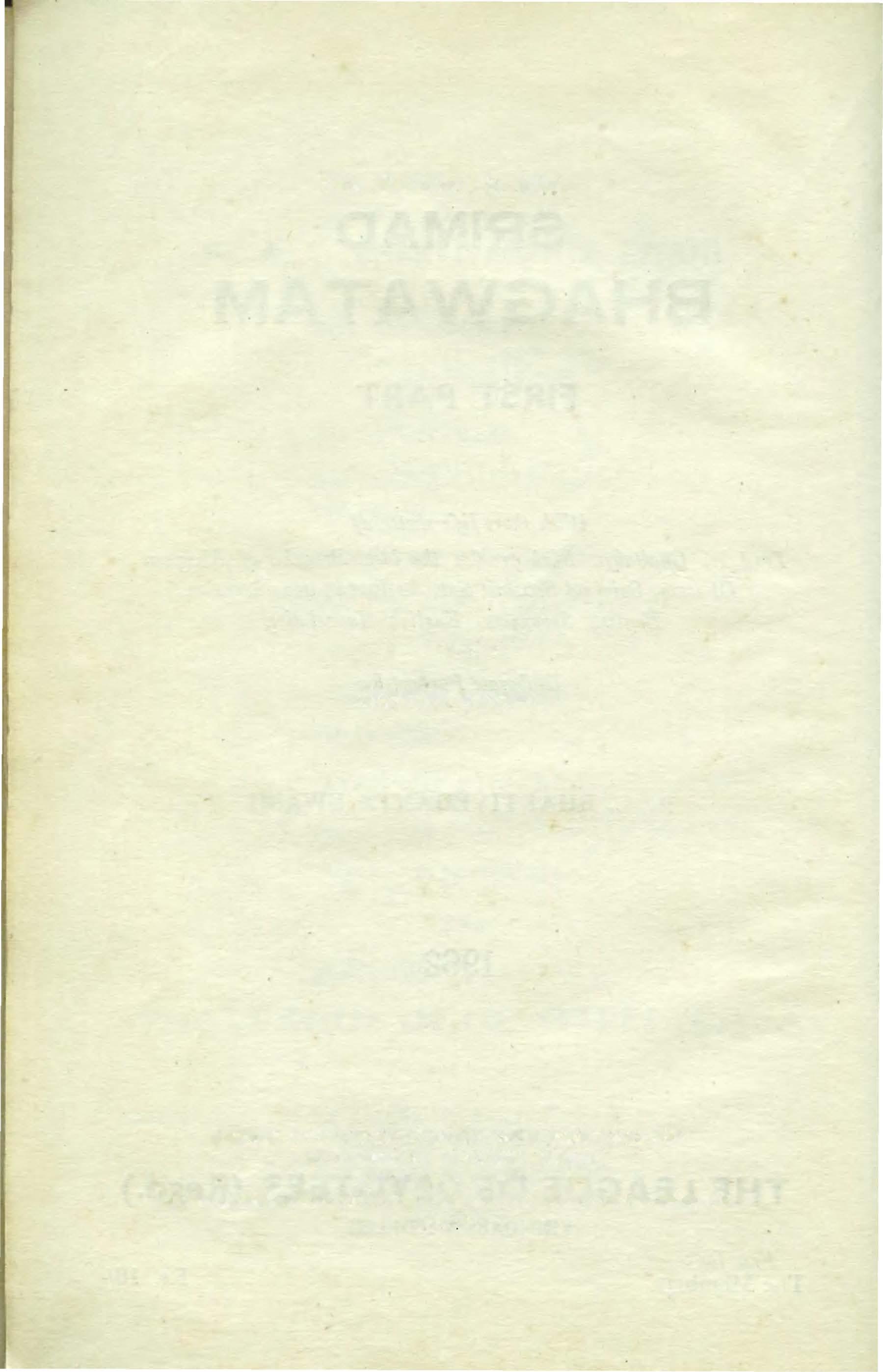
First Published in 1962 Col!Jright reserved
PRINTED IN DELHI IN 12 POINT TIMES FACE TYPE FOR THE LEAGUE OF DEV'.)TEES (REGD.)
: DELHI Bl" OH. ]tANSIII RAM AT NEW O.K. PRESS, OHURIWALAN, DELHI·6. (lNDI4)
TO SRILA PRABHUPADA

BHAKTI SIDDHANTA SARASWATI GOSWAMI MAHARAJ
MY SPIRITUAL MASTER

On the 26th annual ceremony of His Disappearance Dqy
He lives for ever by His Divine instructions and thefollower lives with Him.

PREFACE
We must knowthe present need of the human society. And what is that need ? The human society is no longer bounded by geographical limits of a particular country or community. The human society is broader than that in the middle age, andthe world tendency is to belong to one state or one human society. The ideals of spiritual communism according to Srimad Bhagwatam are based more or less on oneness of the entire human society naythe entire Energy of the living being. The need is felt by great thinkers how to make it successful ideology. Srimad Bhagwatam will fill up the gap ofhuman society and it begins, therefore, with aphorism ofVedanta Philosophy as Janma4Jasya yatah to adjust the ideal ofcommon cause.
The -human society, at the present moment, is not in the darkness of oblivion. It has made rapid progress in the field of material comforts oClife, education and economic development ofthe entire world. But_ it_ suffers a pin.,.prick somewhere in the social body at large and therefore there is large scale quarrel even on less important issue. Therefore there is the want of the clue as to how they can become one in peace, friendship and prosperity by the common cause. Srimad Bhagwatam will fill up this gap.by ontological aspect ofhuman education. It is therefore a cultural presentation for re-spiritualisation ofthe enti�e human society.
Srimad Bhagwatam should be introduced also in the schools and colleges as it is recommended by the great student devotee Prahlad Maharaj in order to change the demoniac face ofsociety.
<tfhu� �T'<rtq: 5Tmr �m1. �rrrcrcrrf.:r� r ���� � \ifrlf CfG:Clf�_,Cfli�� II (7i6/l)



Koumara acharet prajna dharman bhagwataniha
Durlabham manusam ;anma tad api adlzrubam arthadam

Disparity ofthe human society is due to the basic principle of a Godless civilisation. There is God or the Almighty One f�om whom everything emanates, by Whom everything is maintained and in Whom everything is merged to rest. The material science has tried to find out the ultimate source of creation very insufficiently but it is a fact that there is one Ultimate Source of everything that be. This ultimate source is explained rationally and authoritatively in the beautiful Bhagwatam or Srimad Bhagwatam.
Srimad Bhagwatam is transcendental science not only to know the ultimate source of every thing but also to know our relation with Him and our duty ·towards perfection of the human society on the basis of this perfect knowledge.
It is a powerful reading matter in Sanskrit language and is now rendered into English version elaborately so that simply by its careful reading one will know God perfectly well, so much so that the readar will sufficiently be educated to defend himselffrom the onslaught of the atheist. Over and above the readar will beable to convert others in accepting God as concrete principle as anything.
Itbegins with the definition ofthe Ultimate Source as the bonafide commentary of the Vedanta Sutra by the same author Srila Vyasdeva and gradually it developes into nine cantoes upto the higheststage of God realisation. The only qualification required to study this great book of transcendental knowledge, is to proceed step bystep cautiously and not to jump on half-hazardously like reading an ordinary book.


The book should be gone through chapter to chapter one after another and the reading matter is so arranged by its original Sanskrit text, its English transliteration, synonyms, translation and purportful explanation that one is sure to become a God-realised soul at the end offinishing the first nine cantoes.



The tenth canto is distinct from the first nine cantoes, because it deals directly with the transcendental activities ofthe Personality of Godhead Sri Krishna. One will be unable to

capture the effects ofthe lOth canto without having gone through the first nine cantoes. The book is complete in twelve cantoes each independent but it is.good for all to getthem by small instalments one after another.
It is a large voluminous literature and let us have it by parts ofnot more than 350 to 400 pages at a time. So that the reader may conveniently go through it without being taxed heavily both physically and mentally.
I must admit my frailties in presenting the First Part but still I am hopeful ofits good reception by the thinkers and leaders ofthe Society, on the strength of the following statement of Srimad Bhagwatam.
ffil:Weffftr1 \'lf<fffi'<ffqc(iJCI') ��1 51'�)ifiJJ'q��mq I
ifTlfF� �s� �a��a 111�..0 �fra- UT'Cfcr: 11 ' �
Tad baga visarga janata agha viplavbq rasmin pratislokam abaddha vatyapi Namatii anantasya jasho ankitani yat Srinnwanti gayanti grinanti sadhabah
"On the other hand the literature which isfullwithdescription oftranscendental glories of the Name, Fame, Form, Pastime of the Unlimited Supreme Lord,-is a different creation oftranscendental vocabulary all meant forbringing about a revolution in the impious life of a misdirected civilization of the world. Such transcendental literatures eventhough irregularly composed, is heard, sung and accepted by the purified menwho are thorougly honest." (pp. 259)
I am obliged to Sri Hanuman Prasad Poddar of the Gita Press and "Kalyan" fame, who has gone through my work and appreciating the endeavour, has helped through the Dalmia Jain Trust to meet part expenditure ofthis publication.
My thanks are duealso to other friends who have helped me in undertaking this great task. Om Tat Sat.
Dated at Delhi December 15, 1962.

( iii )
A. C.
Bhaktivedanta Swami.
Introduction


Preacher of


Science
Sri
His
Khirchora
CONTENTS
Absol�te
ofmaterial
Conception ofGod and the
Truth. Source
energy.
Srimad Bhagwatam.
of Krishna and
its need.
Chaitanya Maha Prabhu.
dtildhood.
student
sinners.
Sannyas.
His mission. His bjrth. His early
life. His civil disobedience. Reclaiming the
His
Gopinath. Meeting· with Bhattacharya. His discourse on the Vedanta. His meeting with Ramanauda Roy. Importance of submissive hearing. Instructive story ofJunior Haridas. Power ofSamkirtan movement. His talks with l\!Iayavacli Sanyasi Prakasanancla. The Lord visits Mathura and Vrindaban. He converts Pathans to Vaisnava cult. Obstacles on the path of Devotion. ... Eight modes of Prayer by a pure devotee. Sanskrit Text ofthe First Chapter inserted. First Chapter Purpose ofthe Gayatree :Mantra. Parameswer the Supreme. Three divisions ofVedic ways. Exchange of Rasas between two equals. Page 1 2 3 4 4 5 8 9 11 12 14 18 19 21 23 33 34 37 38 40 44 44 46 47 48 49 52 63 68
Watering the root of tree.
Symptoms of men in the age of quarrel or Kali. Scriptures summarised
Glories of the Name of the Lord.
Real remedy for peace in the world.
Incarnation of Godhead is distinguished.
Second Chapter
Divinity and Divine Service.
Obeisances unto spiritual master and the Lord.
Third Chapter

(ii)
of sense-satisfaction. Definition of the Absolute Truth. Process of its realisation. Duty of all classes of human being. Service unto the devotees. The Book and the Person Bhagwatam. Seeing the Lord. Forms of the Lord and the living beings. Quality of worship and the demi-gods. ... Lord Sri Krishna or Vasudeva is all in all. He is all pervading.
Srimad Bhagwatam summarised. . •. Scope
incarnations
of
From Him Brahma is
Description of the Universal Form. Short description of various incarnations. 1st Kumaras Incarnation 2nd Sukara , 3rd Narada " 4th Nara Navayana , 5 th Kapila the autgor of Samkhya philosophy. Page 73 79 81 84 87 92 97 98 100 114 115 117 us 123 127 129 136 143 145 150 154 155 156 159 162 1,64 , 165 166 167 168
Description of Incarnations of Godhead. Purusha
the cause
matter and the material world.
manifested.
6th Daryatreya incarnation
7th Yajna "
8th Rishava "
9th Prithu "
lOth Matsya "
11th Kurma "
12th Dhanantari "
13th Mohini "
14th Narasingha ,,
15th Vamana ,
16th Bhrigupati (Parsurama).
17th Vyasdeva
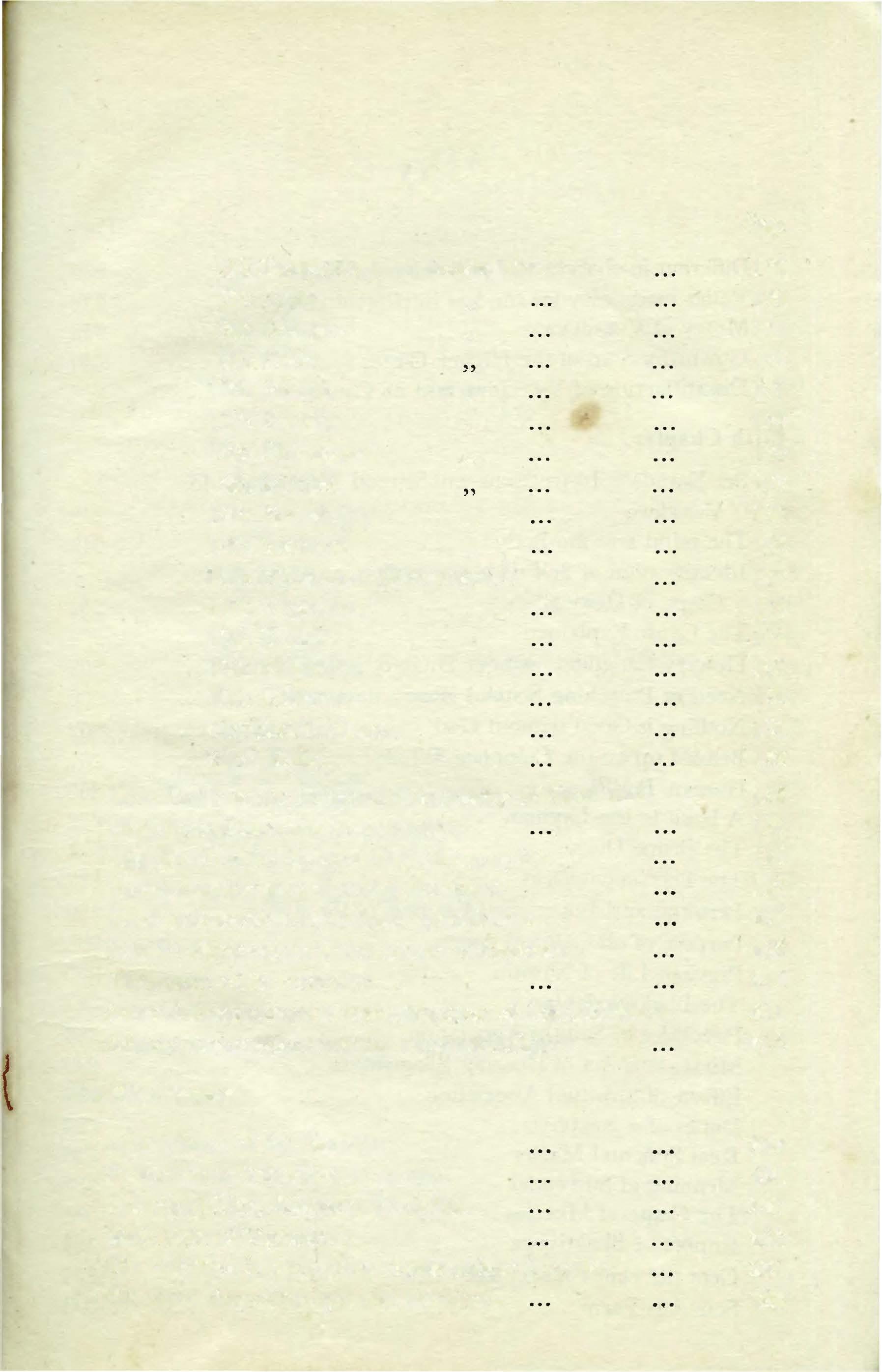
18th Rama
19th Valarama.
20th Krishna
21st Buddha De\-a.
22nd
Fourth Chapter
Appearance of Sri Narada. Paramhansa Sukhdeva Goswami.
The ideal King Maharaj Parikshit.
( ( iii )
Kalki. Lord Krishna the Original Personality of Godhead. His Virata Rupa, an imagination. The Lord or the living being all are spirit. Self-realisation means seeing the Lord. He is unknowable by mental speculation. Srimad Bhagwatam is the cream of histories. The mode of its reception.
Bhagwatam is representation of Lord Krishna.
Bhagwatam
Srimad
Srimad
and its incompatibilities.
His ac6vities in preparing transcendental works. His surveying ofthe general situation. Page 169 170 171 172 173 174 175 175 176 176 177 178 179 180 180 181 185 188 194 196 197 202 208 210 211 213 215 220 227 230 231 232
Birth date of Vyasdeva.
Different in�charges of the divisions of Veda•.
Vedas made easy for the less intelligent class.
Mercy of Vyasdeva
Unworthy Sons of the Higher Castes
Dissatisfaction of Vyasdeva and its Cause
Fifth Chapter.
Sri Narada's Instructions on Srimad Bhagwatamfor Vyasdeva

( iV. J
The mind and the Body Identification of Self with the Body or Mind 1s Cause of Despondency The Cause Explained .... Flowery Language without Divinity is Condemned Need of Preaching Srimad Bhagwatam Nothing is Good without God Befixed up on the Complete Whole Human Frailties A boon to the Layman The Prime Duty The Permanent Gain Personal and Impersonal Features of the Lord Purpose of all Cultural Assets PreviousLife of Narada The Bhaktivedantas Principles of SaintlyAssociation Miraculous Act ofHearing Bhagwatam Effects of Spiritual Association Duties of a Neophyte Real Spiritual Ma'Ster Meaning of Surrender The Cause of Miseries Import of Bhaktiyoga Cent per cent engagement Sound as Form the Page 236 238 2:38 240 245 248 249 252 254 257 260 262 267 269 272 274 277 279 283 285 287 288 290 293 294 295 298 301 303 305 308

(v) Concluding instruction of Narada Sixth Chapter. Page 311 Further Enquiry by Vyasdeva 313 History of Narada's Previous Life 317 HisTouring 321 His Momentous Hankering for the Lord 324 Seeingthe Lord 327 Message of Godhead 330 Narada's Eternal Engagement 335 His transcendental Body 337 His Re-appearance 339 His Freedom of Movement in all Planets 341 The Lord, His Constant Companion 343 Comparative Importance of Bhaktiyoga and Mystic Powers 347 Seventh Chapter. Vyasdeva's Meditation His Clear Conception Acts of Maya Illusory Energy Effects of Bhaktiyoga Effects of Hearing Srimad Bhagwatam Appendices. Glossary Errata Notice ..' 352 355 357 360 361 1 2 3
THE MOTTO
Itisadmittedeveninthehighercirclethat infact, thewholerootandbackground ofIndiancultureiswrappedin the Sanskrit language. And we know that the foreign invadersof India could breakdownsomeofthemanumentalarchitecturalworktnIndia buttheywereunabletobreakup the perfect ideals of human civilization so far kept biddenwithintheSanskritlanguageofVedicwisdom.

Srimad Bhagwatam is thematureripenfruitofthetreeofVedicliterature(pp.66.). Wehavejustbeguntogiveitrendered into English with broader outlook and it isthe dutyoftheleadingIndianstospreaduptheculturealloverthe world atthis momentous hourofneed.


INTRODUCTION

The conception of God and the conception of the Absolute Truth are not on the same level. Srimad Bhagwat hits on the target of the Absolute Truth. Conception of God means the controller whereas the conception of Absolute Truth means the Summum Bonum or the Ultimate Source of all Energies. There is no two opinions about the personal feature of God because He is controller. A controller cannot be an impersonal teature. Modernised Government specially democratic Government is impersonal to some extent but at the ultimate issue the chief executive head is a Person and the · impersonal feature of Government becomes subordinate to such Personal feature of the Government. So whenever we speak something of control over others, we must have to bring in the Personal feature without any doubt. There may be many Gods because there are different controllers in different parts of management. According to the statement of the Bhagwat Geeta any controller who has got some specific power extra ordinary than others is called a bibhutimatsatwa*or controllerempoweredbytheLord. Thereare many bibhutimat satwas, controllers or Gods with different specific powers but the Absolute Truth is one without a second and the Srimad Bhagwatam designates the Absoltue Truth or the Summum Bonum as the Param Satyam. Srimad Bhagwatam i. e. the Author of the book at first, offers his respectful obeisances unto the Param Satyam and because the Param Satyam is the ultimate Source of all energies the Param Satyam is the Supreme Person. The Gods or the controllers are undoubtedly persons but the Param Satyam from \%om the Gods etc. derive powers of control is also Person and is the Supreme Person. The Sanskrit word Iswam conveys the import of God but the Supreme Person is called the Parameswara or the Supreme lswara. The SupremePerson or Parameswara isthe Supreme ConsciousPersonality and because He does not derive any power from any other source, therefore, He is Supremely independent. In the Vedic literature Brahma is described asthe Supreme God orthe head of all other Gods
*B. G. 10/41. ' .


like Indra, Chandra, Varuna etc. but Srimad Bhagwat affirms, that even Brahma is not independent in the matter of His power and knowledge. He·received knowledge or the Vedas from the Supreme Person who resides within the heart* of every living being. That Supreme Personality knows everything directly and indirectly. Individual infinitesimal persons, who are parts and parcels of the Supreme Personality, may know directly and indirectly everythingabout their personal body or external features. But the Supreme Personality knows everything perfectly well both about His external and internal features.


The word 'Janmadyasya' suggests that the source of all production, maintenance and destruction, is the same Supreme conscious Person. Even in our present experience we can know that nothing is generated from inert matter but inert matter can be generated from living entity. By contact of the living entity the material body developes into an working machine. Man with poor fund of knowledge mistakes the bodily machinery as the living being but the fact is that tQe living being as he is, is the basis of the bodily machine. The bodily machine is useless as soon as the living spark is away from it. As such the original source of all material energy is the Supereme Person. This fact is expressed in all the Vedic literatures and all exponents of spiritual science have accepted this tmth. The living force is calledin other words as Brahman and one of the greatest Acharya namely Sripad Sankaracharya has preached that Brahman is substance while the cosmic world is category. The original source of all energies being the Living force He is logically accepted as the Supreme Person. He is therefore fully conscious of everything past, present and future and also each and every corner of His creative manifestation both material and spiritual. An imperfect living being does not know even what is happening within the physiological condition of his personal body. He eats his foodstuffbut does not know perfectly as to how the foodstuff transform into vitarnines specifically for the particular constitution of his own body. Perfection of a living being means awareness of everything that happens and the Supreme Person being all-perfect it is quite natural for Him that He knows everything in all qet?;ils, As sw;:h
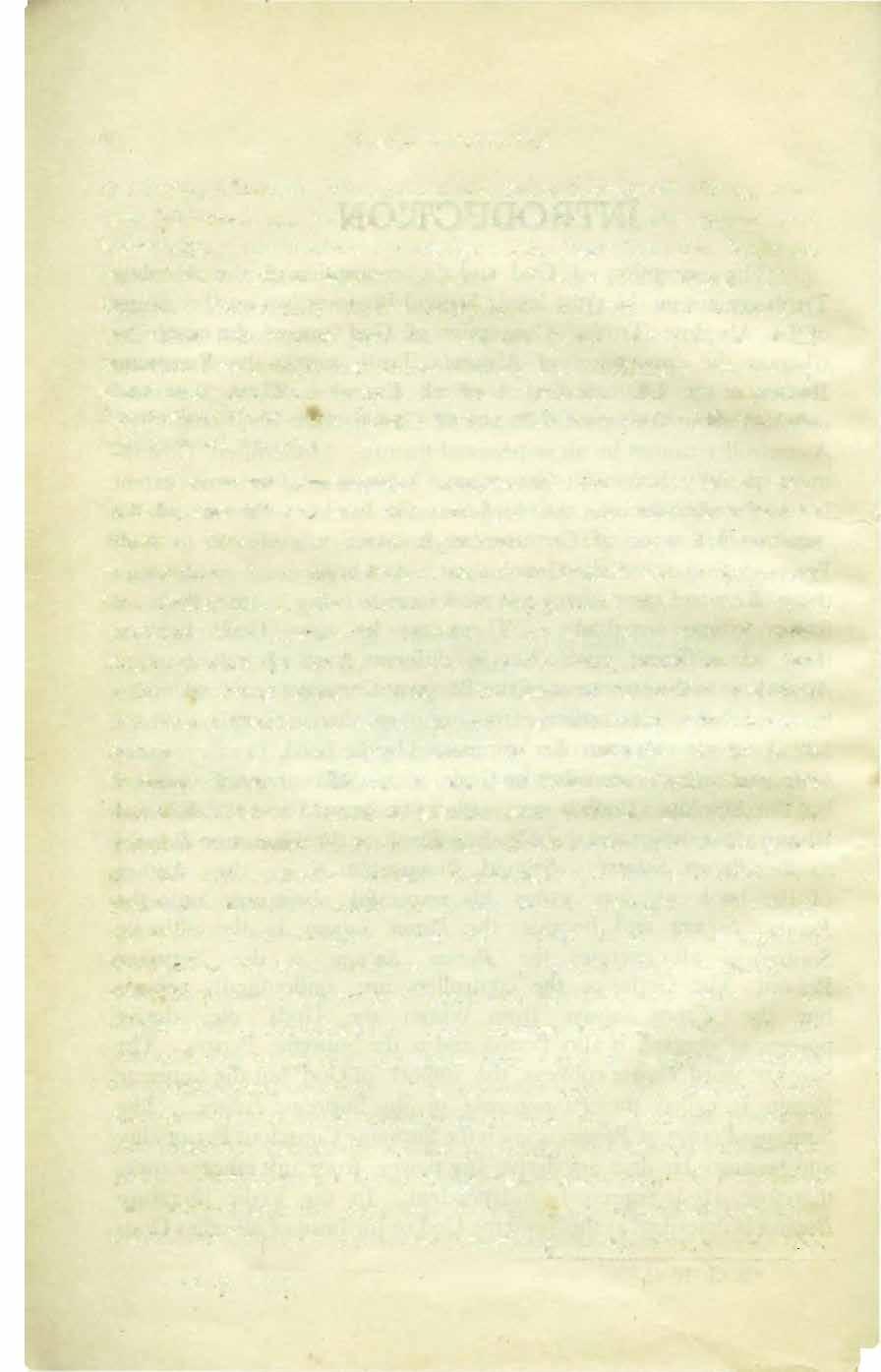
2 SRIMAD BHAGWATAM
*}3. G. 15/IS�--�-----
the Perfect Personality is addressed in the Srimad Bhagwatam as Vasudeva or One who lives everywhere in full consciousness and in full capacity of His complete energy. The whole thing is clearly explained in the Srimad Bhagwatam and the reader will have ample opportunity to study them in all critical ways.


In the modem age Lord Sri Chaitanya Mahaprabhu preached the cult of Srimad Bhagwatam by practical demonstration. It is easier, therefore, to penetrate into the topics of the Srimad Bhagwatam through the medium of Sri Chaitanya's causeless mercy. His merciful short sketch life and precepts are also inserted herewith for specific understanding of the SI_'imad Bhagwatam. This will help the reader perfectly to understand the real merit ofSrimad Bhagwatam.
It is imperative that one should learn Srimad Bhagwatam from the person-Bhagwatam. The Person-Bhagwatam is one whose very life is practical Srimad Bhagwatam. Sri Chaitanya Mahaprabhu being the Absolute Personality of Godhead He is both Bhagwan and Bhagwatam, in person and sound ; and His process of approach of the Srimad Bhagwatam is, therefore, practical for all people of the world. He wanted it and ordered His followers that the cult of the Srimad Bagwatam shall be preached in every nook and corner of the world by every one who happens to take his biith in India.
Srimad Bhagwatam is the science of Krishna the Absolute Personality of Godhead as much as we have preliminaryinformations from the text of the Bhagwat Geeta. Sri Chaitanya Mahaprabhu said that every one, it does not matter what he is, who is well versed in the science of Krishna (Srimad Bhagwatam and for the matter of that Sri Bhagwat Geeta) can become an authorised preacher or precepter in the science of Krishna.
There is need of the science of Krishna in the human society for all the suffering humanity of the world and we would simply request the leading personalities of all nations to take some information of the science of Krishna for their own good, for the good of the society and for the good of all people of the world.
lNTROOUCtiON
(A shortlife sketch and teachings ofLord Chaitanya, the Prea· cher ofSrimad Bhagwatam.)

LORD SRI CHAITANYA .MAHAPRABHU, the Great Apostle of love ofGod and the Father of introducing congregational chanting of the holy name of the Lord, advmted Himself at Sridham Mayapur a quarter in the then city of Nabadwipa in Bengal on the PhalgooniPumima eveningin the year 1407 Shakabda (corresponding to Christian era 1486 Fehruary.)
His father Sri Jagannath Misra, a learned Brahmin, hailing fiom the district of Shylet came to Nabadwipa as a student because at that time Nabadwipawas consideredto be the centre ofeducation and culture and he domiciled on the bank of the Ganges after marrying Srimati Sach.idevi a daughter of Srila Nilambar Chakrabarty, the great learned scholar of the then Nabadwipa.
Jagannath Misra had a number of daughters by his wife Srimati Sachidevi and most of them expired at an early age. Two surviving sons Sri Viswarupa and Vishwambhar became at last the object of their filial affection and the last named son or the youngest son and the tenth one was Viswambhar who later on was known as Nimai Pandit and then Lord Sri 'Chaitanya Mahaprabhu after accepting the renounced order of life.
Lord Sri Chaitanya Mahaprabhu exhibited His transcendental activities forfull forty eight years and then He disappeared from this mortal world -in the year 1455 Shakabda at Puri.
For twenty four years only, he remained at Nabadwipa as student and householder. His first wife was Srimati Lakshmi Priya who died at an early age when the Lord was absent from home. On His return from East Bengal, He was requested by His mother to accept a second wife and the Lord agreed. His second wife was Srimati Vishnupriya Devi who bore the separation of the Lord, throughout the life, because the Lord took the order of Sanyas at the age of twenty four when Srimati Vishnupriya was hardly sixteen years only.
After taking Sanyas, the Lord made His headquarters at
4
SRIMAD BHAGWATAM
Jagannath Puri on the request of His mother Srimati Sachidevi. Thus the Lord remained for twenty four years at Puri out of which continucmly for six years He travelled all over India and spt:cially the Southern India in the mode of His preaching work ofthe cult of Sri mad Bhagwatam.

The cult cf His preaching Srimad Bhagwatam was to propagate the teachings of the BhagwatGeeta as well in the practical way. In the Bhagwat Geeta Lord Sri Krishna is depicted as the Absolute Personality ofGodhead and the last teachings of the great book of transcendental knowledge, is that one should give up all other modes of religious activities and should accept Him (Lord Sri Krislma) as the ONLY WORSHIPABLE Lord. And for this, the Lord assured all concerned that such devotees of the Lord would be protected from all sorts of sinful acts and there was no cause of anxiety.
Unfortunately inspite of Lord Sri Krishna's direct order and teachings in theBhagwat Geeta, less intelligentpeople misunderstood Him as a historical great personality and thus could not accept Him (Lord Sri Krishna) as the Original Personality ofGodhead and such men with poor fund of knowledge were misled by many nondevotes. Thus the teachings oftheBhagwat Geeta was misintupreted even by great scholars. Thus after the disappearance ofLord Sri Krishxm there were hundreds of commmtaries on the Bhagwat Geeta by many erudite scholars and almost every one tried .to comment on the Bhagwat Geeta differently according tothe self-interestedmotive.
Lord Sri Chaitanya ]\llahaprabhu is the self Same Lord Sri Krishna and this time He appeared as a great Devotee of Lord Sri Krishna inorder to preach to the people in general, religionists and philosophers about the transcendental position of Sri Krishna the Primeval Lord and the cause of all causes.
The sumtotal of His Preaching work was that Lord Sri Krishna who appeared at Brajabhumi (Vrindaban) as the son of the king ofBraja (Nanda Maharaj),-is the Supreme Personality ofGodhead a�1d .therefore He is worshipable by all. Vrindaban-dham is nondifferent from the Lord because the Name, Fame, Form, or the

INTRODUCTION 5
place where the Lord manifests Himself, all are identical with the Lord as Absolute knowledge.· Therefore, Vrindaban-dham is also as much \vorshipable as the Lord. The highest form of transcendental worship ofthe Lord was exhibited by the damsels of Brajabhumi in the form ofpure affection for the Lord and Lord Sri Chaitanya recommends the process as super excellent mode of worship. He accepts the Srimad Bhagallatam Puranam as the spotless Literahue for understanding the Lord and He preached that the ultimate goal oflife, for all human being, is to attain the stage of Prema or Love ofGod as the topmost perfec6on oflife.
Many devotees ofthe Lord (Sri Chaitanya Mahaprabhu) like Srila Vrindabandas Thakur, Sri Lochandas Thakur, Srila Krishnadas KavirajGoswami, SriKaviKarnapur, SriProbodhananda Saraswati, Sri Rupa Goswami. Sri Sanatan Goswami, Sri Raghunath Bhatta Goswami, SriJivaGoswami, Sri Gopal Bhatta Goswami, Sri Raghunath DasGoswami and in the later age within two hundred years Sri Vishwanath Chakrabarty, Sri Valadeva Vidyabhusan, Sri Syamanada Goswami, Sri Narottamdas Tl1akur, Sri Bhaktivinode Thakur and at last Sri Bhakti Siddhanta .Saraswati Thakur
(our spiritual Master) and many other great and renowned scholars and devotees of the Lord have prepared voluminous books and literatures on the life and precepts of the Lord. Such literatures are all based on the Shastras like the Vedas, Puranas, Upanishads, Ramayana, :fviahabharata and other history and authentic literatures approved by the recognised Acharyas. They are unique in compositions and unrivalled in presentation with full of transcendental knowledge. Unfortunately they are still under the cover of ignorance ofthe people and when such literatures (mostly in Sanskrit and Bengali) will see the light ofthe world and will be presented before the thinking people of the world it is then only India's glory and the message ofLove will overfiood the morbid world vainly searching after peace and prosperity under the cover ofvarious illusory methods which are not in the line ofapproved Acharyachain ofdesciplic succession.

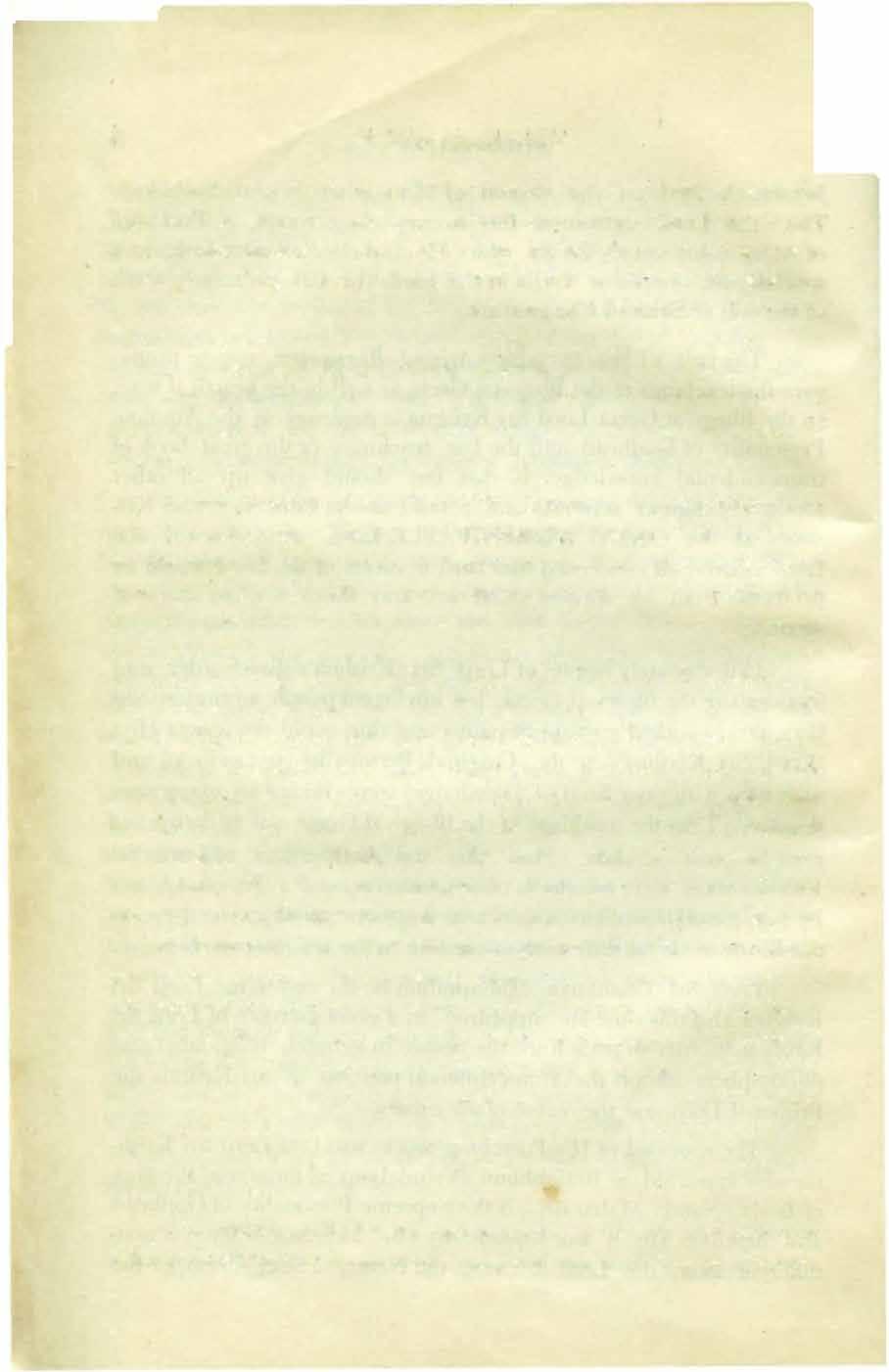
The readers ofthis small description on the life and precepts ofLord Chaitanyawill do well and p-rofit much ifthey go through

6
SRlMAD BHAGWATAM
INTRODUCTION
the books of Srila Vrindabandas Thakur (Sri Chaitanya Bhagwat) and Srila Krishnadas Kaviraj Goswami (Sri Chaitanya Charitamrita). The early life of the Lord is most fascinatingly expressed by the author of 'Chaitanya Bhagwat' and so far the teachings are concerned, they are more vividly explained in the Chaitanya Charitamrita. vVe have tried to combine these two books in one under the name of CHAITANYA CHARITAMRITA ESSAYS AND TEXT (3000 Pages) for the E11glish readers.
The Lord's early life was recordedbyone ofHis chief devotees and contemporaries namely Srila �1urari Gupta, a medical practitioner of that timeand thelater part of thelife ofSri Chaitanya �;fahaprabhu was recorded byHis private Secretary Sri Damodar Goswap1i or Srila Swarup Damodar who was practically constant companion of the Lord at Puri. These two devotees, recorded practically all the incidences of the Lord's activities and later on aU the books regarding the Lord as abovementioned were composed on the basis of Karchas of Srila Damodar Goswami and Murari Gupta.
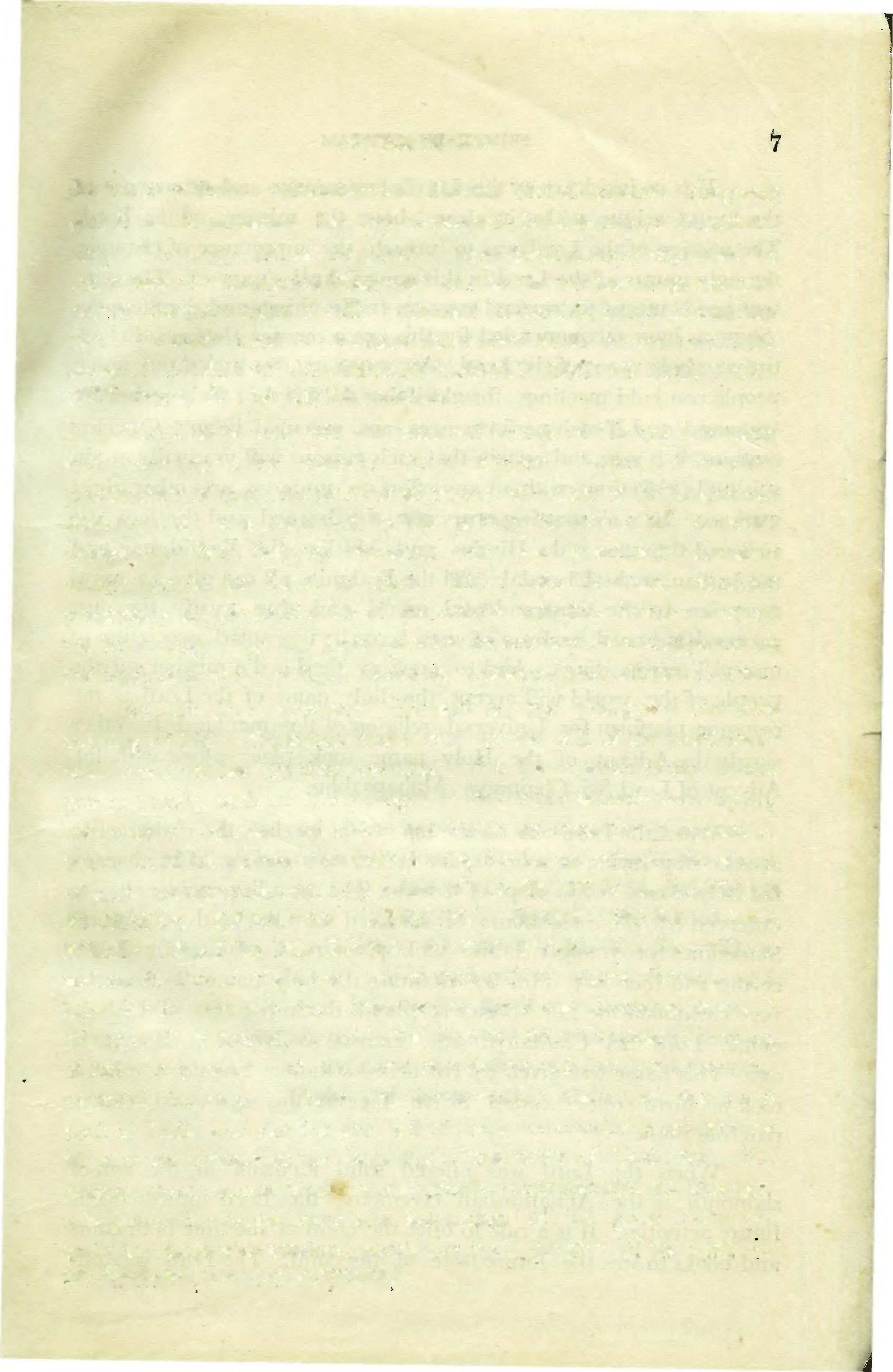
So the Lord advented Himself on the Phalgooni Purnima evening of 1407 Shakabda and it was by the will of the Lord there was Lunar eclipse on that evening. It is the custom of theHindu public to take bath in the Ganges or any other sacred river ch�ring the hours of eclipse and chant the Vedic mantras for purification.
vVhen Lord Chaitanya was bornduring the Lunar eclipse, the whole oflndia wasroarnig withholysoundof
HAREKRISHANA HARE
KRISHNA KRISHNA KRISHNA HARE HARE HARE
RAMA HARE RAMA RAMA RAMA HARE HARE. Thes� sixteen Names of the Lord are mentioned in many Puranas and Upanishads and they are described as the Tarak Brahman Name of this age. It is recommended in the Shastrasthat offenceless chanting ofthese holy names of the Lord can deliver a fallen soul from the material bondage. There are innumerable Names of the Lord both in India and outside and all ofthem are equally good because all ofthem indicate to the Supreme Personality of Godhead. But because these sixteen Names arc specially recommended for this age, it is better that people may take advantage of the great Acharyas and their path who attained success by their practice ofthe rules lll the S!zastras (revealed scriptures). . - ;,
1 I
BHAGWATAM

This co-incidence of the Lord's appearance and occurrence of the Ltinar eclipse make it clear about the mission of the Lord. The mission of the Lord was to preach the importance of chanting the holy names of the Lord in this age of kali (quarrel). The present age is meant filr quarrel even on triffie thingsand therefore the Shastras have recommended for this age a common plaiforrn ofchanting tl�e holy name-of tl1e Lord. Accompanied by melodious music people can hold meetings for glorifying the Lord in tl1eir respective languages and if such performances are executed in an offenceless manner, it is sure and certain that such persons will gradually attain spiritual perfection without any effort to undergo any other rigid methods. In such meeting every one, the learned and the fool, the rich and the poor, theHindus and Muslim, the Englishman and the Indian or the Chandala and the Brahmin, all can give an aural reception to the transcendental sound and thus purify the dust accumulated on the mirror of one's heart byunwanted association of material surroundings. And to confirm the Lord's mission all the people ofthe world will accept the holy name of the Lord as the common platform for Universal religion of the mankind. In other words the Advent of the Holy name took place along with the Advent of Lord Sri Chaitanya Mahaprabhu.
\Vhen the Lord was on the lap ofHis mother, the child would at once stop crying as soon as the ladies surrounding Him chanted the holy name with clap of hands. The peculiar incidence was observed by the neighbours of the Lord with awe and veneration. Sometimes the younger ladies took pleasure.in making the Lordcrying and then stop him by chanting the holy name. So fi·om the very childhood the Lord began to preach the importance ofthe holy name. Lord Sri Chaitanya was known as Nimai in His early age. This name was given byHis beloved mother because the Lord took his birth underneath a Necm Tree in the courtyard of His paternal house.
v'.-11en the Lord was offered solid foodstuff at the age of sixmonth in the Annaprashan ceremony, the Lord indicatedHis future activities. It is a rule to offer the child at the time both coins �nd booJ<:s to see tlw future t�ste of the child. 'fhe Lord was off-


8
SRIMAD
ered both sides coins and the Blzagwat. But the Lord accepted SrimadBlzagwatam)nstead of the coins.
When He was five years old He was initiated for learning and He showed Himself a naughty boy. And 'Vhen He was a mere baby crawling on the yard, one day it so happened that a snake appeard before the baby and the Lord began to play with it. All the members ofthe house were struck with fear and awe but after a little while the snake went away and the baby was taken away by His mother. Sometime He was stolen by a thief inorder to take away His ornaments but the Lord took a pleasure trip on the shoulder of the bewildered thief. The thief was searching for a solitary place inorder to rob the baby and it so happened that the thief wondering hither and thither, arrived at last just before the house ofJagganath Misra and he was afraid of being cought hold of. He, therefore, dropped the baby at once and the anxious parents and relatives were glad to see the lost child.

Once upon a time a pilgrim Brahmin was received atthehouse ofJagannath MiEra and when the Brahmin was offering the food stuffto Godhead, the Lord appeared before him and partook of the prepared foodstuff. The eatables were rejected on being touched by a child and the Brahmin again prepared the foodstuff. The next time the same incidence happened. For the third time the same attempt was made and the baby was forcibly made to go asleep at night within the room. At about 12 in the night when all the members of the house were fast asleep within the closed room, the pilgrim Brahmin offered his prepared food stuffto his Deity and in the same way, the baby Lord appeared before the pilgrim and spoiled his offerings. The Brahmin again began to cry but as every one was fast asleepnobody could reply. Atthattime child Lord appeared before the fortunate pilgrim Brahmin and disclosed His Identity as Krishna Himself. The Brahmin was forbidden to disclose the incidence and the baby went back to the lap ofhis mother as fast asleep.
There are many such incidences in His childhood life. As a naughty boy sometimes He used to tease the orthodox Brahmins who used to takebath in theGanges. When they complained toHisfather
INTRODUCTION 9
1 I
SRIMAD BHAGWATAM
the boy appeared before the father as ifjust comming from the School. And at the bathing Ghat he used to play jokes with the neighbouring girls who were engaged in the worship ofShiva with hope of getting good husband. That is a practice amongst the unmarried girls in the Hindu family. vVhile engaged in such worship the Lord as a naughty boy appeared before them and said "My dear sisters, please give me all tl1e offerings you have just brought for Lord Shiva. Lord Shiva is my devotee and Parvati is my maid servant. Ifyou worship Me the Lord Shiva and all other demigods will be more satisfied." Some ofthem refused to obey the naughty Lord and He would curse them that on refusal she would be married with an old man with seven children by his previous wife. The girls out of fear and sometimes out of love also would offer Him all materials and then the Lord would bless them with assurance that they would have very good young husband and that they would be mother of dozens ofchildren. 1bese blessings would enliven the girls but they used to complain the incidence to their respective mohers. : !
In this way the Lord passed His early childhood and when He wasjust sixteen years old He started His own Chatuspathi (village school conducted by a learned Brahmin) And in the schoolteachings, He would simply explain Krishna even_in the readings ofgrammer. Srilajiva Goswami inorder to please the Lord had later on composed a grammer in Sanskrit in which all the rules ofthe grammer are examplified with the holy names ofthe Lord. This grammer is still current and is known as "Harinamamrita Vyakaran" and is prescribed by the sylabus of Sanskrit Schools in Bengal till now.

During this time a great Kashmere scholar ofthe name Keshav Kashmere came to Nabadwipa to hold meetings on the discourse of Shastras. 1be Kashmere Pandit was a champion scholar and he had travelled all the places of karning in India. At last he came to Nabadwipa to contest the learned Pandits there. The Pandits of Nabadwipa decided to put forward Nemai Pandit (Lord Chaitanya) before the Kashmere Pandit thinking it wise if Nemai Pandit was dd<:ated they would have another chance with a plea that

io
Nemai Pandit was a boy only. And ifthe Kashmere Pandit was defeated then they would be more glorified because people will know that a boy of Nabadwipa defeated such a champion scholar ofall India repute. And it so happened that Nemai Pandit met the Kashmere Pandit while strolling on the bank of the Ganges. The Lord requested the Kashmere Pandit to- compose a Sanskrit verse in praise ofthe Ganges and the Pandit within a short time composed a verse of 100 slokas in praise ofthe mother Ganges. He recited the verses like storm and showed sufficient strength of his vast learning. Nemai Pandit also at once took by heart all the slokas without deviation of a line. He quoted the 64th sloka and pointed out some deficiencies i1� the calculation of retorhical and literary irregularities. He particulary pointed out one word BHAVANI BHARTA and pointed out that this word coveys opposite meaning. Blzavani means the wife of Slziva and who else can be Her B!zarta or husband. In this way he pointed out several discrepancies in one sloka and the Kashmere Pandit was struck with wonder. He was astonished as to how a student of grammer could point out such literary mistakes ofan erudite scholar. The matter was ended prior any public meeting and the news was spread all over Nabadwipa like wild fire. At last Keshav Kashmere was ordered in dream by the goddess of learning to submit before the Lord and the Kahmere Pandit became a follower ofthe Lord.
The Lord was then married with great pomp and gay and began to preach the Congregational chanting of the Holy Name of the Lord at Nabadwipa. Some of the Brahmins became envious ofHis popularity and they put many hinderances on His path. At last such Brahmins complained the matter before Muslim Magistrate at Nabadwipa. Bengal'wasthen governed by Pathans and the Governor ofthe Province was Nawab Hussain Shah. The Muslim Magistrate of Nabadwipa �took up the complaints, ofthe Brahmins, seriously and at first he warned the followers of Nemai Pandit not to chant loudly the Name of Hari. But Lord Chaitanya asked His followers to disobey the orders ofthe Kazi and they went on with their Samkirtan Party as usual. The Magistrate then sent constables and broke some of the M1idangar where Samkirtan was takin� place. Wh�n Nemai :Panqit h,eard this im:idence he organi-
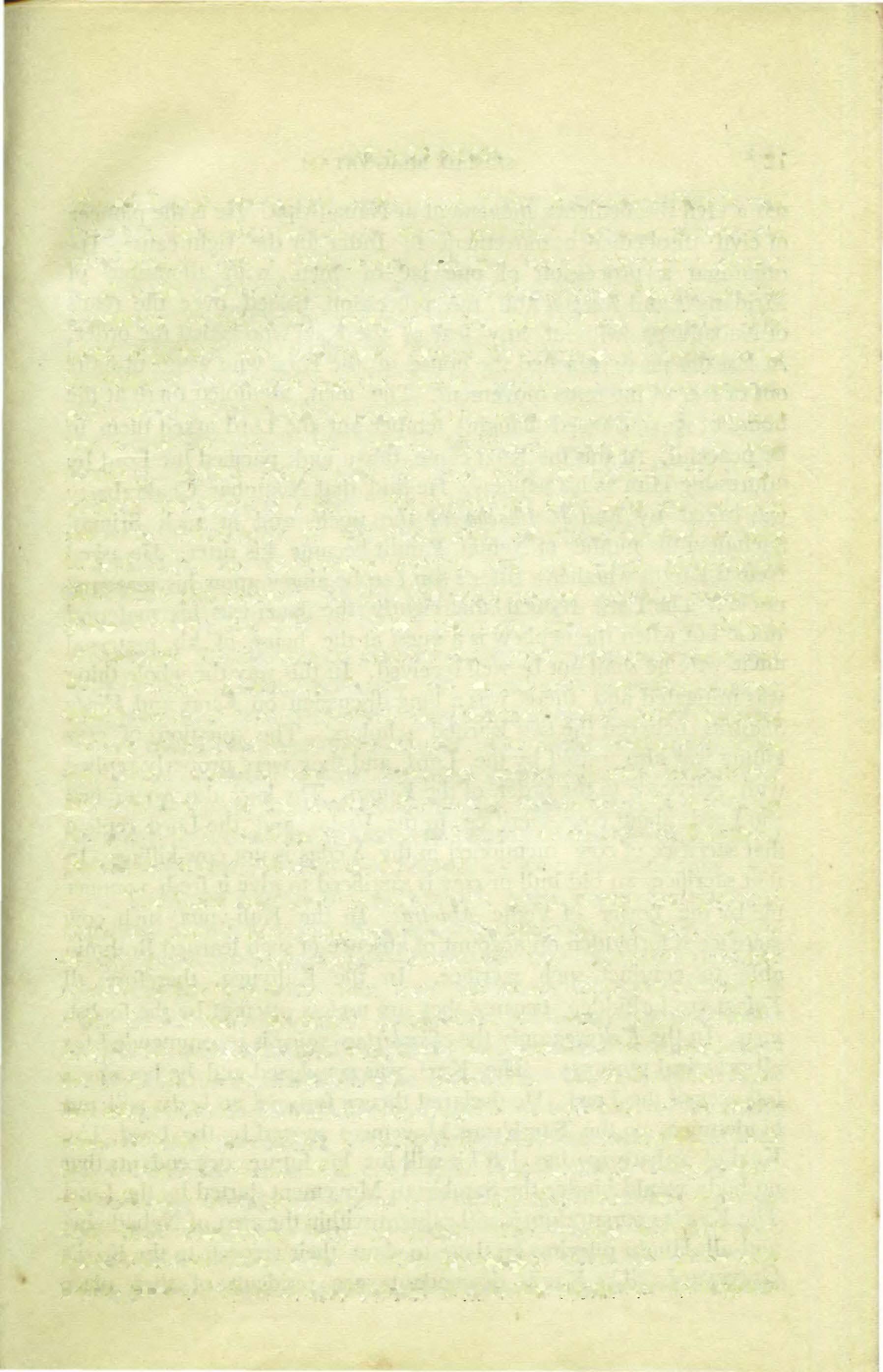
INTRODUCTION 11
SRIMAD BHAGWATAM
sed a civil disobedience movement at Nabadwipa. He is the pioneer ofcivil disobedience movement in India for the right cause. He organised a procession of one lac of men with thousands of Mridangas and Karatal and the procession passed over the roads ofNabadwipa without any fear of the Kazi who issued the order. At last the party reached the house of the Kazi who went upstairs out offear ofthe mass movement. The men, asembled there at the house ofKazi, showed haughty temper but the Lord asked them to be peaceful. At this the Kazi came down and pacified the Lord by addressing Him as his nephew. He said that Nilambar Chakrabarty was called by him as Chacha or the uncle and as �uch Srimati Sachidevi the mother ofNemai Pandit became his sister. He asked Nemai Pandit whether a sister's son can be angry upon his maternal uncle ? The Lord replied that rightly the Kazi was his maternal uncle but when the nephew is a guest at the hcuse of his maternal uncle why he shall not be wellreceived. In this way the whole thing was mitigated and there was a long discussion on Koran and Hindu Shastras between the two learned scholars. The question of cow killing was also raised by the Lord and they were properly replied with reference to the order ofthe Koran. The kazi also questioned the Lord about cow sacrifice in the Vedas and the Lord replied that sacrifice ofcow mentioned in the Vedas is not cow-killing. In that sacrifice an old bull or cow is sacrificed to give it fresh younger life by the power ofVedic Mantras. In the Kali-yuga such cow sacrifice is forbidden on account ofabsence ofsuch learned Brahmin able� to conduct such sacrifice. In the Kaliyuga, therefore, all YaJnas are forbidden because they are useless attempt by the foolish men. In the Kaliyuga only the Samkirtan yaJna is recommended for all practical purposes. The Kaz1. was convinced and he became a follower ofthe Lord. He declared thence forward no body will put hinderances in the Samkirtan Movement started by the Lord. The Kazi ofNabadwipa has lefthis will for his future descendants that no body would hinder the Samkirtan l\1ovementstarted by the Lord. The Kazi's crematoriumis still existentwithinthe area ofNabadwipa and all Hindu pilgrims go there to show their respects to the Kazi's Graveyard. The :K.azi's descepqal"\ts ano: f(':sid.<;nt� of t�t place

12
but they never objected Samkirtan even during the Hindu 1\1oslem riot days.
This incidence ofLord chaitanya's life shows clearly that the Lord was not a timid so called Vaishnava. AVaishnava means a fear less devotee ofthe Lord. For the right cause they can take any step suitable for the purpose. Arujna was also a Vaishnava devotee of Lord Krishna and be fought valiantly for the satisfaction ofthe Lord. Similarly Bajrangaji or Hanuman was also a devotee of Lord-Ram� and He gave lessons to the party of Ravana the non-devotee camp. Therefore, the principles ofVaishnavism is to satisfy the Lord by all means. A Vaishnava is by nature a non-violentpeaceful living beingand he has all the good qualities ofGod. But when there is the question ofblaspheming the Lord or His devotee, the Vaishanva never tolerates such impudency on the part ofthe non-devotee.
After this incidance the Lord began to preach and propagate his Bhagwat Dharma or Samkirtan movement more vigorously and whoever stood against this propagation of the Yuga Dharma or duty of tlze age, was properly punished by various chastisement. Two Brahmin gentlemen called by the names of Chapala and Gopala who also happened to be maternal uncles of the Lord were also chastised by infliction of leprosy upon them and later on when they were repentant they were accepted by the Lord. In course of His vigorous preaching work, He used to send every ·day all His followers including Srila Nityananda Prabhu and Thakur Haridas two chief whips ofHis party to go fi·om door to door and preach the cult ofSrimadBhagwatam. The whole of Nabadwipa was surcharged with His Samkirtan Movement and the H. Q. was situated at the house of Shrinivas Thakur andSri Adwita Prabhu another couple of chief whips amongst the householders. These two heads of the Brahmins and learned community were most ardent supporters of Lord Chaitanya's movement. Sri Adwaita Prabhu is the chief agent to bringin the advent ofthe Lord. When Adwaita Prabhusaw that the complete society is full of materialistic activities without any tinge ofdevotional service which alone could save them fi'om the thr�efold ;miserjes pf :rn;:tter�al e;xiste;n{:e? h� 01.J.t of his <;?-useless.

INTRODUCTION 13
compassion for the age-worn human society, he prayed fervently for the incarnation of the Lord with continued worship by the water of the Ganges together with the leaves of Tulsi. So far preaching was concerned every body was to do his bit ofwork daily according to the order ofthe Lord.
Once Nityananda Prablm accompanied by Srila Haridas Thakur both were passing the main road and on the way they saw an assembly ofcrowd roaring on the way. On enquiry from the passers-by it was understood that two brothers of the nameJagai and Madhai were creating public disturbances in drunken state. It was also gathered fiom informations that the two brothers were born in a respectable Brahmin family but on account oflow association, both ofthem had turned to be debauches of the first order. They were not only drunkards but also they were meateaters, women hunters, decoits and sinners of all description. Srila Nityananda Prabhu heard all these stories and decided that these two fallen souls must be delivered first. If they are delivered from this sinful life then the goodname ofLord Chaitanya will be still more glorified. Thus thinking both Nityananda Prabhu and Haridas pushed into the crowd and asked the two brothers to chant the Holy Name of the ·Lord Hari. The drunken brothers got enraged on this request and attacked Nityanand Prabl�u with filthy languages. Both Nityananda Prabhu and Haridas Thakurhurriedly left theplace and the drunken brothers chased them to a considerable distance. In the evening the report ofthe preachingwork was submitted to the Lord and He was glad to learn that such a pair of stupid fellows were attempted for deliverance.

The next day again Nityananda Prabhu went to see the brothers and as soon as He approched them one ofthem threw a piece ofbroken earthen pothurled on the body of Nityananda Prabhu. At once the broken part struck on the forehead of the Lord squizing out flow ofblood. Srila Nityananda Prabhu was so kind upon them that jnstead ofprotesting against the heinous act, He said 'it does not matter that you have thrown stone upon me but still I request you to chant the holy name of Lord Hari.'
One of the l;>rQtlwr� wa:� a:stonishecl tQ ��e this l;>ehqviour of


14
SRlMAD BHAGWATAM
'
Nityananda Prabhu and he at once fell down on the feet of Him asking Him to pardon his sinful brother. The other one was again attempting to hurtHim butJagai checked him and implored him to fall down unto the feet of Nityananda Prabhu. In the meantime the news ofhurting Nityananda reached the Lord and he at once came up to the spot in an angrymood like fire. The Lord at once asked for Sudarshan to kill the sinners but Nityananda Prabhu reminded Him about His mission. The mission of the Lord is to deliver the hopelessly fallen souls of the Kali.yuga and the twu brothersJagai and Madhai were typical examples ofthe present day population. The population ofthe present age are ninety nine per cent like the two brothers although some of them are bom ofvery respectable families ofthe higher caste. According to the verdict of the revealed scriptures all the population ofthe world, ofthis age, will be ofthe lowest Sudra quality or less than that the Chandala quality. Sri Chaitanya Mahaprabhu never acknowledged the stereotyped caste system by birth right and He strictly followed the verdict ofthe Shastras in the matter of one's SwarujJa real-identity.
When the Lord was asking for the Sudarslzan Clzakara and Srila Nityananda Prabhu was imploring Him to forgive them, both the brothers fell on the lotus feet of the Lord and begged to be pardoned for their gross misbehaviour. The Lord was asked by them as well as by Nityananda Prabhu to accept the repenting souls and the Lord asked them only one condition that thence forward they will completely give-up the habit of debauchery and sinful activities. Both the brothers agreed and promised to give up their sinful habits and the kind Lord accepted them without reference to their past misdeeds and sinful acts.
That is the specific kindness ofLord Chaitanya. In this age no body can say very boldly that he is free fi·om all l�inds of sinful acts. Rather it is impossible for every one to say like that. But Lord Chaitanaya accepts all kinds of sinful persons only on one condition that such repenting soul promises not to indulge in the sinful habits after one is spiritually initiated by the bonafide spiritual master.
There are instructive things in this incidence of deliverance of
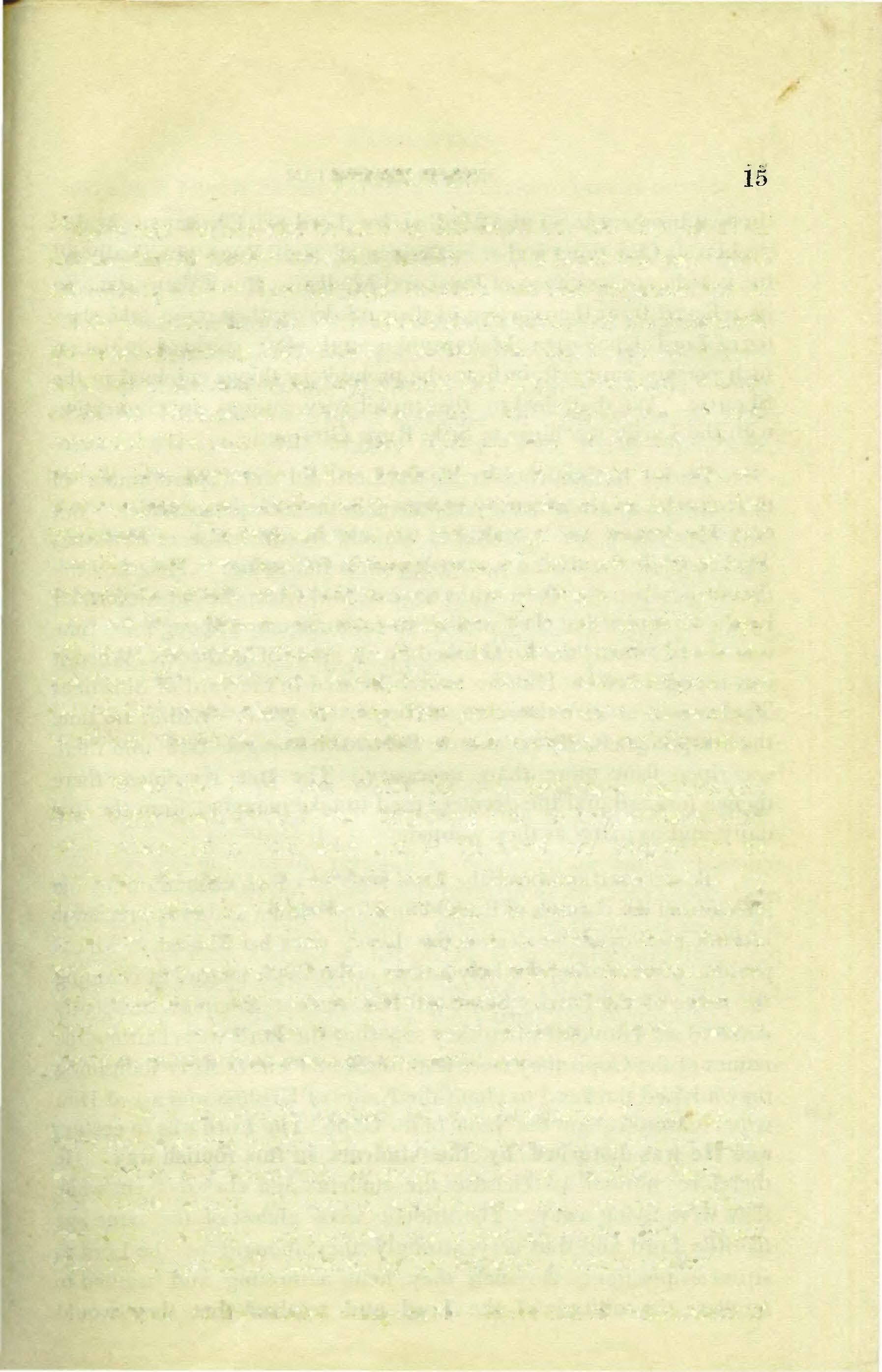
iNTRODUCTION i5
the two brothersJagai and Madhai by Lord Sri Chaitanya Mahaprabhu. One thing is that in this age of Kali Yuga practically all the people are specimen of.Jagai and Madhai. But ifthey want to be relieved Ii'om the reaction oftheir misdeeds, they must take shelter ofLord Chaitanya Mahaprabhu and after spiritual initiation such persons,must refrain from the prohibitory things enjoined in the Shastras. vVe shall deal in the prohibitory rulings in connection with the Lord's teachings to Srila Rupa Goswami.



During his householder life the Lord did not display much of the miracles as are generally expected fi·om such personalities. But once He showed an wonderful miracle in the house ofShrinibas Thakur while Samkirtan was going on in full swing. He asked the devotees what do they want to eat and when he was informed by the devotees that they wanted to eat mangoes, although the time was out ofseason, the Lord asked for a seed of mangoe. vVhen it was brought before Him he sowed the seed in the yard of Shrinibas Thakur and at once the creeper began to grow. Within no time the creeper gradually became a full grown mangoe tree and there was ripen fruits more than necessary. The tree remained there thence forward and the devotees used to take mangoes from the tree daily and as many as they wanted.
As referred to above the Lord had very high estimation for the affection ofthe damsels ofBrajabhumifor Krishnaand in appreciation of their unalloyed service to the Lord, once Sri Chaitanya Mahaprabhu was chanting the holy names oftheGopis instead ofchanting the name of the Lord. Some of His student disciples accidently came to see Him and when they saw that the Lord was chanting the names ofthe Gopis they were astonished and out ofsheer foolishness_ they advised the Lord to chant the Name ofKrishna and asked Him why He would chantthe Name oftheGopis. The Lordwasin ecstacy and He was disturbed by the studfnts in this foolish way. He therefore wanted to chastise the students and chased them while they were flyiiJg away. The students were almost of the same age like the Lord and thus very wrongly they thought of the Lord as equal in position._ As such they held a meeting and wanted to retaliate the attitude of the Lord and resolved that they would

i6
also attack Him ifNemai Pandit dared again to punish them in that manner. Thisincidence gave an impetus to the general public by the agitation of the disci)Iitent students and thus here and there ·were malicious talks about the Lord.
When the lord was aware ofthis f�1.ct he began to think "\·vithin Himself that there are different varieties of men in the society. Specially the students) the professors, the fruitive ·workers, yogis, enemies ofthe devotional cult, and different types ofatheists all are against the cult of devotional service ofthe Lord. He thought within Himself as follows :- "lvly mission is to deliver all the fallen souls ofthis age but ifthey commit offence on 1\·1e thinking Me as an ordinary man, it will go against their interest. Some way or other they must offer obeisances unto Me and that will be the beginningof their spiritual realisation" So the Lord decided to accept the renounced order oflife (Sanyas) so that people in general may be inclined to offer respect to a Sanyasi.
Five hundred years before the condition ofthe Society was not so much degraded. At that time people would show respects to a Sanyasi and the Sanyasi was also rigid in the matter ofregulations of the renounced order of life. Sri Chaitanya Mahaprabhu was not very much in favour ofthe renounced order oflife in this age ofKali but that was only for the reason that veryfew ofthe Sanyasins would be able to observe the rules and regulations of Sanyas life. Sri Chaitanya lvfahaprabhu, therefore, c1ccided that He would accept the order ofan ideal Sanyasi so that people in general would show Him respect as one is duty bound to show to a Sanyasi. A Sanyasi IS considered to be the master ofall the Varnas and Ashrama.s.
'Vhile He was contemplati11g of accepting the Sannyas order oflife, it so happened that Kcshav Bharati a Sannyasi of thc :Mayavada school and resident of Katowa (Dist Burdwan in Bengal) visited Nabadwipa and he was invited by the Lord to dine with Him. \Vhen Keshav Bharati came at His house, the Lord requested him to award Himthe Sannyas order oflife. The formalityofacceptingthe Sannyas order is to accept it from another Sannyasi. Although the Lord was independent in all respects still to keep up the formalities

INTRODUCTION 17
ofthe Sastras, He desired to accept the Sannyas order from Keshav Bharati though not in the Vaishnava Sampradaya (Sect). .
Ailer this consultation, the Lord left Nabadwipa for Katowa to accept the Sannyas order of life and He was accompanied- by Srila Nityananda Prabhu, Chandra Shekhar Acharya and lvlukunda Dutt all who assisted Him in the details ofthe ceremony. As mentioned above this incidence of accepting the Sannyas order by the Lord, is very elaborately described in the Chaitanya Bhagwat by Srila Vrindabandas Thakur.
Thus at the end of twenty four years ofHis age the Lord accepted the Sannyas order oflife in the month oflvlagh. After accepting the Sanyas order of life He became a fl.11l fledged preacher ofthe cult of Bhagwat Dharma. Although He was doing the same preaching work inHis householder life yet when He experienced some obstacles in His way of preaching, He sacrifised even the the comforts of His homely life for the sake of the fallen souls. II� His householder life, His chief lieutenants were Srila Adwita Prabhu and Srila Shribas Thakur. But after accepting the Sannyas order oflife His chiefassistants were Srila Nityananda Prabhu \vho was deputed to preach in Bengal specially and the six Goswamis headed by Srila Rupa and Sanatan who were deputed to go to Vrindaban and excavate the present places of pilgrimage by His order. The present city of Virndaban and the importance of Brajabhumi were thus practically disclosed by the will ofLord Sri Chaitanya ·Mahaprabhu.




The Lord, afler accepting the Sannyas order of life, at once wanted to start for Vrindaban. For three days continually He travelled in the Radh Desha (places where tbe Ganges does not flow) in full ecstacy with the idea that He was going to Vrindaban. Srila Nitaynada Prabhu waylaid him and brought Him at the house ofAdwita Prabhu at Shantipur. The Lord stayed at the house of Sri Adwita PraHm for a few days after Sannyas and knowing it well that the Lord vvas leaving His hearth and horne for good Sri Adwaita Prabhu sent his men to Nabachvipa to bring in Sachi 1viata to have the last meeting with her son. Some unscrupulous people say

18 .
SRitviAD BHAGWATAlYI
that Lord Chaitanya met His wife also after Sannyas and offered her His wooden slipper for worship, but so far we get informations from authentic sources, we do not see any such meeting with His wife after Sarmyas. His mother met Him at the house of Adwita Prabhu and it was practically a tragic scene when the mother saw the son in Sanyas dress. The mother desired that L<m:J. Chaitanya may make His head quarter at Puri so that she moty get informations of the son often and as 'such the Lord accepted the last desire ofHis beloved mother. And after this incidence the Lord started for Puri leaving all the residents of Nabadwipa in the ocean oflamentation on account ofthe Lord's separation from the place.
The Lord then started for Puri visiting many important places on the wry. He visited the temple of Gopinath Ji '1Vl10 had stolen condensed milk for His devotee Srila Madhvendra Puri. Since then Deity Gopinathji is well known as 'KHIRCHORA GOPINATH'. The Lord relished the story of stealing by Gopinathji, with great pleasure. The propensity ofstealing is there even in the Absolute consciousness but because such propensity is exhibited by the Absolute, it loses its perverted nature and thus becomes worthshipable even by Lord Chaitanya on the absolute consideration ofthe Lord and His stealing propensity as one and identical. The interesting story is vividly explained in the Chaitanya Charitamrita by Krishnadas Kaviraj Goswami.
After visiting the temple of KHIRCHORA GOPINATH of Remuna at Balasorein Orissa, the Lord proceeded towardsPuri and on the way He visited the temple ofSakshi Gop:ctl who appeared as the witness in the matter oft_wo Brahmin devotees' family dissension. The Lor:d heard the story ofSakshi Gopal with great pleasure because He wanted to impress upon the atheistic class ofmen that the worshipable deities, in the temples approved by the great Acharyas, are not idols as it is alleged by a class ofmen with poor fund of knowledge. The deity in the temple is the Archa incarnation ofthe Personality ofGodhead, and as such the deity is identical with the Lord in all respects. He responds to the proporiion ofthe devotee's affection for Him. In this instance there was seemingly a family misunderstanding by two devotees of the Lord and inroder to miti-


INTRODUCTION 19
gate the turmoil as well as to show specific favour to His servitors, the Lord in His Archa incarnation was pleased to come dmvn from Vrindaban to Vidyanagar a village in Orissa. From there the deity was broughtto Cuttackand the temple of Sakahi (wittness) Gopal is still visited by thousands of pilgrims on the -way to Jagannath Pur:i. The Lord passed over night there and began to proceed towards Puri. On the way His Sannyas rod was broken by the conspiracy ofLord Nityananda Prabhu on which the Lord became apparently angry with Him and went alone to Puri leaving behind His reputed companions.
At Puri when He entered the temple ofJagannath He became at once saturatedwith transcendental ecstacy and fell down on the floor ofthe temple, unconscious. The care takers of the temple could not understand the transcendental feats of the Lord but there was a great learned Pandit ofthe name Sarbabhouma Bhattacharya who was the chief appointed Pandit in the court ofthe king ofOrissa Maharaj Prataprudra. Sarbabhouma Bhattacharya was attracted by the youthful lustre of Lord Sri Chaitanya �fahaprabhu and he could understand that the feats, _ofunconsciousnessjust after meeting I�ord Jaggannath in thetemple, was not a thing ofordinary affair. Such transcendental feats are rarely exhibited by the topmost advanced devotees who are already on the transcendental plane in complete foregetfulness of material existence. Except a liberated soul nobodv could show such transcendental feats and as the ' Bhattacharya was vastly learned, he could understand that with reference to the context oftranscendental literature on which he had considerable authority.
He asked, therd(xc, the caretaker:<; ofthe temple not to disturb theunknown Sannyasi; better he advisedthemtotakeHimathishome foriitrther observationon the unconscious state. TheI�ord wasat once carried to the house ofSarbabhouma Bhattacharya who was at that time the most influential learned scholar vvith sufficient power of authority on account ofhis becoming the Sabha-Pandit or the State Dean of Faculty in Sanskrit literatures. The learned Pandit wanted to test scrutinisingly the transcendental feats of Lord Chaitanya bcc(luse it so happens that unscrupulous pseudo-devotees some



20
SRIMAD BHAGWATAM
times immitate such feats of body to make false show of transcendental achievementsjust to attract the innocent people within the idluence. A learned scholar like Bhattacharya, therefore, can detect such foolish show of &piritual advancement and when he finds out the artificial caricature, at once he rejects such pseudo-transcendentalists.

In this case of Lord Sri Chaitanya Mahaprabhu, the Bhattacharya tested all the symptoms in terms of th� Shastras just like a scientific man and not as a foolish sentimentalist. He tested the movement ofthe stomach, beating of the heart and breathing in the nostrils. He felt also the pulse ofthe Lord and he saw that all such actions were completely in suspension; but ·when he put a sinall cotton s·wab befoi-c the nostrjls, he fi)und out that there is slight breathing only and the fine fibres of cotton swab was slightly in movement. And thus he came to know about the genuineness of the Lord's trance in unconsciousness and he began to treat Him interms of prescribed formula. But in the case ofLord Chaitanya.Mahaprabhu, He would be treated in a specific way of resc,unding the Holy Name of the Lord by His devotees. This specific tn:atment was unknown to Sarbabhouma Bhattacharya because the Lord was still unkown to him. He saw Him for the first time in the temple and took Him as one of the influx of pilgrims.
In the meantime the companions of Lord Chaitanya who reached the temple a little after, could not see the Lord there but they heard about the incidence of theLord'stranscendental feats and His being carried away by the Bhattacharya, from the men '"'ho were still gossiping on the incidence. One ofthem by chance met Gopinath Acharya known to Gadhadhar Pandit and both of them greeted each other. From him it was learnt that the Lord was lying in unconscious state at the residence of Sarbabhouma Bhattacharya who happened to be the brother-in-law of Gopinath Acharya. All tl1e members of the party were introduced by Gadadhar Pandit to Gopinath Acharya and the latter took th.em all to the house ofBhattacharya where the Lord was lying unconscious in spiritual trance. All the members then chanted loudly the holy Name ofthe l�ord :Uarias usval and the :f.,ord re�ained His consciov�-

INtRODUCTION 21
SRIMAD BHAGWATAM
ness. After this Bhattacharya received all the members ofthe party incl-udiug Lord Nityananda Prabhu and asked them to become his guest ofhonour. The party including the Lord went for a bath in the sea and the Bhattacharya arranged for their residence and meals properly at the house of Kashi Misra with attention ofGopinath Acharya his brother-in-law. There was some fi·iendly talks about the Lord's divinity between the two brother-in-laws and in this argument Gopinath Acharya who knew the Lord before, also, wanted to establish that the Lord was the Personality of Godhead but the Bhattacharya wanted to establish Him as one ofthe great devotees. Both ofthem argued from the angle of vision of authentic Shastras and not on the strength ofsentimental vox-populi. The incarnations ofGod are known in terms.ofthe authentic Shastras and not on the popular votes as it is the practice amongst the foolish fanatics. Because Lord Chaitanya was incarnation of God in fact, foolish fanatics have pushed forward so manyso called incarnations of God in this age or after Lord Chaitanya and that also without any reference ofthe authentic scriptures. But Sarbabhouma Bhattacharya orGopina:th Acharya did not indulge in such foolish sentimentalism; on the contrary both ofthem \'Vanted to establish Him (the Lord) on the streDgth ofauthentic Shastras.

Later it was disclosed that Bhattacharya was also hailing from the Nabadwipa area and it \Vas understood fi·om him that Nilambar Chakarabarty the maternal grand-.father of Lord Chaitanya happened to be a class-fellow of the father of S::trbabhouma Bhattacharya. In that sense the young Sannyasi Lord Chaitanya attracted a filial affection from the side of Bhattacharya. Bhattacharya was the professor ofmany Sanyasins in the order of the Shankaracharya Sampradaya and he himselfalso belonged to that cult. As such the Bhattacharya desired that the young S::mnyasi Lord Chaitanya may also hear from him about the teachings ofVedanta.
Those 1vbo are followers of the Shankara cult are generally known as the Vedantist. It does not, however, mean that Vedanta is a monopoly study ofShankara Sampradaya. Vedanta is studied by all the bonafide Sampradayas but they have their own interpret�-
22
tions. But the Shankar Sampradaya is generally known as the Vedantist without any knowledge ofthe Vedantist Vaislmavas. For this reason Bh aktivedanta title was first dfered to the author by the Vaishnavas.

The Lord agreed to take .lessons from Bhattacharya on the Vedanta aud they sat together in the temple of Lord Jaggannath. The Bhattacharya went 011 speaking continually lor sev(:n days and the Lord heard him ·with all attention without anyinterruption. This dumb like hearing of the Lord before the Bhattacharya raised some doubts in his heart and he asked the Lord how it was that He did not ask anything good or bad in the matter ofhearing the explanations of Vedanta.
The Lord posed Himself before the Bhattzcharya as a foolish student and pretended that He heard the Vedanta hom him because he wanted Him to do so as the duty ofa Sanyasi ; otherwise hardly He could follow or understand the lectures delivered by him.
By this the Lord indicated thatthe so called Vedantist amongst the Shankar-a Sampradya or any other Sampradaya who do not follow the instructions of Srila Vyasadev, are mechanical student of the Vedanta without any introspection within the great knowledge. The explanation ofthe Vedanta Sutras is givenby the authorhimself in the text of the Srimad Bhagwatam. Any one who has no study or knowledge in the Bhagwalam will hardly be able to know what the Vedanta says.

Th e Bhattacharya as a vastly lemned man could follow the sarcastic remarks on the popular vedantist by the Lord. He therefore asked Him why He did not question on any point which He could not follow. The Bhattacharya could understand the purpose ofHis dead-silence for the days He beard him . This shows clearly that the Lord had somethiJJg else in His min d and he requested Him to disclose his mind.
Upon this the Lord spoke as follows-''My dear sir, I can understand the meaning ofthe Sutras like ']A}l.MADYA.S'YA YATAH'
'SHASTRA1�0NITf11AT' 'A THA TO BRAHMA]!]NANASA' of the Vedanta Sutras but when you explain them in your ovdl way
INTRODUCTION
SRIMAD BHAGWATAM
it becomes difficult for me to follow them. The purpose of the Sutras is already explained in them but your explanations are just like covering them with something else. You do not pmposely take the direct meaningofthe Sutra)- but indirecl[Ji you ,r;ive _Your ou.m interputalions."
Tlw Lord thus attacked all Vedantists '\vho inter'pret the vedaula Sutras fashiouably according to their limited poweJ: of thinking and also to serve their own purpose. Such indirect interpretations of the authentic literatures like the Vedanta is hereby condemned by the Lord.
-The Lord continued to say, "Srila Vyasdeva has summarised the direct meanings of the J\'fantras in Upanishads in the Vedanta Sutras. Unfortunately you do not take the direct meaning ofthem and indirectly you interpret them in a different way".
"The authority ofthe Vedas is unchalJengeable and goes with out any question of doubt. And whatever is stated in the Vedas must be accepted in toto otherwise it becomes a challenge to the authority of the Vedas".
"Th conchshell and cowdung are bone and stool of t\\;"O living beings. But because they have been recommended by the Vedas as pure people accept them as such and that is the authority ofthe Vedas".

The idea is that nobody can apply his imperfect reason on the authority ofthe Vedas. The orders of the Vedas must be obeyed as it is without any mundane reasoning. The so called followers of the Vedic injunction make out their own interpretations ofthe Vedic injunctions and thus they establish difierent parties and sect ofthe Vedic religion. Lord Budhda directly denied the authority ofthe Vedas and He established his own religion. For this reason only the Buddhist religion was not accepted by the strict followers of the Vedas. But those ·who are socalled followers of the Vedas are more harmful than the Buddhist. The Buddhist has the courage to deny the Vedas directly but the so called followers ofthe Vedas have no courage to deny the Vedas and indirectly they disobey all the in-
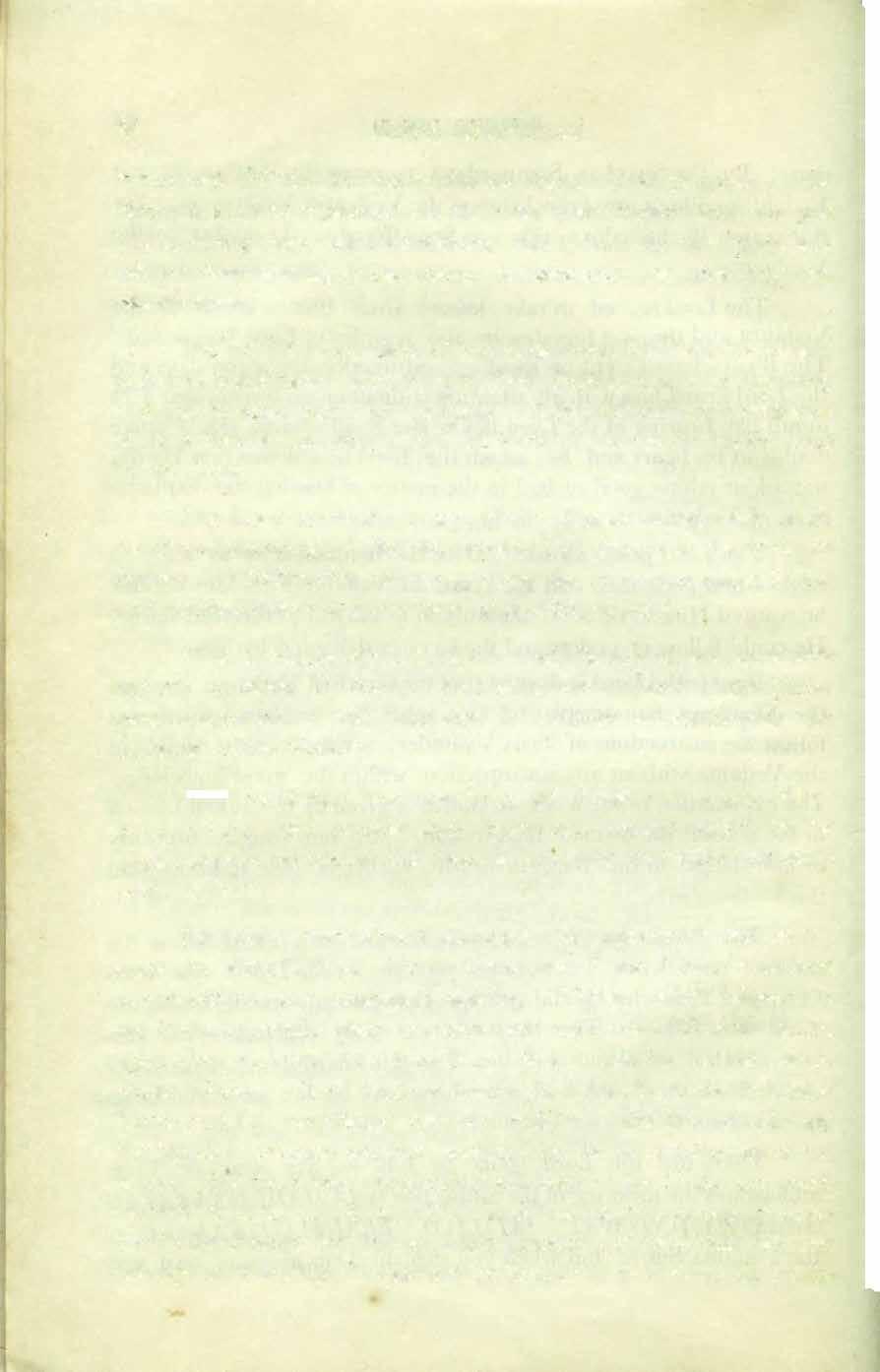
24
junctions ofthe Vedas. Lord Chaitanya condemned this class of followers ofthe Vedas.



Theexample ofthe conchshe11 andthatofthecowdung given by the Lord is very much appropriate in this connection Ifsome body argues that cowdung is the stool of a living creature and there fore the stool of a learned Brahmin will be still more pure, that sort of argument will not be accepted. The cowdung will be accepted and the stool ofa highly posted Brahmin will be rejected with equal abhorrence. The Lord therefore continued to say.
"The Vedic injunctions are self-authorised and ifsome mundane creature wants to adjust the interpretations ofthe Vedas certainly he will commit blunder upon the authority ofthe Vedas. It is foolish to think of oneselfas more intelligent than Srila Vyasa
He has already expressed himself in his Sutras and there is no need ofhelp from personalities of lesser importance. His set up ofthe Vedanta Sutras are as much dazzling as tl1e midday Sun and when some body wants to give his own interpretations on the selfeffulgent Sun-like Vedanta Sutras, certainly such person attempts to cover the sun with a kind ofcloud ofone's own imagination."
"The purpose of the Veda<; and Puranas are one and the same. They want to ascertain the Absolute Truth and the Absolute Truth is greater than everything else. The Absolute Truth is ultimately realised as the Absolute Personality ofGodhead v.rith Absolute Controlling Power. As such the Absolute Personality of Godhead must be completely full of opulence, strength, fame, beauty, knowledge and renunciation. And as such the transcendental Personality of Godhead is astonishingly ascertained as impersonal."
"The impersonal description ofthe Absolute Truth in the Vedas i�; meant for nullifying the mundane conception ofthe Absolutewhole. Personal features ofthe Lord is completely distinguished from all kinds of mundane features. The living entities are all individual persons and they are all parts and parcels ofthe Supreme whole. Ifthe parts and parcels are individual persons, the source oftheir emanation must not be impersonal. He is the Supreme Person amongst all the relative persons."

INTRODUCTION 25
SRIMAD BHAGWATAM
The Vedas inform us that fi·om Him (Brahman) everything emanates and on Him only everything rests. And after annihjlation everything merges in Him only. Therefore, He is the ultimate dative causative and accommodating cause of all causes. And all these causes cannot be ascertained to an impersonal object."
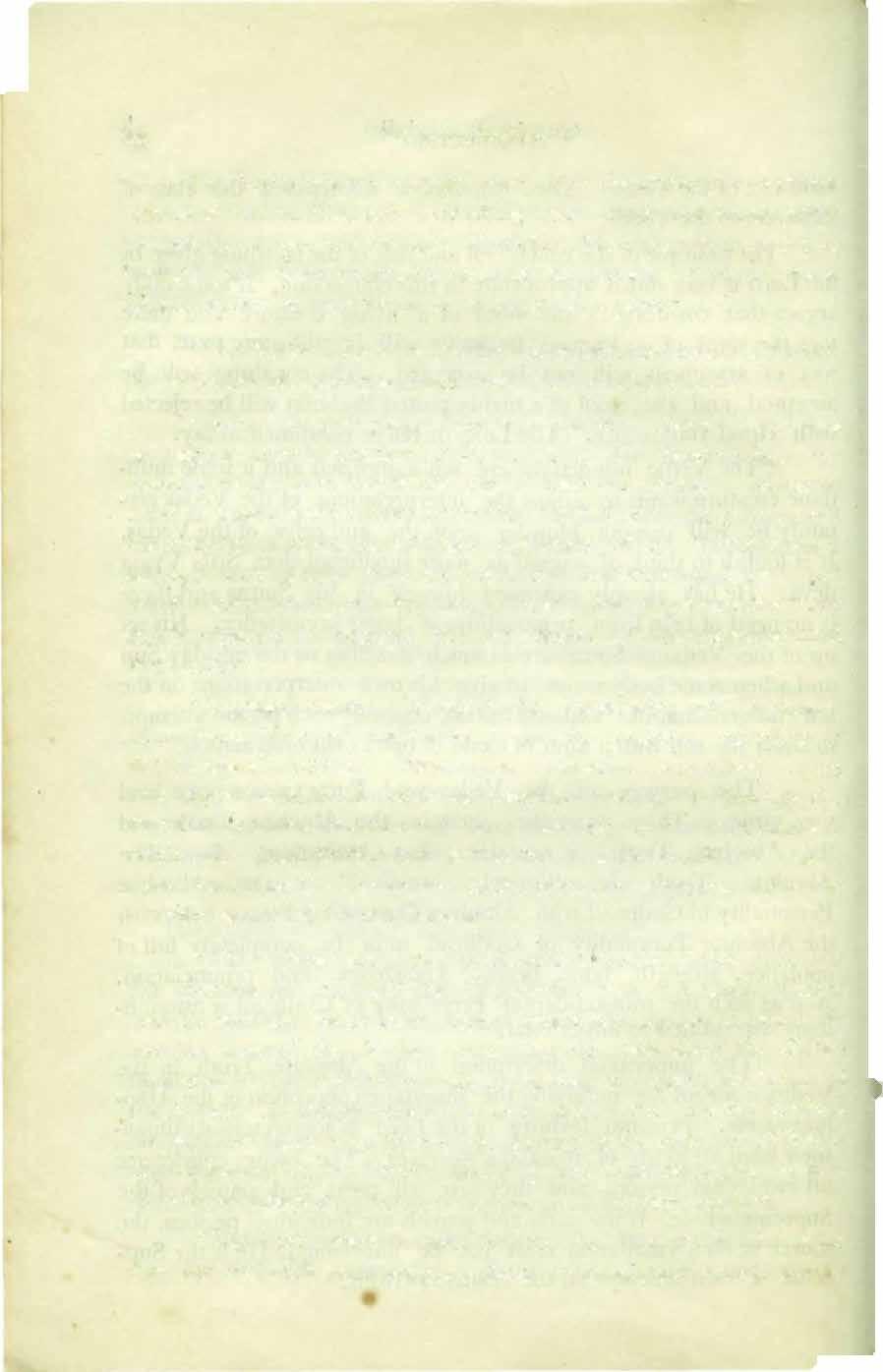
"The Vedas inform us that He alone becames many andwhen He so desires He puts His glance over the material Nature".


"Before His such glance over the material Nature, there was no material cosmic creation. And, therefore, His glancing over the material nature is certainly not one of material creation. '.Material mind or senses were unborn when the Lord placed His glance over the material Nature; and all these evidences of the Vedas prove it without any doubt that the Lord has transcendental eyes and mind disting�ished fi·om the material one. His impersonality there fore is negation of material but not denial of His transcendental Personality".
"Brahman means ultimately the Personality of Godhead. Impersonal Brahman realisation is just the negati,,e coneption of the mundane creations. Paramatma realisation is localised aspect ofBrahman within all kinds of material bodies. Ultimately the Supreme Brahma realisation is the realisation ofthe Personality of Godhead. Lord Sri Krishna is that Supreme Personality of Godhead according to all evidences ofthe revealed scriptures. He is the ultimate source ofVishnu Tatwas".
"The Puranas are also supplimentary to the Vedas. The Vedic mantras are too stiff for an ordinary man. vVomen, Sudras and the socalled twice-born higher castes are unable to penetrate into the sense of the Vedas. And thus the ltihasha or the Mahabharat as well as the Puranas are made easy fo explain the truths of the Vedas. In the prayers of Brahma before the boy Sri Krishna He said that there is no limit of the fortune ofthe residents ofBrajabhumi headed by Sri Nanda lviaharaj and Yasodamayee; because the eternal Absolute Truth has become their intimate relative."
"The Vedic mantra describes that the Absolute Tmth has no legs and no hands and yet goes faster than all and accepts every-
26
thing that is offered to Him in devotion. These statements of going faster or accepting everything by hand definitely suggest the Personal features of the Lord, although He is distinguished from mundane hands and legs or other senses."
"Brahrna is, therefore, never Impersonal but when such Mantras are indirectly interpreted it is wrongly established that the AboluteTruth is impersonal. The Absolute Truth Personality of Godhead is full ofall opuiences and therefore He has tanscendental Form offull existence, knowledge and bliss. How one can establish thus the Absolute Truth as impersonal."

"Brahman being fuJI ofopulences, it is understood that He has manifold energies and all such energies are classified under three headings under the authority ofVishnu Puranam (6/7/60). It says that the transcendetal energies of the Lord Vishnu are primarily three. His spiritual energy as well as the energy ofthe living entities are classified as superior energy whereas the material energy Is inferior one which is sprouted out of ignorance."
"The energy of the living entities is technically called Kshetrajna Etmg)'· This Kselztrajna Shakti although equal in quality with the Lord, becomes O\ er powered by material energy �mt of ignorance and thus sufferes all sorts ofmaterial miseries. In other words the living entities arc marginal energy between the suprerior spiritual and inferior material energy and in proportion ofthe living being's contact with either ofthe material or spiritual energies, the living entities become situated in proportionately higher and lower levels ofexistence."
"The Lord is beyond the inferior and marginal energies as above mentioned and His spiritual energy is manifested in three different phases. They are manifested as eternal existence, eternal bliss and eternal knowledge. So far eternal existence is concerned itisconducted by the Sarndhini potency, similarly bliss and knowledge are conducted by the Ahladini and Sambit potencies respectively. Asthe Supreme energetic Lord He is the Supreme contraHer ofthe spiritual marginal? and. material energ�es, And all these
INTRODUCTION 27
different phases ofenergies are connected with the Lord in eternal devotional service.''
"TI1e Supreme Personality of Gqdhead is thus enjoying in His transcendental eternal Form and therefore it is astounding that one may dare to call the Supreme Lord as non-energetic ?"
"The Lord is the controller of all the abovementioned energies and the living entities are parts and parcles of one ofthe energies. TI1erefore, there is a gulfofdifferencebetween the Lord and the living entities. How then one can say that the Lord and the living entities are one and the same thing."
"In the Bhagwat Geeta also the living entities are described to belong to the Superior energy ofthe Lord. On the principles ofintimate co-relation between the energy and the energetic, both' ofthem are non-different also. Therefore, the Lord and the living entities are non-different as the energy and the energetic".
"Earth, water, fire, air, sky, mind, intelligence and ego all these elements are inferior energies oftheLord but the living entities are different from all ofthem as superior energy and that is the version ofthe Bhagwat Geeta."
"TI1e transcendental form ofthe Lord is eternally existent and full oftranscendental bliss. How then such Form can be a product ofthe material mode ofgoodness ? Any one, therefore, who does not believe in the Form ofthe Lord, such person is certainly a faithless demon and as such he is untouchable, not tobe seen person-nongrata and fit to be punished by the regulation ofthe Plutonic king."
"The Buddhist are called atheist because they have no respect for theVedas but those who defy the Vedic conclusions as above mentioned under the cover of being follower of the Vedas,-are verily more dangerous than the Buddhists."
"Sri Vyasdeva very kindly compiled the clause ofthe Vedic knowledge in his Vedanta Sutras and ifsomebody hears the commentation ofthe Mayavadi school (as representated by the Shamkara Sampradaya), certainly such andience will })e misled on the path of spiritqal realis�.tion". -


28 SRIMAD BHAGWATAM
"The theory of emanations is the beginning for the Vedanta Sutra and as such all the cosmic manifestations are emanations from the Absolute personality of Godhead by His inconceivable different energies."
"The example ofthe touch-stone is verily comparable with the theory ofemanation. The touch-stone can convert unlimated quantityofiron into gold and still the touch stone remains as it is. Similarly the Supreme Lord can produce all the manifestive world by His inconceivable energies and yet He is full and unchanged. He is Purna (complete) and unlimited number of Pumas being emanated from Him, He is still Puma."

"The theory ofillusion by the Mayavada school is advocated on the ground that the theory ofemanation will cause transformation ofthe Absolute Truth. And in that case Vyasdeva will be put into error and to save this anomaly of the great Master, they have skilfully brought in the theory ofillusion." ,.
"The world or the cosmic creation is not illusion or false as itis advocated bythe Mayavada school. But it has no permanent existence. A non-permanent thing cannot be called as false altogether. But the conception ofthe material body by the living being, as his self,-is certainly wr9ng."
"Pranaba (Om) or the Omkara in the Vedas is the primeval hymn and the transcedental sound is identical with the Form ofthe Lord. All the Vedic hymns are based on this Pranaba Omkara."
"Tatwamasi" is but a side word of the Vedic literatures and therefore this word cannot be the primeval hymn ofthe Vedas instead ofthe Omkara. Sripada Shankaracharya has given more stress on the side word Tatwamasi than the primeval principle "0NKARA".
* The Lord thus spoke on the Vedanta Suti·as and defied all the propaganda ofthe Mayavada school. The Bhattacharya tried to defend himself and his Mayavada school by jugglery of logic and
*In our Chaitanya Charitamrita E"says and Text we have more elaboratelyexplainedalJttJ,es�phiiQsoph.i�;al iqtri��ci{'!s. Srima,d l3ha�wa�am cleijrS th.=;mall.


INTRODUCTION 29
grammer but the Lord was able to defeat all such jugglery of words by His forceful arguments. He affirmed that we are all related with the Personality ofGodhead eternally and the devotional service is our eternal function to exchange dealings of our relations. And the result ofsuch exchange ofdealing is to attain Prema or Love of Godhead. Vv11cn Love of Godhead is attained, love for all other beings automatically follows because the Lord is the sumtotal ofall the living beings.
The Lord said except these three items namely eternal relation vvith god, exchange ofdealings thereofand to attainto the stageLove ofGodhead, all that arc instructed in the Vedas are Superfluous only,and besides these three items everythingis concocted imagination
The Lord further added that the Mayabada Philosophy catered bySripad Shankaracharya is something imaginary explanation ofthe Vedas but it had to be done by Him (Shankaracharya) because He was ordered to do so by the Personality ofGodhead. In the Padmapuranam it is stated that the Personality of Godhead ordered His Lordship Shiva to deviate the human race from Him (the Personality of Godhead). The Personality of Godhead was to be so covered that people may be encouraged to generate more and more population. His I.ordship 11ahadeva said to the Devi "In the Kaliyuga, I shall preach the !\Jayavada Philosophy which is nothing but clouded Buddhism, in the garb ofa Brahmin."
After hearing all these speeches of the Lord Sri Chaitanya Mahaprabhu, the Bhattacharya was struck with 'vonder and-awe and began to see Him in dead silence. TheLord then encouraged him with assurance that there was no cause of wonder, "I say that
DEVOTIONAL SERVICE UNTO THE PERSONALITY OF GODHEAD
IS THE HIGHEST NEED OF HU�1AN LIFE". He than quoted a sloka from the Bhagwat and assured him that even the liberated souls who are absorbed in the Spirit and spiritual realisation, do also take to the devotional service ofthe Lord Hari because the Personality ofGodhead has such transcendental qualities as He attracts the heart ofthe liberated soul too.
Then the Bhattacharya desired to listen to the explanation of the �'Atma.n�ma" slo.ka, frQrn the Bha�wat (117/10);on which th<;

30
SRIMAD BHAGWATAM
Lord first of all asked Bhattacharya to explain it and after that He would explain. The Bhattacharya then scholarly explained the sloka with special reference to logic. He explained the sloka in nine different 'ivays chiefly based on logic because he was the most renowned scholar oflogic of the time.

TLe Lord after hearning the Bhattacharya thanked him for the scholarelypresenta6on of the sloka and then on the request ofthe Bhattacharya the I.ord explained the sloka in sixty four different ways without touching the nine different explanations given by the Bhattacharya.
Thus after hearing the explanation ofthe Atmarama sloka* from the Lord, the Bhattacharya \>vas convinced that such a scholarly presentation of the sloka is impossible to be done by any earthly creature. Before this he was tried to be convinced by Sri Gopinath Acharya about the Divinity ofthe Lord but at that time he could not so accept Him. At the present moment the Bhattacharya was astounded by the Lord's exposition ofthe Vedanta Sutra and explanations of the Atmarama sloka. And thus he began to think within himselfthat he committed a great offence at the lotus feet ofthe Lord without recognising Him to be Krishna Himse1f. He then surrendered unto Him repenting his past dealings with Him and the Lord was kind enough to accept the Bhattacharya. Out of His causeless mercy the Lord manifested before-him first as ' four handed Naraym�a and then again as two handed Lord Krishna with the flute in His hand.
The Bhattacharya at once fell dmvn on the lotus feet of the Lord and composed many suitable slokas in praise of the Lord by the Grace ofHim. He composed almost one hundred slokas in praise ofthe Lord. The Lord then embraced him and out of transcendental ecstacy the Bhattacharya became unconscious ofthe physical state oflife. Tears. tremoring, throbing of the heart, perspiration, emotional waves, dancing, singing, crying and all the eight symp-
"' Thecompletetext ofthe explanation given bythe Lord willform abook· let itselfand thereforewe have tried to presentit in a different chapter in our Chaittanya Charitamrita EssaysandTexts.
INTRODUCTION 3i
..
toms oftrance were manifested in the body ofthe Bhattacharya. Sri Gopinath Acharya became very glad and astonished on this marvellous conversion of his brother-in-law by the Grace of the Lord.
Out ofthe 100 celeberated slokas composed by the Bhattacharya in praise ofthe Lord, the following two are most important and these two slokas explain the mission ofthe Lord in gist. They are as follows.
1. "Let me surrender unto the personality of Godhead who has appeared now as Lord Sri Chaitanya Mahaprabhu. He is the ocean ofall mercy and has come down to teach us material detachment, learning and devotional service ofHimself."
2. "Pure devotional service ofthe Lord having been lost in oblivion oftime, the Lord has appeared to renovate the principles and therefore I do c.ffer my obeisances unto His lotus feet."
The Lord explained the word Mukti as equivalent ofthe word Vishnu or the Personality of Godhead. And to attain Mukti or liberation from the bondage of material existence is to attain to the service ofthe I.ord.

The Lord then proceeded towards South India for some time and converted every one He met on the way to become a devotee of Lord Sri Krishna. Such devotees also converted many others to the cult ofdevotional service or Bhagwat Dharma of the Lord and thus He reached on the bank ofthe Godavari where He met Srila Ramananda Roy the Governor of Madras on behalfof Maharaj Prataprudra the king of Orissa. His talks with Ramananda Roy is very much important in the matter of higher realisation oftranscendental knowledge and the conversation forms itselfa small booklet. vVe shall however try to give herewith a gist ofd1e conversation as follows :-
Sri Ramananda Roy was a self realised soul although outwardly re belonged to a caste lower than the Brahmin in social convention. He was neither in renounced order of life and besides that he was a high government servant in the State. Still Sri Chaitanya Mahaprabhu accepted him as one ofthe liberated soul
32
SRIMAD BHAGWATAM
on the strength of high order of realisation of transcendental knowledge. Similarly the Lord appointed Srila Haridas Thakur a vetern devotee ofthe Lord hailing from the Mohamedan family. And there arc many other great devotees ofthe Lord who hailed from different communities sects and castes ofthe then social status oflife. But the Lord's only critarian was to see the standard of devotional service ofthe particular person. He was not concerned with the outward dress ofa man but He ,,vas concerned only with the inner soul and it its activities. Therefore the whole missionary activities of the Lord are to be understood as standing on the spiritual plane and as such the cult ofSri Chaitanya lVfahaprabhu or the cult of Bhagwat Dharma has nothing to do with mundane affairs of sociology, politics, economic devolopment or any such spheresoflife. Srimad Bhagv1rat is purely transendental urge ofthe soul.
When he met Shri Ramananda Roy on the bank of the Godavari the conversation began with the subject matter of Varnashram Dhrama followed by the Hindus. Srila Ramananda Roy said that by following the principles ofVarnashran Dharma or the system offour castes and four orders ofhuman life it should be followed by every one in order to realise transcendence. In the opinion of the Lord the system of Varna Ashram Dharma is superficial only and it has very little to do with the highest realisa� tion ofspiritual values. Because the highest perfection oflife is to get detached from the material attachment and proportionately realise the transcedental loving service ofthe Lord. The personality of Godhead recognises a living being who is progressing in that line. Devotional servi�e is, therefore, the culmination ofthe(culture of all knowledge. 'Vhcn Sri Kishna the Supreme Personality of Godhead appeared for the deliverance ofall fallen souls, He advised for clear cut deliverance of all living entities as follows. The Supreme Absolute Personality of Godhead from whom all living entities have emanated, must be ,,vorshipped by all by their respective engagements, because every thing that we see is also the expansion ofHis energy only. That is the way ofreal perfection and isapproved by all bonafide Acharyas past and present. The system of Varnasharam is more or less based on the principles 9f moral and

INTRODUCTION 33
ethical rules. There is very little realisation of the transcendence as such the Lord Sri Chaitanya Mabaprabhu rejected it as superficial and asked Ramananda Roy to go further up.

Sri Ramananda Roy then suggested renunciation ofthe fruitive actions rmto the Lord. The Bhagwat Geeta advices in this connection as followes. "vVhatever you do, whatever you eat and whatever you give as well as whatever you may perform in penance, all must be offered to Me alone". This dedication on the part of the worker suggests the Personality ofGodhead a step higher than the impersonal conception of the Varnashram system but still the relation ofthe living being and the Lord is not distinct in that way. The Lord therefore rejected this porposition and asked Ramananda Roy to go further on.
Roy then suggested renunciation ofthe Varnashram Dharma and acceptance of devotional service. The Lord did not approve of this suggestion also for the reason that all of a sudden one may not renounce his position and that will not bring in the desired result.
It was further suggested by Roy that attainment of spiritual realisation freed from the material conception oflife is the topmost achievement by a living being. The Lord rejected this suggestion also because on the plea of such spiritual realisation many havoc may be done by the unscupulous persons and therefore all ofa sudden this is not possible. The Roy then suggested sincere association ofself realised souls and to hear submissively the transcendental message of the pastimes of the Personality of Godhead from any wordly position. This suggestion of Sri Ramananda Roy was welcomed by the Lord. This suggestion was made following the foot prints ofBrahm<�ji who said that the Personality of Godhead is known as 'Ajita' or the One \Vho cannot be conquered or approached by any one. But such Ajita also becomes ]ita (conquered) by one method which is very simple and easy. The simple method is that one ha'> to give up the arrogant attitude of declaring oneself as God Himself. One must be very meek and submissive and try to live peacefully by lending the ear to the speeches of the transcendentally self realised soul vyho speaks on the message of Bhagwat
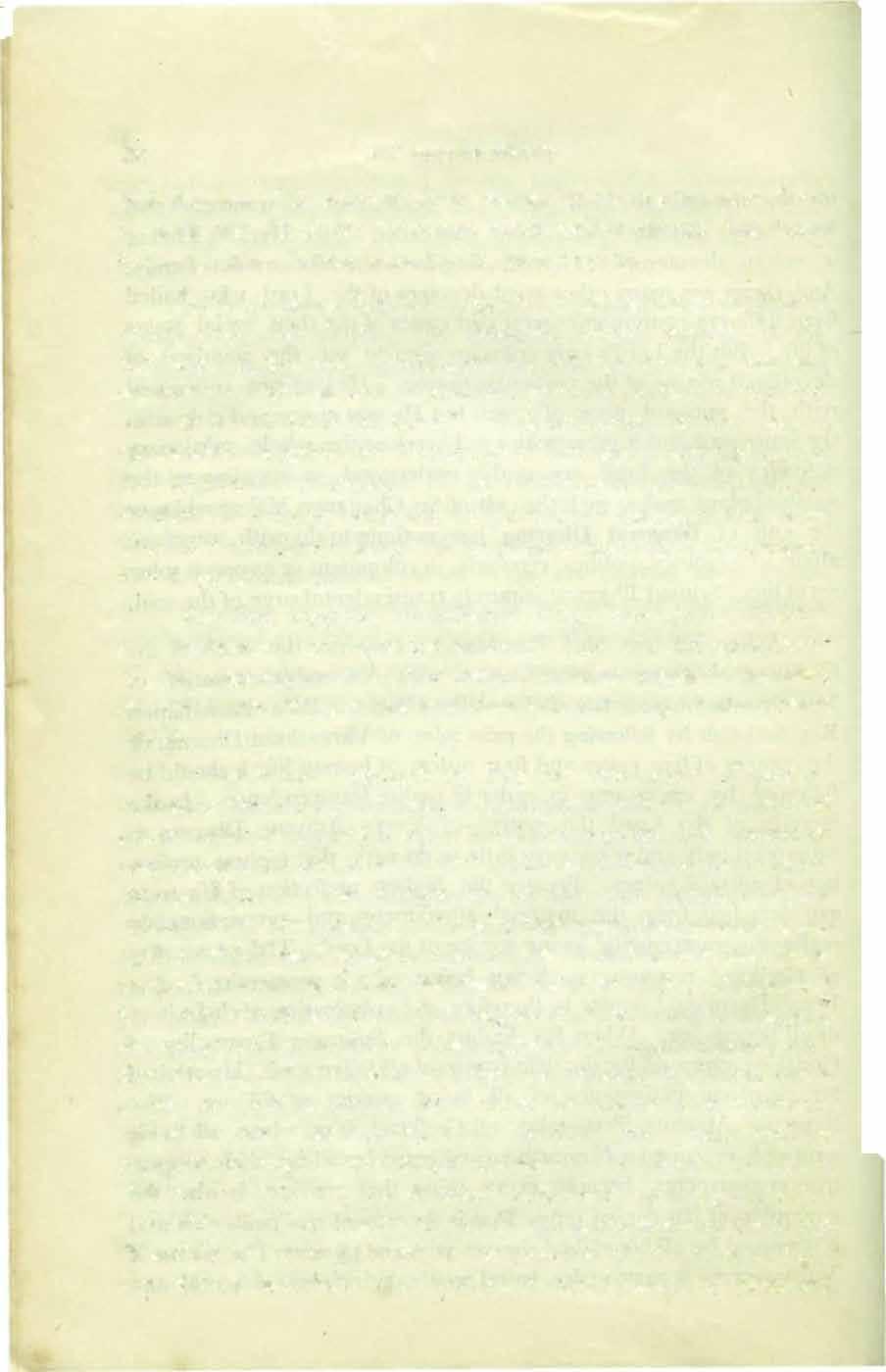
34 SRIMAD BHAGWATAM
Dharma or the Religion ofGlorifying the Supreme Lord and His devotees. To glorify a great merit is a natural instinct for living being but artificially they have learnt not to glorify the Lord. Perfection of life is attained simply by glorifying the Lord in association *ofself-ralised devotee of the Lord. Self realised devotee is he who surrenders unto the Lord fully without any further attachment for material prosperity. Material prosperity and sense enjoyment and advancement oflearning thereof, are all activities of ignorance in the human society. Peace and friendship are impossible propositions in the light of a detached society from the association of God and His devotees. It is imperative, therefore, that one should sincerely seek for the association of pure devotees and hear them patiently by submissive aural reception from any position oflife. The position of a person in the higher or lower status oflife does not hamper in the path of self realisation. The only thing one has to do is to hear from self-realised soul with a routine programme. And the speaker may deliver lectures from the standard of Vedic literatures following the foot prints ofthe bygone Acharya who realised the Absolute Truth. Lord Sri Chaitanya Mahaprabhu recommended this simple method of self realisation generally known as Bhagwat Dharma. Srimad Bhagwatam is perfect guide for this purpose.
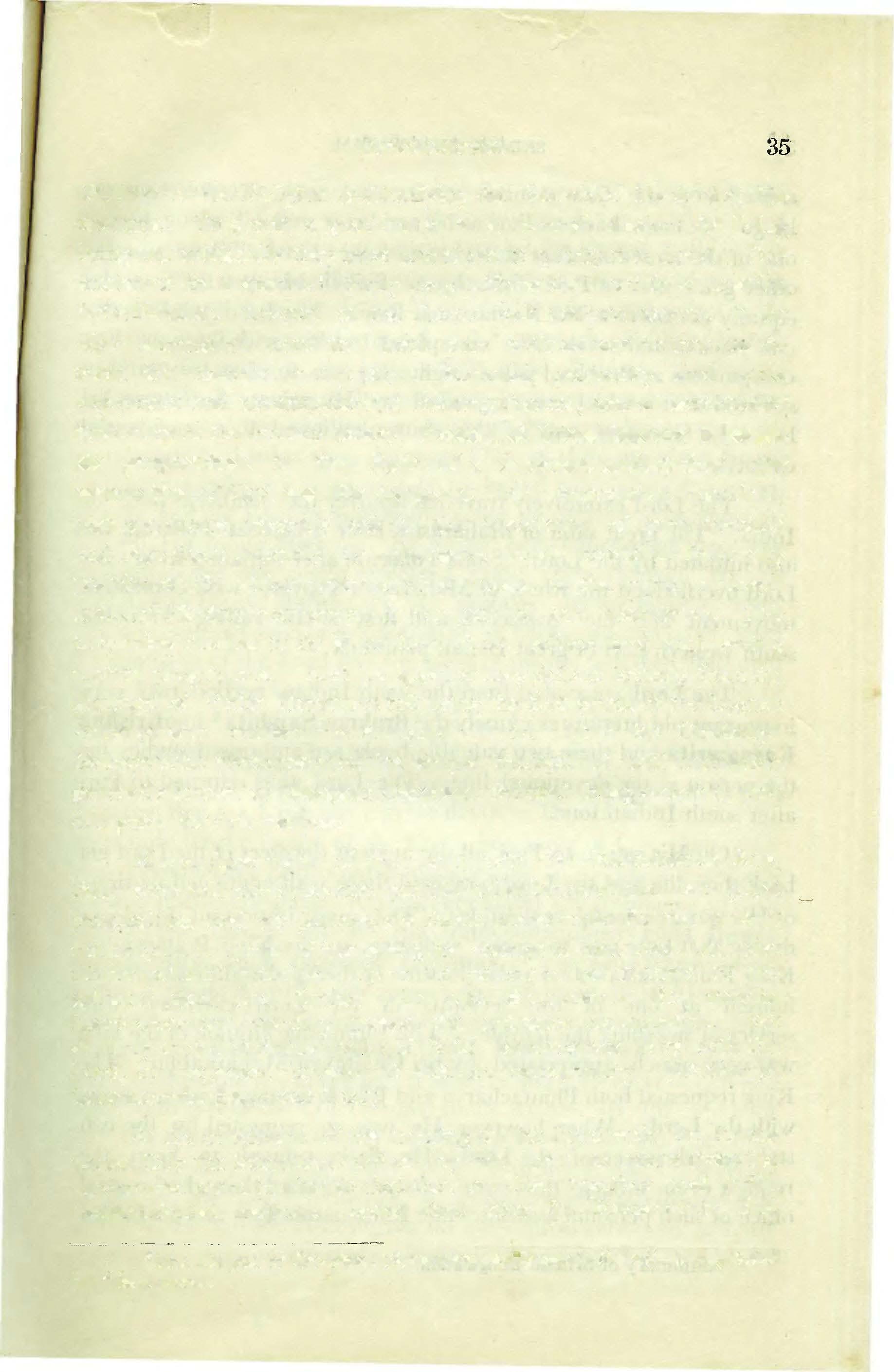
Above these topic of the Lord \vith Sri Ramananda Roy, there were still more elevated spiritual talks between the two great personalities and we purposely withhold those topics for the present not only on the point ofincreasing the volume of this book but also on the point of principle. Up to this point one has to come to the spiritual plane and further talks with Ramananda Roy may be heard when one has duly passed the entrance examination. We shall try to depict further talks of Srila Ramananda Roy with the Lord, in a separate booklet at suitable opportunity. (Chaitanya Charitamrita Essay and Text).
At the conclusion ofthis meeting of the Lord with Sri Ramananda Roy the latter was advised by the Lord to retire from the service and come to Puri so that they can live together and relish transcendental mellows. Some time after Sri Ramananda Roy
*The League ofDevotees (SarbabhoumaBhagwat Samaj) is .t;egistered forthis purpose.
INTRODUCTION 35
retired from the Government service and took pension frcm the king. He came back to Puri at his resiclence and all along he was one of the most confident;al devotees of the Lord, There was another gentleman at Puri ofthe name Shikhi l\!Iaity who ·was also equally confidentiallikeRamananda Roy. The Lord used to discuss most confidential talks on spiritual values with three or four companions at Puri and passed eighteen years in that way and in spiritual trance which were recorded by His private Secretarry Sri Damodar Goswami one of the abovementioned four confidential devotees.

The Lord extensively travelled all over the southern part of India. The great saint of Maharastra known assaint Tukaram was also initiated by the Lord. Saint Tukaram after initiation from · the Lord overflodded the whole' of Maharastra Provin�e with Samkirtan movement and the transcendental flow is still rolling on in the south western part ofgreat Indian peninsula.
The Lord excavated from the south Indian portion two very important old literatures namely the Brahma Samhita* anclKrishna Karnamrita and these two valuable books are authorised studies for the person in the devotional line. The Lord thus returned to Puri after south Indian tour.
On His return to Puri all the anxious devotees ofthe Lord got back their life and the Lord remained there with contiiJ.ucd pastimes of His transcendental realisations. The most important incidence during that timr was to grant audience to tl�e King Prataprudra. King Prataprudra was a great dcyotee of the Lmd aLd he considered himself as one of the servants of the Lcrd entiUsted with service ofsweeping the temple. This submissive attitude of the king was very much appreciated by Sri Chaitanya Mahaprabhu. The Kingrequested both Bhattacharya and Roy to arrange for his meeting with the Lord. \Vheu however l-Ie was so requested by the two stalwart devotees of the Lord, He flatly refused to keep the request even though the same ,,vas put forward through the good office of such personal associates like Ramananda Roy and Sarbabho-
*Summary of SrimadBhagwatam.


36
SRIMAD BHAGWATAM
uma Bhattacharya . The reason is thal it is dangerous for a Sanyasi to be in intimate touch with wordly men of £. s. p. and that also with woman. The Lordvvas anidealSanyasi . No woman could approach the Lord even for offering respects.\\'omen's seats \vere accomodated far aw ay ft:om the Lord. As an ideal teacher and Acharya He ·was very strict in the routine work ofa Sanyasi. Apart from His part of Divine Incarnatoin, the Lord was an ideal character as a human being. His behaviour with respective persons were always above susp1non. In His dealing as Acharya He was harder than the thunderbolt and softer than the rose. One of His associate Junior Haridas committed a great mistake by lustful glanciiJg over a young woman and the Lord as Supersoul, could detect this misgivings in tl:e mind ofJunior Haridas. He was at once chucked off from His association and was never accepted again even thoungh He was implored to excuse Haridas for the mistake. Junior Haridas afterwards committed suicide in frustration ofbeing disassociated from the company ofthe Lord and the news of suicide was duly informed tothe Lord. The Lord even up to that time was not forgetful of the offence and He said that Haridas had rightly met with the proper punishment. On the Principles of the order oflife and dis-· cipline the Lord knew no compromise and therefore even though He k11ew that the King was a great d evotee, He refused to sec the King only for the reason of the king' s Lecoming a £. s. man. By these examples the Lord wanted to emphasise on the point ofbehaviow· bya transcendentalist. A transcendentalist has nothing to do with women and money and he (the transcendentalist) must always refrain from such intimate relations. The King \vas howeYer f�rvourecl by the Lord by the expert arrangement of the devotees. This means that tl:e beloved devotee of the Lord can favour a neophyte more liberally than the Lord. Pure devotees, therefore ' never commit offence at the feet of another pure devotee. Offi:.·nce at the lotus feet of the Lord is some times excused by the merciful Lord but offence at the feet of a devotee is very muc!J dangerous fur one who actually '"auts to make progress in the� devotional service . As long as the Lord remained at Puri thousands of His devotees used to come and see Him during the car-festival ceremony ofLord Jagannath . And during the carfestival ceremony, the washing of
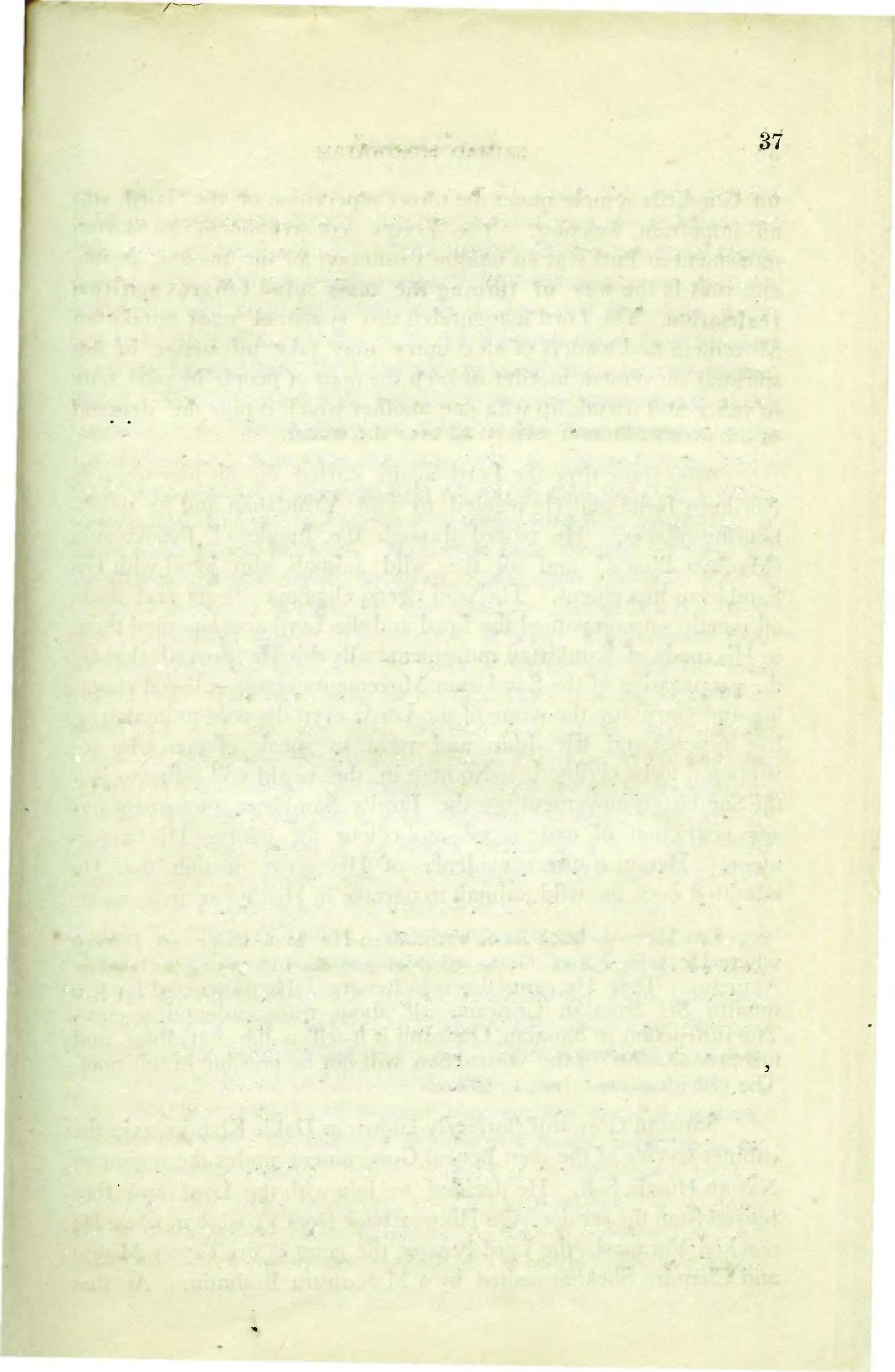
lNTRODUCTION 37
the Gundicha temple underthe direct supervi.;;ion of the Lord, was an important function. The Lord's congregational Samkirtan movement at Puri was an unique exhibition for the mass of people and that is the way of turning the mass :mind towards spiritual realisation. The Lord inaugurated this system of mass Samkirtan :rvfovement and leaders of all country may take advantage of this spiritual movement inorder to keep the mass ofpeople in pure state ofpeace and friendship \�ith one another which is now the demand of the present human society all over the world.
After some time the Lord again started on his tour tmvards Northern India and He wanted to visit Vrindaban and its neighbour·ing place-s. He passed through the Jungles of Jharikhanda (Madhya Bharat) and all the wild animals also joind with His ·Samkirtan movement. The wild tigers, elephants, bears and deers all together accompanied the Lord and the Lord accompanied them in His mode of Samkirtan movement. Bythis He proved that by the propagation ofthe Samkirtan Movement (congregational chanting and glorifying the name ofthe Lord) even the wild animals can live in peace and fi'iendship and what to speak of men who are supposed to be civilised. No man in the world will refuse tojoin the Samkirtan movement nor the Lord's Samkirtau movement has any restriction of caste creed and colour for joining His movement. Herein is direct evidence of His great mission that He admitted even the wild animalsto partake in His great movement.
On His way back fi'om Vrindaban He first came to Prayag where He met Rupa Goswami along with his younger brother Anupam. Then He came down to Benares. He instructed for two months Sri Sanatan Goswami all abovt transcendental science. The instruction to Sanatan, Goswami is it-self a big narration and full presentation of the instruction will not be possible in this note. The gist ideas are given as follows.
Sanatan Goswami (formerly known as Dabir Khan) was in the cabinet service of the tl1en Bengal Government under the regime of Nawab Husain Sah. He decided to join with the Lord and thus tetired from the service. On Hiswayback fromVrindaban when He reached Varanasi, the Lord became the guest ofSri Tapan J'v1ishra and Chandra Shekhar assited by a Maharastra Brahmin. At that
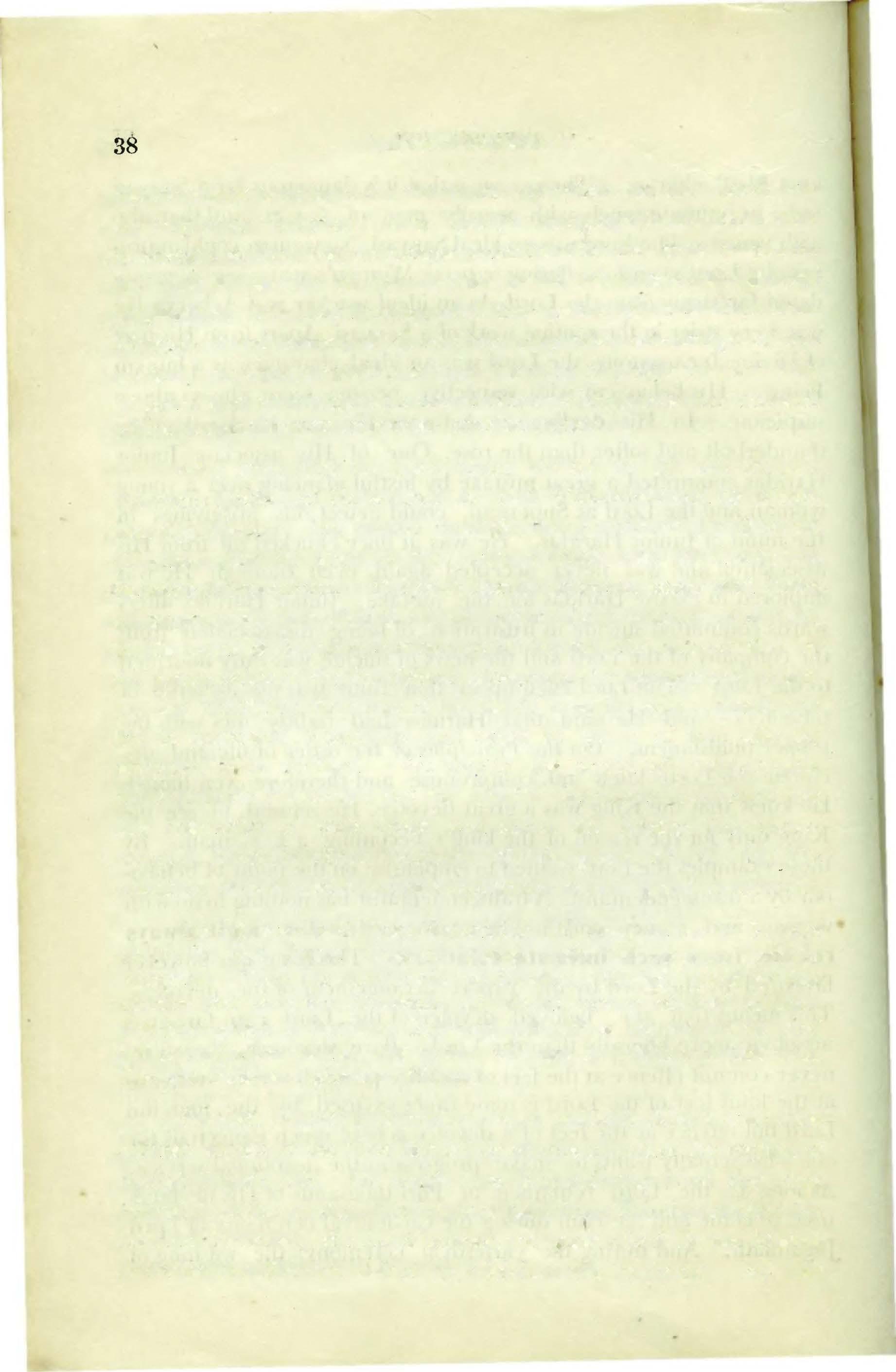
SRIMAD BHAGWATAM
time Varanasi was headed by a great Sanyasi ofthe Mayavada school and his name was Sripad Prakashananda Saraswati. �VVhen the Lord was at Varanasi the people in general became more attracted with Lord Chaitanya Mahaprabhu on account of His mass movement ofSamkirtan. vVherever He visited specially during the time ofH1s going to Vishwanath temple, thousands of pilgrims used to follow Him some being attracted by His bodily features and others being attracted by His melodious songs in glorifying the Lord.
The l'vfayavadi Sanyasins designate themselves as Narayana. And Varanasi is still over:flooded \-\'ith many Mayavadi Sanyasins. Some people who saw the Lord in the mode of His Samkirtan movement, considered Him to be actual Narayana and the report ,vas reached in the camp ofthe great Sanyasi Prakashananda.
In India there is always a kind ofspiritual rivalry between the Mayavad and the Bhagwat school and as suchwhen the news ofthe Lord reached Prakashananda he could know that the Lord was a Vaishnav-Sanyasi and therefore, he minimised the value of the Lord before those who brought him the news ofthe Lord. He deprecated the activities of the Lord on account ofHis preaching the Samkirtan Movement which was in his opinion nothing but a religious sentiment. He was a profound student of the Vedanta and he advised his followers to give attention to the Vedanta than indulge in the so called Samkirtan.
One devotee Brahmin, who became a devotee ofthe Lord, did not like the criticism ofPrakashananda upon the Lord and he came to the Lord to express His sorry feelings. He said to the Lord that on his utterance ofthe Lord's Name Chaitanya before the Sanyasi Prakashananda, the latter strongly criticised Him although he heard him uttering several times the name Chaitanya. The Brahmin was astonished to see that the Sannyasi Prakashananda could not vibrate the sound Krishna evew for once although he uttered the name Chaitanya several times.
The Lord smillingly replied to the devotee Brahman about the reasons ofnon-utterance ofthe holy name ofKrishna by the Mayawadi Sannyasi. He said as follows : "The Mayavadis are pffenders at the Lotvs feet of Krishna although they utter always

/ INTRODUCTION 39
"_Brahman", "i\.tma", or "Chaitanya" etc. And because they are offenders at tbe Lotus feet of Krishna, they are practicaJJy unable to utter the holy name ofKrishna The name Krishna and the Personality of Godhead Krishpa are identical. There is no difference in the Absolute realm between the Name Form or Person of the Absolute Truth because in the Absolute Realm everything is transcendental bliss. There is no difference of body and soul in the Personality ofGodhead Krishna distinguished from that ofthe living being who is always different from the outward body. On account ofthis transcendental position of Krishna, it is very difficult for a lay man to know actually about the Personality of Godhead Krishna, His holy name and Ji'ame etc. J-Iis name fame form and pastirncs all are one and the same transcendental identity and they are not knowable by the exercise ofmaterial senses.''
"The transcendental mellow ofthe Pastirnes of the Lord is the source ofstill more bliss than one can experience by realisation ofBrahman or becoming one with the Supreme. Had it not been so then those who are already situated in the transcendental bliss of Brahman would not have been attracted by the transcendental bliss ofthe Pastime ofthe Lord."
After this a great meeting was arranged by the devotees of the Lord in which all the Sannyasins were invited including the Lord and Prakashananda Saraswati. In this meeting both the scholars (the Lord and Prakashanada) had a long discourse on the spiritual values of Samkirtan movement and the gist idea is given below.
'The great Mayavadi Sanyasi Prakashananda enquired from the Lord as to the reason of His diversion to the Samkirtan movement instead of studying the Vedanta Sutras. He said that it is the duty ofa Sanyasi to read the Vedanta Sutras and v.rhat was the cause that He indulged in Samkirtan.
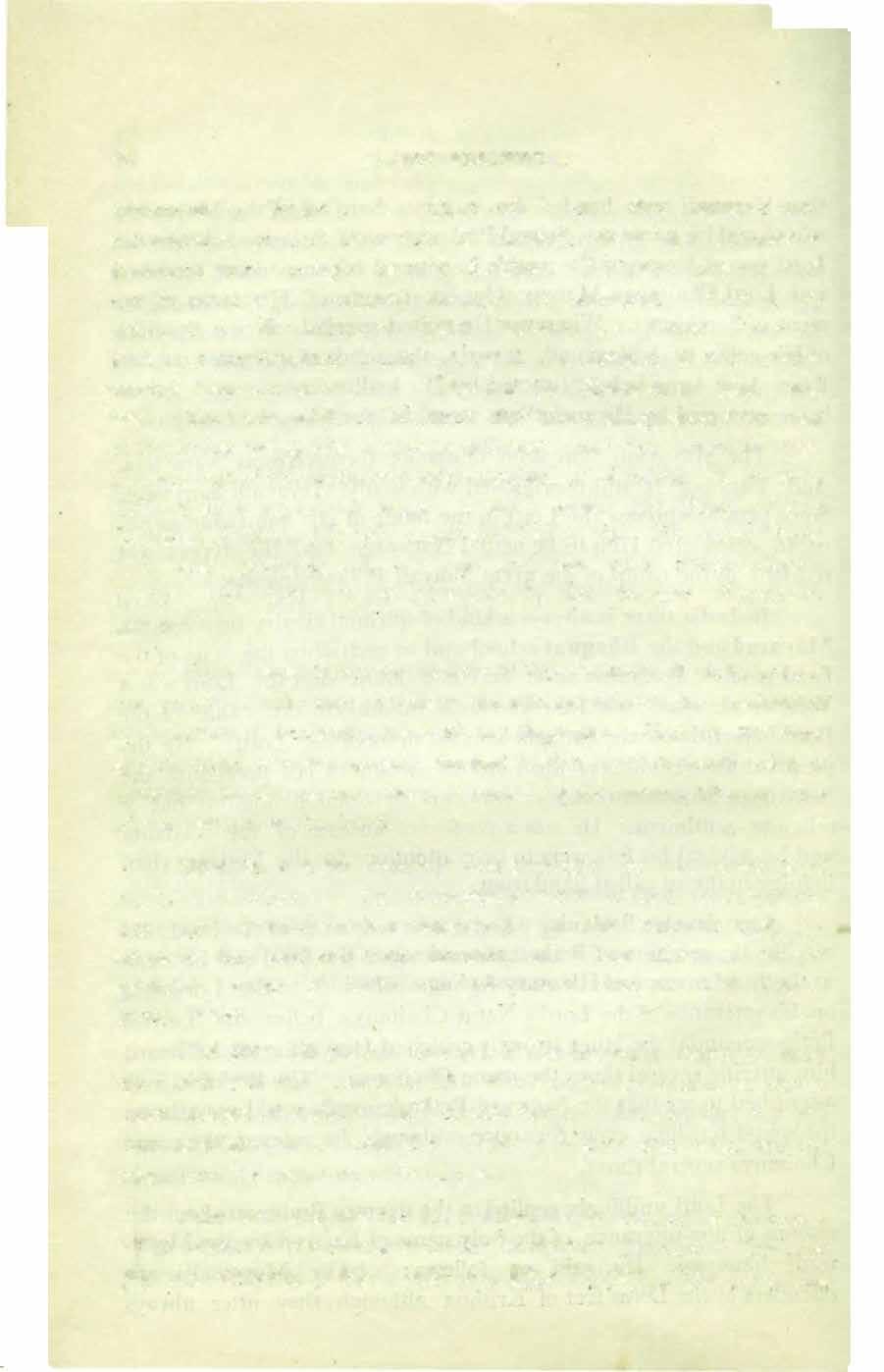
After such enquiry the Lord submissively replied as follows :"The reason ofmy diversion to the Samkirtan movement fi·om the Study ofVq:lanta is that lAM A. GRf:A-T fOOL, The Lord thll�

40
SRIMAD BHAGWATAM
represented Himselfas one ofthenumberless fools of this age who are absolutely incapable to study the Vedanta Philosophy. Fool's indulgence in the study of Vedanta has caused so many havocs in the society and, therefore, He continued to say "And because I am a great fool so my spiritual master forbade Me play with Vedanta Phil()sophy. He said better I may chant the holy Name ofthe Lord and that would deliver Me from the material bondage".
"In this age ofKali there is no other religion than glorifying the Lord by utterance ofHis holy name and that is the injunction of all the revealed scriptures. And myspiritual ]\;faster has toughtme one sloka (fi·om the Brihannaradiya Puranam) which is as follows :-
HARER NAMA HARER NAMA HARER NAMAIHA KEVALAM KALAU NASTEVA NASTEVA NASTEVA GATIR ANYATHA."

"So on the order ofmy spirit�al master I chant the holy name ofHari and I am now mad after this holy Name whenever I utter the holy Name. I forget myselfcompletely and as such some times I laugh, cry, dance, like a mad man. I thought within myself if I have not gone actually mad by this process ofchanting the holy Name and therefore enquired from my Spiritual Master about it. I told him that I have become now mad by chanting the holy Name and whatis this please let me know."
"My spiritual master informed me that it is the real effect of chanting the holy Name that it produces a transcendental emotion which is a rare manifestation. It is the sign oflove ofGod which is theultimate end of life. The Love of God is transcendental to liberation (JJukti) and as such it is called the fifth stage of spiritual realisation above the stage ofliberation. Actual result of chanting the holy Name ofKrishna is to attain the stage of Love ofGod and it wasgood that fortunately I was favouredwith the blessings."
On hearing this statement from the Lord the ]\;fayavadi Sanyasi.enquired fi·om the Lord what was the harm if He would study the Vedanta along with the chanting of the Holy Name. Pra}<�s�a,n�nq<:t Sarsaw('ttiknew it well t�attheL_<?rd '\Vas formerly known
INTRODUCTION 41
as Nemai Pandit a very learned scholar of Nabadwipa and His representation as a great Fool vvas certainly impregnated with some purpose. So on this enquiry by the Sanyasi the Lord smiled and said "My dear sir, ifyou do not mind it then I can reply your enquiry.''
All the Sanyasins there were very much pleased on the Lord for His simple dealings and they unanimously replied that they would not mind for whatever He may reply. The Lord then began to say as f(:Jllows :-
"Vedanta Sutra is transcendental words or soundsuttered by the transcendental Personality ofGodhcad. As such in the Vedanta there cannot be any human deficiencies like mistake, illusion, cheating or inefficiencies. The message of Upanishads is expressed in the Vedanta Sutras and what is said there directly is certainly glorified by themselves."
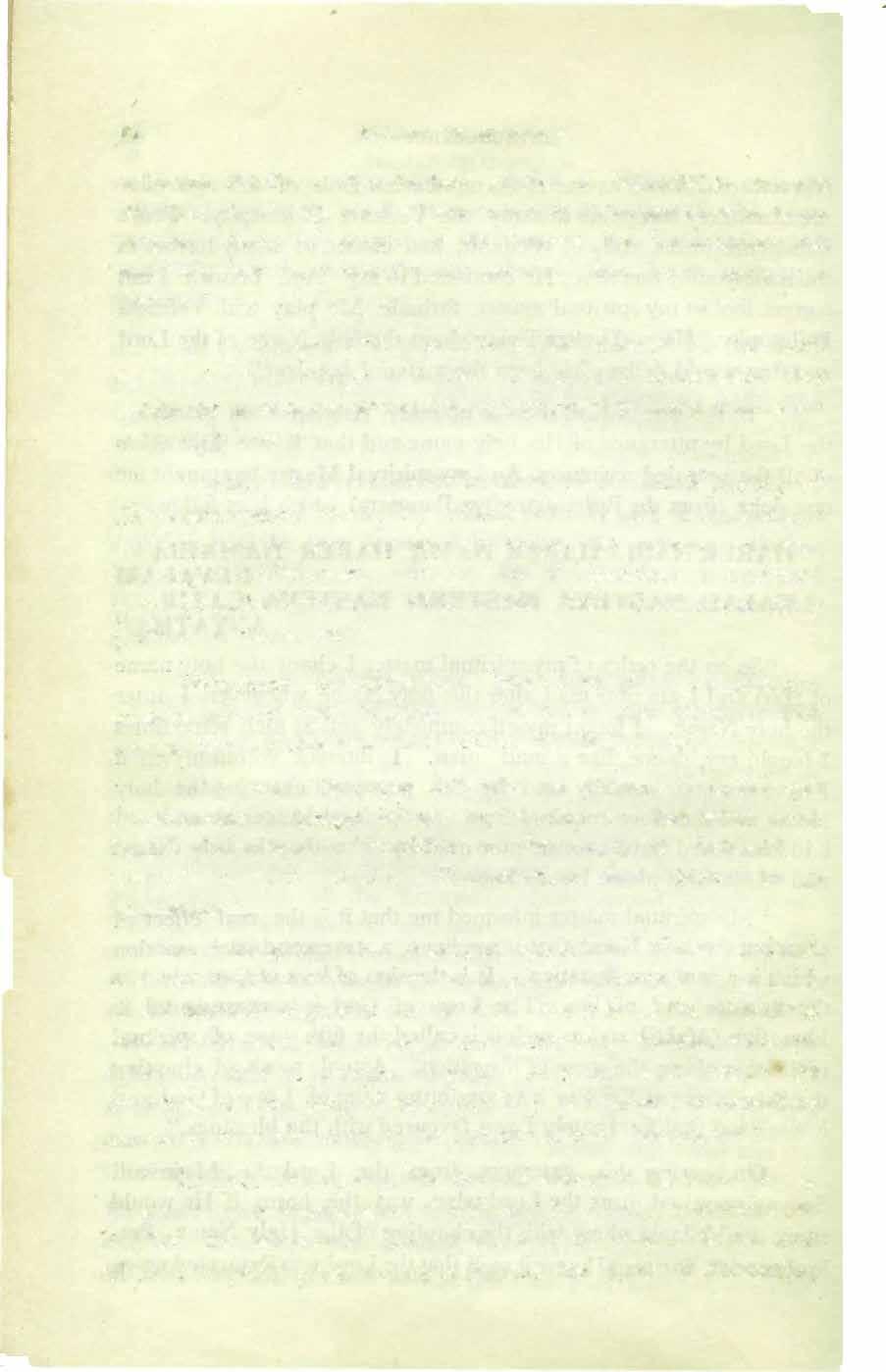
"\Vhatcvcr interpretations have been given by Shankaracharya have no direct bearings on the Sutras and therefore such commentation makes everything spoiled for the purpose."
"The word Brahman indicates the greatest ofall, fullvyith transcendental opulcnces without any one else on the same level. Such Brahman who is ultimately the Personality of God-head is covered by such indirect interpretations and established as Impersonal''.
"Every thing that is in thespiritual \vorld is full oftranscendental bliss including the Form, body, place and parapharnalia ofthe Lord; all are eternally cognisant and blissfull. But Jt is not the fault ofthe Acharya Shankara that he has so interpreted but ifsomebody accepts it then certainly he becomes doomed. Any one who accepts the the transcendental body ofthe Personality ofGodhead as something mundane, certainly commits the highest order of blasphemy"
The Lord thus spoketo the Sanyasi almost in the same line as He spoke to the Bhattacharya ofPuri and by forceful arguments He nullified the 11ayavada interpretations of the Vedanta Sutra. And all the Sannyasins present there reclaimed the Lord as Personified


42
SRIMAD BHAGWATAM
Vedas and directly Lhc Personality ofGodhead. All the Sanyasins became converted to the cult of Blzakti and all ofthem accepted the Holy Name ofthe Lord Sri Krislma. All of them dined together with the Lord in the midst of them. After this conversion of the Sanyasins the popularity ofthe Lord became more conspicuous at Varanasi and thousands ofpeople assembled to see the Lord in person. The Lord thus established the primary importance of Srimad Bhagwat Dharma and He defeated all other system of spiritual realisation. Since then every one at Varanasi became overwhelmed wilh the transcendental San1kirtan movement.
·while the Lord was camping at Varana.si Sanatan Goswami also arrived there after retiring from office. He ·was formerly one ofthe state ministers in the government of Bengal then under the regime ofNawab Hussain Shah. He bad some difficulty in getting relieffrom the state service as the Nawab was reluctant to leave him. He came to Varanasi and the Lord tought him all about the principles ofdevotional service. He tought him about the constitutional position ofthe living being the cause of his bondage under material conditions, his enternal relation with the Personality of Godhead. He was tought about the transcendental position ofthe Supreme Personality of Godhead, hmv He expands Himself in different plenary portions of incarnations and hmv does He dominate in different parts of tbe universe and the nature ofHis transcendental abode. He \vas tought about the devotional activities, its different stages of development and the rules and regulations for achieving the gradual stages of spiritual perfection. He was tought about the symptoms of difierent incarnations in different ages and how to detect them with reference to the context of revealed scriptures.
The subject of teachings to Sanatan Gos,vami forrns a big chapter in the text and essays of Sri Chaitanya Charitamrita and to explain the whole thing in minute details will require a volume itself. '\Ve shalltry to put in these special matters in a different chapter conveniently.
At Mathura Hevisited all the important places and then He

INTRODUCTION 43
reached Vrindaban. Lord Chaitanya appeared in the family of a high caste Brahmin and over and above that as Sanyasi He was the preceptor for all the Varnas and Ashramas. But Be used to accept meals from all classes of Vaishnavas. At Mathura the Sanodhia Brahmins are considered in lower status of society but the Lord accepted meals m such family also because he (His host) happened to be a desciple ofthe Madhabendra Puri family.
At Vrindaban the Lord took bath in 24 important bathing places and ghats. He travelled all the twelve important Bans (forests). In these forests all the cows and birdswelcomed Him, as ifHe was their very old friend. The Lord also began to embrace all the trees ofthose forests and by doing so He was feeling the symptoms oftranscendental ecstacy. Some times He fell unconscious and He was made to regain consciousness by resounding the holy Name ofKrishna. The transcendental symptoms that were visible on the body of the Lord during His travel within the forest of Vrindaban, were all unique and inexplicable and we have just given a gist idea only. Some of the important places that were visited by the Lord in Vrindaban are as follows. I. Kamyaban, Adiswar, Pabansarobar, Khadirban, Seshsayee, Khela Tirtha, Bhandirban, Bhadraban, Sreeban, Louhaban, JVIahaban, Gokul, Kaliyahrad, Dwadashaditya, Keshitirtha, etc. When He saw the place where Rasa dance took place, He at once fell down there in trance. So long He remined at Vrindaban He made His headquarter at Akrur Ghat.
From Vrindaban His personal servitor Krishnadas Vipra induced Him to go back to Prayag to take bath during the JVIagh JVIela. The Lord acceded to this proposal and they started for Prayag. On the way they were met with some Pathans amongst whom there was a learned JVIoulana. The Lord had some talks with the JVIoulana with his companions and the Lord convinced the Moulana that in the Koran also there is description of Bhagwat Dharma and Krishna. All the Pathans were converted into His cult ofdevotional service.
When He came back to Prayag Srila Rupa Goswami along with his youngest brother met Him near. Vindumadhab Temple.

44 SRIMAD Bi:IAGWATAM
The Lord was this time welcomed by the people ofPrayag more repsectfully. Ballave Bhatta, who resided on the other bank of Prayag in the Village ofArail, cameto receive Him athis place and while going there the Lordjumped on the riverJamuna. With great difficulty He was again picked up in unconscious state and thus visited the headquarters ofBallav Bhatta. This Ballav Bhatta was one ofHis chiefadmirers but later on he inaugurated his own party ofthe Ballave Sampradaya.
On the bank ofthe Dasaswamedh Ghatat Prayag for ten days continually the Lord instructed Rupa Goswami on the Science of Devotional Service of the Lord. He tought the Goswami the divisions ofthe living creatures in 84 lacs species oflife. Then about the human species. Out ofthem He selected the followers of the Vedic principles. Out ofthem the fi-uitive workers. Out ofthem emperic philosophers. Out ofthem the liberated souls and out of the liberated souls He said there is only a few only who are actually the pure devotees of Lord Sri Krishna.
Srila Rupa Goswami was younger brother of Sanatan Goswami and when he retired fi·om service he brought with him two boatful of gold coins. This means he brought with him some crores ofrupees accumulated by the labour ofhis service. And before leaving the home for Lord Chaitanya 1\!Iahaprabhu he divided the wealth as follows. 50 per c�:nt for the senice of the Lord and His devotees. 25 per cent for the relatives and 25 per cent for his personal needs in case of emergency. In that way he set examples to all the householders how to divide the accumulated wealth.
The Lord tought the Goswami about devotional service comparing the whole subject with a creeper. And He advised to protect the Bhakti creeper most carefully specially from the elephant of offensive act unto the pure devotees. Besides the giant elephant as above mentioned the creeper has to be protected fl:·om the desires ofsense enjoyment, monistic liberation and perfection of the Yoga system. They are all detrimental on the path ofdevotional progress. Similarly violence on the livi�g being, desire for

INTRODUCTION 45
worldly gain, worldly receptjon and worldly fame all are detrimental to the progress ofBhakti cult or Bhagwat Dharma.
Pure devotional service must be freed fi·om all desires ofsensegratification and uncovered by fi·uitive aspirations and culture of monistic knowledge. One must be freed fi'om all kinds of designations and \vhen one is thus converted into transcendental purity, one can then only serve the Lord by those purified senses.
So long there is the desire to enjoy sensually or tobecome one with the Supreme or to possess the mystic powers, there is no question ofattaining the stage ofpure devotional service.
Devotional service is conducted under two categories namely primary practice and spontaneous emotion. When one can rise up to the platform of spontaneous emotional stage he can make further progress by spiritual attachment, feeling, love, and many other higher stages ofdevotional life f(n· which there is no English words to express properly. We have tried to explain the science ofdevo-' tional service in our book of the same name based on the authority of Bhakti RasamritaSindhu made by Srila Rupa Goswami. Transcendental devotional service has five stages of reciprocation.
I. Only the self realisation stage just after liberation fi·om the material bondage, is called the Santa or neutral stage.
2. After that when there is development ofthe transcendental knowledge of the Lord's internal potential opulences, the devotee engages himselfin the DaJ]'a stage.
3. By further development of the Dasya stage a respectful fraternity developt's and above that a feeling of fi'iemlship on equal terms become manif{�st. Both these stages are called Sakhya stage or the devotional service in friendship.

4. Above this there is the stage of filial affection and this stage is callt"d Vatsalya stage.
5. And above this stage there is the stage ofconjugal Love aud this stage is called the highest stage of Love of God although there is no d-ifference ofquality in either ofthe above stages. The last stage ofconjugal Love of God is called lv/adhurya stage.
46 SRIMAD BF.lAGWATAM
Thus He instructed all about the devotional science to Rupa Goswami and deputed him to Vrindaban to excavate the lost sight of the places of transcendental pastimes ofthe Lord. After this He came back again to Varanasi and delivered the Sanyasins and instructed the elder brother of Rupa Goswami which we have already discussed.
The Lord left only eight slokas of His instructions in writing and they arc known as Sikshastak. All other literatures ofHis Divjne cult were extensively written by the principal followers the six Gosv,ramins of Vrindaban and their followers. The Cult of Chaitanya Philosophy is richer than any other one and it is admitted to be the living religion ofthe day with potency ofbeing spread as Vishwa Dharma or Universal religion We are glad thatthe matter is already taken up by some enthusiastic sages like Bhaktissidhanta Saraswati Goswami :i\1aharaj and His disciples. \Ve shall eagarly wait for the happy days of Bhagwat Dharma or Pr�m Dharma inaugurated by the Lord Shri Chaitanya l\1ahaprabhu.

The 6ght slokas completed by the Lord are as follovvs :-
1.
Olory to the Sri Krishna Samkirtan which cleanses the heart ofall the dust accumulated for years together and thus thefire of conditional life of repeated birth and dea'h, is extinguished. Such Samkirtan movement i.r the prime benedictionfor the humanity at large because it spreads the raJ'� of the benediction Moon. lt is the life ofall transcendental knowledge, it increa· se.r tlze ocean of transcendental bliss and it helps to have a taste ofthefull nectarinefor UJhich always anxious zoe are.
2.
Oh my Lordyour holy name can alone render all benediction upon 1lhe {z'l!ing being and therefore you have hundreds and millions qfnames like Krishna, Govinda etc. In these transcendental names)ou have invested all your tronfcendenlal energ£es and there is no hard andfast rulesfor chanting these holy names. 0h nry Lord)!OU have so kindly made easy approach to )!OU by your holy name blf,t unfortunqtf, as I q,m, I hate no attraction for them.
lNTROUCTION 47
3.
One can chant the holy name of the L?rd in an humble stale of mind thinking himselfas lower than the straw in the street, tolerant more than the tree, devoid of all sense of false prestige and being reaqy to offer all kinds ofrespect to others. In such state of mind one can chant the holy name ofthe Lord constantly.

4.


Oh the almight;� Lord ! I have no desire for accumulating wealth nor I have any desire to enjoy beautiful woman neither I want any number offollowers ofmine. What I want only is that I may have youT causeless devotional service in my life birth after birth. '
5.
Oh the son qf Maharaj Nanda, I amyour eternal servitor and although I am so, some how or other I havefallen in the ocean of birth and death. Please therefore pick me upfrom this ocean ofdeath andfix me up as one ofthe atoms ofyour lotus feet.
6.
Oh my Lord when shall my ryes be decorated with tears of love flowing constantly by chantingyour holy name ? fVhen my words will be choked up when uttering the holy name ? And when all the holes ofhair on my body will have eruptions by the recitation ofyour name ?
7.



Oh Govinda ! Feeling your separation I am considerting a moment as twelveyears or more than that and tears flowing from my eyes like the torrents of rains. I amfeeling all vacant in the world in the absence qfyonr presence.
8.
I do not know any one except Krishna as 1J?Y Lord and He shall alwayr remain as such even if He handles me roughly by his embrace or he may make me broken hearted by not being present before me. He is completely free to do anything and �verything bnt hf, is alwals my worshipfulLotd1 uncorzdition.alf;.
48
SRIMAD BHAGWATAM
SRIMAD BHAGWATAM
Sanskrit Texts ofthe First Chapter*
zra)s;crzrrfq-<:n:a'i'G!'Jqt:crf��= t<r<:r�
8-it �i'¥ �G"r zr arrfG"iflcriT �wfra- zrc��q: 1
aGfr<rrf�'ll�T lf�T fcrfrr+rm lf-=1 f=r�ifTSlll'fT

'CfJ+iH f�<r �GJ frr<:fa'Jj�� trcll' q-'t 'CfTilf� II
'Cflf: sr)fs:lf.a�crcr)s=r !f<:ll) frr4-c�<:rUJt �at 60 i?J"�· GflfaGfiT-=1 iiff\'! f'iJ'fi aTIT':flfli'�\1rfi{ I

�r�rrrcrff liQr�frr�a- f'P err q-h'hcr�:
<:li1i1\1ll����)<:fu'l>T�fer �T'!'l>T:_ II
*By the request ofsome scholars and librarians the original Slokas are also inserted. The suggestions by the scholars were received late after printing of the First Chapter and thus they are inserted here with page marks where they are explained,


• Text No " l " 2 " 3 " 4 5 " 6 " 7 " 8 " 9
(
) Slokas Page
Gf<lif'lff!l
Original
FIRST CANTO
�1 or�) �lfcra crr��crrzr
49
��T�'llail:<r��aJJ:
;lflflifsfrrflfli��
'iTT<f'llT�lf: 1 7l �':j fCJlJfq;;;r)ifiTlf ���<fflilfTa"a II a Q;<fi�T � l_!rflf: srm�·a�artrrzr: 1 74 uc�cr �alfmr;:f Q;sr;;�f<:GlfT�<:rq: 11 "'f[lilf a>=<r: ccrzrr �'i '!�TUJrfrr «faQmrfrr '<f"Tfi'Cf 1 5 3TT�lfr<:Ttrlftlf'CflaTf.:r 'Cfif�ff?frfur lfT;:�a II lfrfrr i?tG"fCIG"T �!So) �ifGfT'! iil'TG'�Tlfur: 1 76 �;:i:f 'if �;:l'l:r: �a IT'.:ICf�fq-q-) fer�: II i?t"c� cci UTl=lf a�ct· a�<rafa���q: 1 77 'if"�: ffrfl'Cfflf f'iJ!SQ�q �<:ciT �qt�a II cr=r cr=rr-;:;;rnrss�cq1. lf<rcrr zrfe:frrf<i'<fai{ 1 78 '!·urit'l!Faa: �q�;:;:r: 'iff��f� 11
u�)��eliiJs=r 'lffaflf: ��f!f�ac��rq: 11 frrlf+r'P�!fa<:)�f\1a' qwt
1 66 fq<m�TifGfcf
"'ftli!ll
S!okas
srrit!Jfr�qr�: m-<Il.fi�rcrf� � ;:;rrr: 1
'fr<rr: �q;:�!ft ll�rurr '@'..�err: 11
�uf� �f�l.filllfur �Olfrf.r f<nrm�: 1


!R'ij': mq)� � ij'�Clf 1l'fiw 1
9T.J�rr: ��rrrrrort itrrr�llr �srm� 11
�a G�Trrrfij' mr· � �ifCfTi{ ij'T�crtqfff: 1
�'il:IT <l��Cifll � �� f� II
�: ��liT11l'T"IT1l�f!JTifT<J,crfUJ�lf. 1
ll'�<rcf11J �;IT �IT � �qrq � II
!l;frqvr: �fer tr'Tu �ll fqcr�) T'£1 '
(fa: ij'WJ fer� llf�m �lf �lll{ II
lfcw=.W-;rm: �a WJlf: sr�;rr: 1
�m: '-fT"�!fflltcr: ��.,lJPl)s�ij'crlJr 11
<til ?U �fl<la�flt �!:I�Jli6�lll.filiur: 1
�f;g:l.filql if ���: 'fif��� II
crt�T l.fiqlv�J<:rfur qf"{ffrcrrfif W'f+r: 1

91'.._ftif: �enii'Fft �mlfr<Na: �Mrr: 11
ar�:ms�TTfi[ i[�!:TTlilfCfffi"{l.fii!I'T: ifrT: 1
t1T<?rT fcrGqcr: fCT��flliTT II
� � if f�ClJllf �)l.fifcr'tiir 1
q:;;�ucrcrt '�rrrt � �err� � '1'� 11
�crr.t � 'lim �i[ "irur ftcr: 1
3ff(fllcl1Tfif wrcrror �: 'fi'<Jcllr�l!f: 11
<fif<itSll�ld�N �sftq;:r <it;� q<p:r I .. ..
armrrrr Gffiij':f� 'fi'tfrqT ij'�QJTi[�: H
cci if: «Gf�crr qr�r � f.rf�mliffil{ 1
l.fifu ��cr� tm ��<: �<mfrcnt n
Text " " " " ,, " " " " " " " " ,, No 10 II 12 13 14 15 16 17 18 19 20 21 22 23 \
9rJ� lJTir�cr� w� 9f�Wr trllcrijfur 1 �t �m � Cfi mww: II Page 79 80 82 83 84 85 86 87 89 89 91 93 94 99
SRIMAD BHAGWATAM
FIRST CANTO
FIRST CHAPTER
TEXT NO..I
Om Namo B!wgawate Vasudevr9·a
Janmadi asyayato annayad itaratas cha arthe.su avijnah swarat
Tene bra/una hrida )'a adikavaye rnuh)'anti)'at surayah


Tejo vari mridamyatha vinimayoyatra trisargo' rnirsha
Dhamna swena sada nirasta kuhukam sat)'am param d!zeemafzi.
ENGLISH SYNONYMS
Om-Oh my Lord, narno-offering myobeisances, Bhagawateunto the Personality ofGodhead, Vasudeva)'a, unto Vasudeva-the son of Vasudevaor Lord SriKrishna the Primeval Lord.Janrnadi--creation, sustenance and destruction, a.rya-ofthis manifested universes, yato -fi·om whom, anna)'ad-directly, itaratas-indirectly, 6'/za-and, arthesu-purposes, avljnah-fully cognisant, swarat-fully independent, tene-imparted, brahma-the vedic knowledge, !zrida-by the hearty consciousness, Ya-one who, adikavaye-unto the original created being, Tat--about whom, surqya-great sagesanddemigods, tqo--fire, vmi--water, mridam-earth,yatha-asmuch as,Vinimayaaction and reaction, Yatra-whereupon, trisarga-three modes of creative faculties, amrisha-almost factual, d!wmna-along vvith all transcendental parapharnalia, swena-self suflkiently, Sada-always, nirasta-negation by absence, kuhakam ---illusion, satyamTruth,pararn- absolute, dheernahi-do I meditate upon.
TRANSLATION
Oh my Lord Sri Krishna the son ofVasudeva the all prevading Personality ofGodhead, I do offer my respectful obeisances unto you. I do meditate upon Him because He is the Absolute truth and is the Primeval cause of all causes ofthis manifested universes in the matter ofcreation sustenanceand destruction. Directly and indirectlyHe is conscious ofall differentmanifestations but
still He is independent ofany other cause beyond Himself. It isHe only who imparted first the Vedic knowledge unto the heart ofthe original living being namely Brahmaji and unto vVhom even the great sages and demigods become illusioned as much as there is illusory representation ofwater in the fire or land on the water anl so on. It is on account ofHim only the temporary manifestation ofthematerial universes made by the reaction of the three modes of nature appears to be factual although it is unreal. I do therefore meditate upon Him vVho is eternally existent in the trancendental abode which is for ever free fi·om the illusory representation ofthe material world and He is therefore the Absolute Truth.
PURPORT
Obeisances unto the Personality of Godhed Vasudeva direct!·· indicates Lord Sri Krishna vVho is the Divine son of Vasudeva and Devaki. The fact will be more explicitly explained later in the text ofthe Srimad Bhagwatam by.the direct statement of the author in his assertion that Sri Krishna is the Original Personality of Godhead and all others are either His direct or indirect plenary portions or portion of the portion. Srila Jiva Goswami has still more explicitly explained the subject matter inhis Krishna Sandarva and Brahm:aji the original living being has explained the subject of Sri Krishna substantially in his treatise called by the name BRAHMA SAMHITA. In the Samveda Upanishad it is said also that Lord Sri Krishna is the Divine son ofDevaki.

Therefore, in this prayer ofthe author, the first proposition is that Lord Sri Krishna is the Primeval Lord and ifany transcendental nomenclature has to be understood of the Absolute Personality of Godhead it must be the Nai:ne as indicated by the word Knshna the all attractive. In the Bhagwat Geeta in many places the Lord has affinned Himselfas the original Personality of Godhead and it is confirmed by A1juna with authorised statements of great sages like Narada Vyasa and many others. In the Padmapuranam also (Pravaskhanda) it is said that out ofthe innumerable

50 SRIMAD BHAGWATAM [Ch. i
names of the Lord, the name of Krishna is the principal name. Therefore, although Vasudeva indicates the plenary portion of the Personality of Godhead and all the different forms ofthe Lord being indentical with Vasudeva, indicated in this text, is principally meant to indicate the Divine son of Vasudeva and Devaki Sri Krishna who is ahvays meditated upon by the Paramhansas or the most perfect ofthe renounced order oflife.

This Vasudeva or Lord Sri Krishna is the cause of all causes. Every thing that be are all emanations from the Lord and how it so happens will be explained in the later chapters of Srimad Bhagwatam. This Bhagwat Puranam is described, by the Mahaprabhu Sri Chaitanya, as the spotless Puranam because it contains the transcendental narration ofthe Personality of Godhead Sri Krishna. The history of Srimad Bhagwat is also very glorious. It was compiled by Sri Vyasdeva on his mature experience of transcedental knowledge under the instruction ofSri Naradaji the spiritual master ofVyasdeva. Vyasdeva compiled all the Vedic literatures namely the four divisions of the Vedas, the Vedanta Sutras or the Brahma Sutras, the Puranas, the f,;[ahabharat etc. but yet he was not delighted in his mind. This was observed by his spiritual master and thus Narada advised him to write on the transcendental activities of the Lord Sri Krishna. The transcendental activities ofLord Sri Krishna is described specifically in the lOth Canto ofthe Book, which is considered to be the Substance of this attempt but inorder to reach to the substance one has to approach gradually by developed knowledge ofthe categories.
Generally a philosophical mind is inquisitive to know what is the origin of all creations. He sees at night on the sky and naturally thinks wbat are the stars how theyare situated who lives there and so on. All these enquiries are quite natural for a human being because he has the developed consciousness than the animals and to answer at once to such sincere enquirer the author ofthe Srimad Bhagwatam says that the Lord is the Origin of all creations. He is not only the creator but also He is the maintainer of the cosmic situation and He is also destroyer ofthem. The
Text I] FIRST CANTO 51
manifested cosmic nature is created at a certain period on the wili ofthe Lord, it is maintained for some time and then it is annihilated by His will �and as such He is the Supreme \Viii behind all these activities. There arc Atheists of various categories who do not believe in the conception of a creator but that is due to poor fund of knowledge only. 'I11e moden1 scientist has created a Sputnik and by some arrangement or other the sputnik is thrown in the outer space to fly on for some time at the control of a scientist who is far away ·fi·om the flying sputniks. Similarly all the universes, with innumerable planets within them, are similar to the sputniks controlled by the best Brain of the Personality of Godhead . In the Vedic literatures it is said that the Absolute Truth Personality of 'Godhead is t11e chief amogst the living personalities. All living beings begmnmg from the first created Being Bra!Jmaji, down to the smallest ant, all of them are individual living beings. And above Brahmaji, there are rnany other living beings with individual capacities and the Personality ofGodhead is also a similar living being as individual as the other living beings; but the Supreme Lord or the Supreme living Beillg has the highest brain with the supermost and inconcenrable energies of different varieties. If a man's brain can produce a sputnik we can very easily imagine that brains higher than the man can produce similar other ·wonder� fi.tl things far superior than the mi:m made sputniks. A reasonable person will easily accept this argument but there are st11bborn obstinates ·who may not believ(" in this reasonable statements But Srila Vyasdeva at once [accepts the Supreme Brain as the Parameswara. He proposes to offer his respectful obeisances unto the Supreme Brain ad dressed as the Para or the Parameswara or the Supreme Personality of Godhead. And that Parameshwara is Sri Krishna is admited in the Bhagwat Gceta and all other scriptures delin:rcd by Srila Vyasdcva and specifically in the Srimad Bhagwa!. .In the Bhagwat Geeta the Lord says that there isno other Paratatwa (Summum bonum) thanHim. Therefore, theauthorat once worships the Paratat\-v.a Srj K.risl-n�a �vhose transcendental activities are described [n the lOth Canto, \Jnscrupulous persons , go at one<;

52 SRIMAD BHAGWATAM [Ch. 1
the lOth canto and specially to the five chapters where description of the Lord's Rasa Dance is kindly gh·en. This portion of the Srimad Bhagwatam is the most confidential part of the great literature. Unless one has thoroughly accomplished himself in the transcendental knowledge of the Lord one is sure to misunderstand the Lord's worshipable transcendental pastimes in the fbnn ofRasa Dance and His love affairs with the Gopics. The subject matter is highly spiritual technology and only the liberated persons who have gradually attained to the stage of Paramhansa, as referred to hereinbefore, can transcendentally relish worshipablc Rasa Dance.

Srila Vyasdcva, therefore, gives us the chance of gradual development of spiritual realisation before one can actually relish the essence of the pastimes of the Lord. He "therefore" purposely invokes the Gayatri l\lantra "Dheernahi". This Gayatri 1\,fantra is meant for the, spiritually advanced people \Vhcn one has attained success in the matter ofchanting the Gayatri !'v'Iantra he can enter into the transcendental position ofthe Lord. One must therefore acquire the Barahminical qualities or be perfectly situated in the quality ofgoodness ofthe modes ofmaterial nature inorder to chant the Gayatri !vfantra sucressfully and then attain to the stage of transcendentally realising the Lord, His Name, His Fame, His Qualities etc. Srimad Bhagwatam is the narration of the Swarupa
of the Lord manifested by his internal potency and this potency is distinguished fi'om the external potency which has manifested the cosmic world which is practically within our experience. Srila Vyasdeva makes a dear distinction between the two m this Sloka.
He says herewith that the manifestive situation of internal potency is factual reality whereas the external manifcstive energy in the form of material existance, is temporary and illusory only like the mirage in the desert. In the mirage of the desert there is no actual water. By interaction of some other thing there is appearance of the 'vater. Real water is somewhere else. Similarly the manifestive cosmic creation is appearing like some reality, but the real reality, ofwhich this is but an imitation shadow only, is somewhere else in the spiritual world.which is conspicuous by the
Text I] FIRST CANTO 53
absence of alJ affaris of the mirage. Absolute Truth is there a1\d not here. Here everything is relative truth or one seemingly trutb depending on something else. This cosmic creation is an inter actory resultant of the three modes ofnature and the temporary manifestations are so created to present an illusion ofreality to the bewildered mind cf the conditioned soul appearing as so many species of life including the higher demigods like Brahma, Indra, Chanrlra etc. In fact there is no reality in the manifestive world but it appears so on account of the Real Reality in the spiritual world where the Personality of Godhead etemaly exists with His transcendental parapharnalia.
The chief engineer of a complicated construction does not personally take part in the construction butit is he only who knows all the nook and corner ofthe construction because everything is done by his direction only. He knows everything of the construction both directly and indirectly. Similarly the J>ersonality of Godhead who is the Supreme Engineer of this cosmic creation knows very well in the nook and corner of the cosmic creation although the things are apparently done by someone else.. Beginning from Brahma down to the insignificant ant no body is independent in the matter of material creation and every where there is the hand ofSupreme Lord. All material elements as well as spiritual sparks are but emanations from Him only. And whatever is created in this material world are but interactions of the two energies, material and spiritual, of the Absolute Truth the Personality ofGodhead SriKrishna (Vasudeva). A living entity called by the name chemist can manufacture water in the chemical laboratory by mixing hydrogen and oxygen gases but in reality the living entity \Vorks in the laboratory under the direction of the Supreme Lord and the materials with which the chemist works are also supplied by the Lord. As such the Lord knows everything directly and indirectly and He is cognisant of all minute details of everything and is fully independent. He is compared with the mine of gold and the cosmic creations in different forms are compared with thegold rings and necklace etc. The gold ring- and the gold

54 SRJMAD BHAGWATAM [Ch. 1
necklace are qualitatively one with the gold in the mme but quantitatively the gold in the mine and the gold in the earring or necklace are different. The whole philosophy of the Absolute Truth is thus simultaneously one and different. Nothing is absolutely equal with the Absolute Truth but at the same time nothing is independent ofthe Absolute Truth.
C�:mditicned souls beginning from the Brahma the engineer ofthe particular universe down to the insignificant ant all are creating-something but none of them· are independent of the Supreme Lord. rfl1e materialist ·wrongly thinks that there is no creator save and except his own goodselfand this is called J.Ha)'a or illusion. On account ofhis poor fund ofknmvledge the materialist cannot see beyond the purview ofhis imperfect senses and thus he thinks that matter autornatically takes its own shape ·without a conscious back ground. rThis is refuted here in this sloka ofthe Bhagwat by Srila Vyas-Deva \Vho is a liberated soul and he compiled this book ofauthority after his mature spiritual perfection. The complete whole or the Absolute Truth being the source of everything, nothing is independent ofthe Whole body. Any action and reaction on the body becomes cognisable fact to the embodied. Similarly if the vvhole thing is the body ofthe Absolute \Vhole nothing is unknovvn to the Absolute directly or indirectly.
In the SrutiNlantm it is also stated that the Absolute \Vhole or the Brahman is the ultimate source of everything. Everything emanates from Him and everything is maintained by Him and at the end everything enters into Him only. That is the law ofnature. In the Smriti Mantra also the same thing is confirmed. It is said there that at the beginning ofBrahma's millennium the source from which everything emanates and ultimately at the end of that millennium the reservoir ·where everythingenters into,is the Absolute Truth or Brahman. :Material scientist half:.hazardly takes it for granted that the ultimate source ofall the planetary system is the Sun. But they are unable to explain as to the source of the Sun. Herein the ultimate source is explained. According to the Vedic literature Brahma is the creator of this Universe aud yet he had

Text I] FIRST CANTO 55
also to meditate upon to get inspiration ofsuch creation. Therefore Brahma or the sun is not the ultimate creator. It is- stated here in this sloka that Brahma was tought the Vedic knowledge by the Personality ofGodhead. One may argue that Brahma is the original Ilving being within this universe and who could then give him inspiration as there was no second being at that time. Here in this sloka it is said that tbe Supreme Lord inspired the secondary creator Brahma and then he could go on with the creative fimctions. As v;e have already mentioned above about the supervising engineer the sarne thing is applicable in this example. The Real Brain behind all creative agent is the Absolute Personality of Godhead Sri Krishna. In the Bhagwat Geeta Lord Sri Krishna has personally admitted that it is He only who superintends over the creative energy Prakriti or the sumtotal of matter. Sri Vyasdeva, therefore, worships neither Brahma nor the Sun but the Supreme Lord who guides both Brahma and the Sun in their different activities ofcreation.
In this sloka the particular word namely Avijna and Swarat arc significant. These t\'vo ,,vords distinguish the Lord from all other living entities. No living entity other than the Supreme Being the Absolute Personality of Godhead is either Avijna or Swarat i.e. none ofthem are either fi.1lly cognisant or fully independent. .Every one has to learn from the Superior all about knowledge. .Even Brahma who is the first living being within this material world has to mediate upon the Supreme Lord and to take help ii·om Him only to create. \Vhen Brahma or the Sun cannot create anything without acquiring required knowledge from the Superior then what to speak of the material scientist who are fully dependent on so many things. Jagadish Chandra Bose, Isac Newton, Prof. .Einsftin etc. of the modern scientists who may be boastful oftheir respective creative energy are also dependent on the Supreme Lord for so m.any things. After all the respective highly intelligent brains of these gentlemen arc certainly not the products of any human being. The Lrain is created by another agent other than the celebrated scientists as above mentioned. If the brains like that of Jagadish Bose or Isac Newton could ha�·e been manufactured by any human



56 SRlMAD BHAGWATAM [Ch, 1
being then they would have produced many such brains instead of eulogising the brains of the sciemist. The Scientists even could not manufacture a sirnilar brain and what to speak of other foolish atheists who defy the authority of the Lord. Even the Mayavadi impersonalists who flatter themselves to become the Lord are not evenA-rijna nor Swarat. Such Mayavadi monists undergo a severe process of austerity and penances to acquire the required knowledge for becoming one with the Lord but ultimately they become dependent on some rich follower who supplies them the requisite parapharnalia to conduct a great establishment in the shape of monastery and temples. An Athejst like Ravana or Hiranyakashiup had had to undergo severe type of penances before they could flout the authority ofthe Lord and ultimately they were so much helpless that they could not save themselves when the Lord appeared before them as the cruel Death. The same thing is applicable to the modern atheists also who dare to flout the authority ofthe Lord. Such atheists will be dealt with similar awards as was meted out to the past great atheists like Ravana and Hiranyakashipu. History repeats itself and as such what was accorded in the past will act again and agajn whenever there is such necessity. 'Whenever there is negligenceofthe authority ofthe Lord, the penalty by the laws of nature is always there. This is confirmed in the Bhagwat Geeta by the well known maxim 'JADA JADAHI DHARMASYA GLANI'.
The Supreme Lord Personality of Godhead is all perfect is confirmed in all Sruti mantras. It is said in the Sruti mantras that the All- perfect Lord threw a glance over the matter and thus He created all living beings. The living beings are parts and percels ofthe Lord and He impregnates the vast material nature with the seeds ofspiritual sparks and thus the creative energies· are set ill motion for so many wonderful ..creations. One atheist friend argued that God is no more expert than the manufacturer of a subtle watch which moves by the delicate machineries. vVe had to reply the atheist friend that God is still a greater machanic than the watch-maker in the sense that He creates one machine in duplicate male and female forms. The male and female forms of

Te�t Ij J..""'JRSTCANTO 57
different grades ofmachinery go on producing innumerable quantities ofsimilar machine without further attention ofGod. Ifa man could manufacture such set ofduplicate machine to produce further machines without any attention of the original manufacturer then ofcourse a man could surpass the intelligence of God. But that is not possible, each and every one ofthe imperfect machines had to be handled individually by the mechanic and therefore no body can be more intelligent or equally intelligent like God. God's another name is therefore called as the Asmaurdlza. Nobcdy is equal or greater ihan Him. Every body has his equal number or somebody surpa:2sing his intelligence but nobody can claim that he has neither any equal nor higher thar; him. ParamSalya orthe Supreme Truth is He vVho has no equal nor any higher contemporary. This fact is corroborated in the Srutimantras as follows. It is said that before the creation of the material universe there was the Lord vVho is the master of every one. That Lord instructed Brahma about the Vedic knowledge. That personality of Godhead has to be obeyed in all respects. Any body who wants to get rid ofthe material entanglement must, therefore, surrender unto Him This is confirmed in the Bhagvvat Geeta also.
Unless one, therefore, surrenders unto-the lotus feet of the Supreme Personality ofGodhead it is sure and certain that one must be bewildered even ifhe happens to be a big brain. vVhen the big brains surrender unto the lotus feet of Vasudeva and know it nllly that Lord Vasudeva is the cause of all causes, as it is confirmed in the Bhagwat Geeta, then only such big brain becomes a J\1ahatrna or the broad minded. But such broad minded J\1aliatma is rarely seen. Only the Mahatmas, therefore, can under' stand that the Supreme Lord vVho is Absolute Personality of Godhead, is the Primeval Cause of all creations. He is Parama or Ultimate Truth because all other truths are 1 elatively dependent on Him. And because He is the source of everyone's knowledge He i<> omniscient and for Him thereis no i11usion as it is for the relative knower.
Some scholars of the Nlayavada school argue that Srimad




SRIMAD BHAGWATAM [Ch. i
Bhagwatam was not compiled by Sri Vysadeva and some of them suggests that this book is a creation ofmodern age by some body of the name Bopedeva. Srila Sridhar Swami, inorder to refute this meaningless arguments, says that thereisreference oftheBhagwatam in many other oldest Puranas. The first sJoka ofthe Bhagwatam is begun with GayatriMantra and there is reference ofthis in the Matsya Puranam (the oldest Puranam}. In that Puranam it is said withreference to the context ofGayatri Mantra in the Bhagwatam that thereare so manynarrations ofspiritual instructions beginning with the Gqyatri Mantra and there is the history of Vitrasura. Any one whohands over a charity ofthis great work on the full moon day, attainsto the highest perfection oflife by going back to God head. Similarly there is reference ofthis Bhagwatam in other puranas also where it is clearly said that the work is finished in twelve cantos and completed in eighteen thousand Slokas. In the Padma Puranam also there is reference ofthe Bhagwatam . during the conversation of Goutam and Maharaj Amburish. The king was advised therein to read regularly Srimad Bhagwatam ifhe at all desired liberation from the material bondage. Under the circum stancesthere is no questionsbrewing any sort ofdoubt regarding the authority ofSri Srirnad Bhagwatam Puranam. And later on within five hundred years from the present era many eudite scholars and Acharyas likeJiva Goswami, Sanatan Goswami, Viswanath Chakravarty, Ballavacharya, and many other distinguished Scholars even after thetime ofLord Sri Chaitanya Mahaprabhu made elaborate commentations on the Bhagwat Puranam with unique scholarship and the serious studentwill do welltomake an attempt to gothrough them to relish more happily about the transcendental messages from the Bagwatam. Srila Viswanath Chakravarty Thakur specifically deals in the original and pure sex psychology (Adirasa) devoid ofall mundane inebriety. The wbole material world is moving on tbe "basic principle ofsex life. In the modern set up ofhuman civilisation the sex life is the central point ofall activities. vVherever we may turn our face we see a great prominence on the sex life. Therefore, sex life is not unreal. Its real realityis experinced in the spiritual world. The material sexlife is but a perverted reflec-


r Text 1] FIRST CANTO 59
-----
tion ofthe original fact. The original fact therefore, is in the Absolute Truth andas such the Absolute Truth cannot be impersonalwit.Jtout any sense in the pure sexlife. The impersonal monist-philosophy has given an indirect impetus to the abominable mundane sex life because they have given too much stress on the impersonality ofthe Ultimate Truth. The result is that men with poor fund of know.ledge have accepted the perverted sex life as all in all without any information ofthe actual spiritual form of sex. There is distinction ofthe sex life in the diseased condition of material life from that in the spiritual existence and the Srimad Bhagwatam will gradually elevatethe unbaised reader to the highest perfectional stage of transcendence from the three modes of material activities namely fruitive actions, speculative philosophy and worshipping the functional deities as they are inculcated in the Vedic verses. It is stated as fi:)llow in the second sloka.

TEXT No. 2, Dharmah projjhita kaitavo tra Paramo nirmatsaranam

Satam
vedyam vastavam atra vastu slzivadmn tapatraounmulanam
SrimadBlzagwate !vfalzamuni krite kim ba parair iswaralz
Sadyo lzridy avarudlr;,ate'tra kritivih slzuslzruvis tatkshanat.
ENGLISH SYMONYMS
Dharma -religiosity, Projjhita -completely rejected, Kaitavacoveredby fruitive intention,·Atra--herein, Paramalz-the hjghest, .Nirmatsaranom-ofthe cent percent pure hearted, _ Satam:-devotees, Vedyam-understandable, Vastavmn -factual, Atra -herein, Vastusubstance, Shivadam-\"< elbeing, Tapatrao·--threefold miseries, Unmulanam-causing uprooting of, Srimad- beautiful, Bhagwatethe Bhagwat Pu�anam, ltfalzamuni'-the great sage (Vyas) Kritehaving compiled, Kim vvhat is, Ba-the need, Poroir-others, Jswara-the Supreme Lord, Sadyo- at once, HirJy.:.--withinthe·heart dvarudlzate-beco�e compact, Atra ---herein, Kritivilz-by the pwus men1 Skttslzruvis -by culture, Tatkshanat-without delay.

60 SRIMADBHAGWATAM [Ch. 1
In this Bhagwat Puranam all so called religious activities, covered by fi·uitive intentions, are completely rejected and the highest Truth, understandable by the, cent per cent pure hearted devotees, is inculcated. The highest tr'uth is the factual reality distinguished fi"om the shadow is described herein for every one's welbeing and causing uprooting ofthe threefold miseries. The beautiful Bhagwatam is compiled by the greatsage Sri Vyasdeva (in his· mature stage) and as such what is the need of other scripture (for self realisation) ? As soon as a person applies his attentive and submissive aural reception to the messages of this (Bhagvvat.am) the Supreme Lord at once becomes fixed up compact hy such culture (ofknowledge).

PURPORT
The term religiosity includes four primary subjects namely (1) pious activities (2) economic development (3) satisfaction of the senses and at last (4) liberation from the material hondage. Religious life· is distinguished from irreligious life of barberous condition and practicalJy human life begins from the life of religiosity. Eating sleeping fearing and matingall these four principles ofanimal life are common both to the animals as well as to the human being. Religiosity is the extra business ofthe human being and without religiosity the so called human life is as good as that of the animal. Therefore, in the human society there is some form of religiosity aiming at self realisation with reference t.o the eternal relation with God.
In the lower stage of human civilisation there IS always a competetion oflording it over the material nature or in other words there is a continuous rivalry for satisfying the senses. And driven by this consciousne<:s of sense gratification religiosity is performed. Pious activities or religious functions are performed with an aim generally for the purpose ofsome material gam. If such material gain is obtainable otherwise then even the so called religiosity is neglected as we can see in the modern set up ofhuman civilisation,
Text 2] FIRST CANTO 61
TRANSI�ATION
The economic conditions being seemingly fulfilled otherwise no body is interested in religion now. The church, m'Jsqu� or the temple all are nmv practically vacant places and they are more interested in the factories, shops and cinemas than the religious places formerly erected by the forefathers of different path ofreligiosities. This proves definitely that religiosity is performed for economic d�veIopment and economic development is needed for sense gratification. And where one is baffled in the matter ofsense gratification he takes to the cause ofsalvation inorder to become one with the Supreme whole. Therefore, all these stages are different types ofthe same aim oflife namely sense gratification.
In the Vedas the above mentioned four activities are prescribed in regulative way so that there may not be any undue competetion for the purpose of sense gratification. But Srimad "Bhagvvatam" is transcendental to all these sense gratificatory activities ofthe material world. It is purely transcendental literature understandable by a particular class of men kno,vn by the name ofdevctees of the Lord, who are above the competetive field .of sense gratificaton. In the material world there is keen competetion betweenthe animalto animal, man to man, community to community or even nation to nation for this sense gratificatory activities but the devotees ofthe Lord are above them. They have nothing to cmnpete with the materialist because they are on the path ofbackto Godhead where there iseverything eternal full and blissful. Such transcendentalists are cent per cent non-envious and therefore pure in heart. In the material world every one is envious of every one and theref<?re there is competet:ion. But lhe transcendentalists or devotees of the Lord are not only freed from all material eviousness hut also they are on the contrary, kind to every one for endeavourjng in the matter ofestablshing a competetionl ess society with Go!! in the centre. The socialistic idea ofsoviety is artificially competetionless because even in the socialistic state the competetion is for the post ofdictatorship. The fact is, therefore, that the state of sense gratification is the order ofmaterialistic life take it either from the vedas or fi'om the common human activities. As mentioned �,L)oye there are thrc;e qivisiQns of the vc;das namely the stage of
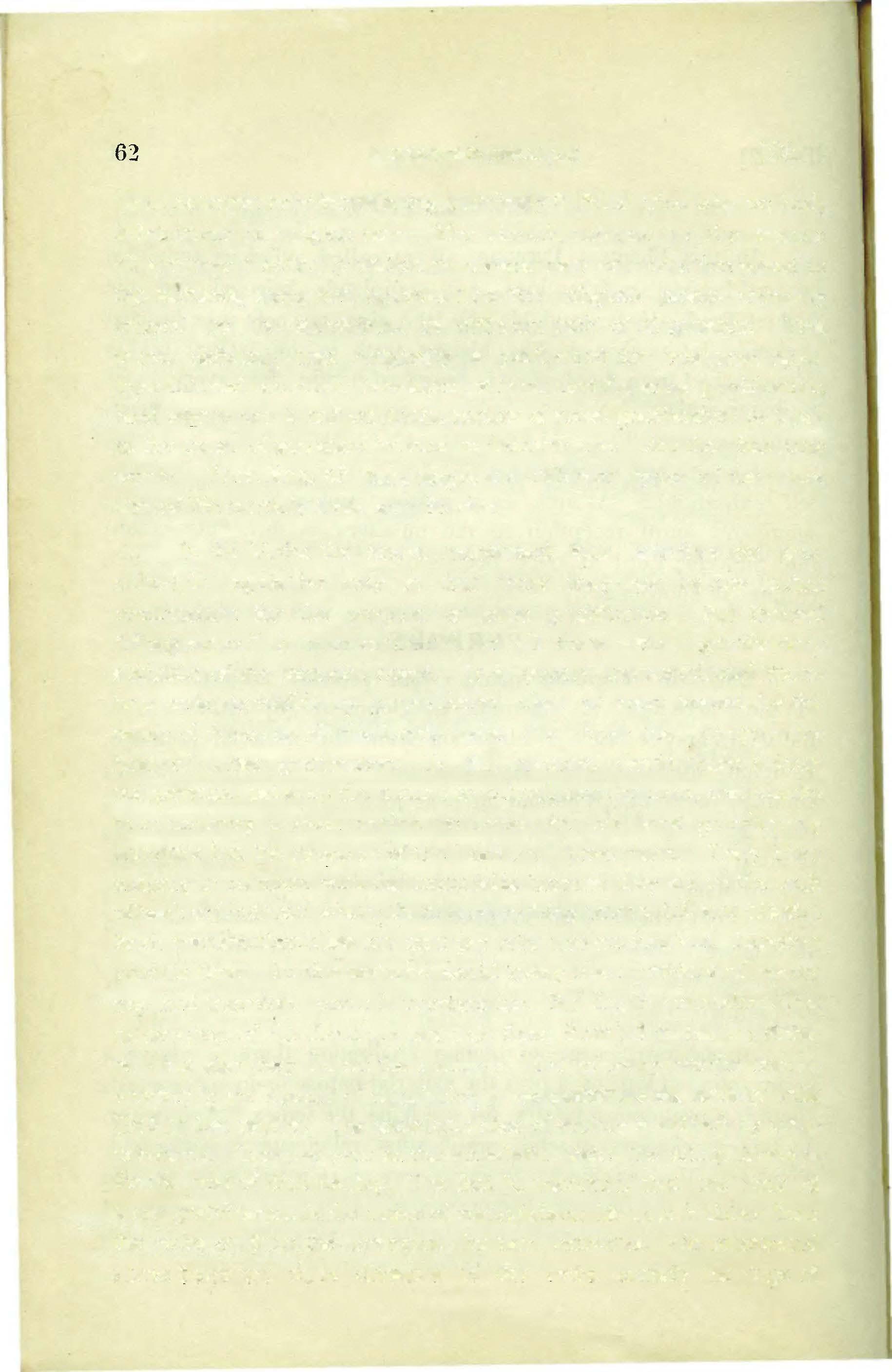
63 SRIMADBHAGWATAM [Ch. 1
fruitive activities as to get promotion in the field of better planets like the hea"en etc. and above this there is the activities of worshipping different demigod with the same intention of getting promotion in the different planets ofthe different types of demigods and lastly the activiities ofreaching the absolute Truth in His impersonal feature to become one with Him.
Impersonal feature of the Absolute Truth is not the last word. Above the impersonal featurethere is the Paramatmafeature and above it. there is the Personal feature of the Absolute Truth. Srimad Bhagwat givesus the information ofthe Absolute Truth in His Personal feature above the impersonal feature. It is therefore more than the topic ofimpersonal philosophical speculations and as mch Srimad Bhagwatam is placed on the higher status than the Jnanakanda division ofthe vedas. It is higher than the Kar-makanda division as well as Jnanakanda division and more than that it is above the Upashanakanda division because Srimad Bhagwatamrecommends the worship of the Supreme Personality of Godhead Sri Krishna the Divine son of Vamdeva. In the Kannakanda division of the Vedas there is competetion ofsupremacy in the matter of reaching the heavenly planates for better sense gratification. And the same competetion is there in the Jananakanda or Cpaslmakandas. But Srimad Bhagvvatam is above all of them because it aims at the Supreme Truth the substance or the root ofall categories. In other words it may be taken that fi·om Srimad Bhagvvatam we can know the substance as well as the relativities in the true sense and perspective. The Substance is the Absolute Truth the Supreme Personality ofGodhead and all emanations fi·om Him are relativities in di.fferent forms ofenergies. The Livingentities are also relative energies of the Substance. The substance is related with all different types of His energies and therefore nothing is different from the Substance but at the same time the energies are different from the Substance. The conception is not self contradictory. Srimad Bhagwatam explicitely deals on this simultaneously one and differential philosophy of the Vedanta Sutra which begins with the Janmadyasya Sutm.

, 'fext 2] FIRST CANTO 63
Such knowledge of simnltanecusly one and different from the Absolute Truth is realy for the welbeing ofthe knower ; othenvise the mental speculators mislead the people by wrongly establishing the energy as absolute. \Vhen it is factually understood the situation beccmes more pleasing than the imperfect conception ofmonism or dualism. Development ofthis consiousncss leads one at once to the stage �ffreedom frcm the threefold miseries. The threefold miseries are (l) in relation with the body and the mind (2) in relation with cur dealings with other Jiving being and (3) in relation with the acts ofprovidence on which we have no control. Srimad Bhagwat begins from the surrender of the living entity unto the Absolute personwith clear consciousness of the devotee's oneness with the :1\bsolute and atthe same time his eternal position of servitorship of the Lotd. In the material conception of his life he thinks himself falsely as the lord of all he surveys and therefore he is always troubled in the above mentioned three fold miseries oflife. But as soon as he comes to know his real position of transcendental servitude at once he becomes freed from all the above mentioned miseries. The servitorship position of the living being is wasted in the material conception ofhis life with a false sense of overlordship. This servitorship is transferred unto the Lord in pure consciomness ofspiritual identity and at once the living entity becomes f1�ced from the encumbrances of material afliction.
Over and above this, Srimad Bhagwatam is the personal commentation of the Vedanta Sutra by the great author himself And that also in the mature stage ofhis spiritual realisation through the mercy ofNarada. Sri Vyasckva is the authorised incarnation ofNarayau the Personality of Godhead. Therefore, there is no question about his authority. He is the author of all other vedic literatures but surpassing all of them he recommends the study of Srimad Bhagwatam. In otLer Puranas there is difi:t.:rent methud of worshipping the demigods but here in the Bhagwatam only the Supreme Personality of Godhead is mentioned. The Supreme Personality ofGodhead is the \Vhole body and the demigods are His different parts of the body. As such by worshipping the Supreme Lord there is no need of worshipping the demigods be-


64 SRIMAB BliAGWATAM [Ch. i
cause the Supreme Lord is at once fixed up in the heart. Lord Chaitanya Mahaprabhu has recomended this Srimad Bhagwatam as the spotless Puranam on account of its being distinguished from all other puranas.


The mode of receiving the trascendental message is to get it through the ears by submissivenes. No challenging mode can help the receiver in getting or realising the transcendental message. Herein therefore one particular word is used for our proper guidance. This particular word is Snushrusu. One must be anxious to hear about the transcendental message. And this qualification of hearing with interest is the prime qualfication for assimilating transcendental knowledge
l]nfortunately less _fortunate _persons are not interested in giving patient hearing to the message of Srimad Bhagwatam. The process is simple but the application is difficult. Unfortunate persons will find out enough time for heariu"g �ordinary social, political and all sortsof idle talks but when they will be invited to attend a meeting of the devotees assembled to hear on Srimad Bhagwatam, the unfortunate creatures will either be reluctant to attend such meeting or they will indulge in hearing the portion of it where they are unfit to enter in. Professional reader of the Bhagwatam indulge in the confidential topics of the pastimes of the Supreme Lord which seemingly appear to be sex literature. Srimad Bhagwatam is meant to be heard from the beginning of the literature and the class of persons who· are fit to assimilate it is also mentioned in this sloka. Such bonafied audience for hearing the SrimadBhagwatam are generatedafter many pious deeds but an intelligent person, by thoughtful discretion, can believe in the assurance of the great sage Vyasdeva and give a patient hearing to the message of Srimad Bhahwatam in order to realise directly the Supreme Personality of Godhead. And withoutundergoing the different stages of Vedic ways one can at once be lifted to the position of Paramhansa simply by agreeing to receive patiently the message of Srimad Bhagwatam.

Text 2] FIRST- CANTO 65
SRIMAD BHAGWATAM
TEXT NO. 3.

Nighama kalpatarorgalitanphalam
Sukha mukhatd amritam draba samyutam.
Pivata hhagwatam rasam alaym
MuhU1 aho rasika hhubi hhah ukah
[Ch.
Nigama-the Vedic literatures, Kalpataror-the desired tree, Galitam-[ully matured, Phalam-fmit, Suka-Srila Sukdeva Goswami the orginal speaker of Srimad Bhagv>atam, A1ukhadfrom the lips of, Amritam-nectarine, Draba-easily swallowable on account of bccomming semisolid and soft, Samyutam-perfect jn all '-'cspects, Pivata-do relish it, Bhagwatam-the book dealing in the science of eternal relation with the Lord, Rasam-juice (what is relishable), Alqyam.•.untill liberation or even in libarated position, Muhur-always, aho-oh, Rasika-those who are full of humour or full in the knowledge of mellows, Bhabuka-expert and thoughtful, Bhubi-on the earth.
TRANSLATION
Oh the expert and thoughtful men ! Please know it that Srimad Bhagwatam is the mature fmit of the desired tree of Vedic literatures and it is emanated from the lips of Sri Sukdeva Goswami. For this the nectarine fruit has become more tasteful although it is already readily swallowable nectarine juice which IS relished by all up to those who are already liberated souls.
PURPORT
In the two previous slokas it has been definitely proved that Srimad Bhagwatam is the sublime literature above all other vedic scriptures because it is transcendental to all prescribed mundane activities and superier to all mundane knowledge. In this sloka it is stressed herewith that Srimad Bhagl<vatam is not only supenor m terms of its text but it is the ripen fruit of all vedic literatures. In other words it is the cream of all vedic knowledge also. And considering all these important points patient hearing and submissive aural reception ofthe trans(;endental message of the
66
ENGLISH SYNONYMS. 1
great literature is definitely essential. With great respect and attention one should receive the message and lessons imparted by the Srimad Bhagwatam.
The Vedas are compared with the desired tree because they contain all things knowable by the human being both for mundane necessities as well as spiritual realisation. The Veda contains regulated principles of knowledge covering social, political, religious, economical, military, medical, chemical, physical, metaphysical and all that may be necessary for the proper up keep of the body and the soul together and abm.e allthere is specific direction f()l· spiritual realisation also. Regulated knowledge means to raise the living entity gradually to the spiritual plane and the highest spiritual realisation is to know the Personality of Godhead as the reservoir ofall mellows (Rasas).

Every living being beginning from Brahma thf' first born living being within this material world down to the insignificant ant, -all are after relishing some short of mellows dt·rived from sense perceptions. These sensual pleasures derived fi·om another oLject is technically called the Rasa. Such Rasas are ofdifferent \'aritics. In the revealed scriptures such varieties of Rasas are calculated to be twelve in all. They are are as follow. 1 . Roudra (anger).
Sringar(conjugal),
(comic),
Sumtotal ofall these Rasas is called affection or Love. Primarily such signs of Love are manifested in adoration, service, friendship, paternal affection and ccnjugal love. And indirectly in the absense of the abovementiened five stages ofmanifestations of Love, there is anger, wonder, comedy, chivoulry, fear, sock etc. For example when a man is in love with a woman call it the Rasa of conjugal love. But when such loving affairs are disturbed some way or other the same loving affairs are displayed in a different way may be wonderful, anger, shoeking, or even ghastly. Some times it so happens that love affairs oftwo persons are culminated in
Text 3] FIRSt CANt(> 67
2. Adbhuta (wonderful), 4.
4. Hasya
5. Vira (chivulrous), 6. Daya (mercy), 7. Dasya (servitorship), 8. Sakhya (fraternity), 9. Bhayanaka (Ghastly), 10. Vivatsa (shocking), II. shanta (Neutral), 12. Vatsa(ya (parental).
ghastly scene by commitment of murdur or similar other shocking and wonderful things. The peculiarity of such display of different Rasas are exhibited between man to man, animal to animal and so on. There is no possibility ofsuch exchange ofRasas between man to animal or between man to other species of living beings within this material world. The Rasas are exchanged between similar class ofentities. But so far the spirit soul is concerned qualitatively they are one with the spiritual quality of the Supreme Lord. Therefore originally the Rasas are exchanged between the spiritual living being with the spiritual ·whole The Supreme Personality of Godhead. These spiritual exchange ofRasa are fully exhibited in spiritual existence between the spiritual living beings and the Spiritual Supreme whole the Personality ofGodhead.
The Supreme Personality ofGodhead is therefore described in the Sruti Mantras (vedic hymns),-as 'He is the Fountain Head of all Rasas'. When one gets the association of the Supreme Lord and exchanges one's constitutional Rasas with the Lord, then the living being is actually happy'.
These Sruti Mantras indicate that every living being has his constitutional position endowed with a particular type ofRasa to be exchanged with the Personality of Godhead and in the liberated condition only such primary Rasas are experienced in fullness. In the material existance snch Rasas are experienced in a perverted form by temporary manifestations. And as such the Rasas in the material world are exhibited in the form ofRoudra (anger) etc. "
One who attains therefore full knowledge of these different Rasas which are the basic principles of living activities, one can know the false representations ofthe original Rasas reflected in the material world. Such learned scholar, therefore, seeks to relish the real Rasa in the Spiritual form and beginning ofsuch spiritual form ofrelishing Rasa i'> the desire to become one with the Supreme. Less intelligent transcendentalist cannot go beyond the conception of becoming one with the Spirit whole without any knowledge of spiritual display ofdifferent Rasas.

68 SRIMAD-:BliA<lWA'rAM (Ch. 1
In this sloka it is definitely informed that Spiritual Rasa which are relished even in the liberated stage can be experienced in the literature ofSrimad Bhagwatam on account of its being the ripen fruit ofall Vedic knowledge. By submissive aural reception of the transcendental literature Srimad Bhagwatam, one can get full pleasures ofhis heart's desire and as such one must be very earefull to have the messages from the right sources. Srimad Bhagwatam is exactly received from the right source because it was brought by Srila Narada Muni from the Spiritual World and given to his disciple Sri Vyasadeva. The latter in his turn delivered the massages to his son Srila Snkdeva Goswami and Srila Sukdeva Goswami delivered .the messages for the first time to Maharaja Parikshitjust seven days prior of the king's death. Srila Sukdeva Goswami is liberated soul from the very beginning ofhis birth. Even in the womb of his mother he was a liberated being so much so that he did not undergo any sort ofspiritual proficiency as it is a rule for all others, after his birth. By birth no body is qualified either in mundane or in the spiritual qualities. But Srila Sukdeva Goswami on account ofhis becoming a perfect liberated soul before his birth there was no necessity for him specifically for such evolutionary process ofspiritual training. But inspite ofhis becoming a complete liberated person and situated in the transcendental position above the three mundane modes, he was attracted by the transcendental Rasa efthe Supreme Personality ofGodhead Who is adored by the liberated souls by the vedic hymns. The Supreme Lord's pasttimes are attractive more to the liberated souls than to a mundane person. He is necessarily therefore not impersonal but the transcendental Personality ofGodhead the reservoir of all kinds of transcendental Rasas.

In the Srimad Bhagwatam, description of the transcendental pastimes ofthe transcendental Personality of Godhead is narrated. J\nd the narration is systematically depicted by the transcendentally realised soul Srila Sukdeva Goswami. As such the whole subject matter has become more appealing for all classes ofpersons including those who are after liberation and rcHshing the mellow of becoming one with the Superrne Whole.

Text 3] FIRST CANTO 69
In Sanskrit language the bird parrot is also known as Suka whosered beacks are·imperagnated with the quality ofenhancing the sweetness ofa ripen fruit which is cut by such beacks. Here also the same simile is applied in the matter ofthe ripen fruit of the Vedic literature referred to above. The Vedic Fruit which is matured and ripen in knowledge is also spoken through the lips of Srila Sukdeva Goswami who is compared with the parrot not for his ability to recite the Bhagwatam exactly in the manner as he heard it from His learned father but because He could presentthe whole thing in a manner appealing to all classes ofmen.
The whole subject matter is so presented through the lips of Srila Sukdeva Goswami that any sincere audience who will lend his ears submissively to this message ofthe transcendental world, will at once relish the transcendental mellows distinguished from the perverted mellows ofthe material world. The ripen fruit is not dropped all ofa sudden from the highest planet of K'lishna Loka but it has comedown carefully being handled by the chain of descliplic succession without any change or disturbance in the formation ofthe soft and ripen fruit. Foolish people who do not come in the chain of such transcendental desciplic succession, commit great blunder by trying to understand the highest transcendental Rasa known by the name transcendental Rasa Dance quickly without following the foot prints ofSukdeva Goswami who presents the fruit very carefully by stages of transcendental realisation. One should be intelligent enough to know the position of Srimad Bhagwatam by judging the personalities like Sukdeva Goswami who deals in the subject matter so carefully. This process of desciplic succession of the Bhagwat school suggests that in future also for all the time Srimad Bhagwat has to be understood from a person who is factually a representative of Srila Sukdeva Goswami. A professional man who lives on the business ofBhagwat recitation illegally is certainly not a representative of Sukdeva Goswarni. Such professional man's businessis to earn his livelihood and therefore one should refrain from hearing the lectures ofthe professional man. Such professional man, goes upto the most co1 fidential part ofthe literature without undergoing the gradual process of evolutionary stages of under-

70
1
SRIMAb BHAGWATAM [Ch.
standing the grave subject and he wants to draw the attention of the ordinary man to the Rasa Dance which is misunderstood by the foolish class ofmen. Some ofthem do take it up in the immoral sense while others want to cover it by their own stupid interpretaion without following the foot prints of Srila Sukdva Goswami.
The conclusion is, therefore, that a serious student of Rasa may receive the message of Bhagwatam constainly in the line of the chain ofdesciplic succession from Srila Sukdeva Goswami who describes the Bhagwatam from the very beginning of the scripture and not whimsically to satisfy the rnundaner who has very little knowledge in the transcendental science. Srimad Bhagwatam is so carefully presented that a sincere and serious student can at once have the ripen fruit of the Vedic knowledge simply drinking the nectarine juice through the mouth of Sukdeva Goswami or his bonafied representative.

TEXT No. 4
Naimishe nimisakshetre risqyah shounakadqyah
Satram swargqya lokqya sahasra samamasta.
ENGLISH SYNONYMS
Naimishe-in the forest known as Naimisharanya, Animishakshetre-the spot which is specially favourite ofVishnu (who does not close his eyelids) Risoyah-sages, Shounakadqyah-headed by the sage Shounaka, Sa/ram-sacrifice, Swargqya-the Lord who is glorified in heaven, Lokqya-and for the devotees who are always in touch with the lord, Sahasra-one thousand, Samam-years, Asataperformed.
TRANSLATION
Once upon a time the great sages headed by the sage Shounaka assembled at the specific holy place in the forest of Naimasharanya to perform a great sacrificial ceremonyto be finished in one thousand ofyears and that for the satisfaction of Vishnu the Lord and his devotees.
• Text 4] FIRST CANTO 71
The prelude ofthe Srimad Bhagwatam having been spoken in the previous three slokas the main topic of the great literature is now being attempted for presentation. Srimad Bhagwatam after first recitation by- Srila Sukdeva Goswatni, was repeated for the second time at Naimisharanya and the same incidence is narrated here.

In the vaymriya Tantra, it is said that Brahma the engmeermg deity ofthis particular universe, contemplated within his mind a great wheel which may be turned round for thespaceofthe universe and thus the hub ofthe great circle is fixed at a particular place which is knmvn as Naimisharanya. Similarly there is another reference ofthe forest ofNaimisharanya in the Baraha Puranam where it is stated that by performance ofsacrifices at this place the strength �f de�oniac people is curbed down: And thuspeople : \'Vh_o are situated in the Brahminical culture do like this place ofNaimisharanya for such performances.

The word animisha means without any twinkling of ·the eyelids and this is a special prerogative of Vishnu the Personality ofGodhead. Therefore, it indicates the Lord Vishnu who is always offered all kinds ofsacrifices just to please Him and therebyto please all �is devotees. The devotees are always attached in the service ofthe Lord and others who are not attached in that way are fullen souls serving the penalties in the material existence. In theBhagwat Geeta it is said that anything done \Vithin the material world without any reference for the pleasure cfthe Lord Vishnu, is the cause of further bondage for the performer. It is enjoined, therefore, that :1ll our acts must be performed in the sacrificial way for the satisfaction ofVishnu and His devotees 2-nd that will bring in peace and prosperity for all the people ofthe world.
The great sages and thinkers are always anxious to do good to t1 e people in general and as such the sages headed by Shounaka am : l others as�embled at this holy place of Naimisharanya with a programme ofperforming a great and continuous chain ofsacrificial ceremony with the same object in view. Forgetful men do not

72
1
SRIMAD BHAGWATAM [Ch.
PURPORT
know the right path ofpeace and prosperity. The sages know it well and, therefore, for the good ofall men they are always anxious to think and perform acts which may · bring about peace in the world as much as the eldest members ofa family are always anxious to bring about peace and prosperity in the family specially and for the well being ofall other living- beings generally. They are sincere friends to all living entities and at the risk ofall personal inconvenience they are always engaged in the sezvice of the Lord for the good of all people. Lord Vishnu is just like a greattree and all others namely all kinds of living entities including the demigods, men, sidhwas, charanas, vidyadharas and all kinds of living beings are like the branches, twigs and leaves ofthe tree. As such by pouring water at the root ofthe tree all the parts and parcels ofthe tree a-re automatically nourished. Only the qetached branches and leaves cannot be satisfied by such watering endeavour. The detached branchesand leavesofthe tree dryupgradually inspite ofall sorts of watering plan on them. Similarly human being or the human society when it is detached from the·relation of thepersonality ofGodhead are like the detached branches and leavesand watering on such disintegrated parts ofthe whole tree is simply waste of energy and resources.
The modern materialistic society is detacted from the relation ofthe Supreme Lord and all the plans that are being made by the atheistic leaders are sure to be baffied in the long run. They are experiencing the same defect in every step still they are not alert in the matter.
In this age the sacrifice by holding congegational chanting of the holy Name ofthe Lord is the prescribed method. The ways and m6ans are most scientifically presented by Lord Shri Chaitanya Mahaprabhu and intelligent persons may take advantage ofthe teachings ofLord Shri Cha:itanyaa Mahaprabhu inorder to bring about real peace and prosperity ofthe people.
Srimad Bhagwatam is presented for the same purpose ofguiding the actions ofthe modern men and gradually the matter will be explained more clearly in the text ofthe great literature.
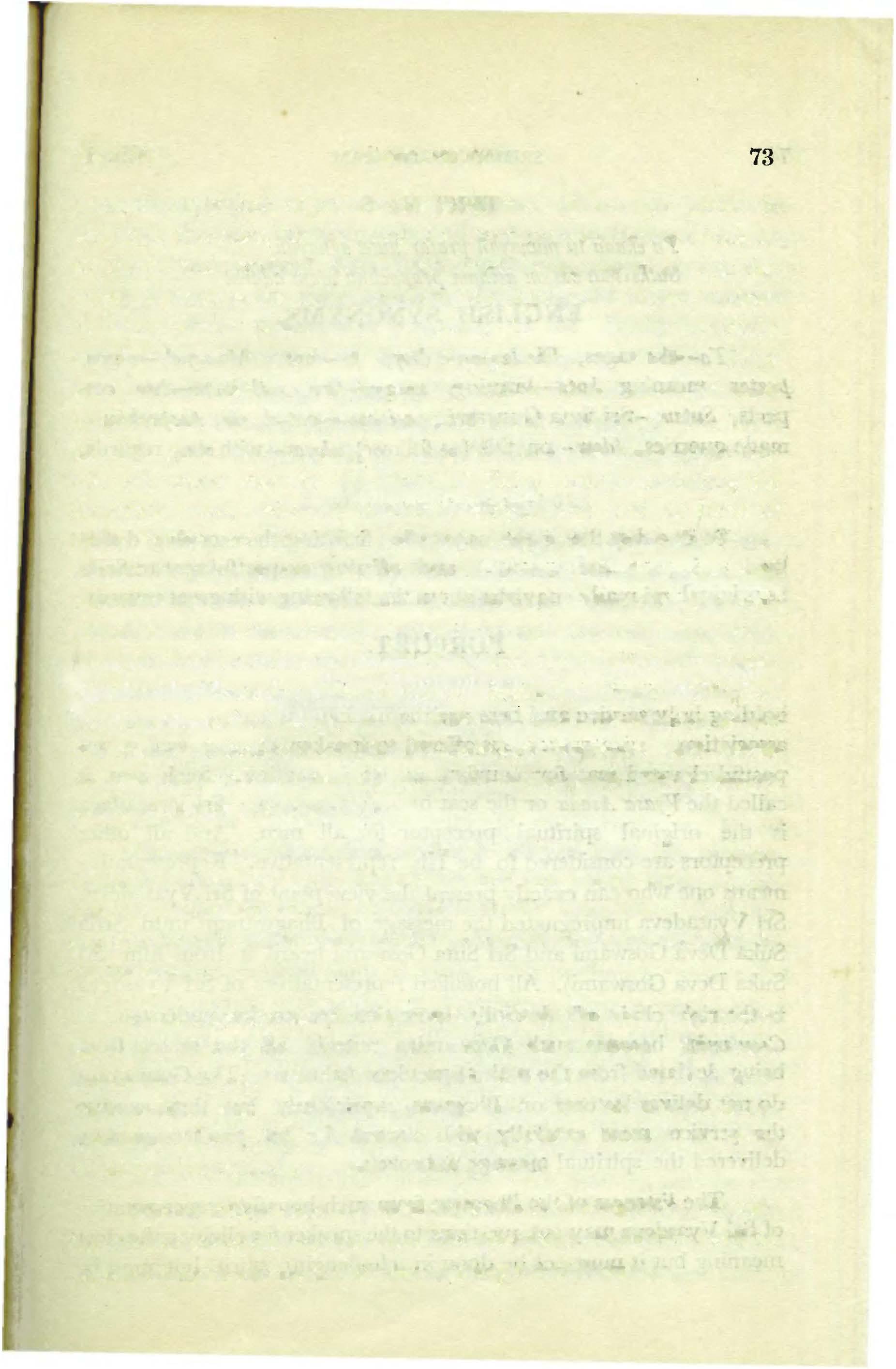
Text 4] Fm.ST CANTO 73
SRIMAD BHAGWATAM
TEXT No. 5

Ta ekada tu munayah pratar huta agnayah
Satkritam sutam asinam prapachhu idam adarat
ENGLISH SYNONYMS.
Ta-the sages, Ekada-one day, tu--but, Munayah-sages, pratar-moming, huta-burning, agnaya-fire, satkritam-due respects, Sutam-Sri Suta Goswami, asinam-seated on, prapachhumade querries, idam-on this (as follows) adarat-with due regards.
TRANSLATION.
So one day the great sages after finishing the morning duties by burning the sacrificial fire and offering respectful seat to Srila SutaGoswami made enquiries aboutthe following withgreat regards.
PURPORT.
Morning time is the best and the most suitable occasion for holding holy_ service and here qre the indications for such spiritual association. · The great sages offered to speaker of Bhagwat a respectful elevated seat for comfortable accomodation. Such seat is called the fYasa Asana or the seat ofSri Vyasadeva. Sri Vyasadeva is the original spiritual preceptor for all men. And aH other preceptors are considered to be His representative. Representative means one who can exactly present the view point of Sri Vyasadeva. Sri Vyasadeva impregnated the message of Bhagwatam unto Srila Suka Deva Goswami and Sri Suta Goswami heard it from him (Sri Suka Deva Goswami). All bonafied representatives of Sri Vyasdeva in the right chain of desciplic succession are to be understood as Goswamins because such Goswamins restrain all the senses from being deviated from the path ofprevious Acharyas. The Goswamins do not deliver lectures on Bhagwat capriciously but they execute the service most carefully with regard for his predicessor who delivered the spiritual message unbroken.
The listeners ofthe Bhagwat from such bonafide representative of Sri Vyasdeva mayput questions tothe speakerfor elicitingthe clear meaning bu� jt must not be done in challenging spirit but must be
74
[Ch. I
submitted with great regard for the speaker and the subject matter. That is the way recommended in the Bhagwat Geeta. One must learn thetranscendental subject by submissive aural reception and that also from the right sources. And thus the sages asked the speaker with great respect.
TEXT No. 6.



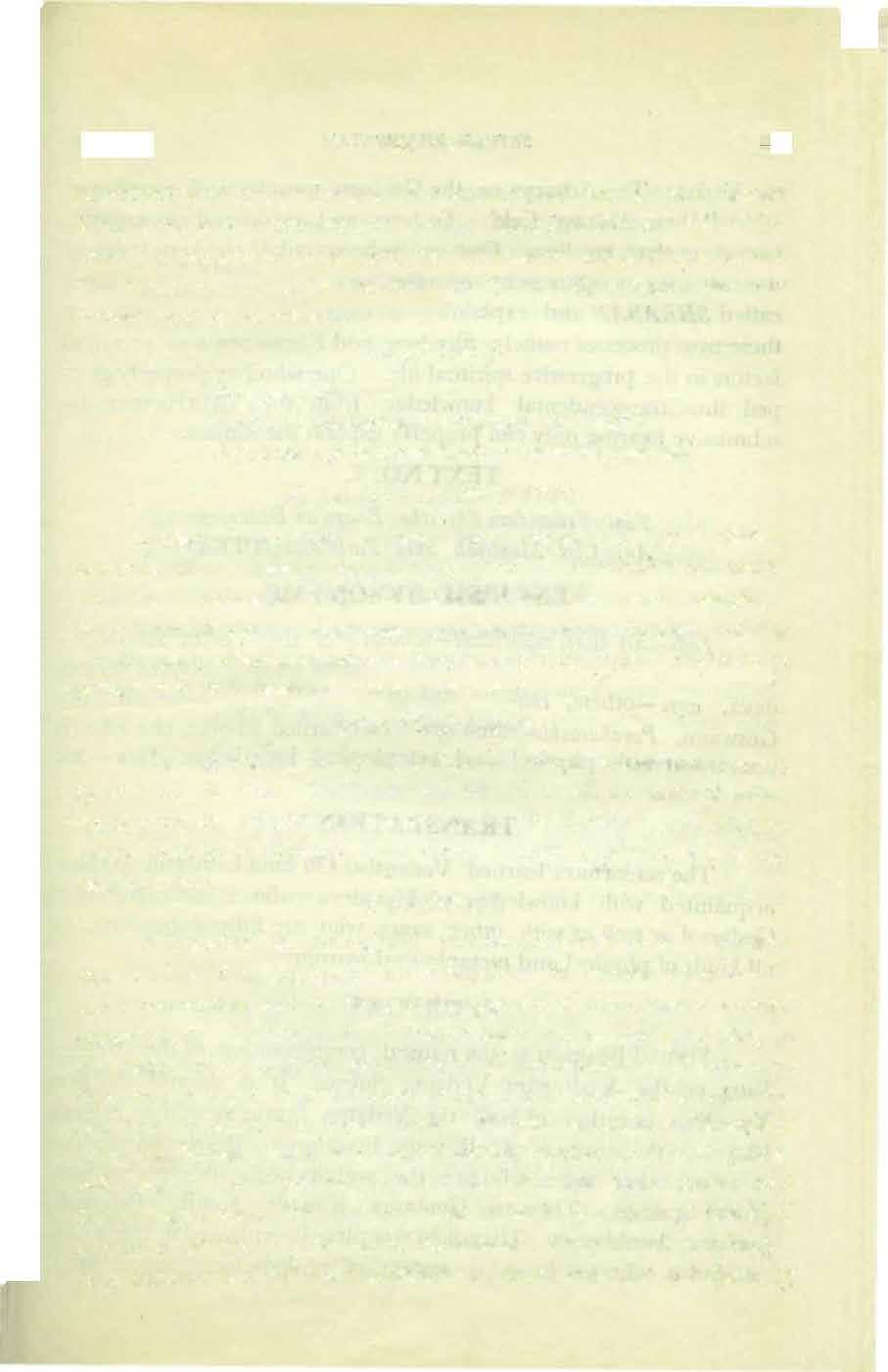
Rishaya Uchuh :Twaya khalupmanani setihasani chaanagha
Akhyatani api adhitanidharma shastraniyani uta.
ENGLISH SYNONYMS.
Rishaya-the sages, uchuh-said, twaya-by you, khaluundoubtedly, puranani-supplimentary to the vedas with illustrative narration, setihasani-with the histories also, cha-and, anagha,freed from all vices. Akhyatani -explained, api-although, adhitam: -well read, dharmashastrani -scriptures giving right directious to progressive life. yani-all these, uta-said.
TRANSLATION
The sages said, "Respected SutaGoswami, youare completely freed from all vices. You are well versed in all the scriptures that are famous for religious life as well as in the Puranas and histories as you have gone through them under proper guidance as also explained them.
PURPORT.
A Goswami or the rightful representative of Srila Vyasadeva must be free from all kinds of vices. The preliminary vices are I. Illicit connection with women, 2. Indulgence ofunnecessary animal slaughter, 3. To live a life of intoxication and 4. Endeavouring in the matter ofspeculative gambling ofall descriptions. A Goswami therefore, is freed from all these symptomatic uncleanness before he can dare to sit on the vysa Asana. Noboby should be allowed to sit on the Vyasa Asana who �s not spotless in character with special reference to the above four principles. He shall not only be freed from all such vices but also he must bewell versed in all revealed scriptures or the Vedas. The Puranas are also parts of the Vedas. And histories like the Mahabharata or Ramayana are also parts of
FIRST CANTO 75
SRIMAb BHAGWATAM
the Vedas. The Acharya or the Goswami must be well acquainted with all these literary field. To hear and explain them is more important than reading. One can only assimilate the knowledge of the revealed scriptures by hearing and explaining. Hearing is called SHRABAN and explaining is called KIRTA.N. Therefore these two processes namely Shraban and Kirtan are two principal factors in the progressive spiritual life. One who has properly grasped the transcendental knowledge from the right source by submissive hearing only can properly explain the subject.
TEXT NO . 7.
'rani Vedavidam Shrestho BhagwanBadaryana

Aro-e Cha Munayah Suta Parabaravido Viduh
ENGLISH S\'NON\'1\-lS
'rani-all that, vedavidam-scholars of the Vedas, shreshthoSeniormost, Bhagwan-incarnation of Godhead, badarayana-Vyasdeva, mrye-others, cha-and, munayah-the sages, Suta-oh Suta Goswami, .Parabarovido-amongst the learned scholars one who is conversant with physical and metaphysical knowledge. Vidu-one who knows.
TRANSLATION
The seniormost learned Vedantist Oh Suta Goswami, you are acquainted with knowledge of Vyasdeva who is incarnation of Godhead as well as with other sages who are fully conversant in all kinds ofphysical and metaphysical learnings.
PURPORT.
Srimad Bhagwat is the natural commentation ofthe Brahma· Sutra or the Vadrayani Vedanta Sutras. It is natural because Vyasdeva is author ofboth the Vedanta Sutras as well as Srin;Iad Bhagwat the essence of all vedic literatures. Besides Vyasdeva there are other sages who are the authors ofsix different philosophical systems. They are Goutama, Kanada, Kapila, Patanjali, Juimine, Astabkra etc. Theism in complete is explained in the Vedanta Sutra whereas in other system of philosophical speculations,
i
Ch.
practically no importance has been awarded to the ultimate cause of all causes. One is there expected to sit on Vyasa Asana after being conversant with all the systems ofphilosophy so that one can present fully the theistic views of Bhagwat in defiance of all other system. Sri]a Suta Goswami was the right type ofteacher and therefore the sages at Naimisharanya elevated him on the seat of Vyasa Asana.
Srila Vyasadeva is designated hearin as Personality of Godhead because He is the authorised-in-power incarnation ofthe Personality ofGodhead.
TEXT NO. 8.
Bethwa TwamSoumyaTatSarbam Tatwata Tat Anugrahat
Bruyuh Snigdhasya Sisyasya Gurobo Guhyam Apyuta

ENGLISH SYNONYMS
Bethwa-you are well conversant, twam-your honour, Soun!)'aon who is pure and simple, tat-those, sarbom-all, tatwata-in fact, tat-their, anugrahat..by the favour of, sisyasya-ofthe disciple, snigdhasya ofthe one who is submissive, gurubo-of the spiritual masters, apyutam-endowed with.
TRANSLATION
And because you are submissive your spiritual masters have endowed you with all the favours, ofthe spiritual masters, for gentle disciples. As such you can let us know all that you learnt from them scientifically.
PURPORT
The secret of success in the spiritual advancement of knowledge is to satisfy the spiritual master and thereby to get his sincere blessings. Srila Viswanath Chakravarty Thakur }ms sung in his famous eight stanzas on the spiritual master as follows:-"! do offer my respectful obeisances unto the lotus feet of spiritual master whose satisfaction alone can please the-Personality ofGodhead and whose dissatisfaction alone can play a havoc on the path ofspiritual realisation." It is essential, therefore, that a disciple must be very much obedient and submissive to the bonafide spiritual master.
Text 8] , FIRST CANTO 77
Srila Suta Goswami fulfilled all these conditionsin the relation of a disciple and the spiritual master and, therefore, he was endowed with all the favours ofthe learned and selfrealised spiritual masters like Srila Vyasdeva and others. The sages of the Naimisharanya were confident about the qualities of Srila Suta Goswami and, therefore, they were anxious to hear from him.

TEXT NO.9

Tatra tatra anJasa ayusman bhabata jad vinischitam Punsam ekantatah shreyah tat sansitum arhasi.
ENGLISH SYNONYMS
Tatra-thereof, tatra-thereof, anjasa-made easy, aynsmanblessed with good duration of life, bhabata-by your goodself, Yad -whatever, vinischitam -ascertained, tat-those, punsam-for the peopleingenerul, ekantam-absolutely, shreyah-uitimategood, tatthat, nah-to us, samsitum�to explain,_arhasi-deserve.

TRANSLATION'
You are, therefore, requested to explain to us what you ascertained to be the absolute and ultimate good for the people in general,-out ofyour considered and made easy opinion. Oh you are blessed with good old age.
PURPORT
In the Bhagwat Geeta worshiping the Acharyasis recommended. The acharyas and Goswamins are always compact in thought for the well being of the people in general specially for their spiritual well being. Spiritualwell beingisautomatically followed by material well being. The Acharyas, therefore, give direction in the matter ofspiritual well being ofthe people in general. Foreseeing the incompetencies ofthe people in this age of Kali or the iron age ofquarrel, the sages enquired from the Suta Goswami the surrunary of all the revealed scriptures because the people ofthis age are almost condemned in every respect. The sages, therefore, enquired of the absolute and ultimate good for the people. The condemned state ofaffairs oftLe people ofthis age is described as follows :-
78 SRIMAD imAdWATAM [Ch. 1
TEXT NO. tO
Prayena alpa ayusah sabhya kalou asminyugejanah
Mandah sumandamatayao mandabhagya hi upadrutah
ENGLISH SYNONYMS
Prayena-almost always, alpa-meagre, ayusah-duration of life, sabhya--member ofthe learned society, kalou-in this age of Kali (quarrel), asmin -herein, yuge -age,Janah-the public, mandah -lazy, sumandamatayao-misguided, mandabhagya-unlucky, hi-and above all, upadrutah- disturbed.

TRANSLATION
The public, men in this iron age ofquarrel, arealmost always meagre in the duration oflife. Oh the member of learned society, they are not only so but also very lazy, misguided, unlucky and above all they are always disturbed.

PURPORT. '
The specific qualification ofthe devotees ofthe Personality of Godhead is that they are always ami:ious for the improvement of the members ofthe public. As such the sages oftheNaimisharanya did analyse the state ofaffairs ofthepeoplein this age ofKali. They found it by experience and foresight that the men inthis age are of shortened duration oflife. Duration oflife isshortenednot somuch for want of sufficient food as jt is on account of irregular habits. Regular habits and simple innocent food can keep up the standard of health of any comlll.on man. Over eating, oversense-gratification, artificial standard ofliving and depending too much on others' mercy kill the very vitality ofhuman energy and thus they become shortened in the duration oflife.
The people of this age are also very lazy not only in the matter ofself-realisation but also in the matter ofmaterialprosperity. The human life is specially meant for self realisation i. e. to say to know what we arewhat is this world and what is the Supreme Truth. This life is meant for ending the miseries of material existence ofhard struggle for life and going back to Godhead which

Text 10] FIRST CANTO
79
is our eternal Home. But on account ofbad system of education they are completely aloof from such self-realisational path and even they come to know about it, unfortunately theybecome victims ofmisguided leaders.
They are not only victims ofdifferent political creeds and party but also they are victims of many types of sense gratificatory agencies such as the cinema shows, sporting, gambling, clubs, libraries bad associations, smoking, drinking, cheating, pilfering, bickerings and �so on so forth. Their mind is always disturbed and full of anxities on account of different engagements. In this age many unscrupulous men manufacture imaginary religiousfaiths without any reference to the standard vedic literaturesofrevealed scriptures and persors who are adicted to the abovementioned different types ofsensegratificatory institutions are attracted by such institutions of religious faith. The result is that in the name ofreligious faith, so many, sinful acts are being enacted and the people in general are not in peace ofmindnor healthy inconstitution. TheBrahmachary system ofthe student cammunities is no longer maintained neither the householders do observe the rules and regulations of Grihastha Ashrma. As such the so called Vanaprastha and the Sanyasins who come out of such Grihastha ashrams·=are also deviated from the rigid path. The whole atmosphere is now surcharged with faithlessness. They are no more interested in the necessities ofspiritual values. Matter and material sense gratifications is nowthe standard ofcivilization. And to maintain such material civilization they have formed into groups of nations, peoples, communities and there is constant strain ofcold and hot war between the different grm ps of mankind. It has become very difficult, therefore, to raise the standard of humanity in the present distorted con ditior ofthe human society. The sages are anxious to get, out of the tangle, all the fallen souls. They are seeking the remedy from Srila Suta Gosw2,mi.
TEXT 1'\o. Il

Bhooreeni bhuri karmni shrotabyani bibhagasah

Atah sadho' trajat saram samuddhritya manishaya
Bruhi hhadraya bhutanamyenamatma suprasidati.

80 SRIMAD BHAGWATAM [Ch. 1
ENGLISH SYNONYlViS
Bhooreeni-multifarious, Bhuri--many, Karmani-duties, Shrotabyani-to be learnt, Bibhagasha-by divisionofsubject matter, Atah-thereforc, Sadho---Oh the sage> Atra-herein, Yat-whatever, Samuddhritya-by selection, Manishaya-best to your knowledge, Bruhi-please tell us, Bhadra_ya-for the good of, Bhutanam-for the living beings, Yena-by which, Atma-self, Suprasidati-becomes fully satisfied


TRANSLATION
There are multifarious varieties of scriptures and in all of them there are manymany prescribed duties which are to be learnt for many many yearseven by division of subject matters. Oh the sage, please, therefore, select out the essence of all such scriptures and explain it for the good ofall living beings so that they may become fi.11ly satisfied in heart by such instruction.
PURPORT
Atma or Self is distinguished from matter and material elements. It is spiritual in constitution and as such Atma is never satisfied by any number of plannings in the material field. All scriptures and instructions in spiritual values are meant for the satisfaction ofthe same selfor Atma. But the mode of approach are ofdifferent varieties. Such multifarious varieties are recommended for different types ofliving being in different times and at different places. Therefore, the number ofrevealed scriptures are innumerable. There are different methods ofprescribed duties in those multifarious scriptures. Taking into consideration ofthe fallen condition ofthe people in general ofthis age of Kali) the sages of Naimisharanya suggested to Srila Suta Goswami for picking up the essence ofall such scriptures because in this age it is not possible for the fallen souls to undergo the lessons ofall such scriptures in a systematic division ofVarna and Ashram.
The Varna and Ashram society amongst the human being was considered to be the best institution for uplifting human being
Text 11] FIRST CANTO 81
to the spiritual plane and due to the awkward time it is not possible to execute the rules and regulations ofthat institutions. Neither it is possible for the people in general to quit completely connection of family life as it is prescribed by the Varnashram institution. The whole atmosphere is surcharged with opposing elements and considering all these in total, spiritual emancipation ofthe common man in this age is a difficultjob. And why the matter was presented before Sri Suta Goswami is explained as follows.
TEXT NO. ll

Suta ;anasi hhadram te hhagawan satwatam patih Devakyam vasudevasya ;ato yasya chikirsaya.

ENGLISH SYNONYMS
Suta-Oh Suta Goswami, ;anasi-you know, bhadram te-all blessings upon you, sattwatam-of the pure devotees, patih-protector, devakyam-1n the womb of Devaki, vasudevasya-by Vasudeva, jato-born of,yasya-for the purpose of, chikirsaya-executing.
TRANSLATION
Oh Suta Goswami all blessing upon you. You know as to for what purpose the Personality ofGodhead appeared in the womb ofDevaki asthe son ofVasudeva.
PURPORT
Bhagwan means the AlmightyGod who is the controller of all opulences, power, fame, beauty, knowledge and renunciation. And He is the protector ofHis pure devotees. God is equal'to one and all but He is specially inclined to His devotees. Sat means the Absolute Truth. And persons who are servitors ofthe Absolute Truth are called Sattwatas. And the Personality ofGodhead VVho protects such pure devotees is known as the Protector of the Sattwatas. Bhadram to or blessings upon you is sign ofanxiousness for knowing the truth from the speaker. Lord Sri Krishna the Supreme Personality of Godhead appeared in the presence of Devaki the wife ofVasudeva. Vasudeva is the symbol oftranscen-
82 SRIMAD BHAGWATAM (
1
Ch.
dental position wherein the appearance of the Supreme Lord takes place.
1'EXT NO. 13
Tat nah sushrusamananam arhasi anga anuvarnitum
l Yasya avatamh bhutanam kshemaya cha bhavaya cha.
ENGLISH SYNONYMS
Tat-those, nah-unto us, shushrushamanam-those who are endeavouring for, aharasi-ought to do it, anga -oh Suta Goswami, anuvarnitum-to explain by following the footprints of previous Acharyas,ya�a-whose, avataram-incarnation, bhutanam-of the livihg beings, kshemaya-for good, bhavaya-upliftment, cha-and.
TRANSLATION
Oh Suta Goswami, you ought to explain us, who are endevouring for knowing it eagerly, the topic about the Personality of Godhead and His incarnations as they were done by the previous Acharyas,-because such description and hearing both are for the good and upliftment ofliving being.
PURPORT
The conditions for hearing the transcendental message of the Absolute Truth is fulfilled herewith. The first condition is that the audience must be very sincere and eager for hearing and the speaker must be in the line of disdplic succession from the recognised Acharya. The transcendental message ofthe Absolute is not understandable by materially absorbed instruments of the senses. They are gradually purified under the direction of a bonafide spiritual master. Therefore, one must be in the chain ofdisciplic succession and learn the spiritual art ofsubmissive hearing.
In this context of dealings between Suta Goswami and the sages ofthe Naimisharanya all the conditions are fulfilled ; because Srila Suta Goswami is in the line ofSrila Vyasadevaandthe sages ofthe .Naimisharanya areall sincere audience to get itfrom the line ofAcharya. As such the transcendental topics on the subject matter of Lord Sri Krishna's superhuman

Text 13] FIRST CANTO 83
activities, His incarnation, His birth, appearance or disappearance, His forms, His Names etc. all are easily understandable on fulfillingthe above conditions. And such transactions of.hearing and speaking help all men in spiritual realisation which is all round good for every one's upliftment.
TEXT NO. 14
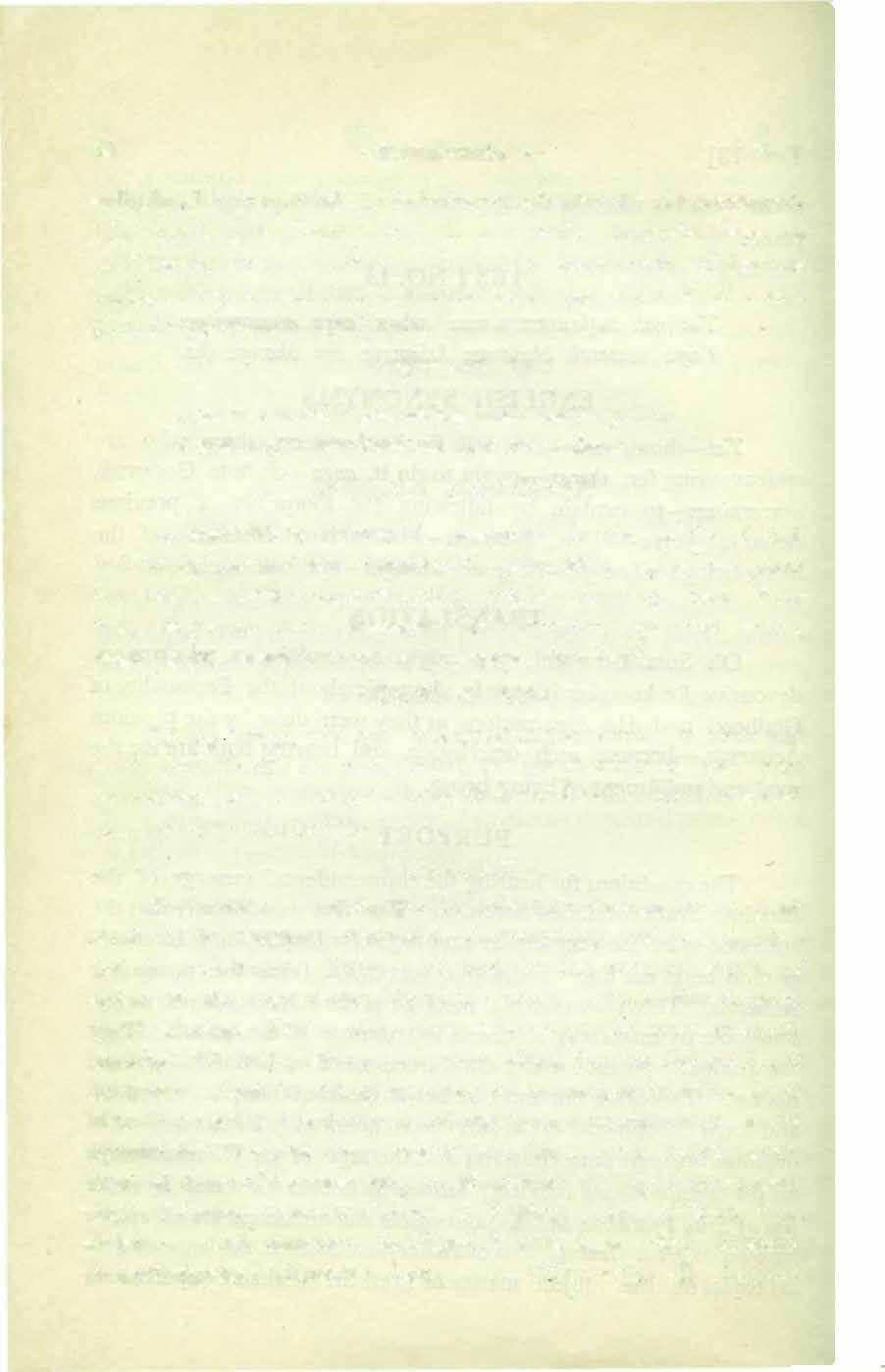
ENGLISH SYNONYMS
Apanna-being entangled, samsritim-in the hurdle ofbirth and death, ghoram-too complicated, yan-what, nama-the absolute name, vivasha-unconsciously, grinan - chanting, tatah-from that, sadya-at once, vimuchyate-gets freedom, yad-that which, viveti-fears, swqyam-personally, bhayam-fear itself.
TRANSI.ATION
Living beings, who are entangled in the hurdle ofbirth and death, even though too complicated, can get freedom at once even by unconsciously chanting the holy Name ofKrishna which is feared even by the personified Fear.
PURPORT
Vasudeva or Lord Krishna the Absolute Personality of Godhead is the Supreme controller of everything and as such He is feared by all others. There is no body in the creation who is not afraid of the rage ofthe Almighty. Great Ashuras like Ravana, Hiranyakasipu, Kansa and others who were the most powerful amongst all living beings, all were killed by the Personality of Godhead. And the Almighty Vasudeva has empowered His name also similarly like His Personal self�md there is no difference in the identity ofeverything that is related with Him. It is stated herein that the name ofKrishna is feared ofeven by the Fear personified. This indicates that the · Name of Krishna is non different from Krishna. And, therefore, the Name Krishna is as much powerful as Lord Krishna Himself; there is no difference at all. Any one
84 SRIMAD BHAGWATAM [Ch. 1
Apanna samsritimghoramyan nama vivashagrinan Tatah sadya vimuchyateyadviveti swam bhayam.
therefore can take advantage ofthe Holy Name of Lord Sri Krishna even in the midest of greatest dangers. Transcendental Name of Krishna even He is uttered in unconscious state of mind and forced by circumstances, can help the reciter in getting freedom from the hurdle ofbirthand death.
TEXT No. l5

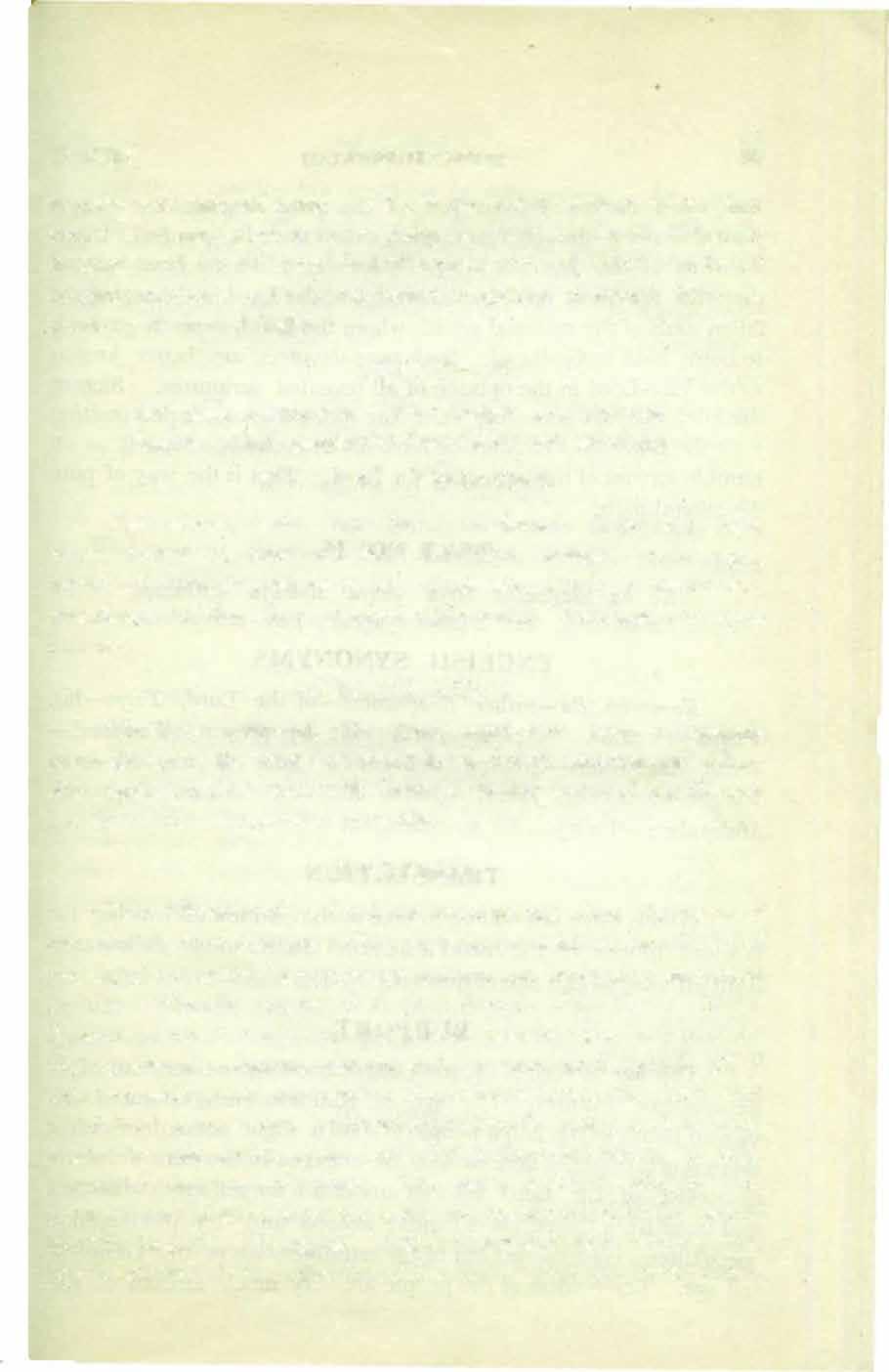
ENGLISH SYNONYMS.
T'ad-whose, pada --lotus feet, samshrayah -those who have taken shelter of, Suta -oh Suta Goswami, munayah-great sages, sadyah -at once, punanti-sanctify, apasprista-simply by association, swardhun}'a-ofthe sacred Ganges, apa-water, anusevaya -bringing into use.
TRANSLATION
Oh Suta Goswami, the great sages who have completely taken shelter ofthe lotus feet ofthe Lord,/can at once sanctify others who may come into touch with them while the water of the Ganges can do so after a prolonged use only.
PURPORT.
Pure devotees ofthe Lord are more potent than the water of the sacred river Ganges. One can derive spiritual benefit out of prolonged use ofthe Ganges v,rater but one can be-at once sanctified by the deliberate mercy of a pure devotee ofthe Lord. In the Bhagwat Geeta it is said that any person however low bom may he be, as also the Sudras, women and the merchantile people all of them are welcome to take shelter of the Lotus feet ofthe Lord and by doihg so they can be equally qualified for going back to Godhead. To take shelter ofthe Lotus feet of the Lord means to take shelter of the pure devotees. The pure devotees, who have no other business than to serve the Lord, are honoured with the words like 'Prabhupada' 'Vishnupada' that is to say sueh pure devotees are representatives ofthe Lotus feet of the Lord. Any one who, there-
Text 15] FIRST CANTO 85
Tad pada samshrayah suta munayah prasamanayah Sadyah punanti apaspristah Swardhun}'a apa anuseva)'a.
fore, takes shelter of lotus feet of the pure devotee i. e. accepts pure devotee as the spiritual master, can at once be purified. Such devotees of the Lord are equally honoured like the Lord because they do the most confidential service ofthe Lord in delivering the fallen souls ofthe material world, whom the Lord wants to go back to home back to Godhead. Such pure devotf'es are better known as the Vice-Lord in the opinion of all revealed scriptures. Sincere disciples of pure devotee� offer the spritual master equal position with the Lord but such pure devotee always considers himself as an humble servantofthe servant ofthe Lord. That is the way of pure devotional path.
ENGLISH SYNONYMS
Ko-who, Ba-rather, Bhagawatah-of the Lord, Tas)la-his, Pun)la-virtuous, Sloket[ya-worshipable by prayers, Karmanahdeeds, Suddhikamo-desiring deliverance from all sins, .Na-not, Srinuad -does hear, Jashah -glories, Kali -of the age of quarrel, Malapaham -the agent for sanctification.
TRANSLATION

Who is there not willing to take to the business of hearing the virtuous glories of the Lord if he at all desires to get deliverance from all vices in this age ofquarrel.
PURPORT
Tl>..is age ofKali is the most condemned age on account of its quarrelsome features. The age of Kali is so much saturated with viceous habits of the fallen people that on a slight misunderstanding there is great fight. Persons who are engaged in the pure devotional service of the Lord without any desire for selfaggrandisement and freed from the effects offruitive actions and dry philosophical speculations, can olny get out ofthe estrangements of the complicated age. The leaders ofthe people are very much anxious to live
86
[Ch. 1
SRIMAD BHAGWATAM
Ko ba bhagwatha laS)1a, pun)la slokedya karmanah Suddhikamo na srinuad jashah kali malapaham.
in peace and friendship but they have no informatiou of the simple method of hearing the glories of the Lord. On the contrary, such leaders ofthe people are against the process of ventilating the glories of the Lord. Or in other words the foolish leaders want to deny completely the very existance of the Lord. In the name of secular state such foolish leaders are enacting various plans every year but by the insurmountable intricacies ofthe material energy of the Lord, all such plans and progress are being continuously frustrated. But they have no eyes to see to such failure in the attempt ofpeace and friendliness. Here is the hint to get out ofthehurdle. Ifwe want actual peace and life in friendliness, we must open the road to understand the Supreme Lord Krishna and glorify Him for His virtuous activities as they are depicted in the pages ofthe Srimad Bhagwatam.
TEXT NO. 17
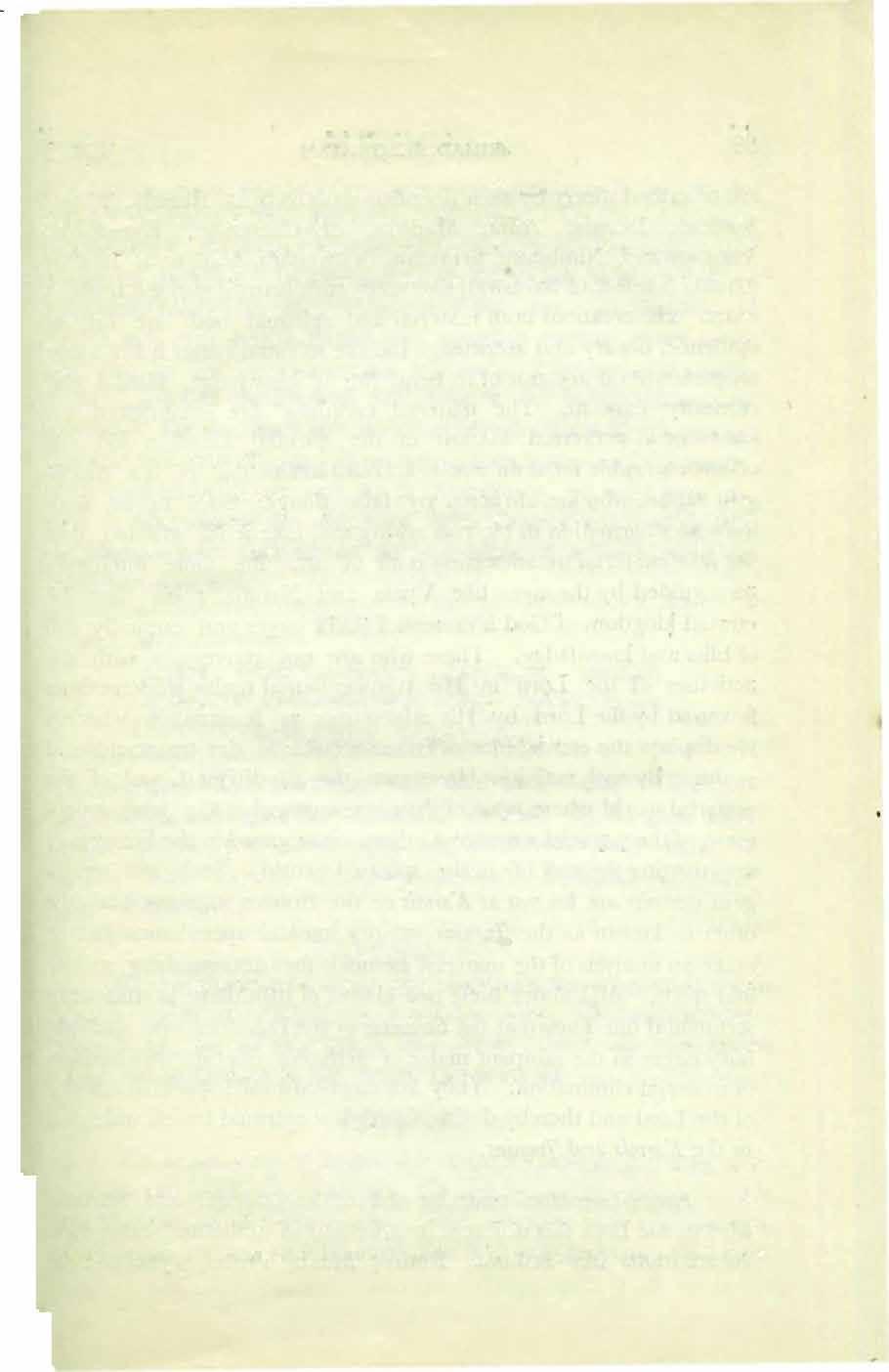
ray.rya karmani udarani pari'geetani suribhih
Bruhih nah sraddhadhananam leelaya dadhatah kalam
ENGLISH SYNONYMS
Tasaya--His, Karmani -transcendental acts, Udaranimagnanimous, Parigeetani-ventilated, Suribhih- by the great souls, Bruhih-please speak, Nah-unto us, Sraddhadhananam-ready to receive with respect, Leelayah -pastimes, Dadahtah-advented, Kala-incarnations.

TRANSLATION
Histranscendental acts are verymagnanimousandgreatlearned sages like (Narada) and others do narrate them. Please, therefore, speak to us, who are all eager to hear them, about His adventures which He performed in His various incarnations.
PURPORT
The Personality ofGodhead is never inactive as it is suggested by some less intelligent persons. His works are magnificient and maganimous at the same time. His creations both material and spiritual all are wonderful things with all variegatedness and they
Text 17] FIRST CANTO 87
are described nicely by such liberated souls as Srila Narada, Vyasa, Valmiki, Devala. Asita, Madhya, Sri Chaitanya, Ramanuja, Vishnuswami, Nimbarka, Sridhara, Viswanath, Valadeva, Bhaktivinode, Siddhanta Saraswati and many such learned and selfrealised souls. His creations both material and spiritual both are full of opulence, beauty and knowledge but the spiritual realm is still more magnificient on account ofits being full of knowledge, blissflll and eternally existent. The material creations are manifested for sometime as perverted shadow of the spiritual kingdom like the cinematographic focus on screen and attracts people of less intelligent calibre who are attracted by false things. Such foo]ish men have no information ofthe real reality and take it for granted that the false material manifestation is all in all. But more intelligent men guided by the sages like Vyasa and Narada know that the eternal kingdom of God is more delightful larger and eternally full ofbliss and knowledge. Those who are not conversant with the activities of the Lord in His transcendental realm are sometimes favoured by the Lord by His adventures as Incarnation wherein He displays the eternal bliss ofHis association in the transcendental realm. By such activities He attracts the conditioned soul of the material world where some ofthem are engaged in the false enjoyment ofthe material senses and others are engaged in the business of negativating the real life in the spiritual world. Such less intelligent persons are known as Karmis or the fruitive workers and the other is known as the Jnanins or dry mental speculators just to make an analysis ofthe material elements for distinguishing matter and spirit. And above these two classes ofmen there is the transcendental one known as the Satwatas or the Devotees who are not busy either in the rampant mater�al activities nor in the business ofmaterial elimination. They are engaged in the positive service of the Lord and thereby derive tte highest spiritual benefit unknown to the Karmis and]nanins.
As the Supreme controller ofboth the material and spiritual worlds, the Lord has different incarnations of unlimited categories. Incarnations like Brahma, Rudra, Manu, Prithu, Vyasa etc. arc

88 SRIMAD iniAGWATAM tch. i
His material qualitativeincarnationsbut His incarnations like Rama, Narasingha, Varaha, Vamana, etc. are His transcendental incarnations. Lord ShriKrishnaisthe :Fountain Head ofall incarnations and He is therefore the cause ofall causes.
TEXT No. 18
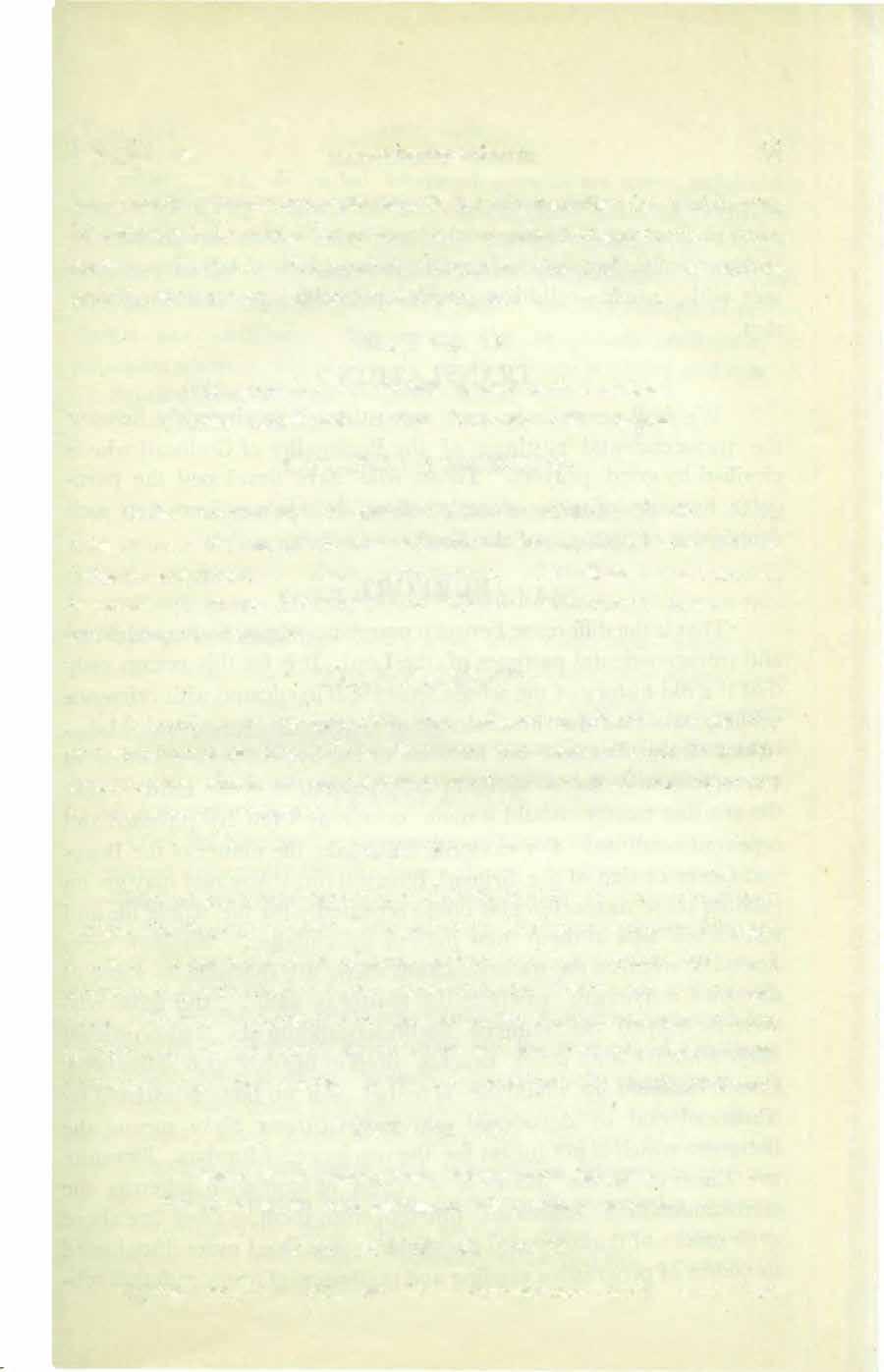
Atha akhyahi harer dhiman avatara kathah shubhah Leela vidadhatah swaira iswarasya alma mqyaa
ENGLISH SYNONYMS
Atka-therefore, Akh]ahi--describe, Harer-of the Lord, Dhiman--Dh the sagacious, Avatara-incamations, Katha-·narratives, Subhah-auspicious, Leela-adventures, Vidadhatah-performed, Swairam-pastimes, Iswaras}'a-the supreme controllar's, Atma-personal, Ma}'aa -energies.
TRANSLATIONS
Therefore oh the sa!-,racious Suta Goswami, please narrate the transcendental pastimes ofthe Supreme controller Godhead's multiincarnations which are auspicious adventures and pastimes executed by His internal potencies.
PURPORT
For creation maintenance and destructions of the manifested worlds, the Supreme Lord Personality of Godhead appears Himself in many thousands Forms ofincarnations and the specific acts and adventures performed in those transcendental Forms are all auspicious. Fortunate persons who happento see them personally during performance ofthe Lord's activities as well as those who hear those transcendental narrations, both are benefited by such pastimes.
TEXT NO. 19.
Va}'am tu na vitrip}'ama uttamasloka vikrame
Tat shrinwatam rasajnanam swadu swadupadepade.
ENGLISH SYNONYMS
VO:J'am -we, tu-but, na-not, vitriph.)'ama- sball be in rest,
Text 18,19] FIRST CANTO 89
uttamasloka-the Personality of Godhead who is glorified by transcendental prayers, vikrame -advetures, yat-which, shrinwatam-by continuous hearing, rasa-humour,jananam-those who are conversant with, swadu-relishing, swadu-palatable, padepade-in every step.
TRANSLATION
We shall never be in rest even though continuously heatj.ng the transcendental pastimes of the Personality ofGodhead who is glorified by good prayers. Those who have developed the particular humour oftranscedental mellow, do relish in everystep such description ofpastimes ofthe Lord.
PURPORT
Thatis the difference betweenmundane stories, fiction orhistory and transcenedental pastimes of the Lord. It is for this reason only that the old history ofthe vv·hole universe isil}culcated with reference to the pastimes ofthe incarnations ofGodhead. Ramayan, Mahabharat or the Puranas are histories of the bygone ages recorded in connection with the pastimes ofthe incarnation ofthe Lord so that the reading matter \vould remain overfresh even by repeatedand repeated readings. For example let us take the matterofthe Bhagwat Geeta or that ofthe Srimad Bhagwatam. Any one may go on reading these transcendental books repeatedly for the whole life and still he will find in them new light of information. J'vfundane news are static whereas the transcendental news are dynamic as much as the spirit is dynamic where as the matter is static. And those who have developed the humour for understanding the transcendental subject matter shall never become tired ofhearing such narrations. One is satiated by mundane activities and no body is satiated by transcendental or devotional activities. Uttama Sloka means the literature which is not meant for the nescience. Mundane literature are Tamas or in the modes of darkness ofignorance whereas the transcendental literatures are different from them. They are above such modes ofdarkness and the light is more and more illuminated in course ofprogressive reading andrealisationoftranscendentalsub-
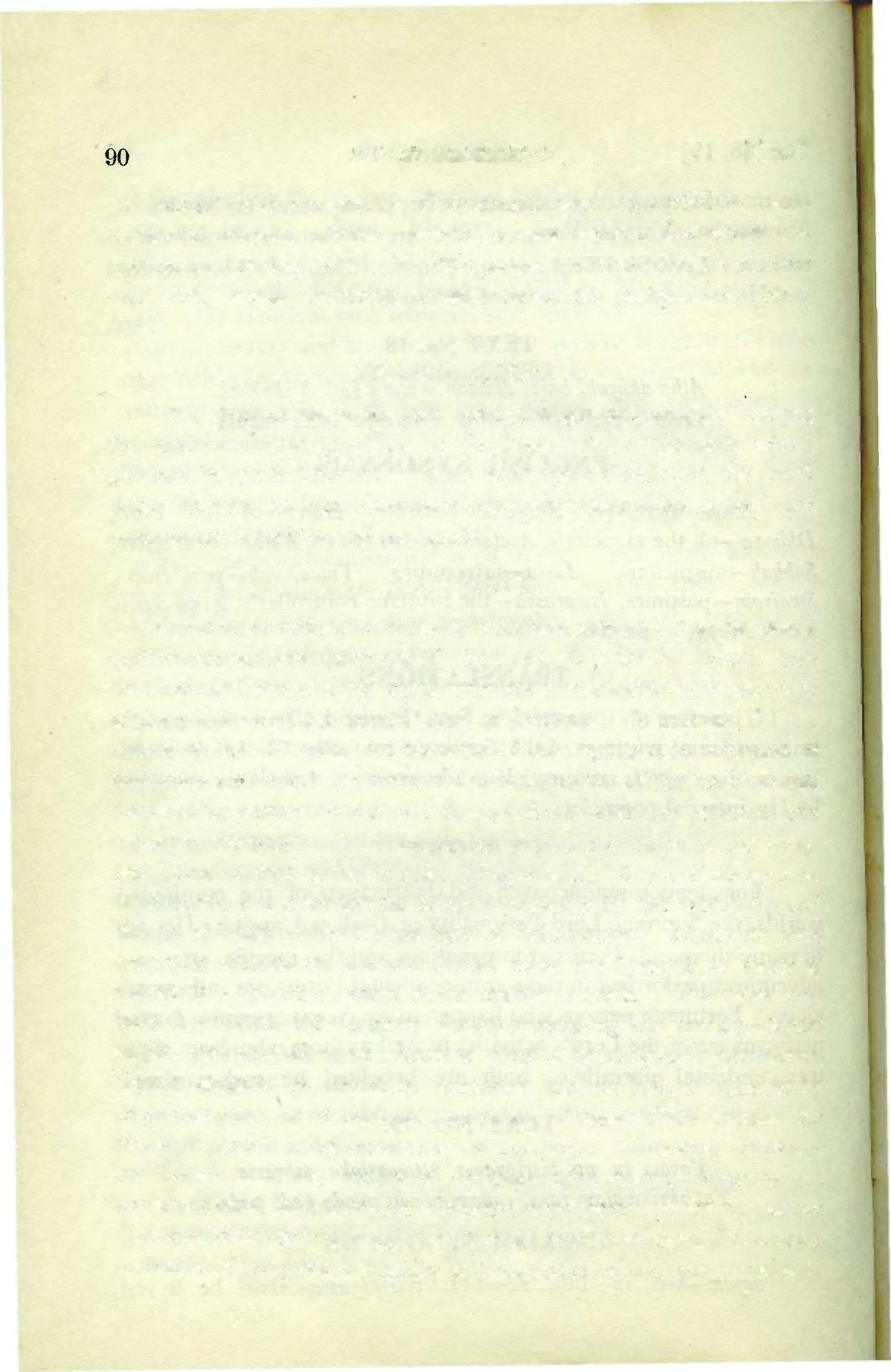
90 SiUMAD BHAGWATA:M [Ch. 1
ject matter. The so called liberated persons are never satisfied by repeatation of the word Aham Brahmasmi. Such artificial realisation ofBrahma becomes hackneyed and thus for relishing real humour they turnto the narrations of the Srimad Bhagwatam. And those who are not so much fortunate they tum to worldly matters ofpliilathropy and altruism. Tl1is means the Mayavada philosophy is mundane whereas the philosophy of the Bhagwat Geeta and that of the Srimad Bhagwatam are transcendental.
TEXT NO. 20.
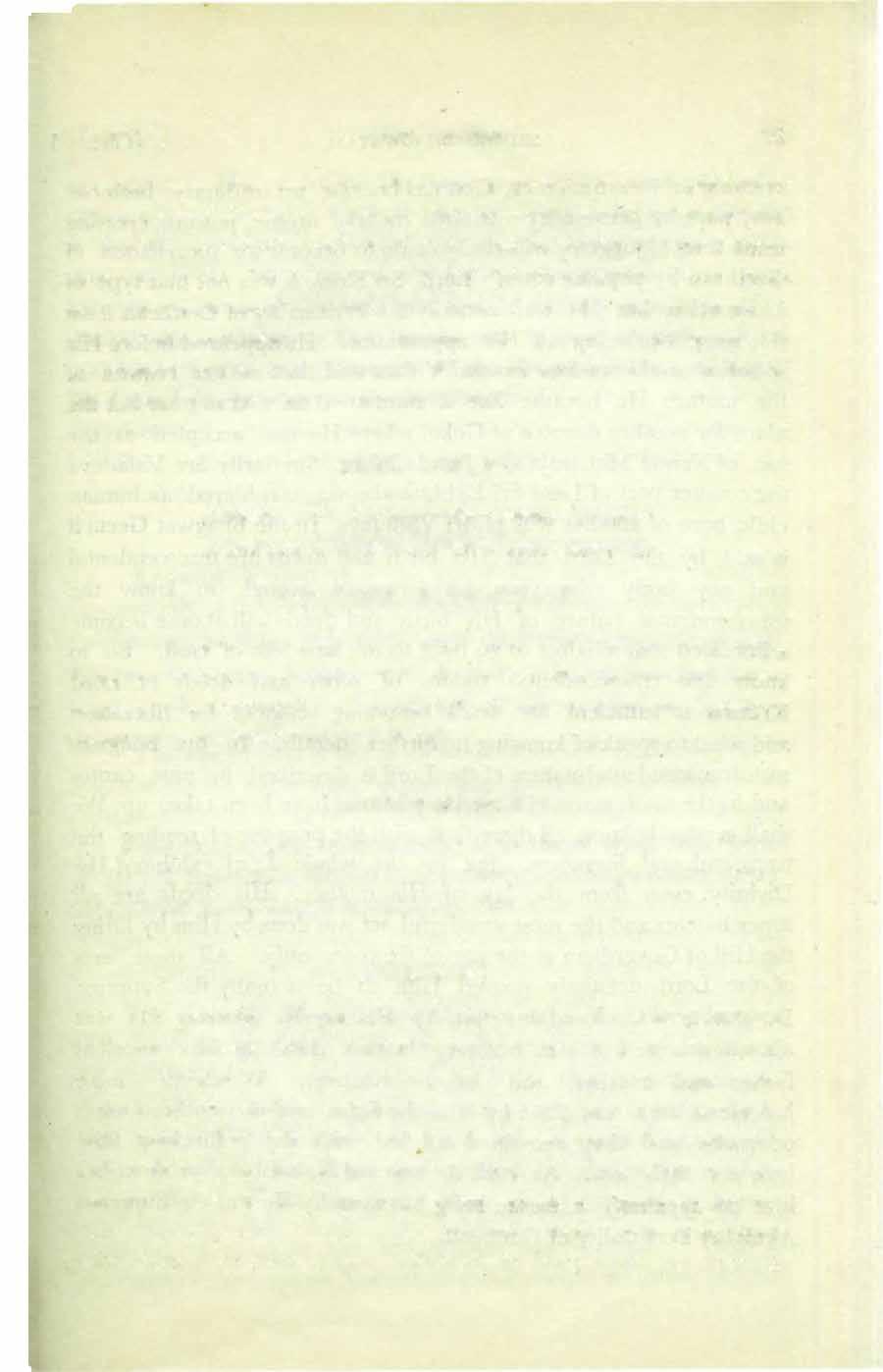
ENGLISH SYNONYMS.
Kritahan-done by, Kila-what and what, saha-aiong with, Ramena-Valarama, Keshava-Shri Krishna, Atimartani-superhuman hhagwan-the personality of Godhead, gudha-masked as, Kapataapparently, manushah-humanbeing.
TRANSLATION
Lord_ Sri Krishan thePersonality ofGodhead along with Valarma played apparently like the human being but He performed many superhuman acts although masked like that.
PURPORT
The doctrins of anthropomorphism or that of zoomorphism are never to be applied to SriKrishna the Personality of Godhead. The theory that a man becomes God by dint of penance and austerities is very much rampant now a days speciallyin India. Since Lord Rama, Lord Krishna or . Lord Sri Chatanya Mahaprabhu were detected by the sages and saints as the Personaltty ofGod. head in terms of the directions given in the revealed scriptures, many unscrupulous men have created their own concocted incarnations in so many ways. Specially in Bengal this practice of
Text 20] FIRST CANTO 91
Kritaban Kila Karmanisaha ramena keshabah Atimartani Bhagwan Gurdha Kapata manusah.
creating an incarnation of God has become an •ordinary business. Any popular personality with little traits of mystic powers creating some feats ofjugglery will easily cause to become an incarnation of Godhead by popular votes. Lord Sri Krishna was not that type of incarnation but He ,was actually the Personality of Godhead from the very beginning of Hjs appearance. He appeared before His so-called mother as four handed Vishnu and then at the request of the mother He became like a human child and at once left the place for another devotee at Gokul where He was accepted as the son ofNanda Maharaja andjasoda Mata. Similarily Sre Valadeva the counter part ofLord Sri Krishna also was considered as human child born ofanother wife ofSri Vasudeva. In the Bhagwat Geetait is said by the Lord that His birth and deeds are transcendental and any body who may be fortunate enough to know the transcendental nature of His birth and deeds will atonce become a liberated soul eligible to go back to the kingdom of God. So to know the transcendental nature of birth and deeds of Lord Krishna is sufficient for one's becoming eligible for liberation and whatto-speak ofknowing in further details. In the Bhagwat such transcendental nature ofthe Lord is described in nine cantos and in the tenth canto His specific pastimes have been taken up. We shall gradually know all these facts with the progress of reading the transcendental literature. But on the whole Lord exhibited His Divinity even from the lap of His mother. His deeds are all super human and the most wonderful act was donebyHim by lifting the Hill ofGoverdhan at the age of six years only. All these acts of the Lord definitely proved Him to be actually the Supreme Personality ofGodhead but yet by His mystic covering He was always accepted as an ordinary human child by His so-called father and mother and other relatives. Whenever some herculean task was done by Him the father and the mother took it otherwise and they remained satisfied with the unflinching filial love for their son. As such the sages ofNaimisharanya describes him as apparentl.J' a human being but actually He was the Supreme Almighty Personality of Godhead,

92 SRIMAD
1
BHAGWATAM [Ch.
TEXT NO. 21.

Kalim agatam ajanya kshetre asmin vaishnave
Va}'amasina deergha satrena katha}'am sakshane hareh.
ENGLISH SYNONYMS.
Kalim- the age ofKali (iron age of quarrel) Agatam-having arrived, Ajnaya-knowing this, Kshetra-in this tract of land, Vaishncve-specially meant for the devotee ofthe Lord, Va}'am -we, Asina-seated, Deergha-prolonged, Satrena-for performance of sacrifices, Sakshana-with time at our disposal, Kathayam-in the words of, Hareh-ofthe Personality ofGodhead.
TRANSLATION
Knowing it well that the age ofKali has already begun we are assembled here with a prolonged programme for performing sacrifices in the shape ofhearing the transcendental message of Godhead.
PURPORT
This age ofKali is not at all suitable for self realisation as it was done in the Satyayuga (Golden age) or as it was possible to be performed in the Treta or Dwapara yugas (silver and copper age). For selfrealisation, the people in the Sat:)'a Yuoga, whenthe duration oflife was for one lac ofyears, the people would have it by performances of prolonged meditation. The same was attained in the Treta}'uga (when the duration oflife was for ten thousands of years) by performances of great sacrifices. In the Dwapara Yug (when the duration oflife was for one thousand ofyears) the same thing was �ttained by worshiping the Lord. But in the Kali Tuga the maximum duration oflife being one hundred years only and that also combined with various difficulties,-the process of self realisasation is recommended by hearing and chanting the holy Name, Fame and Pastimes of the Lord. The sages ofNaimisharanya began this process in that specific land for the devotees ofthe Lord. They became ready for hearing for a prolongedtime even for one thousand of years as the programme was so made. From the examples ofthe sages at Naimisharanya it should be leamt by those
Text
21] FIRST CANTO
93
\�ho want to make a prefection of self-realisation that regular recitation of the Bhagwatam and regular hearing thereofare the only '"'ay for self-realisation. Other attempts will be simply waste of time without any tangible result. Lord Sri Chaitanya Mahaprabhu preached this system of Bhagwat Dharma and He recommended alJ those v:ho are born in India to take up the responsibility of broadcasting the messages of Lord Sri Krishna. Primarily the message ofLord Sri Krishna is the Bhagwat Geeta and when one is well established in the teachings of the Bhagwat Geeta one can take up the study of Srimad Bhagwatam for further enlightenment in self-realisation.
TEXT NO. 22

Twam nah sandarsito dhatra dustaram nistitirsatam
Kalim satwaharam punsam karnadhara ibarnavam
ENGLISH SYNONYMS
Twam -your goodness, Nah-unto us, Samdarsito-meeting, Dhatra-by the providence, Dustaram-insurmountable, .N'istitirsatam-for those desiring to cross over, Kalim-the age of Kali, Satwaharam-that which deteriorates the good qualities, Punsam.ofthe man, Karnadahra-captain, lbarnavam-the ocean.
TRANSLATION
vVe think that your goodness is met by us by the will of providence just to accept you asthe captain ofthe ship which desires to cross over the difficult ocean ofKali which deteriorates all the good qualities ofthe human being.
PURPORT
This age ofKali is very much dangerous for all the human being. The human life is simply meant for self-realisation but by tl:e influence ofthis dangerous time they have forgotten completely the aim of life. In this age gradually people will lose durz.tion oflife, men'ory, finer sentiments, strentgh specially and the list ofthe anomalies for thisage is given in the 12th canto of thi-; great literature. As such it is very difficult for those who
94 SRIMAD BHAGWATAM [Ch. I
want to utilise this life for self-realisation. The question of self realisation is gradually being forgotten and the people are too busy for sense gratification. Out ofmadness they f:rankly say there is no need ofself-realisaiton because they do not know that this spot-life is but a fragment of our journey towards self-realisation. The system ofeducation is meant for sense gratification and one learned man thinks over it as he sees it that the children ofthe age are being intentionally sent to the slaughter house ofthis age. Careful men, therefore, must be cautious ofthis dangerous age and if they at all want to cross over the dangerous ocean ofK.ali; they must follow the foot prints of the sages of Naimisaranya and accept Shi Suta Goswami or his bonafide representative as the captain of the ship. The ship is the ,message of Lord Srikrishna in the shape ofthe BhagwatGeeta or the Shrimad Bhagwatam and one must get on board ofthe ship captained by such expert as Sri Suta Goswami. That is the introductory note for the persons who want to get rid ofthe dangers ofthis age.
TEXT NO. 23


Bruhi Togesware krislzne bralnnanye dharma varmani Swam kastham adhuno' pete dhannam kmn saranam gatah
ENGLISH SYNONYMS
Bruhi -please tell, 1ogesware-the lord of all mystic powers, Krishna�lord Krislma, Bmhrnanye--thc absolute trutb, Dharmareligion, Varman -protector, Swam-own, Kastham-abodc, Adlzunanow a days, Aprte-ha gone away, Dlzarmarn -religion, Kamunto whom, Saranam -shelter, Gatah -gone.
TRANSLATION
Please let us knmv as to whom the religious principles have taken shelter at the present moment when Sri Krishna the Absolute Truth and the Master of all mystic powers has had departed for His mvn abode.
PURPORT
Religion is the prescribed codes enunciated by the Personality
Text 23j FiRST CANTO 95
ofGodhead Himself. 'Vhenever there is gros� misuse of the principles of religion, the Supreme Lord appears Himselfto restore religious principles. In the Bh2gwat Geeta also the same declaration is there and herein the sages of the Naimisharanya enquires on the same principles. The �eply for this question is given later on that Srimad Bhagwatam is the transcendental sound · representative ofthePersonality ofGodhead and as such Srimad Bhagwatam is the full representation oftranscendental knowledge and religious principles.
Thus end the Bhaktivedanfa Purports ofthe first canto-first chapter ofSrimad Bhagwatam in the matter of questions by the sages.
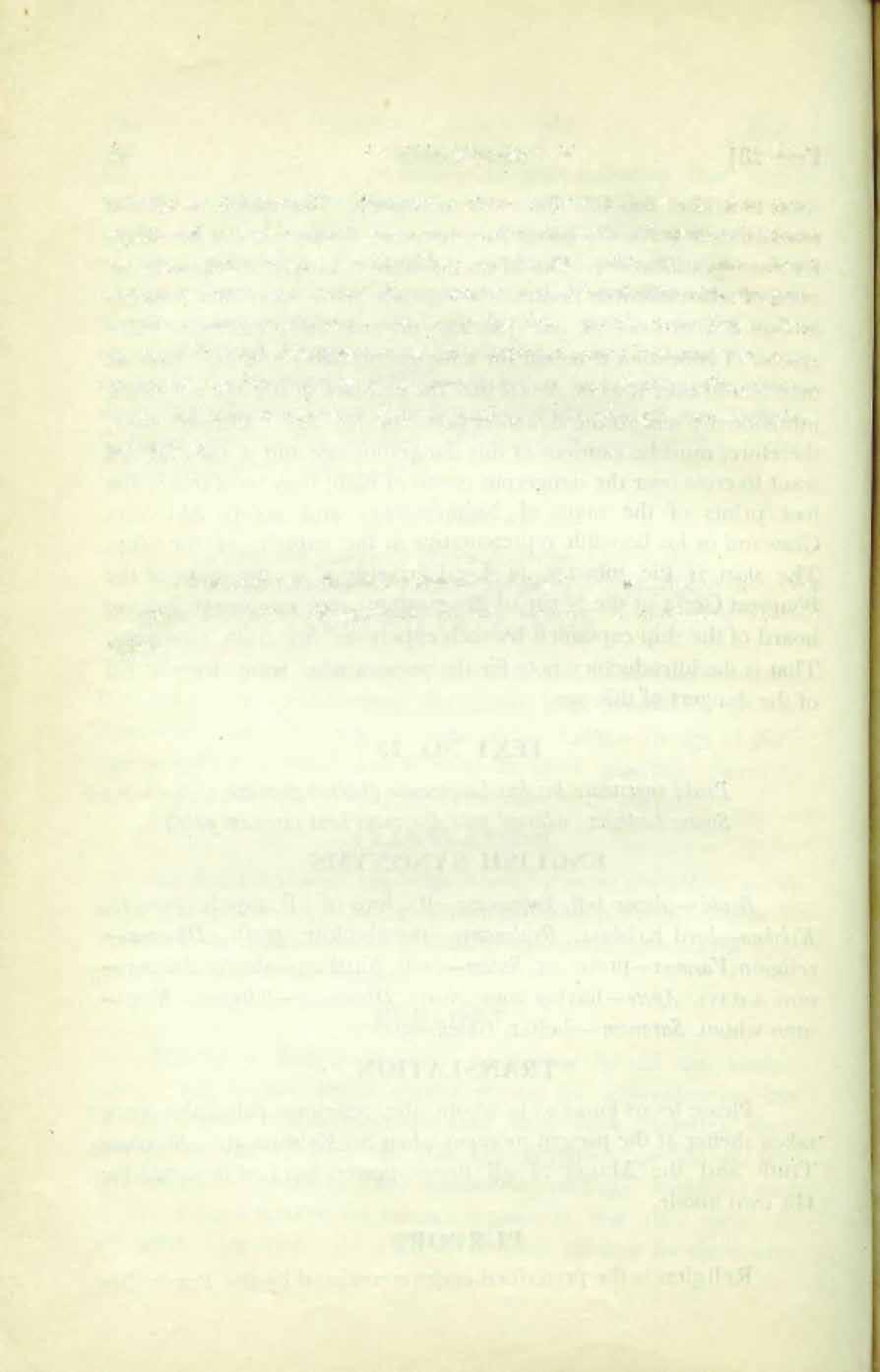
96 s.R.iMAD l3HAGWATAM
1
[Ch.
SECOND CHAPTER
Divinity and Devotional Service
TEXT N0. 1
�a-u+ �rr�t[��e) fcrsrrurr ���fur: 1 'Sf�l:f Cf�l:ft 'SfCf�'ljq'<J";;f;lr II
Jti samprasna samhristo vipmnam mumaharsanih . Pmtipujya vachas tesam pravaktum upachakmme.
ENGLISH SYNONYMS
lti-thus, Samprasna-perfect enquiries, Samhristo--perfectly satisfied, Vipranam-of the sages there, Roumaharsani-The son of Romasharsana namely Ugrashraba. Pratipujya-after thanking them, Vachas-words, Tesam-their, Pravaktum --to reply them, Upachakrame-attempted.
TRANSLATION
Thus the son of Romaharsan of the name Ugrashrava, after being satisfied fully on the perfect questionaires of the Brahmins there, he attempted to reply them one by one and thanked them for their words.
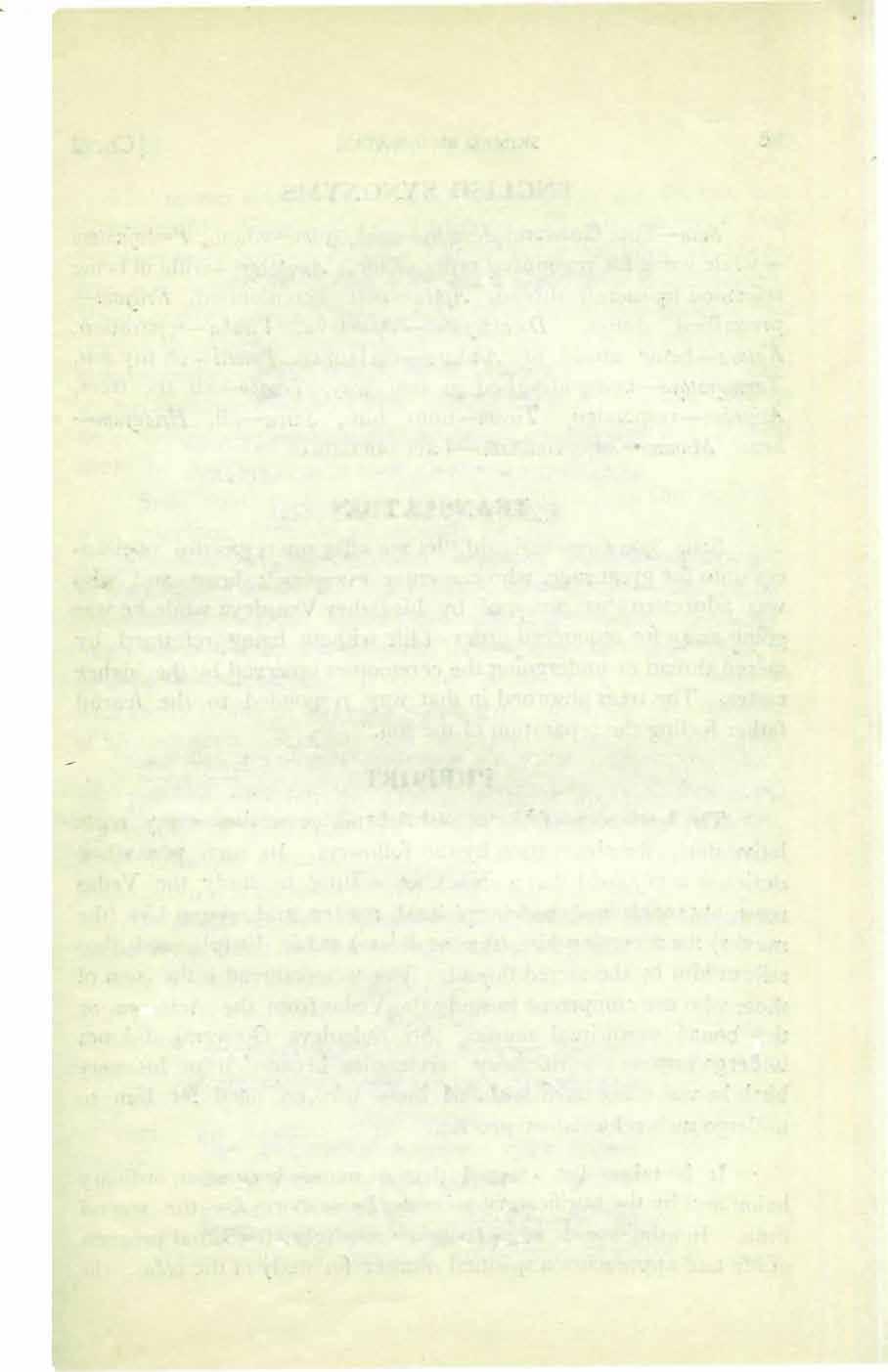
PURPORT
The sages of the Naimisharanya asked from Suta Goswarrii six questions. And he is answering them one by one.
TEXT N0. 2
P.i!"T ��H!CfT'<f "' <i srsr;;r;:Cf112;!fa-q!fcr�c<i [qrl!<r) fc:n:�Cfira� �r��rcr 1



�fer(l'ilflfazn a�cr)sf<iif�a' �<t-wr�� l];f;:rqr;:rcr)sf�lT 11
Suta uvacha
ram prabajantam anupetam apeta
Dwaipqyana virah katara
Putreti tanmayataya tarabo'
Twam sarva bhuta hridqyam munim
krityam ajuhava vinedus anatosmi
ENGLISH SYNONYl\18


Suta-Suta Goswami, Uvacha--said .yam-whom, Prabajantam -while goingfor renounced order of life, Anupetam--withcutbeing reformed by sacred thread, Apeta-non ceremonised, Krityamprescribed duties, DwaijJryaJw-Vyasdeva, Vimha-separation, Katara-being afraid of, Ajuhava-exclaimed, Putreti-oh my son, Tanmayataya-· being absorbed in that way, Tambo-· all the trees, Avineduh-responded, Twam-unto . him, Sarva-all, Hridayamheart, Munim-sage, Anatosmi-offer obeisances.
TRANS,LATION
Srila Suta Goswami said,"let me offer my respectful obeisances unto the great sage, who can enter everyone's heart and who was addressed 'as my son' by his father Vyasdeva while he was going away for renounced order oflife without being reformed by sacred thread or undergoing the ceremonies observed by the higher castes. The trees absorbed in that way responded to the fearful father feeling the separation ofthe son."
PURPORT
The institution ofVarna and Ashrma prescribes many regulative duties for observation by the followers. In such prescribed duties, it is erBoined that a candidate willing to study the Vedas must approach a bonafide spiritual master and request him (the master) for accepting him (the candidate) as his disciple and thus· reform him by the sacred thread. The sacred thread is the sign of those who arc competent to study the Vedas from the Acharya or the bonafide spiritual rnaster. Sri Sukadeva Goswami did not undergo any such purificatory ceremonies because fi·om his very birth he was a liberated soul and there was no ncul for lJim to undergo such refin·matory process.
It is taken for granted that a man is born as an ordinary being and by the purificatory processes he is born for the second time. In other words when he sees a newlight ofspiritual progress oflife and approaches a spiritual master for study ofthe vedas, the
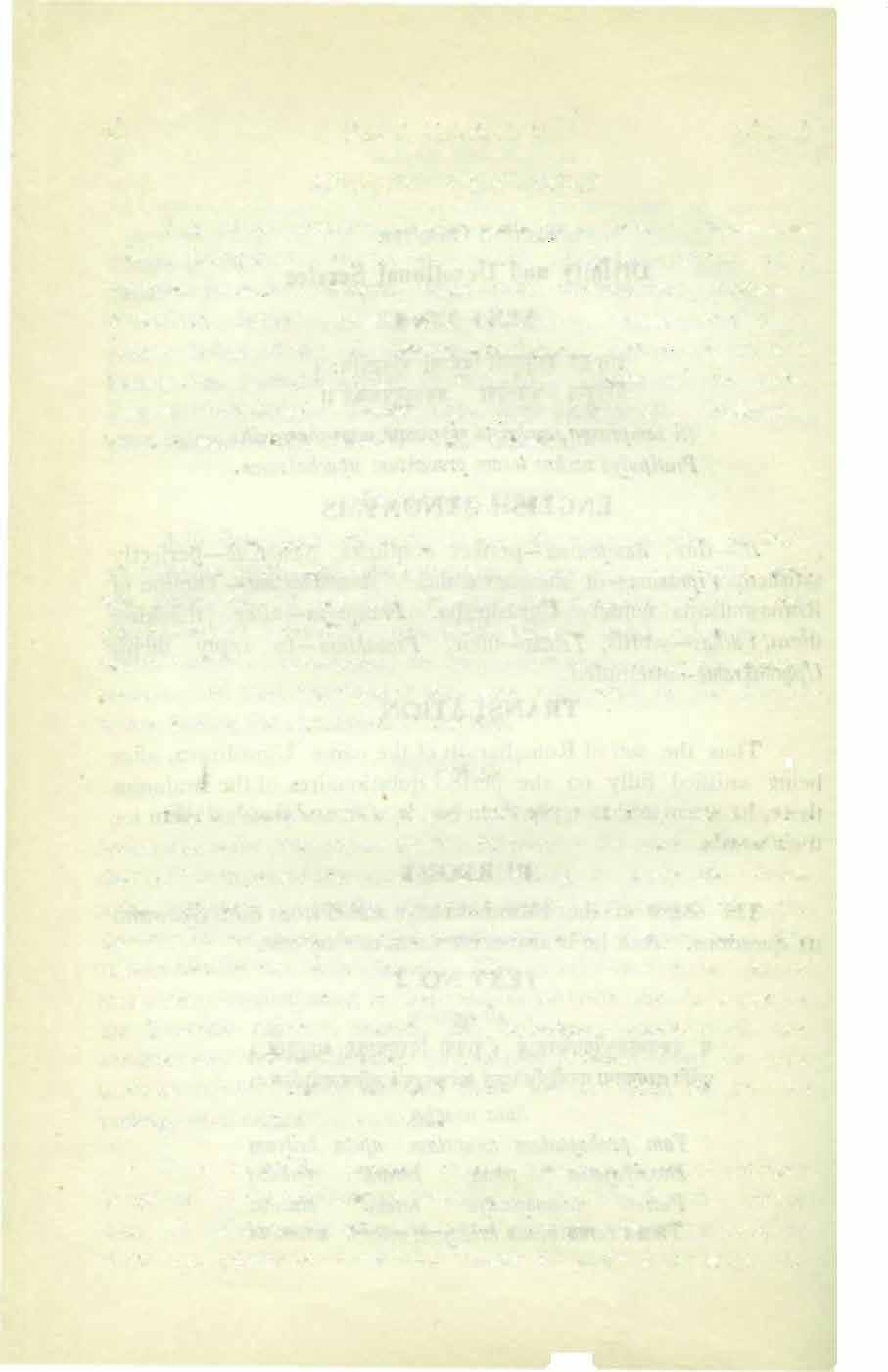
£8 SRif..MD BHAGWATAM (Ch. 2
spritual master accepts only sincere enquirer as his disciple and gives him (the disciple) the sacred thread. By this process a man becomes twice born or a Dwija. After being qualified as Dwija, one may study the Vedas and after passing the examination in Vedas one becomes a Vipra. A Vipra or a qualified Brahmin thus realises the Absolute and makes further progress in life for spiritual advancement and thus becomes a Vaishnava. The Vaishnava stage is the post-graduate status of a Brahmin. A Brahmin must be necessarily a Vaishnava which means a self-realised learned Brahmin.

Srila Sukdeva Goswami was a Vaishnava from the beginning and,_therefore, there was no necessity for him for undergoing all !he p�ocesses ofthe Vamasharam institution. Ultimately the aim ofVarn.asbram Dharma is t6tum a crude man to become a pure devotee of. the Lord or a Vaishnava. Any one, therefore, whq becomes a Vaishnava accepted by d1e first class Vaishni:l.Va or uttamadhikari Vaishnava, is alre�dy a Brahmin, never mind in whatsoever family he might have taken his birth by the influence ofhis past deed. Sri Chaitanya Mahap1;abhu accepted this prinCiple arid He recognised Srila Haridas Thakur as the Acharya of tl:ie Holy Name although Thakur Haridas appreared himsdfin the family of a Mohamedan. The conclusion is, therdore, that Sriia Sukadeva Goswami was a born. Vaishnava and, therefore, Brahminism was included in him even though he did not undergo any one ofthe ceremonies prescribed by the institution of Yarnashram Dharma. Any low born fellow may he be a Kirata, Hun, Andhra, Pulinda, Pukkasa, Abhira, Sumbha, Yavana, Khasadaya or even· lower than them can be delivered to the highest transcendental position, by the mercy of Vaishnavas.
Srila
Sukadeva Goswami was the instructor spiritual master of Sri Suta Goswami and, therefore, he offers his respectful obeisances u11to him before he begins his speeches on the questionaires ofthe sages at Naimisharanya. TEXT NO. 3
FIRST CANTO 99
�: f'fT��T<rlff���Ja�T'�frCfilfeij'TcltGTCflffafcrnWcrt Cfii"TS"'"l� I �e"Tf�IJTT Cfi"QjJJ'-TfSS�'_!�T���- cf o!fHT�',!�Cf'-TTft:r ��-�'ff"'fT� U
SRIMAD BHAGWATAM
Yah swanubhabarn akahila sruti samm ekam
Adhyatama deepam atititeersatam tamondham
Samsarinam korunaya aha puranam gul!Jam
Tam vyasasunam upoyami gurum muninam.
ENGLISH SYNONYMS.
[Ch. 2
Yah-he who, Swanubhabam-self assimiliated (experienced) Akhila-all round, · Sruti-veclas, Saram-cream, Ekam-the only one, Adhyatma-transcendcntal, Deepam-torchlight, Atititeersatamdesiring to overcome, Tamondham-clecply clark material existence, Samsarinam-of the materialistic men, Karunaya-out ofcauseless mercy, Aha-said, Purnam-supplimentary to the Vedas, Guhyamvery confidential, Tam-unto him, li)asasunum-thc son ofVyasacleve, upayami -let me offer my obeisances, gurum-spiritual master, muninam--ofthe great sages.
TRANSLATION
Let me offer my respectful obeisances unto him who is the spiritual master ofall sages and the son of Vyasadeva, who, out of his great compassion for the gross materialists desiring to cross over the darkest region ofmaterial existence, said the most confidential suppliment ofthe cream ofVedic knowledge after havingpersonally assimilated the same by experience.
PURPORT
In shis prayer ofSrila Suta Goswami, practically the complete introduction of the Srimacl Bhagwatam is summarised. Srimad Bhagwatam is the supplimentary natural commentation of the Vedanta Sutras. Vedanta Sutras or the Brahma Sutras were compiled by Vyascleva just to present a cream ofall vedic knowledge. And Srimacl Bhagwatam is the natural commentation of the same cream. Srila Sukacleva Goswami was a thoroughly passed Master ofArt on the Vedanta Sutra and as such:he personally realised the commentation, on the Vec!ant_a Sutra under the heading of Srimad Bhagwatam. And out ofhis own accordjust to show hi� boundless mercy upon th� bewildered materialistk meri, -whowanted to cross

100
over the nescience completely,--said for the first time this confidential part ofthe supplements ofthe Vedic knowledge.
There is no use arguing that any materialistic man can be happy. Any materialistic man, however, great he may be even on the position ofa Brahma down to tl1e insignificant creature like the ant, cannot be happy. Every one is trying for himself to make a permanent J)lan for happiness but he is becoming baffled in the next moment because that is the law ofmaterial energy. Therefore, the materialistic world is the darkest region ofGod's creation. The unhappy materialistic man C<:tn get out ofit simply for desiring to get out of it. Unfortunately they arc so much foolisl1 that they do not wish t9 get out ofit. They are there compared with the camel. The camel relishes thorny twigs although thorns cut it's tongue and there is discharge ofblood within the mouth. The fact is that the camel tastes its mvn blood �mimating out ofthe cuts by the thorny c�eepers but the camel �relishes the thorns because it becomes tasteful being mixed up with its own blood. SimUa _ rly the camel and ass like materialist tastes his own blood as sweet as honey and does not wish to get out ofit even though he is always harassed by his own material creations. Such materialist is called the Karmis. Out of such crores of Karmis only a few may feel tired ofsuch material engagements and desire to get out of _the hurdle. And such intelligent persons are called Jnanins. The Vedanta Sutra is meant for suchJnanins. But Srila Vyasadeva as H(is the i�carnation of power of the Supreme Lord, could foresee the misuse of the Vedanta Sutra by unscrupulous men, and, therefore, He personally made a . commentation of the Vedanta Sutra in the shape ofthe Bhagwat Puranam. Itisclearly said that this Bhagwat is the original commentation of the Brahma Sutras. Not only that Srila Vyasa�eva instructed the same to His ovv-n son Srila Sukadeva Goswami who was already on the liberated stage of transcendence.
Srila Sukadeva Goswami realised it personally and then- explained it. By the mercy of Srila Sukadeva Goswami the BhagwatVedanta-Sutra has become as easy for all tl1ose sincere souls who want.to. get out ofthe material existence.
- ·srJmad Blragwatam is the only -one unri-valled commentation
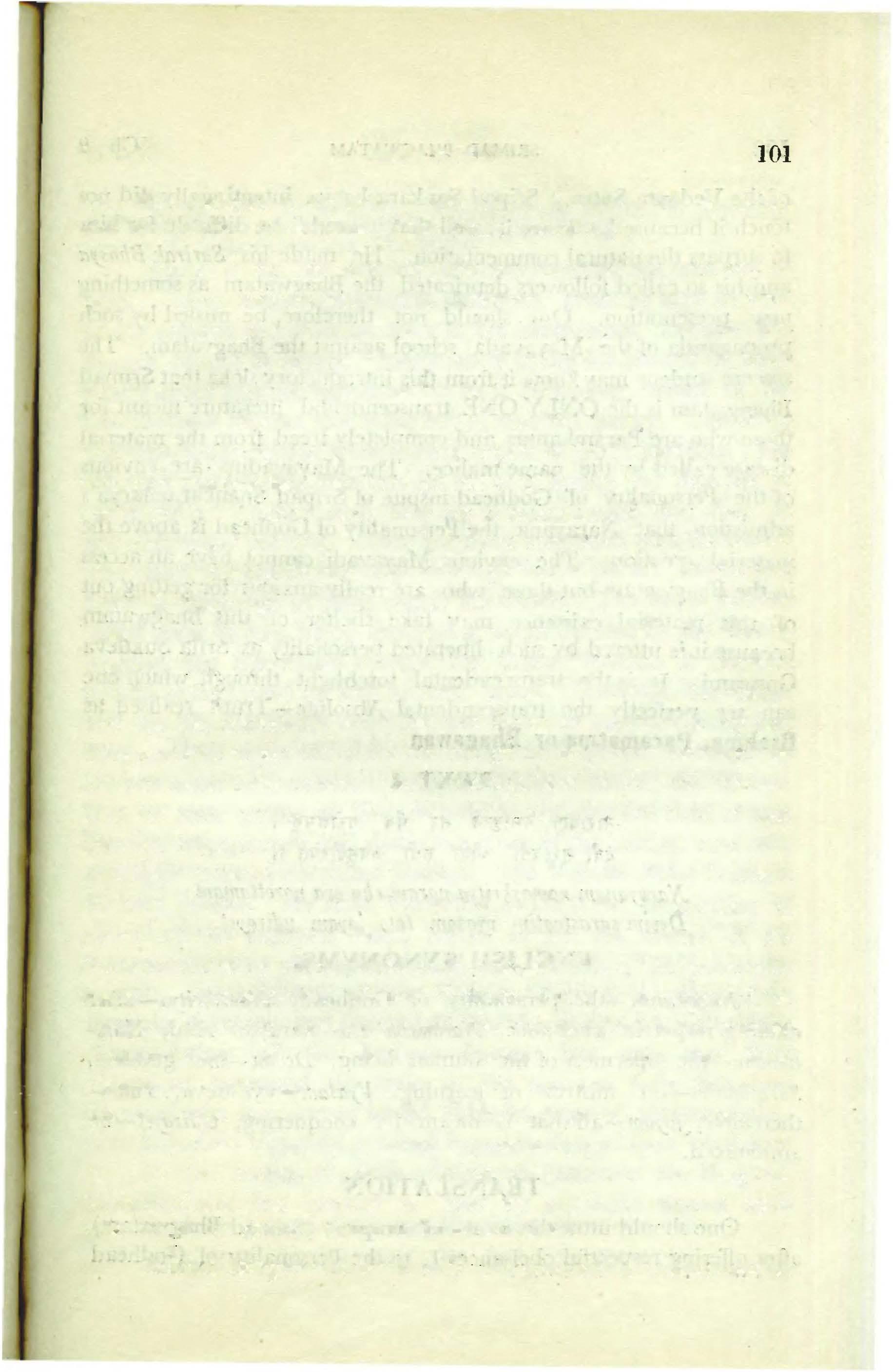
Text 3] - FlRST CANTO 101
ofthe Vedanta Sutra. Sripad Sankaracharya intentionally did not touch it because he knew it well that it would be difficult for him to surpass the natural commentation. He made his SarirakBhasya and his so called followers depricated the Bhagwatam as something new presentation. One should not, therefore, be misled by such propaganda ofthe Mayavada school against the Bhagvatam. The sincere student mayknow it from this introductorysloka that Srimad Bhagwatam is the ONLY ONE transcendental literature meant for those who are Paramhansas and completely freed from the material disease called by the name malice. The l\1:ayavadins are envious ofthe Personality of Godhead inspite ofSripad Shankaracharya's admission that Narayana the Personality ofGodhead is abbve the material creation. The envious Mayavadi cannot haye an access in the Bhagwatam but those who are really anxious for getting out of this material existence may take shelter of this Bhagwatam Because it is uttered by such liberated personality as Srila Sukdeva Goswami. ·· It -is the transcendental torchlight through which one can see perfectly the transcendental Absolute-Truth realised as lJrahma, Paramatma or Bhagawan.
1 itcrl ���<faT om� Cf6"T Gf'lf�G:T�ilo II

Narayanam namaskritya naram cha eva narottamam
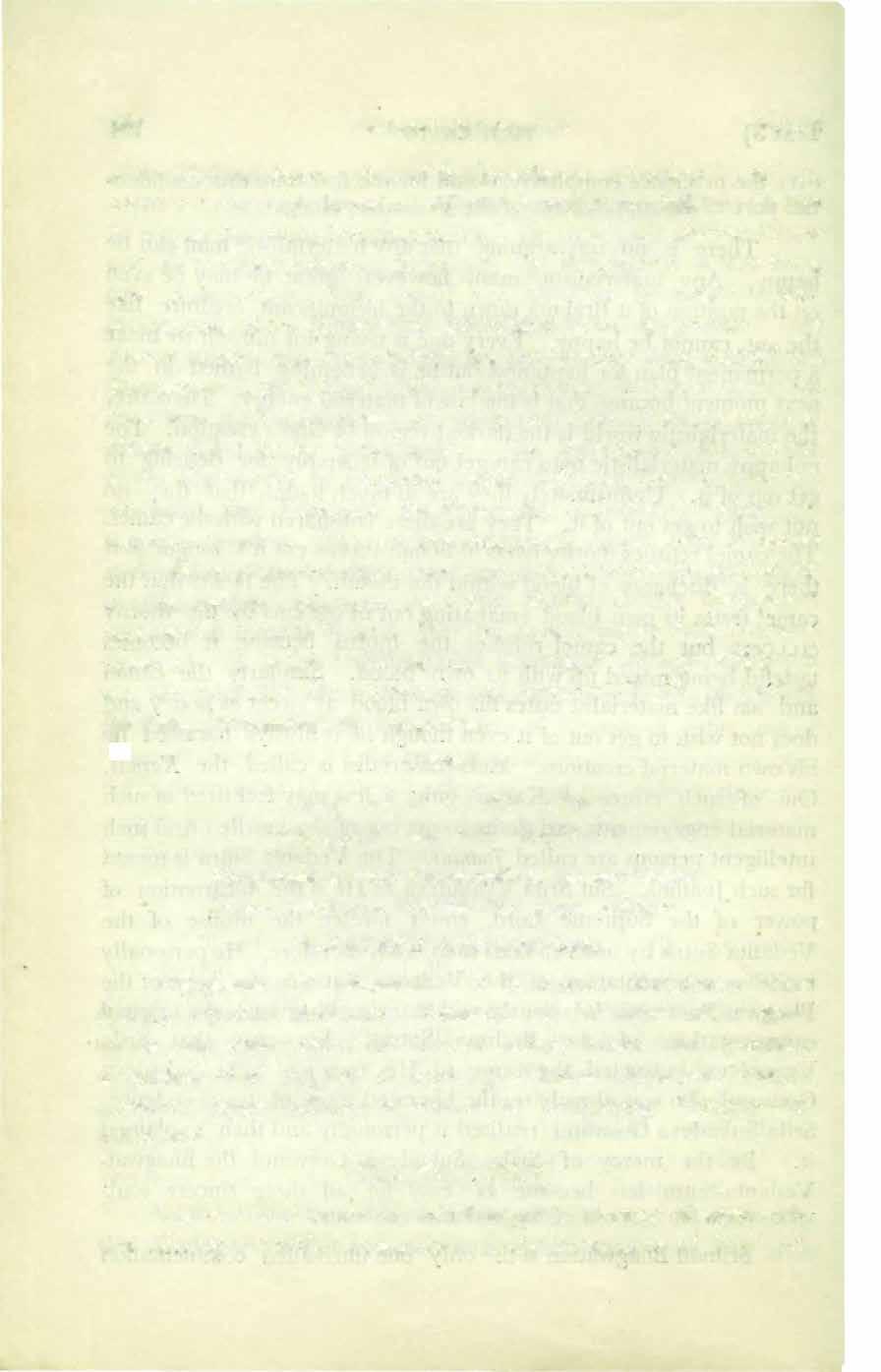
Devim saraswatim vyasam lata jayam udirayet.
ENGLISH SYNONYMS.
Narayanam -the personality of Godhead, Namskritya-after offeri11g respectful obeisance, Naramclza eva-narayan rishi, Narottamam- the supermost ofthe human being, Devim -the goddess, Saraswatim-thc mistress of ]earning, Vyasam-vyasdeva, Tatothercafter,Jayam-all that is meant for conquering, Udirayet-be announced.
TRANSLATION
One should utter the means ofconquest (Srimad Bhagwatam) after offering respectful obeisances 1. to the Personality of Godhead
102 SRIMAD BHAGWATAM [Gh. 2
TEXT 4 ;rr�Tli� ;rq�licli ;:r� :4-cr ;r�)�ql!
Narayana, 2. to the Naranarayan Rishi who is the supermost human being 3. to the mother Saraswati the goddess of learning then 4. to Srila vyasadeva (d1e author)
PURPORT

All the Vedic literatures and the Puranas are meant for conquering the darkest region ofmaterial existence. The living being is in the state of forgetfulness ofhis relation with God on account ofhis too much attraction for material sense gratification from the time immemorial. His struggle for existence in the material world is a perpetual affair and it is'not possible for him to get out ofit by plan making business. If he at all wants to make conquest over tlris perpetual struggle for existence he must re-establish his eternal relation with God. And one, who wants to adopt such remedial measures, must take shelter of these literatures like the Vedas and the Puranas. Foolish people say that the Puranas have no connecwith the Vedas. Actually the Puranas are supplimentary explanations of the Vedas for different types of men. All men are not equal. There are men who are conducted under the mode of goodness, there are others who are under the mode ofpassion and there are otl1ers who are conducted under the modes ofignorance. The Pnranas are so divided that any class ofmen can take advantage ofthem and gradually regain the lost position and get out of d1e hard struggle for existence. Srila Suta Goswami shows the way of chanting the Puranas and the same may be followed-by persons who may be preachers of the Vedic literatures and the Puranas. Srimad Bhagwat is the spotless Purana and it is specially meant for them who are desirous to get out of the material entanglement for good.

Text 5] FIRST CANTO 103
TEXT NO. 5 ��: ij"l� �ors� +r<rf�ffilitr�'{ 1 lR�;;r: 'li��sr�ilr it;;r;:m �sr�TGf;;r 11 Muna;•ah sadhupristo' ham bhavatbhir loka managalam rat kritah Krishna samprashno yena alma SUjJrasidati.
ENGLISH SYNONYMS
Munayah-oh the sages, Sadhu-this isjust relevant, Pristoquestioned, Aham--myself, Bhavatbhi-by you all, Loka-the world, Mangalam-welfare, rat-because, Kritah-made, Krishna-The Personality ofGodhead, Samprasana-relevant question, Yena -by which, Atama -self, Suprasidati -completely pleased.
TRANSLATION
Oh the sages, I have beenjustlyquestioned by you. It is relevant because there is public welfare in the question as they are in relation with Krishna. And this sort ofquestions only can please the self completely.
PURPORT
As it .is stated hereinbefore that in the Bhagwatam the absolute Truth is to be known so the questions, of the sages in the Naimisharanya are proper and just because they are made in relation with Krishna Who is the Supreme Personality of Godhead Absolute Truth. In the Bhagwat Geeta the Personality of Godhead says that in all the Vedas there is nothing but an urge for searching Him (Lord Krishna).* As such the questions in relation with Krishnais the sum and substance ofall the Vedic enquiries.
The whole world is full ofquestions and answers. The birds, beast(orthemanallarebusyinthematter ofperpetual questions and answers. In the moming the birds in the nestbecome busywithquestions and answers in·the evening also the same birds come back and again become busywith questions and answers. The human beingunless he is fast asleep at night he is busy with questions and answers. _ The businessmen on the market place is busy with questions and answersand so also the lawyers in the court and the students in the schools and colleges. The legislators in the parliament are also busy with questions and answers and the politicians or the press representatives all are busy with questions and answers. But they go on makingsuchquestionsand answers for the whole life and still they ""B.G. 15/15
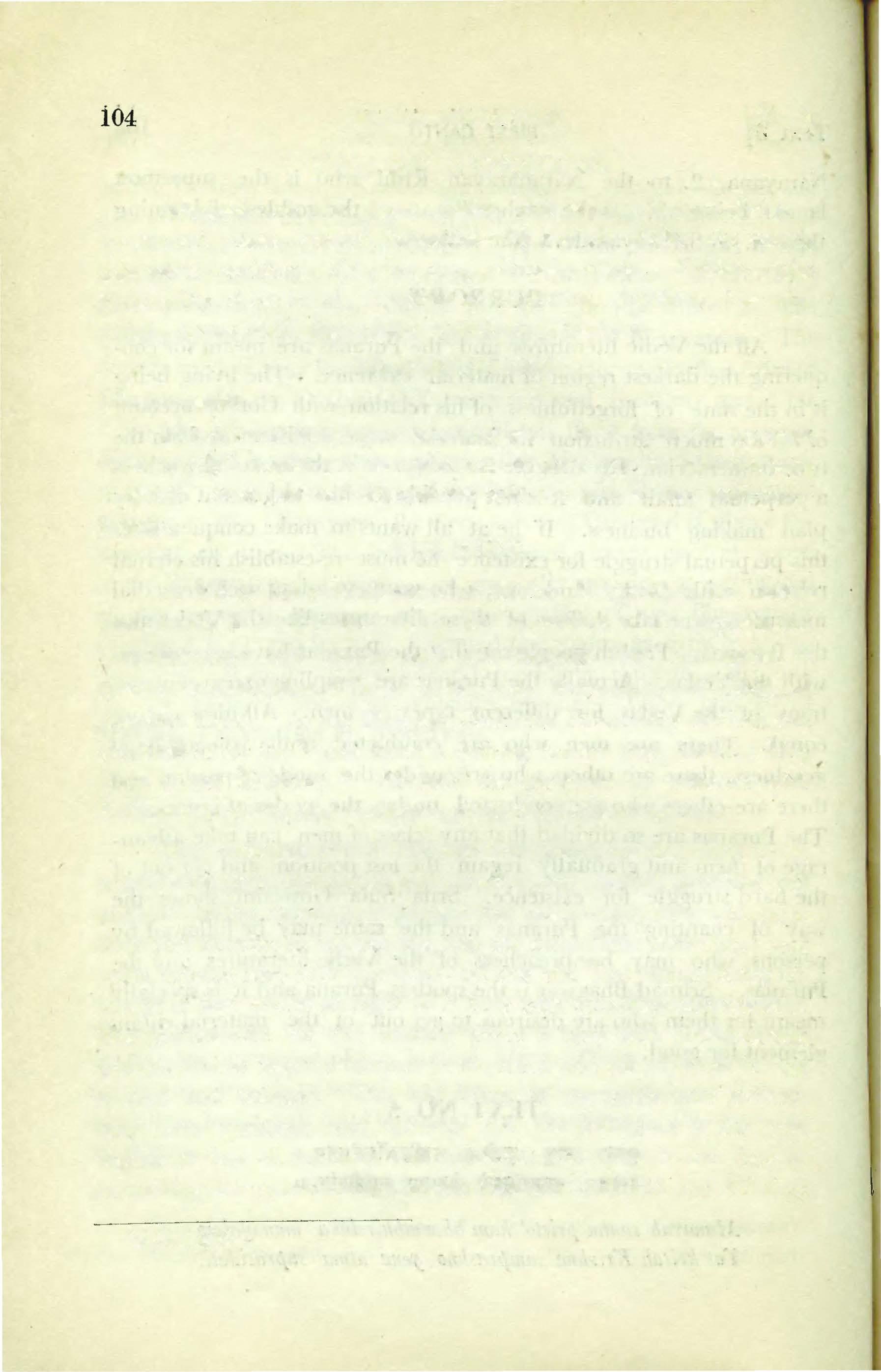
104 siUMAD BliAGWA'rAM tch. 2
are not at all satisfied. Satisfaction ofthe soul can only be obtained byquestions and answers on the subject ofKrishna.
_ Krishna is our most intimate master, friend, father or son and o�ject ofc�njugal love. :Forgeting Krishna we have created so many objects of ques.tions and anS"fvers but none ofthem are able to give us complete satisfaction. Any thing except Krishna can give us tern-, porary satisfaction only and ifwe have to have complete satisfaction we must take tothe questions and answers about Krishna. We cannot live for a moment without being questioned or without giving answers. Because the Srimad Bhagwatam deals in questions and a_nswers -in relation with Krishna, we can derive the highest satisfaction only by reading and hearing this transcendental literature. Learn the Srimad Bhagwatam and make an all round solution of_ all problems regarding social, political or religious matters. Srimad Bh:;tgw"Btam and Krishna is the sumtotal of all things.
TEXT NO. 6.

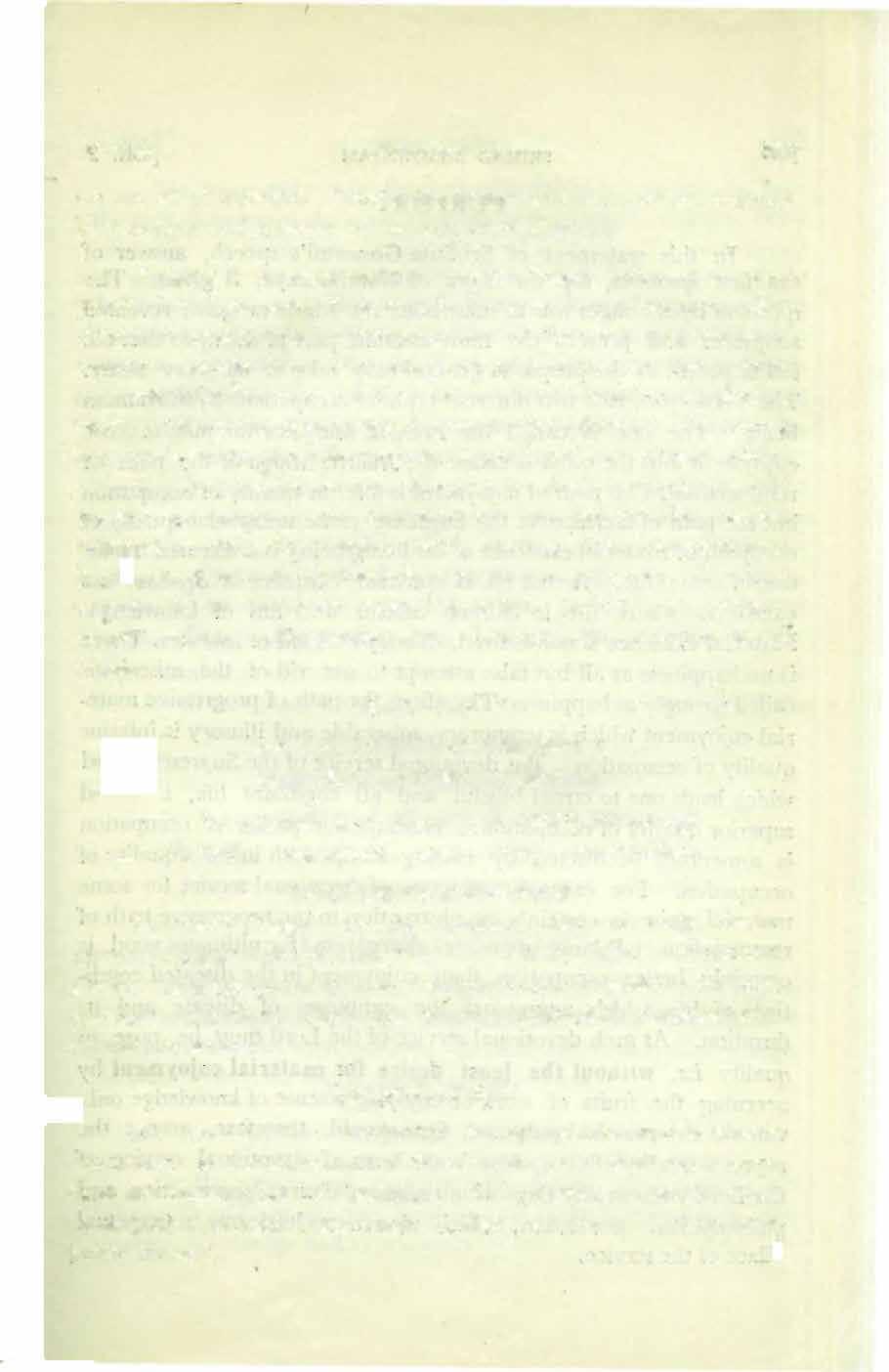
� � 2;'trt q�) �Jff llal �f'iil��)&f�- I SR"��i!fllSifiJ�ijT

llllTSSfflT 'I"�ll'ffC'ff<i II
Sa bai punsam paro dharmoyato hhakti radhokshaje
Ahaituki apratihata yqya atma samprasidati.
ENGLISH SYNONYMS
Sa-that, Punsam-for the mankind, Bai-certainly, Parasublime, Dharmo-occupation, rato-by which, Bhakti-devotional service, Adhokshaje-unto the transcendence, Ahaituki-causeless, Aprtihata_:_unbroken, Taya-by which, Atma-self, Samprasidaticomplete1y satisfied.
TRANSLATION
The most perfect occupation for all human kind is what is conductive to the attainmentofdevotional service oftranscendence Supreme Personality of Gadhead. Such devotional service must be unmotivated and · undeterred so that the same shall completely satisfy the self.
Text �] FIRST CANTO 105
In this statement of Sri Suta Goswami's speech, answer of the first question, by the sages of Namisharaya, is given. The question by the sages was to summarise the whole range of revealed scriptures and present the most essential part ofthem, so that the fallen people or the people in general may take it up very easily. The Vedas prescribe two different types ofoccupations by thehuman being. The one is called the· Pravirtte Marga or the path ofsense enjoyment and the other is called the Nivirtti Marga or the path of renunciation. The path ofenjoyment is inferior quality ofoccupation but the path ofsacrifice for the Supreme cause is superior quality of occupation. Material existenceofthe living being is a diseased condiw tion ofactual life. Actual life is spiritual existence oi Brahmabhuta existence where life is eternal blissful and fu]l of knowledge. Material existence-is non-eternal, illusory and full ofmiseries. There is no happiness at all but false attempt to get rid of the miseries is called wrongly ashappiness. Therefore, the path ofprogressive mate� rial enjoyment which is temporary, miserable and illusory is inferior quality ofoccupation. But devotional service ofthe Supreme Lord which leads one to etrnal blissful and all cognisant life, is called superior quality ofoccupation., The superior quality of occupation is sometimes· obstructed by mixing it up with inferior quality of occupation. For example adoption ofdevotional service for some material gain is certainly an obstruction to tbe progressive path of renunCiatiOn. Renunciation or abnegation for ultimate good is certainly better occupation than enjoyment in the diseased condi� tion of life which aggravates the symptoms of disease and its duration. As such devotional service ofthe Lord must be pure , in quality i.e, without the least desire for material enjoyment by accruing the fruits of work or enjoying a sense ofknowledge only without any practical purpose. One i>hould, therefore, accept the superiorquality ofoccupation in the form of devotional service of the Lord without any tinge ofunnecessary desire, fl,litive action and philosophical speculation, which alone can lead one to perpetual . solace ofthe service.


106 SRIMAD BHAGWATAM [Ch. 2
PURPORT
We have purposely denoted Dharma as occupation, because the root meaning ofthe word Dharma is that which sustains one's existence. A living being's sustenance of existence is to co-ordinate his activities in terms ofhis eternal relation with the Supreme l-ord Krishna. Krishna is the central pivot ofliving beings and He is the all attractive Living Entity or Eternal Form amongst all other living beings or eternal Forms. Each and every living being has his eternal form in the spiritual existence and Krishna is the central attraction for all ofthem. Krishna is the complete whole and everything else is His part and parcel. The relation is of one service and the served. This relation ofservice and the served is transcendental as such relation is completely distinguished from our experience jn the material existence. This relatiop. ofservice and the served is the most congenial form ofintimacy. One can realise itwith the progress ofdevotional service and as such every one should engage himself in that transcendental loving service ofthe Lord even in the present conditional state ofmaterial existence. That will gradually give one the clue•to the actual life and please his selfin complete satisfaction.
'
TEXT N0.7.
-.rq�fo lff<�a-<rrl"f: sr<rrf\iffi: :
Jlasudeve bhagwati blzaktiyogah prayojitah

Janayati asu vazragyam jnanancha yat ahaitukam
ENGLISH SYNONYMS
Vasudeve-unto Krishna, bhagwati-unto the Personality of Godhead,_ bhaktiyogah-contact ofdevotional service, Janayati-does produce, asu-very soon, vairagya-detachment,jnanam-knowledge, cha-and,yat-that which, ahaitukam-causeless.
TRANSLATION
By the process of applying devotional service unto the Personality ofGodhead Shri Krishna, the immediate result is that causeless knmvledge and detachment follow.
Text 7j FIRST CANTO. -1()7
:jfi'fl:l�l:fT�
err��%
<h:F<i inTi'f 'if l:fG"��'fil{ II
ios SRIMAD BHAGWATAM (Ch. 2
PURPORT

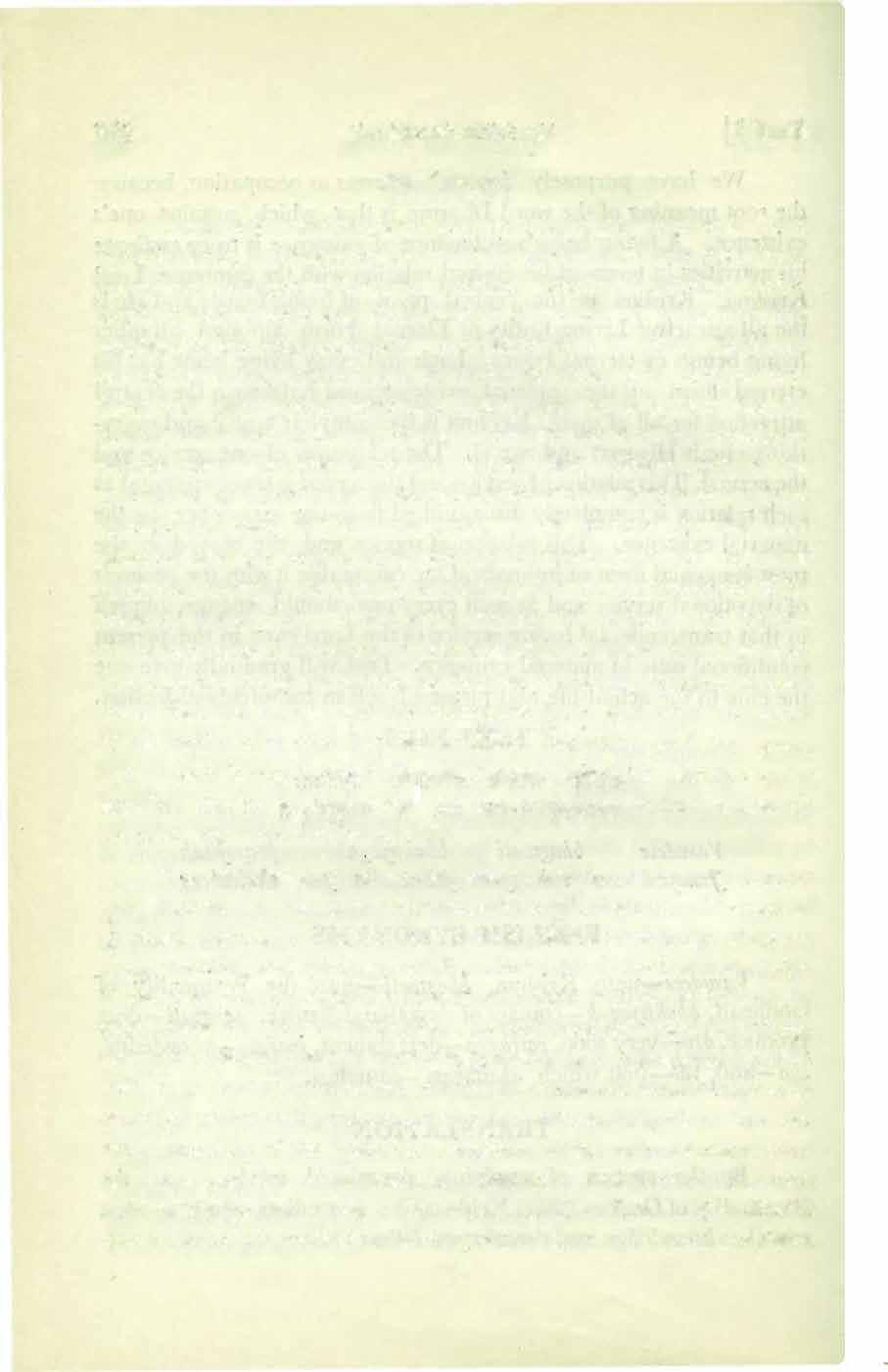
Those who consider devotional service of the Supreme Lord Shri Krishna, as something like material emotional affairs may argue that in the revealed scriptures, sacrifice, charity, austerity, knowledge, mystic powers and similar other processes of transcendental realisations are recommended. And according to them Bhakti or devotional service ofthe Lord, is meant for those who cannot perform the high grade activities. Generally it is spoken thatthe Bhakti cult is meant for the Sudras, Vaishya and the less intelligent women class. But that is not the actual fact. Bhakti cult is the topmost ofall other transcendental activities and therfore it is both sublime and easy at the same time. It is sublime for the pure devotees who are serious about getting in contact with the Supreme Lord and easy for the neophytes who are just on the threshold ofthe house ofBhakti cult. It is a great science to achieve the contact ofthe Supreme Personality ofGodhead Shri Krishna and it is open for all living beings including the Sudras, Vaishyas, Wome:q or even lower than the Sudras who are called low born, and what to speak ofthe higher class men like the qwilified Brahmins and the great selfrealised Kings ?· The other high grade activities designated as sacrifice, charity, austerity etc. aU are corollary factors following the pure and scientific Bhakti cult.
The principles ofknowledge and detachment are two important factors on the path oftranscendental realisation. The whole spiritual process is meant for having perfect knowledge ofeverything material and spiritual and th� eflect ofsuch perfect knowledge is that one gets consequently detachment from material affection and attachment fbr spiritual activities. Detachment for material things does not mean to become inert altogether as it is considered by men with poor fimd ofknowledge. Naiskarma means not toundertake such activities which will produce good orbad effects. Negation does not mean negation ofthe positivity. Negation ofthe non-essentials does not meannegation ofthe essential. Similarly detachment from material forms does not mean nullifying the positive form. The Bhakti cult is meant for realisation ofthe positive form. When the positive

form is realised the negative fol·ms are automatically eliminated. :Therefore, with the development ofBhakti cult i_,(!. with the .appli'cation ofthe positive service to the positive form �ne gets. naturally detached from the negative forms as one gets detached from inf�rior quality ofthings after achievementofsuperior quality ofthings. Similarly the Bhakti cult being the supermost occupation ofthe living being the latter certainly gets retired from inferior occupation ofmaterial sense enjoyment. That is the sign of a pure devotee. He is neither foolnor engaged iri the inferior energies ofmaterial values, How this happens cannot be ascertained by dry reasoning but it �ctually happens by the Grace ofthe Almighty. The conclusion is .that one who. is pure devotee has all the other good qualities namely knowledge, detachment etc. but one who has only knowlede of detachmentmaynot be well acquainted with the principles ofBhakti �ult which is the supermost occupation ofthe human being,
TEXT NO. 8

�if: fCf�f!SO<'i:t�T f�<f{fif'li'�n� �: I iJ)CtJT({ll�fG"{f� 1Sf1f '{Of f� �Cffl"l! II
Dharma swanusthtah punsam viswaksena kathasuyah
Na utpadayet yadi ratim sharma eva hi kevaiam
ENGLISH SYNONYMS
Dharma-occupation, Swanusthitah -executed in terms ofone's own position, Punsam-ofthe humankind, Viswaksena-personality ofGodhead(plenaryportion), Kathasu-in the message of, Yah-what is, na- not, Utpadayet-does produce, Tadi- if: Ratih-attraction, Shrama-useless labour, Eva-only, Hi-certainly.
Occupational activities according to one's own position executed by the human kind, turns into useless labour only if such activities do not provoke attraction for the message of the Personality ofGodhead.
Texf_ 8j ····.FIRST CANTO 109
PURPORT


There are different occupaticnal activities in terms of man's different conception oflife. To the gross materialist who cannot see anything beyond the_gross material body, there is nothing beyond the senses and as such their occupational activities are limited by concentrated and extended selfishness. Concentrated selfishness is:around personal body as it is generally seen amongst the lower animals. Extended selfishess is manifested in human society in the form offamily, social, communal, national or -international selfish:ness ofthe gross bodily comfort. Above these grossmaterialiststhere are other mental speculationists who hover aloft the mental spheres and the occupational duties become thoughtful poetry, philosophy or some ism with the same aim ofselfishness limited by the body and the mind. But above the body and mind there is the dorma�t spirit soul whose absence from the body makes the whole range of bodily and mental selfishness completely null and void. But less intelligent people have not information of the need of the spirit soul.
Because the foolish people have no information ofthe souland how spiritsoul isbeyondthe purviewofthe body andthe.mind, there fore all their occupational duties can not g:ive them complete satisfaction. Herein the question ofsatisfaction ofthe selfis raised. The selfis beyond the gross body and subtle mind and he is the potent ·a-ctive principle ofthe bodyand mind. 'Without knowingthe need of the:dormantsoul how one can behappy simplybyemolument ofthe &�dy and mind. The body and the mind are but superfluous outer coverings ofthe spiritsoulbutthe soul's needsmust befulfilled. 'With out knowing the needs of the bird in the cage, simply by cleansing the cage the bird can not be satisfied.



The need ofthe spirit soul is that he wants to get out of the · limited sphere ofmaterial bondage and\\'ants to fulfil the desire for complete freedom. He wants to get out of the covered walls ofthe greater universe. He wants to See the free light and the spirit. That complete freedom is achieved when he meets the complete Spirit


iio s.RiM:Ai> �HAowAtAM tCh. 2
Personality ofGodhead. There is dormant affection of God within everyone; spiritual existence is manifested through the gross body . and mind in the form ofperverted affection for the matter gross and subtle. We have to engage ourselves, therefore, in such occupational engagement as will be able to evoke our divine consciousness. This is possible only by the process of hearing and chanting ofthe divine activities ofthe Supreme �ord and any occupational activity which does not help in achieving such Stage ofattachment for hearing and chanting the transcendental message ofGodhead, is said herein as· simply waste oftime. Because other occupational duties call it by any ism can not give liberation to the soul. Even the activities of the salvationists are considered to be useless on accountofits failure to pick up the fountain head ofall liberties. Gross materialist can see it practically that his material gain is limited only by time and space either in this world or in the other. Even he goes up to the Swargaloka that is also not the permanent abode for the hankering souL The hankering soul must be satisfied·by perfect scientfic procc;ss ofperfect d_evotional service.
TEXT NO. 9-.
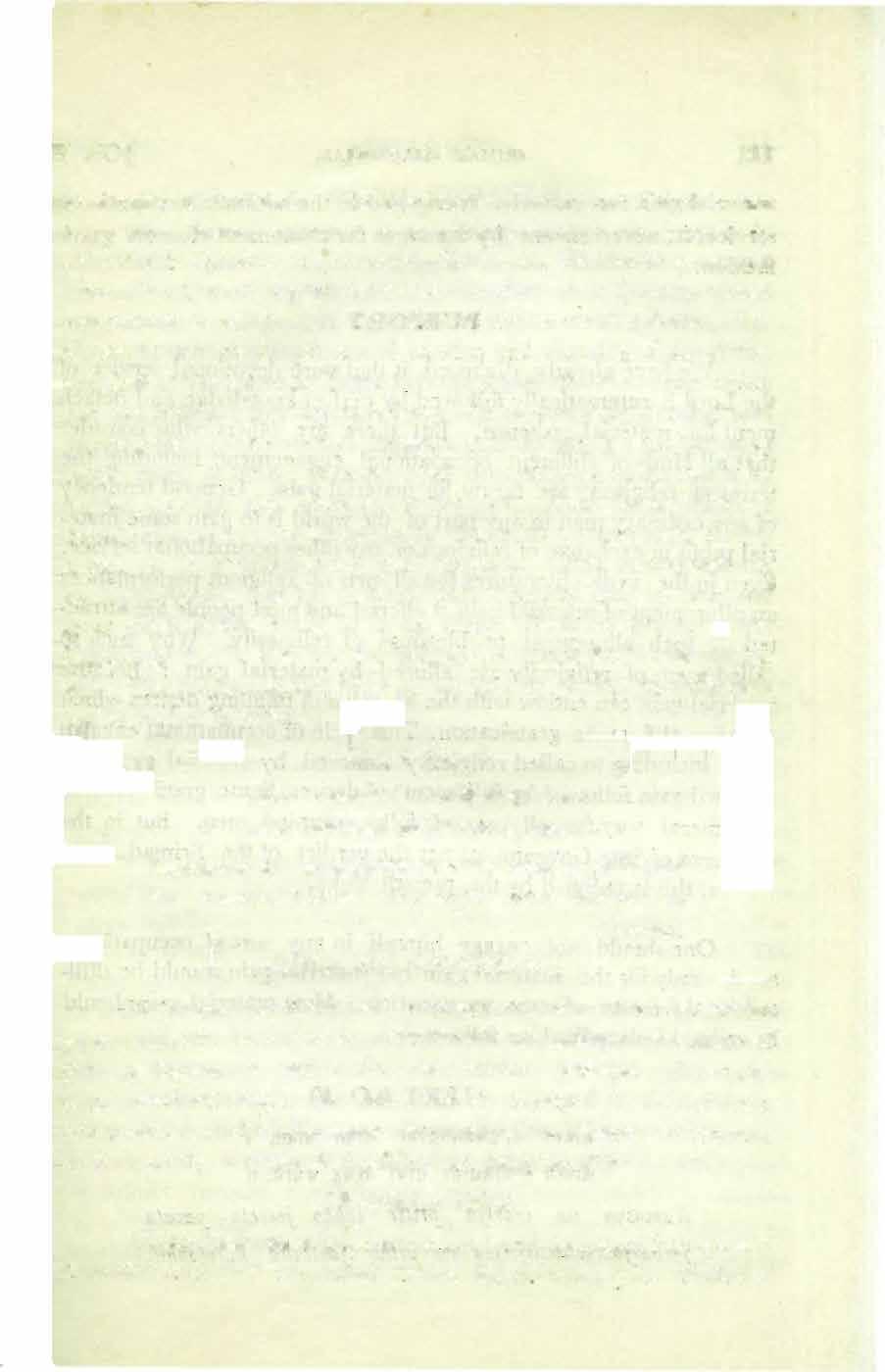
'lfii�zr WTtr<fq� ifr�':ffs'1ffzr)q-�q-6' 1 iJT��ll' '1f11'<iifi'Cf�!fall) �T<lTlrf� �llCf: II


Dharmasya hi apavdrgasya na artho arthayaupakalpate
Na arthasya dharma aikantasya kamo labhaya hi smritah.
ENGLISH SYNONYMS
Dharmasya -occupational engagement, hi-certainly, apavargesya-ultimate liberation na-not, tzrtha-end, arthll:Ja -for material gain upakalpate-is meant for, na -neither, arthasya -ofmaterial gain, dharmaikantasya-for one "who .is engaged in the ultimate occupasional senice, .Kama-sense-gratification, lakhaya-attainment of. hi-exactly, smritah-is described by the great sages.
TRANSLATION
All occ�pational_e1;1gagements are.certainly mea�t for ultimate liberation and they are never meant for material gain. Similarly

Text 9] FIRST CANTO 111:
,_· '
material gain for one who is engaged iu the ultimate occupational service, is never meant by the sages for attainment of sense gratir fication.
PURPORT
.We have already di�cussed it that pure qevotional, �ervice . of tbe Lord is automatically followed by perfect knowledge and detach m,ent for material.exsitence. But there are ()thers who cons�de� that all kinds of different occupational engagements including 'the te�ms of religiosity are meant for material gain. Generaltendency of�my ordinary man In any part of the world is to gain some �!late.:. rial profit in exchange ofreligious or any other o�cupational service. Even in the vedic literatures for all sorts of religious performances an allurement ofmaterial gain is offered and most people are �ttracted by such allurement or blessings of religiosity. \Vhy such so caiied men of religiosity are allured by material gain ? Because material gain can endow with the blessings ·offulfilling desires which in turn satisfY sense gratification. This cycle ofoccupational engagements including so called religiosity followed by material gain and material gain followed by fulfilment ofcJesires. Sense gratification is the general vvay for all sorts of fully occupied .men. But in the statement ofSuta Goswami as per the verdict ofthe Srimad Bhagwatam this is nullified by the present sloka. ' .: . . .

One should not engage himself in any sort of occupational service only for the material·gain nor material gain should be utilised for the matter ofsense gratification. How material gain.:�hould be utilised is described as follows-

Il2. SRIMAD BHAGWATAM
TEXT NO.·lO '1>1'1'�14 i!tf;:�iJsr)fo�i�) uft�u 21r<iaT ,. '3fTCf�li a�fGJ�ni'T "'"Tl!JT 21�'it1:1: 'll�f�: 11 Kamasya na indriya ptiti·r · labha jeeveta yavata Jeevasya tatwajijnasa na artho jascheha karmabhih.
ENGLISH SYNONYMS
Kamasya-ofdesires, na-not, indriya-senses, priti-satisfaction, labho-gain, Jeeveta-self pseservation, yavata-so much so, jeevasya -ofthe living being, tatwa-absolute truth, jijnasa-enquiries, na-not, artha-end, jascheha-whatsoever else, karmabhihby occupational activities.
TRANSLATION
Life's desires must not be directed towards the matter of sense gratification. One should desire only for a healthy life or self preservation because the life of,a human being is meant for enquiring about the Absolute Truth and nothing more should be desired by all occupational service.
PURPORT
The complete bewildered material civilization is wrongly directed towards the fulfilment of desires in sense gratification. In such civilization, in all spheres of life the ultimate end is sense gratification. In politics, social service, altruism, philanthropy and ultimately in religiosity or even in the matter of salvation the very same tint ofsense-gratification is ever increasingly predominent. In the political field the leaders ofmen fight with one another for the matter of fulfilling their personal sense gratification. The voters adore the socalled leaders only on the promise of the voters' sense gratification. As soon as the voters are dissatisfied in their own sense satisfaction they dethrone the leaders and the leaders almost always disappoint the voters by not satisfying their senses. The same thing is applicable in all other fields and no body is serious about the problems of life. Even those who are on the path of salvation, desire to become one with the Absolute Truth and desire to commit a spiritual suicide for the matter of sense gratification. But the Bhagwat says that one should not live for the matter of sense gratification. One should satisfy the senses so much so as it is required for se1f-preservation and not for sense-gratification. Because the body is made ofsenses which also require a certain extent of satisfaction there are regulative directions for satisfaction of such senses. But they arc not meant for unrestricted

Text 10] FIRST CANTO i13
sense enjoyment. For example marriage or combination of a man with a \voman is necessary for progeny but it is not meant for sense enjoyment. In the absense ofsuch voluntary restraint, there is the propaganda for family planning but the foolish men do not know that family planning is automatically executed as soon as there is search after the Asolute Truth. Seekers ofthe Absolute Truth are never allured by the unnecessary engagen1ents in �ense gratification because the serious student seeking after the Absolute Truth is ahv::tysoverwhelmedwith the work ofresearch1ngthe Truth. In every sphere of life, there.fore, the ultimate end must be seeking after the Absolute Truth and that sort ofengagement will make every one happy on account ofbeing less engaged in the matter of variety ofsense-gratification. And what is that Absolute Truth is explained as follows :-
TEXT NO. ll

Vadanti tat tatwavidas tatwam yad Jnanam adwayam
Brahmeti parmatma iti blzagawan iti sabdyate.
ENGLISH SYNONYMS
Vadanti-they say, tat-that, tatwavidas-the learned souls, tatwam-the absolute truth, yad-which, Jnanam-1mowledge, adwayam -non-dua1, bralzmeti-called by the name ofBrahman, Paramatma iti-called by the name ofParamatma, blzagawan iticalled by the name of Bhagawan, sab{[yate-it is so sounded.
TRANSLATION
Learned transcendentalists who know the Absolute Truth call the nondual substance as Absolute \Vho is known as Urahman, Parmatma or Bhagwan.
PURPORT
The Absolute Truth is both suqject and object and there is no qualitative difference there. Therefore, Brahman, Parmatma and

ii4 .
SRIMAD BHAGWA'TAM [Ch. 2
iin�<lfcr��mci <:r�l"PTalfl! 1 q"{�m?!fa ��crrf<rfii �;oeyff 11
Bhagwan are qualitatively one and the same. The same substance is realised as impersoual Brahman by the student ofUpanishads, as localised Parmatma by the Hiranyagarvas or the yogis and as Bhagwan by the devotees. In other words Bhagwan or the Personality of Godhead is the last word of the Absolute Truth. Parmatma is partial representation of the Personality ofGodhead and impersonal Brahman is the glowing effulgence ofthe Personality of Godhead as the sun rays are to the Sun-God. Less intelligent student of either ofthe above schools sometimes urgues in favour of his own respective realisation but those who arc perfect seers of the Al)solute Truth know it well that the above three features of the One Absolute Truth arc different perspective view ofthe seer from different angles ofvision.
As it is explained in the fir�t ::;loka ofthe first chapter ofthe Bhagwat, the Supreme Truth is self-sufficient, cognisant and freed fromthe illusion ofrelativity. In the relative world the knower is different from the known but in the Absolute Truth both the knower and the known are the one and the same thing. ln the relative world the kno\ver is the living spirit or superior quality ofenergy whereas the known is inert matter or interior quality ofenergy. Therefore, there is a duality of inferior and superior quality of energy whereas in the Absolute realm both the knower and the known are of the same superior quality energy. There are three kinds ofenergies ofthe Supreme Energetic. There is no difference between the energyand energetic but there is difference ofquality in the matter of energies. The absolute realm and the living entities are ofthe same superior quality ofenergy but the material world is ofinferior quality ofenergy. The living being in contact with the inferior quality ofenergy is illusioned as belonging to the inferior quality ofenergy and therefore there is the sense of relativity in the material world. In the Absolute there is no such sense of difference between the knower and the known and therefore everything there is Absolute,

Text II] FIRST CANTO 115
TEXT NO 11

���TOfT �;:rzr) �TOf��Till�'fCflfT I q�zr;:clm�f;:r :qr��r;:f �'f�lH �cr�@crzrr 11
Tat shraddhadhana munaya jnana vairagya yuktaya
Pasyanti atmani cha atmanam bhaktya shruta grihitaya.
ENGLISH SYNONYMS
Tat-tbat, shraddhadhana-seriously inquisitive, munaya-sages, jnana-knowledge, vairagya-detachment, yuktaya-well equipped with, pasyanti-see. almani-wi.thin himself, atmanam-the Paramatma, bhaktya-in devotional service, shruta-the Vedas, grihitaya-:well received.
TRANSLATION
That Absolute Truth is realised by the seriously inquisitive student or sages well equipped with knowledge and detachment by performance ofdevotional service in terms of hearing the Vedanta Sruti.
PURPORT
TheAbsolute Truth is realised in full by the process of devotional service ofthe Lord Vasudeva or the Personality of Godhead who is full fledged Absolute Truth. Brahman is his transcendental bodily effulgence and Parmatma is His partial representation. As such Brahman or Parmatma realisation of the Absolute Truth is partial realisation of the Absolute Truth. There are four different types of living beings. They are 1. The Karmis, 2. the Jnanins, 3. the Yogins and 4. the Devotees. The Karmis are materialistic whereas the other three are transcendentalists. First class transcendentalists are the devotees who have realised the Supreme Person ; Second class transcendentalists are those who have partially relised the plenary portion of the Absolute Person. And the third class transcendentalists are those who have barely realised the spiritual focus ofthe Absolute Person. As stated in the Bhagwat Geeta and other Vedic literatures the Supreme Person is realised by devotional service which is backed by full knowledge pnd detachment from the material association, \,Ye have already
116
SRIMAD BHAGWATAM
[Ch. 2
discussed the point that devotional service is followed by knowledge and detachment of material associatiOn. As Brahman and Parmatma realisation is imperfect realisation of the Absolute Truth so the means ofrealising Brahman and Parmataman i.e. the path of Janna and yoga are also imperfect means of realising the Absolute Truth. Devotional service which is based on the foreground of full knowledge combined with detachment of the material association fixed up on the aural reception ofthe Vedanta Sruti,is the only perfect method of realising the Absolute Truth by the seriously inquisitive student. Devotional service is not, therefore, meant tor the less intelligent class oftranscendentalist. There are three classes ofdevotees namely first, second and third class. The third class devotees or the neophytes who have no knowledge neither detachment from the material association but are simply attracted with the preliminary processes of worshiping the Deity in the temple are called material devotees. Material devotees are more attached to material benefit than transcendental profit. Therefore, one has to make definite progress fi:om the position of material devotional service to the second class devotional position. In the second class position the devotee can see four principles in the devotional line namely, the Personality of Godhead, his devotees, the ignorant and the envious. One has to raise himself at least to the stage ofa second class devotee and thus become eligible to know the Absolute Truth.
A third class devotee, therefore, has to receive the instructions ofdevotional service from authoritative sources of Bhagwat. No. 1 Bhagwat is the established personality of devotee and the other Bhagwat is the message ofGodhead. The third class devotee has, therefore, to go to the Personality ofdevotee in order to learn the instructions of devotional service. Such Personality of devotee is not a professional man who earns his livelihood by the business of Bhagwat. Such devotee must be a representative of Sukdeva Goswami like Suta Gosw-ami and must preach the cult of devo6onal service for allround benefit ofall people. A neophyte devotee has very little taste for hearing from the authorities. Such neophyte

Text 12] FIRST CANTO 117
devotee makes show of hearing from the professional man and dictates to the professional man to satisfY his senses. This sort of l1earing and chanting has spoiled the whole thing and one should be very much careful about the faulty process. The holy messages of Godhead as they are inculcated in the Bhagwat Geeta or in the Srimad Bhagwatam are undoutedly transcendental subjects but even though they are so, such transcendental matters are not to be received from the professional man who spoils the whole thing like the serpent spoils the milk simply by touch with the tongue.
A sincere devotee must, therefore, be prepared to hear the Vedic literature like the Upnishad, Vedanta and other literatures left by the previous authorities or Gosw-amins for the benefit of his progress. 'Vithout hearing such literatures nobody can make actual progress. And without hearing and followingthe instructions theshowofdevotional service becomes an anachronism and therefore a sort of disturbance in the path ofdevotional service. Unless, therefore, devotional service is not established on the principles of Sruti, Smriti, Puranam, Panc!zaratra authorities, the make show of· devotional service saould at once be rejected and an unauthorised devotee should never be recognised as pure devotee. By assimilation ofsuch messages from the Vedic literatures one can see the all pervading localised aspect ofthe Personality ofGodhead within his own selfconstantly. This is called Samadhi.
TEXT N0. 13
�a: ��<Tfa;;r'-i"'�;;r:r cr�T'-i'l"fcr<Tro�: 1

�<i2;fcoa�Z7 '!:i+ffzt �f�fa�f�aT"'f�'{ II
Atahpumbhih dwijashresthah varnashrama bibhagasah
Swanusthitsya dharmasya samsiddhir hari toshanam

ENGLISH SYNONYMS
Atah-so, pumbhi -by the human being, dwiJarhresthah-oh the best amongst the twice born, varnashram-institution offour castes and orders of life, bibhagashah -by the division of, swanusthitasya-of ones own prescribed duties, dharmasya-occupational, samsiddhi -high�st perfection, hari-the personality of Godhead, tpshanam-pleasmg. ,
118 SRIMAD BHAGWATAM [Ch. 2
Oh the best amongst the twiceborn, it is, therefore, concluded that the highest perfection achieved in the matter ofdischarging one's own prescribed occupational duties, in terms ofthe division of the institution offour castes and orders oflife, -is to please the Personality of Godhead.
PURPORT
Human society all over the world is divided into four castes and four order oflife. The four castes are 1. the intelligent caste, 2. the martial caste, 3. the productive caste and 4. the labour caste. TI1ese castes are classified in terms ofone's work and qualification and not by birth. Then again there are four orders of lif(· namely 1. the student life, 2. the house holder's life, 3. the retired lifi� and ·1. the devotional life. In the best interest ofthe human society there must be such divisions oflife otherwise no social institution can grow up in healthv state. And in each and every one of the abovementioned . division oflite, the aim must be to please the Supreme Authority of the Personality of Godhead. This institutional function of human society is known as the system of Varna.rhram Dharma which is quite natural for the civilised life. The Varnashram institution is contemplated tor evolving a sense ofrealising the Absolute Truth and riot for artificial domination ofone division upon the other.
\,Yhen the aim oflife i.e. realisation ofthe Absolute Truth is missed by too much attachment for the matter of Indriyapriti or sense gratification as it is already discussed herein before, the institution ofthe Varanasharam is utilised by selfish men to pose an artificial predominance over the weaker section. In the Kaliyuga or in the age ofquarrel this artificial predominance is already current, but the saner section of the people know it well that the division of castes and orders oflife is meant for smooth social intercourse with high thinking self-realisation and not for any other purpose.
Herein the statement ofBhagwat is that the highest aim of life or the highest perfection of the institution of the Varnasl1ram Dhrama is to co-operatejointly for tl1e satisfaction of the Supreme Lord which is also confirmed in the Bhagwat Geeta too.*
*B. G. 4/13.

Text 13] FIRST CANtO 119
TRANSLATION
TEXT N0. 14

aflni't� lF!m "4flT<rrry: m�ar qf;;r: 1
�)aol:f: Cfi1fmrall�e�lf: �ll�=<rfi'f�<Rt 11
Tasmat ekena manasa hlwgwan satwatam patih
Shrotahyalz kirtitahyasclza dlzeyahpujyas cha niryadah
ENGLISH SYNONYMS
Tasmat-therefore, Eirena·by �ne, Manasa-attention of the mind, Blzagawan-the Personality of Godhead, Satwatam- of the devotees, Patih-protector, Shrotahyah-is to be heard, Kirtitahyasto be glorified, C/za-and, Dlzeyalz-to be remembered, Pu:Jyas-to be worshipped, C/za-and, Nityadalz-constantly.
TRANSLATION
Therefore, the Personality ofGodhead 'Vho is the Protector ofthe devotees, must be always heard of, glorified, remembered and worshipped with one attention.
PURPORT
If realisation of the Absolute Truth Is the ultimate aim oflife, it must be carried out by all means. In any one of the above mentioned status and order oflife the tour processes namely 1 glorifying some body, 2 hearing ofsome body, 3 remembering of some body or 4 worshipping ofsome body are general occupation. Without these principles oflite no body can exist. Activities ofthe living being means engagements in these different four principles oflife. Specially in the modern society all activites are more or less dependent on hearingand glorifying propaganda. Any man ofany social status becomes an well knownman inthe human society within a very short time ifhe is simply glorified truly or falsely in the daily news papers that man ofcourse becomes at once an important man. Sometimes political leaders of a particular party are also so advertised by paper propaganda and by such glorifying method an insignificant man becomes an important man-within no time. But such propaganda work by false glorification of an non-glorified living being cannot bring about any good either for
120 SiUMA.b
BHAGWATAM
[Ch. 2
the particular man or for the society. Temporary reactionmayhave some effect on such propaganda but there is no permanent effect. As such, such occupational activities are simply w-aste oftime. Actual object ofglorification is the Supreme Personality ofGodhead \-vho has created the whole thing manifested before us. \J\Te have broadly discussed this fact in the beginning of the Janmadysya sloka ofBhagwat. Therefore the tendency ofglorifying others or hearing others may be turned for the teal glorified Supreme Being and that will bring in the desired result.
TEXT NO. 15.

zt�ocrrrf�r �lien: CJ>li«f;�fifif"CR� 1 f�;:G.fra CfitfCJG"T�a� Cfi) if �<::fRCfi�T�fu'{ II
Yad anudhya asina yuktah karma granthi nibandhanam
Chhindanti [kovidas tasya ko na kuryat katha ratim.
ENGLISH SYNONYMS
Yad-which, anudhya-remembrance, asina-sowrd, yuktahbeing equipped with persons, karma-reactionary work, granthiknot, nibandhanam-interknit, chhindanti-cut, kovida-intelligent, ta.rya-His, ko -who, na-not, kuryat-shallnot do, katha-messages, ratim-attention.
TRANSLATlON
Intelligent persons do cut off the interknit of the knot of reactionery work, by remembrance ofthe Personality of Godhead. Therefore, who will not, give attention to His message.
PURPORT
Contact of the spiritual spark living being with material elements is the point ofinterknitting knot. Unless tJ1at knot is cut offthe living being has to undergo fruitive action and reactions of his endless work. Liberation means freedom from the cycle of reactionary work and this liberation automatically follows for one who constantly remembers the transcendental pastimes of the }?ersonality of Godhead. The reason is that all activities of the
Text 15] FIRST CANTO 121
Supreme Lord or His Leela are transcendental to the modes of material energy. They are all attractive spiritual activities and therefore, constant association of the spiritual activities of the Supreme Lord, gradually spiritualise the remnescence of the conditioned soul and ultimately unlocks the interknitting knot of material bondage.
Liberation from the material bondage is, therefore, a bye-product ofdevotional service. Attainment ofspiritual knowledge is not sufficient to ensure liberation to such learned fellow. Such knowledge must be overcoated with devotional service so that ultimately the devotional service only predominates and liberation is made possible. Even the reactionary work of the fruitive workers, can lead one to liberation when the same is overcoated with devotional service. Karma overcoated with devotional service is called Karma Yoga. Similarlyemperic knowledgeovercoatedwith devotional service is called Jnana Yoga. Pure Bhaktiyoga is independent ofsuch Karma andJnana because that alone can not only endow one with liberation from the conditional life but also can award the transcendental loving service ofthe Lord.
Therefore, any sensible man who is above the average man with poor fund of knowledge, must do constantly remember the Personality ofGodhead by hearing about Him, by glorifying Him, by remembering Him and by worshipping Him always without any interval. That is the perfect way of devotional service. The Goswamins of Vrindaban who were authorised by Lord Sri Chaitanya Mahaprabhu to preach the Bhakt Cult, rigidly followed this rule and made immense literatures of transcendental science for our benefit. They have chalked out ways tor all classes of men in terms ofthe divisions ofdifferent status and order oflife inpursuance ofthe teachings ofSrimad Bhagwatam and similar other authoritative scriptures.
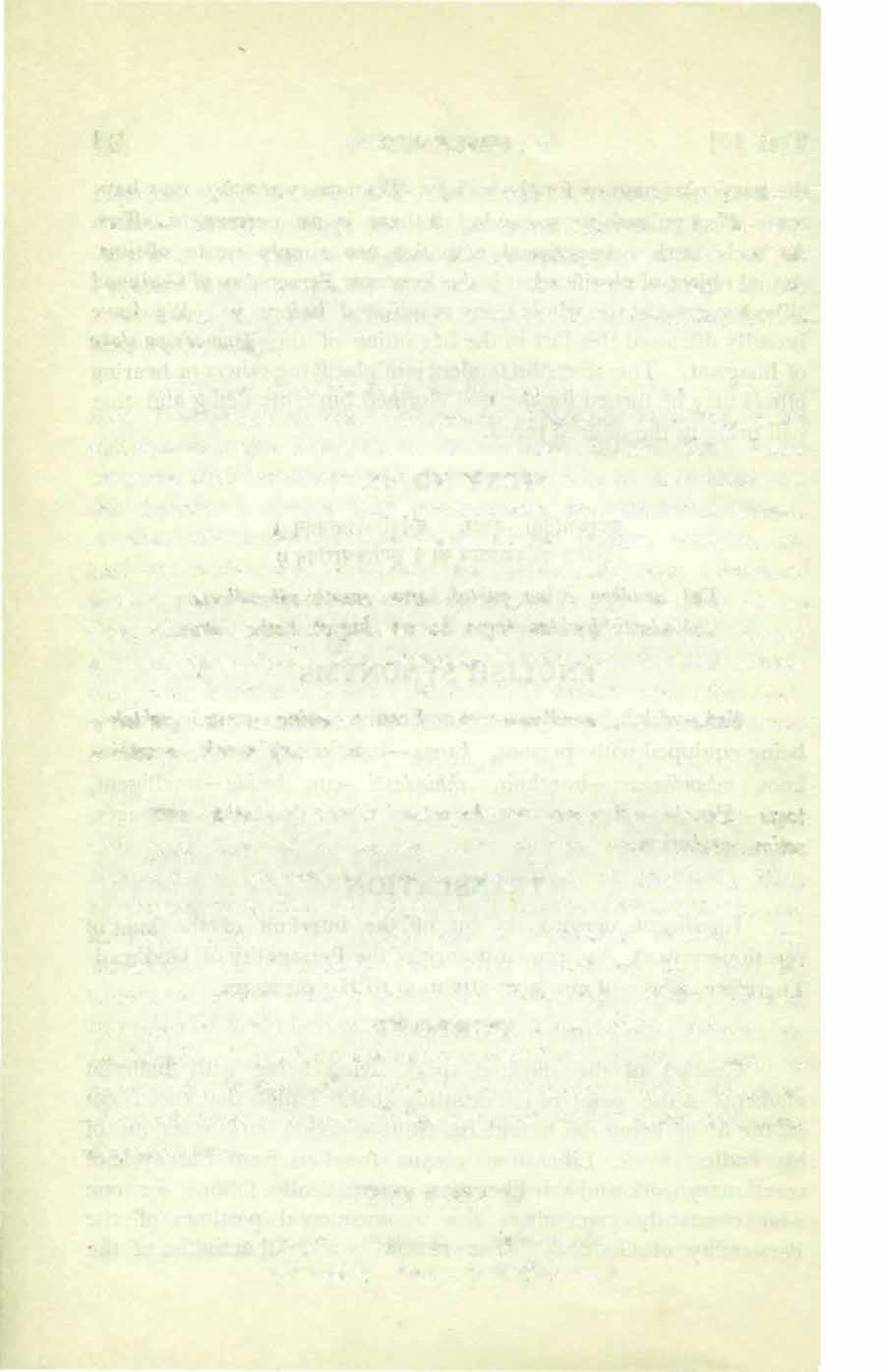
122 SRIMAD BHAGWATAM [Ch. 2
TEXT NO. t6 �sq_l'fT: gr�'CfTifFI' �l:JT�iJ�c«cP:rr f<:p;rr: Gf��GfCfi�1:if'<T: I �ulfa-"r�fiftlCJUIT\'J; II
Shushrusoh shraddhanaS),a Vasudeva katha ruchih, Sat mahatsevaya viprah punyatirtha nesevanat.
ENGLISH SYNONYMS
Shushrusolz-one who is engaged in hearing, S!zraddhadlznasyawith care and attention, Vasudeva -inrespect of Vasudeva, Kathame�sage, Ruchi- affinity, Sat-is made possible, Mahatsevaya-by service rendered t:o pure devotees, Vipra-oh the tw�ce born, Pu1!J'atirtlza-those who are cleansed of all v1ce, .Nesevanat-by service.
TRANSLATION
Oh the twice born sages, by serving those devotees who are completely freed from all ranges of vice, a standard of great service is done. And as the result ofsuch great service affinity in the messages ofVasudeva is made possible.
PURPORT
The conditioned life ofa living being is setupbythe revolting attitude against the Lord. There are classes of men called by the name Devata or godly living being and the Aslzuras or the demoniac living beings who are against the authority ofthe Supreme Lord. In the Bhagwat Geeta(16th ch.) a vivid description ofthe Ashuras is given in which the Ashuras are said to be put into greater and greater state of ignorance life after life like the lower animals in which there is noinformation of the Absolute Truth thePersonalityof Godhead. TI1ese Ashuras are gradually rectified into God-consciou� snessbythe mercy ofthe Lord's liberated servitors in different countriesand climate according tothe Supreme\J\Till. Such devoteesofGod are very confidential associates ofthe Lord and when they come to save the human society from the dangers of Godlessness, they are known somewhere as the powerihl incarnation ofthe Lord, the Son ofthe Lord, the Servant ofthe Lord, the associate of the Lord but none of them declare falsely that they are themselves God. This blasphemy is declared by the Ashuras and the demoniac followers ofsuch Ashuras also accept a pretender as God or His incarnation.

Text 16] FIRST CANTO
123
In the revealed scrptures there is definite informations of these incarnations of God and no body can be accepted as God or incarnation of God without reference to the above mentioned revealed scriptures.


These servants of God are to be respected as God by the devotees who actually want to go back to Godhead. Such servants of God are called Mahatmas or the Trithas and they make various propaganda according to the particular time and space. The standard quality ofthe Servants of God is that they canvass people to become devotee ofthe Lord and never tolerate the blesphemy of being called as God. Sri Chaitanya Mahaprabhu was God himself according to the authoritative indications of the revealed scriptures but He played the part of a devotee. Anywhere any person who knew Him to be God Himselfaddressed Him as God. He used to to block His ears with the hands murmuring with the Name ofLord Vishnu. He strongly protested against being called as God although undoutedly He was God Himself. This behaviour of the Lord isjust to warn unscrupulous men who take false pleasure in the matter of being addressed as God.
These servants ofGod come with a mission oflife to propagate God.-consciousness in the human society and intelligent persons should co-operate with them in every respect. By serving the the servant of God, one can please God more than directly serving the Lord. The Lord is more pleased when He sees that His servants are properly respected bccasuse such servants ofGod who risk everything for the service ofthe Lord are veJy very dear to the Lord. The Lord declares in the Bhagwat Geeta that no body is dearer to Him than those who risk everything tor the preaching work ofGod's glory.* By serving the servants ofthe Lord gradually one gets the quality of such servants anb this particular qualification ofserving the servant ofGod makes one qualified with the �rge for hearing the glorification ofGod. Tins eagerness for hearing about God is the first qualification ofa devotee eligible for entering into the kingdom ofGod.
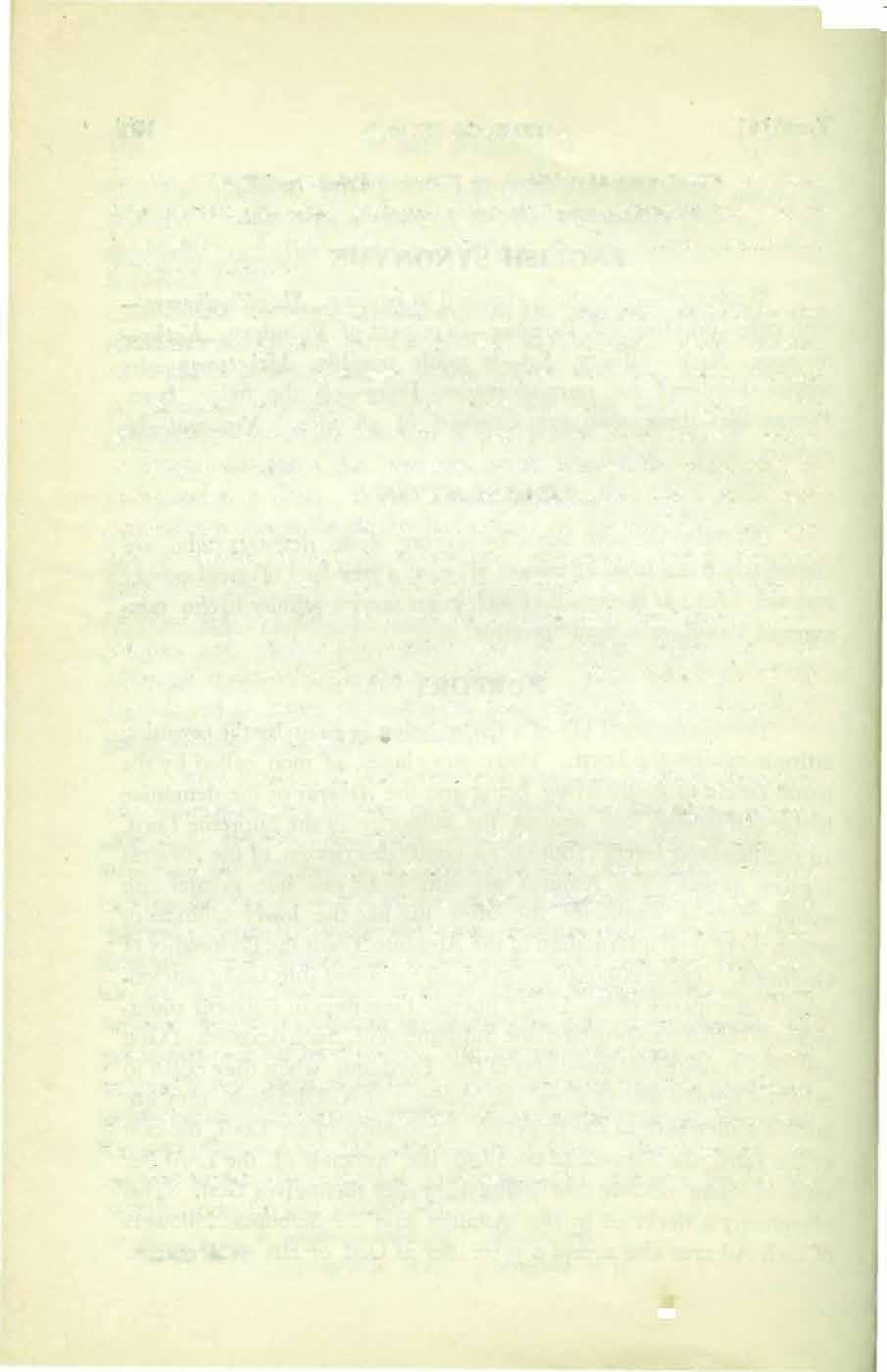
124 SRIMAb BHAGWATAM [Ch. 2
*B. G. 18/69
TEXT N0. 17

Ylll<ffiT �CfiqT �: �.rcrilfCfi'hf.:r; I �<a":��)W�infur f<r'"!'flfa �i:ij"aTlJ:. 11
Shrinwatam swakatham krishnahpunya sharvana kirtanah
Hridyantshtlw hi abhadrani vidhonotisuhritsatam.
ENGLISH SYNONYMS
Srinwatam -those who have developed the urge for hearing the message of, Swakath-His own words, Krishna-The Personality of Godhead, Punya-virtues, Shravana-hearing, Keertana-chanting Hridyantstha-within on's heart, hi-certainly, Abhadrani-desire to enjoy matter, Vidhonoti.-cleanses, Suhrit -benefactor, Salam -of the truthful.
TRANSI.-ATION
Sri Krishna the personalily of Godhead who is also the Paramatama in every one's heart and the benefactor ofthe truthful devotee, does cleanse the desire for material enjoyment in the heart ofthe devotee who has developed the urge for hearing His (Krishna's) messages which are themselves virtuous when properly heard and chanted.
PURPORT
Iviessages ofthe Personality ofGodbcad Sd Krishna ate nondifferent from Him. Whenever, theref()re, offeHcd«:>ss glorification and hearing of the same is undertaken, it is to be undestood that Lord Krishna is present there in the form ofTranscendental Sou11d which is as much povverful as the Lord is personaUy. Sri Chaitanya l'vfahaprabhu in his .S'ikshastak, declares it clearly that the holy Name of the Lord has all the potencies of the Lord and He has endowed His innumerable Names with the same potency. There is no rigid fixture oftime and any one can chant the holy name with atten'tion and reverence at his convenience. The Lord is so kind to us that He can be presant before us persenally in the Form of sound transcendental but unfortunately we have no taste for hearing and glorifying the Lord's Name and activities. We have
Text
17] FIRST CANTO
125
already discussed this point of developing a taste for hearing and chanting the holy sound. It is done through the medium ofservice to the pure devotee ofthe Lord.
The Lord is reciprocally respondent to His divotees. \Vhen He sees it that a devotee is completely sincere in getting admittance in the transcendental service ofthe Lord and thus becomes eager to hear about Him, the Lord acts from within the devotee in such a way so that the devotee may easily go back to Him. The Lord is more anxious to take us back into His Kingdom than we can desire. Most of us do not desire at all to go back to Godhead. Only a very few men want to back to go Godhead. But any one who desires so to go back to Godhead, Sri Krishna helps such sincere devotee in all respects.
No body can enter into the kingdom of God unless one is perfectly cleared of all sins. The material sins are products of our desires to lord it over the material nature. It is very difficult to get rid of such desires. Women and wealth these two items are very difficult problems for the devotee making progress on the path ofgoing back to Godhead. Many stalwarts in the devotional line fell a victim ofthese allurement and thus retreated from the path ofliberation. But when one is helped by the Lord Himself the whole thing becomes as easy as anything by the Divine Grace ofthe Lord.
To become restless in the contact of women and wealth is not an astonishment, becauc,;e every living being is assooiated with such things from a remote time practically immemorial and it takes time to recover from the foreign nature. But ifone is engaged in the mcttter ofhearing the glories ofthe Lord, gradually he realise the real position. By the grace ofGod such devotee gets sufficient strength to defend himself from the state of disturbances and gradually all disturbing elements are eliminated from his mind.

tch. 2
TEXT NO . 18. iJ�'SffitiS<p:rt?q fi'f�tf +rTii<ffi�Cfl:fT I .., +flfCfc��q���i}; +rf'fa'�lcff<T ;:jfts�Cfit II
Nasta prqyeshu abhadresu nityam bhagwata sevqya Bhagawati uttama sloke bhaktir bhavati naislzthiki.
ENGLISH SYNONYMS
Nasta-destroyed, prayesu-almost to nil, abhadresu-all that is inauspicious, nityam-regularly, bhagwata-Srimad Bhagwatam, or the pure devotee, sevaya-by serving, bhagwati-unto the Personality of Godhead, uttama-transcendental, sloke -prayers, bhaktir-loving serviee, bhavati-comes into being, naisthiki--irrevocable.
TRANSLATION
By regular attendance in the Bhagwat-dass or rendering service unto the pure devotees all that is inauspicious in the heart ofa candidate becomes destroyed almost to nil and thus loving service unto the Personality of Godhead, who is praised with transcendental songs, comes into being an irrevocable fact.
PURPORT
Here is the remedy for eliminating all inauspicious things within the heart considered to be obstacles in the path of self realisation. The remedy is the association of the Bhagwats. There are twotypes ofBhagwats namely the book Bhagwat and the devotee Bhag\'Vat. Both the Bhagwats arecompetentremedies and both ofthem or either ofthem can be good enough for eliminating the obstacles. A devotee Bhag\'\lat is as good as book Bhagwat because the devotee Bhagwat leads his life in terms ofthe book Bhagwat and the bookbhagwat is full ofinformation about the Personality ofGodhead and His pure devotees who are also Bhagwats. Bhagwatam boo1\: or the person is identical.
The devotee-Bhagwat is direct representative ofBhagwan the Personality ofGodhead. So by pleasing the devotee-Bhagwat one can receive the benefit of book-Bhag\'Yat. Human reason fails to I understand how by serving the devotee-Bhagwat or the book Bhagwat one gets gradual promotion on the path ofdevotion. But actually these are facts as they _are explained by Srila Naradadeva who happened to be a maid-servant's sop in his previous life. The

Text 18] FIRST CANTO
127
maid servant was engaged in the menial service ofthe sages and thus he also got contact of them. And simply by associating with them and accepting the remnants of food-stuffleft by the sages, the son ofthe maid servant gotthe chance ofbecoming the greatdevotee and Personlity like Srila Naradadeva. These are the miraculous dfects ofthe association of Bhag\'\lats. And to understand these effects practically it may be noted that by such association ofthe Bhag\'\lats sincerely one is sure to receive transcendental knowledge very easily and the result is that he becomes fixed up in the business ofdevotional service ofthe Lord. The more the progress is made in the devotional service under the guidance ofthe Bhagwats, the more one becomes fixed up in the transcendental loving service of the Lord. The messages of the book Bhagwat, therefore, has to be received from the devotee Bhagwat and combination ofthese two Bhagwats will help the neophyte devotee to make progress on and on.
TEXT No. 19

a�T �:JI"HfifT�T<iT: Cfi'Tif�T�TG:lfli:"f � I
�cr �<:f�rrrfq;g:· f��a' ��� sr�'T�fcr 11
Tada rajas tamo bhavah kamalova dayaschaye
Cheta etair anabiddham stitham satweprasidati.
ENGLISH SYNONYMS
Tada-at that time, Rajas--"the mode of passion, Tamo-the mode of ignorance, Kama-lust and desire, Lava-hankering, adayas-others, Cha-and, Ye-whatever they are, Chela-the mind, Etair-by these, Anabiddham -without being affected, Stitham -being fixed up, Satwe -in the mode of goodness, Prasidati -thus becomes fully satisfied.
TRANSLATION
As soon as irrevocable loving service is fixed up in one's heart at that time theeffects ofthe nature's modes ofpassion and ignorance such as lust, desire and hunkerings etc do disappear from one's heart and he becomes fixed up in the mode ofgoodness which rpakes him completely happy.
128
[Ch. 2
SRIMAD BHAGWATAM
A living being in his normal constitutional position he is fully satisfied in spiritual bliss. This state of existence is called Brahmabhuta or Atmanand state or the state of self satisfaction. This selfsatisfaction is not like the satisfaction ofthe inactive fool. The inactive fool is in the state offoolish ignorance while the selfsatisfied Atmanandi is transcendent to the material state of existence. This stage of perfection is attained as soon as one is fixed up in the irrevo�able devotional service. Devotional service is not inactivity but it is the activity of the soul unalloyed.

The �oul's activity becomes adulterated in contact ·with matter and as such the diseased activities are expressed in the form oflust, desire, hankerings, inactivity, foolishness and sleep. The effect cf devotional service becomes manifest by complete elimination of these effects of passion and ignorance. The devotee is fixed at once in the mode ofgoodness and he makes further progress to rise up to the position of Vasudeva or the state of lmmixed Satwa or Suddha-Satwa state. In this Suddha-Satwa state only one can see, eye to eye, Krishna always on account ofpure affection for the Lord.
A devotee is always in the mode ofunalloyed goodness and as such no body has any cause of harm from the devotees ofthe Lord. \Vhereas the non-devotee class, however, educated they may be is always harmful to one another. A devotee is neither a fool nor passionate. The opposite number namely the harmful, fool and passionate cannot be a devotee of the Lord however one may advertise as a devotee by the outward dress. A devotee .is always qualified with all the good qualities of God. Quantitatively such qualifications may be different between the Lord, and His devotees but qualitatively both of them arc one and the same.
Text 20] FIRST CANTO 129 PURPORT
TEXT NO. 20 �<t sr«�;:r;r;rm ;r;rqf"1FI"ttro-: ' ;r;rcre:eF.£f<r�to:i �<tCJUtl"��t ;;rnra- 1t
Ebam prasanna manaso bhagwatbhakti yogatah
Bhagawat tatwa vi.Jnanam mukta samgasya jayate.
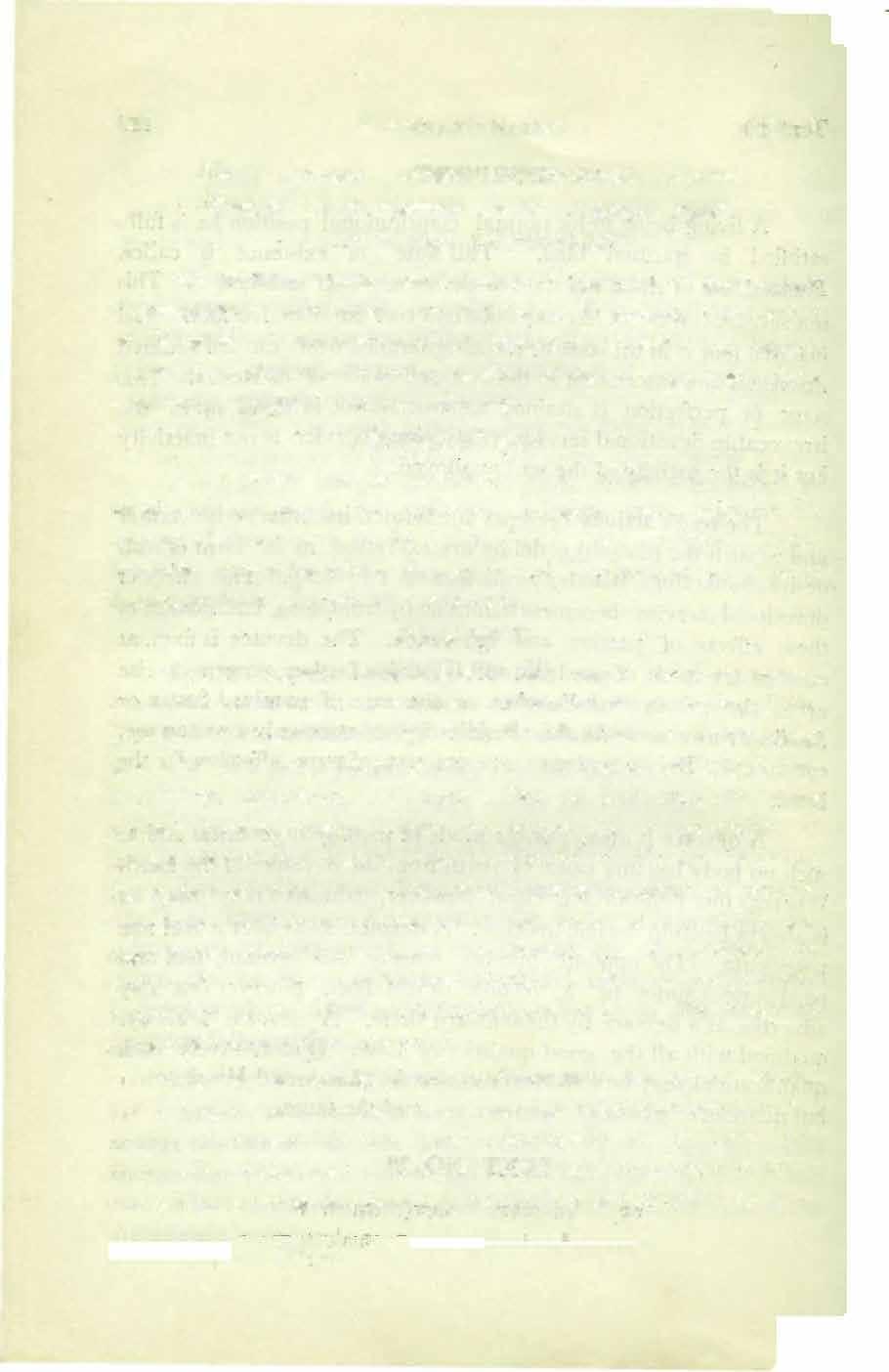
ENGLISH SYNONYMS
Ebam-thus, prasu.nna-enlivened, manasa-of the mind, � Bhagwatbhakti-devotional service ofthe Lord, yogatah-by contact of, Bhagawat-in the matter ofthe Personality ofGodhead, tatwa-knowledge, vyanam-scientific, mukta-liberated, samgasya-ofthe association, jayayete-becomes effective.
TRANSLATION
Thus (when one is positively fixed up in the mode of unalloyed goodness) the enlivened minded man effected by contact of devotional service of the Lord� can positively know s�ientific knowledge ofthe Personality of Godhead jn the stage of liberation from all material association.
PURPORT
In the Bhagwat Geeta it is said that out of many thousands ofordinarymen one fortunate man endeavours forperfectionoflife. Mostly they are conducted by the modes of passion and ignorance and thus they are engaged always in the matter of lust, desire, hankerings, ignorance and sleep· Out of such man-like many animals there is actually a man who knows the responsibility of human life and thus tries to make a perfectien of life by following the prescribed duties. And out ofsuch many thousands of persons who have thus attained success in the matter ofhuman life, one may know scientifically about the Personality of Godhead Sri Krishna.* In the same Bhabn.'Vat Geeta it is also said that scientific knowledge of Sri Krishna is :understood only by the process of devotional service (Bhaktiyoga).t
The very samething is confirmed herein in the above words. No ordinary man or even one who has attained success in the matter of human life can know scientifically or perfectly the Personality of Godhead. Perf�ct1on ofhuman life is attained when one can understand that he is_not th� product ofmatter but he i� in ti8/5S.



130 SRIMAD.'BHAGWATAM
[Ch. -2
fact spirit. ·And as soon as one uderstands that he ha� nothing to do with matter,. he at once ceases his material hankerings and become enlivened minded as a spiritual being. This attainment of success is possible when one is above the modes ofpassian or ignorance or in other words when·one is actually a Brahmin by qualification. Brahmin is the symbol of Sata Guna or the modes of goodness. And others who are not in the mode of goodness are either Kshastriya, Vaishya, or Sudra or less than the Sudras. The Brahminical stage is the highest stage of human life on account ofthe good qualities. So nobody can be a devotee unless one is at least in the qualification of the Brahmin. Or the devotee is already a Brahmin by action. But that is not the end of it. As referred to above such Brahmin has to become a Vaishnava in fact to be actually in the transcendental stage. A pure Vaishnava is liberated soul and is transcendental to the position ofa Brahmin even. In the material stage even the Brahmin is also conditioned soul. Because in the Brahminical stage the conception of Brahman or the transcendence is realised but in that stage scientific knowledge of the Per�onality of Godhead must be lacking. One has to surpass the Brahminical stage and reach the Vasudeva stage to understand the Personality of Godhead Krishna. The science of the Personality of Godhead is the subject matter for study ofthe post graduate students iB the spiritual line. Foolish men or the men with poor fund ofknowledge only do not understand the Personality of Godhead.. and they interpret Krishna according to their r�spettive whims. The fact is, howevt: · r, that one connot understand the science of the Personality of Godhead unless one is freed from the contamination ofthe materjal modes even up to the stage ofthe Brahmin. VVhen a qualified Brahmin becomes a Vaishnava in fact in the enlivened stage ·of liberation he can know whflt is actuallythe Personality ofGodhead.
NO. 21.



Text 21] FIRST CANtO 131
fl!-�a- ���:n:rfr�h�<a;:a- �cl«1IT�r: 1 �r�;:a- 'i'flH Cf)trtfl:!J �ISc t:tCJT�i'fTrtCJ� II
TEXT
Bhidyate krida_)'a granthis chhidyante sarva samsayah Ksheayante cha asya karmani drista eva atmani zsware.

ENGLISH SYNONYMS
Bhidyate-pierced, hridoya·-heart, granthis-knots, chhidyantecut into pieces, sarva -all, samsa_)'ah-misgivings, ksheeyante-terminated, cha-and, assya-his, karmani-chain of fruitive actions, drista-having seen, atmani-unto the se1f, isware-dominating factor.
TRANSI..ATION
The knot ofone's heart is thus pierced and all misgivings are cut into pieces. The chain offi·uit.ive actions are terminated along with the seeing ofone's self the dominating factor.



PURPORT
Attainment of scientific knowledge of the Personality of Godhead means seeing of one's own self simultaneously. So far the identity ofthe living being as spirit self is concerned, there are number of speculation and misgivings. The materialist does not believe. in the existance ofthe spirit self and emperic philosophers believe in the imporsonal feature ofthe whole spirit without any individuality of the living beings. But the transcendentalists affirm it that the Soul and the Super Soul are two different ide�tities qualitatively one but quantitatively different. And there are many other theories and believers in dtfferent manners. And all these different speculations are at once cleared offas soon as Sri Krishna is realised in truth by the process of Bhaktiyoga. Sri Krishna is like the sun and the materialistic speculations about the Absolute Tmth are like the darkest midnight. As soon as the Krishna Sun is arisen within one's heart, the darkness of materialistic speculations about the Absolute Truth and the living beings are atonce cleared off. In the presence of the Sun the darkness cannot stand and the relative truths that were hidden within the dense darkness of ignorance become clearly manifested by the mercy ofKrishna who is residing in every one's heart as the Super Soul.
132
SRIMAD B'HAGWATAM
(Ch, 2
FIRST CANTO
In tlw Bhagwat Gcc-ta: the Lord says that inonler to show special fl-t·vour to His pure devotee�, He Persoualy, cradicaies the dense darknes� of <..t,},.rnisgivings by switching on the light ofpure knowledge within tl1e heart of a devotee.* Therefore, 011 account of the Personality of Godhead's taking charge of illuminatillg the heart ofHis devotee, certainly a devc)tee, engaged ju His service in transcendental love, c·;:un10t remain in darkness abot1t everything in Absolute and the relative truths. The devotee cannot remain in darkness and because a devoteeis enlightened by the Pers�mality of Godhead, his knowledge is certainly perfect than those who speculate Oil the AlJ.soJute Truth by dint of one's 0\Vll limited power ofapproach. Such knowledge is called Parampara or the deductive knowledge-coming do'�� fi'om the authority to the submissive aural receiver bonafide by service and surrender. One cannot challenge the author�tyofthe Supreme and know Him also at the same time. He resen;es the right of not being exposed to such challenging spiritofan insignificant spark ofthe whole subjected to the control ofillusory energy. The devotees are submissive and therefore the transcendental knowledge descends from the PersonalityofGodhead to Brabma and from Brahma to his sons and desciple in succession and helped by the Supersoul within such devotees. That is the perfect way oflearning transcendental knowledge.

This enlightenment of the devotee perfectly enables him to distinguish the spirit from the matter because the knot ofspirit and matter is unlocked by the Lord. This knot is called as Ahamkara which falsely obliges a living ·being to become indentified with matter. As soon as, therefore, this knot is loC'sened the cloud of all doubts are atonce cleared off. He sees L.is Master and fully engages himself in the transcendental loving service ofthe Lord making a fi1ll termination ofthe chain offruitive action. In the material existancc, a living being creates his own chain of fruitive work and enjoys the good and bad effects ofthose actions life after lifi:-::. But as soon as he engages himself in the loving service ofthe Lord, he at once becomes free from such chain af Karma and all his actions do no more create any reaction as they are grown m the material energy.
*B. G. 10/11.


21]
Text
TEXT NO 22.

�crTcf 'fi<ilff f<r�� llf<ffl 'WfliT �T I err��� l'fq<lfil !<f�Sf«Tl:A'T� 11
Ato bai kavayo nityam bhaktim paramaya muda Vasudeve bhagwati kurvanti atma prasadanim.
ENGLISH SYNONYMS
Ato-therefore, bai -certainly, kavayo-all transcendentalists, niryam-from time immemorial, bhaktim-service unto the Lord, \paramaya-supreme, muda-with great delight, vasudeve-Sri Krishna, Bhagwati-the Personality of Godhead, kurvanti-do "fender, atma-self, prasadanim -that which enlivens.
TRANSLATION
All transcendentalists, therefore, certainly render devotional service to Lord Kri<>hna the Personality of Godhead with great delight and from time immemorial because such devotional service is enlivening to the self.
PURPORT
Speciality ofdevotiona(service unto the Personality of Godhead Lord Sri Krishna is specifically mentioned herewith. Lord Sri Krishna is the Sayamrupa Personality of Godhead and all other forms ofGodhead beginning from Sri V.aladeva, Samkarshan, Vasu deva, Aniruddha, Pradyumna, Narayana, Purasha Avatars, Guna Avataras, Leela Avatars, Yuga Avatars and many other thousands manifestations ofthe Personality ofGodhead are Lord Sri Krishna's plenary portions and integrated Parts. The living entities are separated parts and parcels ofthe Personality of Godhead. Therefore Lord Sri Krishna is the original form of Godhead and He is the last word in theTranscendence. As such He is more attractive to the higher transedentali<>ts who participate in the eternal pastimes of the _ Lord. In other Formsofthe Personality ofGodheadexcept SriKrishna and Valadeva there is no facility for intimate personal contact as they are displayed in transcendental pastimes of the Lord at Brajabhumi. The transcendental pastimes ofLord Sri Krishna is
134
s.RiMAD BttAGWA'i'AM
[Ch. 2
not newly accepted as it is argued by some less intelligent persons but His pastimes are eternal which is manifested in due course once is a day ofBrahmaji as the sun rises on the Eastern horizen at the end ofevery 24 twenty four hours.
TEiXT NO. 23.

��<i �;;m;q �ta- Siiia-�x-urmr
i'Ia: q�: 2;ql':f �'fi ��lf 'Cf� n ��lt �f{fq-f�fS:'f��a UID: I �jfu � �� m<f�r<ir.f� �: "



Satwam rajas tamo iti prakriter gunas tai
ruktah parah purusha eka ihasya dhatte
Sthityadaye hari Virinchi hareti samgah
Shreamsi tatra Khalu Satwa tano nrinam syuh.
ENGLISH SYNONYMS
Satwam-goodness, rajas-passion, tamo-darkness of ignorance, iti-thus, prakiter- ofthe material nature, gunas-qualities, tair-by them, yuktah -associated by,parah-transcendental, purusha -the Personality, eka-one, ihaS)•a-of this material world, dhattye -a_ccepts, sthityadaye-for the matter ofcreation, maintenance and destruction etc., Hari-Vishnu the Personality ofGodhead, Virinchi -Brahma, Hara-Lord Shiva, iti-thus, samgah-different features, shreamsi-ultimate benefit, tatra-therein, khalu--ofcourse, satwagoodness, tano-form, nrinam-ofthe human being, .ryuh-derived.
TRANSLATION
The transcendental personality of Godhead _ is indirectly associated with the three modes ofmaterial nature namelygoodness, passion ignorance and just for material world's creation, maintetiance and destruction He accepts the three qualitative forms of Brahma, Vishnu and Maheswara trio. Out of them the Form of the quality ofGoodness (Vishnu) is just suitable for deriving the ultimate benefit for all human beings.
PURPORT.
Why Lord Shri Krishna by hisplenary parts shall be rendered dexotional servn:e as it is explained above, is confirmed by thi�
Text 23] FIRST CANTO 135
statement. Lord Shri Krishna and all His plenary parts are Vishnu Tatwa or the Lordship of Godhead. From Sri Krishna the next manifestation is Valadeva. From Valade�a is Samkarshan, fi·om Samkarshan is Narayana again fi·om Narayana there is the second Samkarshan and from thisSamkarshan the Vishnu Purusha Avatars. The Vishnu or the deity ofthe quality ofgoodnes in the material world is the Pursha Avatara known as Khirodashayee Vishnu or Paramatama. Brahma is the deity ofRajas (passion) and Shiva for ignorance. They are three departmental heads of the three qualities ofthis material world. Creation is triade possible by the quality ofpassion and endeavour, it is . maintained by the goodness ofVishnu and when it is required to be destroyed 'I.ord Shiva does it by Tandab Nritya. The materialists and the foolish human beings do worship Brahma ;:;_nd Shiva respectively. But the pure transcendentalists do ":'orship the Form of-Goodness Vishnu in His various Forr;ns. Vishnu is mat.tifested by His millions and billions of integrated forms and separated fonns. The integrated forms are called Godhead and the separated forms are called the living entities. or the ]ivas. But either thejivas or Godhead both ofthem have their original spiritual form�>. The Jivas are sometimes subjected 1mder the control ofthe material energy but the Vishnu forms are alsways controller ofthe material energy. \!\Then Vishnu or the Persot1ality of Godhead appears in the material "vorld He comes to deliver the conditioned living beings who arc under the material energy. Such living being appears in the material world with intention oflording it qver falsely <l)Jd thus become entrapped by the three modes of natme. As s1wh the living entities bave to change the material coverings for undergoing different_ terms ef imprisonment. The prison house of the rnaterial "Vvorld is created by B�·ahma under i1 11>truction ofthe Personality of Godhead and at: the cpncl!-lSion of a Kalpa the wholetbing is destroyed by Shiva. But so far maintenance of the prison house is concerned it is done by Vishnu as much as the state prison-house is maintained by the state. Any one, therefore, who may wish · to get out ofthis prison house ofl:naterial existence which is full of miseries like repeatition of birth, deatb, diseases and oldage, he must please 'Lord Vishnu

136 SRlMAD BHAGWATAM [Ch. 2
for such liberation. Lord Vishnu is worshipped by devotional service only and if any one has to continue the prison-life in the material world he may ask for relative facilities from the different demigods like Shiva, Brahma, Indra, Varuna, etc. for temporary relief. No such demigods can however release the imprisoned living being from the conditioned life ofmaterial existence except Vishnu. As such the ultimate benefit may be derived from Vishnu the Personality .ofGodhead.
TEXT NO. 24.
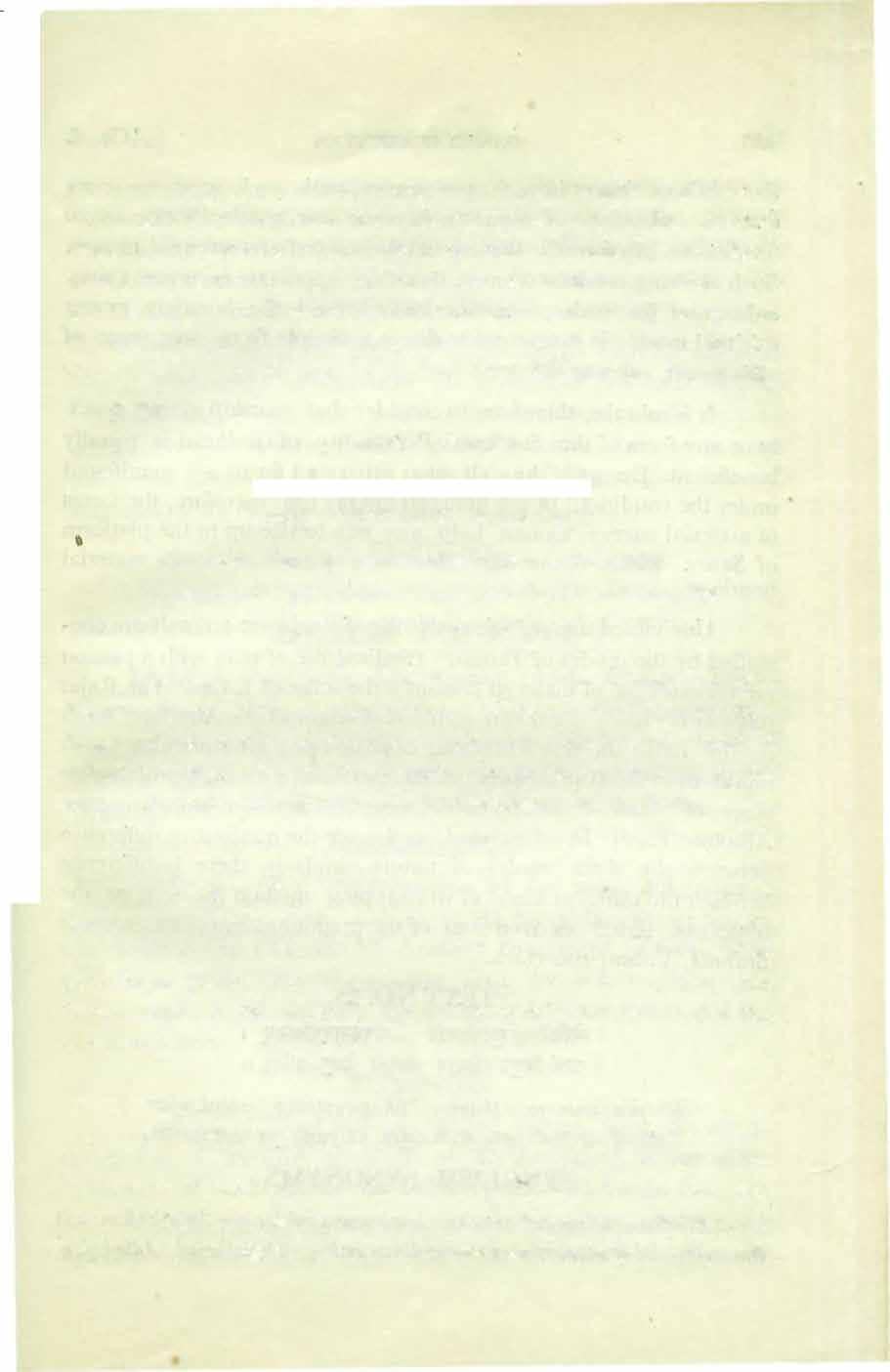
a+�mg
ll����i! 11
Parthibaddaruno dhumas tasmad agnis trayee mayah
Tasmasas tu raJas tasmat satwamyadBrahma Darshanam.
ENGLISH SYNONYl\1S
Parthibad-from earth, Daruno-fire wood, Dhumas -smoke, Tasmat-from that, Agnis-fire, Trqyee -vedic sacrifices, Tamasas-the mode of ignorance, Tu-but, Rajas-the mode of passion, Tasmat-from that, Satwam-the mode ofgoodness, 1/'adwhich, Brahma -the Absolute Truth, Darshnam-realisation.
TRANSLATION
Thefirewood is a transformation of the earth and smoke is better than the raw wood. And fire is still better because by fire we can derive so many benefits by superior knowledge (Vedas). Similarly Rajas quality ofmatter is better than the tamas quality but Satwa quality is the superior quality by which one can realise the Absolute Truth.
PURPORT.
As explained above that one can get release from the conditioned life of material existence by the devotional service ofthe Personality ofGodhead, it is further comprehended herein that one has torise upto the platform of the mode ofgoodness (Satwam) so that one can be eligible for the devotional service ofthe Lord. But
Text 24) FIRSt CANTO 137
�'3Ha�lfmr�<f
there is impediment in such progressive path and q,ny one even from the platefo"rm of lamas quality one can gradually rise up to the Satwam platform by the expert direction of the spiritual master. Such desiring candidates must, therefore, approach an expert spiritual master for such progressive march and the bonafide expert spiritual master is competent to dires;t a disciple from any stage of life tamas, rajas or satwam.
It is mistake, therefore, to consider that worship ofany quality or any form ofthe Supreme Personality ofGodhead is equally beneficient. Except_Vishnu alLother separated forms are manifested under the conditions ofthe material energy and therefore, the forms ofmaterial energy ccannot help any one to rise up to the platforp1 of Satwa which alone can liberate a person from the material bondage.
Uncivilisedstate oflife or the life ofthe lower animals arecontrolled by the modes ofTamas. Civilised life ofman with a passion for various type ofmaterialbenefitsis the stage ofRajas. The Rajas stage oflife has a slight clue to the realisation ofthe Absolute Truth in the forms of fine sentiments in philosophy art and culture with moral and ethical principles but the modes ofSatwam is still higher stage of material quality which actually helps one in realising the Absolute Truth. In other words as there is the qualitative difference between the three modes of nature similarly there is difference between the different kinds ofworshipping method as well as the respective results derived out ofthe predominating deities namely Brahma, Vishnu and Hara.
TEXT NO. 25.
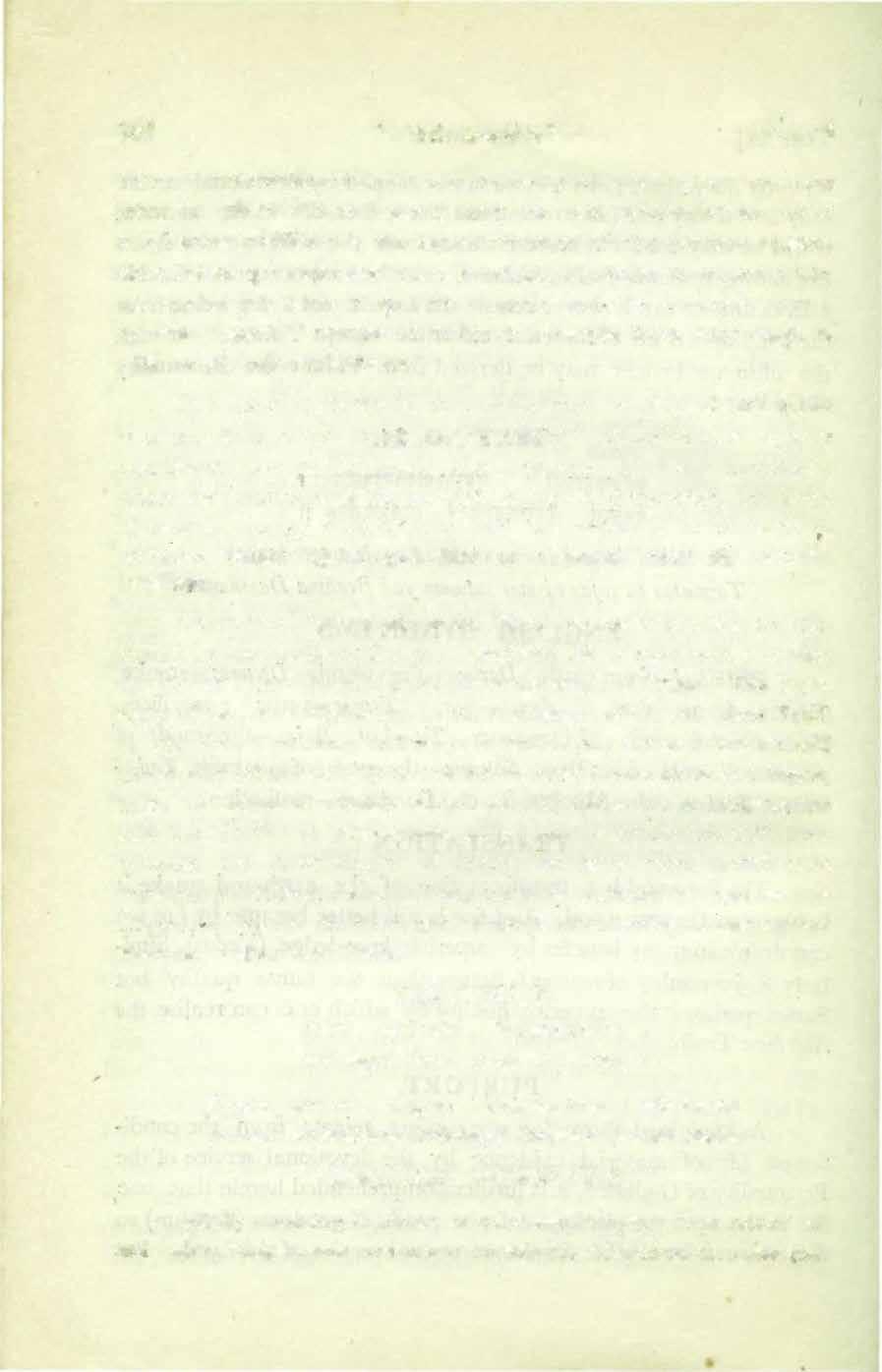
ENG LISH SYNONYMS
Bhejire-rendered service unto, muuayothagrey thus before all the sages, Bhagwantam-unto the Personality ofGodhead, Adhoksjam
138 SRIMAD BHAG\VATAM tCh. 2
�f;:.rt 1_!<rzrrs�r�"' �T'f<fi'<Jfi�Tlffi;fJ!: 1 ��<f fGT��· �llil'lf Cfi�q;tt 21� G'lf<rQ II
munayo thagrey b!tagwantama adhoksajam
vishuddham kshemaya kalpante ye anu taniha.
Bhqire
...�'atwan
-the transcendence, Satwam-existence, Vishuddham-above the three modes of nature, Krhemaya-for deriving the ultimate benefit, Kalpante-deserve, Ye-those, Anu-follow, Tan-those, Iha in this material world.
TRANSLATION
All previous great sages rendered service unto the transcendental Personality of Godhead on account ofHis transcendental existence above the three modes ofmaterial nature,-for derivin!! <::> ultimate benent ofbeing freed from the material condit:tons-. Any one who follows such great authorities is also eli!!ible for such <::> liberation from this material world.
PURPORT
The purport of performing religiosity is neither to profit by material gain nor to get the simple knDwledge of discerning matter from spirit. The ultimate aim ofreligious performances is to get oneself released from the material bondage and regain the life of freedom in the transcendental world where the Personality of Godhead is the Supreme Person. Lawsofreligiosity are, therefore, directly enacted by the Personality of Godhead and except the Mahajans or the authorised agents of the Lord, no body knows the purpose of religiosity. There are twelve particular agents ofthe Lord who know the purpose ofreligiosity and all of them render transcendental service unto Him. Persons who desire their o"Vn good may follow these Mahajans and thus attain the Supreme benefit.
TEXT No. 26.

�elcr) �R�I1JO! fQf<fr �('fl«fT<rl!f l
rrTUll"l�l'fi�: �rmr mrfra' ��ll<r 11
Mumukshabo ghoram Rupam lzitwa bhupatin atka
Narayanakalah shanta bhajanti hi anasyabah
ENGLISH SYNONYMS
Mumukshabah-persons desiring liberation, Ghoram-horrible, ghastly, Rupam -forms like that, Hitwa-rejecting, Bhupatin.
Text 25] FIRST CANTO 139
demigods, Atha-for this reason, Narayana-the Personality of Godhead, Kalak-plenary portions, Shonto-all blissful, Bhojantido worship, Hi-certainly, Anaslf)'abah-non-envious.
TRANSLATION
Persons who are serious about liberation from the material conditions are certainly non-envious and respectful to all and yet they reject the horrible and ghastly forms of demigods and do worship the all blissful forms ofVishnu and his plenary portions.
PURPORT.

The Supreme Personality of Godhead Sri Krishna, 'Who is the Original Person of the Vishnu categories, expands Himselfin two different categories namely integrated plenary portions and separated parts and parcels. The separated parts and parcels are the servitors and the integrated plenary portions ofVishnu Tatwas are the worshipful object of being served. All demigods who are empowered by the Supreme Lord are also separated parts and parcels. They do not belong to the categories ofVishnu Tatwa. The Vishnu Tatwas are equally powerful living beings like the original Fo.Im of the Personality ofGodhead and they display only different categories of powers in consideration ofdifferent time and circumstances. The separated parts and parcels are powerful by limitation. They have not got ultimited power like the Vishnu Tatwas. As such the Vishnu Tatwas or the plenary portions ofNarayana the Personality ofGodhead are never to be classified in the same categories of the parts and parcels. If any one does so he becomes at once offender by the name Pasandi. In the age of Kali many foolish persons commit such unlawful offences and equalise the two categories as one and thesame.
The seperated parts and parcels have different postions in the estimation ofmaterialpowers and someofthemare like KalaBhairaba, Smashan Bhairaba, Shani, Mahakali, Chandika. These demigods are worshipped mostly by those who are in the lowest categories ofthe mode of darkness or ignorance and there are others who are
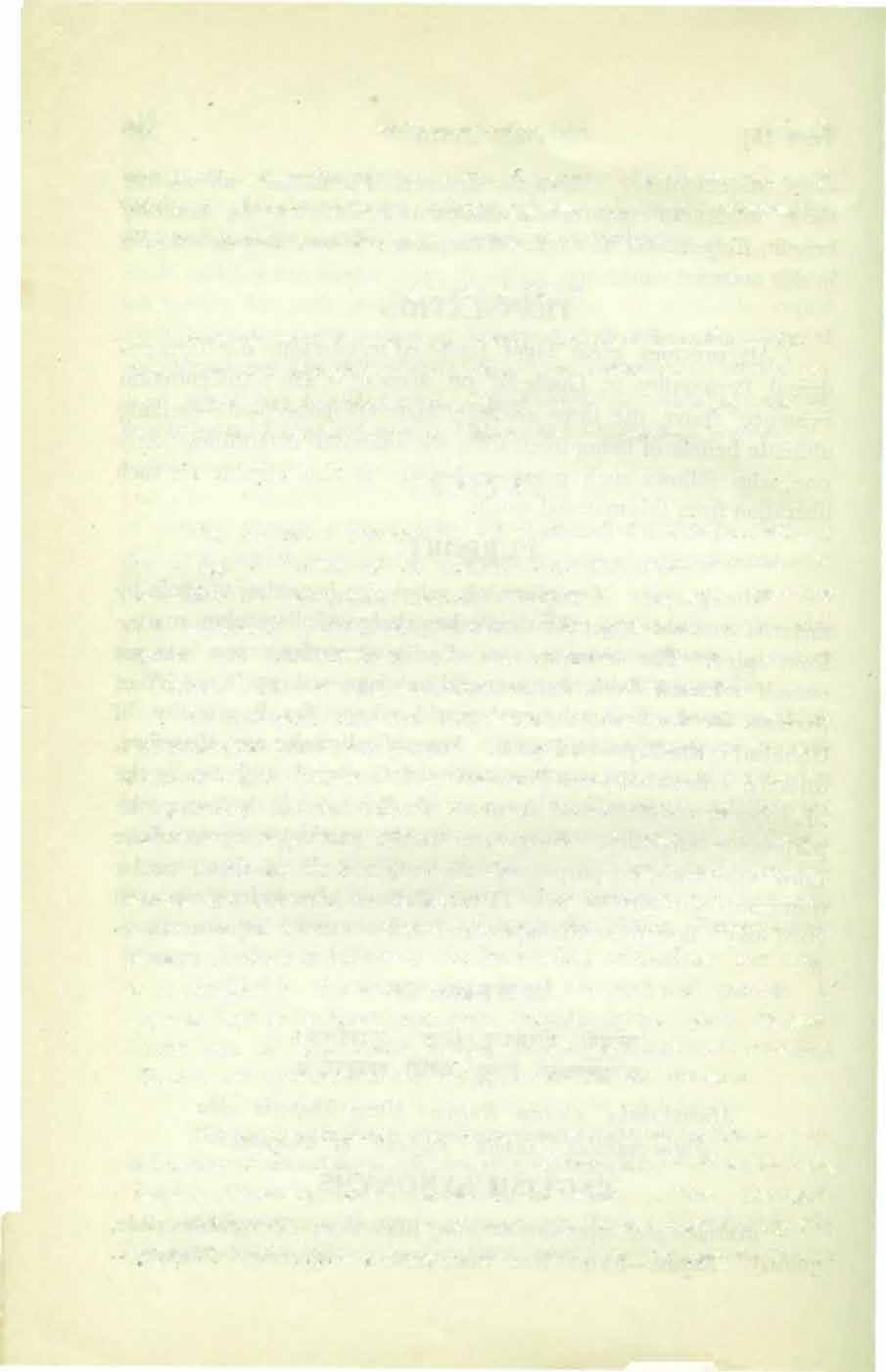
140 SRIMAD BHAGWATAM [Ch. 2
in the modes of passiOn to worship demigodes like Brahma, Shiva, Surya, Ganesh and many such deitiesurged by the desire ofmaterial enjoyment. But those who are actually situated in the mode of goodness SatwaGunaofthe material nature, doworship onlyVishnu Tatwas. Vishnu Tatwas arerepresented byvarious names and forms such as Narayana, Damodara, Vaman; Govinda, Adhoksaja, etc. The qualified Brahmins do worship the Vishnu Tatwas represented by the Shalagram Shila and so also some ofthe higher castes like the K.shatriays and Vaishyas also do worship the Vishnu Tatwas generally.

. Such highly qualified J?rahmins situated in the mode ofgoodnes; have no.grudge against the mode ofworship ofothers. They have all respects for other demigods even though they are ghastly lookinrr like the Kala Bhairaba or Mahakali etc. They know very
well taat these horrible features of the Supreme Lord are all different servitors ofthe Lord under different conditions, but yet they reject the worship of such horrible or good looking features ofthe demigods and they concentrate only on the Forms ofVishnu because they are serious about liberations from the material condtions. The demigods even to the stage ofBrahma the Supreme ofal1 the demigods, can not offer liberation to any body. Hiranya Kashipu underwent a severe type of penances for becoming eternal in life but his worshipful deity Brahma could not satisfy him with such blessings. Therefore Vishnu is called Muktipada or the Personality ofGodhaad who can bestow upon us Mukti liberation and none else. The demigods being as good as other living entities within the material world they are all liquidated at the time ofannihilation ofthe material structure. They are themselves unable to get liberation and what to speak of giving liberation to their dtfferent devotees. The demigods can award upon the worshippers some temporary benefit only and not the ultimate one.
It is for this reason only the candidates for liberatiou do, deliberately reject the worship of other demigods although they have no disrespect for any one ofthe�, - . -

Text 26] FIRST CANTO 141
<::>
TEXT NO. 27
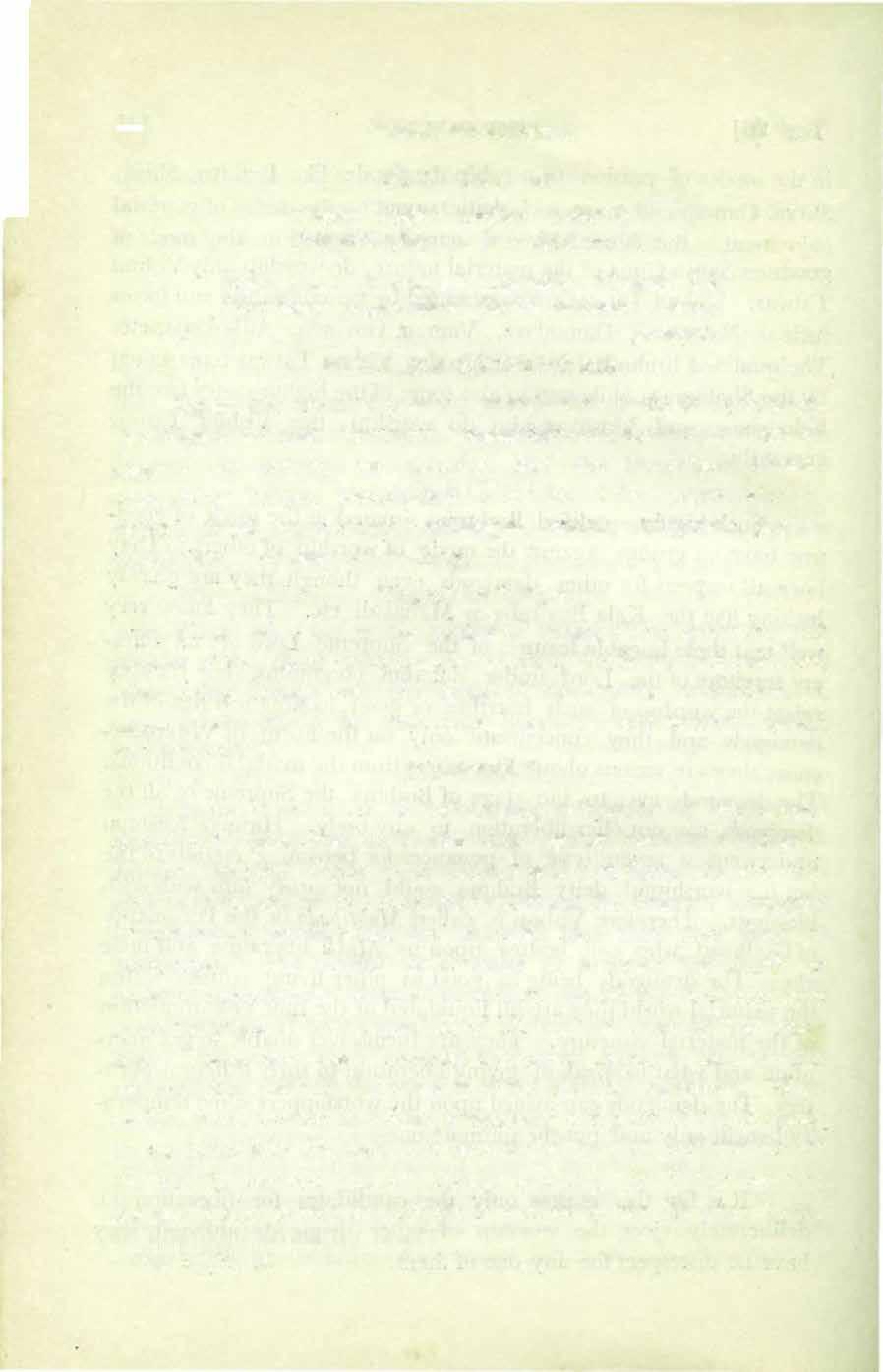
�;;r�crlf: sr�cr�: fq-�pJ;a5f��rr<H<=(
�lf�T�T +r;;rfi:cr <f 1 fl!Jq�<:flTsPfq:J"Cf: II
Rajas tamah prakritayah samashila bhajanti bai Pitri bhuta prajeshadeen Shriha aishwarya praja ' ipshavah.
ENGLISH SYNONYMS
Rajas-the mode of passion, tamah-the mode of ignorance, prakritayah-of that mentality, shamashila-of the same categories, bhajanti-do worship. bai-actually, pitri-the forefathers, bhutaother living beings, prm ' eshadeen-controller ofthe cosmic adminis� tration, shriah-enrichment, aishwarya-wealth and power, praja-aristocracy, isshavah-so desiring,
TRANSLATION
Those who are in the modes of passsion and ignorance and persons ofthe same category do worship the forms offorefathers, other living beings and the deities of the cosmic administration urged by a desire to be materially benefitted with women, wealth and aristocracy.
PURPORT
There is no need of worshiping demigods of whatsoever category for those who are serious about going back to Godhead. In tbe Bhagwat Geeta it is clearly said that those who are mad after material enjoyment they only approach the different demigods for temporary benefitwhich are meant for men with poor fund of knowledge.* We should never desire to increase the depth of material enjoyment. Material enjoyment should be accepted only up to the point ofbare necessities oflife and not m9re or less than that. To accept m0re material e�joyment means to bind up one selfmore and more in the miseries ofthe material existence. More wealth, more women and false aristocracy are some ofthe demands of the materially disposed man because he has no information of the benefit derived out of Vishnu worship. ByVishnu worship one can derive benefit for this life as well as for the life after death.
*B.G. 7/20,23,


SRIMADBHAGWATAM
[Ch. 2
Forgetting these principles, foolish people who are after more wealth, more wives and more childern do worship the demigods of different dimentions. The aim oflife isjust to end the miseries of life and not to increase them.
For material enjoyment there is no need ofapproaching the demigods. Because the demigods are but servants ofthe Lord. As such they are duty-bound to· supply necessaries of life in the form of water, light, air etc. which are essential parts of living conditions. One should l't'Ork hard and worship the Supreme Lord- by the fruits of one's hard labour for existence and that should be the motto of life� ·one should be careful about his occupational service with faith in God in the proper way and that will lead one gradually on the progressive march to Back to Godhead.
Lord Sri K�ishna when He was personally present at J?rajadhama He stopped the worship of lndra demigod and advised the residents ofBraja to worship their business and to havefaith in God. vVorshipping the multi demigods for material gain is practically a perversity of religion. This sort ofreligious activities have been condemned in the very begining of the Bhagwat as Kaitaba Dharma. There is only one religion in the world to be followed by one and all and that is the Bhagwat Dharma or the religion which teaches to worship The Personality of Godhead and no one else.
TEXT No. 28.

r:rr��crq ey;;:-r crr��cr�r lf@r: 1
crr��crcru zr)qrcrr�acr<n:r: f�zrr: 11
crm�'f'f� �r;f crru�crcr{ G''D 1 "' "'


'fi��Cf<l"Cf\T �lfT crr�<t"fG<:T qfcr: II


Vasudeva para veda vasudeva para makltalz
Vasudeva para yoga vasudeva para Kria!z
Vasudevaparamjnanm vasudevaparam tapa!z
Vasudeva pato dharmo vasudeva para gatilt

Text 28] FIRST CANTO 143
ENGLISH SYNONYMS.
Vasudeva--the personality of G::>dhed, para-ultimate goal, Veda-reaveled scriptures, Vasudeva-the personality of Godhead, Para-for worshipping, Maklza-sacrifices, Vasudeva -the personality ofGodhead, Para---the means of attaining, Yoga-mystic parapharnalia, Vasudeva-the personality of . Godhead, Para-under His control, Kriah-fruitive activities, Vasudeva -the personality of Godhead, Param-the supreme, Jnanm-knowledge, Vasudevathe personality of Godhead, Param-best, Tapah-austerity, Vasudeva-the personality of Godhead, Para-superior quality, Dharma-religiosity, Vasudeva-the personality ofGodhead, Paraultimate, Gatih-goal oflife.

TRANSLATION
The ultimate knowable object in the revealed scriptures is Sri Krishna the Personality ofGodhead. The purpose of performing sacrifices is to please Him. The mystic parapharnalia areperformed for realising Sri Krishna. All fruitive activities are - ultimately rewarded by Him only. He is the Supreme knowledge and all severe austenties are performed to know him. Religion means to do devotional service unto Him. And He is the Supreme Goal oflife.
PURPORT
Sri Krishna the Personality ofGodhead is the only object of worship is confirmed in these two slokas. In the Vedic literature there is the same objective ofestablishing relation with Vasudeva, to act according to that established relation and ultimately revive our lost loving service unto Him. That is the sum and substance ofthe Vedas. In the Bhagwat Geeta the same theory is confirmed by the Lord in His own words that the ultimate purpose ofthe Vedas is to· · know Him only. All the revealed scriptures are prepared by the Lord by His incarnation in the body of SrilaVyasdevajust to remind the fallen souls conditioned by material nature about Sri Krishna the Personality of Godhead. Except the Personality of Godhead no other demigod can award freedom from the material
i44 [Ch. 2
bondage. That is the verdict ofall the Vedic literatures. Impersonalists who have no information of the Personality of Godhead minimise the omnipot:ency ofthe Personality ofGodhaed and put Him on equal footing with all other living beings and for this act such impersonalists do get freedom from tht> material bondage with great difficulty: Because they can only surrender unto Him after many many births and culture of transcendental knowledge.
One may argue that theVedic activities are based on sacrificial ceremonies. That is true. But all such sarcrifices are also meant for realising the truth about Vasudeva. Another Name ofVasudeva is Yajna and in the Baagwat Geeta it is clearly stated th£�.t all sacrifices and all activities are to be conducted for the satisfaction of Yajna or Vislmu the Personality of Godhead. Similarly the Yoga system. Yoga means to get into touch with SupremeLord. The process however, includes several bodily features as Ashana, Dlfyana, Pranayama, Meditation etc. and all of them are meant for concentrating upon the localised aspect ofVasudeva represented as Paramatma. Paramatma realasition is partial realisation of Vasudeva aud ifone is successful in that attempt one realises Vasudeva in full. But by ill luck most ofthe yogins arestranded by the powers ofmysticismachieved through the process ofbodily features. Illfated yogins become captivated by the wonderful material powers thus achieved and again becom� conditioned by the laws ofNature and fall down from the higher status ofperfection. These fallen yogins are given chance in the next birth by placing them in the family ofgood learned Brahmins or in the family of rich merchantile communityjustto execute theunfinished taskofVasudeva-realisation. Ifsuch fortunate Brahmin and the son ofa rich man properly utilise the chance they can easily realise Vasudeva by good association ofsaintly persons, Unfortunately such preferential persons are captivated again by material wealth and honour and'practically forget the aim ofhis life.
So also the culture ofknowledge. According toBhagwatGeeta there are about eighteen items in the matter of_c::ttlturil1g knowledge. And by such culture ofknowledge one becomes gradually prideless,

Text 28] FIRST CANTO 145
devoid ofvanity, nonviolent, forbearing,simple, devoted to the great spiritual masters, ,controller ofthe senses. By culture ofknowledge one becomes unattached to hearth and home and becomes conscious ofthe miseries due to death, birth, oldage and deseases. And a sumtotal ofall such culture ofknowledge culmillates into devotional service ofthe Personality of Godhead Vasudeva. Therefore, Vasudeva is the ultimate aim ofculturing all different branches of knowledge. Culture ofknowledge leading one tothe,transcendental plane ofmeeting Vasudeva is real knowledge. Physical knowledge by its all branches is condemned in the Bhagwat Geeta as Aynan or the opposite number ofknowledge. Ultimate aim ofphysical knowledge is to satisfy the senses which means prolongation of the term of material existence and thereby continuing the status ofthree fold miseries. So prolonging the miserable life of material existence is nescience. But the same physical knowledge leading to theway of spiritual understanding helps in ending the miserable life ofphysical existence and begins the life of spiritual existence in the plane ofVasudeva.
The same is for all kinds ofausterities, Tapasya means voluntary acceptance of bodily pains for achieving some higher end of life. Ravaria and Hiranyakasipu underwent a severe type ofbodily torture for achieving the end of sense gratification. Some times modern politicians also undergo severe type of austerities for achieving some political end. They are not actually Tapsya. One should acc�pt voluntary bodily inconvenience for the sake of knowing Vasudeva &ecause that is the way ofreal austerities. Otherwise all other forms ofausterities are classified in the group of the modes of passionandignorauce. Passion and ignorance cannot endthemiseries oflife. Only the mode ofgoodness can mitigate the threefold miseries oflife. Vasudeva and De'laki, the so called father and mother ofLord Krishna, underwel\t,, pan<l:nces to get Vasudeva as their son. Lord Sri Krishna is the Father ofall living being.* As such He is the original living Being of all other living beings He is the original Eternal Enjoyer amongst all other enjoyers. Therefore no body can be His begetting father as it is ill conceived by the less intelligent class ofmen. Lord Sri Krishna agreed to become

146 SRIMAD BHAGWATAM [Ch. 2
14/�·
*J3.Q.
the son ofVasudeva and Devaki being pleased at their severe type ofausterities. Therefore if any asuterities have to be done, it must be done in terms ofachieving the end of knowledge of Vasudeva.
Vasudeva is the Original Personality of Godhead Lord Shri Krispna. As explained before the original Personality of Godhead expands Himselfby innumerable Forms. Such expansion of forms are made possible by His various energies. His energies are also multifarious and as such His internal energies are superior and external energies are inferior in quality. This is explained in the Bhagwat Geeta as the Para and Apara Prakrities.* So His expansions ofvarious forms which take place in terms of the internal energies are superior forms whereas the expansions which take place in terms ofthe external energies are inferior forms. The living entities are also His expansions. The living entities who are expanded by His internal potency are eternally liberated persons whereas those who are expanded in terms of the material energies are eternally conditioned souls. Therefore, all culture of knowledge, austerties, sacrifice, activities shall be aimed at changing the quality ofthe influence that is acting upon us. For the present we are all being controlled by the external energy ofthe Lord and just to change the quality ofthe influence, we must have to endeavourforit by cultivating spiritual energy. In the Bhagwat Geeta it is said that those who are Mahatmas or those whose mind hasbeen so broadened as to be engaged in the service of Lord Krishna,-are under the influence ofthe internal potency and the effect is that such broad · minded living beings are constantly engaged in the service of the Lord without any deviation. That should be the aim of life. And that is the verdict of all the vedic literatures. No body should bother himselfwith fruitive activities or dry speculation of transcendental knowledge. Everyone should at once engage himself in the transcendental loving service of the Lord. One should not also deviate himself in the engagement of worshipping different demigods working as different hands of the Lord for creation maintenance or destruction of the material world. There ar� innumerable powerful demigods for looking over the external management of the material world. They are all different
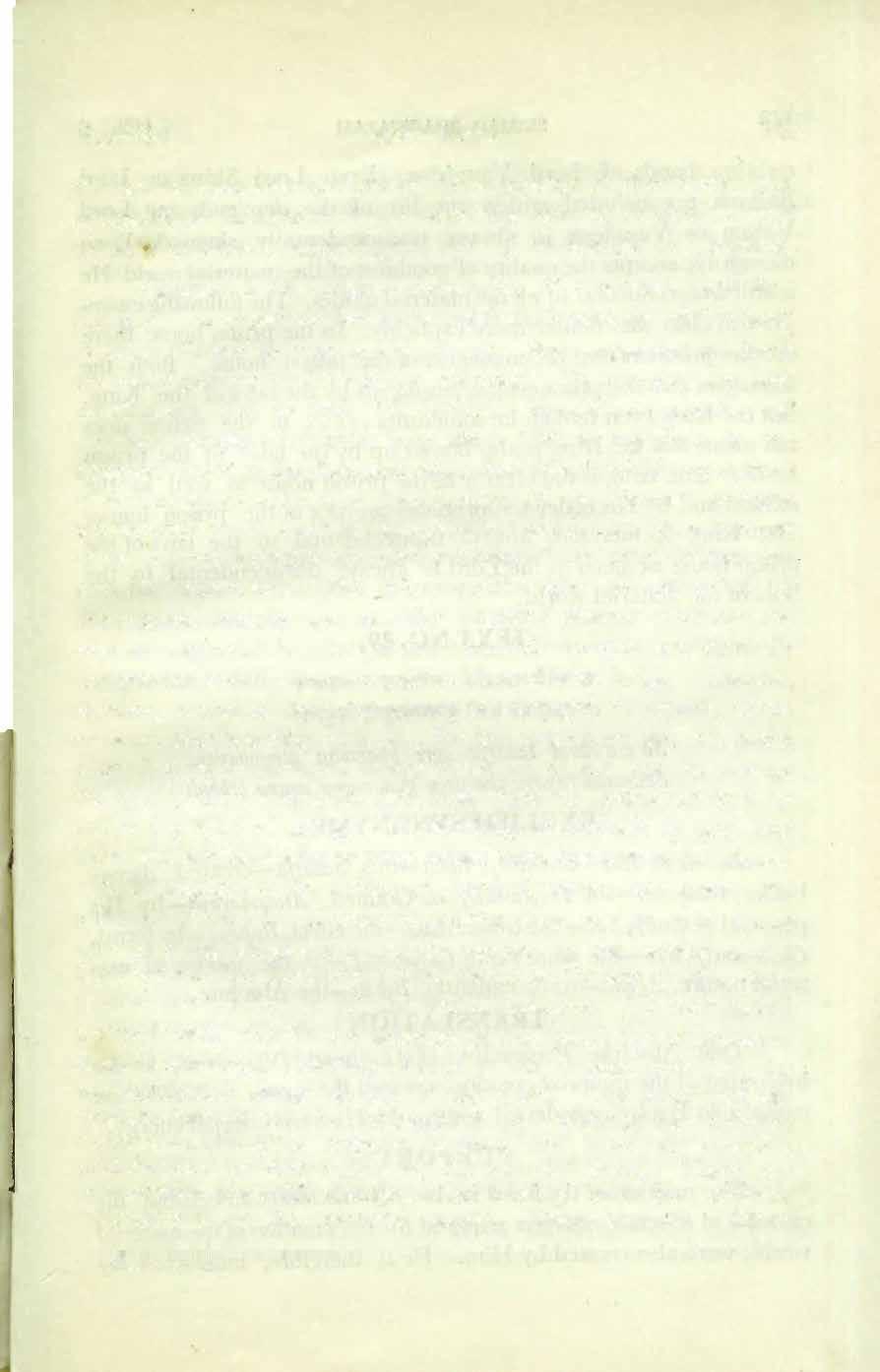
Text 28] Fiks'r CANtO 14'7
•B.G. 7/4·6.
assisting hands of Lord Vasudeva. Even Lord Shiva or Lord Brahma are included within the list of the demigods but Lord Vishnu or Vasudeva is always transcendentally sitl}-ated. Even though He accepts the quality ofgoodness ofthe materialworld He is still transcendental to allthematerialmodes. Thefollowingexample will clear that matter more explicitly. In the prison house there are the prisoners and the managers ofthe prison house. Both the managers and the prisoners are bound up by the laws of the King. But theKing even though he sometimes comes in the prison does not mean that the King is also bound up by the laws of the prison house. The King is the creator ofthe prison house as well as the officers and by His order the prisoners are put in the prison house. The King is therefore always transcendental to the laws ofthe prison house as much as the Lord is always transcendental to the laws ofthe material world.
TEXTN0.29
« .��fi ««�{�" +flJCfT'fT�if11TlflJT I «<ruSf.,.qqr "ifTUT �ur+r�T:;!UJ)fer�: t1
Sa eva idam sasarya agre bhagwan atmamayaya

Sadasadrupaya cha asou gunamayee aguna bibhuh :EXGLISHSY-NONYMS
Sa--that, Eva-certainly, !dam-this, Sasarya-created, Agrebefore, Bhagwan-the Personality of Godhed, Atmamayaya-by His personalpotency, Sad-the cause, Asad-the effect, Rupaya-byforms, Cha�and, Asou-the same Lord, Gunamcryee-in the modes of material nature, Aguna-transcendental, Bibhu-the Absolute.
TRANSLATION
That Absolute Personality of Godhead (Vasudeva) in the beginning ofthe material creation, created the causal and effectual energies in His transcendental position by His own interpal energy.
PURPORT
The position ofthe Lord is always transcendental because the causal and effectual energies required for the creation ofthe material world, were also created by Him. He is therefore, unaffected by
14$ SRIMAD BHAGWAfAM fCh. 2
the qualities ofthe material modes. His existence, form, activ1t1es and parapharnaJia all existed before the material creation.* He is all spiritual and has nothing to do with the qualities ofthe material world which are qualitatively distinct from the spiritual qualities of the Lord.
1'EXT NO. 30

crzn f<R1ftffit;�'! �'! �crrf�cr 1 �;:a51fcrcsc iiT�Trfe-f<r�iff<r;;rfhm: II "

Taya vilasitesu esu gunesu gunaban iva Antapmvista avati viJnanena bi:frimbhitah
ENGLISH SYNONYMS
Taya-by them, Vilasiteesu -although in the function, Esuthese,Gunesu- the modes of material nature, Gunaban -affected by the modes; Eva-as if, Antah-within, Pravista-entered into, Avati-appears to be, Vijnanena-by transcndental consciousness, Bi}rimbhita-fully enlightened.
TRANSLATION
The Lord (Vasudeva) after creating the ingredients inpotency expands Himself by entering into the creative elements. And although He is within the functional affairs and appears to be one ofthe created beings, He is fully enlighten in his transcendental position.
PURPORT
The living entities are separated parts and parcels ofthe Lord and the conditioned , living entities who are unfit for the spiritual kingdom are strewn within the material world to enjoy matter to fullest extent and as Paramatma and enternal friend ofthe living entities the Lord by one of His plenary portion accompanies the living entities _ to guide them in their material enjoyment and to become witness ofall the activities. While the living entities do en joy the material conditions the Lord keeps up His transcendental position without being affected by such material atmosphere. In the Vedic literatures (Sruti) it is said that there are two birds in
*Sripad Shanka!�charya the head of the Mayavada school, accepts this transcendental positiOn of Lord Krishna. Vide his commentation on B.G.
Text 30] 149
one tree.* One of them is eating the fruit ofthe tree while the other is witnessing the actions. The Witness is the Lord and the fruit eater is the living entity. The fruit eater living entity has forgotten his real identity and is everwhelmed in the fruitive activities of the material conditions but the Lord Parmatma is always full in transcendental knowledge. That is the difference between the Super Soul and · the conditioned Soul. The conditioned soul living entity is controlled by the laws ofNature while the Paramtma or the Super Soul is the controller ofthe material energy.
TEXT NO. 31

lf�T ·�:rGffQaT Gff0Gl�"�Cfi': tcP:i)frrf! I


rrri=lcr mfcr fcr<ic:rmrr �a-f! 'if cr�r�ifTf!: 11
Yatha hi abahite bahnir darusu swayonisu
Naneva bhati viswatma cha tathapuman.
ENGLISH SYNONYMS
Yatha-as much as, Hi-exactly like, Abahito-surcharged with, Bahnir-fire, Darusu-in the wood, Swayonisu-the source of manifestation, Naneva-l!ke different entities, Viswatma-the Lord as Paramatma, Cha-and, Tatha-in the same way, Puman-the Absolute Person, TRANSLATION.
The Lord Paramatma is surcharged like the fire in the wood within everything in matter and appears to be of many varieties although He is Absolute one without second.
PURPORT
Lord Vasudeva the Supreme Personality ofGodhead by one ofHis plenary part expands Himselfall 0\ erthe material world and His existence can be perceived even within the atomic energy. Matter antimatter proton neutron all are different sources of manifestation ofthe Paramatma feature of the Lord by proper culture only. As from the wood the infested fire can be manifested by proper manupulation or as butter can be churned out ofthe milk so also the presence of the Lord as Paramatma can be felt by the
i50 SRIMAD :bHAGWATAM [Ch. 2
.
*Dwa suparna sayuja sakhaya samanatn briksham parisaf>wajate tayoannya p1ppalam swadbatwannanya abhichaksititi. (Srutimantra)
process of legitimate hearing and chanting ofthe transcendental subject. The transcendental subject is specially dealt in the Vedic literatures like the Upanishads and Vedanta and Srimad Bhagawatam isthe bonafide explanation of the same Vedic literatures. TheLord can be realised through the aural reception of the transcendental message and that is the only source of experiencing transcedental subject. As fire is kindled from the wood by another peace offire similarlythe divine consciousness ofman canbe kindled up by another divine grace. His Divine Grace the Spiritual master can kindle up the spiritual fire from the woodlike living entity by imparting proper spiritual messages injected through the receptive ear. Therefore one is required to approach the proper spiritual master with receptive ear only and the Divine existence is thus gradually realised. The difference of animality and humanity lies in this process only. A human being can hear rropuly while the animal cannot. -
TEXT NO. 32

ml"T �IJf1PllfT<i"<fa��ltfr�lfTcl=fflf: I

II
Asougunamayair bhavai bhuta sukshma indrbm atmavih
Swanirmetes.u _nirvisto bhungte bhutesu tadgunan
ENGLISH SYNONYMS
Asau-that Parmatma, Gunamtryair-influenced by the modes of nature, Bhavai-naturally; Bhuta-created, Sukshma-Subtle, Indirya-senses, Atma'lih....-.by theli'\7ingbeings, Swanirmetesu-in the matter of his own creation, Nirvisto-entering, bhungte-causes to enjoy, Tadgunan-those modes ofnature.
TRANSLATION
That Supersoul enters into the body ofthe created beings and influenced by the modes of material nature causes to enjoy, the living beings in different bodies, by the subtle mind the effects of the modes of n<tture,
Text 32] FIRST CANTO 151
f<rf<fl>c) �.cffi �ff'r Cf't�IJI'T'!_
�f<rflfff'r
PURPORT
There are eighty four lacs species ofliving beings beginning from the highest intellectual being Brahma down to the insignificant ant and all ofthem are enjoying the material world interms ofthe desire of the subtle mind and gross material body. The gross material body is based on the conditions of the subtle mind and the senses are created according to the desire ofthe living being. The Lord as Parmatma helps the living being in gettiug material happiness because the living being is helpness in all respect to obtain his desired things. He proposes and the Lord disposes. In another sense the living beings are parts and parcels of the Lord. They are therefore one with the Lord. In the Bhagwat Geeta the living beings in all varieties ofbodies have been claimed by the Lord as His sons. The sufferings and enjoyment of the sons are indirectly the suffering and enjoyment ofthe father. Still the father is not in any way affected directly with the sufferings and enjoyment of the sons. He is so kind that He constantly remains with the Jiving being as Parmatma and always tries to convert the living being towards the real happiness,
TEXT NO. 33

�t<rlfclrtr u"� V!"TCfil<J: � �T'fim<Fr: 1
�T{1tCfat\��ar �crfalis..or\rfG� 11
Bhavayati esa sattwena lokan bai lokabhavanah
Leela avatar anurata deva tiryyng naradisu.
ENGLISH SYNONYMS
Bhavayati-maintains, Esa-all these, Sattwena-in themode of goodness, Lokan- all over the universe, Bai-generally, Lokabhavanah -the master of all the universes, Lee/a-pastimes, Avatara-incarnation, Anurato-assuming the role, Deva-the demigods, Tiryyang-lower animals, Naradisu--in the mdist of human beings.
TRANSLATION
Thus the Lord of the universes maintains all the universal planets domiciled by the .demigods� human beings or other than
152
SRIMAD BHAGWATAM [Ch. 2
the humanbeings,-byHis pastimes and incarnationsjust to reclaim the living beings there in the mode ofpure goodness.
PURPORT
There are innumerable material universes and in each and everyuniverse there are innumerable planets inhabited by different grades of living entities in different modes ofnature. The Lord (Vishnu) incarnates Himselfin each and every one ofthem and in each and every type ofliving societies. . He manifests His transcendental pastimes amongest themjust to create the mentality ofgoing back to Godhead. The Lord does not change His original transcendental position but He appears to be differently manifested according to the particular time circumstances and society.
Sometimes He incarnates Himself or empowers a suitable living b�ing to act for Him but all the same the purpose is the same that the Lord wants the suffering living being to go back to home go back to Godhead. The happiness which the living beings are hunkering after is not to be found within any corner ofthe innumerable universes and material planets. The eternal happiness which the living being wants is obtainable in the kingdom ofGod and the forgetful living beings under the influence of material modes have no informat�on ofthe Kingdom of God. He therefore comes to propagate the message ofthe Kingdom of God either personally as incarnation or through His bonafide representatives as the good son ofGod. Such incarnation or the sons of God are not only making propaganda of going Back to Godhead within human society but also the �propaganda wosk ingoing on in all types ofsocieties including demigods or those who are other than the human beings.
Thus end the Bhaktivedanta Purports ofthe First CantoSecond Chapter ofSrimad Bhagwatam in the matter of Divinity and Devotional Service.
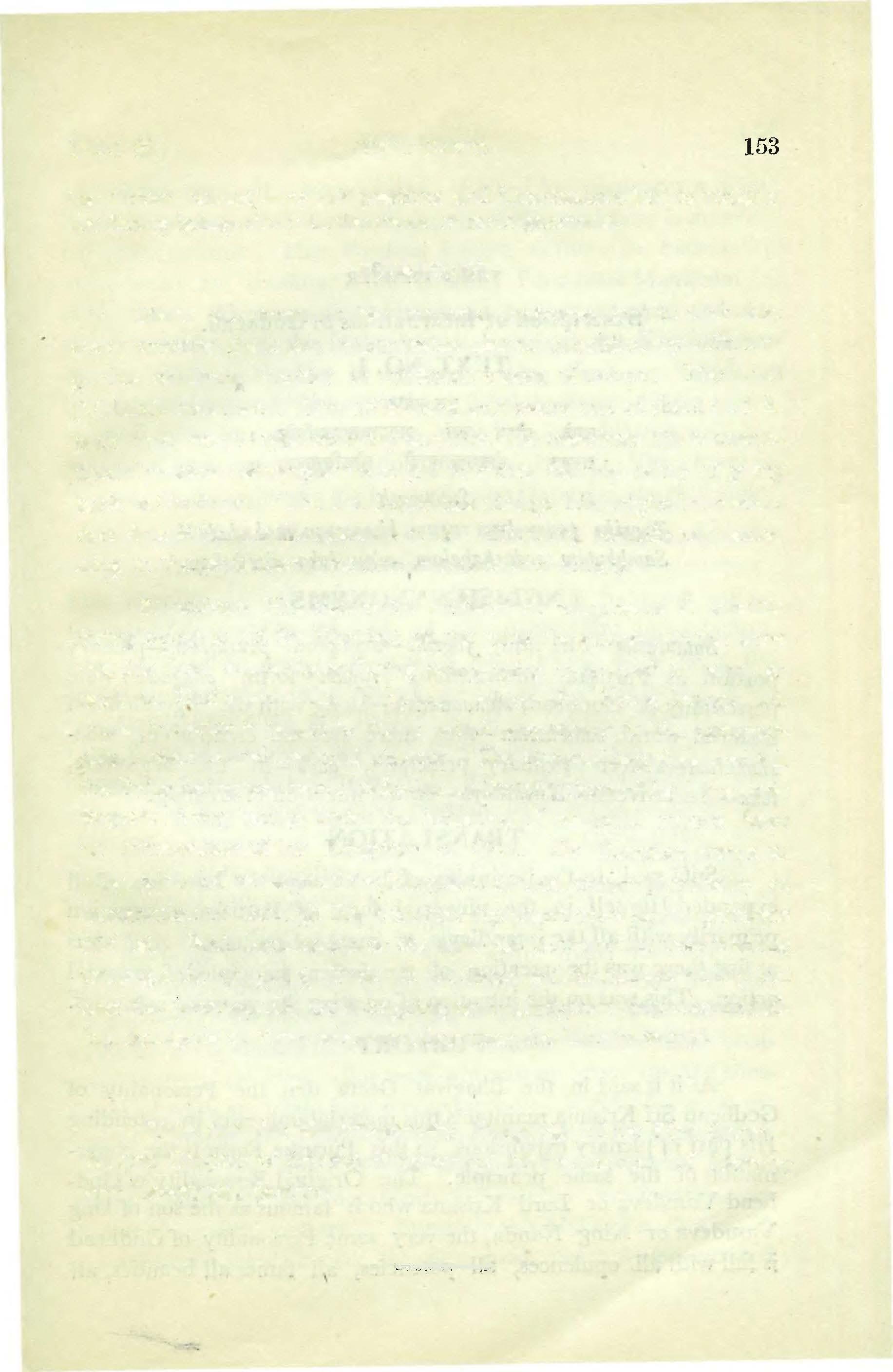
Text 32] FIRST CANTO 153
THIRD CHAPTER
Description of Incarnations ofGodhead.
TEXT N0. 1.
�ij 'd'fr'q trT'Qli �f �l'J��rf�f�: 1 trls�T'fi��T �T'fif««!ffl.fT II "
Sutauvach
Jagrihe pourusham rupam bhagawan mahadadivih Sambhutam sodashakalam , adou loka sisrikshaya.
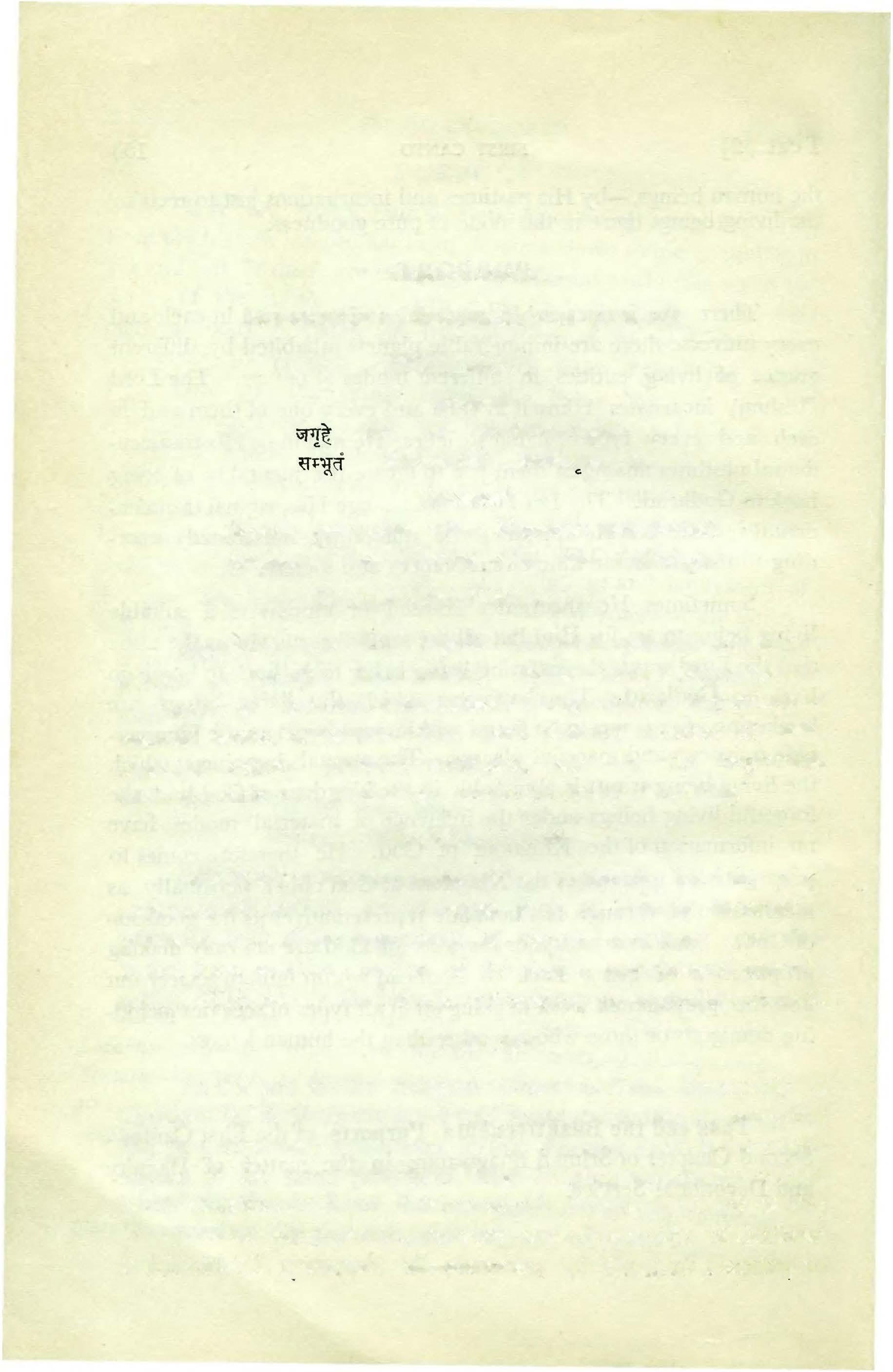
ENGLISH SYNONYMS
Sutauvacha-suta said, Jagrihe-accepted, pourusham-plenary portion as Purusha incarantion, rupam-form, bhagawan -the personality of Godhead, mahadadivih -along with the �ngredients of material world, sambhutam-thus there was the creatiOn of, sodashakalam-sixteen primary principles, adou-in the beginning, loka-the universes, sisrikshaya --on the intention ofcreating.
TRANSLATION
Suta said, in the beginning ofthe creation the Lord first ofall expanded Himself in the uinversal form of Purusha incarnation primarily with all the ingredients of material creation. And thus at first there was the creation of the sixteen principles of material action. This was on the intention ofcreating the material universes.
PURPORT
As it is said in the Bhagwat Geeta that the Personality of Godhead Sri Krishna maintains this material universes by extending His part ofplenary expansions, so this Purusha Form is the confirmation of the same principle. The Original Personality ofGodhead Vasudeva or Lord Krishna who is famous as the son ofking Vasudeva or King Nanda, the very same Personality ofGodhead is fbll with all opt!lences, all potencies, all fa,me�all beauties, all -
knowledge and all renunciations. Part ofhis opulences is manifested as impersonal Brahman and part ofHis opulences is manifested as Paramatma. This Purusha feature ofthe same Personality ofGodhead Sri Krishna is the Original Parmatma Manifestation ofthe Lord. There are three Purusha features in the matter of material creation and this Form who is known as the KaranodakaShayee Vishnu is the first ofthe three. The others are known as the Garvodaksayee Vishnu and the Khirodakashayee Vishnu which we shall know one after another. The innumerableuniverses are generated from skinholes of this Karanodakasayee Vishnu and in each one ofthe universes theLord enters as Garvodakasayee Vishnu.
In the Bhagwat Geeta this is also mentioned that the material world is created at certain interval and then again it is destroyed. This creation and destruction is done by the Supreme will on account ofthe conditioned souls or the Nityabadhya living beings. The nityabadhya or the eternally conditioned souls have the sense ofindividuality or Ahamkara which dictates them for sense enjoyment whieh they are unable to have constitutionally. The Lord is the only enjoyer and all others are enjoyed. The living beings are predominated enjoyer. Butthe eternallyconditioned souls forgetful of this constitutional position have strong aspiration for enjoying. This chance ofenjoying the matter is given to the conditioned souls in the material world and side by side they are given the chance ofunderstanding the real constitutional position Those fortunate living entities who catch up the truth and surrender unto the Lotus feet of Vasudeva after many many births in the material world, become one ofthe eternally liberated souls and thus are allowed to enter into the kingdom ofGodhead. Mter this such fortunate living entities have no more to come within the occasional material creation. But those who can not catch up the constitutional truth are ag·ain kept merged into the Mahat Tatwa at the time ofannihilation ofthe material creation. When the creation is again set up this Mahat Tatwa is again let lose and this Mahat Tatwa contains all the ingredients of material manifestations including the conditioned souls. Primarily this Mahat Tatwa is divided into sixteen parts namely the five gross material elements and

Text 1] FIRST CANTO 155
the eleven working i�struments or senses. It Is like the cloud in the clear sky. In the spiritual sky, the effulgence of Brahman is spread all round and the whole system is dazling in spiritual light. The Mahat Tatwa is assembled in some corner of the that vast unlimited spiritual sky and the part which is thus covered by the MahatTatwa is called the material sky. This part of the spiritual sky, called the Mahta Tatwa, is only an insignificant portion ofthe whole spiritual sky, and within this Mahat Tatwa there are innumerable universes. All these universes collectively is produced by the Karanarvashayee Vishnu called also the Mahavisnu who simply throws His glance only to impregnate the material sky to manifest.
TEXT NO. 2
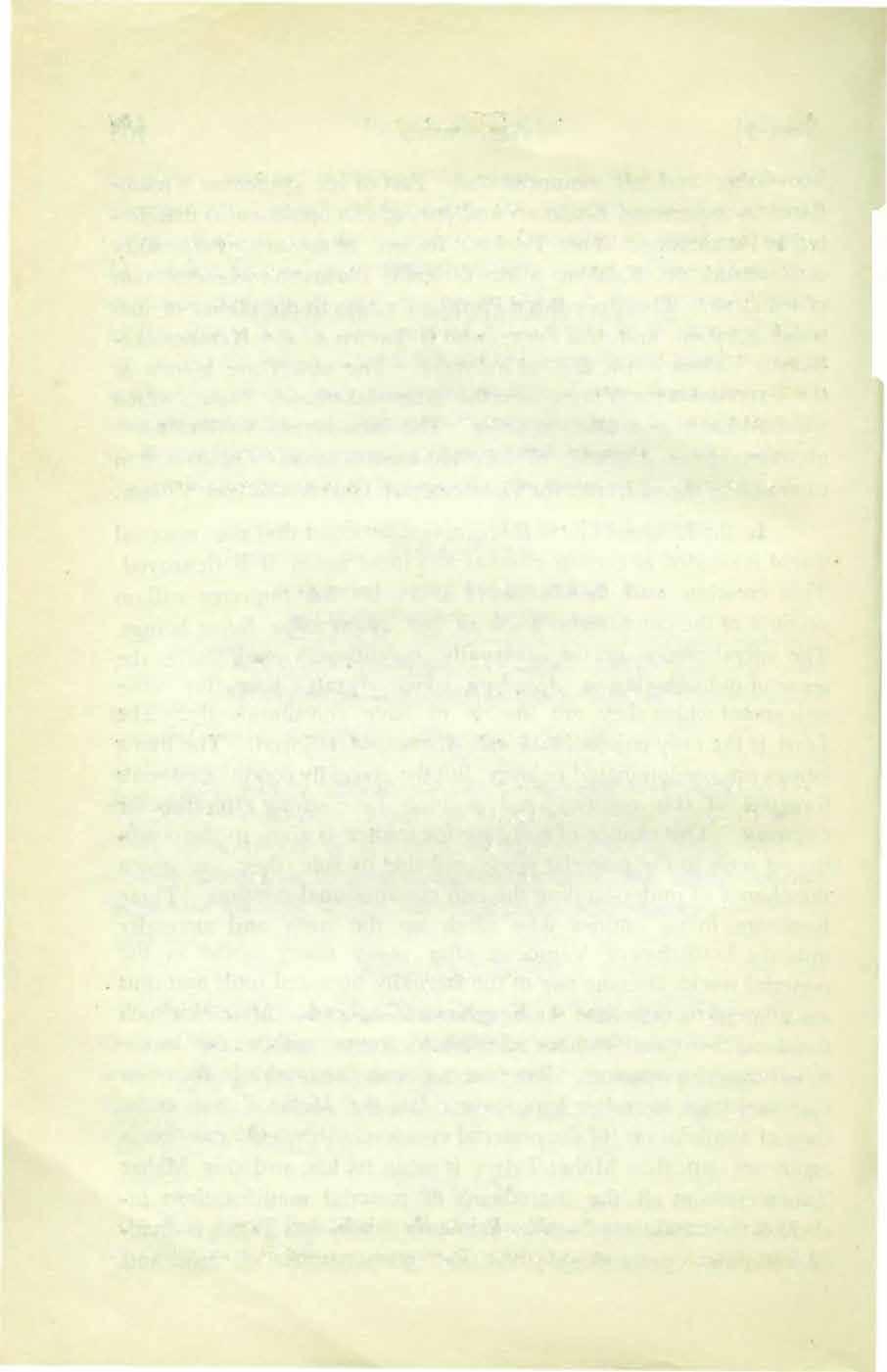
��fij" �lfFI� li'rflf.m fcrar<Tcr: 1
;:nB'r�IJ:�\SfTGRfT��Wff<FiCT�\ifi trfi.1: II

rasya ambhasi sayanasya yoganidmm vitanwatah
]Vavi hradambvjad asit brahma viswa sri.Jampatih
ENGLISH SYNONYMS
ra.rya-whose, Ambhasi-in the water, Sayanasya-lying down, roganidram-sleepinginmeditation, Vitanwatah-ministering, Navenavel, Hmdad-out of the lake, Ambujad-from the lotus, Asitbecame manifested, Brahma-·the grand father of the living beings, Viswa--the universe, Srijam-the engineers, Patih-master.
TRANSLATION
Another plenary part ofthe Purusha is lying down within the water ofthe universe from the navel lake of His body which has sprouted the lotus stem (which is the body ofthe universe) and on the top, from the lotus flower Brahma the master ofall engineers of the universe, is generated.
PURPORT
The First Purusha is the Karanodakashayee Vishnu. From the skinholes of Him innumerable universes have spruTJg up. In
/' 156 siuM:AD BHAGWATAM (Ch. 3
each and everyone ofthem the Purusha enters as the Garbhodakashayee Vishnu. He is lying in halfportion ofthe universe full with water of His body. And from the navel ofGarbhodakashayee Vishnu has sprung up the stem ofthe lotus flower the birthplace of Brahma who is the father ofall living beings and the master of all the demigod engineers engaged in the matter ofperfect design and working ofthe universal order. Within the stem ofthe lotus there are fourteen divisions ofplanetary system and the earthly planets are situated in the middle. Upwards there are other better planetary systems and the topmost system is called Brahmaloka or the Satyaloka. Downwards the earthly planetary system there are seven downwards planetary systems domiciled by the Ashuras and similar other most materialistic living beings.
From this Garbhodakashayee Vishnu there is expansion of the Kshirodakashayee Vishnu who is the collective Paramatma ofall living beings. He is called Hari and from Him all incarnations within the universe are expanded.
Therefore, the conclusion is that the Purusha Avatar is manifested in three features namely first the Karanodakashayee who creates aggregate material ingredients in the MahatTattawa, second the Garbhodakashayee Who enters in each and every Universe and third the Kshirodakashayee Vishnu \'\Tho is the Paramatma of every material object organic or inorganic. One who knows these Plenary features ofthe Personality ofGodhead knows also Him (Godhead) properly and thus the knower becomes freed from thematerial conditions ofbirth, death, oldage and diseases as it is confirmed in the Bhagwat Geeta. In this sloka the subject matterofMahavishnu is summarised The Mahavishnu lies down in some part ofthe spiritual sky by His own free will and thus He does lie on the ocean ofKarana from where He glances overHis material nature and the Mahat Tatwa is at once created. Thus electrifieq by the power of the Lord the material nature creates at once innumerable universes just like in due course a tree is decorated with innumerable grown up fruits all at a time. The seed ofthe tree is sown by the cultivator and the tree or creeper in due course becomes manifestedwith so many fruits. Nothing can take place without a cause. The

Text 2] FiRST CANTO 157
•
Karana ocean is therefore called the CausalOcean. Karana means Causal. VIe should not foolishly accept the theory ofcreation by the atheist without any cause. The description ofsuch atheists is given in the Bhagwat Geeta. The atheist does not believe in the creator neither he can give any good explanation ofthe theory of creation. Material nature has no power to create without the power of the Purusha as much as a Prakriti or woman cannot produce any child without the connection of a Purusha. The Purusha impregnates and the Prakriti delivers. VIe should not expect milk from the fleshy bags in the neck ofthe goat although they look like breastly nipples. Similarly we should not expect any creative power from the material ingredients, we must believe in the power of the Purusha who impregnates the Prakriti or nature. And because the Lord wished for lying down in meditation the Material Energy created innumerable universes also at once and in each of them the Lord lay Himselfdown and thus all the planets and the different parapharnalia was created at once by the will of the Lord. The Lord has unlimited potencies and as such He can perform as He likes in perfect planning although Personally He has nothing to do and no body is greate-r or equal to Him. That is the verdict of Veda.
TEXT
NO. 3

l:f�l:frcrl:fcr���r<f: or.futrcr) "1)Cfifcr�;c:n:: crff +FTCfCfT �q- fer�;[· U�<PJ:f;;rcrrr._ II

Y'asya avayava samsthanaih kalpito loka vistara!z
Tadbai bhagabato rupam visudhawam satwamuryitam.
�ENGLISH SYNONYMS
Yarya-whose, Avayava-bodily expansion, Samasthanaih-situatcd in, Kalpato-is imagined, Tadbai-but that is, Bhagbato-of the personality ofGodhead, Rupam-form, Visuddham --purely, Satwamexistence, U1jitam--exce11ence.
TRANSLATION
It is conceived that all the universal planetary system are situated on the extensive bodily features of the Purusha but
158 [ch. 3
He has nothing to do with the created material ingredients. His body is eternally in spiritual existence per excellence.
PuRPORT
The conception ofVirata Rupa or Viswa Rupa ofthe Sureme Absolute Truth is specially meant for the neophyte materialist who can hardly think of the transceEdental Form ofthe personality of Godhead. To them- a form means something of this material world and as such an opposite conception ofthe absolute is necessa-ry for them in the beginning to concentrate their mind in the power extention of the Lord. As stated above the Lord extends His potency in the form of Mahat Tatwa which includes all material ingredients. The extention ofpower by the Lord and the Lord Himselfpersonally are one in one sense but at the same time the Mahat Tatwa is different also from the Lord. Therefore the potency of the Lord and the Lord are non-different. The conception ofthe Virata Rupa specially for impersonalist is thusnon different from the eternal Form ofthe Lord. This eternal Form of the Lord exists prior to the creation ofthe Mahat Tatwa and it is stressed· here that the eternal Form of the Lord isper excellence spiritual or transcendental to the modes ofmaterial nature. The very same transcendental Form ofthe Lord is manifested by His internal Potencyand the formation ofHis multifarious manifestation of incarnations are always of the same transcendental quality without any touch of the Mahattattwa.
TEXT NO. 4.

q?ilf;:clfG:T �qlJG�'<�'er"fr tri!I�CJ'fG:T�1PfFrrrr�.,r;r�
t!'Q:�elP.:fCfUTTfiH'TTftr� ti"Q:�Jil�lfi=Cf<:�U6�T�B� II
Pasyanti adah adablzra clzakshusa
Salzasrapado uru bhujanana adblzutam
Salzasra murdlza shravana akshi nasikam
Salzasra moulya ambara kundala ullasat
ENGLISH SYNONYMS
Pasyanti-see, Adah-the form of the Purusha, Adab!zraperfect, Clzaksusa-by the eyes. Sahasrapada-thousands of legs,
Text 4] FIRST CANTO 159
Uru-thighs, B!zujanana-hands and faces, Adbhutam-wonderful, Sahasra-thousands of, Murdlza-heads, Shravan-ears, Akshi-eyes, Nasikam-noses. Sahasra-thousands, Mourya-garlands, Ambaradress,Kundala-earring, Ul(asat-all glowing,
TRANSLATION
The devotees with their perfect eyes do see the transcendental Form ofthe Purusha Who have thousands oflegs, thighs, arms, and faces all extraordinary. In that body there are thousands of heads ears, eyes and noses. They are decorated with thousands ofhelmets dressed in garlands and glowing earrings.
PURPORT
With our present materialised senses we cannot perceive anything about the transcendental Lord. Our present senses are to be rectified by the process ofdevotional service when theLord becomes Himselfrevealed to us. In the Bhagwat Geeta it is confirmed that the transcendental Lord can be perceived only by pure devotional service. So it is confirmed in the Vedas that devotional service only can lead one to the side ofthe Lord and devotional service only can show Him. In the Brahma Samhita also it is said that the Lord is always visible to the devotees whose eyeshavebeenanointed with the tinge of devotional service. So we have to take infor1 mation of the transcendental form ofthe Lord from persons who have actually seen Him in perfect eyes smeared with devotional service. In the material world also we do not always see things in our own eyes but we perceive it through the experience of them who have actually seen or done things. lfthat is the process for experiencing a mundane object it is more perfectly applicable in the matters transcendental. So with patience and perseverance only we can realise the transcendental subject matter regarding the Absolute Truth and His different Forms. He is formless to the neophytes but He is in transcendental Form for the expert servitor.

16J SRIMAD BHAGWATAM [Ch. 3
TFXT NO.5 1:1;i'I'"'I'FHCf'aT�TUJt R'el'Trf Gft;;p:rolflfl{ 1 m:lft�wrr�;;:lf;:�i'tCJfG?t:s=...rr-:rc:lf; 11
Etat--this (Form), .Nana-multifarious, Avataranam-of the incarnations,.Nidhanam-source, Vijam-seed, A01am-indestructible, Yasya-whose, Ansa=plenary portion, Ansena-part of the plenary portion, Sr�JYante- create, Deva -demigod, Tiryang -animals, .Naradayah-humanbeings.


TRANSLATION
This (second manifestation ofPurusha) Formis the source and indestructible seed ofmultifarious incranations within the universe and from the particles and portion of this form different living entities like the demigods, humanbeing or other than human beings are created.
PU RPO RT
The Purusha after creating innumerable universes in the Mahat Tattwa enters in each of them as the second Purusha Garbhodakashayee Vishnu. vVhen He saw that within the Universe it is all darkness is filii of space only without any resting place, He filled up halfofthe universe with water out of His own perspiration ofthe body and He laid Himselfdown on the same water. This water is called Garbhodak. Then from His navel the stem of the lotus flower sprouted and on the flower petals the birth of Brahma, or the master engineer ofthe universal plan, took place. Brahrna became the engineer ofthe Universe andthe Lord Himself took charge of the maintenance of the Universe as Vishnu. Brahma is generated from Rajaguna of the Prakriti or the modes ofpassion in nature and VjsJmu bf'came the Lord of the modes of goodness. Vishnu being transcendental to all the modes, He isalways alooffrom the materialistic affection. This is already explained before. And from Brahma there is Rudra who is incharge ofthe modes of ignorance or darkness. He destroys the whole creation by the will of the Lord. Therefore all the three namely Brahm�, Vishnu and Rudra all are incarnations of the
Text 5]
Etat nana avataranam nidhanam vyam avyam Yasya ansa ansena srijyante deua tiryang naradayah ENGLISH SYNONYMS. 161
FIRST CANTO
Garvohodakashayee Vishnu. From Brahma the other demigods like the Dakshya, Marichyadi, l\1anu and many others became incarnated for generating living entities within the Universe. This Garbhodaka Shayee Vishnu is glorified in the Vedas in the hymns of Garvastuti which begins with the description of the Lord as having thousands of heads etc. The Garbhodakshayee Vishnu is the Lord of the Universe and although He appears to be lying vvithin the Universe, He is always transcendental. This is also already explained. Vishnu "\'\Tho is the Plenary Portion of the Garbhodakshayee Vishnuis the Super Soul ofthe Universal life and He is known as the maintainer ofthe Universe or Khirodakashyaee Vishnu. So the three features of the Original Purusha is thus understood. A!ld all the incarnations within the Universe are emanations from this Khirodakashayee Vishnu,
In different millennium there are different incarnations and they are innumerable although some ofthem are veryprominent as Matsa, Kurma, Varaha, Rama, Nrisingha, Vaman, etc. and so many others. These incarnations are called Leela incarnations. Then there are qualitative incarnations such as the Brahma,Vishnu, Shiva or Rudra who takes charge ofthe different modes of material nature.

Lord Vishnu is non-different from thePersonality ofGodhead. Lord Shiva is in the marginal position between the Personality of Godhead aEd the living entities orJivas. Brahma is always a Jiva tat\,-a. The highest pious living being or the greatest devotee ofthe Lord is empowered with the potency ofthe Lord for creation and He is called the Brahm::t. His pov;er is like the power of the sun reflected in valuable. stones and jewels. vVhen there is no such living being to take cLarge ofthe post ofBrahma the Lord Himself becomes a Brahma and takes charge of the post.
Lord Shiva is not ordinary living being. He is the plenary portion ofthe Lord but becauseLord Shiva is in direct touch with the material nature He is not exactly in the same transcendental position as Lord Vishnu. Tbe difference is like that of milk and curd. Curd is nothing but milk and yet it cannot be used in place ofthe milk.
162 SRIMAD BHAGWATAM [Ch. 3
The next :incarnations arc the Manus. \\�ithin one day's dura·tion ofthe life ofBratma (which is calculated by our solar year as 4300000X 1000 years) there arefourteen Manus. Therefore there are four hundred and twenty Manus in one month ofBrahma and five thousands and forty Manus in one year of Brahma. Brahma lives for one hundred years ofhis age and therefore there are 50·!0x 100 or five lacs and fourthousands ofManus in thedurationofBrahma's life. There are innumerable universes with one Brahma in each ofthem and all ofthem are created and arcnihilated during the breathing time ofthe Purusha. Therefore one can simply imagine how many crores of Manus are there by one breathing ofthe Purusha.

The Manus who are prominent '\vithin this Universe are as follows; Yajna as Swayambhuva Manu, Bibhu as Swarochis Manu, Satyasen as Uttam Mahu, Hari as Tamas Manu, Vaikuntha as Raibata Manu, Ajita as Chaksusa Manu, Vaman as Vaibswata Manu. (The present age is under the Vaibaswata Manu) 'Sarbahouma as Savarnya Manu, Rishava asDaksya Savarnya Manu, Viswa� . ksen as Brahma Savarnya Manu, Dharmasetu as Dharma Savarnya Manu, Sudhama as Rudra Savarnya Manu, Yogeswar as Deva Savarnya Mauu, Vrihatbhanu as IndrasavarnyaManu. These are the names of one set offrmrteen :Manus covering 4300000xiOOO solar years as described above.
Then there are the 1ugavatars ortheincarnation ofthemillenniums. The Yugas are known as the Satya Yuga, Treta Yuga Dwapara Yuga and the Kali Yuga. The iecarnations ofeach Yuga are of different colour. The colours are like \Vhite, Red, Black, and Yellow. In the DawaparaYuga Lord Krishna in black colour appeared and in the Kaliyuga Lord Chaitanya in yellow colour appeared.
So all the incarnations ofthe Lord ace mentioned in the revealed scriptures. There is no scope for a misnomer to become an incarnation without the reference of Shastras. The incarnation does not declare Himself as the incarnation ofthe Lord but great sages indicate them by the symptoms mentioned in the revealed

# Text 5] FIRST CANTO 163
scriptures. The features of the incarnation and the particulartype of mission which He has to execute are mentioned in the revealed scriptures.
• \part from the direct incarnations thc:re are innumberable empowered incarnations. They are also mentioned in the revealed scriptuacs. Such incarnations are directly as well as indirectly empowered vVhen they are directly empowerad they are called the incarnation but vvhen they are indirectly empowered they are called Bibhutis. Such directly empowered incarnations are the Kumaras, Narada, Pritl1u, Sesha, Ananta etc. So fa.r Bibhutis are concerned they are very explicitly described in the Bnagwat Geeta in the Bibhutiyoga chapter. And for all these different types of incarnations the fountain Head is the Garbhodakashayee Vishnu.
TEXT NO. 6

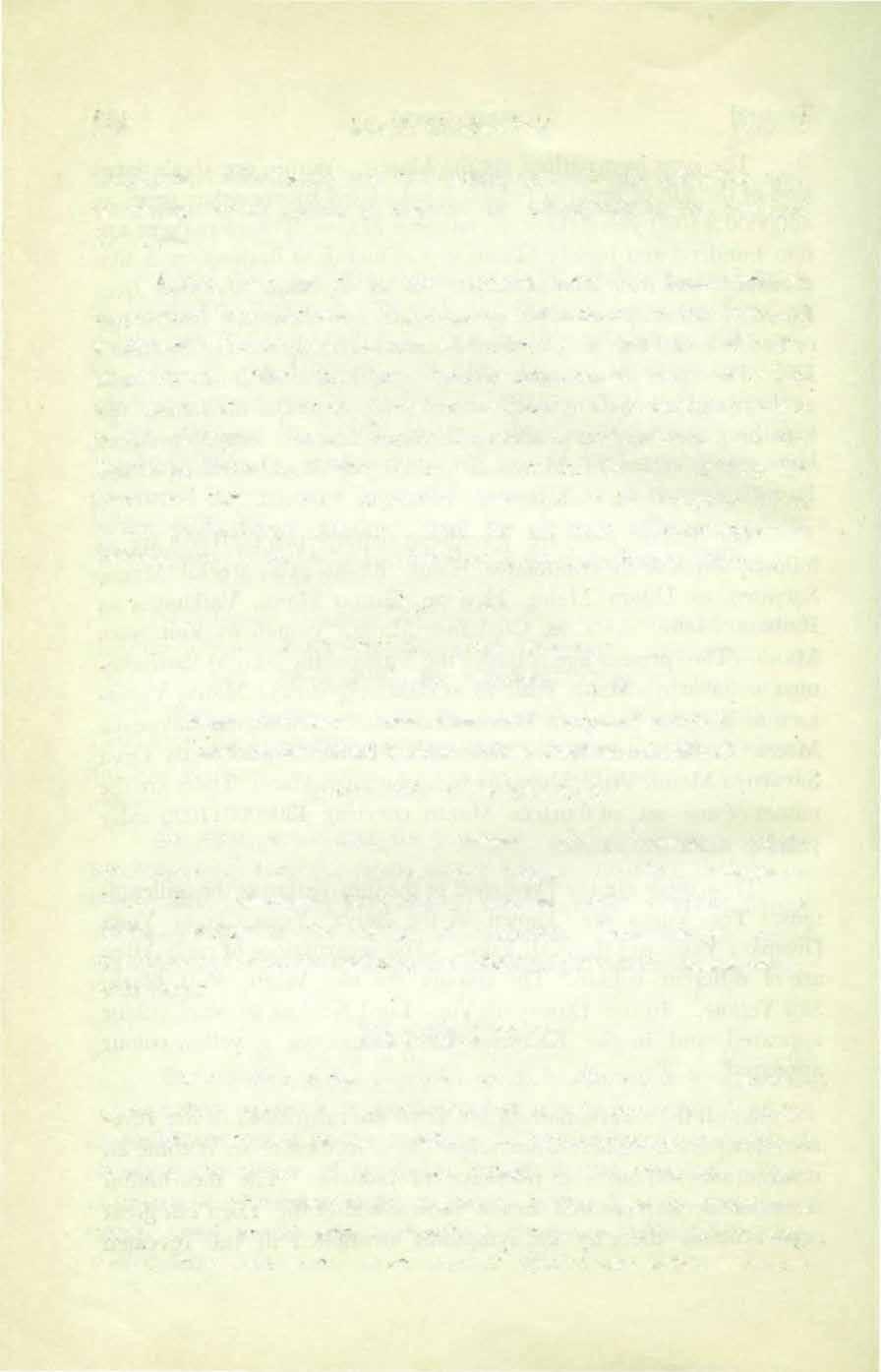
tr �cr 5f•.:p:f �cr: CFTI1T� trififrftl!fff: 1
'9''9H �}i'<f� Sf@' Sf@'-<rlflf<Nfug�p:r_ II


Saeva prathamam devah koumaram sargam ashrita!z
Chachara duscharam brahma brahma charyamakhanditam.
ENGLISH SYNONYMS
Sa-that, e11a -certainly, pratlzamam -first, koumaram-under the names of Kumaras (unmarried) sargam-creation, ashritam-under the, chachara--performed, duscham--very difficult to do bmhma-being in the ord1or of Br;:hman, bralzmacharya under disciplinary action for reali"ing the Absolute (brahman) aklzanditamunbroken.
TRANSLATION
The creation of the material world is effected, it is mantained and then again it is annihilated at certain interval. So there are different names of tnc creations in terms ofparticular type of Brahma the father of the living beings in the creation. These kumaras as aLovcrnentioned appeared in the koumara creation of the material world a11d to teach us the process of Brahman realisation, they underweLt a sene type of disciplinary action asbache-
164 SRIMAD BHAGWATAM [Ch. 3
lors. These kumaras are empowered incarnations. And before executing the severe type of disciplinary actions all ofthem became qulified Brahmins. This example suggests that one must aquire first the qualifications of the Brahmin not simply by birth but also in quality and then one may undergo the process ofBrahma realisation.
TEXT NO. 7


flra-r<t g +rcrr<rl�<r "{trra-�lfa-t li€?:1� , �f�IS<F1;GT�D" <r�qr: �m Gf'I;: II
Dwitiyam tu bhavaya asya rasatalam gatam mahim
Urdharisyann upadatta yajneshah shoukaram vapuh.
ENGLISH SYNONYMS
Dwitiyam-the second, tu-but, bhavaya -for welfare, asyaofthis earth, rasatalam -the most downwards, gatam-having gone, mahim-the earth, urdharisyan-lifting up, upadatta -established, yajnesha -the proprietoror the supreme enjoyer, shoukaram-Hoggish, vapuh--incarnation.
TRANSLATION
The Supreme enjoyer of all sacrifices accepted the Hoggish incarnation as the second in the list and for the welfare ofthe earth He uplifted it from the downwards-most part of the universe.
PURPORl
The indication is that for each and every incarnation of the Personality of Godhead the particular part offunction executed is also mentioned. There cannot be any incarnation without any particularpart offunction and such functions are always extraordinary which are impossible to be done by any living being. The incarnation ofHog was to take out the earth out of the pluto's region full offilthy matter. To pick up something from the filthy placeis done bythe hog and the all powerfull Personality of Godhead played the wonder to the Asuras who hid the earth in such filthy place. There is nothing impossible for Him and although the Personality of Godhead played the part ofa hog, still by the devotees He is worshipped staying always in transcendence.
Text 7] FIRST CANTO 165
SRIMAD BHAGWATAM
TEXT N0.8
cr�ft<rl[fqtrq ct �crftfi;'Cf�qi;'lf tr: , �F;;f trrc<ra"�fif!Sc ;f!Scp+�r 'fl4-UJt <fa': 11
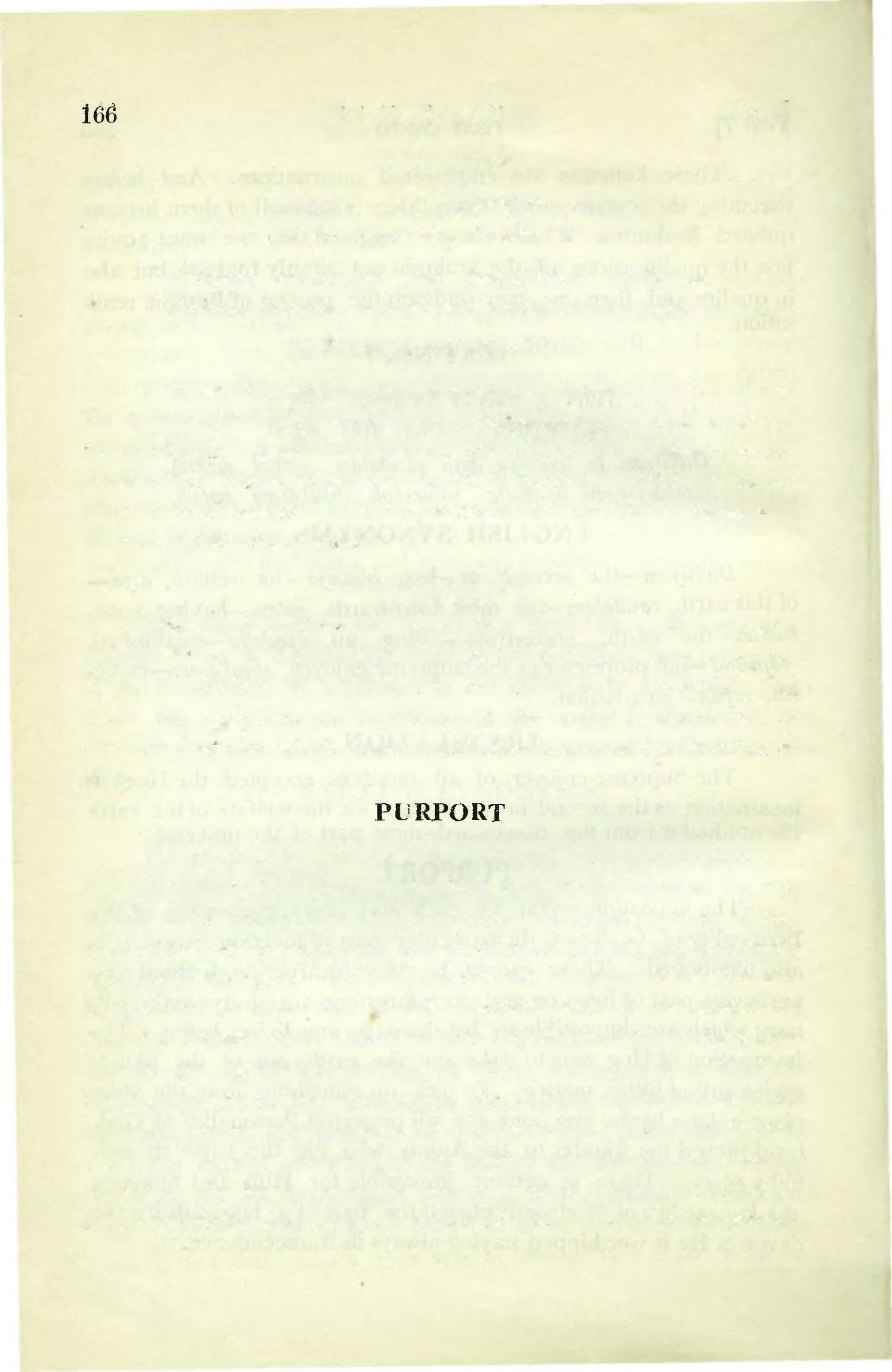
Tritiyam rishimrgam bai devarshitwam upet)'a sa Tantram satwatam achasta naiskarmam karmanamjatah
ENGLISH SYNONYMS
Tritiyam-the third one, rishisargam-tne millennium of the Rishi, bai-certainly, devarshitwam-incarnation ofthe R!shi amongst the demigods, uperya-having been got up, sa-he, tantram-:::--exposition ofthe Vedas, satwatam-which is specially meant for devotional service, achasta-collected, naiskarmam-nonfi'utive, karmanamofwork, Jalah-from which.
TRANSI_;ATJON
The third empv-wered incanation in the Form ofDevarashi Narada vVho is a great sage amongst the demigods, was accepted by the Personality of Godhead in the millennium of Rishi. He made the collection of exposition of the vedas in the matter of devotional service vv-hich causes nonfruitive action onthe activitiesof man.
The great Rishi Narada vVho is an empoweredincarnation of the Personality of Godhead propagates all over theuniverse in the matter ofdevotional service ofthe Lord. All great devotees ofthe Lord all over the universe and in different planets and species of life are His disciples. Sirila Vyasadeva the compiler ofthe Srimad Bhagwatam is also one of His disciples. He is the author of Narada Pancharatra which is the exposition ofthe vedas particularly fi>r devotional service of the Lord. This Narada Pancharstra trains the Karmis or the fruitive workers to achieve liberation from the bondage of fruitive work. The conditioned souls are mostly atttracted by the fruitive work because they want to enjoy life by the sweat oftheir own brow. The whole universe is full offruitive workers in all species of life. The fruitive works
166
[Ch. 3
include all kinds ofeconomic development plans. But the law of nature provides that every action has its resultant reaction and the performer of the work is bound up by such reactions good or bad. The reaction of good work is comparatively material prosperity, whereas the reaction of bad work is comparatively material distress. But material conditions either in so called happiness or in so called distress, all are mt>ant factually for distresses only at the ultimate issue. Foolish materialist has no information how to obtain eternal happiness in unconditional state. Sri Narada Panchratra gives treatment to these foolish fruitive workers for realising the realityofhappiness. He gives direction to the diseased men ofthe world how one's present engagement can lead one tothe path ofspirituat emancipation. The physician gives direction to the patient to take treated milk in the form of curd for his sufferings from indigestion due to his taking another milkpreparation. So the cause ofthe disease and the remedy ofthe disease may be the same thing but it must be treated by the expertphysician like Narada to kill the material disease. The Bhagwat Geeta also gives the same solution for serving the Lord by the fruits of one's labour. That will lead one to the path ofNaiskarma or liberation.
TEXT
2:� '1{q<fi;;;fT� "'"HI�Tll"OJT'JQT
�cCffS�'iTWq){fcriJCti<:�F'f"{crq-: II
Turye dharmakalasarge
Blzutwa atmopaslzamam
.Narayanou rislzi upetam akorat duscharam tapalz.
ENGLISH SYNONYMS
Turye-inthefourthofthe line, Dlzarmakala-wifeofDharmraj, Sarge-being born of, JVaranarayanou-of the name ofNara and Narayan, Rislzi- sages, Blzutwa-becoming, Atmopashamamcontrolling the senses, Upetam -for achievement of, Akarotundertook? Du,sclzaram-very strenuous, Tapah-penance,

Text 9] FIRST CANTO 167
NO. 9
TRANSLATION
In the fourth incarnation, He (the Lord) became the twin sons ofthe wife ofKing Dharma ofthe Names Nara and Narayan. And so becoming He undertook examplary severe type ofpenances for controlling the senses.
PURPORT
As it was advised by King Rishava to His sons, Tapasya or voluntary acceptane of penances for realisation of the Transcendence is the only duty ofthe human being; it was so done by the Lord Himselfin an examplary manner to teach us. The Lord is verykind upon the forgetful souls. He, therefore, comes Himself leaves behind Him necessary instructions for them and also sends His gcod sons as representative to call all the conditioned souls Back to Gcdhead. Recently within the memoryof everyone Lord Chaitanya also appeared for the same purpose to show special favour to fallen souls ofthis age ofiron industry. The incarnation of Narayana is worshipped-still at Badrinarayana on the range ofHimalyas.
TEXT NO. IO
l:f:S:"if+r: Cfif�) <rr+r fu;a�?IT: 'fiT�fcr�o'!; 1 S!"fCfT'ifl��� ��q d�CflJT+rforfi'f�lil{ II


Panchamah kapilo nama sidheshah kalaviphutam

Provacha as!mrqya samkhyam tatwagmma vzmrnqyam
ENGLISH SYNONYJ.\tlS
Panchmah--the fifth one, Kapilo-kapila, JVama-of the name, Siddhesha-the foremost amongst the perfects. Kala-time, Viplutam -lost, Provacha-said, Asuraye-unto the Brahmin of the name Asuri, Samkhyam-metaphysics, Tatwagramam-the sumtotal ofcreati�e elements, Vinirnayam-exposition.
TRANSLATION
The fifth incarnation advented Himselfby the name of Lord Kapila who is the foremost amongs the perfect beings. He made
168
3
SRIMAD BHAGWATAM [Ch.
an exposition of the creative elements and metaphysics before Asuriya Brahmin ofthe name, the system being lost in course of time.
PURPORT
The sumtotal ofthe creative elements are twenty four in aU. Earth and every one ofthem are explicitely explained in the system of SamkhyaPhilosophy. The Samkhya Philosophy is generally called the metaphysics by the European scholars. The aeteological meaning ofSamkhya is what explains very lucidly by analysis of the material elements. This was donefor the first time by Lord Kapila who is said herein as the fifth in the line ofincarnations.
TEXTNO. ll
�� aN��ZKai' em: �rs.n:rlflll 1 c. ._ arritf!ff'P�Fr�Jfcr-.:zr a;f'ifCfJ<! 1'

Sastham atrer apatyatwam britah prapto anasuaya
Anwikhikim alarkaye prahradil!Ja uchivan
ENGLISH SYNONYMS
Sastham-the sixth one, Atrer-of Atri, Aparyatwam-sonhood, Britah-being prayed for, Prapto-obtained, Anasuya-by Anasuya, Anwikshikim- onthesubjectoftranscendence,-Alarkqya-untoAlarka, Prahradivya-unto l?rahlad etc, Uchivan -spoke.
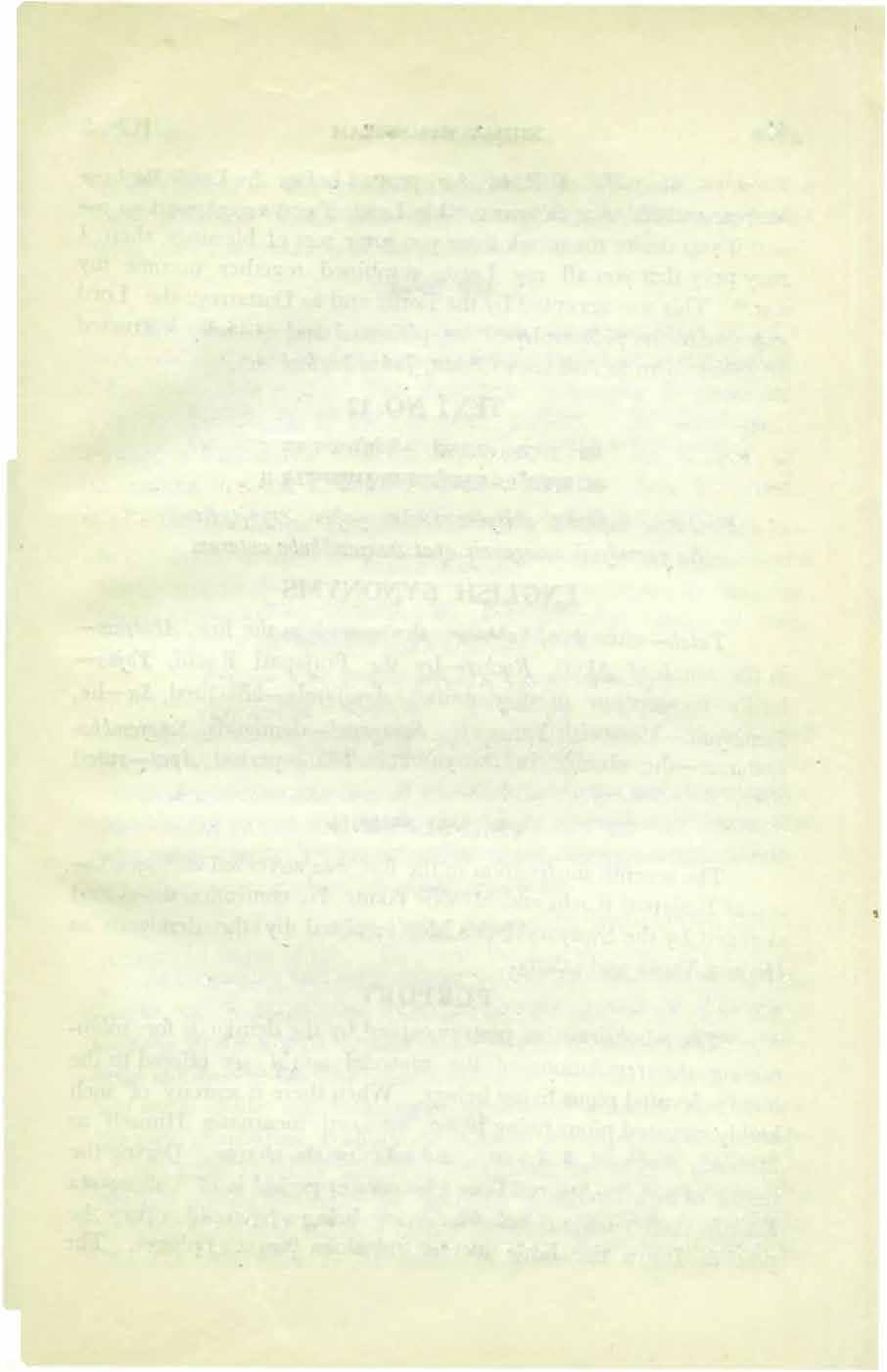
TRANSLATION
As it was prayed for by Anusuya, the sixth incarnation of the Purusha was the son of the sage Atri, in the womb of Anusuya. He spoke on the subject oftranscendence to Alarka, Prahlad and others (Jadu, Hai hai etc.)
PURPORT
TheLord incarnated Himselfas the son of Rishi Atri and Anasuya. The History ofthe birth ofDatyatreya asan incarnation ofthe Lordis mentioned in the Brahmanda Puranam in connection with the story of the devoted wife. It is said there that
; ·rext il] FIRST CANTO i69
Anusuya the wife of Rishi Atri prayed before theLords Brahma Vishnu and Shiva asfollows : "My Lords ifyou are pleased on me and ifyou desire me to ask from you some sort of blessings then I may pray tl1at you all my Lords combined together become my son." This was accepted by the Lords and as Dattatreya the Lord expounded the philosophy ofthe spirit soul and specially instructed all about them to Alarka, Prahlad,Jadu, Haihai etc.
TEXT N0. 12
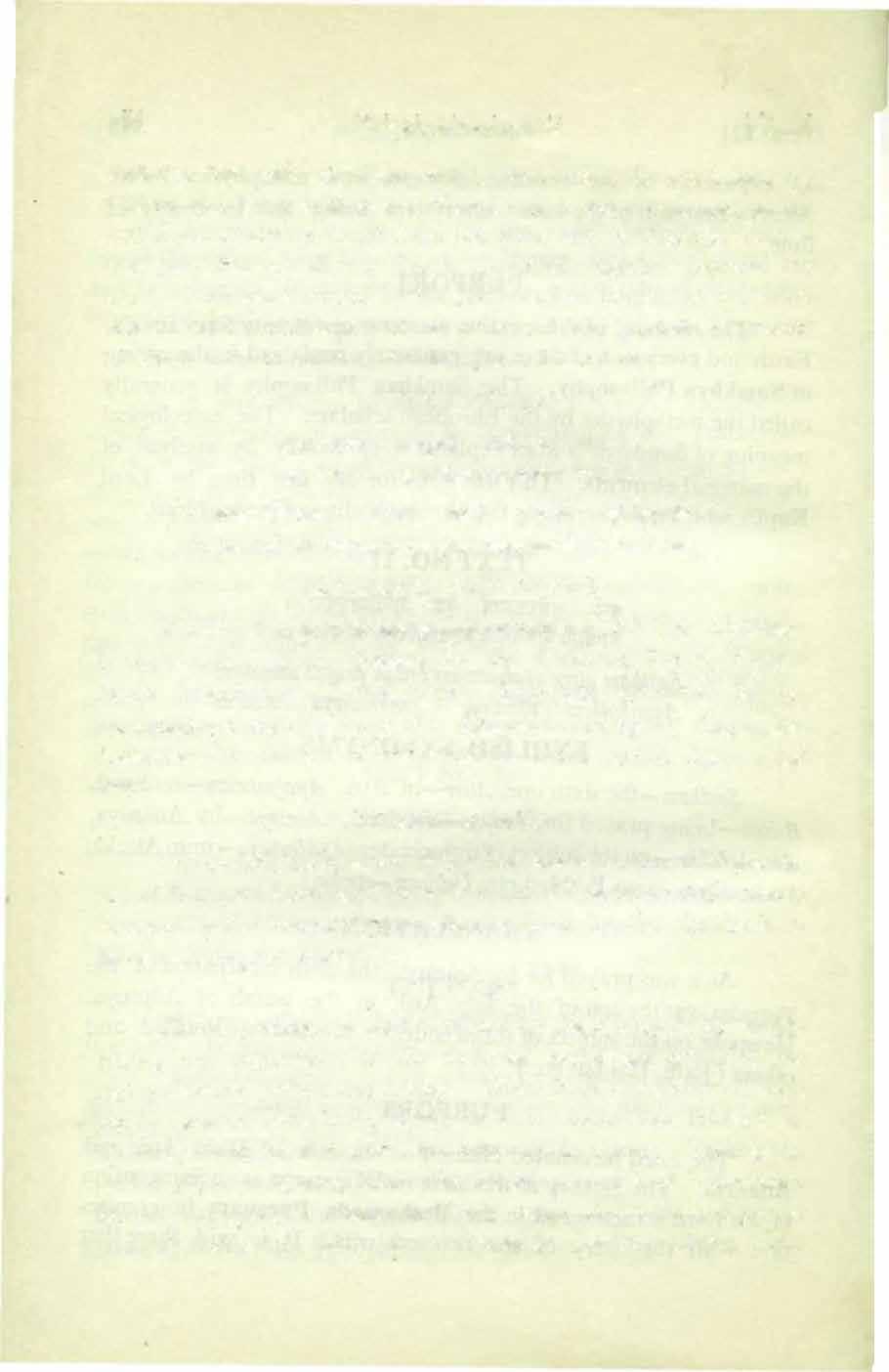
ffif: ij"C('fif �Ffi�lfT ����)St:ll\;J"Jlf('f I <\ u ll'Tifl�:f': �w�wm.:crrzp=-rcrF('f�J( 11
Tata!t saptama akutyam rueher yajna avyajayata
Sayamadyaih suraganair apat swayambhuba antaram
ENGLISH SYNONYMS
Tata!t-after that, Saptama- theseventh in the line, Akutpaminthe womb of Akuti, Rucher-by the Prajapati Ruchi, rajnalord's incarnation of the name, Avyajayata-advented, Sa-he, Yamaqyaih- alongwith Yama etc. Suraganai-demigods, Swayambhubantaram-the change of Svvaymbhuba Manu period, Apat-ru1ed over.
TRANSLATION
Theseventh incarnation in the line was advented as Yajna the son ofPrajapati Ruchi and his wife Akuti. He controlled theperiod changed by the SwayambLuba Manu assisted by the demigods as His son Yama.and others.
PURPORT
The administrative posts occupied by the demigods for maintaining the regulations of the material world are offered to the highly elevated pious living beings. \Vhen there is scarcity of such highly elevated pious living being, the Lord incarnates Himself as Brahma, Prajapati, Indra etc. and takes up the charge. During the period ofSwayambhuva Manu (the present period is of Vaivaswata Manu) there was no suitable living being who could occupy the post of Indra the King in the Indraloka (heaven) planet. The
170 SRIMAD BHAGWATAM [Ch. 3
Lord Himselfat that time became the Indra and assisted by His own sons like Yama and other demigods the Lord Yanjna ruled over the administration ofthe universal affairs.
TEXT NO. I3
�rsei't i't��ol1i' 2,; rrr�ii!'Rr ���11: 1
G:�hr'{ crcif �·h:rurr �crTl5fifi1lRii'Cfl=J: 11
Astame merudel!)lam tu naver Jalah urukramah
Darshayan vartma dhiranam sarva ashrama namaskritam

ENGLISH SYNONYMS.
Astame-in the eighth of the incarnations, merude1}Yam tuin the womb ofMerudevi the wife of, naver-king Navi,jatah-took birth, urukramah-the ·au powerful Lord, darshqyan-by showing, vartma-the way, dhiranam-of the perfect beings, sarva-all, ashrama-orders oflife, namaskritam-honoured by.
TRANSLATION
In the eighth ofthe line of incarnations the Lord advented Himselfas the (king Rishava) son of king Navi and his wife ]\ferudevi. In this incarnation the Lord showed the path ofperfection which is followed by those who have fully controlled the senses and who are honoured by all the orders oflife.
PURPORT
Society ofthe human being is naturally divided into eight by orders and �tatus oflife. They are the four divisions ofoccupation and four division of cultural advancement. The intelligent class ofmen, the administrative class ofmen, the productive class ofmen and the labourer class ofmen are the four divisions ofoccupation. And the student life, the householder's life, retired life and renounced order oflife are four status ofcultural advancement towards the path ofspiritual realisation. Out of these the renounced order oflife or the order of Sanyas is considered the highest ofall and a Sanyasi is constitutionally the Spiritual ]\faster for all the order and division of social status. In the Sanyas-order also there are four stages of upliftment in the matter of perfection. Such stages are
Text 13] FIRST CANTO 171
called the Kutichak, Vahudak, Paribrajakacharya, and the Paramhansa. The paramhansa stage of life is the highest stage of perfection. This order of life is respected by all others. Maharaj Rishava the son ofKingNavi and Merudevi,wasanincarnation ofthe Lord and He instructed His sons to follow the path of perfection by Tapasya which sanctifies one's existence and thus one attains to the stage of spiritual happiness which is eternal and ever increasing. Every living being is searching after happiness but none ofthem know it where eternal and unlimited happiness is obtainable. Foolish men seek after material sense pleasures as substitute for real happiness butsuch foolish men forget that temporary so-called happiness derived out of sense pleasures, is also enjoyed by the dogs and hogs. No animal, birds or beast is bereft ofthis sense pleasure. In every species oflife except the human from oflife, such happiness ofsense pleasure is immensely obtainable. The human form oflife is there fore,not meant for such cheap happiness. The human life ismeant for attaining eternal and unlimited happiness by spiritualrealisation. This spiritual realisation is obtained by Tapasya or under going voluntarily the path of penance and abstinence from material pleasures. Those who have been trained up for abstinence in the material pleasures, are called the Dheera or the men undisturbed byincitement ofthe senses. These Dheeras only can accept the or ders ofSanyas and they can only gradually rise up to the status ofthe Paramhansa which post isadored by all members of the society. King Rishava propagated for this mission and at last stage He became completely alooffrom the material bodily needs which is a rare stage not to be imitated by foolishmen but that is to be worshipped by all stages of social orders.


172 SRIMAD BHAGWATAM [Ch. 3
14 "'f[fqf<Tllifq�ir �� i!<lri «nfucl Cf1: , ��ij'J1J)q-erlfcrsrr�rrrzi � �q: 11 Rishivir yachito bheje navabam parthibam bapuh Dugdha emamoshadhir viprah tena qyam sa 'tlshattamah.
TEXT NO.
Rishivir-by the sages,yaclzito-beingprayed for, blzeje-accepted, navabam-the nineth one, partlzibam-the ruler ofthe earth, bapuh-body, dugdha-milking, emam-all these, oshadlzi-product ofthe earth, vipra-oh the Brahmins, lena-by him, qyam-this, uslzattamalz-beautifully attractive.
TRANSLATION
Oh the Brahmins, the nineth incarnation of the Lord was advented by Him being prayed for by the sages. He accepted the body ofking (Prithu) who cultivated the land by various produce and for that reason the e.:rth is so beautiful and attractive.
PURPORT
Before the advent ofKing Prithu, there was great havoc of maladministration due to the viceous life ofthe previous king or the father ofMaharaj Prithu. The inteligent class of men ofthe society (namely the sages and the Brahmins) not only prayed the Lord to come down but also they dethroned the previous king. It is the duty of the king to be pious and thus looking after the all round welfare ofthe citizens. Whenever there is some negligence on the part of the King in the matter of discharging the King's duty, the intelligent class of men must dethrone such worthless king. The intelligent class of men however do not occupy the royal throne because they have much more important duty for welfare of the public. Such intelligent class of men instead of occuping the royal throne they prayed for the incarnation of the Lord and the Lord came as Maharaj Prithu. Real intelligent class ofmen or qualified Brahmins never aspire after political post. Maharaj Prithu excavated many produce from the earth and thus not only the citizens became happy to have such good king but also the complete sight ofthe earth became beautiful and attractive.
TEXT NO. 15 �q


Text 15] FIRST CANTO 173
ENGLISH SYNONYMS
� \if�� ll'T��lf "'T&J,l;flm���(�� I ;;JOlfT�)tlf lf�iflltTit''lTiCWcrff �I( II
Rupam .sajagrihe matsyam chakshuso 'dadhisamplabe
Nabyaropya mahim myam apad baibaswatam manum
ENGLISH SYNONYMS
Rupam -form, Sa-he, Jagrihe-accepted, Chakshuso-of the name, Odhadhi- water, Samplabe-inundation, .Nabi-on the boat, Aropya keeping on, Mahim-the earth, Mf9Jam-drowned in, Apad protected, Vaivaswatam-of the name, Manum -Manu the father ofman.

TRANSLATION
vVhen there was complete inundation after the period of Chakusha Manu and the whole world was within deep water, the Lord accepted the form of Fish and protected the Vaivaswata Manu keeping him up on a boat.
PURPORT
Accordingto Sripad Sridhar Swami the original commentator on the Bhagwat there is not always a devastation after the change ofevery Manu. And yet this inundation after the period of Chakshusa Manu, took place inorder to show some wonders to Satyabrata. But SriJiva Goswamihasgiven definite proofs from such authoritative scriptures like Vishnudharmottar, Markendeya Puran, Haribansa etc. that there is always a devastation after the end ofeach and every Manu. Srila Viswanath Chakarbarty has also supported SrilaJiva Goswc:mi and he (Sri Chakarbarty) has also quoted from Blzagwatamr�tam about this inudation after each Manu. Apart fromthis the Lord, inorder to show special favour to Satyabrata a devotee ofthe Lord: in this particular period, incarted Himself.
174
SRIMAD BHAGWATAM
[Ch. 3
TEXT NO. 16 �<:l��TUJT�Gf� ��ilaT �;:��T'i"0!1{ 1 <n::r' Cfilio�ifur 'llSo tJ;'fi'R� f<r'J:: 11 Sura asuranam udadhim mathnatam mandarachalam Dadhre kamatha rupena pristha ekadashe vibhuh.
ENGLISH SYNONYMS
Sura-the theist, Asuranam- ofthe atheists, Udadhim -in the Ocean, Mathnatam-churning, Mandarachalam -the hill of the name, Dadhre-sustained, Kamatha-tortoise, Rupen-in the form of, Pristha -shell, Ekadashe- eleventh in the line, Vibhuh -the Great.
TRANSLATION.
The eleventh incarnation of the Lord tcok the form ofthe Tortoise and gave His shellas the resting place ofthe Mandarachalam Hill used as the chuming rod while the theist and the atheist ofthe universe were all engaged in the task.
PURPORT
Sometimes both the atheist and the theist were engaged in producing nectarine from the sea so that all of them could become deathless by drinking the same. At that time the Mandarachalam Hill was used as the churning rod and the shell ofLord Tortoise incarnation ofGodhead, became the resting place of the hill in the sea water.
TEXT NO. 17

'CfTi<frcR iHG:� ;;rli't��licr =q 1
�lfTlilJc�TrJi'liFJJlfi[;:� Jll�li'! ff"llJT II
Dhanwantaram dwadas/zamam trqyodasham eva cha
Apayayat suran arryan mohinya mohqyan stria.
ENGLISH SYNONYMS.
Dhanwantaram-of the name incarnation of Godhead, Dwadashamum-the twelth in the line, Trayodasham-the thirteenth in the line, Eva- certainly, Cha-and, Apayqyat-gave for drinking, Suran-the demigods, Arryan--others, Afohinya -by charming beauty, Mohqyan-alluring, Stria-in the form ofa woman.
TRANSLATION
In the twelth incarnation, the Lord appeared as Dhanwantari and in thirteenth in the line He allured the atheist by charming
Text 17] FIRST CANTO 175
;
beauty ofa woman and gave for drinking the nectarineto thedemigods.
TEXT NO. l8
:q��� ;:n�f�� fG�"t;j{clf;:s::JJ;f"'"Cii( 1
�<m: <fi�;ij"HT<f'-<fif Cfi����T II
Chaturdasham narasigam vibhraddaityendramU'ljitam dadara karaJairurau erakam katakridyatha
ENGLISH SYNONYMS.
Chaturdasham-the fourteenth in the line, Narasingham-the incarnation ofthe Lord halfman and half lion, Vibhrad-advented, Daityendram-the king ofthe atheist, Urjitam -strongly built, Dadara -bifarcated, Karajai-by the nails, Urou-on the lap, Erakamcanes, Katakrid-carpenter, yatha -justlike.
TRANSLATION
Inthe fourteenth incarnation, the Lord appeard as Narasingh and bifurcated the strong body of the athiest (Hirnayakashipu) by the nailsjust like the carpenter pierces the cane.

TEXT NO 19

'15=tf�� crJlf<r� �terrirr�e<rt �: 1 l:fq?fll�T'i:flffif: �t�Tfq(�Ro"ffcfiS�I:flf II ... ...
Punchadasham vamanakam kritwa agadaddhwaram
Baleh padatrayam yachamana pratyaditsu stripistapah.
ENGLISH SYNONYMS
Panchadasham-the fifteenth in the line, Vamanakam-the DwarfBrahmin, Kritwa-by assumption of, Agad-went, Adhwarm arena of sacrifice, Valeh-ofthe king Bali, Padatrayam- three steps only, Yachmuna-begging, Pratyadistsu-willing at heart for returning, Stripistapah-The kingdom of the three planetary system.
TRANSLATION
In the fifteenth incarnation the Lord assumed the form ofa
176 SRIMAD BliAGWATAM [Ch. 3
Dwarf Brahmin (Vamana) and reached the arena of sacrifice arranged by Maharaj Bali. Although at heart He was willing to get back the kingdom of the three planetary system He simply asked for donation of three steps ofland.
PURPORT
The AlmightyGod willing can bestow upon any one the kingdom of the universe fi·om a very small beginning and similary He can take away the kingdom of the universe on the plea of begging a small peice ofland.
TEXT NO. 20

arorcrr� q)s-qrTr q�lf� �...�) 1qr� 1 f?f:uccrwcor: �fqcr) f;:r:�?fTiicfi�);:'f�1i! 11
Avatare sodasame pasyan brahadruha niripan trisaptakritwah Kupitoh nih kshatriyamakarot makim
ENGLISH SYNONYMS
Avatare-in the incarnation of the Lord, Sodsame-sixteenth, Pasyan-seeing, Brahmadruha-disobidient to the orders ofthe Brahmins, .Nripan-The kingly order, Trisapta-thrice seventimes, Kritwa-had done, Kupito-being enraged. Nih-negation, Kshatriyam-the administrative class, Akorat-did perform, Mahimthe earth.
TRANSLATION
In the sixteenth order of the incarnation of Godhead (Bhrigupati) the Lord for twenty one times made completely negation ofthe administrative-class ofmen being angry on them on account of their rebellion against the order of the Brahmins (the intelligent class ofmen).
PURPORT
The Kshatriyas or theadministrative classofmen areexpected to rule the planet by the direction of theintelligent classofmen. The Brahmins beingthe intelligent class of men they give direction
Text 20] FIRST CANTO 177
tothe rulers intcrms ofthe standard shatras or the books ofrevealed knowledge and rulers carry on the administration according to that direction. ·whenever there is disobedience on the part of the Kashatriyas or the administrativeclass on the orders of the learned and intelligent Brahmins, the administraters are removed by force from the posts and arrangementis made for better administration
TEXT NO. 21

era-: ij"tff�� Gl"To: B'Cl:!"Cf�lff q"{T�T'Uo I ' ;:c;fi �G"o�r: ���r 'icc:crr �-B")s;;;qq'l:nr: 11
Tatalz saptadaslze jatalz satyabatyam paraslzarat
Chakre vedatrolz shakha dristwa jJUnslzosalpamedltasah
ENGLISH SYNONYMS
Tata!t-thereafter, Saptadas!ze-in the seventeenth order of incarnations, Jata/z-advented, Satyabatyam -in the womb of Satyavati, Parasarat-by Parasaramuni, ChaAre-prepared, Vedotarhlt-besides the vedas, Shaklza-branches, Dristwa -by seeing, Punsa-the people in general, Alpamedasalz -leEs intelligent.
TRANSLA110N
Thereafter in the seventeenth order ofthe incarnation ofGodhead Sri Vyasadeva appeared in the womb of Satyabati by Parasara l\!Iuni and He divided the one Veda into several branches and sub-brancl1es seeing the people in general as lessintelligent.
PURPORT
Originally theVeda is one. But Srila Vyudeva divided the origi11al Veda into four namely Sam Yaju Rik Atharva and then again they were explained in different branches like the Puranas and the1\!Iahabharat. Vedic language as well as the subject matter is very dificult for ordinary men. It is understood only by the highly intelligent and self realised Brahmins. But the present age ofKali is full of less intelligent men. Even those who arc born by
178 SRIMAD BHAGWATAM [Ch. 3
a Brahmin father are, in the present age, as good as the Sudras and the v,-oman. The twice born men namely the Brahmin, Kshatriyas andtheVaishyas are expected to undergo cultural purificatory process known as Samaskaras but on account of bad influence of the present age the so-called members of the Brahmin and other high order family, are no more highly cultured. They arc called the Dhi.Jabandhu orthe friends and family members ofthetwice-born. But these Dwijabandhus are classified amongst the Sudras and the woman. Srila yayaudeva divided the Veda in various branches and sub-branches on account ofthese less intelligent class ofmen like the Dwijabandhus, �udras and the women,
TEXT NO. 22
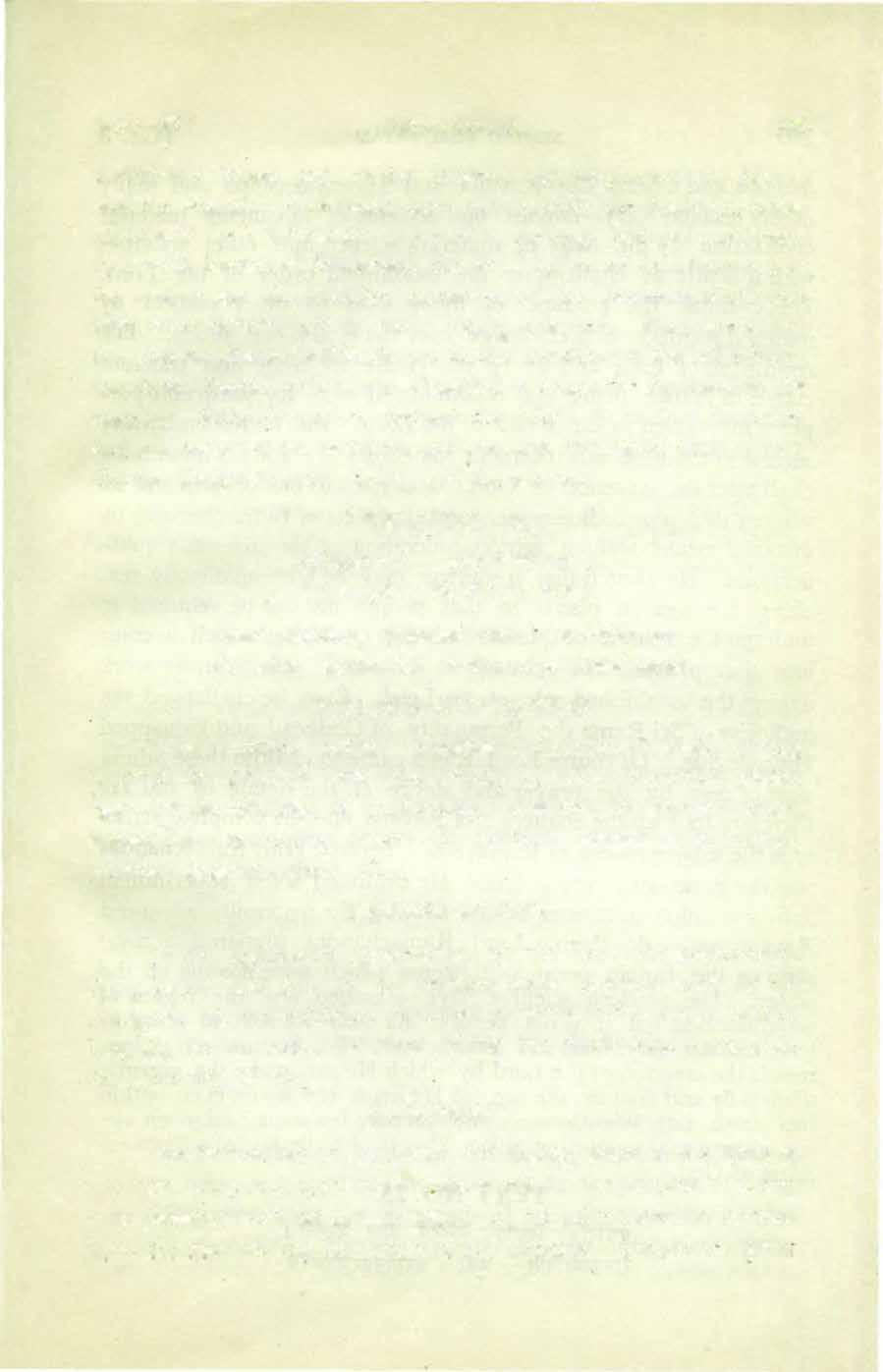
onFtcrccr�'l�: ��!flrl:ff:;:rep-rrtlfr 1 �l_!'lffill'.f�T�f;:r :q;f; CfnrTUlfQ": tn:l{ II
Nara devatwam apannnah sura karya chikirsaya
Samudra nigrahadini chakre viryani atahparah
ENGLISH SYNONYMS
Nara-human being, devatwam-divinity, apannah-having assumed the form of, sura -the demigods, karya-activities, chikir. soya -for the pmpose of performing, samudra-the Indian ocean, nigrahadini-controlling, chakre-did perform, viryani-superhuman, prowess, ataparah-there after.
TRANSLATION
In the eighteenth incarnation of the Lord, He appeared as King Rama and inorder to perform some pleasing work for the demigods, He did exhibited inhuman prowess in the acts of controlling the Indian ocean and then killing the atheist king Rava11? on the other side of sea.
PURPORT I
The Personality of Godhead Sri Rama assumed the form of a human being and appeared on the earth for the purpose ofdoing some pleasing work for the demigods or the administrative person!}.lities for maintaining the orders of the universe. Sometimes great
Text 221 FIRST CANTO 179
demons and atheist like Ravana and Hiranyakashipu and many others become very famous on account of advancing material civilization by the help of material science and other activities with a spirit of challenging the established order of the Lord. For example the attempt of flying over to other planets by material means, is a challenge over the establi:c;hed order. The conditions of each and every planet are different and different classes ofhuman beings are accomodated there for particular purposes mentioned in the codes ofthe Lord. But puffed up by tiny success in material advancement sometimes the godless materialist challenges the existence of God. Ravana was one ofthem and he wanted to deport ordinarymen to the planets ofIndra (heaven) by material means without any consideration of the necessnry qualifications. He wanted that a staircase may be built up directly reaching the heaven planet so that people my not be required to undergo the routine of pious work for qualifYing oneself to enter into that planet. He wanted to do many other similar work against the established rule of the Lord. Even he challenged the authority ofSri Rama the Personality ofGodhead and kidnapped His wife Sita. Ofcourse Lord Rama came to chastise these atheist class ofmen by the prayer and desire cf the demigobs and He therefore took up the challenge ofRavana and the complete activityis the subject matter ofRamayana. Because Lord Ramachandra was the Personality of Godhead He exhibited some superhuman activities which no human being including the materially advanced Ravana could do them. Lord Ramachandra prepared a royal road on the Indian ocean with stones which were floating on the water. The modern scientist have searched out the region of weightlessness but it is not possible for such scientist to bring in weightlessness anywhere and everywhere. But because weightlessness is the creation ofthe Lord by which He can make the gigantic planets fly and float in the air, so He made the stones even within this earth into wightlessness and prepared a stone bridge on the sea withoutany supporting pillar, That is the display of all powerfuless of God.
NO. 23.
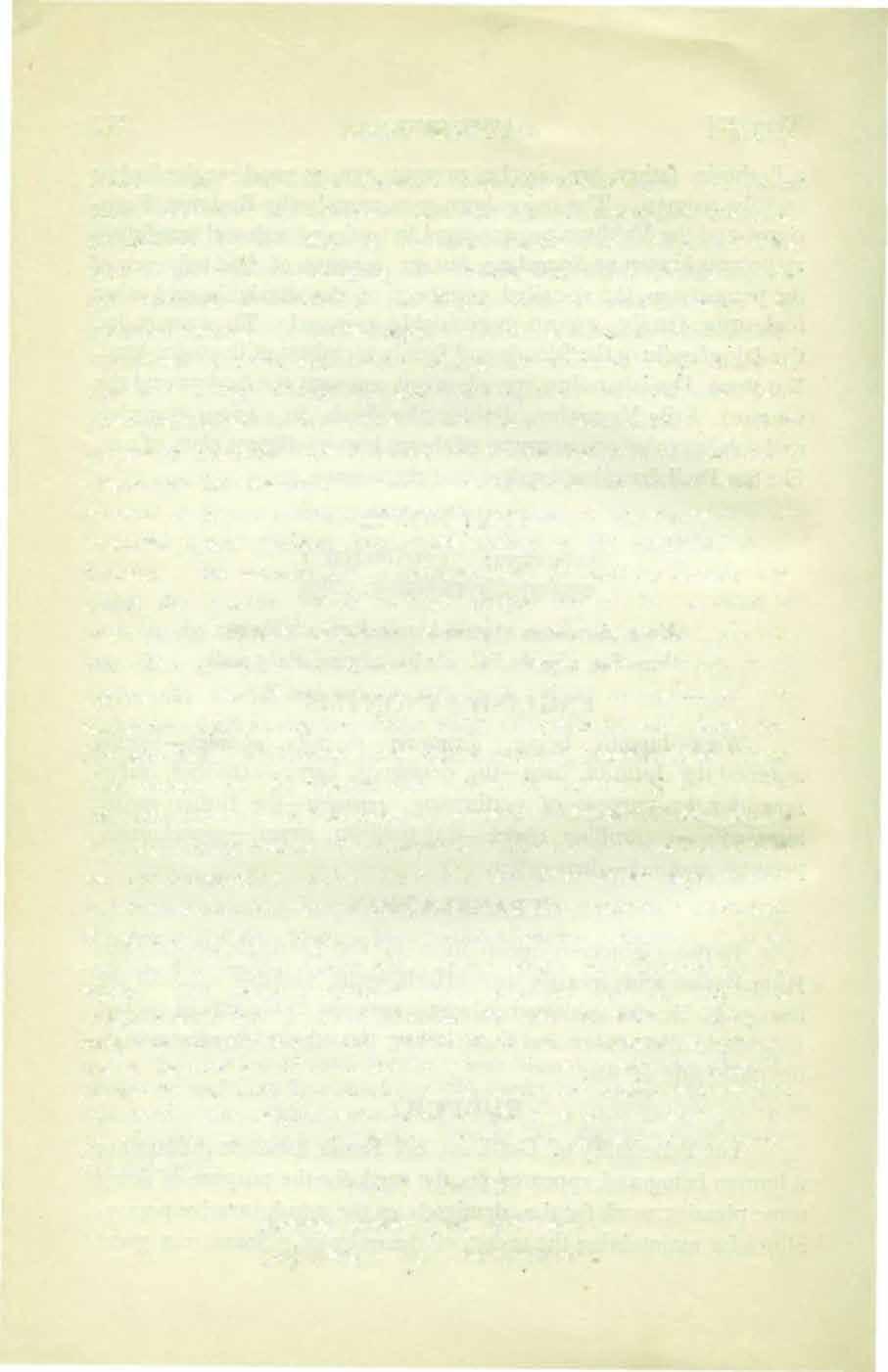
180 SRIMAD BHAGWATAM [Ch. 3
TE,XT
�Cfil'lfi:r� fq-�fcPr '!f(SliJ''t SffC� \if'W'Jr'lf I �l�1lfTf<�fa- �cr) lfl')'CfA'�<::��� II
Text 24]
FIRST CANTO
Ekonabinshe binshatime vrishnisu _ prapyajanmani
rama krishna itibhubo bhagawan aharad bharam
ENGLISH SYNONYMS
Ekonabinshe-in the nineteenth order, binshatime -inthe twentieth order also, Vrishnisu-in the Vrishni dynesty, Prapya-having obtainedJanmani-births, Rama-Valarama, Krishna -Sri Krishna, Jti-thus, Bhubo-of the world, Bhagawan -the Personality of Godhead, Alzm·ad-removed, Bharam-burdcn.
TRANSLATION
In the nineteenth and twentieth order of incarnations, the Lord advented Himselfas Lord Valarma and Lord Krishna in the family ofVrishni (orJadu dynesty) and doing so He removed the burden ofthe world.
PURPORT
The specific mention of the word Bhagwan in this text indicates that Valarama and Krishna are original Forms ofthe Lord. This will be more explained hereinafter. Lord Krishna is not incarnation ofthe Purusha as we learnt it from the beginning of this chapter. He is directly the original Personality of Godhead and Valarama is the first plenary manifestation ofthe Lord. From Valadeva the firstphalanx ofplenary expansions, Vasudeva, Samkarshan, Aniruddha, and Pradumna expand. Lord Sri Krishna is Vasudeva and Valadeva is Samkarshan also
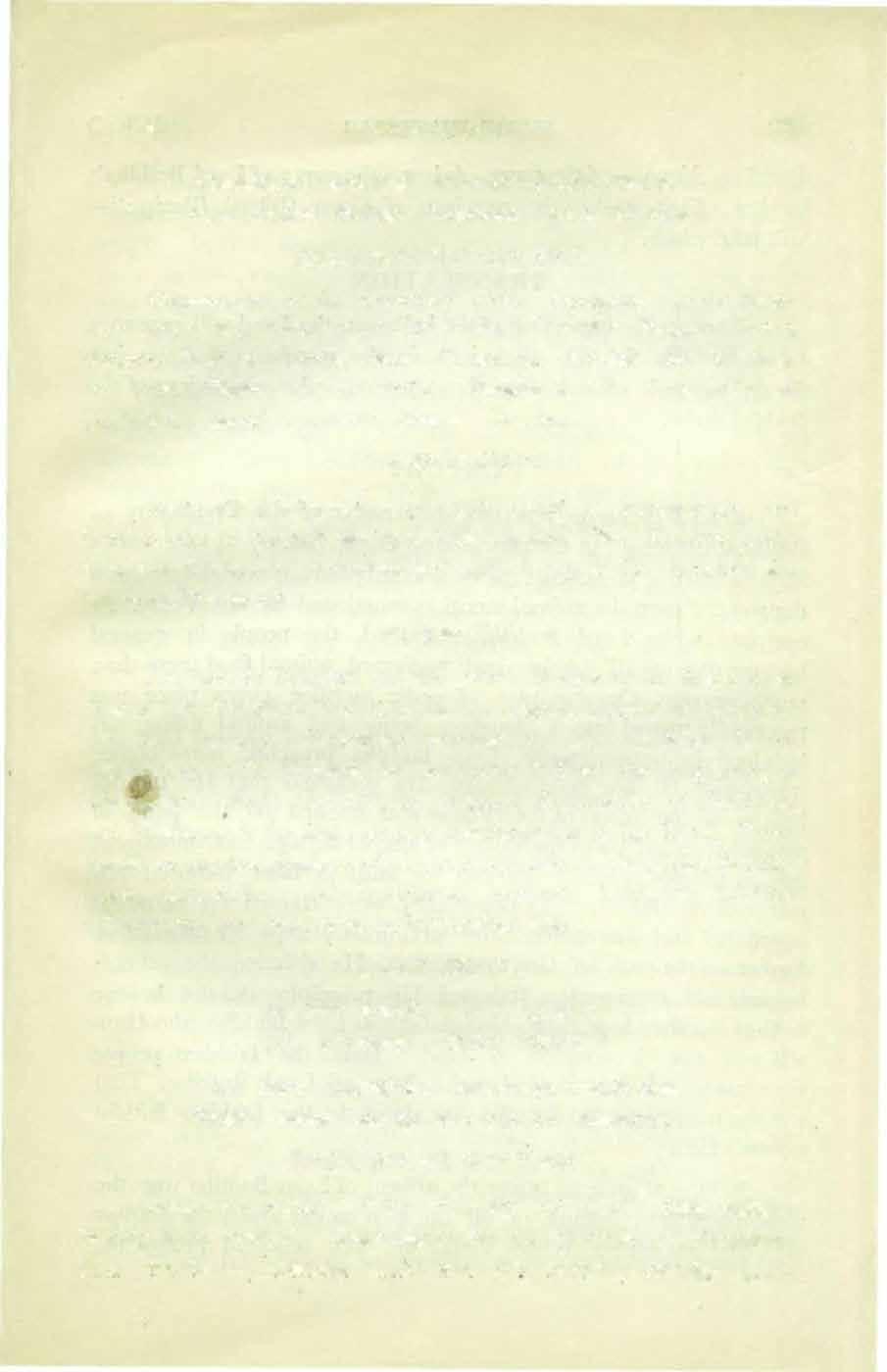
TEXT NO 24.
aCT: 'fi�T Ul=Sfi
PURPORT.
Lord 13udclha the pov,'nful iiJcarnation of the Personality of Godhead appeared in the province of Gaya (Bihar) as the son of Anjana and He preached His own conception ofnon-violence and deprecated even the animal sacrifices sanctioned in the Vedas. At one time when Lord Buddha appeared, the people in general became almost all atheists and prefened animal food more than anything else. On the plea of vedic sacrifice every place was practically turned into a slaughter house and animal killing was indulged in unrestrictedly. Lord Buddha preached non-violence takingpity on the poor animals. He preached that He did not believe in the tenets ofthe Vedas and stressed on the poi�t of psychological effects in the matter ofanimal killing. Less intelligent men ofthe age of kali, villO had no faith in God, followed His principle and for the time-being they were trained up in moral discipline <mel non-violence the preliminary steps for proceeding further on the path of God realisation. He deluded the atheists because such atheists V\ ho follovvcd His principles did not believe in God but they kt pt their absolutc faith in Lord Buddha who Himself was tl·e iuc.:trnation of God. Thus the faithless people werr made to believe in God in the form of Lord Buddha. That was the mercy of Lord Buddha that He made the faithless faithful tm-vards Him
Killing ofanimal::; before the advent ofLord Buddha was the most prominent featlJre of all the then society unclrr the shadow of Vedic sacrifices. When Vedas arc not accepted through the
182 SRIMAD BHAGWATAM [Ch. 3
authoritative desciplic chain ofsuccessom, the casual readers of the Vedas are misled by the flowery language ofthe system ofknowledge. In the Bhagwat Geeta a comment has been made on such foolish Vedic scholars. The foolish scholars ofVedic literature who do not care to receive the transcendental message through the transcendental and realised sources of disciplic succession-is sure to bebewilderedandsuch bewildered souls have been described 'as (arfcrqf�:cra-:) or the foolish scholars'. To such foolish scholars of Vedas, the ritualistic ceremonies are considered to be all in all without any deep penetration in the depth of the knowledge. ( <R�"fij'iif tr�licr �G:<r+J:) that is the verison of Bhagwat Geeta. The whole system ofthe Vedas is to lead one gradually to the path of the Supreme Lord. The whole theme of the Vedic literature is made to know the Supreme Lord, the individual soul, the cosmic situation and the relations between all these items. When the relation is known the relative function begins and as a result of such function the ultimate goal oflife or going back to Godhead takes place in the easiest manner. Unfortunately unauthorised scholars ofthe Vedas became captivated by the purificatory ceremonies only and the natural progress is checked thereby to achieve the ultimate goal.

To such bewildered persons of atheistic propensity Lord Buddha is the emblem oftheism. He therefore first of all wanted to check the habit of animal killing. The animal killers are the dangerous elements on the path of going back to Godhead. There are two types ofanimal killers. The soul is also sometimes called the animal or the living being. Therefore, both the slaughterer ofanimals as well as those vd10 have lost their identity of the soul, both are animal killer.
l\!Iaharaj Parikshit said that only the animal killer alone cannot relish the transcendental message of the Supreme Lord. Therefore if people are to be educated to the path ofGodhead they must be taught first and foremost to stop the process of animal killingbothwiseasabovemeutioned. Itispracticallynonsensir.,alforhim who sqys thatanimal killinghas nothing todowith spiritual realisation. By
Text 24] FIRST CANTO 183
this dangerous theory many so called Sanyasins (?) have sprang up by the grace of Kaliyuga, who preached animal killing under the garb ofVedas. The subject matter is already discussed above in the wayofarguments between Lord Chaitanya and the Maulana Chand Kazi Shaheb.* The purpose ofanimal sacrifice as stated in the Vedas is different from the unrestricted animal killing in the slaughterhouse. Because the Ashuras or the so called scholars of Vedic literatures would put forward the evidence of animal killing in the Vedas, Lord Buddha-superficially denied the authority ofVedas. This rejection ofVedas by Lord Buddha was adopted by Him in order to save people fromthe vice ofanimal killing as well as to save the poor animal from the slaughtering process by its big brother who clamour for universal brotherhood, peace, justice and equity. There is nojustice when there is animal killing in the slaughter house. Lord Buddha wanted to stop it completely and therefore His cult ofAhimsha was propagated notonly in India but also outside the country.
Technically Lord Buddha's philosophy is called atheistic philosophy because there is no acceptance of the Supreme Lord and because the system of philosophy denied the authority of the Vedas. But that is an act of camouflage by the Lord. He is the incarnation of Godhead. As such He is the propounder of the Vedic knowledge originally. He therefore eannot reject the Vedic philosophy. But He rejected it outwardly because the Suradbisha, or the demons who are always envious ofthe devotees of Godhead would try to put forward the evidence ofcow killingor animal killing fromthe pages oftheVedas as it is being done by the modernjsed Sanyasins (?)-Lord Buddha had to reject the authority of the Vedas altogether. This is simply technical and had it not been so He would not have been so accepted as the incarnation of Godhead. Neither He would have been worshipped in the transcendental songs ofPoet Jayadeva who is a Vaishnava Acharya. He preached the preliminary principles of the Vedas in a manner suitable for the time being and so also did Acharya Sankaracharya to establish the *Ref.Introduction.
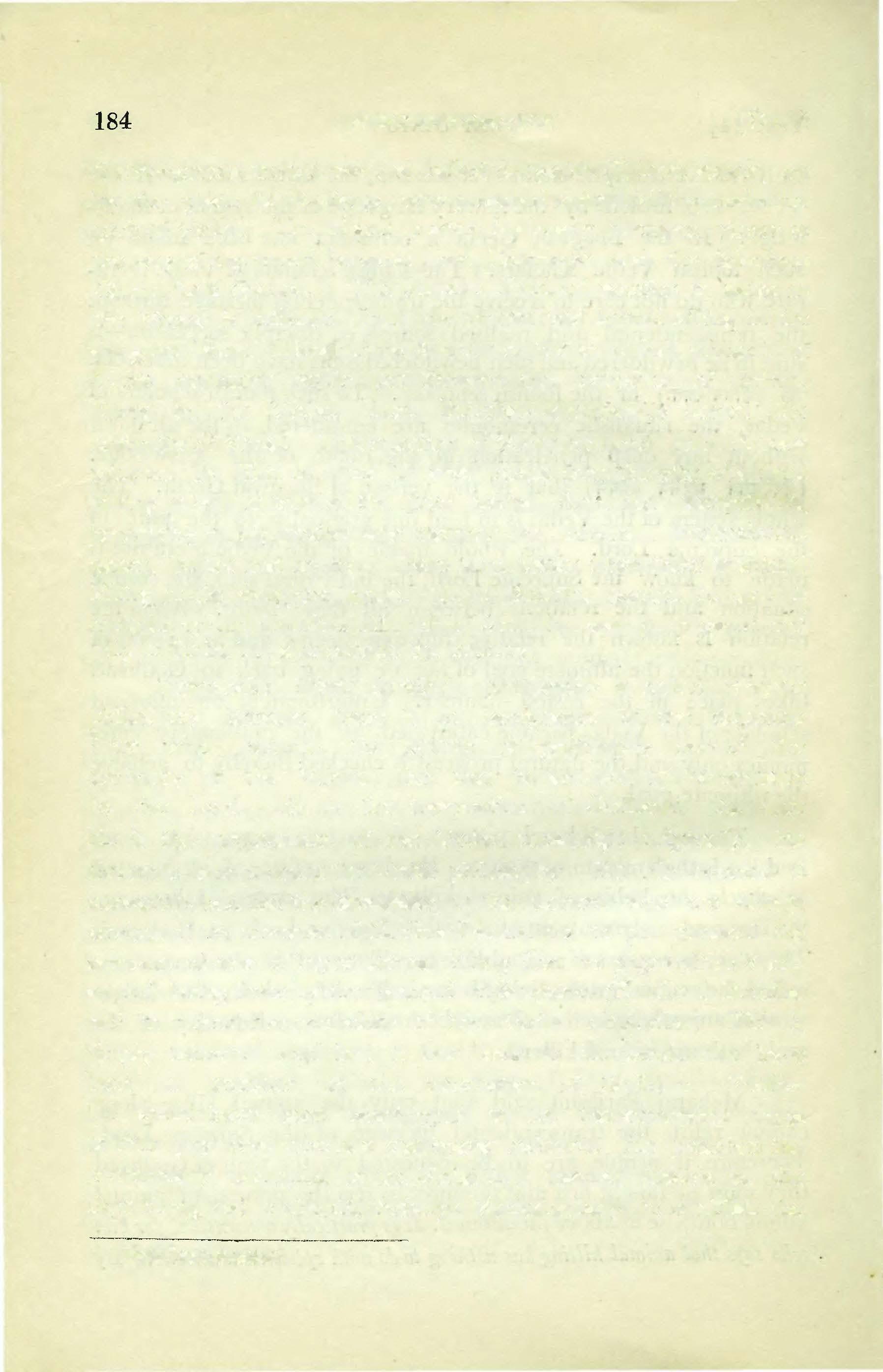
184 SRIMAD BHAGWATAM [Ch. 3
authority of the Vedas. Therefore Lord Buddha and Acharya Shankara both ofthempavedthe path ofTheism and the Vaishnava Acharya specifically Lord Sri Chaitanya Mahaprabhu led the people 011 thepath rightlytov;ards a realisationofBack to Godhead.
\\'e are glad that people are taking interest in the non-violent movement ofLord Buddha. But will they take the matter very seriously ami close the animal slaughter house altogether ? If not there is no meaning in such caricature.
Shrimad Bhagwatam was composedjustpriorto the beginning ofthe age ofKali (about five thousands ofyears before) and Lord Buddha appeared about 2600 years before. Therefore in the Shrimad Bhagwatam Lord Buddha's time is foretold only and that isthe authority ofthisclean scripture. There are many such foretelling and they are taking place one after another. All these foretellings indicate the positive standing of Shrimad Bhagawatam without any traceof mistake, illusion,cheating andimperfectness which are the four principles of flaws for all conditioned souls. The liberated souls are above these flaws aud therefore they can see and foretell things which are to take place at prolonged future dates·
TEXT NO. 25
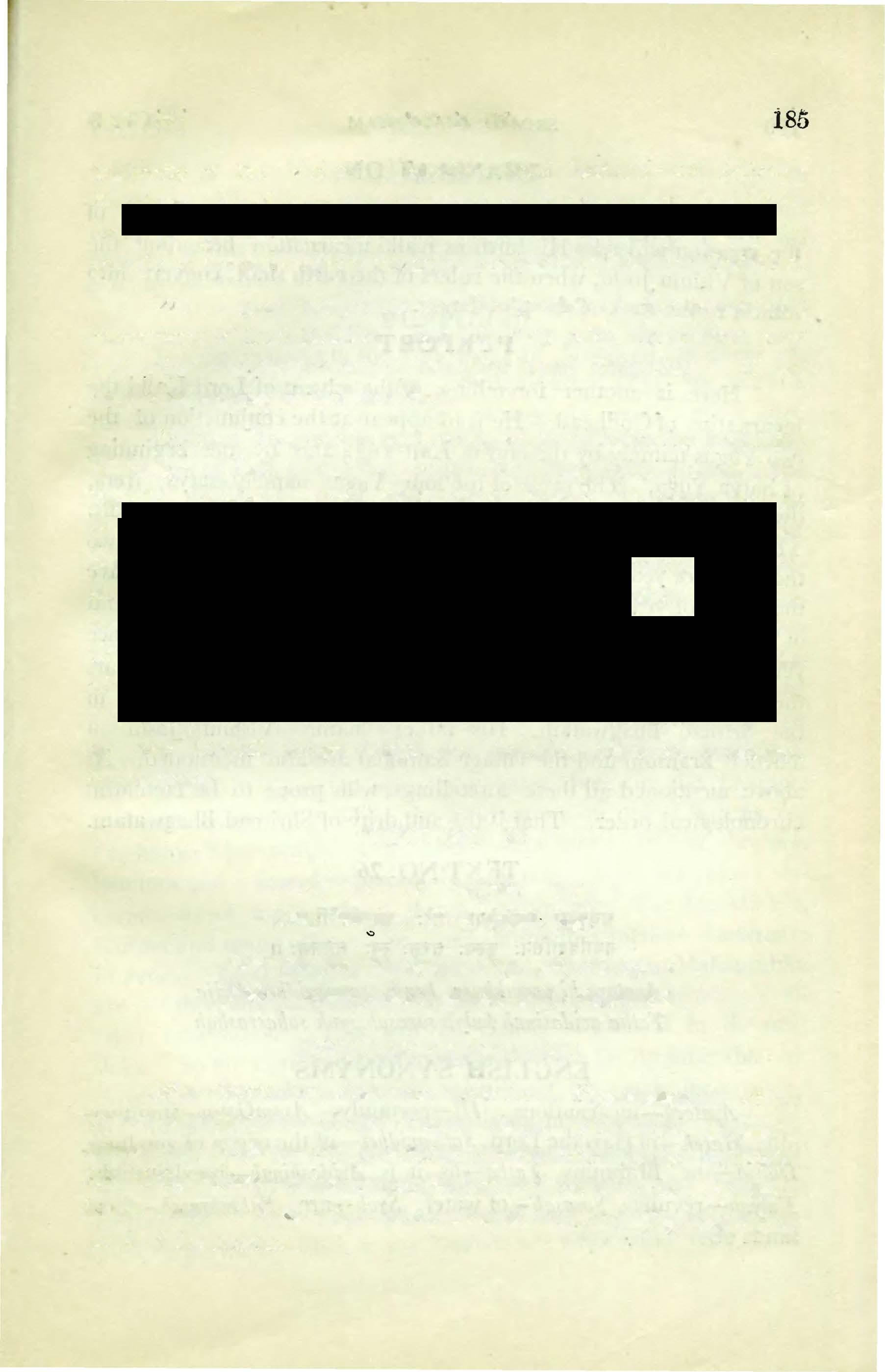
ar:qnfl �m:fe<rr;:rt �gsrm! �r� 1
iiff<rmfq���) 'l"Tl=<fT Cfi'fi?�ij"�qf;;r� II "'
ENGLISHSYNONYMS
Atha-thereafter, As�JU-the same Lord, Yugasandlryaam-atthe period ofconjunction of the Yugas, Dav•u-plunderers, Prayesu almost all, Rajasu-the governing personalities, ]anita-will take His birth, Vishnu-of the name, Jashaso-ofthe surname, Namnain thename of, Kalki-the incarnation ofthe Lord, Jagatpatih-the Lord ofthe creation.
'Text 25] FIRsT CANto i85
Atlza asouyugasamdhyaam dasyupmyesu rajasu
]anita vishnu jaslzaso namna kalki jagatpatih
TRANSLATION
Thereafter at the conjunction of two Yugas the Lord of the creation \\ill take His birth as Kalki incamation becoming the son of Vishnu Joshi, when the rulers <Jf the earth shall convert into almost to the rank of the plunderers.
PURPORT
Here is another foretelling of the advent ofLord Kalki the incarnation ofGodhead. He is to appear at the conjw1ction of the two Yugas namely by tlie end uf Kali Yuga ��nd by the beginning of Satya Yuga. Tltc cycle of tl11.: four Yugas uamely satya, treta, dwapara and Kali char.ge in rotation likf' tht> calender months. The preseut Kaliyuga is to stand for 432000 f(mr lacs and thirtytwo thousands of years. Out of which we have passed only 5000 five thousands of years after the battle of Kurukshetra and by the end of the regime of Kiug Parikshit. So there are 427000 years..balance yet to be finished. Therefore at the end of further four lacs of years the incarnati011 d Kalki \\·ill take place and that is also foretold m the Srirnad Bhag\\atam. His fathc1·'.s name Vishnu Joshi a learned Brahmin and the village Samhhal are also mentioned. As above mentioned all these foretellings \\ill prove to be factual h1 chronological order. That is the authority of Shrimad Bhagwatam.
TEXT NO. 26


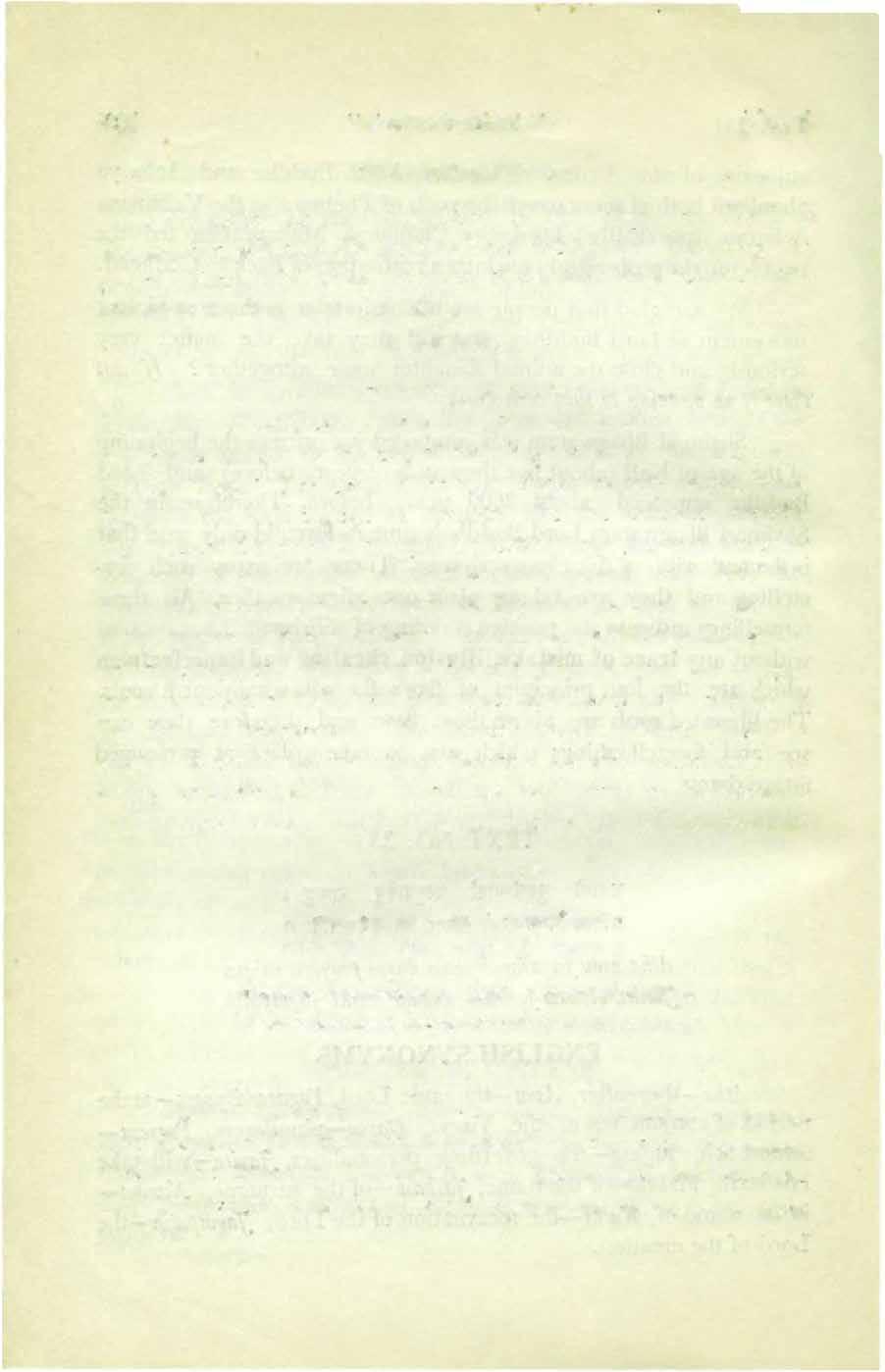
�ernru ��21r �{: m=crf�firi1!r: 1
qllfrfcr�rf�Fr: ��q: �n:�: PJ= ���qr: 11

Acatara lzi asamkftyea hareh satwanidlter dwija
'Yallw avidaJiuah ku(J!h sarasalz S)!Uh sahasraslw!t

ENGLISH SYNONYMS
Avatara-incaruations, Hi - certainly, A samkhyea-inuumerable, llareh-ofHari the Lord, Satwauid!ter-ofthe ocean of goodness, Dwija-the Brahmins, 'fat/w-as it is, Avidashinalz-inexhaustible, Kulyah-revulets, Sarasah-of\\ater, S')!uh-are, Sahashrasah-thcusands of.
186
SRIMAD BHAGWATAM (Ch. 3
Oh Brahmins, the incarnations of the Lord are innumerable as much as there are innumerable revulets coming out of the inexhaustible sources ofwater.
PURPORT
The incarnations ofthe Personality of Godhead as they are mentioned hereinbefore arc not complete list. They are only a partial view of all the incarnations. There ;:�re many others such as Shri Hayagriva, Hari, Hansa, Prishnigarbha, Bibhu, Satyascn, Vaikuntha, Sarbabhouma, Viswksen, Dharmasetu, Sudhama, Yogeswara, \;-rihatbhanu, etc. in the by gone ages. Sri Prahlad

__
Maharaj said in his prayer, "I\1y Lortl, you manifest as many incarnations as there arc species of life namely the acquatic, the vegetables, the raptiles, the birds, the beasts, the mer, the demigods etc.just for the maintenance of the faithful and for the annihilation of the unfaithful. You advent yourself as such in accordance with the necessity ofthe different Yugas. In the Kali yuga you have incarnation garbed as the devotee". This incarnation of the Lord garbed in the Kali Yuga is meant to indicate Lord Chaitanya
.Mahaprabhu. There are many other places both in the Bhagwat and other scriptures in which the incarnation of the Lord as Sri Chaitanya .Mahaprabhu is explicitely mentioned. In the Brahma Samhita also it is said indirectly that although there are many incarnations of the Lord as Rama, Nrishingha, Varaha, Matsya, Kurma and many others, the Lord Himse]f sometime incarnates in person. Lord Krishna and Lord Sri Chaitanya I\1ahaprabhu arc not therefore incarnations hut He is the original source of all other incarnations. This will be dearly explain ed in the next sloka. So tl1c Lord is the inexhoustible source for innumerable incarnations which are not always mentioned but such incarnations arc distinguished by specific extraordinary performances vvhich are impossible to be done by any living being. That is the general test to identify an incarnation of the Lord directly and indirectly empo'"-ercd. The incarnations mentioned above arc almost plenary pm�tions. Such as the Kumars are empo\vered with tr�ns-
Text 25] FIRST CANTO 187
TRANSLATION
cendental knowledge. Sri Narada is empowered with devotional service. Maharaj Prithuwas empowered incarnation with executive function. The Matsya incarnations is directly plenary portion and similarly the innumerable incarnations of the Lord are manifested all over the universes constantly without any stop as there is constant flow ofwater from the water falls.
TEXT NO. 27.
�) �.,.n iforr ��'];� t:r�'t;;rn: 1
<lim: � �tt<r �n:rwrq-a-q:fl[ffi': 11

Rishoyao manabo deva manuputra mohoujasah Kalam sarve harereva saprajapatoyah smritah.
ENGLISH SYNONYl\1S
Rishayo-all the sages, Manabo-all the Manus, Deva-all the demigods, Manuputra-all the decendants ofmanu, Mohoujasahvery powerful, Kalam-portion of the plenary portion, Sarve-all collectively, Harer-ofthe Lord, Eva-certainly, Sapra.Japatoyahalong with Prajapati, Smritah-are known.
TRANSLATION
All the Rishis, manus, demigods decendants ofmanu, who are specially powerful are plenary portions or portion of the plenary portion ofthe Lord. This includes all the Prajapatis also.
PURPORT
Those who are comparatively less powerful are called Bibhuti and those who are comparatively more powerful are called Avesh incarnations.
TEXT NO. 28


t& 'i:ff�Cflffi': '];·�:��WT<W{fCflfl! I
�rn:a1n� ('S)<t ll�Cf � TT II
Ete cha ansha kalapunsah krislznas tu bhagwan swoyam
/ndrari l!Jakulam lokam mridayanti yuge yuge
188 SRIMAD BHAGWATAM [Ch. 3
Ete-all these, Cha-and, Ansha -plenary portion, Kalahportion ofthe plenary portion, Krishna-I�ord Krishna, Tu-but, Bhagwan-the personality of Godhead, Swayam-in person, lndrari-the enemies ofIndra, T)akulam-disturbed, Lokam -all the planets, Mridyarzti-gives protection, Yuge Yuge-in different ages.

TRANSLATION
All the above mentioned incarnations are either plenary portion or portio:-1 of the plenary p:Jrtion ofthe Lord but Lord Sri Krishna as above mentioned, is the Original Personality ofGodread and all ofthem advent themselves in all the Planets whenever there is distmbances by the atheists and the Lord incarnates to portect the theists.

PURPORT
In this particular stanza Lord Sri Krishna the Personality of Godhead is distinguished from other incarnations. He is counted amongst the Avatars (incarnations) because out of His causeless mercy the Lord descends fi"om His transcendental abode. The Avatar means one who descends. All the incarnations of the Lord including the Lord Himself descend on different planets ofthe material \Vorld as also in different species oflife to fulfil particular mission only. Some times He comes Himself and sometimes His differentplenary portions or parts of the plenaryportions or His differentiated portions directly or indirectly empowered by Him descend on this material world to execute certain specific function. Originally the Lord is fu11 of all opulenccs, all prowess, aU fames, all beauties, all knowledge and all renunciations. \\'hen they are partly manifested through the plenary portions or parts of the plenary portions at that time it sdould be noted that so much manifestation ofHis different prowess is required for that particular function. \\Then in the room small electric bulbs are displayed it does not mean that the electricpower house is limited by such powers ofthe small bulbs. The same powrr house can supply power to roll on large scaleindustrial dynamos with greater volts,
Text 1�] FIRST CANTO 189
ENGLISH SYNONYMS.
Similarly the incarnations of the Lord display limited powers be cause so much power is needed in that particular time.
For example Lord Parshuram and Lord Nrishingha displayed unusual opulence by killing the disobedient Khastriyas for twenty one times and killing the great powerful Atheist Hiranya Kasipu resp(:ctively. Hiranya Ka5ipu was so powerful that even the demigods in other planets would tremble simply by the · unfavourable display ofhis cycbrmv. The demigods in the higher level of matf'rial existence are m1.ny many times well placed tnan the most well-to-do human beings, in respect of duration oflife, beauty, wealth, parapharnalia, and in all other respects. Still they were afraid ofHi:ranya Kashipu . Thus we can simply imaginehow much powerful was Hiranya Kashipu in this material '"'orlcl. But even such powerful Hiranya Kasipo was also pierced into small pieces by the nails ofLord Nrisingha . This means that any one materially powerful can not eycn stancl the strength of the Lord's nails. SimilarlyJamadagnya displa}'Fd Hispowertokill aU the disobedient kings powerfully si!uated in their respective states. His empowered incarnation Narada and plenary incarn::ttion Varaha as well as indirectly empovvered Lord Buddha manifested His feature ofcreating faith in the mass ofpeople. The incarnation of Rama, Dhanwantari manifested the feature ofHis fame, Valarama Mohini and Vamana exhibited tbe feature ofHis beauty. Duttatreya, Matsya, Kumara and Kapila manifested the feature of His transcendental knowledge. Nara, Narayana Rishis �anifested the feature of His renunnatwn. So <111 the different incarnations ofthe Lord indirectly or directly powerful manifested different features but Lord Krishna the primeval Lord exhibited the complete features of Godhead and tl:ns it ·was confirmed that He is the source of all other incarnatiuns. And the most extraordinary feature exhibited by Lord Sri Krishna was His in ternal energetic manifestations of His pastimes with cowhanl girb. His pastimes with the Gopis are all display of the transcendental existance, bliss and knowledge although it wnsmanifested apparently in wayofsex love. Thespecific (lttraction ofHis pastimes with Gopis is never to be misunderstood,

190
3
SRIMAD BHAGWATAM [Ch.
The Bhagwat has described about this transcendental pastimesin the tenth Canto. And inorder to reach to that position to understand the transcendental nature of Lord Krishna's pastimes with the Gopis, the Bhagwat has tried to promote the student gradually m nine other cantos continually.
According to Srila Jiva Goswami's statement which he has e dealt with interms of authoratative sources, Lord Krishna is the source of all other incarnation and it is not that Lord Krishna has any other source of being incarnated. All the symptoms of the Supreme Truth in full are present in the Person of Lord Sri Krishna and in the Bhagwat Geeta the Lord emphatically declares that there is no other greater and equal truth than Himself: In this stanza the word "Swayarn" is particularly mentionedto confirm it that Lord Krishna has no other source than Himself Although in other places the incarnations are described as Bhagwan, because of the incarnation's specific function still no where it has been declared that Heis the Supreme Lord Persoua]ity. In this stanza the word "Swayam" signifies the supremacy as the Summum Bonum.
The Summun Bonum Krishna is one \-Yilhout a Second :mel He Himself has expanded Himself in variou:; parts, portion and particles as Swuyam Rujm, Swoyam Prakm,h, Tadekatma, Prabhab, Baiblzav, Vilaslz, Avatara, Aveslz, Jivas all prm·iued with innumerable energies just suitable to the respective persous aml personalities. Learned scholars in the matter of tran;,cendemal subject has carefully analysed the Summum Bonum Krishna withsixty four attributes. And all the expansions or categories of the Lord posess only some · percentages of the complete attributes. Sri Krishna is the possessor of the attributes cent per cent. And His personal expansions such as S\\ ayam Ptakash, Tadekatma up to the categories of the Avatars who are all Vishnu Tatwa possess up to ninety three percent of such 1ransce11dental attrilRttes. Lord Shiva who is neither Avatara nor Avcsh uor inbetwcen them possesses almost eighty f0ur percent of the attributes. But the Jivas or the individual living beirgs in different status of life

Text28] FIRST CANTO 191
possesses up to the limit ofseventy eight percent ofthe attributes. In the conditioned state of material existence the living being possesses all these 78 percent oftheattributes in very minute quantity varying in terms of the pious life of the living being. The most perfect ofthe living bei11g is Brahma the Supreme administrator of one universe. He possesses 78 percent of the attributes in full. All other demigods have the same attribute iu less quantity whil,e the human being possesses the attributes in very minute quantity. The standard of perfection for a human being is to develop the attributes up to 78 percent in full. The livingbeing can never reach to the standard of possessing attributes like Shiva, Vishnu or Lord Krishna. A living being can become Godly by developing the 78 percent oftranscendental attributes in fullness but he can never become a God like Shiva, Vishnu or Krishna. He can become a Brahma in due course. The Godly living being who are all residents of the planetsin the spiritual sky are eternal associates ofGod in different spiritual planets called by the name of Haridhama and l\1aheshadhama. The abode of"Lord Krishna on the top of all spiritual planets is called Krishna Loka or Golaka Vrindaban and the perfected living being by developing seventy eight percent of the above attributes in fullness can enter even in the planet of Krishnaloka after leaving the present material body.
TF.XT NO. 29
o/11 �l!:r" �lfcrcrr ll' Q;m�lfffi iJ<:: 1
{TT<f 51'RPj� �i'fcl:l'T '!;:�_cn:nrrrfG:�=<i<iff II
]anrna guhyyam bhagwato ya etat praya£h narahh
Sa:Jiam pratar grinanbhaktyadukhgramat virnuchyate
ENGLISH SYNONYMS
Janrna-birth, G'u/ryam-mysterious, Bhagwato-of the Lord, Ta-one, Etat--all these, Prqyato -carefully, Narah-man, Sqyarnevening, Pratha-morning, Bhaktya-with devotion, Dukhahgmrnatfrom all miseries, Virnudryate-gets relieffi·om.
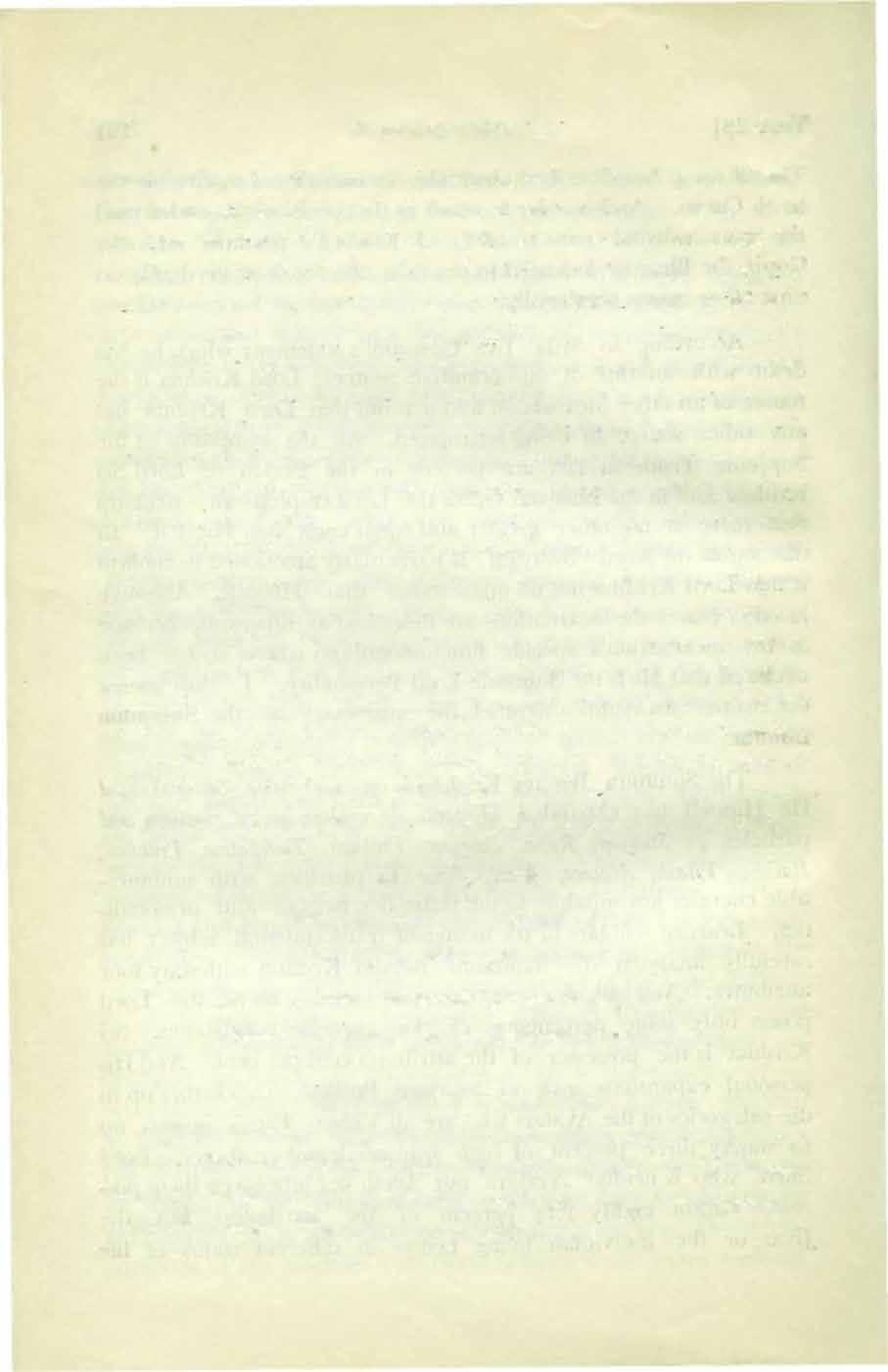
192 SRIMA1> BHAGWATAM [Ch. 3
Any one who may carefully recite all about the mysterious appearance ofthe Lord, with devotion in the morning and in the evening that man gets relieffrom all miseries of life.
PURPORT
ln the Bhagwat Geeta the Personality of Godhead has declared it that any one who may know the principles of transcendental birth and activities of the Lordin fact) will go back to Godhead after beingrelievedfi·om this material tabernacle. So simply by knowing fl:tctua11y the mysterious way of the Lord's appearance as incarnation on this material world, means liberation from material bondage. Therefore tbc birth and activities of the Lord as they are manifested by Him for the welfare of the people in general, are not ordinary birth like other living being. It is something mysterious and only those who carefully try to go deep into the matter by spiritual devotion only to them the mystery is discovered and thm the knmvcr becomes relieved from all miseries of life. This means he gets liberation from the material bondage. It is advised therefore that one ·who may simply recite this chapter of Bhagwat describing the appearance of the I�ord in different incarnations in sincerity and devotion, will help one self penetrate into the insight ofsuch birth and activities of the L�rd. The very word vimukti or liberation indicates that the Lord's birth and activities are all transcendental otherwise simply by rcciting such activities no body would attain liberation. T'hey are therefore mysterious and those who do not follow the prescrib<"d regulations of devotional service are not entitled to enter into the mysteries ofHis such births and activities.


TEXT NO. 30
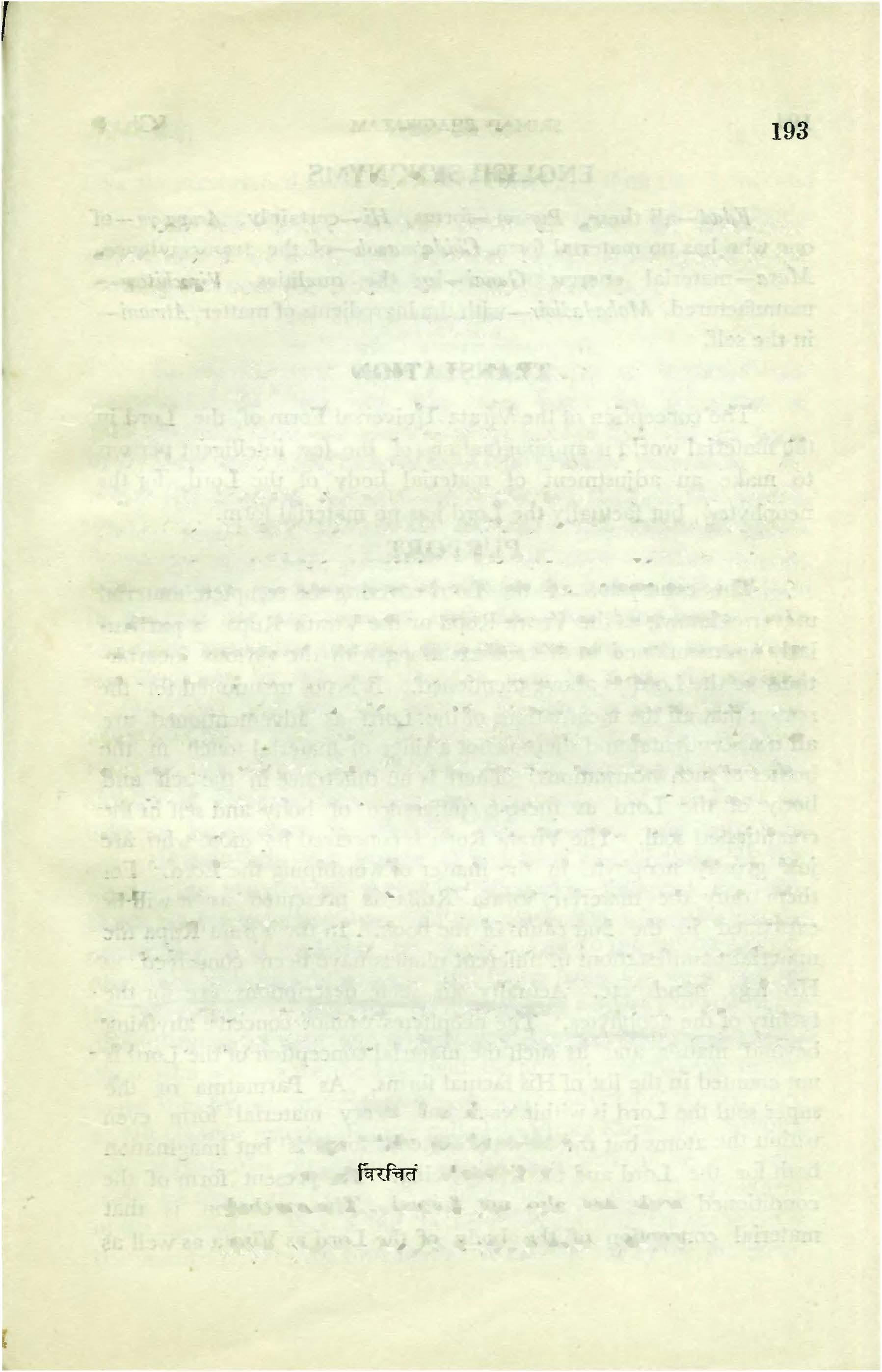
' Text 30] FIRST CANTO 193 TRANSLATION
�<rciT ��ll
1
��m�<roc;rfi:r II
bhagawato hi arupasya chidatmanah
gunair virachitam mahddadivir atmani.
�a�q
f�rcJN:
�TllTT'fi
Etadrupam
Maya
ENGLISH SYNONYMS
Edad-all these, Rupam-forms, Hi-certainly, Arupa.ryu-of one who has no matertal form, Chidatmanah-of the transcendence, Mqya-material energy, Gunai-by the qualities, Virachitammanufactured, Mahadadivir-with the ingredients ofmatter, Atmaniin the self.
TRANSLATION
The conception ofthe Virata Universal Form of the Lord in the material world is an imagination of the less iutelligent persons to make an adjustment of material body of the Lord, (for the neophytes), but factually the Lord has no material form.
PURPORT
The conception of the Lord covering the complete material universes known as the Viswa Rupa or the Virata Rupa is particularly not mentioned in this context along with the various incarnations ofthe Lord as above mentioned. It is not mentioned for the reason that all the incarnations ofthe Lord as advementioned are all transcendental and there is not a tinge of material touch in the bodies ofsuchincarnations. There is no difference in the self and body of the Lord as there is difference of body and selfin the conditioned soul. The Virata Rupa is conceived for those who are just grossly neophyte in the matter ofworshiping the Lord. For them only the material Virata Rupa is presented as it will be explained in the 2nd canto of the book. In the Virata Rupa the material manifestations ofdifferent planets have been conceived as His legs, hands etc. Actually all such descriptions are for the facility ofthe neophytes. The neophytes cannot conceive anything beyond matter and as such the material conception ofthe Lord is not counted in the list ofHis factual fonm. As Parmatma or the super soul the Lord is within each and every material form even within the atoms but the outward material form is but imagination both for the Lord and the living being. The present form of the condidoned souls are also not factual. The conclusion is that material conception of the body of the Lord as Virata as well as
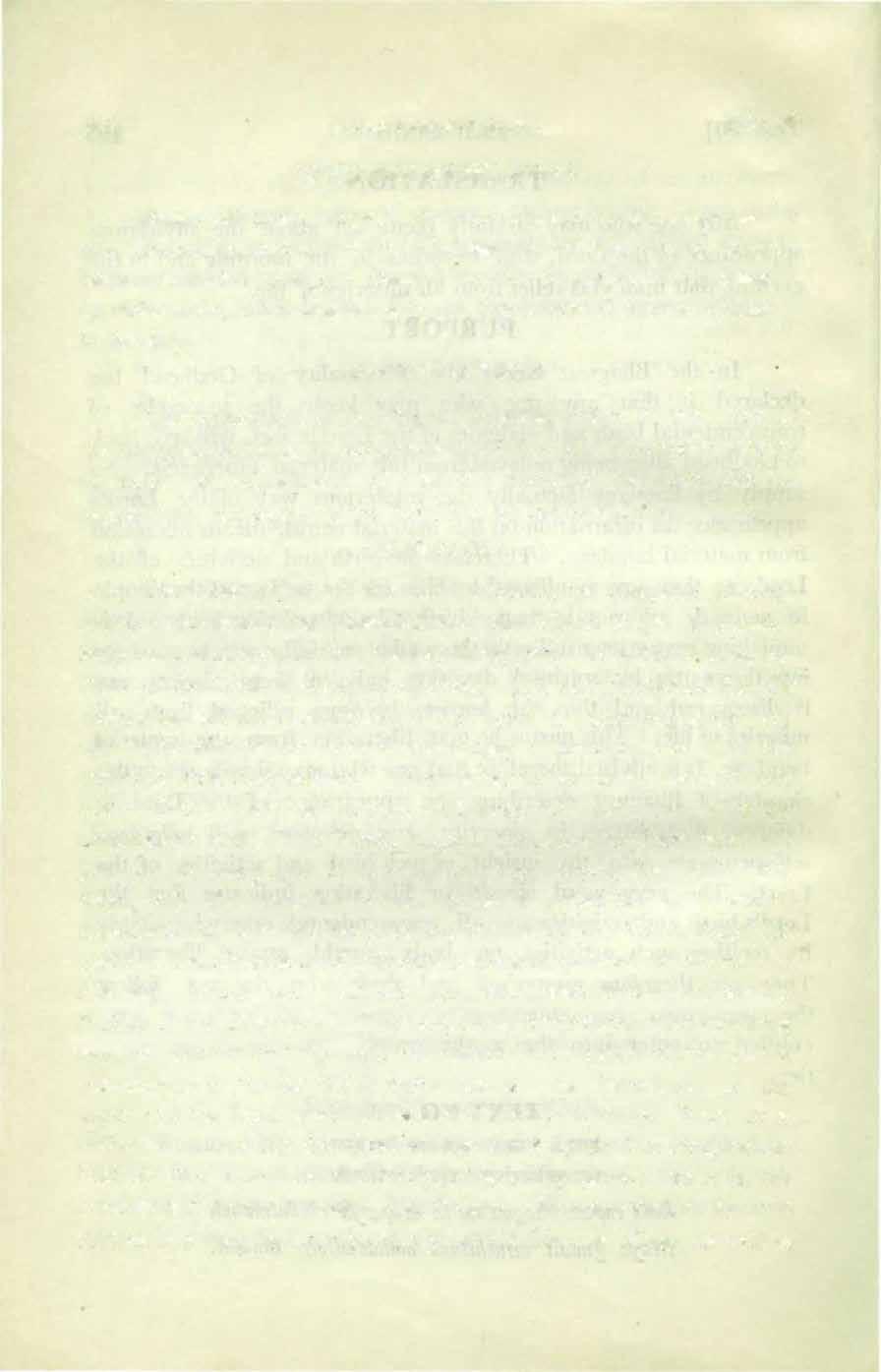
194 SRIMAD BHAGWATAM [Ch. 3
for the conditioned souls are all imaginations. Both the Lord and the living beings are living spirits andhave original spiritual bodies respectively.
TEXT NO. 31

lf�r <nlfu if� ��t q-rfqcftsf;:ffi 1 "'
'Z<f �f� ��lf�91fTUftra>T$f�:f+r: II
Yatha navasi rneghougho renur ha parthibo anile Ebam drastari drisyatwam aropitarn ahuddhivih.
ENGLISH SYNONYMS
Yatha-as it is, navasi-on the sky, rneghougha-the bunch of clouds, renur-dust, ha-as well as, parthiho-muddyness, anilein the air, eham-thus, drastarir-to the seer, drsyatmarn-for the matter ofseeing, aropitam-is implied, ahuddhivih-by the less intelligent persons.
TRANSLATION
The cloud is carried by air and dirtyness is the appearance ofthe dust. But less intelligent persons say it that the cloud is in the sky and the air is dirty and as such they also implant material conception ofbody on the spirit self.

PURPORT
It is further confinned herewith that "vith our material eyes or with our material senses we can not seethe Lordwho is all spirit. Even we can not detect the spiritual spark which exists within the material body ofthe living being. \\'e look to the outward covering ofthe body or subtle mind ofthe living being but we cannot see the spiritual spark "VVithin the body and still we have to accept the living being's presence by the presence ofhis gross body. Simjlarly those who want to see the Lordwith thepresent material eyesorperceive Him by the material senses, they are advised to see the Lord in His gigantic external feature calledtheVirataRupa. Forinstance when a particular gentleman goes in his car which can be seen very easily we signify the car as the man within the car. l11e President ofthe state when he goes out by his particular car, we say there is the president. For the time being we call the car as the president.
Text 31] FIRSt CANTO 195
The car passing we call the president passing. \1\1e call the cart-man as cart. Similarly for less intelligent men who want w -;ee God immediately without any necessary qualification they are shown first the gigantic material cosmos as the form of the Lord although the Lord is within and without. The example of the clouds in the air, ofthe colour of the sky as blue, are better appreciated in this connection. Although the bluish tint of the sky and the sky are different stiJl VIc can conceive the colour of the sky as blue. That is a general conception for the laymen only.
TEXT NO. 32

9;J'Q': q� lRZl:f<JQ'ij'o���<fT�iii£, 1 af�ISC:T�i'f"ffg�GffCij" ;;ficr)' tr�9;<T<f<r: Ii


Atah param yad abyaktam abudha gunbringhitam adrista ashruta vastutwat sa}ivayat punarbhabam
ENGLISH SYNONYMS
Atah-this, param-beyond, yad-which, ahyaktam-nou-mani[ested abudha-without formal shape, gunabringhita-effecled by the qualities, adrista-unseen, ashmta-unheard, vastutwat-being like that, sa-that,.Jiva-living being, yat-that which, punarbhavamtakes birth repeatedly.
TRANSLATION
Beyond this gross conception ofform there is another subtle conception offormwhich is without any formal shape and is unseen unheard non- manifested. The living being has his form beyond this subtlety otherwise how it is possible fi)r repeatition ofbirths.
PURPORT
As the gross cosmic manifestation is imposed as the gigantic body ofthe Lord so ah.o there are others who conceive of the subtle form ofHim which i<> simply realised without being seen, heard or manifested. But in fact all these gross or subtle conception of the body are in relation with the living being. The living being has his spiritual form beyond this gross material or subtle psychic existence. The gross body and psychic functions cease to act as
19.6 SRIMAD BHAGWATAM [Ch. 3
Text 33]
soon as the living being leaves the visible gross body and still we say that the living being has gone away although he is still unseen unheard. Even the gross body not acting when the living being is in sound sleep \H"' can know that he is within the body by the soundof sleeping inhalation. So the living beingpassing away form the body doesnot mean that there is no existence of the living soul. It is there otherwise how he can repeat his births again and again.
The conclusion is thal the Lord is eternally existent in His transcendental l''orrn \vhich is neither gross nor subtle like that of the living being, His body is never to be compared with suchgross and subtle bodies ofthe living being. All such conception ofGod's body are different types of imagination only. The living being has his eternal spiritual form whichis conditioned only by his rna� terial contamination.
TEXT NO. 33


<r�if u�ui::iT srRrfq� fCfUFrG"r 1 ... �ft::mTlfTSS�Ilfi'f 2iff �f� �<;;'lf1¥��i'f�

1"atra ime sadaasad rupe pratisiddhe swasamvida
Aviqyatmani krite iti tadbrahmadarshanam
ENGLISH SYNONYMS
Yatra-whenever, Ime-in all these, Sadasad-gross and sub� tile, Rupe-in the forms of: Pratisiddlze-on being nullified, Sasamvida-by selfrealisation, Avitryl£Va-byignorance, ittrnani-in the self, Krite-having been imposed, lti-thus, Tad-that is, Bmhrnadarshanam-the process ofseeingthe Absolute.
TRANSLATION
vVhenever a person experiences by self realisation that both the gross and subtle bodies have nothing to do with the pure self, at that time such experienced person sees himselfas well as the Lord.
PURPORT
The difference between self-realisation andbeing covered by material illusion is to know that the temporaryoriiiusory imposition ofmaterial energy in the shape ofgross and �ubtlc bodies are super� ficial coverings of the self. The coverings take place on account
II
ofignorance ofthe individual living entities while thesame covering is never effective inthe Person ofthePersonalityofGodhead. Knowing this fact convincingly is called liberation or seeing the absolute. This means perfect selfrealisation is made possible by adoption of Godly or spiritual life. Thisselfrealisation means to become indift: erentin the matter ofthe needs ofthe gross and subtle bodies and be serious in the matter ofthe activities of the self. The impetus of activities are generated fromthe bottom ofthe selfbut such activities become illusory on account ofignorance ofthe real position of the self. By ignorance selfinterest iscalculated in terms of the gross and subtle bodies and therefore the whole set of activities in such illusion are spoiled life after life. \\'hen, however, one meets the self by proper culture, the activities ofthe selfbegins and therefore a man who is engaged in the activities ofthe selfhe is called the Jivanmukta or the liberated person even inconditional existence. This perfect stage ofselfrealisation is attained not, by any other artificial means but under the lotus feet of the Lord \'Vlm is always in transcendental position. In the Bhagwat Geeta the Lord says that He is present in every one's heart and from Him on]y all knowledge remembrance or forgetfuh1ess take place. \Vhen the Living being desiresto be an eitioyer of the material energy (illusory phenomenon) the Lord covers the living being in the mystery of forgetfulness and thus the living being misappreciates the gross body and subtle mind in the p]ace ofhis own self. And by culture oftranscendental knowledge when the same living being prays to the Lord for,deliverance form the clutches of forgetfulness, the Lord by His causeless mercy, removes the living being's illusory curtain and he realises l1is ownself. He then engages himself in the service ofthe Lord in his eternal constitutional position becoming liberated from the condititllled life. All these are executed by the Lord through the agency of either His internal potency or directly by the internal potency.
TEXT NO. 34

198 SR.IMAD BHAGWATAM [Ch. 3
lRi'tit'n:a-r �<�r 11rlrr ��n::�r 11fa �q��:t�f<:r f�f�f+<r �� 11@1fct II
1"'adi-if however, Esha-they, Upamta-subsidcd, .A1ayaenergy, Vaisharadi-full ofknowlf'dge, .A1atih-enlightenment, Sampanna- enriched with, Eva-certainly, /ti-thus, Vidur- being cognisant of, Mahimni-in the glories, Swe-of self, Afahi)mtf-being situated in.



TRA NSLATION

If however the illusory energy is subsided and becomes fully enriched with knowledge by the Grace of the Lord, then the living being becomes at once enlightened with self realisation and thus enriched the cognisant becomes situated in his ohn glory.
PURPORT
Tlw Lord being the Absolute Transcendence, all His Forms, Names, Pastimes Attributrs, associates and energies are identical with Him. His transcendental energy acts according to His omnipotency. The same energy acts as His External, Internal and Marginal-energies and by Hisomnipotency He can act anything and everything through the agency of either ofthe above energies. He is omnipotent to tum the exten1a1:energy into internal by His \\'iH. Therefore by His Grace the external energy wbjch is employed in the matter ofillusioning those living beings whowant to have it,-is subsided by the wiii ofthe Lord in terms ofrepentance andpenance ofthe conditioned soul. And the very same energy then acts to help the purified living being to make progress on the path of self-realisation. The example ofelectrical energy is very appropriate in this connection. The expert electrician can utilise the electrical energy in both the case ofheating and cooling process by adjustment only.• Similarly the external energy which now bewilders the living being for continuation ofrepeatition of birth and death, -is turned into internal potency by the will of the Lord to lead the living being to eternal life. \Vhen a living being is thus graced by the Lord, he is placed in his proper constitutional position to enjoy eternal spiritual life.
Text 34] FIRST CANTO Yadi esho uparota devi maya vaisharadi matih Sampanna evaiti vidut rnahimni swe rnahi)Jate ENGLISH SYNONYMS 199
TEXT No. 35


t:;<i ii!;:t:rrf;:r Cfill�f� Wiifi���ii!"l�lf :q t
cr�lffra flf Cficrlf) ci�rfif �c!J€f 11
Ebamjanmani karmani hi akmtur ajanasya cha
Vanuryanti sma kavo;yo vedaguhyani hritpateh.
ENGLISH SY�ONYMS
Ebam -tlms, Janmani-birth, Karmani-activities, hi-certainly, akartur-of the nonactive, Ajanasya-of the unborn, Chaand} Varnayanti- do describe, Sma-in the pa�t, Kavq)'o-the learned, Vedaguhyani--undiscover<Jble by the veda.<>, hritpateh- of the Lord ofthe heart.

TRANSLATION
Thus the lea rned mc11 describe the birthsand activities of the unborn and non active which is undiscoverable even in the vedic literatures. He is the Lord ofthe heart.
PURPORT
Both thf' Lord and the .Ji,·ing- entities are essentially all spiritual and thtTf'forc both ofthem arc eternal and none ofthem have any birth ;:md death. The difference is that the so called births and disappcaranoc of the Lord are not equal to that ofthe living being'> . The living being who are to take birth and then again accept <k<�th arc <;O bonnd up by the Jaw of material nature . But the so caJJed ;-�ppearance and disappearance of the Lord arc not the actions of the material nature but they are demonstration of th<' intcma.l potf'ncy of the Lord. It is described by the great sages for the same purpose as self realisation. It is stated in the Bhagwat Geeta by the Lord that His so called birth in the materia] '\ orld and His activities are all transcoendental. And simply on meditations on such activities of the Lord one can attain the same realisation of Brahman and thus become liberated from tbc material bondage. In the Sruits it is said that the birthless appears as taking birth. The Supreme has nothing to do but because He is omnipotent everything is performed by Him �,JO naturally as ifthey arc being done automatically. As a matter
200
SRIMAD BHAGWATAM
[Ch. 3
offact the appearance and disappearance ofthe Supreme Personality ofGodhead and His different activities are all confidential even to the Vedic literatures but still theyare displayed by the Lord for bestowing mercy upon the conditioned souls. 'Ve should always take advantage of such narration of the activities ofthe Lord and take advantage of meditation on Brahma in the most convenient and palatable form.
TEXT NO. 36

� err �<i fcr�cr;p:i)'<i�T�: �flff"e" o:r ��sft+fi'f 1 � ' <fct'! :;:rr;:af�a- amJJa;:�: q-�crf� f'Jf"�fa- ���= 11
Sa ba idam viswam amoghalilah srijati avatqyati na sayjate asmin Bhuteshu chantarhita atmatantmh sadbargikamjighrati sadgunesha.
ENGLISH S\'NONYMS
Sa-the supreme Lord, Ba-alternately, !dam-this, Viswammanifestive universes, Amoghaliah-one whose activities are spotless, Avatqyati-maintains and annililates, .Na-not, Sajjatebeomes affected by, Asmin-in them, Bhuteshu-in all living beings, Cha-also, Antarhita-living within, Sadhargikam-endowed with all the potencies ofsix opulences, Jighrati-superficially attached like smelling the flavour, Sadgunesha-master ofthe six senses.
TRANSLATION
The Lord whose activities are always spotless is the master ofthe six senses and is omnipotent fully with six opulences. As such He creates the manifestive universes, maintains them and then again annihilates them without being the least affected by those actions. He IS within every living being and is always self independent.
PURPORT
The prime difference between the Lord and the living entities is that the Lord is the creator and the living entities are the created. Heis called here as the Amoghalilah which means there is nothinglamentable in His creation. Those who create disturbance in His creation are themselves disturbed. He is transcendental to
Text 36) FIRST CANTO 201
SRIMAD BHAGWATAM (Ch. 3
all material afflictions because He is full with all six opulences namelywealth, power, fame, beauty, knowledge and renunciation and as such He is the master of all senses. He creates this manifestive universes inorder to reclaim the living beings who are within them suffering threefold miseries, maintains them and in due course annihilates them without beingthe least affected by such actions. He is connected with this material creation very superficially like one smells the odour without being connected with the ordourous article. None-godly elements therefore can never approach Him inspite of all endeavom es.
TEXT NO. 37
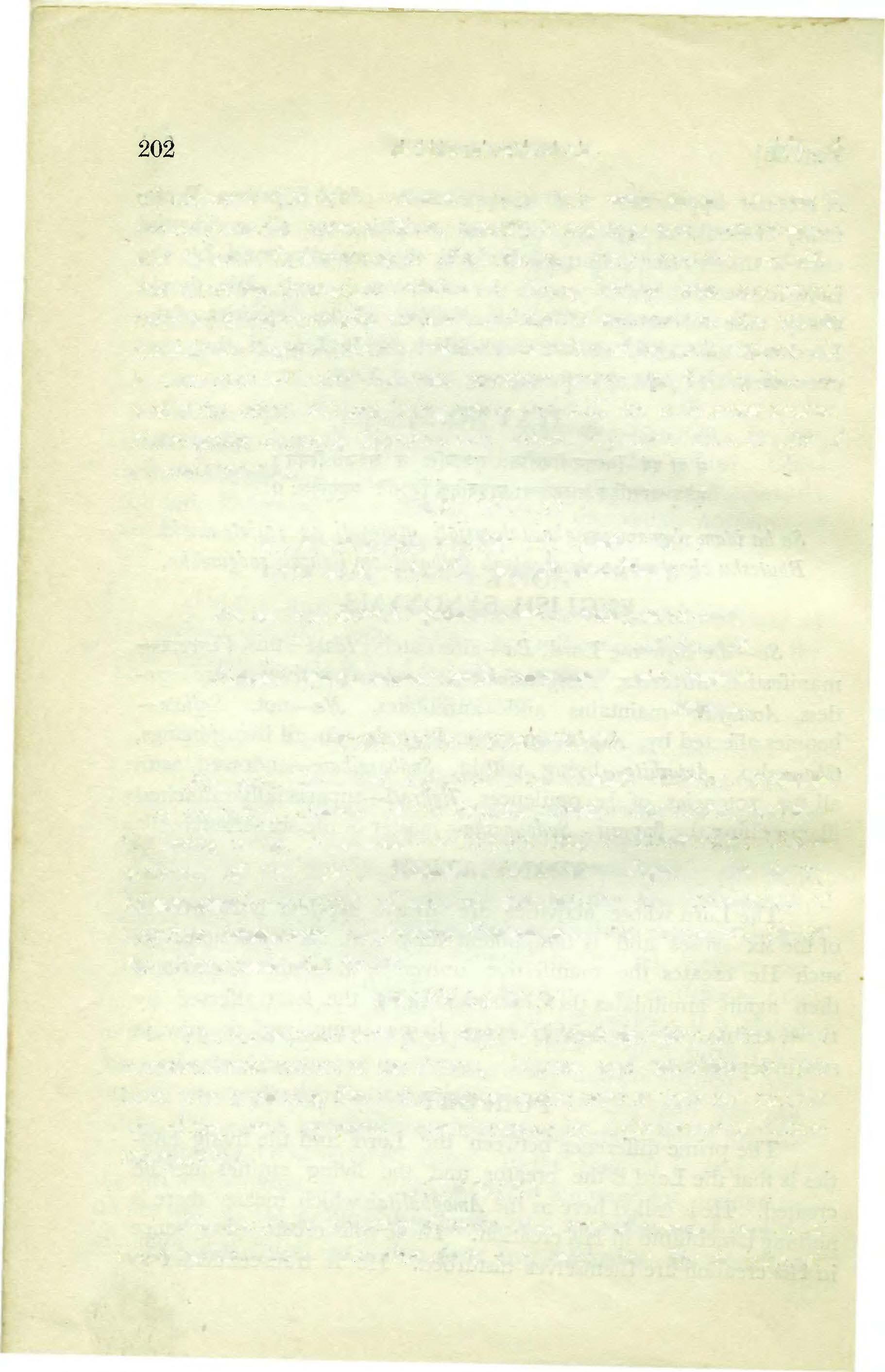
;:r '<fTPT Cfif�:qfu"Tif;:r '<:Tf�"{;ffcr ;;r;:2:: �ff;ft{'f 3-:ar: I rrrffrf;:r �qrfm lFf)cr;:r)f�: ij"�a;:crt:ft ifc'tfllTfl=!crr�: 11
.Na cha asya kaschit nipunena dhatur avaitiJantuh kurnanisha utih
Narnani rupani rnanovach()vih santanwato natacharyarn ivaynah.
ENGLISH SYNONYMS
Na-not, Cha- and, Asya-ofHim, Kasclzit-anyone, .Nipunena -by dexterity, Dhatur--ofthe Creator, Avaiti-can know, Jantuhthe living being, Kurnanisha-with poor fund of knowledge, Utihactivities of the Lord, Narnani-His names, Rupani-His forms, Manovachovih-by dint of mental speculation or deliverance of speeches Santanwato-displaying Natacharyarn-the dramatical player Iva--like AJnah-the foolish.
TRANSLATION
The foolishman wit11 poor fund of knowledge cannotknow the transcendental nature ofthe Forms, Names and activities of the Lord who is playing like a dramatical actor; neither they can express such things even by mental speculation or by deliverance of different speeches.
PURPORT
No body can prcperly describe the tiansceedcntal nature of the Absolute Truth and therefore it is said that He is beyond
202
the expression ofmindand speeches. And yet there are some men, with poor find of knowledge, who desire to understand the Absolute Truth by imperfect speculation of the mind and faulty description ofHis activities. To the layman the activities, appearance and disappearance, His Names, His Forms, His parapharnalia, His Personalities and all such things in relation vvith Him, are something like mysterious acts. There are two classes ofmaterialists namely the fruitivc workers and the emperic philosophers. The fruitive workers have practically no information ofthe Absolute Truth and the mental speculators after being frustrated in the matter of fruitive activities turn their face towards the Absolute Truth and tries to know Him by mental speculation. And for all these men the Absolute Truth is a mystery as much as the jugglery ofthe magician is to the children. Being deceived by such jugglery ofthe Supreme Being the non-devotees, who tnay be very much dexterous in the matter offruitive work and mental speculation, are a1ways gifted with poor fund of knowledge. With such limited knowledge they are unable to penetrate in to the mysterious region of transcendence. The mental speculators are a little bit progressive than the gross materialists or the fruitive workers but because such mental speculators are also within the grip of illusion, they take it for granted that any thing which has a form, a name, and activities, is but a product of the material energy. For them the Supreme Spirit is Formless nameless and inactive. And because such mental speculators equalisethe transcendental name and form ofthe Lord as similar to that of mundane names and form they are in fact gifted with poor fund ofknowledge. vVith such poor fund oflmowledge there is no access in the real nature of the Supreme Being. As stated in the Bhagwat Geeta the Lord is always in the transcendental position even when He is within the material world. But men gifted with poor fund of knowledge consider the Lord as one ofthe great personalities ofthe world and are thus misled by the illusory energy. TEXT NO. 38


Text 38] FIRST CANTO 203
� �� �rg: q�crr IJ�Fr ��;:crcrr<l'Fr ��fqq-nfr: 1 lf)sqp:p:rr �aCI'lfJ2'!'t'lfT ��q qc!TT���);;rq;:�� II
SRIMAD BHAGWATAM
Sa veda dhatuhpadavimpamsya durantaviryasya rathangapaneh

Yaamqyaya santtqya anuvrittya hhajeta tadpada sarojagandham
ENGLISH SYNONYMS
[Ch. 3
Sa-He alone, Veda-can know, Dhatuh-of the creator, Padavim-glories, Parasya-ofthe transcendence, Durantaviryasyaofthe greatpowerful, Rathangapaneh-of the Lord KrishnaWho bears in His hand the wheel of the chariot. Ya-one who, Amqyqya-with out any reservation, Santatqya-without any gap, Anuvrittyafavourably, Bhayeta-renders service, Tadpada -ofHis feet, SarOjagandham-ordour ofthe lotus.

TRANSLATION
Only those, whorendered service unto the lotus feet of the Lord Krishna\'Vho carriesthewheel ofthechariotin His hand, without any reservation, gap and always favourably, can alone know the Creator ofthe Universe in His full glory, power and transcendence.
PURPORT
The pure devotees only can know the transcendental name, form and activities ofthe Lord Krishna on account of their being completely freed from the reaction ofthe fruitive workers and mental speculators. The Pure devotees have nothing to derive as personal profit out oftheir unalloyed service to the Lord. They render service to the Lord spontaneouslywithout any reservation and inceassantly as well as fiwourably. Every one within the creation ofthe Lord is rendering service to the Lord directly or indirectly. No body is an exception to this law of the Lord. Those who are rendering service indirectly being forced by the illusory agent ofthe Lord are rendering service unto Him unfavourably. But those who are rendering service unto Him directly under the direction ofHis beloved agent are rendering service unto Him favourably. Such favourable servitors are devotees of the Lord and by the grace of the Lord they can enter Into the mysterious region of Transcendenc by the mercy
204
of the Lord while the mental speculators remain in darkness for all the time. As stated in the Bhagwat Geeta the Lord Himselfguides the pure devotees towards the path of realisation on account ofsuchdevotee'sconstant engagementin the lovingservice of the Lord in spontaneous affection. That is the secret ofentering into the kingdom ofGod while fruitive activities and speculative transactions are no qualifications for entering into the kingdom ofGod.
TEXT NO. 39
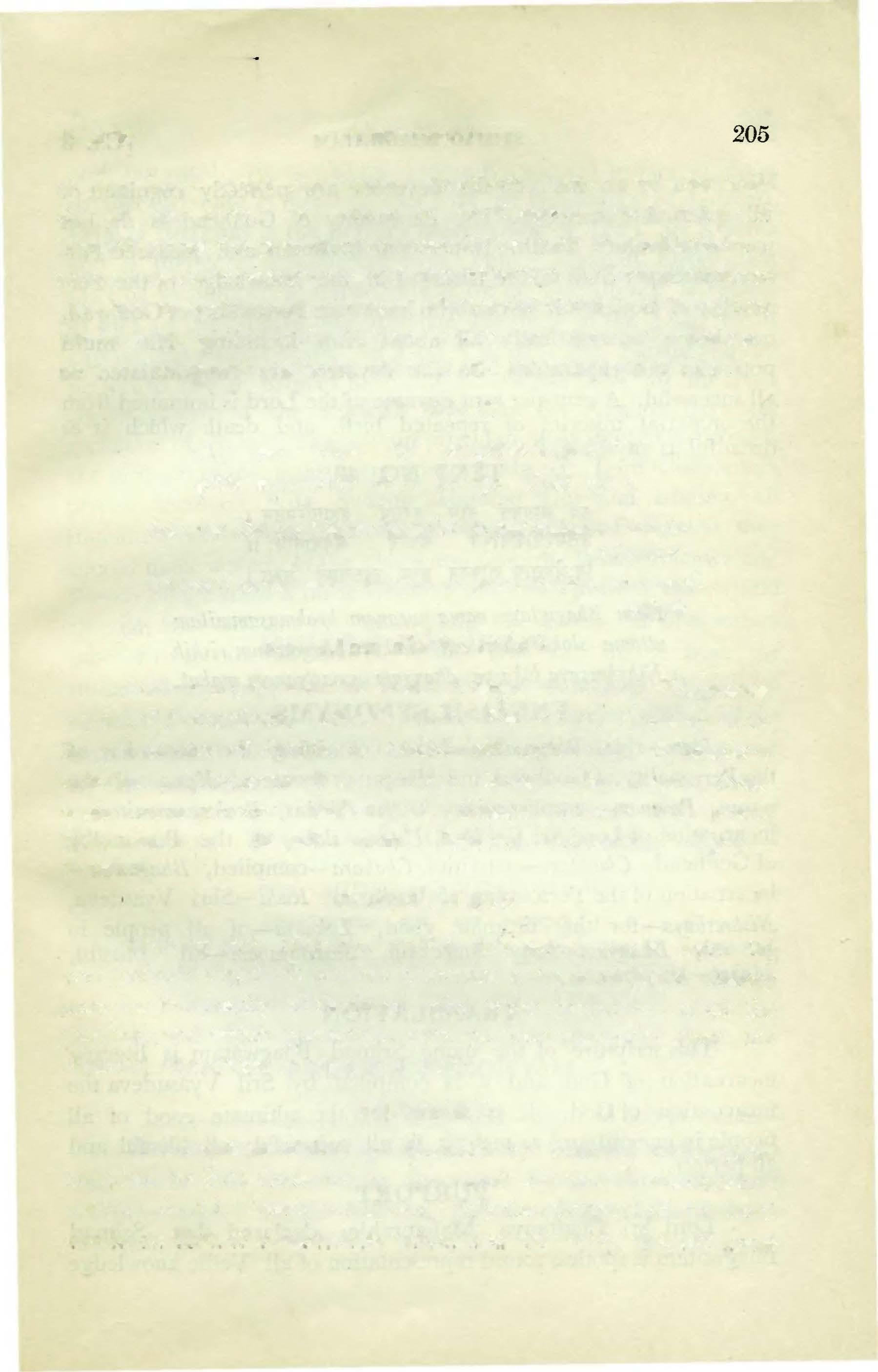
3f�Q: '<:FllT lflT<Fff �c� lf[T���st@�(1f'fi"1T� I �<tfi:a ur.ricJT•Pnc'l'lft;:f or q;; �lf: qf<:crci ;;nr: 11
Atha iha dhanya bhagwanta ithwamyad vasudeva akkila lokanathe
Kurvanti sarvatmatma bhavam nayatra bhuyah parirJartam
ENGLISH SYNONYMS
Atlza-thus, Iha-in this world, Dhatrya�successful, Bhagavanta -perfectly cognisant, Ithwam-such, Yad-what, Vasudeve-unto the personality of Godhead, Akhila-all embracing, Lokanatheunto the proprietor ofall the universe, Kurvanti-doesinspire, Sarvatmaka-cent per cent, Alma-spirit, Bhavam-ecstacy, Na-never, ratra-wherein, Bhuyah-again, Parivarta-repeatition, Ugmhdreadful.
TRANSLATION
Thus by such enquiries only in this world one is successful and perfectly cognisant because it invokes a transcendental ecstacy unto the Personality ofGodhead who is the proprietor ofall the universes and which guarantees cent per cent immunity from the dreadful repeatition ofbirth and death.
PURPORT
The enquiries ofthe sages headeed by Sounaka are herewith eulogised by Suta Goswami on the merit of their transcendental nature. As it is already concluded, only the devotees of the Lord can know Him to considerable extent and no body else can know
Text 39] FIRST CANTO 205
ugrah
Him even by an inch so the devotees are perfectly cognisant of all spiritual knowledge. The Personality of Godhead is the last word in Absolute Truth. Impersonal Brahman and localised Paramatma Super Soul all are included in the knowledge ofthe Personality ofGodehead. So one who knowsthe PersonalityofGodhead, can know automatically all about Him including His multi potencies and expansions. So the devotees are congratulated as all successful. A cent per cent devotee ofthe Lord is immuned:from the material miseries of repeated birth and death which is as dreadful as anything.
TEXT NO. 40.
�� +rrrr<n' <rfl::r �"{T<:j �tif'3"f�l1cll{ 1 \3"'a'l1���'fi'<ff<:cf '<�''fiT"{ �rrGTqfrr: 11 frr:�l!'3"r� �;:ft'li�� er�� m�ll'lf<f t:r\?_g: 1


!dam Blzagwtam namapuranam bralzmasammitam
uttama s!oka clzaritam c/zakarablzagawonm ri'ilzilz
Nihslzresaya lokarya dhanyam swastyanam mahat.
ENGLI SH SY NONYMS
!dam-this, Bhagwatam=book containing the narration of the Personality ofGodhead and Hi<> pure devotees, Nama -of the name, Puranam-supplimentary to the Vedas, BrahmasammitamincarnationofLord Sri Krishna, Uttama sloka -of the Personality ofGudhead, C/zaritam-activities, Clzakara-compiled, Bhagawanincarnation ofthe Personality of Godhead, Rislzi -Shri Vyasdeva, Nishreshaya-for the ultimate good, Lokasya-of all people in general, Dha�yam-fully successful, Swastqyanam-all blissful, Mahat all perfect.

TRANSLATION
This scripture of the name Srimad Bhagwatam is literary incarnation of God and it is compiled by Sril Vyasudeva the incarnation c1fGod. It is meant for the ultimate good of all people in general and as such it is all successful, all blissful and all perfect.
PIJRPORT
Lord Sri Chaitanya Mahaprabhu declared that Srimad })hagwatam is spotless sound representation ofall Vedic knowledge
206
3
SRIMAD BHAGWATAM [Ch.
and historical digest. There are only selected history of great devotees who are in direct contact with the Personality of Godead. Srimad Bbagwat is the li terary incarnation of Lord Sri Krishna and is therefore nondifferent from Him. Shrimad Bhagwatam shall be worshipped as respectfully as vve do v. orship the Lord and as such vve can derive the ultimate blessings ofthe Lord by its careful and patient study. As God is all light, all blissful and all perfect so also is Srimad Bhagwatam. \Ve can have all the trans cendental light of the Supreme Brahman Sri Krishna from the recitation of Srimad Bhagwatam provided it is received through the medium ofthe transparent Spiritual Master. Lord Chaitanya's private Secretary Srila Swarup Damodar Goswami advised, all intending visitors who came to see the Lord at Puri, that they should make a study ofthe Bhagwatm from the Person Bhagwatam. Person Bhagwatam is the selfrealised bonafide spiritual master and through Him only one may understand the lessons of Bhagwatam inorder to receive the desired result. One can derive from the studies ofthe Bhagwatam all benefits that is possible to be derived from the Personal presence of the Lord. It carries with it all the transcendental blessings of Lord Sri Krishna as we can expect by His Personal contact.
TEXT NO. 41

m� �TQ:l!rtrr'T Wf11Tclf<ffit en:� 11
���fu�lBTi'fi' �r'{ �t'i ���<fCii!: I
Tad idam grahayamasa sutam atmavatambaram
Sarvaveda itihashanamsaram saram samudhritam.
ENGLISH SYNONYMS
Tad-that, Idam-tms, Grah)'amasha-made to accept, Sutamunto His son, Atmavatam-of the selfi-ealiscd, Varam-most respectful, Sarva-all, Veda-vedic literatures (bcok of knowledge.)

Itihashanam=of all the bistories, Smam-crcam, Samuddhritamtakenout.

Text 411 FIRST CANTO 201
Sri Vyasdeva madethat received byHisson who is the most respectful amongst the self-realised, after taking out the cream ofall vedic literatures and histories (ofthe universe).
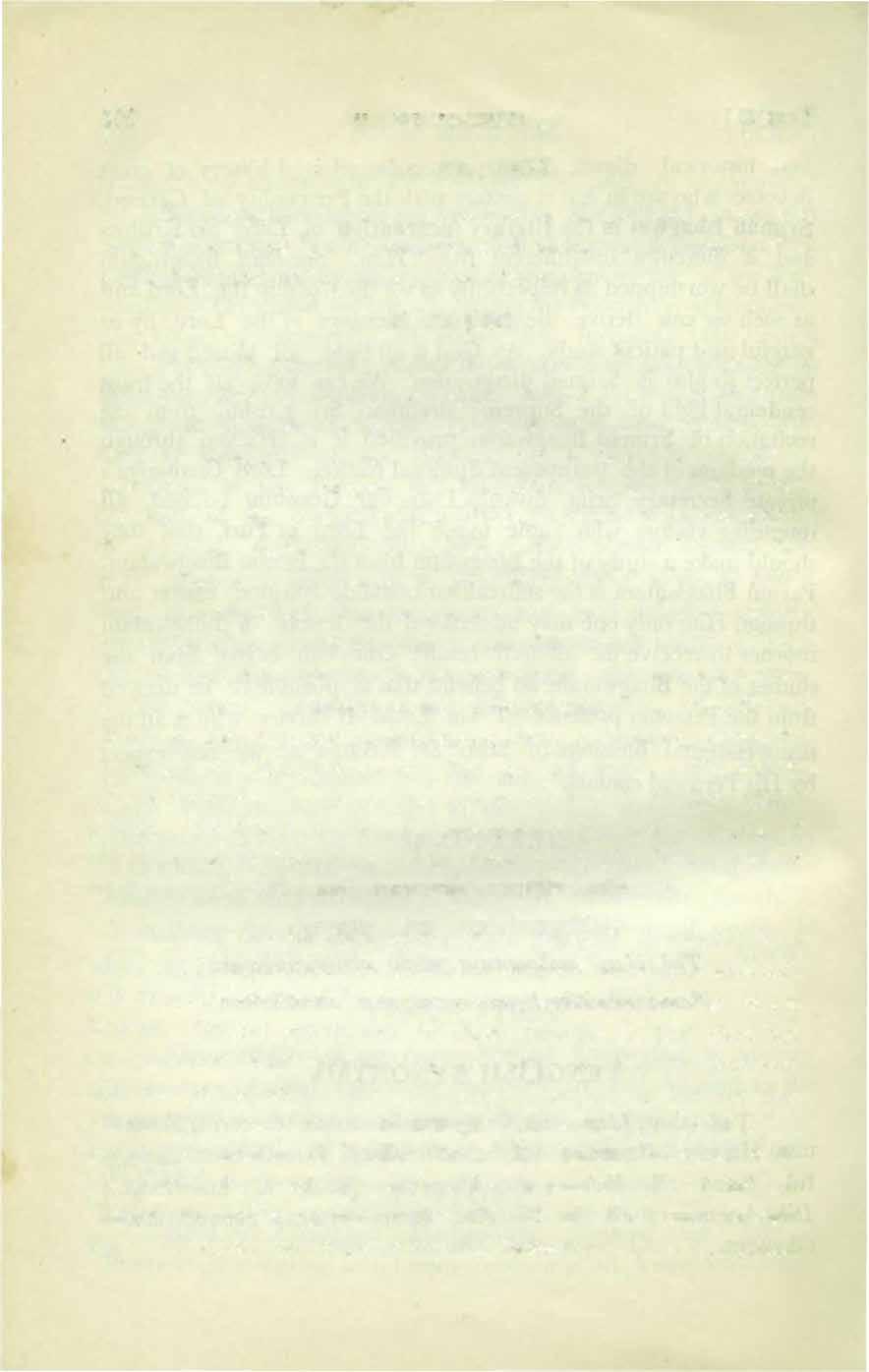
PURPORT
Men with poor fund ofknowledge accept history ofthe world since the time of Buddha or since 600 B. C. and prior to this period all histories mentioned in the Scriptures are calculated by them as imaginary stories. That is not a fact. All the stories mentioned in the Puranas and Mahabhart etc. are actual history not only of this planet but also ofother millions ofplanets within the universe. Some times the history ofother planets beyond this world appear to such men of poor fund ofknowledge, as something nonbelievable. But they do not know that different planets are not equal in all respects and as such some ofthe historical facts derived from other planets do not correspond with the experience of this planet. Consideriag the different situations of different planets as abo time and circumstances, there is nothing wonderful in the stories ofthe Puranas nor they are imaginary. We should always remember the maxim that one man's food is another man's poison. We should not therefore reject the stories and histories of the Puranas as imaginary. The great Rishis like Vyasa had no business to put some imaginary stories in His literatures.
In the Srimad Bhagwatam such selected historical facts taken out from the histories ofdifferent planets have been depicted. It is therefore accepted by all the spiritual authorities as the Maha Purana. Special significance of these histories is that they are all connected with activities of the Lord in different time and different atmosphere. Srila Sukhdeva Goswami is the topmost personality of all the self-realised souls and He accepted as the subject matter of studies from His father Vyasdeva. Srila Vyasdeva is the great authority and the subject matter of Srimad Bhagwatam being equally important, He delivered the message first to His great son Srila Sukhdeva Goswami. It is compared
208 SRIMAD BHAGWATAM [Ch. 3
TRANSLATION
with cream of the mille The vedic literature are like the milk ocean ofknowledge. Cream orbutt eris the most palatable essenceof milk and so also is Srimad Bhagwatam as it contains all platable instructive as well as authentic versions from different activities of the Lord and His devotees. There is no gain, however, in accepting the message of Bhagwatam from the unbelievers, atheists and professional recitors who make a trade of Bhagwatam for the laymen. It was delivered to SriJa Sukhdeva Goswami and He had nothing to do with Bhagwat business or to maintain family expenses by such trade. Srimad Bhagwatam should therefore be received from the representative ofSukhdeva, who must be in the renounced order oflife without any family encumbrance. Milk is undoubtedly very good and nourishing food and drink. But when it is touched by the mouth of a snake the milk is no longer nourishing rather it is the prima�facie source ofdeath. Similarily those who are not strictly in the Vaishnava discipline should not make a business of this Bhagwat and shall become the cause of spiritual death for so many hearers. In the Bhagwat Geeta the Lord says that the purpose ofall the Vedas is to know Him (Lord Krishna) and Srimad Bhagwatam is Lord Sri Krishna Himself in theform ofrecorded knowledge. Therefore, it is the cream ofall the vedas and because it contains all historical facts ofall times in relation with Sri Krishna, it is factually the essence ofall histones.
TEXT NO. 42
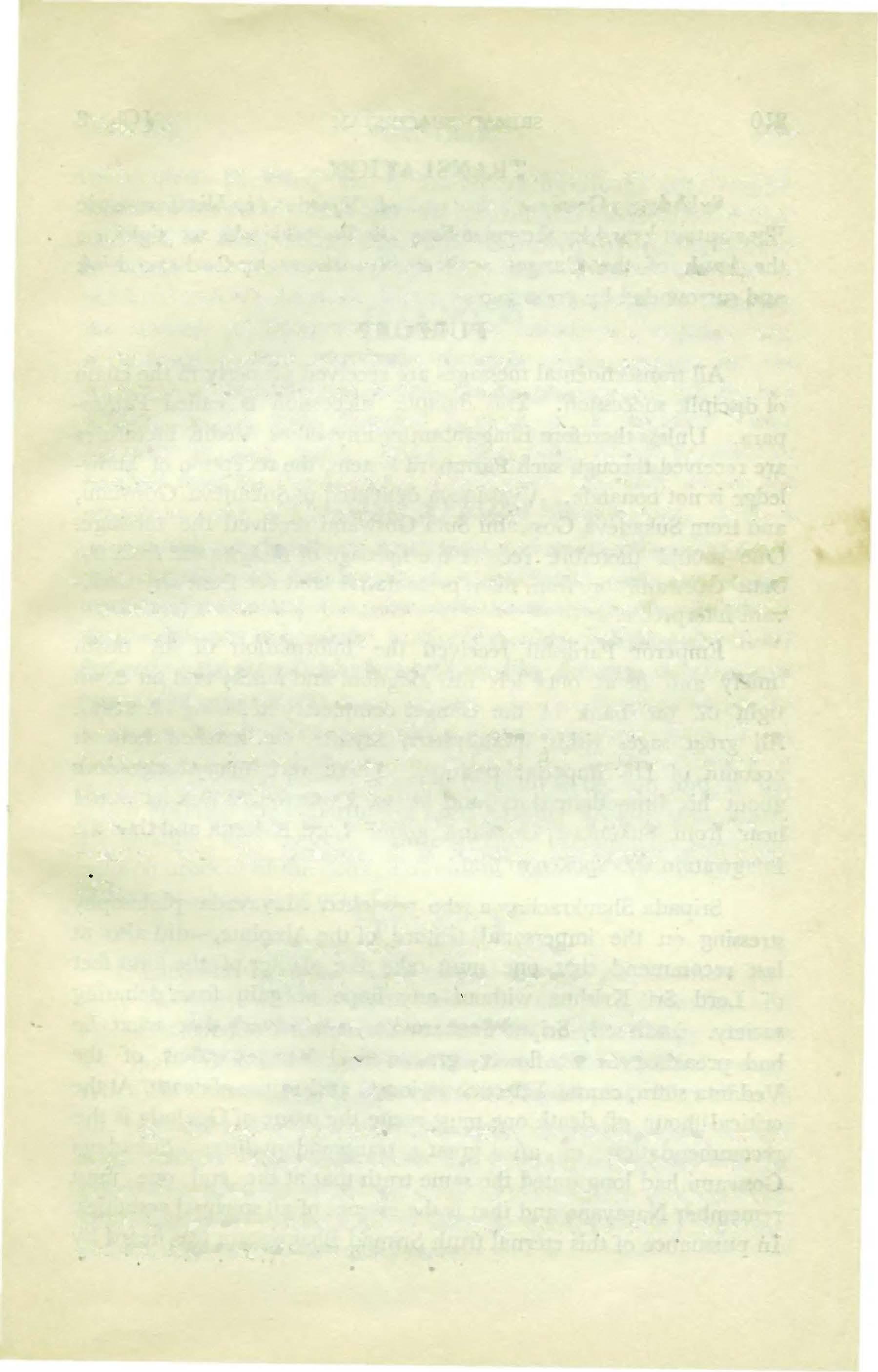
� g �15frGfliTiirn �ru;;J qUf�al{ 11
ooqf�i ifrrr�:�t tn:ra' tJ"{trfqf�: 1
Sa tu samshrvayamasa maharajam Parikshitam
Prayopavistam gongayam paritam paramarsivish
ENGLISH SYNONYMS.
Sa-the son ofVyasdeva, Tu-again, Samshrvoyamasha-made them audible, Maharajam -unto the Emperor, Parikshita-ofthe name. Prayopavistam-who sat until death without any food and drink, Gangayam-on the bank ofGanges, Paritam-being surrounded by, Paramarsivih-by great sages.
Text 42] FIRST CANTO 209
TRANSLATION
Sukhdeva Goswami the son of Vyasdeva in His turn made Bhagwatam heard by the great Emperor Parikshit who sat tight on the bank of the Ganges untill death without any food and drink and surrounded by great sages.
PURPORT
All transcendental messages are received properlyin the chain of disciplic succession. This disciplic succession is called Parampara. Unless therefore Bhagwatam or any other Vedie literatures are received through such Parmpara system, the reception of knowledge is not bonafide. Vyasadeva delivered to Sukadeva Goswami, and from Sukadeva Goswami Suta Goswami received the message. One should therefore receive the message ofBhagwatam from the Suta Goswami or from his representative and not from any irrelevant interpreter.
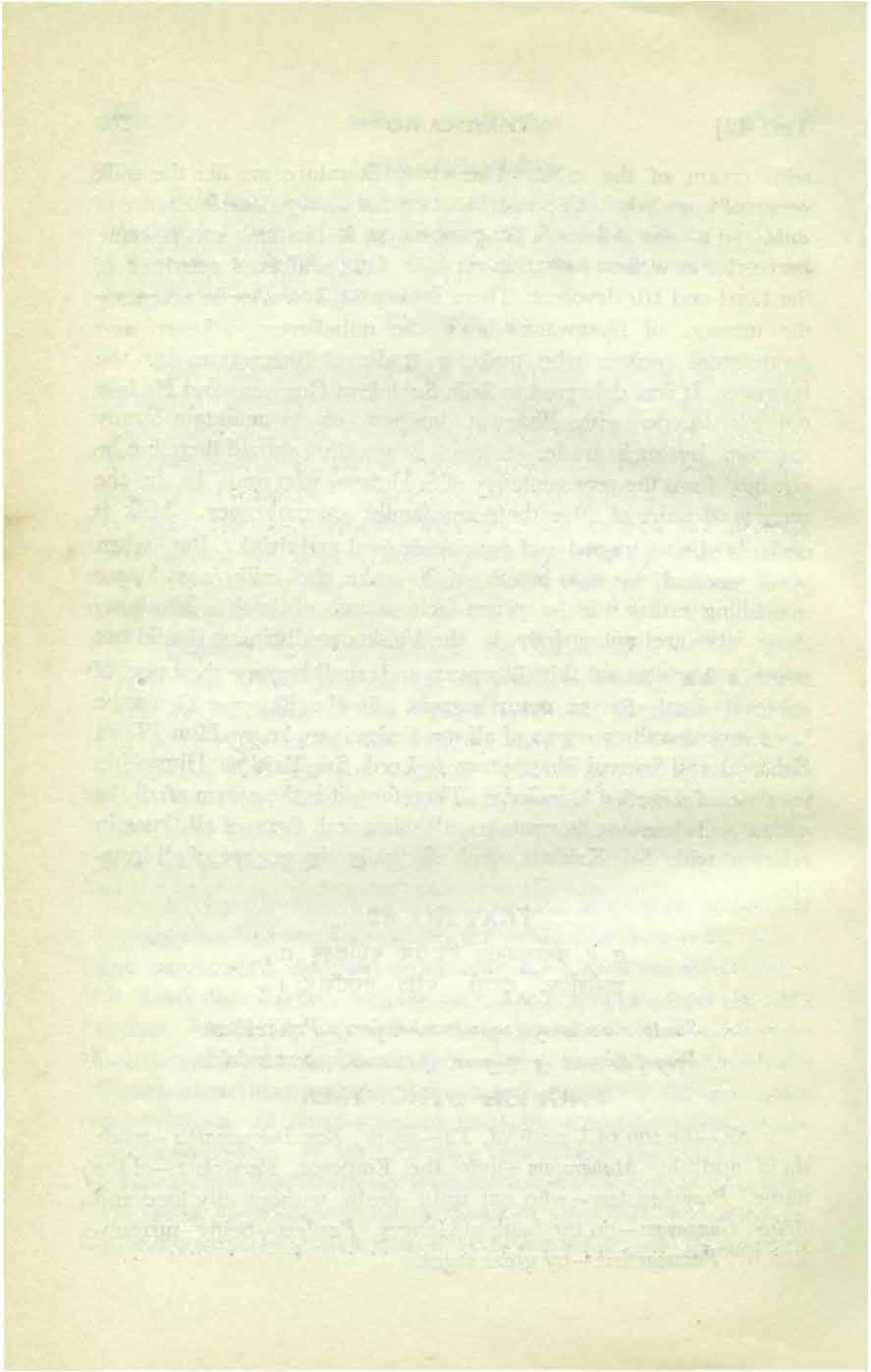
Emperor Parikshit received the information of his death timely and he at once left his kingdom and family and sat down tight on the bank of the Ganges completely in fasting till death. All great sages rishis, philosphers, mystics etc. reached there on account of His imperial position. There were many suggestions about his immediate duty and at last it was settled that he would hear from Sukhdeva Goswami about Lord Krishna and thus the Bhagwatam was spoken to him.
Sripada Shankracharya who preached Mayavada philosophy stressing on the impersonal feature ofthe Absolute,-did also at last recommend that one must take the shelter of the lotus feet of Lord Sri Krishna without any hope of gain from debating society. Indirectly Sripad Sankaracharya admitted that what he had preached in the flowery grammatical interpretations of the Vedanta sutra, cannothelp one seriously atthe time ofdeath. Atthe critical hour of death one must recite the name ofGovinda is the recommendation of all great transcendentalists. Sukadeva Goswami had long stated the same truth that at the end one must remember Naravana and that is the essence ofall spiritual activities. In pursuance ofthis eternal truth Srimad Bhagwatam was heard by
210
3
SRIMAD BHAGWATAM [Ch.
the emperor Parikshit, and it was recited by equally able recitor SukadevaGoswami. And both the speaker and the receiver of the messages of Bhagwatam, were duly delivered by the same one medium. ·
TEXT NO. 43

'li� f"ftrr+r)tr<ra- trll�FITf<�f+r: �� I
Cfi<n't ;:psc::'I�Ti't� �<:TUJTCfiTS�i=f)f<m: II
Krishneswadhamo 'opagate dharmaJnana divisaha
Kalou nastadrisham esha puranarko 'dhuno dittah.
ENGLISH SYNONYMS
Krishne-onKrishna's, Swadhamo-ownabode, Upagate-having returned, Dharma-religion, Jnana- knowledge, Adivi-combined together, Saha=along with, Kalou-in the Kaliyuga, Nastadrishamof the persons who have lost their sight, Esha-all these, Puranarko-the purana which is brilliant like the sun, Adhono-justnow, Uditah-has arisen.
TRANSLATION
The Bhagwat Purana isjust as brilliant as the sun and it has arisen just after the departure ofLord Krishna in His own abode accompanied with religion, knowledge etc. Persons who have lost sight on account ofthe dense darkness of ignorance due to the age ofKali, shall get light out ofit.
PURPORT
Lord Shri Krishna has His eternal dhama or abode where eternally He enjoyswith His eternal associates and parapharnalia. And His eternal abodeis the manifestationofHis internal energy whereas the material world is the manifestation of His external energy. When He descends on the material world He displays Himself with all parapharnalia in His internal potency which is called Atma Mqya. In the Bhagwat Geeta the Lord Says that He descends by His own potency (Atma Maya). His Form, Name, Fame, Paraphamalia, Abode etc. are not therefore creation of the matter. He descends to reclaim the fallen souls and to re-establish codes of
Text 43]
CANTO 2il
FIRST
religion which are directly enacted by Him. Except God no body can establish the principles of religion. Either He or a suitable person empowered by Him can dictate the codes of religion. Real religion means to know God, our relation with Him, our duties in relation with Him and to knowultimately the aim ofour destination after leaving this material body. The conditioned souls who are enwrapped by the material energy hardly know all these principles oflife. Most ofthem are like the animals engaged jn the matter of eating, sleeping, fearing and mating and they are mostly engaged in the matter of sense enjoyment under the pretention of religiosity, knowledge or salvation. They are still more blind at the present age ofquarrel or Kaliyuga. In the Kaliyuga the population isjust a royal edition ofthe animals. They have nothing to do with spiritual knowledge or Godly religious }ife. They are so blind that they cannot see anything beyond the needs ofthe body. They have no information of the spirit soul beyond the jurisdiction ofthe subtle mind intelligence or ego but they are very much proud of their advancement in knowledge, science and material prosperity. They canrisk life for becoming a dog or hog just after leaving the present body and as such theyhave completely lost sight ofthe ultimate aim oflife. The Personality of Godhead Sri Krishna appeared before usjust a little prior to the beginning ofthe Kali Yuga and He returned back to eternal Home practically on the verge ofKali Yuga. While He was present, He exhibitted everything by H.is different activities. He spoke on the Bhagwat Geeta specifically and eradicated all pretentious principles of religiosity. And prior to His departure from this material world He empowered Sri Vyas-adeva through Narada to compile the messcges ofthe Srimad Bhagwatam and as such Both the Bhagwat Geeta and the Srimad Bhagwatamare like the torch bearers for the blind people ofthis age. In other words ifmen in this age of Kali want to see the real light oflife they must take to these two books only and their aim oflife will be fulfilled. Bhagwat Geeta is the preliminary study of the Bhagwatam. And Srimad Bhagwatam is the summumbonum oflife, Lord Sri Krishna personified. We must therefore accept Srimad Bhagwatam as the direct represen-
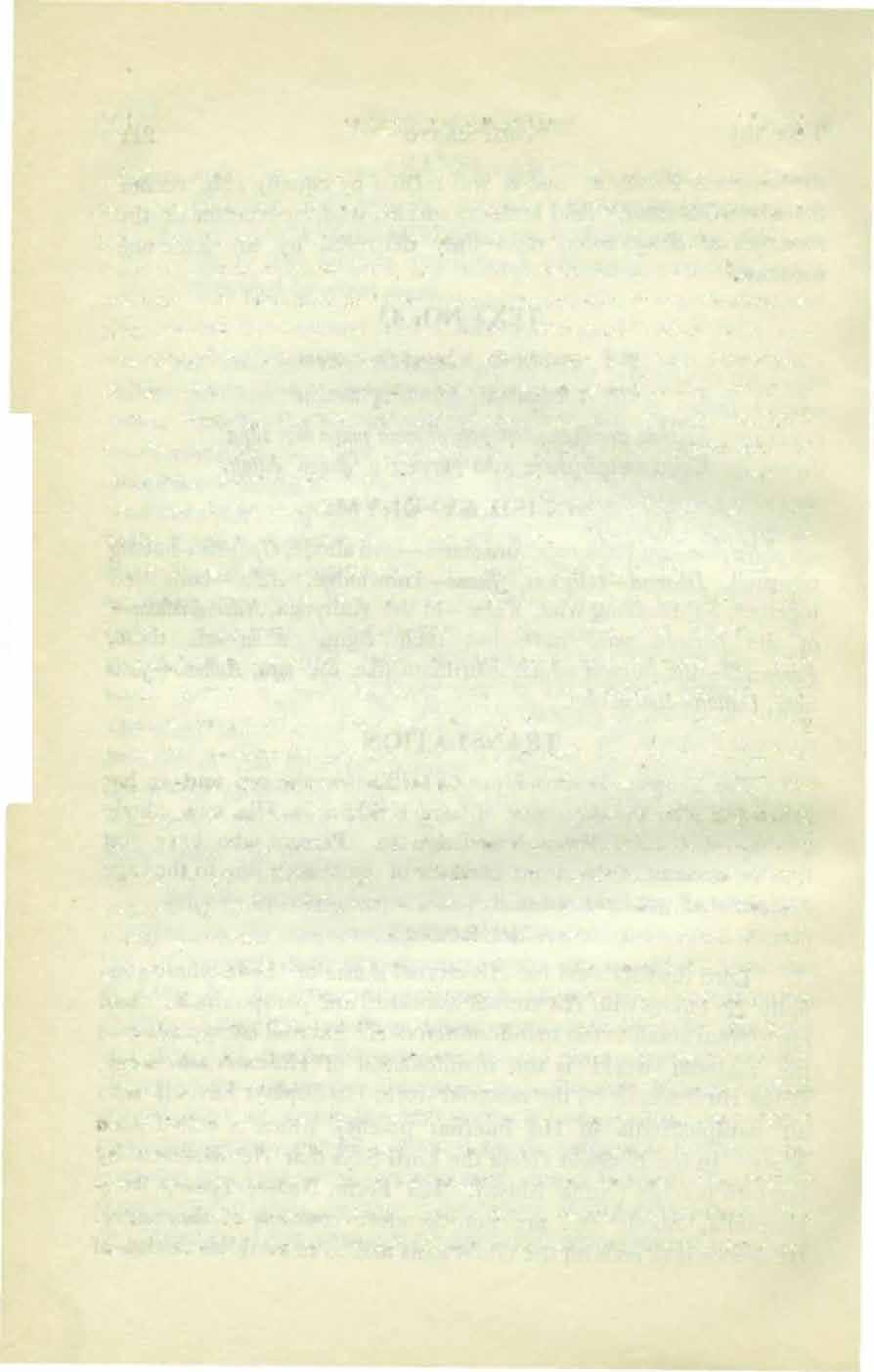
212 SRIMAD BHAGWATAM [Ch. 3
tation ofLord Krishna. One who can see Srimad Bhagwatam can see also Lord Sri Krishna in person. They are identical.
TEXT NO. 44 cr;r Cfi')cfzrcrr f<f5fr f<fsrti\fh:a-:51�: ar� =<rJell'ifq cr;r f;:rfcf'Sc�aG"2;lJ�rq_ 1 �rs� cr: 15frcrfll&rrft:r �l!fr'Ef1a' �l!I"Tt:rfcr 11


Tatra kirttayto vipra viprarshe bhuri leJasah
Aham cha adhyagamam tatra nivista tadanugrahat
So 'ham bah sharvayashyamiyathadhitamyathamatih
ENGLISH SYNONYMS
Tatra-there, Krittayato-while reciting, Vipra-oh the Brahmins, Viprarshe-from the great Brahmin rishi, Bhuri-greatly, Tejashah-power, Aham-I, Cha-also, Adf?.yagamam-could understand, Tatra-in that meeting, .Nivista -being perfectly attentive,Tadanugrahat-by His mercy, So-that the very thing, Bah-unto you, Sharvayaslryami-shall make youhearing, Yathadhitam Yathumati -as far as my realisation.
TRANSLATION
Oh learned Brahmins, while Sukdeva Goswami was reciting Bhagwatam there (in the presence ofEmperor Pariskhit), I was also hearing Himwith rapt attention and as such by His mercy I also learnt it from the great powerful sage. I shalljust try to make you hearing the very same thing as I learnt it from Him and as I have realised it.
PURPORT
One can certainly see directly the presence of Lord Sri Krishna in the pages ofBhagwatam ifone has heard it from a self realised great soul like Sukdeva Goswami. One cannot however learn Bhagwatam from bogus hired recitor whose aim of life is to earn some money out ofsuch recitation and employ the earning in the matter ofsex indulgence. No body can learn Srirnad Bhagwatam who is associated with person engaged in the business of sexlife. That is the secret oflearning Bhagwat. Neither one can
Text 44] FIRST CANTO 213
learn Bhagwatam from one who :interprets the text by his mundane scholarship. One has to learn Bhagwatam from the representative ofSukdeva Goswami and no body else ifat all one has to see Lord Sri Krishna in the pages of the Bhagwat reading. That is the process and there is no alternative. Suta Goswami is a bonafide representative ofSukdeva Goswami because he wants to present the very thing which he had received from the great learned Brahmin. Sukdeva Goswami also presented Bhagwatam as He heard it form His great father and so also Suta Goswami is presenting Bhagwatam as he had heard it fi·om Sukdeva Goswami. Simple hearing is not all; one must realise the text with proper attention. The word nivistha means that Suta Goswami drank thejuice of Bhagwatam through his ears. That is the real process of receiving Bhagwatam. One should hear Bhagwatam with rapt attention from the real person and then only he can at once realise the presence ofLord Krishna in every page of the Bhagwatam. The secret ofknowing Bhagwat is mentioned here. No body can give rapt attention who is not pure in mind. No body can be pure in mind who is not pure in action. No body can be pure in action �who is not pure in eating, sleeping, fearing and mating. But somehow or other if somebody hears with rapt attention Srimad Bhagwatam from the right person and at the very beginning of it one can assuredly see Lord Sri Krishna in person in the pages of Bhagwatam.
Thus end the Bhaldi vedanta Purports ofthe First Canto Third Chapter m the matter of Description of Incarnations of Godhead.


2i4
SRIMAD imAGWATAM [Ch. 3
FouRTH CHAPTER
Appearance of Sri Narada
TEXT NO. 1
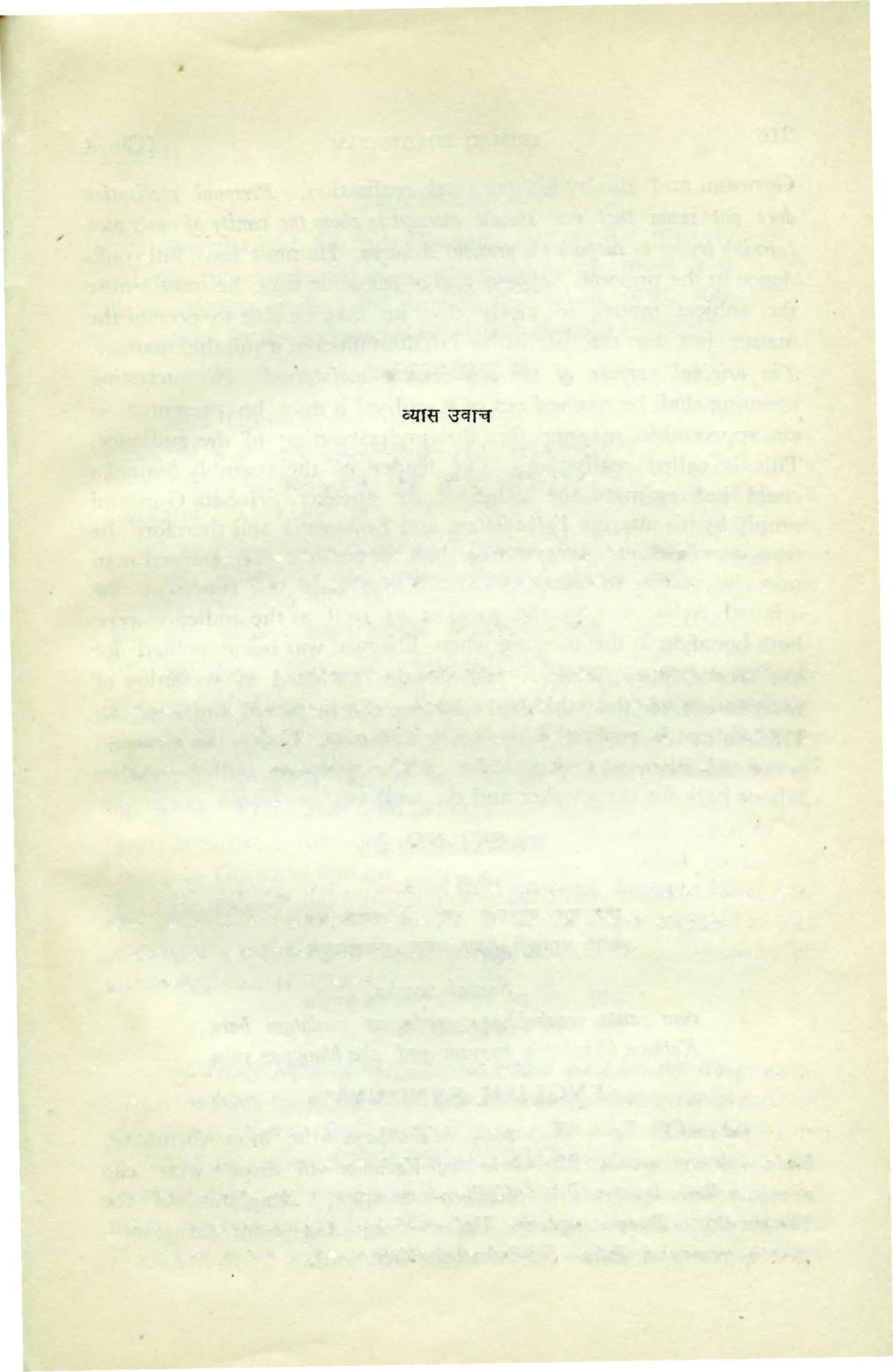
�fa 'if}ff� ��� �;ft;:rt �f'ch:rPn:!JTl{ I
1;g-: ��fa: �ci Gf�'!'<�": m.r<firs'ifcr1·� 11
Jti brubanam samstuya muninam dirgha satrinam
Bridhalz kulapatih sutam bahvrichah sounako 'brabit
ENG LISH SYNONY1\1S
Jti-thus, Brubanam-speaking, Samstuya-congratulating, Muninam-ofthe great sages, Dirgha-prolonged, Satrinam-ofthose engaged in the performance of sacrifice, Briddha-elderly, Kulaptih -head of the assembly, Sutam-unto Suta Goswami, Sounaka-of the name, Abrobit-addressed.
TRANSLATION
On hearing Suta Goswami thus speaking, SounakaMuni who was the elderly and learned leader of all the Rishis engaged in that prolonged sacrificial ceremony congratulated Suta Goswami by addressing him, as follows :
PURPORT
In the meeting oflearned men when there is any congratulation or addres� for the speaker in the meeting, the qualification of such congratulator shall be as follows. He must be the leader of the house and elderly man. He must be vastly learned also. Sri Sounaka rishi represented all these qualifications and thus he stood up to congratulate Sri Suta Goswami when he expressed His desire to present Srimad Bhagwatamas he exactly heard it from Sukadev<:\-
Goswami and also by his personal realisation. Personal realisation does not mean that one should attempt to show the vanity ofone's own [earningtrying to surpass thepreviousAcharya. He must have full confidence in the previous Acharya and at the same time he must realise tho subject matter so nicely that he may be able to present the matter just for the particular circumstances in a suitable manner. The original purpose if the text mustbe maintained. No interesting meaning shall be screwed out ofit and yet it may be presented in an appreciable manner for the understanding of the audience. This is called realisation. The leader of the assembly Sounaka could just estimate the value of the speaker Sri Suta Goswami simply by his uttering Yathadhitam and Yathamatih and therefore he was very glad to congratulate him in ecstacy. No learned man may be willing to hear a person who does not represent the original Acharya. So the speaker as well as the audience were both bonafide in this meeting where Bhagwat was being recited fur the second time. That should be the standard of recitation of Bhagwatam so that the real purpose can be served and Lord Sri Krishna can be realised without any difficulty. Unless this situation is created, Bhagwat recitation for ultirior purposes will be useless labour both for the speaker and the audience.
TEXT NO. 2

�Ti'fCfi 'fCfT'<f
�a- tJ.a tr�Pnrr cr� ;:r) cr�a-t cr� 1 cn!l:ff +TTllCfiiT �ul:lt lf�T� +f'TCff:5'�Cfi: II
Sounak uvacha
suta snta mahabhaga vada no vadatam bara
Katham bhagbatimpunyam yad aha bhagwan suka
ENGLISH SYNONYMS
Suta-Oh Suta Goswami, Mahabhaga -the most fortunate, Vada-please speak, No-unto us, Vadatam-of those who can speak, Bam-respectful. Katham-message, Bhagbatim-of the Bhagwatam, Punyam -pious, Tad-which, Aha-said, Bhagwangreatly powerful, Suka-Sri Sukadeva Goswami,
216 SRIMAD BHAGWATAM [Ch. 4
Sounaka said, Oh Suta Goswami, you are the most fortunate and the most respectful of all those who can speak and recite. Please speak to us the pious message of Srimad Bhagwatam which was spoken by the great powerful sage Sukadeva Goswami.
PURPORT
Suta Goswami is addressed herein by Sounaka Goswami two times out ofgreatjoy because he and the members of the assembly were eager to hear the text ofBhagwatam uttered by Sukadeva Goswami. They are not interested to hear Bhagwatam from a bogus person who interpretes in his own way to suit his own purpose. Generally the so called Bhagwat recitors are either professionaltraders in Bhagwat or they are so called leaned impersonalists who cannot enter into the transcendental personal activitiesof the Supreme Person. Such impersonalists eschew some meanings out of Bhagwat to suit and support the impersonalist views and • the professional traders at once go to the lOth canto to misexplain the most confidential part of the Lord's pastimes. Both these classes of Bhagwat recitors are not the bonafide persons to recite Bhagwat. Only one who is prepared to present Bhagwat in the light ofSukdeva Goswami and only those who are prepared to hear Sukdeva Goswami and his representative are bonafied participants in the transcendental discussion ofSrimad Bhagwatam.
TEXT NO. 3

q;f�lT'{�TrS!"'f\'lli ��if Cfl ifi;:r �g;:H I 2j"a� u::;::;:ftfG:cr: �lSIJf:�err��if�crr11:fo:r: 11

Kasmin yuge pravitteyam st!zane ba kena hetuna
Kutah sanckoditah Krishnah kn"tabam samitham munih.
ENGLISH SYNONYMS
Kasmin--in which, ruge-period, PraV'rftleyam-wasthis begun, Sthane-in the place, Ba-or, Kena--onwhat, Hetuna-ground, Kutah -wherefrom, Sanchoditah-inspired by, Krishna-Krishna Dwai-
Text 3]
CANTO 217
FIRST
TRANSLATION
payana Vyasa, Kritabam-compiled, Samhitam-vedic literature, Munih-the learned.
TRANSLATION
Sounaka enquired in which period this was first begun, at which place it was so done or on what reason this was taken up. \Vherefrom Krishna Dwaipayana Vyas the great sage got the inspiration to compile the literature.
PURPORT
As Srimad Bhagwatam is the special contribution ofSrila Vyasadeva so there are so many enquiries by the learned Sounaka Muni. It was known to them that Srila Vyasdera had already explained the text ofthe Veda in various ways up to Mahabharta for the understanding ofless intelligent women, sudras and fallen members of the family of twiceborn men. Srimad Bhagwat is transcendental to all of them becnuse it has nothing to do with anything mundane. So the enquiries are very intelligent and relevant.

TEXT NO.4
a�:��) Jf�fllllff Uif¥, f<rf<f�qcp: I
�CfiTraiffa�f�s::r �r lJ.� ��11a ''
Tasya putra mahoyogi samadring nirvikalpakah Ekantanwtir unnidro gudlw mudho iba iyate.
ENGI.ISH SYNONYMS
Ta-!)Ja-his, Putro--son, Mahayogi- a great devotee, Samadring -equibalanced, Nirvikalpakah-absolute monist, Ekantomotir-fixed up in monism or oneness by the mind, Unnidro -surpassed over the nescience, Gudho-nonexposed, Afud!w-stunted, lba-like, }yaleappears like.
TRANSLATION
His (Vyasdev's) son was a great devotee equibalanced monist and was always fixed up by his mind in monism. He was transcendental to the mudane activities without being exposed like a stunted iguorant.
218 SRIMAl> BHAGWATAM [Ch. 4
Shrila SukadevaGoswami was a liberated soul and as such he remained always alert not to be trapped by the illusory energy. In the Bhagwat Geeta this alertness of the liberated soul is very lucidly explained. The liberated soul and the conditioned souls have different engagaments. The liberated soul is always engaged in the progressive path of spiritul attainment which is something like dream for the conditioned soul. The conditioned soul cannot imagine what may be actually the engagement ofthe liberated soul. While the conditioned soul thus dreams about spiritual engagements, the liberated soul is awake. Similarly the engagement of a conditioned soul appears to be a dream for the liberated soul. Apparently a conditioned soul and a �liberated soul may seem to be on the same platform but factually they are differently engaged and their attention is always alert either in the matter of sense enjoyment or in the matter of self realisation respectively. The conditioned soul is too much absorbed in matter while the liberated soul is completely indifferent in the details of matter. Howthey are so indifferent is explained as follows.
TEXT NO.5
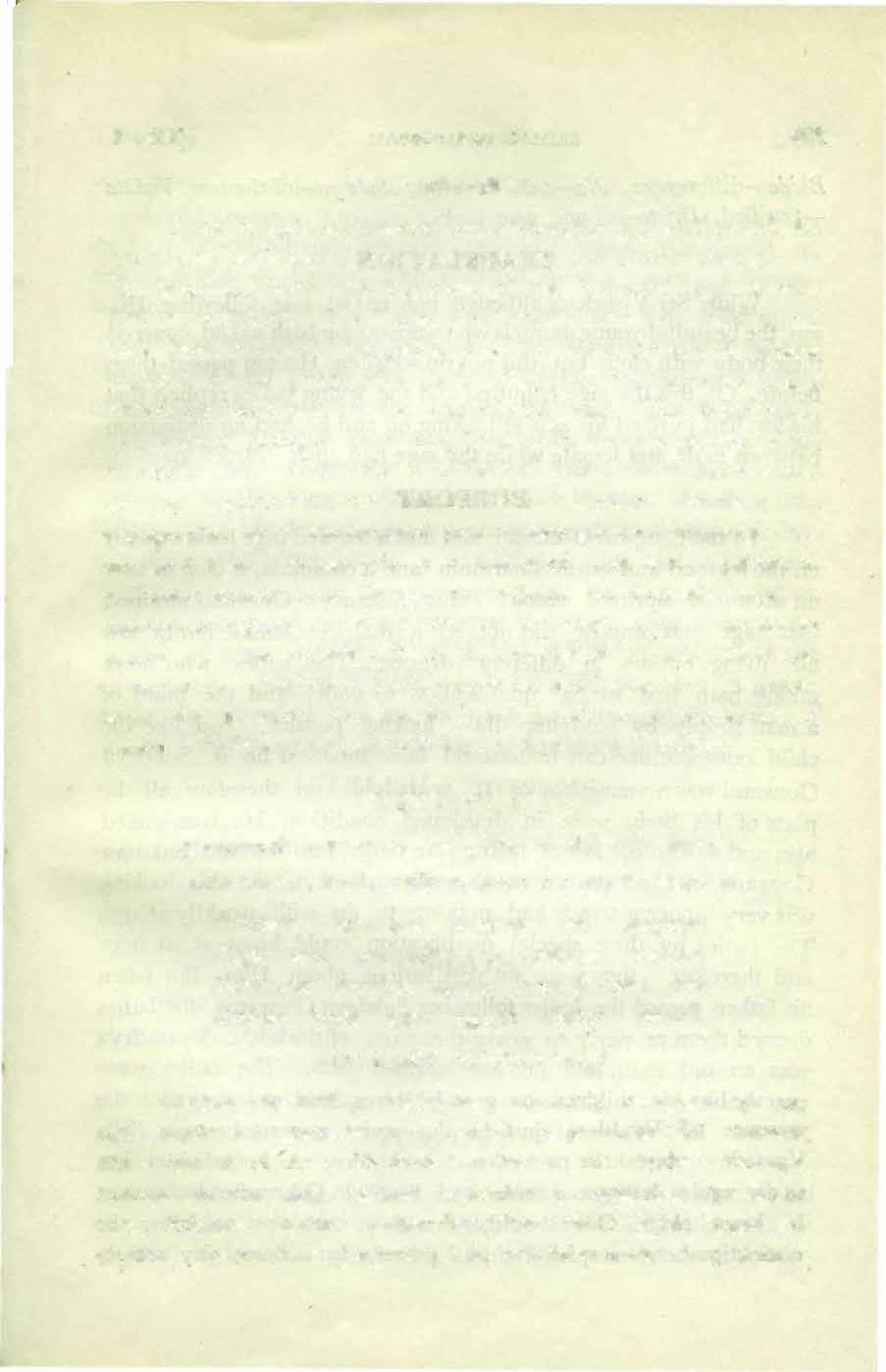
��T�}'.JT�ft'fJ.TJ'CiTGf11tl:f'fr.f �;lJ) f-glfT qf�;:,::�;l �lf f'ip!'i{ I
crifte:zr 'l:;;�fcr l};'�'T ;;r�a"'Tf�cr f'!fr�f�-.r<.::r ;:r � �zr fcrfcrCfa�'� 11
Dristwa anUJantan atamjam api anagnam
Devyo hria paridadhur na sutasya chitram
Tabikshya prichhati munou Jagaduh taba asti
Stripum bhida natu sutasya vivikta dristeh.
ENGLISH SYNONYMS
Dristwa-by seeing, anuyantam-foJlowing, atmaJam-his son, api-inspite of, anagnam-not naked, del:'YO-beautiful damsels, Hria-out of shyness, Paridadhur-covered the body, Na-not, Sutarya-of the sons, Chitram-astonishing, tadbikshya-by seeing that, Priclzhati-asking, munou-unto the lV1uni (Vyas) Jagaduhrepliecl, Taba-your, Asti-there is, Stripum-male and female,
Text 5] FIRST CANTO 219 PURPORT
Bhida-differences, Na-not, Tu-but, Suta.rya ofthe son, Vivikta -purified, Driste-ofone who looks.
TRANSLATION
While Sri Vyasdeva although not naked was following His son,thebeautiful youngdamsels who were taking bathnaked, covered their body with cloth but did·not do so when His son passed them before. On this the sage enquired and the young ladies replied that his son had purified his acts oflooking on and he had no distinction between male and female while the sage had such distinction.
PURPORT
In the BhagwatGeeta itissaidthat alearned sage looks equally on thelearned and gentle Bharhmin and a chandala, a dog or cow on acount of sipritual vision. Srila Sukadeva GoS\vami attained that stage and thus he did not see a male or female but he saw all living entities in different dresses. The ladies who were taking bath had special qualification to understand the mind of a man simply by studying the looking posture. Just like the child looks and one can understand how innocent he is. Sukdeva Goswami was a young boy of 16 years old and therefore all the parts of his body were in developed condition. He was naked also and so also the ladies taking the bath. But because Sukdeva Goswami was in transcendental position ofsex relation his looking was very innocent which had nothing to do with worldly affairs. The ladies by their special qualification could know it at once and therefore they were not \'ery serious about Him. But when his father passed the ladies following Sukdeva Goswami, the ladies dressed them properly to coverthe parts ofthebody. Vyasadeva was an old man and he was dressed also. The ladies were exactly like his children or grandchildren and yet they took the presence of Vyasdeva just in the social custom because Srila Vyasadeva played the part of a householder. A householder has to distinguish between a male and female. Otherwise he cannot be householder. One should, therefore, attempt to know the distinction between spirit and soul practically without any attach-

220 SRIMAD BHAGWATAM [Ch.. 4
ment for male and :fumale affinity. So long such affinity is there one should not try to become a 'Sanyasi' like sukdeva Goswami. At least theoritically one must be convinced that a living entity is neither a male or female. The outward dress is made of matter by the material nature to attract the opposite sex and thus keep one entangled in the material existence. A liberated soul is above this perverted knowledge and he has nothing to distinguish from one living being to another. For him they are all one and the same spirit. Perfection of this spiritual vision is liberated stage and Srila Sukadeva Goswami attained that stage. Srila Vyasadeva was also in the transcendental stage but because he was in the householder's life, he did not pretend to become a liberated soul as a matter of custom.
TEXT NO. 6.
Cfi��r�f�Ra: q-"t{: �HfTta: ��\JfTlf�T"t I \3"rtf'Cf�Cfi\Jf�Cff["f<:"( lf\iffiT�ll II

Katham alakshitah pouro'ih sampraptah kurujangalan

Unmatta muka yada bat viclzaran gayasalwaye
ENGLISH SYNONYMS
Katham -how, alakshitah-recot,rnised, pouroik--by the citizens, sampwptah -reaching, kurujanglan-provinces of the name, unmatta-mad, muka -dumb,jadabat-stunted, viclzaran-wondering gajasahvaye-name with perfix ofgaja (elephant).
TRANSLATION
How He (the son of Vyasa) was recognised by the citizens when he entered the city ofHastinapur (nowDelhi) after first wondering in the provinces of Kuru and Jangal, appearing like a mad man dumb and stunted.
PURPORT
The present city of Delhi was formerly known as Hastinapur on account ofits first being established by the King Hasti, Goswami Sukdeva after being out ofHis paternal home was roaming like
.. I • a Text 6] FIRST CANTO 221
amad man dumb and stunted and therefore it was very difficult for the citizens to recognise Him in His exhalted position. A sage is not therefore recognised by se<"ing but he is recognised by .hearing. One should approach a Sadhu or great sage not for seeing but for hearing him. If one is not prepared to give an aural reception to thewords ofa Sadhu there is no change or gaining anything from such Sadhu. Sukdeva Goswami was a Sadhu who could speak on transcendental activities of the Lord. He was not for satisfying the whims ofordinary citizens. He was recognised when He spoke on the subject of Bhagwatam and He never attempted to make show ofjugglery like magician, chemist or physician. Outwardly He appeared to be a stunted dumb mad man but in fact He was the most ele\ated transcendental personality.
TEXT NO. 7
<fi� qr qm�tRlf 'U�Ffi'I'T �� I ucrr�: ��um lf;;fi'IT mccffit �fa-: 11
Katham ba pandavayasya rajrsher muninasaha Sambadah samabhutlatayatra eshasatwatishrutih.
ENGLISH SYNONYMS
Katham-how itis, ba -also, pandavayas;·a-ofthe descendant of Pandu (Parikshit) raJarshe-of the King who was a sage, muninawith the Muni, saha -along, sambadah -discussion, samabhut-took place, tala-darling, yatra-where upon, esha-Iike this, Jatwatitranscendental, shrutih-essence ofthe Vedas.
TRANSLATION
How it so happened that King Parikshit met the great sage and thus the great transcendental essence ofVedas (Bhagwatam) was possible to be sung by Him.
PURPORT
Srimad Bhagwatam is stated here as the essence of the Vedas. It is not imaginary story as it is sometimes remarked by

222 SRIMAD BHAGWATAM [Ch. 4
unauthorised men. It is also called Sukasamhita or the Vedic hymn spoken by Sri Sukdeva Goswami the great liberated sage.
TEXT NO. 8

tT rr)�)�<Tlfl:;f f� ��'! �Q:itft-T<TTl{ 1
arif�a- lf�PTTfl�afl!:fT�cf·�a-�r�+rli 11 ..
Sa godahanmatram hi grihesu grihamedhinam
Avekshate mahabhagah tirthi kurvan tadashramam.
ENGLISH SYNONYMS
Sa-he (Sukdev Goswami), godalwnmatram-only for the time ofmilking the cow, hi-certaiuly, grihesu-in the house of, grilzamedlzinum-of the householders, avekshate-waits, mahabhagah-the most fortunate, tirthi-pilgrimage, kurvan-transforming, tadaslzramam-the residence.
TRANSLATION
He is accustomed to stay at the door ofthe householder only for the time ofmilking the cowjust to sanctify mch residence.
PlJRPORT
Sukdeva Go&wami met the Emperor Parikshit and explained before him the text of Srimad Bhagwatam. He is 110t accustomed to stay at any householder's residence formore tha11 half an hour atthe time ofmilking the cowjust to take alms from such fortunate householder. That was also for the purpose of sanctifying the residence by His auspiciOus presence. Therefore Sukdev Goswami is an ideal preacher and established in the transcendental position. Form His activities those, who arc in the renounced order of life and dedicated to the mission oC preaching the message of Godhead, should learn that such persons h_a,,c no business with the householders save and except to enlighten them in transcendental knowledge. Such missionary's asking for alms from the householder should be for the purpose ofsanctifying the place. One who is in the renounced order oflife may not be allured by the glamour of the householder's worldy possessions and thus become subservient
I I Text 8]
CANTO 223
FIRST
ofsuch worldly man. This degraded position of one, who is in the renounced order oflife, is much more dangerous than drinking poison and commit suicide.
TEXT NO.9
arflfll��a' �cr srr��T'TcrciTull+r_ 1
Cftlf "frlllfQ:T�'"flf Cf1lrif{!J :q ��f� i'f: II
Abhimanyu sutam suta prahur bhagabatottamam

Tasyajanma mahashcharyam karmani cha grinihi nah.
ENGLISH SYNONYMS.
Abhimanyusutam-the son of Abhimanyu, Suta-oh suta, Prahur-is said to be, Bhagatottamam-the first class devotee of the Lord, Ta.rya-his, Janma-birth, Karmani-activities, mahashcharyam -very much wonderful, Cha-and, •Grinihi-please speak to, Nah-us.
TRANSLATION
It is said that l\1aharaj Parikshit is a great devotee of the Lord in the first grade and his birth and activities are all wonderful. Kindly speak to us all about him.
PURPORT
The birth ofMaharaj Parikshit is wonderful because in the womb ofhismother he was protected by the Personality ofGodhead Sri Krishna. His activities are also wonderful because he chastised thekali who was attemptingfirst to kill cow. To kill cow means ending human civilization. He wanted to protect the cow from being killed by the great representative of sin. His death is also wonderful because he got previous notice of his death which is also wonderful for any other mortal being, a�d thus he prepared himselffur passing away sitting down tightly on the bank ofthe Ganges and hear the transendental activities of the Lord. For all the days he heard Bhagwat, he did not take food or drink nor did he sleep for a moment. So everything about him is wonderful fur the common man and they are worth hearing
224
[Ch. 4
SRIMAD BHAGWATAM
Text 10]
FIRST CANTO
attentively. The anxiety is expressed herewith to hear about him in details.
TEXT NO. 10.
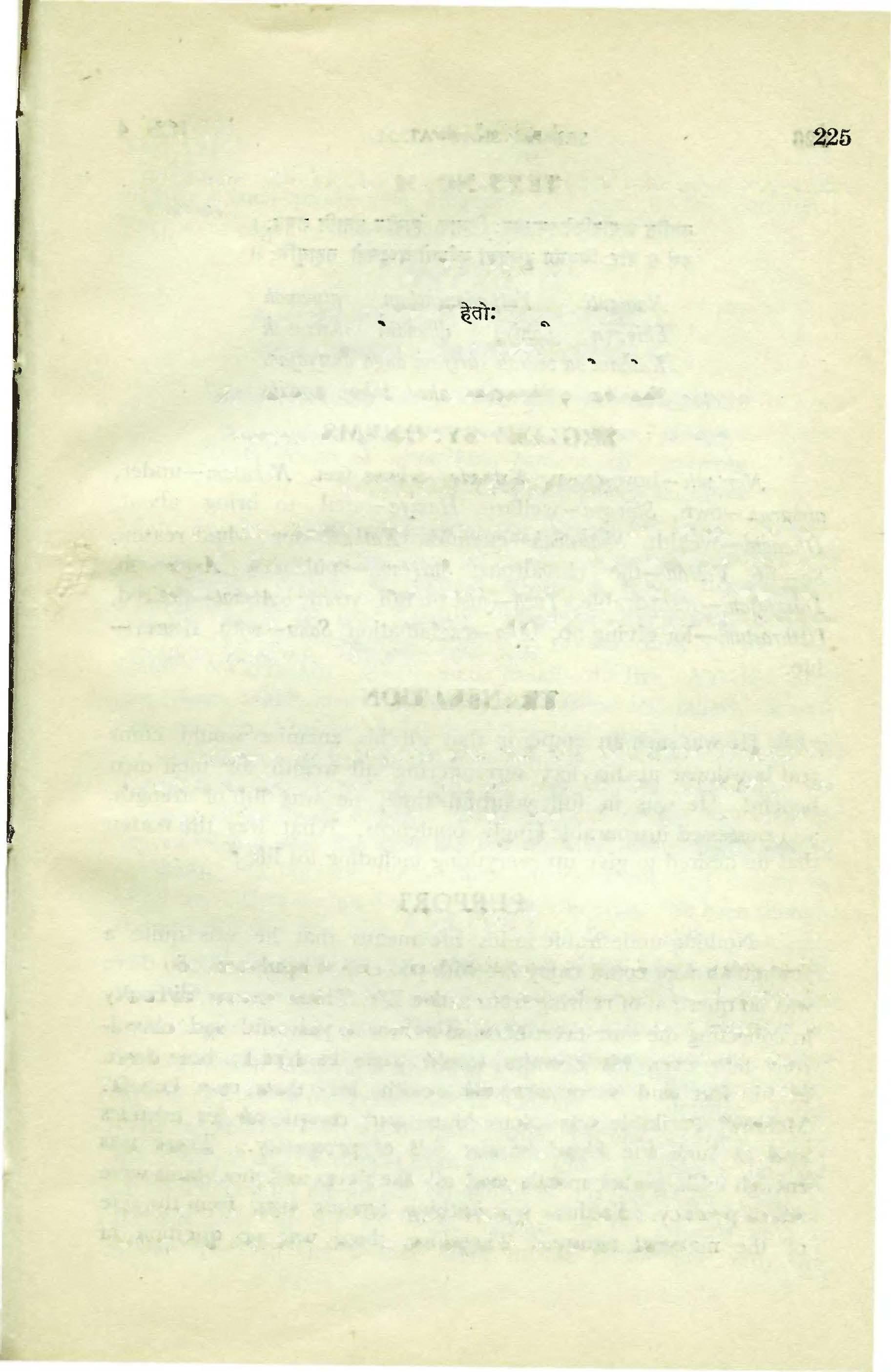
ij' �nne CliFf <n •nOGoltm<rc�efrr: 1 .. "' mzftqfcps�) riorFfJ+ATiWrrfquof� II .. "
Sa Samrot kasya ba hetohpandunam manavardhanah Prayopavisto gangayan anadritya dhirat shriayam.
ENGLISH SYNONYMS
Sa-he, Samrat-the Emperor, Ka.v'a-for what, Hetohreason, Pandunam-ofthe sons of Pandu, Manavardhana-one who enriches the family Prayopavista-sitting in fasting, Gangayamon the bank of the Ganges, Anadritya-neglecting, Dlziratacquired kingdom, Shrryam-opulences.

TRANSLATION
He was a great Emperor and had the opulences ofacquired Idngdom as also he was so exhalted that he was increasing the prestige ofthe Pandu dynesty. What was the reason that he gave up everything and sat down on the bank of the Ganges fasting till death.
PURPORT
lVIaharaj Parikshit was the Emperor ofthe world with all the seas and oceans and he had not got to take the trouble ofacquiring such kingdom by his own effort. He acquired such vast kingdom inheritedfromhisgrandfathersMaharajjudhisthirand brothers. Besides that he was doing well in the administration worth the good name ofhis forefathers and as such there was nothing undesirable in the matter of his opulence and administration. Then whyshould he untimely give up all these favourable circumstances and sit down on the bank ofthe Genges fasting till death. This is astonishing and therefore they were eager to know the cause.
SRIMAD BHAGWATAM
TEXT NO. 11

<r+rfia tr�lfl�f;riiticr�e+r::r: f�crFr �FfTll' �::rrf;r�,r<r: 1
q>� � eft�: fP..Ttr+fiT �lO'�:srf �<fqq)��t�� ��T�f"+f: II
Namanti 'Yatpadaneketam atmanah
Shivaya hamJ'a dhanani shatravah
Katham sa veerah shriyam anga dusty•aJam
ruvaiba utshrastum aho saha asuvih.
ENGLISH SYNONYMS
[Ch. 4
Namanti-bow �own, ratpada-whose feet, Nekatam-under, atmanah-own, Shivaya -welfare, Haniya -used to bring about, Dhanani-wealth, Shatravah-enemies, Katham-for what reason, Sa-he, Veerah-the chivalrous, Shriyam-opulences, Anga- oh, Dusryajam-inseparable, Yuva-just in full youth, Aishat-desired, Utshrastum-for givingup, Aha-exclamation, Saha-with, Asuvihlife.
TRANSLATION
He was sueh an emperor that all his enemies would come ;md bowdown at his feet surrendering aU wealth for their own benefit. He was in full youthful time, he was full ofstrength, and possessed inseparable kingly opulences. vVhat was the reason that he desired to give up everything including his life?
PURPOR1
Nothing undesirable in his life means that he was quite a youngman who could enjoy life with power and opulence. So there was no question of re6ring from active life. There was no difficulty in collecting the state taxes because he was so powerful and chivalrous that even his enemies would come to him to bow down at his feet and surrender all wealth for their own benefit.
Ivfaharaj Parikshit was pious king and conquered his enemies and as such the kingdom was full of prosperity. There was enough milk, grains, metals and aU the rivers and mountains were full ofpotency. So there was nothing against even from the side of the matt:r.i.al nature. Therefore, there was no question of
226
giVmg up such prospective kingdom and giVe up life untimely. They '"'ere eager to hear about all these.
TEXT NO. 12

f�crr<r �)�1:1' �� �i:J'lf � �'alf��T'fitf�T<rTITT \if'ifT: I
Gftcrf•a- ;:rrc;rr�lfur q�r�<.fTJT'Cffo:rfcro�: iii�<��� 11
Shivaya lokasy•a bhavay•a bhutayae J'a uttamasloka
parayana
Janah jivanti na atmartham parashraJ•am mumocha
'�'l ·rvidya kutah kalevaram
ENGLISH SYNONYMS
Shivaya-welfare, Lokasya-of all living being, Bhavaya-for flourishing, Bhutaye-for the matter ofeconomic development, raone who is, Uttamaslokaparayan -devoted to the cause of the Personality ofGodhead. Janah-men, Jivanti-do live, .Na-but not, Atmartham-selfish interest, Parashry•am-shelter for others, Mumocha-gave up, .Nirvidya-being freed from all attachment, Kutohfor what reason, Kalevaram-mortal body.
TRANSLATION
Those who are devoted to the cause ofthe Personality of Godhead, live only for the welfare, development and happiness ofothers. They do not live for any selfish interest. So even though the emperor w-as free from all attachment for worldly possession how could he give up his mortal body which was the shelter for all others.
PURPORT
Parikshit Maharaj is an ideal king and householder because he was devotee ofthe Personality of Godhead. A devotee of the Lord has automatically all the good qualifications desirable. And the Emperor was an typical example for this. Personally he had no attachment for all worldly opulences in his possession. But as he was king for the all round welfare of the citizens he was always busy in the welfare work of the public not only for
Text 12] FIRST CANTO 227
this life but also for the next. He wonld not alow to maintain slaughter house of killing cow and thus satisfy the citizens. He was not a foolish and partial administrator so that h� would arrange for the protection of a class of living being and he would allow the other section to be killed. Because he was the devotee ofthe Lord he knew perfectlywell how to conduct the admi..'l.istration for every one's happiness both men, animal, plants and all leaving creatures. He was not selfishly interested. Selfishness is displayed either self centered or self extended. He wasneither ofthem. His interest was to please the Supreme Truth Personality ofGodhead. The King is the representative ofthe Supreme Lord and as such the king's interest must be identical with that of the Supreme Lord. The Supreme Lord wants that all living being should be obedient to the Lord and thereby become happy. Therefore the Kings interest is to guide all su�jects back to the kingdom of God and hence the activities of the citizens shall be so coordinated that they can at the end go back to horne, back to Godhead. Under the administration of such representative king the kingdom is full ofopulence. At that time the human being need not to take the animal food. There is ample food grains, milk, fruit and vegetables so that the human being as well as the animal all can take sumptuously and to their heart's content. All the living beings satisfied in the matter offood and shelter and conducted in terms ofthe prescribed rules, there cannot be any disturbance between one living with another. Emperor Parikshit was such a worthy king and therefore all were happy during his reign. TEXT NO.
Tat-that, Sarvam-all, .Nah-unto us, Samchakshwa-clearly explain, Pristo-questioned, Yadiha-berein, Kinchna-all that,

228 SRIMAD BHAGWATAM tch. 4
l3 cm:rci· o:r: �r'ife-cr 'l�) :zrf�� f<fiS=:;:rrr 1 :q;:zt �T feyql[ <!ff''f'T FTTQ":q;::zr'5f �F�«m II ... Tat sarvam nah samachaksmoa pri:.toyadiha kinchana Ma'!Ye twam vishaye vacham snatam anJ•atra chhandasat
ENGLISH SYNONYMS
Manye-we think, Twam-yourself, Vishl!J•e-inallsubjects, Vachammeanings of words, Snatam--fully acquainted, Arryatra ·-except, Chhandasat-portion ofthe vedas.
TRANSLATION
We know that you are expert in the meaning of all subjects except some portions of the Vedas and as such you can clearly explain all answers for all questions that we have made herein unto you.
PURPORT
The difference between the Vedas and the Puranas is like that of the Brahmins and the Paribrajkas. The Brahmins are meant for ministering some fruitive sacrifices mentioned in the Vedas but the -Parimjakacha1)•as or the learned preachers are meant for disseminating transcendental knowledge to one and all in the general way. As such the Paribrajakacharyas are not always expert in pronouncing the Vedic Mantras which are practised systematically in terms ofacent and meter by the Brahmins who are meant for ministering Vedic rites. And for that reason it should not be considered that the Brahmins are more important than the itinarary preachers. They are one and different simultaneously because they arc meant f(x the same end in differentways.
There is no difference also between the Vedicmantras and the same explained in the Puranas and Itihasa. According to Srila Jiva Goswami it is mentioned in the MadhJ•andin Sruti that all the Vedas namely the Sarna, Athrva, Rig, Yaju, Puranas, Itihasas, Upanishat etc. all areemanations from the breathing of the SupremeBeing. The only difference is that the Vedic mantras are mostly begun with Pranava '0mkar and it requires some training to practise the metric accent without 'vhich the mantras are not successfully pronounced. Srila Suta Goswarni was a preacher of the first order although he did not bother much about practising the metric pronounciation ofthe Vedic !vfantras. But that does not mean Srimad Bhagwat was of less importance than the Vedic Mantras. On the other hand itis the ripen fruit of all the Vedas

Text 13] FIRST CANTO 229
as it has been explained hereinbefore. Besides that the most perfect liberated soul Srila Sukdev Goswami is absorbed in the Studies ofthe Bhagwatam although He is already a self realised soul. Srila Suta Goswami is following the foot prints of the Same liberated soul and therefore his position i8 not the least less imP?rtant because he was not expert in chanting Vedic mantras w1th systematic metric pronounciation which depends more on the practice ofthe chanter than actual realisation. Realisation is more important than parrot like chanting.
TEXT NO. 14.


�Q ;:TCJ'Ji'r c, f:Tq� �51'Ttff �fffij" �qqzjij" t ma-: crom:rmm crnroqt <fi'Wlff ��="

Suta uvacha
Dwapare samanuprapte tritiya J'Uga paryaye Jatah parashardyogi hasahyam kalaya llllreh.
ENGLISH SYNONYMS
Suta-Suta Goswami, Uvacha-said, Dwapare-in the second millennium, Samanuprapte-on the adventof, Tritrya-third, rugamillennium, Paryqye-in the place of, Jatah-was born, Parasluuul -by Parashara, Yogi-the great sage, Basahyam -in the womb of the daughter ofBasu, Kalaya-in the plenary portion of, Hareh=of the personality ofGodhead.
TRANSI.ATION
Suta Goswami said "\Yhen there was an overlapping of the second millenniumin thethird, atthat timethe greatsage (vyasdeva) was born by Parashara in the womb of Satyabati the daughter of the Basu."
PURPORT
There is a chronological order ofthe four millenniums namely Satya, Dvvapara, Treta and Kali. But sometimes there is some overlapping ofthem. During the regime of Vaivaswata Manu there wg.s S!-l(:h overlapping in the twenty eightth round of�� four millen-
230 SRIMAD BHAGWATAM [Ch. 4
niums and the third millennium appeared prior to the second. In thatparticular millennium Lord Sri Krishna also descends and on account ofthis there was some particular alteration. The mother ofthe great sage was Satyabati the daughter ofthe Basu (fisherman) and the father was the great Parashara Ivfuni. That is the history ofVyasdeve's birth. Every millennium is divided into three periods and each period is called_a Sandhya. Vyasdeva appeared in the third Sandhya ofthat particular age.
TEXT N0. 15
« "P�Tf''9��f'{�clfT ����lf ;:;t� �f:q I fi:rfcr'fa-�� trr�rrr '3f;;:a- 'fcrqu�� 11
Sa kadachit upsprishy•asarasaty•ajalam suchi Vivivkta eka ashina udite rabimandale.
ENGLISH SYNONYlVIS
Sa-he, Kadachit-sometimes Upsprishy•a-after finishing morning abolutions, Sarasatya-on the bank ofthe Sarswati, ]a/amwater, Suchi-being purified, Vivivkta-concentration, Eka-alone, Ashina-being thus seated, Udite-on the rise, Rabimandale-of the sun disc.
TRAl\iSLATION
Once upon a time he (Vyasdeva) onthe rise ofthe sun disc took his morning abolution in the water of the Saraswati and became alone for concentration sitting-
PURPORT
The river saraswati is flowing in the Badarikashram area of the Himalyas. So the place indicated here is Samyaprash in Badarikasharam where Sri Vyasdeva is residing.
TEXT NO. 16
q'rcr,�: « �fq-: ifiT�Tclf'f'l��m 1 �q�q;<:fcrq;'{ srrccr '!fer· �lr �lr II

Text 15] FIRST CANTO 231
SRIMAD BHAGWATAM
Parabarajnah sa rishi kalenar ab)•akta ramhasa Yugadharma V)'atikarampraptam bhuviyugeyoge.
ENGLISH SYNONYMS
(Ch.'
Parabara past and future, Jnah-one who knows, Sa-he, Rishi-Vyasdeva, Kalenar-by the course of time, Aby•akta-nonmanifested, Ramlzasa-by great force, Yugadharma-acts in terms of the millennium, T-yatikrama-anomalies, Praptam-having accured, bhuvi=on the earth, Tuge Yuge-different ages.
TRANSLATION
The great sage Vyasdeva saw anomalies in the acts ofthe millennium, as it so happens in different ages, on the earth by the unseen forces ofthe course of time.
PURPORT
The great sages like Vyasdeva are liberated souls and there fore they can see clearly past andfhture. Thus he could see the future anomalies in the Kali age and accordingly he made arrangement for the people in general so that they can execute a progressive life inthis age which is full of darkness. The people in general ofthis age ofKali are too much intrested in the matter which is temporary. On account of ignomce they are unable to evaluate the assets oflife and be enlightened in spiritual knowledge.
TEXT NO 17 & 18
�1fG"fi'Rt 'if �T9RT �f'f<:T0f� 'if m�CJ1{ I
Of��'<1Ti1Tf�:��CfF:!ifqF[ �f�m�: II


�'4-ii'TR \ifi'fF! CfT�lf :!f;:rfqaitrr 'if&i'iT I
�cicrurr�rtlft q�oerr1 �B"t:rtq-�� 11
Bhoutikanancha bhavanam shaktihrasamclza tatkritam
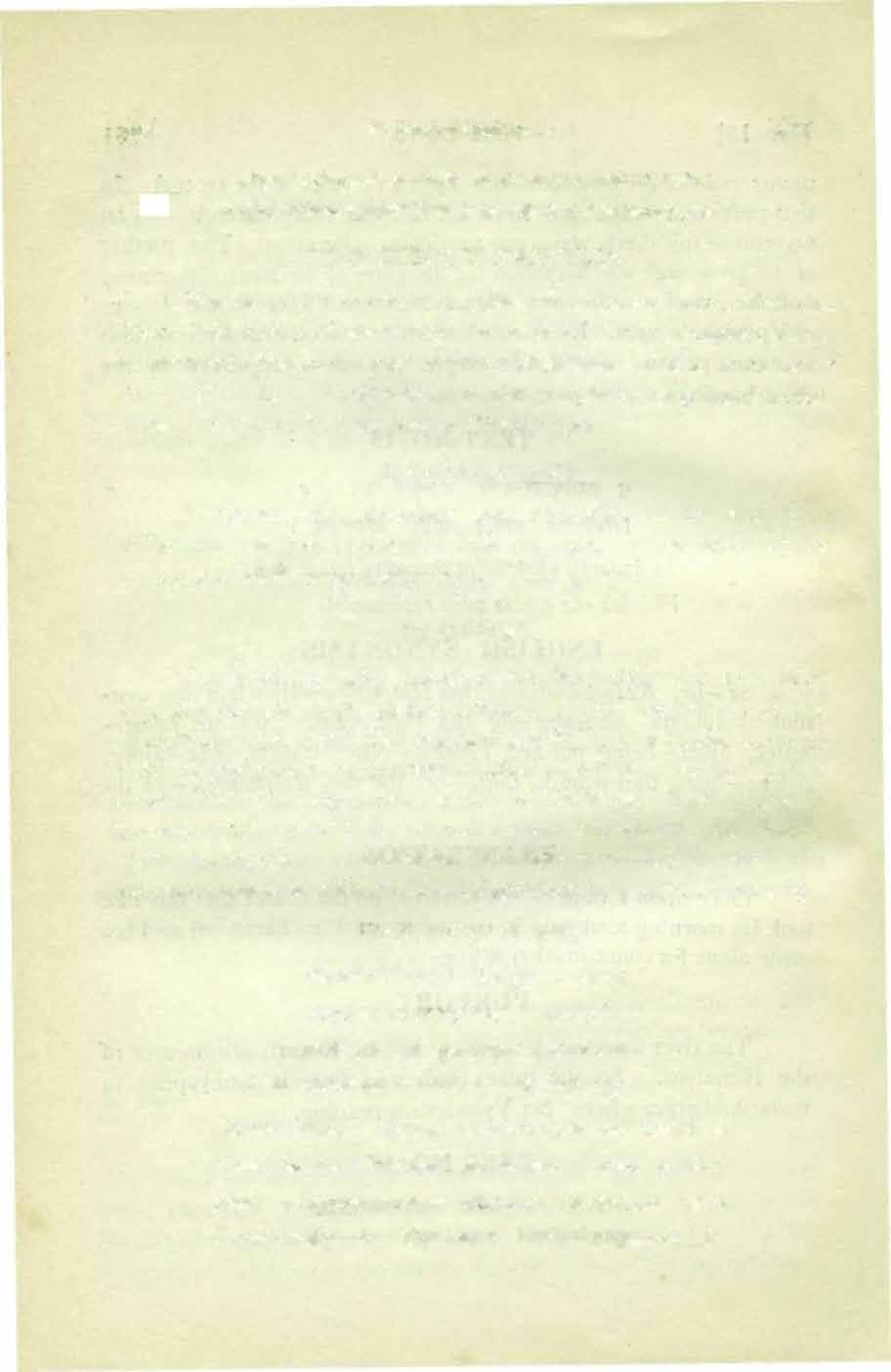
Ashradd!zanan nihsatwan durmedhan hrasita O!J'Ushah
Janan bikshya munir di!()•ena chakshusa sarva
Varnashramanam Yaddadhu oitam amoghadrik.
232
4
ENGLISH SYNONYMS
Bhoutikanancha-also of everything that is made ofmatter, Blzavanam-actions, Shaktihrashancha- deterioration ofnaturalpower, Tatkritam-rendered by that, Ashraddhadhanan-of the faithless, .Niswatwam-impatient due towant ofthe mode ofgoodness, Hrashita -reduced, Ayusha-of duration of life, Durbhaganscha-also the unlucky, Janan-people in general, Bikshy•a- by seeing, Munirthe muni, Dibyena-by transcendental, Chakshusa-vision, Sarvaali, Varnshramanam-·ofall the status and orders of life, rad-what, Dadhou-Contemplated, Hitam-wdf<Jrr·, Amoghadrik-one who is fully equipped in knuwledge.
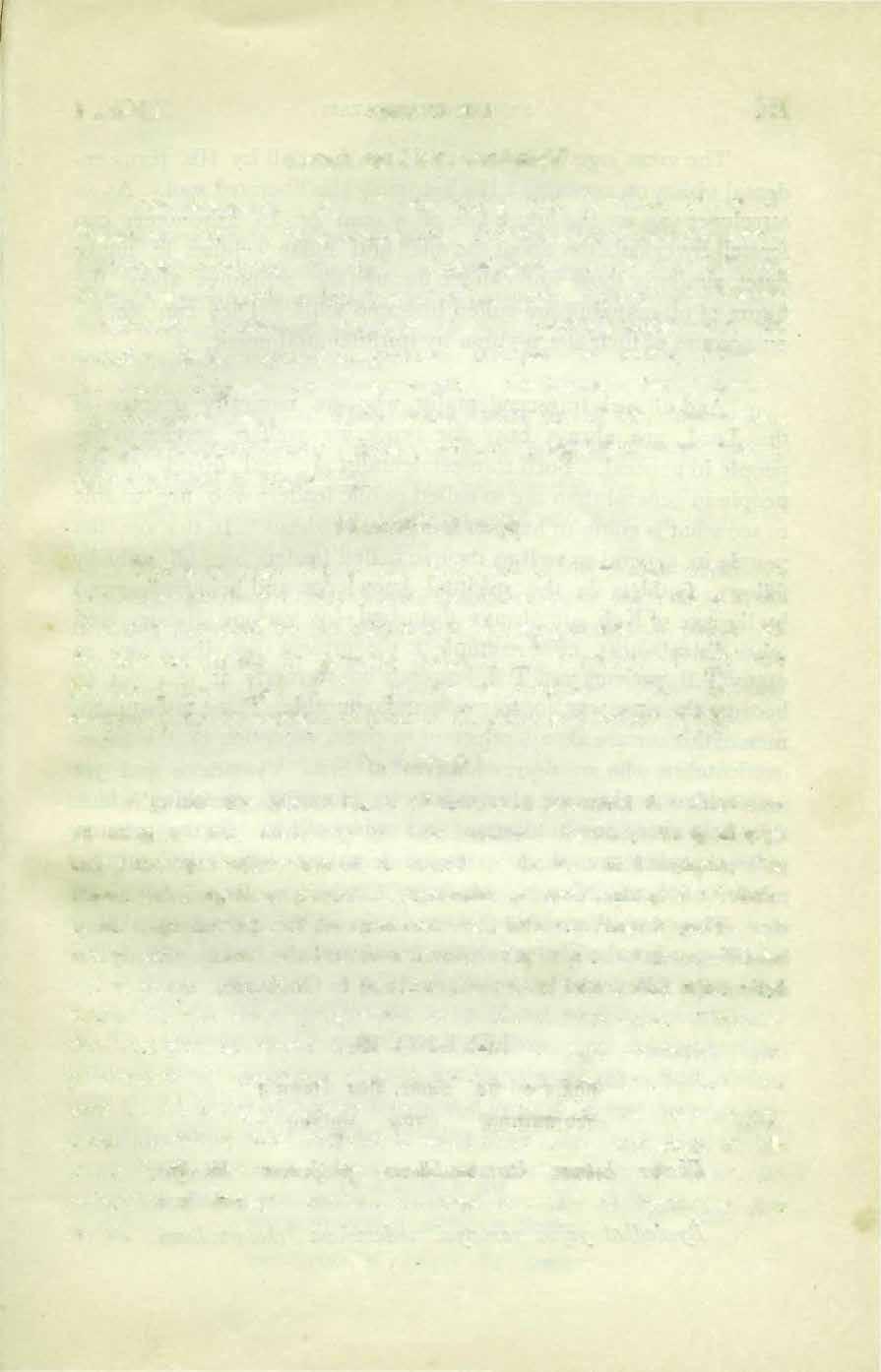
TRANSLATION
The great sage who is fully equipped in knowledge could see by his transcendental vision about deterioration of every thing made ofmatter rendered by the influence of the age; as also he could see the faithless people in general reduced in duration of life and impatient due to lack of the quality of goodness. Thus he contemplated for the welfare of men in all status and orders oflife.
PURPORT
1ne non manifested forces oftime is so powerful that itreduces all matters into decaying in due course. As such the Kaliyuga being the last millennium of a round of the four millenniums, the power of all material objects deteriorates by such influence of time. In this age duration ofthe material body ofthe people in general is much reduced and so also the memory. The action ofmatter is also not so much incentive. The land does not produce any more food grains in the same proportion as it did in other ages. The cow does not give so much milk as it used to give formerly. The production of vegetable and fruits are all less than before. As such all the living beings both men and animal do not have sumptuous nourishing food and" due to want of so many necessities of life naturally the duration oflife is reduced, the memory is short, intelligence is meagre mutual dealings are full of hypocrisy and so on.
Text 18] FIRST CANTO 233
The great sage Vyasdeva could see t4em all by His transcendental vision on account ofHis becoming the liberated soul. As an astrologer c�m see the future fate of a man or an astronomer can foretell by calculation about the solar and lunar eclipses in future dates, similarly those who can see through the scriptures about the future ofall mankind are called liberated souls. They can see so, on account oftheir sharp vision by spiritual attainment.
And all such transcendentalist� who arc naturally devotee of the Lord, are always busy for rendering welfare service to the people in general. Such transcendentalist are real · friends of the people in general than the so called public leaders who are unable to see what is going to happenfive minutes ahead. In this age the people in general as well as their so called leaders are all unlucky fellows, faithless in the spiritual knowledge and being influenced by the age ofKal�, are always disturbed by various diseases and other disturbances. For example at the present age there are so many T.B. patients and T.B. hospitals but forrrierly · it was not so because.the t1me was not so much unfavourable. These unfortunate men �tthis age ar·e alwaysreluctantto give a reception to the transcendentalists who are representativ€s of Srila Vyasadeva and yet such selfless workers are always busy in planning something which mayhelp every one in all status and orders oflife. So the greatest philanthropists are those transcendentalists who represent the mission o[ Vyasa, Narada, lvfadhya, Chaitanya, Rupa, Saraswati etc. They are �11 one and the same because the personalities may be differ.ent .but the aim ofmission is one and the same namely to deliver.the fallen soul back to home back to Godhead.
 By•adadhat ;•ajna santatyai vedamekam chaturvidham
By•adadhat ;•ajna santatyai vedamekam chaturvidham
234 SRIMAD BHAGWATAM [Ch. 4
TEXT N0. 19 :;n�� Cfi1t �:[. �<ri' Cff�lf cffGCfil{ I OlfG11ro�w� <Rit'if �cr� 11 C!zatur hotram karmasuddham prajanam biksh;•a vaidikam
ENGLISH SYNONYMS
C!zatur-four, Hotram-sacrificial fire, Karmasuddhi-purification of work, Prajanam----Dfthe people in general, BikshJ•a-after seeing, Vaidikam-according to Vedic rites, BJ•adadhat-made into, Yajna-sacrifice, SanlalJ•ai -to expand, Vedamekam-only one veda, . Chaturvidam-in four divisions.
TRANSLATION
He foresaw that the means ofpurifying the occupation of the people in general were the sacrifices mentioned in the Vedas. And to simplify the process He divided one veda into four, in order to expand them in the human society.
PURPORT
Formerly there was only Veda ofthe naine Yaju and the four divisions of sacrifices wete there specifically mentioned. But to make them more ·easily performable th€ Veda was divided into four withdivisions ofthe sacrifices just to purify the occupational service ofthe four orders ofseveral status. Abo_ve the four Vedas namely Rik, yaju, Syam, Atharva, there are the Puranas and the 1\rfahabharat samhitas etc. which are known as the fifth ..Veda. Sri Vya!>'udeva and his many disciples were all historical personalities and they were very much kind and sympathetic for the fallen souls ofthis age of Kali. As such the Puranas and Ivfahabharat weremade from related historical facts which explained the teaching of the four vedas. There is no question ofdoubting about the authority ofthe Puranas and Ivfahabharata as parts and parcels ofthe Vedas. In the Chlzandogya Upanishad such Puranas and Mahabharata, generally known as historical facts, are mentioned as the fifths Veda. According to Srila]iva Goswami that is the way ofasce:utaining the respective values of the revealed scriptures. TEXT NO. _20





Text 20] FIRST COANT 235
'"lt•<r�:�r+n��T�l:fr �G:f.('"t'�crr<:::ai\��rr: 1 �fa�T��rzf 'if !fZ'"f+fT �;;:: \3''i5lfa- II
SRIMAD BHAGWATAM
Rigyajuhsamatharbakhyahvedachatwara uddhritah

ltihasa pmanancha panchamo Veda uchyate
ENGLISH SYNONYMS
lCh. 4
Rig, Yaju, Sama, Atharva-the four names of the Vedas, Uddhrita-made into separate parts. ltihasa-bistor.ical records (!vfahabharat), Puranancha-and the puranas, Panchama-the fifth, Veda-the original source ofknowledge, Uchyate-is said.

TRANSLATION
The four divisions ofthe original sources of knowledge the Vedas were separately made. But the historical facts and authentic stories mentioned in the Puranas are called the fifth Veda.
TEXT NO. 21
ff':f*ef{: q�: �J+Jif) �flf.l: 'Ff'f: I
��PTPT<f �<fiT f<JIS1lTTCfT lli,l'fT�a II
TatrarigvedadharahpailahsamagoJaiminihkavih
Vaishampayana eba eko nishnato yajusham utah
ENGLISH SYNONYlVJS
Tatra-thereupon, Rigvedadhara-professor of the Rigveda, Paila-the Rishi of the name, Samago-that of the samaveda, Jaimini-the Rishi of the name, Kavi -highly qualified, Vaishampayana-the Rishi of the name, Eba- only, Eko-alone, Nishanatowell versed, Yajusham-ofthe yajurveda, Utah-glorified.
TRANSLATION
Thereupon, after the four divisions of the Vedas, Paila Rishi became the professor ofRigveda, Jaimini the professor of Samaveda an Vaisharnpayano also only became glorified by the yajurveda.
PURPORT
The charges ofdiferent Vedas were entrusted to different learned scholars for development in various ways.
236
Text 22, 23]
FIRST CANTO
TEXT NO. 22

trl!fcrifir�trr+rrtr1��11r�G:�ur) 1lf<r: 1
�fcr�rtr��rurr<rt fqqr it ��+r�ti(!T: 11 Atharvaangirasam
Atharva-the Atharvaveda, Angirasam-unto the Rishi of Angirasa, Asit-was entrusted, Sumanta-He was also known as Sumantmuni,Daruna-seriouslydevoted inthematter of Atharva Veda, ltihasa purananam-of the historical records like the Puranas, Pita-father,Me-mine,Romaharsana--Rishiof the name.
TRANSLATION
The Sumanta Muni Angira�a, who was very devoutedly engaged-was entrusted with the Atharva Veda. And my father Romaharsana was entrusted with the Puranas and historical records.
PURPORT
IntheSrutimantrasalsoitisstated that Angiras muni, who strictlyfollowed the rigid principles of the AtharvaVedas,-was the leader ofthefollowersoftheAtharva Vedas.
TEXT NOa 23
cr Q;cr q[l':ftrr �if �ct Ff ;;q��ffir 1 f�cq: srfu�;;i�c;rf:;;�t;if�;m� �Tf�'lTS'+f<FJ:II


Ta eba rishaya vedam swam swam �ya�yan-nanekdha
Shisyai prashisyaif taclzhi.�yair Vedaste shakhina abhavan.
ENGLISH SYNONYMS
Ta-they, Eta-all these, Rishqya-Learnedscholars, Vedam ,_the respective Vedas, Swam swam�in their own entrusted 111atter, Byasan-rendered, Anekadha-many, Shisya-clisciple, Prasisya-grand-disciple, Tatchis;Ja-great-grand disciple.Vedastefollowers of the respective vedas, Shakhina-different branches, Abhavan-thus became.
asit sumantadaruna
231
munih ltihasa purananam pita me Romharsana.
SRIMAD BHAGWATAM [Ch. 4 TRANSLATION
All these learned scholars in their tun1 rendered their entrusted matter of Vedas unto many disciples grand-disciples and great-grand-disciples and thus they became the respctive branches of the followers ofthe Vedas.
PURPORT
. The original source of knowledge are the Vedas. There is · no branch ofknowledge either mundane or transcendental,--which does not belong to the original text of the Vedas. They have simply been developed by different branches of followers as they were originally rendered by great, respectable and learned professors. In other words the Vedic knowledge, in different branches by different disciplic succssion, has been distributed all oyer the world. No body, can therefore, claim independent knowedge beyondthe Vedas.
TEXT NO. 24

a �9 ��r $�ef�TlT"f ��ttli�r ., �<{ "f<tiT<: ��CfT� CliHf: 'li!f1Jf9�(1: II
Ta eva veda durmedhair dharyantepurushair_yatha Evam chakara Bhagawan l!Jasah kripanavatsla.
ENGLISH SYNONYMS .
Ta-that, Eva-certainly, Veda-the book of knowledge, Durmedhair-by the less intellectuals, Dharyate-can assimilate, Purushair-by the man, Yatha....:.as and as, Eham -thus, Chakaraedited, Bhagwan-the powerful, J:yasa-the great sage of the name,..Kripanavatsala -very kind to the ignorant mass.
TRANSLATION
Thus the great sage Vyasdeva, who IS very kindly upon the less intellectual"ignorant mass of people,-edited the book of knowledge so that the same may be assimilated by such less intellectual men.
238
'The Veda is one and the reasons, for its divisions in many parts, are explained herewith. The seeds of all knowledge or the Veda is not a subject matter which can easily be understood by any ordinary man. There is a stricture that no body slwuld try to learn vedas,-who is not a qualified Brahmin. TJ-ris stricture ofthe authorities has been wrongly interpreted in so many ways. A class of men, who claim Brahminical qualification simply by their birth right in the family of a Brahmin,-claim that the study ofthe Vf'das is a monopoly business of such Brahmin ·caste only. Another section ofthe Jkople take it as injustice-to other castes who do not happento take birth in a Brahmin family. But both ofthem are misguided. The Vedasis a subject matter which required to be t'"..xplained even to Brahmaji by the Supreme Lord. Therefore the subject matter is understood by persons with exceptional qualities ofgoodness. Persons who are in the modes of passion and ignorance are unable to understand the subject matter ofthe Vedas. The ultimate goal of Vedic knowiedge is Sri Krishna the Personality of Godhead. The Personality is very rarely understood by themwho are in the modes of passion and ignorance. In the Satya Yuga e·.ery one was situated in the mode of goodness. Gradually the mode of goodness declined during the freta and Dwapara'Yugas and the general mass of people deteriorated from such qualities of goodness. In the present age the modes ofgoodness is almost nil and so forthe general mass ofpeople the kind hearted powerful sage Srila Vyasa Deva divided the Vedas in various ways so that it may be practically followed by less intelligent persons in the modes ofpassion and ignorance. It i� explained in the next sloka as follows.


I Text 25] FIRST CANTO 239 PURPORT
TEXT NO. 25 ���fu\ir;r•,;:rr '"fliT cr �farrmr ' <fili�qf« �TifT �lf !Z� +r�f�i?: I ·�fer-+r�cr+rr�zn<fWlllfT�fififTWCI"l{11
SRIMAD BHAGWATAM
Stri sudra dwijubandhunam trqyee na shrutigochara
Karma shreyasi mudhanam shre;'a eba bhabet iha
lti bharatam aklryanam kripaya munina kritam.

ENG LISH SYNONYMS
[Ch. 4
Stri-the woman class, Sudra-the labourer class of men, DwiJabandlmam-ofthe fi'iend ofthe twice born, Shreya- supreme benefit, Ebam-thus, lti-thus thinking, Bhabet-achievcd, ]Itaby this, lti-thus thinking, Bharata-the great Mahabharata, .Aki!Janam-historical facts, Kripqya -out ofgreat mercy, muuinaby the Muni, Kritam-is completed.
TRANSLATION
The great sage outof compassion for them thought it wise that this will cause to achieve the ultimate goal of life by them, and thus he compiled the great historical narration of Mahabharat for the woman class, the labourer class and the friends of the twiceborn.
PURPORT
The friends ofthe twice born families are those who are born in the families of Brahmins, kshatriyas and Vaishyas or the spiritually cultured families,-but themselves they are not at par with their forefathers. Such descendants of the cultured families like Brahmin, kshatryas and Vaishyas, are not recognised as such for want of the purificatory achievements. The purificetory activities began even before the birth ofa child and the seed giving reformatory procees is caiied Garbhadhan Samaskata. .i\.nd one, who has had not the chance of such Garbhadhana Samaskara or the spiritual way offamilyplanni.ng,-is not accepted as actual twice born family. The Garbhadhan Samaskara is followed by other purificatory process out of which the sacred thread cert'mony is one which is performed at the time of spiritual initiation. After this particular Samaskara one is rightly called the twice born. One birth is calculated during the seed giving Samaskara and the second birth is calculated at the time ofspiritual initiation. One who has
240
been able to undergo such important Samaskaras can only be called as bonafide twice born.
Ifthe father and the mother do not undertake the process of spiritual family planning and simply beget -children out of passion only such children are caiied the Dwijabandhus. These Dwijabandhus are certainly not as intelligent as the real children ofthe regular twice born families. The Dwijabandhus are classified on the level ofSudras and ,,.,-oman class, who are by nature less intelligent. The Sudras and the v,-oman class do not require to under go any Samaskara save and excep! th( ceremony ofmarriage.
This less intelligent class of men namely the woman the Sudras and the unqualified sons of the hig!1er castes, are devoid of the necessary qualifications for understanding the purpose of transcendental Vedas. For them the l\1ahabharata ,,vas prepared. The purpose ofthe Mahabharata is to administer the purpose ofthe Vedas and therefore '\<\rithin this Mahabharata the summary Veda or Bhagwant Geeta is set in. The less intelligent class of men are more interested in stories than in philosophy and therefore the philosophy ofthe Vedas in the form ofthe Bhagwat Geeta spoken by the Lord Sri Krishna is set in. Vyasdeva and Lord Krishna both ofthem are on the smne transcendental plane and therefore both ofthem collaborated on the plan ofdoing good to the fallen souls ofthis age. The Bhagwat Geeta is the essence of all Vedic knowledge. It is the frrst book ofspiritual values and same as the Upanisadas are. The Vedanta philosophy is the subject matter for study ofthe spiritual graduates and only the post graduate spiritual student can enter into the spiritual or devotional service of the Lord. It is a great scienee and the great professor is Lord Himselfin the Form Lord Sri Chaitanya Mahaprabhu and persons who are empowered by Him can initiate other person in the transcendental lovong service ofthe Lord.

Text 26] FIRST CANTO 241
�<i �zr ��r �crrift �zrfu flt;;rr 1 �c;rifi•rrfq �GT ifrg����ll' crcr: 11
TEXT NO. 26
Ebamprabrittasya sada b/zutanam shreqysi dwija
Sarbatmakenapi yada na!USJ!at hridqyam tatah.
ENGLISH SYNONYMS.
Ebam-thus, Prabrittasya-one who is engaged in, Bhutanamof the living beings, Shre)Jasi-in the matter of ultimate good, DwiJa-oh the twiceborn, Sarbatmakena-by ali·mc::ms, Tada-when, .Na-not, Tuslryat--become satisfied, Hridqyam-mind, Tatah-at that time.
TRANSLATION
Oh the twice born Brahmins, thus when His mind was not satisfied even though He engaged himselffor all round '"·elfare work for the general mass o:&people, thereafter.
PURfORT
Sri Vyasadeva was notsatisfied Himselfalthough Heprepared literatures in the Vedic values, for all round -welfare activities of the general mass of people. It was expected that He would be satisfied by all such activities but ultimately He was not satisfied.
TEXT NO. 27

rrrf;;r.:rtr'h::<;:��lf: �r��wr�cr� �:;:IT 1 fcrcr<fi"llrt fcrfcrCfCI"PT �;i �TCff'q ep:ffCf(f iI � '

Natiprasidadhridayahsaraswa�yastate shuchou, Vitarkyan viviktyastasya idamprovachadharmavit.
ENGLISH SYNONYMS
.Na-not, Atiprasidad�verymuch satisfied, Hridqyah-at heart, Saraswaryas-of the river saraswati, Tate-on the bank of, Suchoubeing purified, Viviktastha-being placed in a lonely place, Vitarkyan -having considered, ldamcha -also this, Provacha-said, Dharmavit-one who knows what is religion.
TRANSLATION
Thus at once (the sage) being not being very much satisfied at heart began to consider as he was one who knew the essenc� of religion and said within himself.
242
SRIMAD BHAGWATAM
[Ch. 4
PlJRPORT
The sage began to search out the cause of not being satisfied at heart. Perfection is never attained till one isnot satisfied at heart. This satisfaction of heart lJ<.is to be searched out elswhere beyond the matter.
TEXT NO. 28

�IT'irff'f f� ifllT �FG:Tf� �cr)s<rr<r: I lirfrrar fi'J01l��rr <J�ia' "ifr�m<-rtr 11 +rn::acwr��., -�nl=<-Tfln�: !JG:f��: 1
<p:llff <T"f 'I::J+rTfG: ('"'ff'[i!:TfG:flJ-�t��
Dhritabratena mayahi rhhandansi guraba,gnayah
Manila nirbalikena grihitan cha nushasanam.
Bharata byapadeshena hi amnayarthahe _. bradarsitah
Drishyate yatra dharrnadi stri sudradivi rapyuta.
ENGLISH SYNONYMS
Dhritabratena-nnder strict disciplinary vow, Mqya-by me, Hi-certainly, Chhandansi-the vedic hymns, Gurabo-the spiritual masters, Agnaya -the sacdfici.:1l fire, Manita-properly worshipped, Nirbalikena-without any pretence, Grihitancha-also accepted, Anushasanarn-traditional discipline, Bharata-the Mahabhrata, Byapodeshenn-by compilation of. Hi-certainly, Amnayarthahaimport by disciplic succession, Pradarshitah--properly explained, Drisl-�yate-by which necessary, Dharmadi-the path of religion,Stri Sudradivih-even by the woman and Sudras-etc.
TRANSLATION
I have tmcler strict disciplinary vow, certainly worshipped the Vedas, the spiritual masters and the alter of sacrificial fire without any pretence; I have also abided by the rulings, I have shown the import of disciplic succession through the explanation ofthe Mahabharata in which even the woman, Sudras and such others (the friends ofthe twice born) can also see the path ofrelgion.
Text 28] FIRST CANTO 243
II
PURPORT
No body can enter into the import of the Vedas without having undergone a strict diciplinary vow and disciplic succession. TI1e Vedas, spiritual masters and sacrificial fire must be worshipped by the desiring candidate. All these intricacies of the Vedic knowledge are systematically presented in the Mahabharata for the understanding of the women class, labourer class ofmen and the unqualified members of Brahman, khsatriya or the Vaishya families. In this age the Mahabharata is essential more than the original Vedas.
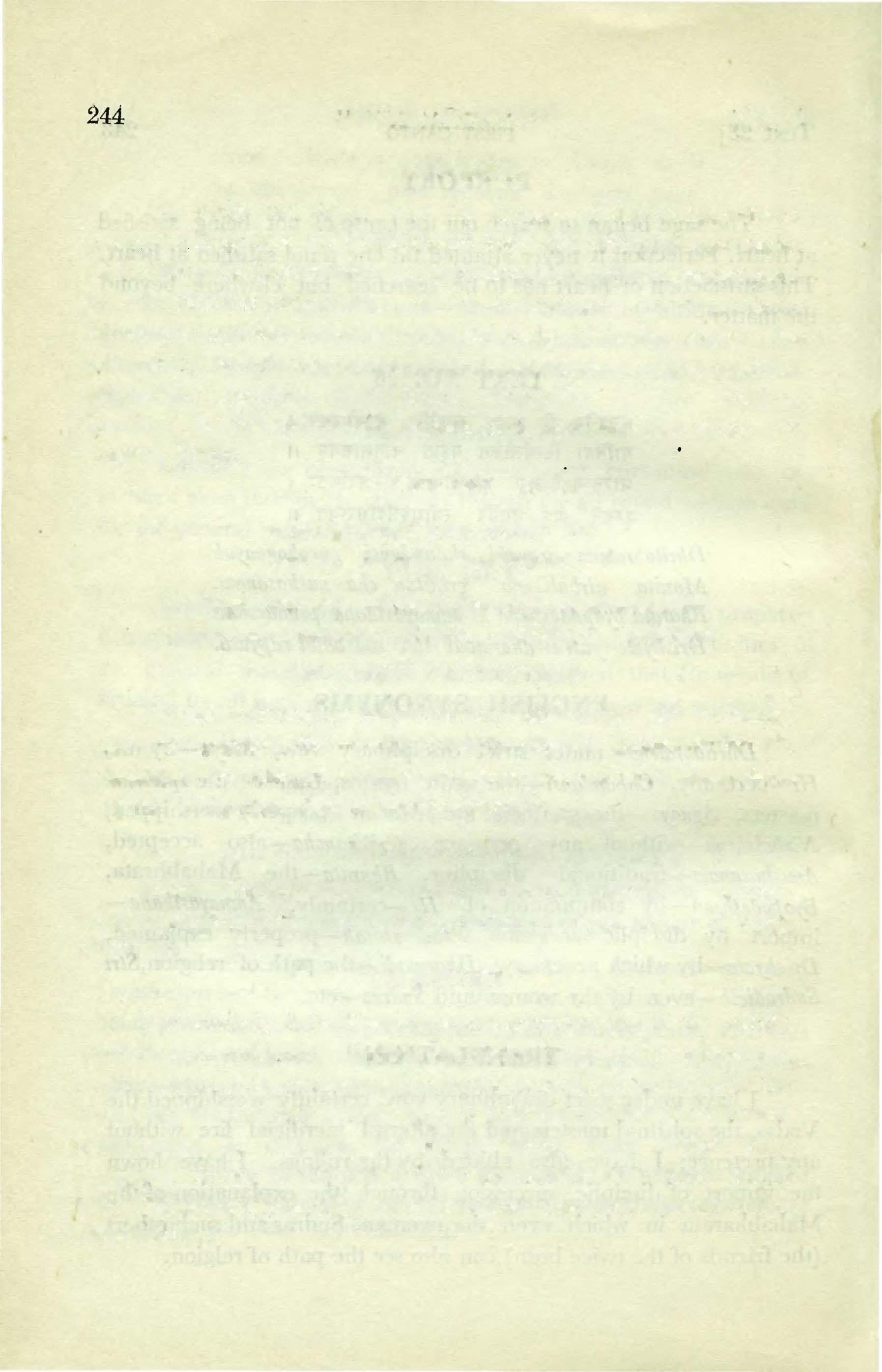
TEXT
NO. 29
;;:r�rfq<=mit�� �ri;;rr ;l;;rrcif'lT f;;r'+i: 1
��tffl �qf�Tf<J Sf�-'ij��u;r: II
Tathapi bata me daih.)IO hi atrnaeftaevaatmanabibltu Asarnpanna ibabhati bra!tma varchas_}'a sattamah
ENGLISH SYNONYMS
Tathapi-aithough, bata-defecto, Me-mine, hi-certainly, Atma-1iving being, Eva-even, Atmana-myself, Bibhu-su:fficient, Asampanna -wanting in, lbabhati-it appears to be, Brahmavarc!tasya -of the Vedantists, Sattamah-The Supreme.
TRANSLATION
I am feeling still wanting although myself is already fully equipped with every thing required in the matter ofVedic principles.
PURPORT
Undoubtedly Srila Vyasadevawas complete in all the details ofVedic achievements. Purification ofthe living being submerged in the matter, is made possible by the prescribed activities in the Vedas but the ultimate achievement is different. Unless the ultimate achievement is attainedJ the living being, even though fully equipped, cannot be situated in the transcendentally normal stage. Srila Vyasadva appeared to have lost the clue and therefore felt dissatisfaction.
244
SRIMAb BHAGWATAM [Ch. ·4
FIRST CANTO
TEXT NO. 30

fiti<n +rrorcrcrr tr+rT <r snirur f<r�fcrar: 1
f>r11r: tP::li"��n;:rr a \t<r w:;;�q-fsrl:fr: 11
Kimba Bhagwata dharma na prayena nirupita
Priya paramhansanam ta eva hi abci{')IUla priyah
ENGLISH SYNONYMS
Kimba-or, Blzagwata Dharma--devotional activities of the living being, Na-not, Pro)Jena - almost, Nirupitah-directed, Priya -dear, Paramhansanam-of the prefect beings, Ta Eva-that also, Hi-certainly, Aclrputa--the infaUibie, Priya -attractive, TRANSLATION
Or it may be that I did not aimost directed the devotional service of the Lord which is dear both to the perfect beings and the infallible Lord.
PURPORT
The wanting which was being felt by Srila Vyasdeva is expressed herein in his own words. The wanting was felt for the normal condition ofthe living being in the devotional service of the Lord. Unless one is not put up in the normal condition of seryice, neither the Lord nor tne living being can become fuiiy satisfied. This defect was felt by Him when Narada Muni, his spiritual master reached on the spot. It is described as fullow :-
TEXT NO. 31
<:r�qci f<:§f�+rT�ifFT llrl:flfFf� fu:a<:r: �ISO'ft'l:f <rn:a:)'s-.:l.TFH<iT�.;rJ1' 5Tl�Cif@"� II
Ta�)"a ebam khilarn almanam manwamanasya khidyatah
Krishnas;'a Naradoblryagad ashramam prag uddhritarn
ENGLISH SYNONYMS
Ta�ya-his, Ebom-thus, Khilam-inferior, Atrnanam-soui, Manaarnvna�ya-thinking within the mind, Khidyatah-regretting,
·rext 30, 31]
245
Naradabhyagad-Narada carne there, Ashramam-the cottage, Prag-before, Udahritah- said.
TRANSLATION
Narada reached the cottage of Krishna Dwipayana on the bank ofSaraswati as said before while Vyasdeva was regretting thus on the point ofinferiority ofhis personal self.
PURPORT
The vacuum felt by Vyasdeva was not due to his lack of knowledge. Bhagwat Dharma is purely devotional service ofthe Lord in which the monist has no access. The monist is not counted amongst the Paramhansas (the most perfect of the renouneed order oflife). Shrimad Bhagwat is full of narration of the trancedental activities ofthe Personality ofGodhead. AlthoughVyasdeva was empowered Divinity still he fdt inferior complex because in none of his works the transcendental activities ofthe Lord was properly explained. The inspiration wa<> infused by Sri Krishna directly in the heart of Vyasdeva and thus he felt vacuum as above explained. It is definitely expressed herewith that without transcendental loving service of the Lord, everything is void; but in the transcendental service of the Lord everything is tangible without any separate attempt for fruitive work or emperic philosophical speculation.
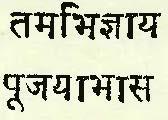
TEXT NO. 32.
���T 5f(�c¥TF-llfef lJf'l: I fcrfcr<r;;IT"{<i �z�f"!"a-f{ 11

Tam abhijnaya sahasa pratyuthwayagatam munih

Pujayamasa bidhibat naradam surapujitam.
ENGLISH SYNONYMS
Tamabhi.Jnaya-seeing the auspicity of His (Narada's) arrival, Sahasa -all ofa sadden, Pratyutthaya-getting up, Agatam arrived at Munih-Vyasdeva, Pujayamasa-worshipped, Bidhibat-with the same respect as is offered to Bidhi (Bralzma).
S:tUMAD BHAGWATAM [Ch. 4
Thus on the auspicious arrival of Sri Narada, Sri Vyasdeva gotup in respect and worshipped Him with equal veneration as is offered to Brahmaji the creator.
PURPORT
Bidhi means Brahma the :first created living being. He is the original student as well as professor ofthe Vedas as He learnt it fiom Sri Krishna and taught Narada first. So Narada is the second Acharya 1n the line of spiritnal disciplic succession. He is represcntatin: c,f Brahrna and therefore He is respected exactly like Brahma the father of all Bidhis (regulations); similarly all other successive disciples in the chain are also equally respected as representative ofthe original spiritual master.

Thus end the Bhaktivedanta Purporfs of the first cantoFourth Chapter of Srimad Bhagwatam in the matter ofAppearance ofSri Narada.


I J Text 32] FIRST CANTO 247
TRANSlATION
FIFTH CHAPTER
Sri Narada's instructions on Srimad Bhagwatam for Vyasdeva.
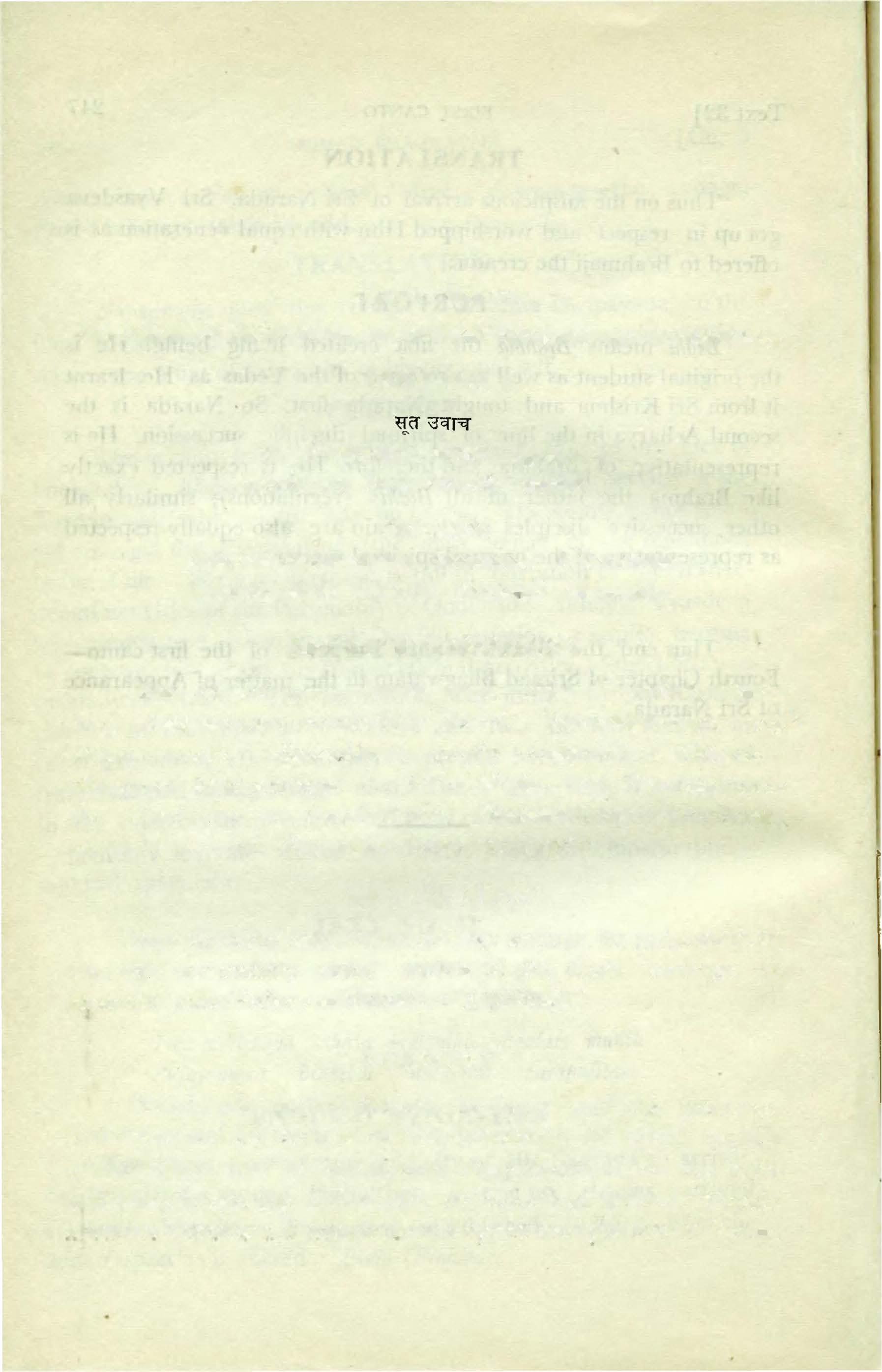
TEXT N0. 1
�ff�
ar� <I �@lirnrrr '3"'rrnrri ���9r: 1
�i!ffq-: !1T� f<J5ffq- q-rurrqrfur: (=lfllf� 11
Suta uvacha
Atha tam suklzamaseena upaseenam brilzachlzmva
Debarshi praha viprasim vinapanih smayanniba.
ENGLISH SYNONYJ.\tiS
Suta-of the name Uvacha-said, Atlza-Therefore, Tamhim, Sukhamaseena--comfortably seated, Upasseenam--unto one\ s1ttmg nearly, Brihaclzlzrava-greatly respected, Debarshi
The great Rishi amongst the Gods, Praha-said, Viprarsim-unto the Rishi amongst the Brahmin, Vinapanilz-one who carries veena by his hand, Smqyanniba-apparently smiling.
TRANSLATION
Suta Goswami said, "Thus the sage amongst thegods (Narada) who was comfortably seated addressed the Rishi amongst the Brahmin (unto Vedavyasa) apparently smilings."
PURPORT
Narada was smiling because he knew well the great sage Vedavyasa and the cause ofhis disappointment. As he will explain gradually the cause of Vyasdevas's disappointment was due to insufficiency in catering the science of devotional service. Narada knew the defect and it was confirmed by the then position ofVyasa.
TEXT No. 2
"''T�� \3"GfT"f qr�mll lf�T'ij"Tif +rGfc'fl <pf,.;:q�Clfi'fT I qf��!Slffij' ���T"{ arrcm lTTiftr �cr err 11
.Narada Uvacha
Parasharya mahabhaga bhavatah kachid atmana

Pritushyati Sharira alma manasa ebaba.
ENGLISH SYNONYMS
.Narada -ofthe name, Uvacha -s:..:id, Parashrya-oh the son, of Parashara, Mababhaga-the gre£>t fr)rtunate, Bhavath-your Kachid-ifit is, Atmana-by the selfrealisation of, Paritushyati-does it satisfy, Sharira-identifying the body, Atma-self, Manasa-identifying the mind, Eba -certainly, Cha -and,
TRANSLATION
Addressing Vyasdeva, the son ofParashara, Narada enquired whether yourselfis satisfied by identifying the body or the mind as the object ofselfrealisation ?
PURPORT
This was a hint by Narada to Vyasadeva about the cause ofhis despondency. Vyasdeva, as the descendant of Parashara a great powerful sage, has the privilege of having a great parentage which should not have given Vyasdeva cause ofdespondency. The great son ofa great father as He was, He should not have identified the selfwith the body or the mind. Ordinary men with poor fund of knowledge can identify the body as self on the mind as selfbut Vyasdeva should not have done like that. One cannot be cheerful by nature unless one is factually seated in the matter ofselfrealisation which is transcendental to the material body and the mind.
TEXT NO. 3
Text
3] FIRST CANTO
249
f\ifmfij"a' �ij";:q?JllfQ-a- lf��=�,,W( 1 iicrcrrr 'ij"rm lf�c<:f �cri�qf��r"ff1ij'l! u ..
Jijnashitam susampannam api te mahadadbhutom, Kritaban blzaratam yastam sarbartha paribringhitam
SYNONYMS
Jijnashitam-fully enquired, Susampannam-well versed, Apiinspite of, Te-your, Mahadadbhutam -grcat and wonderful, Kritaban -prepared, Yastam--what you have done, Sarbartha-including all sequences, Paribringhitam--clabcrately cxplai•1ed. ..
TRANSLATION
Your enquires were fi11l and studies also fulfilled well and there is no doubt about it as you have prepared the great and wonderful work Maha.bharata \1\hich is full of all vedic sequences elaboratlely explained.
PURPOUT
Despondency of Vyasdcva was certainly not due to his lack of sufficient knowledge because as a student, he had fully enquired in the Vedis literatures as a remlt of which the Mahabharat is compiled with full expanation of the Vedas.
Tli�XT NO .. 4

f;or�[fu'ali'efTa' :;;r rru-<tgrW u;:rmrrl!
tr�rfq '<TT"f�ITTC+rTrr+r�ar� �Cf sror) II
JiJnashitam adhitamcha Brahmayattat sanatanam tathapi slwchasi atmanam akritartha iba prablw,
ENGLISH SYNONYMS
JiJnashitam-deliberated fully well, Adhitam-the knowledge obtained, Cha-and, Brahma-The Absolute, rat-what, Tat-that Sanatanam-eternal, Tathapi -inspite of that, S/wchmi-lamenting, Atmanam-unto self, Akritartha-undone, Iba-1ike, Prabho --my dear sir.
TRAN3l,A'flON
You have fully deJiberatf'd upon impersonal Brahman also and the knowledge derived also. Inspite of all these why should you be dispondent thinking that your se]f is undone oh my sir,
250
SRIMAD BHAGWATAM
.ENGLISH
[Ch. 5
The Vedenta Sutra , or Brahman Sutra compiled by Sri Vyasdeva is the full deliberation ofimpersonal Absolute feature and it is accepted as the most exhalted philosophical exposition in the world. It is delineated on the subject of eternity and the clues implemented there are scholarly respresented. So there cannot be any doubt about the trar1scendental scholarship of Vyasdeva and why it shall be like this that he sl1all coi1sider himself as undone in the matter.

TEXT NO.5
ol:fffi '3'CfT"f
m�i\"cr if �<ff+r��Cfl1T'la' a'lfTftT 'iT�+rl qf-.;��Sl:fi.r if I G"�w+f<il:fCfQ"+flTT�iii'ltf �:;;Bl"T'l'f� t'OfTSS<'li�CfTi;'+f�qlt II
Sri liyasa uvacha
Asti eba me smvam idarn twqya uktarn
Tathapi na atrna paritushyati me
Tat rnoolam abyaktam agadlzabodham
Prichhamalze twam atmabhava atmabhutarn.
ENGl�ISH SYNONYMS
Sri Vjasadeva--of tlte uame, Uvacha--said, Asti-there is, Elba --certainly, .i\1e-mine, Sarvam-·all, ldmn-�this, Twaya-by you, Uktam-uttered, Tathapi-and yet, Na-not, Alma-self, Paritushyati �does pacify .A1e---unto me. Tat--of which, 1\Io,Jlarn-root, Agadhabodharn-the man of unlimited knowledge, Prich/zarnahe-do enquire. Twam--unto yon, Atrnabhava--sclf born, Atmabhutamoffspring.
TRANSLATION
Vyasdevareplied that all that He (Narda) had said about Him (Vyasa) were perfectly correct. Inspite of all these, His self was not pacified. He therefore asked Narada who was the man of unlimited knowledge on account ofHis being the offspring of one (Brahman) who is self-born (without any mundane father and mother) on the root of the cause.
Text 5] FIRST CANTO 251
PURPORT
PURPORT
In the material world every one is engrossed with the seanty idea of identifying the body or the mind as self. As such all knowledge disseminated in the material world, isrelated either with the body or with the mind and that is the root cause of all despondencies. This root cause of despondency all over the material world is not always detected by any one even though he may be the greatest erudite scholar in materialistic knowledge. It is good, therefore, to approach a Personality like Narada for solution of the root couse ofall despondencies. WhyNarada shall be approached in this connection is explained below.
TEXT NO. 6

� cf �CfF{ � �lifa'��qrftra) lf��ISf; ��fiJI': I tr�r<:rw) lFT�cr fer�
Sa bai bhavan Veda samasta guhyam
Upasita yat Pususham puranam
Parabaresho Manasiaba Visvam
Sri.Jyatya batyati gunaz rasangah.
ENGLISH SYNONYMS
Sa-thus, Bai-certainly, Bhavan-yourself, Veda-know, Samasta-all inclusive, Gu/ryam-confidential, Upasito-devotee of, Tat<-because, Parusham---The Personality ofGodhead, Puranamthe oldest, Paravaresho-tt1e controller of material and spiritual world, .i\1anasa-mind, Eba--on!y, Viswam-the universe, Srijyati_:_ creates, Avatyati-annihilates, Gunai-by the qualitative matter, Asangalz-unattached.
TRANSLATION
My Lord ! every thing that is mysterious is also known to you because the creator and destroyer of the material world and maintainer Df the spiritual world,-the original Personality of Godhead who is transcendental to the three modes ofmaterial nature,-is worshipped by you.
252 SRIMAD :BHAGWATAM [Ch. 5
��llcrclifu ��ih:*r:''
A person who is cent per cent engaged in the service ofthe Lord,-is the emblem ofall knowledge. Such devotee ofthe Lord in full perfection of devotional service is also perfect by the qualification of the Personality of Godhead. As such the eight fold prefection ofmystic power (Astasiddhi) are very little portion of Godly opulence. A devotee like Narada, can act wonderful by his spiritual perfection for which every individual is trying to overcome success. Srila Narada is cent per cent perfect living being although not equal to the qualtfications ofthe Personality ofGodhead:
TEXT NO. 7
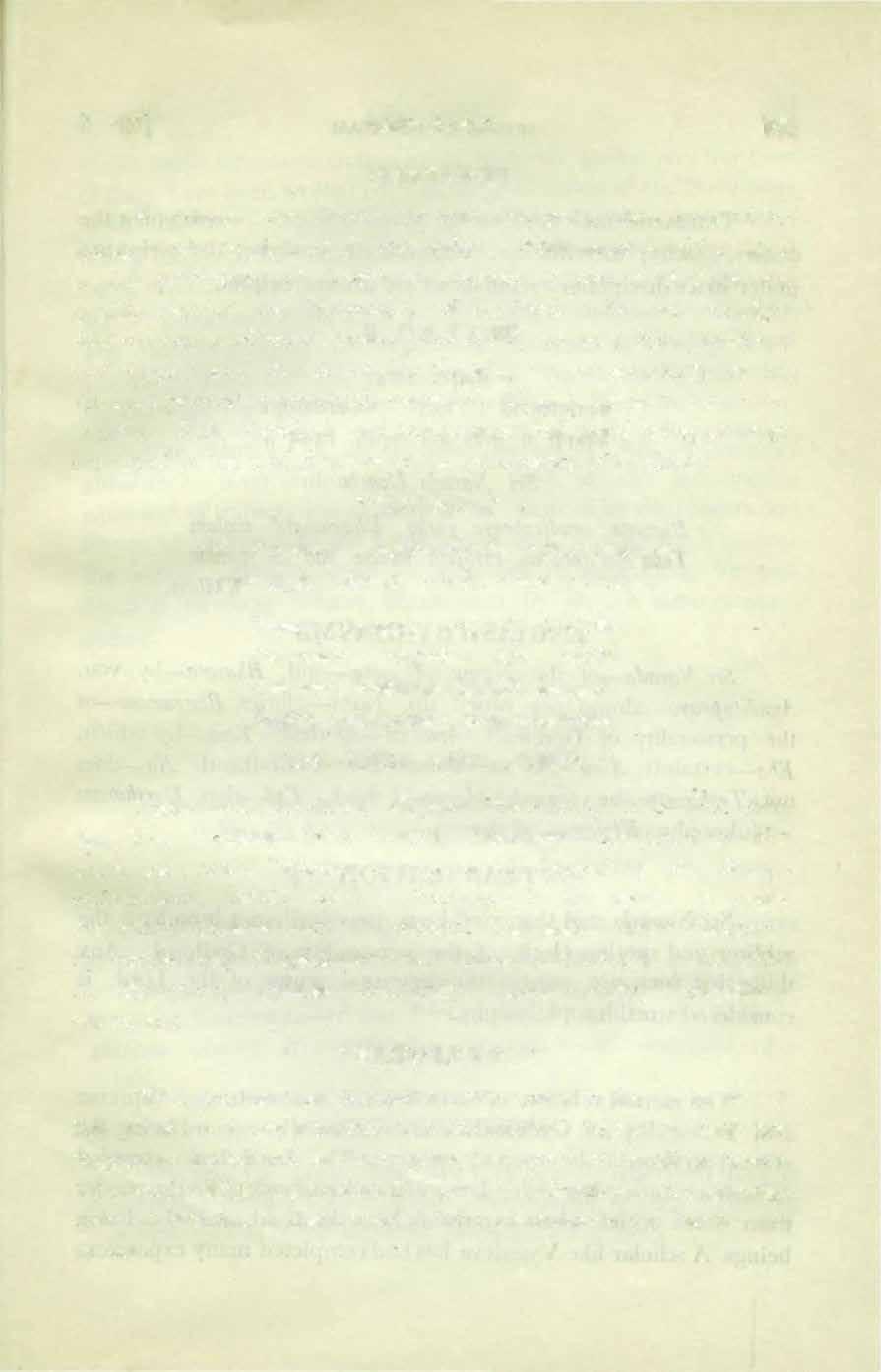
cor l:fl:jffi � f��T91Tlf<'i"fq:q�) GfllJf�crr�:::roTIRT t
l:f"{TGf� Sf@"T{!J' qqiJ) srer: HTiJ�Ii ll ;:'i(ill1� f<f"f&"Cf II
Twam paryatan arka iba trilokim
Antaschare vayoriba atma sakshi
Paravarey brahmanidharmatobratyailt Snatasya me tryunam alam vichakswa.
ENGLISH SYNONYlVIS
Twam--your goodness, Paxyatan-travelling, Arka-the Sun, Jba-like, Trilokim-tl,ree worlds, Antascharo-can penetrate into every one's heart. Vayariba-as good as all pervading air, Almaself-realized, Sakslzi-V\'itness, Paravarey-in the matter of cause and effect, Brahmani-in the Absolute, Dhannato-under disciplinary regulations, Bratyaih-in vow, Snatasya-having been absorbed in, Me-mine, Nyunam-deficiency, Alam---clearly, Vichakshasearch out.
TRANSLATION
Your goodness can go round every where in the three worlds like the sun and can penitrate into the internal region of every one as good as the air and as such you are as good as the all pervasive super-soul. Kindly therefore find out the deficiency in me although I am absorbed in transcentdence under disciplinary regulations and m vow.
Text 7] FIRST CANTO 253
PURPORT
PURPORT
Transcendental realisation, pious activities, worshipping the deities, charity, mercifillness, non-violence, studying the scriptures under strict disciplinary regulations are always helpful.
TEXT NO.8

P.lfif'H� \jG('f"tf �ORrr�;f<ms:rrri <:r�) �;rcrcr)sq�l{ 1 �<l<mrr rr �IS�� ifrlt ���;f f@�l{ 1•

Sri Narada Uvacha
Bhavata anuditapraya yaslw Bhagawato' rnalam
Tena eba asou na tush;yeta manne tad darshanam Khilam.
ENGLISH SYNONYMS
Sri Narada-of Lhe Name, Uvacha-said, Bhavata-by you, Anuditapraya-almost not raised up, 'raslw-glories, Bhagawato-of the personality of Godhead, Amalam-�potless, 'rena-by which, Eba-certainly, Asou-He the Personality of Godhead, Na-does not, Tushayata-be pleased, .Nfanne-I think, Tad-that, Darslzanam -philosophy, Khilam-iufe1ior.
TRANSLA.TION
Sri Nanada said that you have practically not broadcast the sublime and spotless glories of the personality of Godhead. Any thing that does 11ot satisfy trauscendeutal ::.enscs of the Lord, is considered worthless philosophy.
PURPORT
The eternal relation ofan individual soul with the Supreme soul Personality of Godhead is constitutionally one ofbeing the eternal servitor of the eternal master. The Lord has expanded himselfas the servitor living beings in order to accept loving service fi·om them which alone can satisfy both the Lord and tl1e living beings. A scholar like Vyasdeva hashadcompleted many expansions
254 SiUMAD BHAGWATAM [Ch. 5
ofthe Vedic literatures ending in the Vedanta philosophy but none ofthem have been \'\ritten with directglorification ofthe Personality ofGoadhead. Dryphilosophical speculations even on the transcendental subject ofthe Absolute, has very little attraction without being directly dealt in the glorification ofthe Lord. The personality of Godhead is the last vvorcl in transcendental realisation. The Absolute realised as impersonal Brahman or localised Super soul Paramatma are less provocative of transcendental bliss than the Sapremc Personal realisation of his gloric..
The compiler of thr Vedanta Darshan is Himself troubled although He is the authtn ofthe book. And we can just imagine what sort of transceudental bliss can be derived by the readers and listners ofVedanta without being explained directly by Vyasdeva the author. Herein arises the necessity of explaining Vedanta Sutra in the form Srimad Bhagwatam by the self same common author.
TEXT NO. 9
tr�r ��<r�:qrql' �f<r9<rl:!�fcra-r: 1
Of crqt <ff��Cf�l.f ;rfQ:'l"T �ciTUJCT: II
rathadharmadqyas chaartha munibarya anukirtitah natalha Vasudevasya mahima hi anuvarnitah.

ENGLISH SYNONYMS.
Yatha-as as, Dharmadqyas-all the four principles of religious principles, Cha-and, Artha-purposes, .A1unibarya-by your selfthe great sage, Anukirtitah-repeatedly described, Na-not, Tatha-in that way, Vasadevasya-of the Persanality of Godhead Sri Krishna, .N!ahirna-glories, Hi-certainly, Anuvarnitah-so constantly described.
TRANSI_,ATION
As you the great �age have very broadly described the four principles beginning with religious performances, so you have not described glories ofthe Supreme Personality Vasudeva.
Text 9] FIRST CANTO 255
The prompt diagnosis of Sri Narada is at once declared. The root cause of despondency ofVyasdeva was due to His delibrate avoidance of glorifying the Lord, in his various editions ofthe Puranas. He has certainly as a matter ofcourse, given descriptions of the glories of the Lord (Sri Krishna) but not so widely as He had done itin thematterofreligiosity, economic development, sensegratifications and salvation. These four item<;are by far the inferior engagement ofthe living beingthan being engagedin the devotional service of the Lord. Sri Vasudeva as the authorised scholar knew very well this difference of the above mentioned two classes of engagements. And still instead ofgiving more importance to the better type of engagements namely in the devotional service of the Lord, He had more or less improperly used the valuable time of His life and thus He was despondent. From this it is clearly indicated that no body can be pleased substantially without being engaged in the devotional service ofthe Lord. In the Bhagwat Geeta this fact is clearly mentioned.
After liberation which is the last item in the line of perfoming religiosity etc., one is engaged in the pure devotional service. This is called the stage of self realisation or Brahmabhuta stage. After attainment of this Brahmabhuta stage, one is symptomised with the signis ofsatisfaction. But satisfaction is the beginning of transcendental bliss. One should push further on progress ofthe Brahmabhuta status by neutrality and equality of the relative world. And passing this stage of equanimity one is fixed up in the transcendental loving devotional service of the Lord. This is the instruction ofthe Personality of Godhead in the Bhagwat GcPta. The conclusion is that in order to maintain the status-qua of Brahmabhuta stage as also to increase the degree of such transcendental realisation, it is recommended by Narada to Vyasdeva that He (Vyasdeva) should now impatiently and repeatedly describe the path of devotional serVIce. This would cure Him from gross despondency oflife,
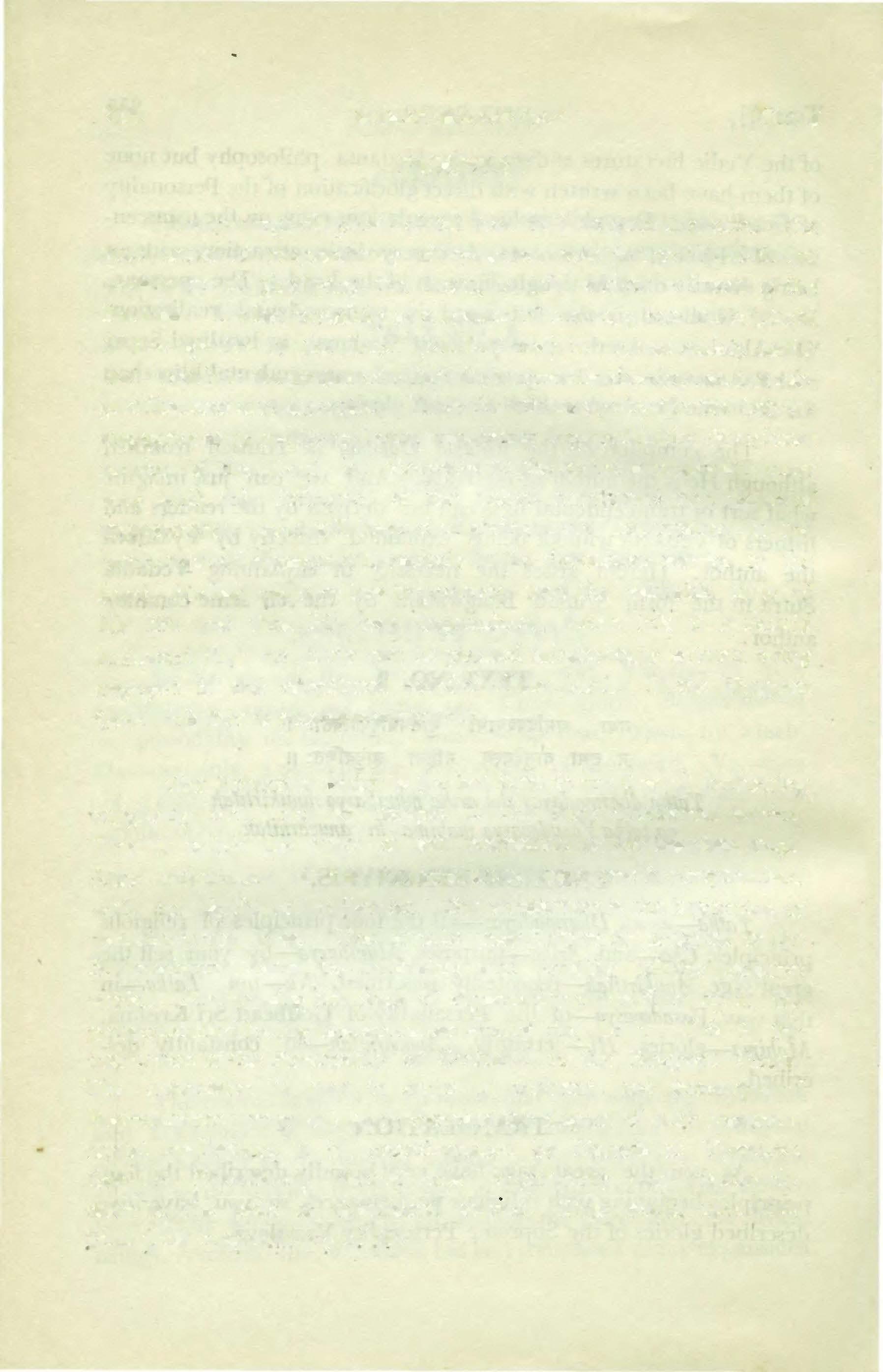
256 SRIMAD BHAGWATAM [Ch. 5
PURPORT
Na-not, Tad-that, Vachas-vocabulary, Chitrapadam-decorative, Rarer-ofthe Lord, 'Yasho-glories, Jagat-universe, Pav#ram -sanctified, Pragrinita-described, Karlzichit-hardly, tad-that, Vayasam-crows, Tirtham-pilgrimage, Ushanti-think, Manasasaintly persons, Na-not, 'Yatra-where, Hansa-all perfect beings, Niramanti-take pleasure, Ushiksaya-those who reside in the transcendental abode.
TRANSLATION
The set ofvocabulary, in which there is no description of the glories oftheLord which can sanctify the whole universal atmosphere, -is considered by the sanitly persons, as the pilgrimage of the crows where the all perfect persons do not derive any pleasure on account oftheir being inhabitant ofthe transcedental abode.
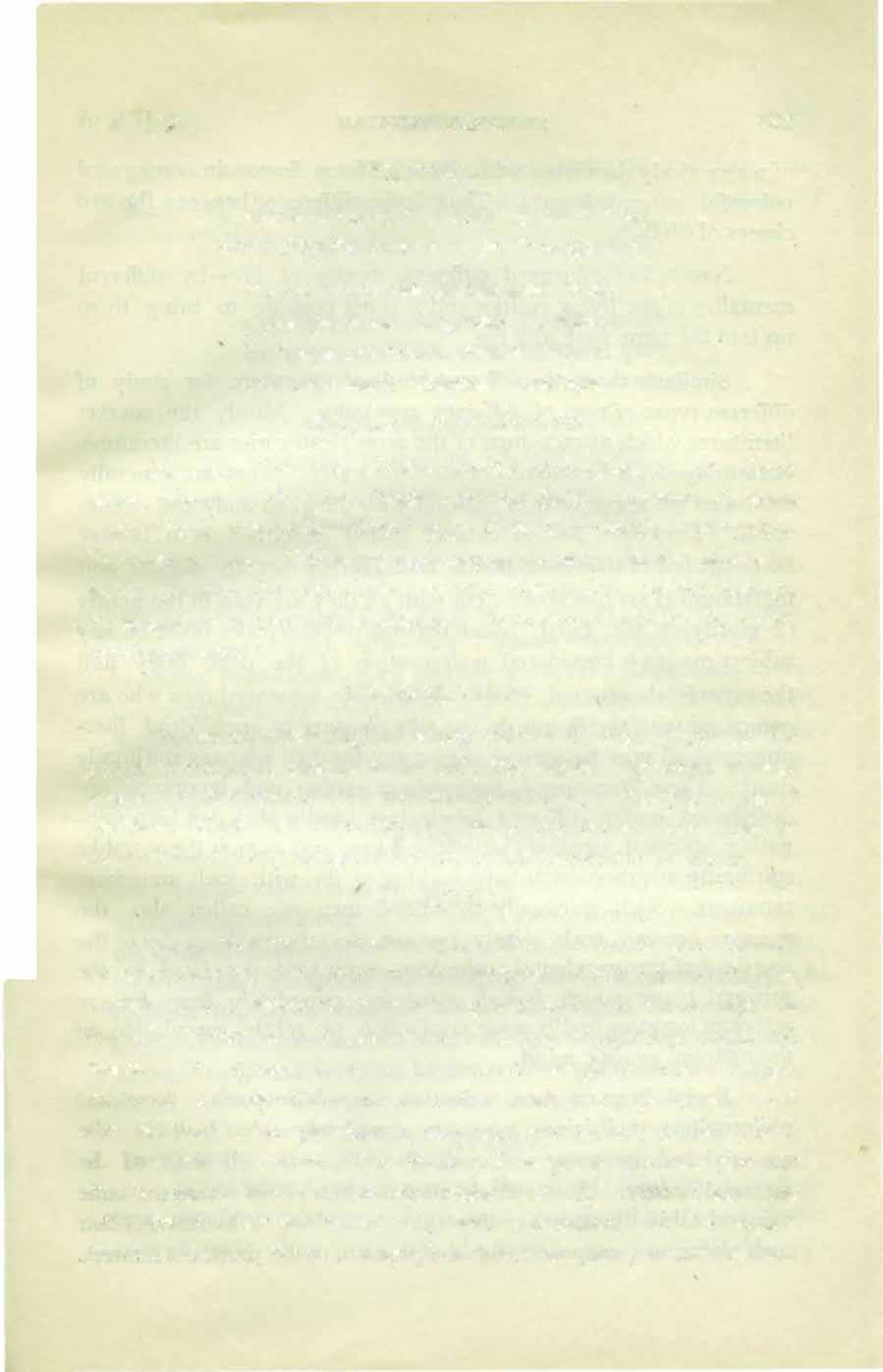
PURPORT
The crows and the ducks are not the birds ofthe same feather on account oftheir different mental attitude. Similarly the fruitive workers or the passionate man is compared with the crows whereas the all perfect saintly persons are compared with the ducks and swans. The crows do take pleasure in a place where refused remnants offoodstuffare thrown out as much as the passionate fruitive worker do take pleasure in wine and woman and similar places for gross sense-pleasure. The ducks and swans do not take pleasure in the place where crows are assembled for conferences and meetings but they are very rarely seen particularly in the atmosphere ofnatural scenic beauty where there is transparent reservoir
Text 10] FIRST CANTO TEXTNO. lO ;:r lfir'9f�-<r�'1� ��ll�r i.'ififc'ifcr<i 3PJU!Ta <fif�f:;r� 1 a&TlftfaT���fralfTif�TT ;:r lf� �:e'Tfil�lT"c:!f�Cf&rlfT: II
tad vachas chitrapadam hareryasha
pavitram pragrinita karhichit Tad vayasam tiriham ushanti manasa Na yatra hansa niramanti ushiksayah ENGLISH SYNONYMS 257
Na
Jagat
ofwater nicely decorated with stems of lotus flower in variegated colourful natura] beauty. That is the difference between the two classes ofbirds
Nature has influenced different species of life-by different mentality ofthe living entities and it is not possible to bring them up into the same rank and file.
Similarly there are different kinds of literature for study of different types ofmen of different mentality. Mostly the market literatures which attract men of the crow's categories are literatures containing refused remnants ofsensuons topics. They are generally known as mundane talks in relation with the gross body and subtle mind. They are full of subject matter described in decorative language full ofmundane poetic and literary art by similes and metaphorical arrangements ; but V1ith all they are void in the matter of glorifying the Lord. Such decorative poetry and prose on any subject matter is consirlerf'd as decorat ion of the dead body and the superficial ::Jg-itated mind. Spiritually advanced men who are compared with the Swans do not take pleasure in such dead literatures which may be source'> cf pleasure for men who are spiritually dead. These literatures in the mode ofpassion and ignorance are distributed under different labds but hardly they can help mitigating spiritual urge of the human being and as such the swanlike spiritually advanced men have nothing tQ do v\·ith such mundane remnants. Such spiritually advanced men are called also the manasaf because such saintly persons do alvvays keep up to the standard oftranscendental voluntary service of the Lord in tLe spiritual plane which forbids attraction completely from fruitive activities for gross bodily sense satisfaction or subtle speculation of the material egoistic mind.
Social literary men, scientists, mundane poets, theoritical philosophers, politicians who are completely absorbed m the material advancement of sense-pleasure, -are all dolls of the material energy. They do take pleasure in a place where the same rejected subject matters are thrown. According to Swami Sridhar such places are compared with the pleasure ofthe prostitutehunters.

258 SRIMAD BHAGWATAM [Ch. 5
But literatures which describes the glories of the Lord, are enjoyed by the Paramhansas who have grasped the essence of human activities.
TEXT NO. ll
cr[Tfi<rnlfT ;:;r.rar'Cifcrc�crr <rftli'! srfu�)Cfi�CW:<rcllftr 1
::rr11r��q ll�)sf�frr � l'luq-f;:cr rnqf;:cr �orf;:cr
mcrcr: 11
Tadbaga v£sargajanata agha viplavbo
'Yasmin pratislokam abaddha z1atyapi
Namani anantasya yash!J ankitani yat
Srinnwanti gayanti grinanti sadhabah
ENGLISH SYNONYMS
Tad-that, Raga-vocabulary, Visarga-creation, Janatathe people in general, Ag-ha-sins, Viplavbo -revolutionary 'Yasminin which, Pratislokam-each and every stanza, Abaddhabat-irregulary composed, Api-inspite of, Namani-transcendental names etc, Anantasya- ofthe unlimited Lord, Jasho-glories, Ankitani-depicted, Tat-what, Shrinnwanti-do hear, Gqyanti-do sing, Grinantido accept, Sadhabah-the purified honest.
TRANSLATION
On the other hand the literature which is fiJll with description oftranscendentalglories ofthe Name, Fame, Fmms, Pastimes etc. of the Unlimited supreme Lord,- is a different creation of transcendental vocabulary all meant fo.r bringing about a revolution in the impious li fe of a misdirected civilization of the world. Such transcendental literatures even though irregulary composed, is heard, sung and accepted by the purified men who are thorougly honest.

PURPORT
It is a part ofqualificationof tbe great thinkers to pick up best even from the worst. It is said that intelligent man should pick up nectar from the stock of poison, he should accept gold
Text ll] FIRST CANTO 259
even from the filthy place, he should accept a good and qualified wife even from the obscure family and he should accept good lesson from a man or from a teacher who may come from the untouchables. These are some ofthe ethical instructions for every one in every place without any exception. But a saint is far above the level ofan ordinary man and he is always absorbed in the business ofglorifiying the Supreme Lord because by broadcasting the holy name, fame ofthe Supreme Lord, the poluted atmosphere ofthe world will have a change ofheart ofthe people in general and as a result ofsuch propaganda through the transcendental literatures like Srimad Bhagwatam people will become sane in their transactions honestly and diligently. While preparing this commentation on this particular stanza ofSrimad Bhagwaiam we have a crisis before us that our neighbouring friend China has attacked the border of India in a millitant spirit. ''Ve have practically no business in the political field and yet we study situation that in old age there were both China ane India and they lived peacefully for centuries without any ill feeling between them. The reason is that they lived in those days in an atmosphere of God-consciousness and therefore every country, over the surface ofthe world, was God fearing pure hearted simple populace and there was no question ofpolitical deplomacy for nothing. Practically there is no cause of quarrel between the two countries ofChina and India on the issue ofa land which is notvery suitable for habitation and reasonably there is no cause offighting on this issue. But due to the age of quarrel Kali whichwe have discussed in these pages of Srimad Bhagwatam, there is always a chance ofquarrel on slight provocation. This is due not to the issue at question, but it is due to the poluted atmosphere of this age when systematically there is propaganda, by a section ofpeople, to stop glorification of tbe Name and Fame of the Supreme I.ord. Therefore, there is great need ofdisseminating the message of Srimad Bhagwatam all over the world. It is the duty ofevery responsible Indian to broadcast the transcendental message ofSrimad Bahgwatam throughout the world to do them the supermost good as well as to bring about the desired peace in the world. Because India has failed in her duty by neglecting this

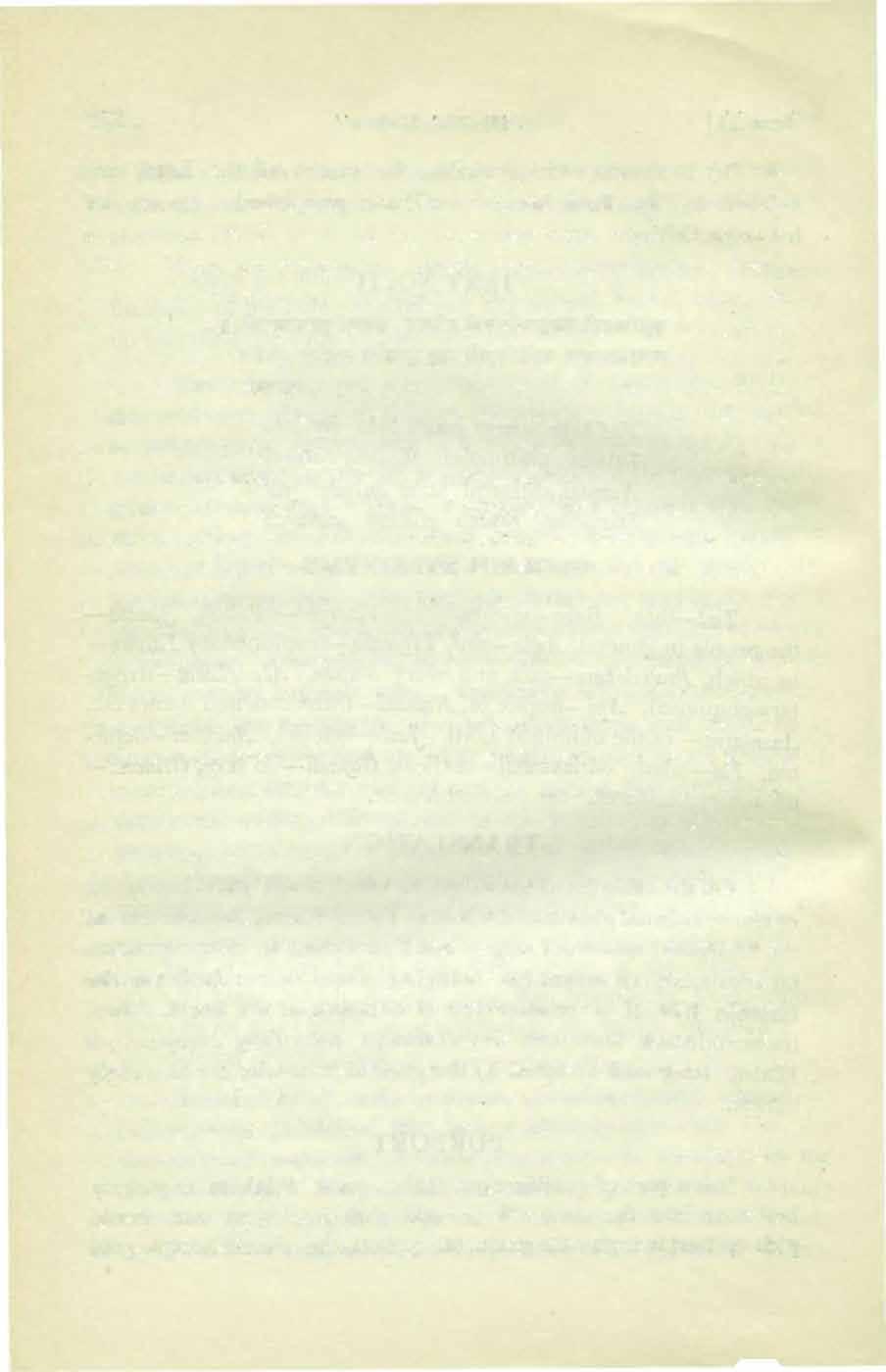
260 SRIMAD BHAGWATAM [Ch. 5
responsible work there is so much quarrel and trouble all over the world. VVe are confident ifthe transcendental messages of Srimad Bhagwatam is received only by the leading men of the world, certainly there will be a change of heart and naturally the people in general v;ill follow them. The mass people in general are so to say tools in the hands ofthe modern politicians and leaders ofthe people. Ifthere is a change ofheart ofthe leaders only, certainly there will be a radical change in the atmosphere ofthe world siuation. vVe know that in our honest attempt for presenting this great literature conveying transcendental message for reviving the Godconsciousness ofthe people in general, as a matter of re-spiritualisation ofthe world atmosphere,-is fret with many difficulties. Regard being had to the facts that our capacity ofpresenting the matter in adequatelanguage,speciaUya foreign language, willcertainlyfail and there maybesomany literarydisCI'epancies inspite ofourhonest attempt to present it in the proper way. But we are sure that with our all faults in this connection the seriousness ofthesubject matter will be taken into consideration and the leaders ofthe society will still accept this on account ofits being an honest attempt for glorifying the AlmightyGreat so much now badly needed. \Vhen there is fire in the house, the inmates of the house go out for help from the nei!!hbours who may be foreigners to such inmates and yet with._., out any adequate language the victims ofthe fire express themselves and the neighbours understand the need even though not expressed in adequate language. The same spirit of co-operation is needed in the matter ofbroadcasting this transcendental message of the Srimad Bhagwatam throughout the whole poluted atmosphere ofthe present day world situation. After all it is a technical science of spiritual values and as such we are concerned with the techniques and not with the language. If the techniques ofthis great literature are understood by the people of the world, there is the success.
When there is too much materialistic activities by the people in general all over the world there is nothing to be astonished ifa person or a nation attacks another person or nation on slight provocation. That is the rule ofthis age ofKali or quarrel. The

Text 13] FIRST CANTO 261
atmosphere is already pointed with corruption ofall description and every one knows it well than we can describe herewith. There are so many unwanted literatures full of materialistic ideas of sense gratification. In many countries there are census-body appointed by the state to detect obscene literatures. This means both the Government, and the saner section ofpublic do not want that such unwanted literatures should be publised but still they are in the market place because the people want it for sense gratification. The people in general want to read that is a natural instinctbut because their mind is poluted they want such literatures. Under the circumstances transcendental literatures like Srimad Bhagwatam will not only diminish activities of the corrupted mind ofthe people in general but also it will supply food for their hankering after reading some interesting literature. In the beginning they may not like it because in the diseased condition suffering from jaundice one is reluctant to take sugar-candy but we must know it that Sugarcandy is the only remedy for thejaundice disease Similarly let there be a systematic propaganda for popularising reading of the Bhagwat Geetaand the Srimad Bhagwatam whichwill act like the sugar-candy in theJaundicc-like diseased condition ofsense gratification. When they have taste for this literature the other literatures which are catering poison in the society vvill then automatically cease; because they will cease to read them on account oftranscendental literature like Srimad Bhagwatam being available for reading propensity. We are sure, therefore, that every one in the human society will welcome Srimad Bhagwatam even though it is now presented with so many faulty and broken linguistic technicalities, because it is recommended by such an authorised personality as Sri Narada who has very kindly appeared from this chapter.
TEXT N0. 12

<fiiCfiPi-:JTczr;;�'+TTCfCff\ifcr ;:r �)'+fa- �T;:rl1<i'f f-1�\lfij"i( I
�a: �il: mcr�'+T�:JT1�cr� <t :qrfqci coll lf�ClfCfiT"{111if;. 11
Naiskannam api achyuta bhava varjita
Na shovate jnanam alam niranjanam
Kutah punah shaswd ablzadram iswarey
Jlachaarpitam karmayadiapi akaranam
262 SRIMAD 13HAGWATAM [Ch. 5
ENG LISH SYNONYMS
Naiskarmam-self-realisation being freed from the reaction of fruitive work, Api-inspite of, Achyuta -the infallible Lord, Bhava -cenception, Varyita-devoid of, .Na -does not, Shovate-look well, Jnanam-lmmdedge transcendental, Alam-bythe by, Niranjanam -free from designations, Kutah-where is, Punah-again, Shaswdalways, Abhadram-uncongeneal, hwarey-unto the Lord, .lva-not, Cha -and, Arpitam ·-offered, Karama- fruitive work, 'Yadapi-what IS, Akaranam -non-fruitive .
TRANSLAl'ION
Knowledge ofself-realisation even though it is freed from all material affinity, does not look well on account ofbeing devoid of the conception of the infallible (God). \Vhere is then any utility of fruitive activities which are naturally painful from the very beginning and transient by nature,-ifthey are not utilised for the devotional service ofthe Lord.
PURPORT
As referred to above not only ordinary literatures devoid of the transcendental glorification of the Lord, are condemned but also vedic literatures and :;peculation on the subject ofimpersonal Brahman, when they are devoid of devotional service, are also similarly condemned on account ofsuch spiritual vacuum. \'\Then speculation on the impersonal Brahman is condemned on the above ground thenwhat to speak about ordinary fruitive work ifit is not meant for fulfilling the aim ofdevotional service. Such speculative knowledge and fruitive work cannot lead one to the goal of perfection. Fruitive work in which almost all people in general are engaged, is always painful either in the beginning or at the end, They can only be fruitful when theyare made subservient to the devotional service ofthe Lord. In the Bhagwat Geeta also this is confirmed that the result ofsuch fiuitive work may be cffered for the service of the Lord, otherwise they are all meant for material bondage. The bonafide enjoyer, of the fruitive work, is the Personality ofGodhead and as:suchfruitive result when it IS enga-

Text 12] FIRST CANTO 263
ged m the sense gratification of the living beings, all such results become acute sources oftrouble for such false enjoyer.
TEXT NO . 13

�ifif�T'1fiT +rCfTrfllT'Cf�� �f"fl.l<n: �czn::a-1��nrcr: 1
\3"��ifl:l:fTflff'-'fOfi'i:l:!'liJlT �ifTfi:lrr�q�

af[�fcc:a� II
Atho mohahhaga bhavan amoghadrik
Shuchi shrabah satyarato dhritabratah
Urukram asya akhila bandha muktaye
Samadhina anusmara tad bechesitam
F:NGLISH SYNONYMS
Atho-therefore, Mohabhaga-highly fortunate, Bhavanyour�e1f, Amoghadrik-the perfect seer, Shuchi-spotless, Shrabahfamous, Saryarato-taken the vow oftruthfulness, Dhritabratah-fixed up in spiritual qualities, Urukramasya --of the one who performs supernatural activities (God),Akhila-uuiversal, Bandha-bondage, Afuktaye-for the matter ofliberation from, Samadhina-by trance, Anwmara-think repeatedly and then describe them, Tadvichestitam -different pastimes ofthe Lord.
TRANSL ATION
Oh Vyasdeva your vision is completely perfect. Your good fame is spotless. You are fixed up in vow and situated in truthfulness. And as such you can think ofthe pastimes ofthe Lord in trance just for the liberation of the people in general from all material bindings.
PURPORT
People in general have a taste for literatures by instinct. They want to hear and read from the authorities something about the unknown but their taste is exploited by unfortunate literatures which is full of subject matter for satisfaction of the material senses. Such literary careers develop into different kind ofmundane poems and philosophical speculations, more or less under the same influence of Maya ending in sense gratification. Thesr:
264 SRIMAD BHAGWATAM [Ch. 5
literatures, although worthless in true sense of the term, are variedly decorated to attract the attention ofthe less intelligent men and thus the attracted living entities are more and more entaglcd in the material bondage without any hope ofliberation for thousands and crores ofgenerations. Sri Narada Rishi as He is the best amongst the Vaishnavas, is compassionate for such uufortunate victims ofworthless literatures and as s.uch He advises Sri Vyasdeva to compose such transcendental literature which may, not only be attractive but also actually cause liberation from all kinds of bondage ofthe materialistic men. Srila Vyasdeva or His representatives are the rightpersons to do this act, because they are rightly trained up to see trings in true perspective on account oftheir spiritual vision. Srila \·yasdeva and His representatives are pure in thought on account oftheirspiritual enlightenment, fixed up in vow on account oftheir devotional service and all of them are determined to deliver the fallen souls rotting in the material activities. The fallen souls are very eager to receive novel informations every day and the transcendentalist like Vyasdcv or Narada can supply such eager people in general with news from the spiritual world without any limitation. In the Bhagwat Geeta it is said that the material world is only a part ofthe whole creation and this earth is only a fragment of the whole material wortd.
There are thousands and thousands ofliteracy men all over the world and they have created many many thousands of literacy works for the information of the people in general for thousands and thousands of years. Unfortunately none of them have brought in peace and tranquility on the earth between man to man nation to nation. This is due to spiritualvacuum inthose literatures and as such the Vedic literatures �:pecially the Bhagwat Geeta and the Srimad Bhagwatam are specificallyrecommended to the suffering l umanity for bringing about the desired effect ofliberation from the pangs of m<�terial civilization which is eating the vital part of the human energy. The Bhagwat Geeta is the spoken message by the LordHimselfrecorded by Vyasdeva and the Srimad Bhagv1atam is the transcendental narration ofthe activities ofthe

Text 13] FIRST CANTO 265
same Lord Krishna whkh alone can satisfy the hankering desires ofthe living being for eternal peace and liberation from miseries. Srimad Bhagwatam is, therefore, meant for all the lving beings all over the universe for total liberation from all kinds of material bondage. Such transcendental narration of the pastimf'S ofthe Lord can only be described by such liberated souls like Vyasdeva and His bonafide representatives who are completely merged in the transcendental lovingservice ofthe I.ord. Because to such devotees only the pastimes of the Lord and their transcendental nature become automatically manifest by dint ofdevotional service attitude. No body else can either know or describe the acts ofthe Lord, even they speculate on the subject for many many years. Description ofthe Bhagwat is so precise and accurate that whatever has been predicted in this great literature, about five thousands years before, are now exactly happening without any deviation. Therefore, the vision ofthe author comprehends past, presant and future. Such liberated persons like Vyasdeva are not only perfect by the power of vision and wisdom but also they are perfect in aural receptionin thinking, feeling and all other perfect sense-activities. A liberated person means possessing perfect senses and with perfect senses only one can serve the Sense-Proprietor Hrishikesha Sri Krishna the Personality of Godhead. Srimad Bnagwat is, therefore, the perfect description ofall Perfect Personality Godhead by the all perfect Personality like Srila Vyasdeva the compiler of the Vedas.
TEXT NO. 14
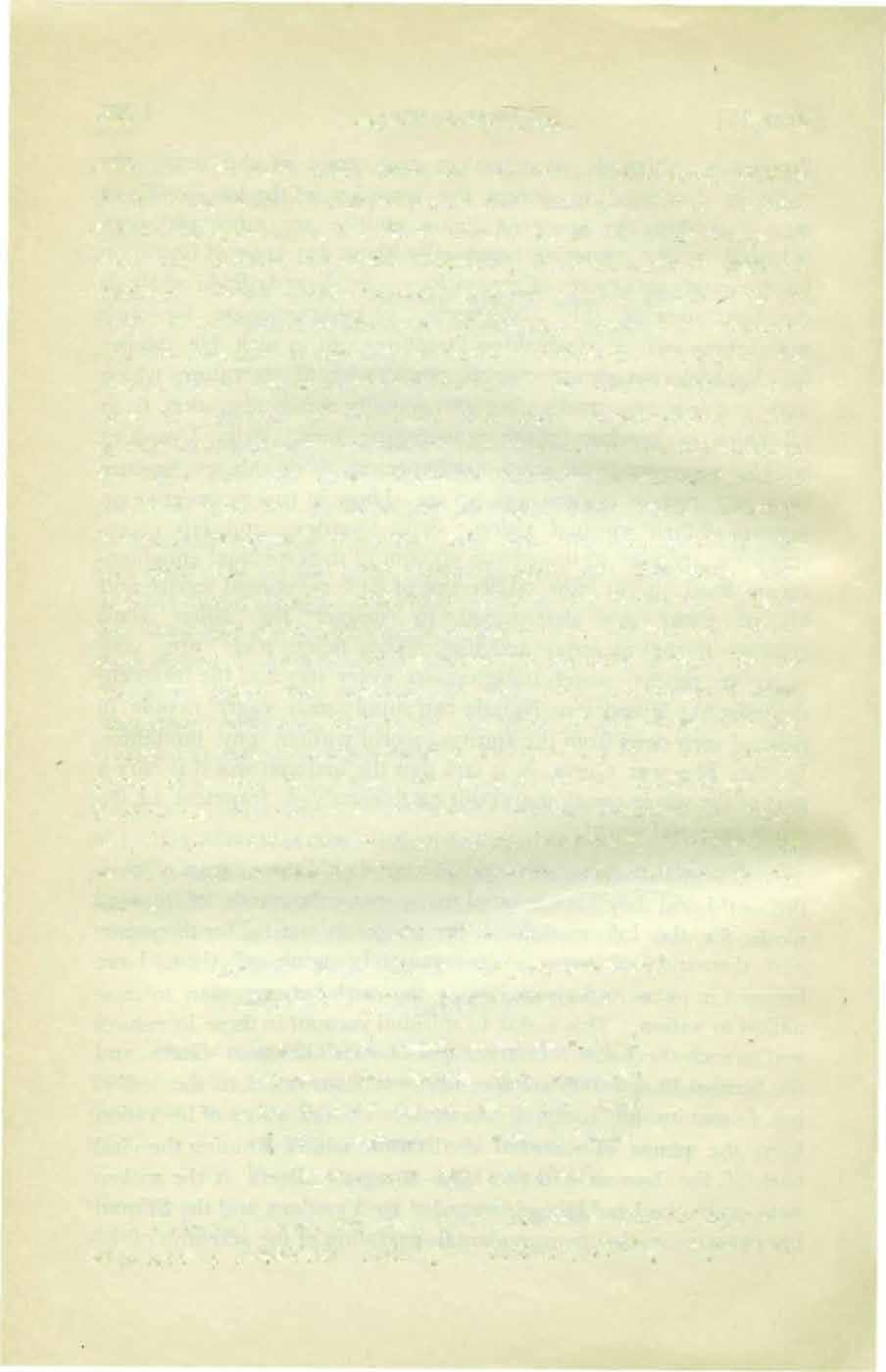
a<JTS•lf'ITT f�:q;:r lff&crlff<J: 'I�<J:���<J�'ii<J�G"<TT'1f+r: I
;:r Cfif�f�Cf'C!Tfq :q �:fpmr i!f<:r��crcrmr�<:rTTif�crl�G"G:� 11
1ato' anyatha kimchanayad vivakshatah prithag drishas tatkrita rujJa namabhih
Na karhichit kwajJi cha dusthita rnatir labheta batahata nouriva asjJadarn.
ENGII"SH SYNON\'l\r1S
Tato-from that, A1ryatha-apart, Kimchana--something, Yadwhat soever, Vivakshath-desiring to describe, Prithag-separately,
266 SRIMAD BHAGWATAM [Ch. 5
Drishah-vision, Tatkrita-reactionary to that, RujJa-form, Namabhih·--by names, Na karhichit-never, Kwapi-any, Cha-and, Dusthita matir--oscillating mind, Labheta-gains, Batahatatroubled by the wind, Nour-boat, Iva-like, Aspadam-place.

TRANSLATION
Anything thatyou mayhave desiredto describeunderseparate vjsion apart from that of the Lord, will react in different forms and names and result in oscillating the mind like the boat disturbed by the wind which cannot have any place to rest.
PURPORT
Sri Vyasdeva is the editor of all descriptions of the Vedic literatures and as such he has described transcendental realisation in differnt ways namely the way of fruitive activities, the way of speculative knowledge, the way of mystic power and the way of devotional service. Besides that in his various Puranas he has recommended the worship of so many demigods in different forms and names. The result js that people in general are puzzled to fix up his mind in the service ofthe Lord; on the contrary they are always djsturbed to find out the real path ofselfrealisation. Srila Naradadeva is stressing on this particular defect of the Vedic literatures compiled by Vyasdeva and thus he is trying to emphasise on the point of concentrating in the matter ofdescribing everything in relation with the Supreme Lord and no body else. In fact there is nothing existent except the Lord. The Lord is manifested in different expansions. He is the root ofthe complete tree. He is the stomach of the complete body. Assuch pouring ofwater on the root is the right process to water the tree as much as feeding the stomach means to supply energy to all the parts of the body. As such Srila Vyasdeva shouldnothave compiled any other Puranas than the Bhagwat Purana because a slight deviation from that may create a havoc in the matter of self-realisation. A slight deviation can create such havoc and what to speak of deliberate expansion of the separatist idea from the Absolute Truth Personality of Godhead.
Text 14] FIRST CANTO 267
TI1e most defective part of v. orsb:ipping other demigods, is that it creates a definite conception ofpantheisrn ending disastrously by products of many religious sects detrimental to the prcgre�s ofBhagwat principles which alone can give the accurate direction for self realisation in eternal relation with the Personality of Godhead by devotional service in transcendental love. The example ofthe boat disturbed by whirling wind is jmt suitable in this respect and the divo ted mird of tLe pontbcist can never reach to the perfection ofselfrealisation on account of disturbed condition ofselection ofobject.
TEXT NO 15
"J:�fcij"cl" t-r+f�a-s"};�TT�: Ff+rTOf�'fCTFT if�T"{ol:fft:r:ti+r: I
lliiiCflioT t-r+T �arcr�: f�'lfoT'f ifrlia- CfH f.-1crg� ;;r.,-: II

JugujJsitam dharmakrite anushasatah

Swablzavaraktasya molzan byatikramalz
Yadvakyato dharma iti itarah stitho Na manyate tasys nivaranm janalz.
ENGLISH SYNONYMS
JugujJsitam-verily condemned, Dlzarmakrite-for the matter ofreligiosity, Swablzavaraktasya-naturally inclined, Mohan-great, J);atikrama-unreasonable, Yadvakyato-under whose instruction, Dharma-religion, iti-it isthus, ltarah-thepeople in general, Stitha fixed up, Na-does not, Mmryate-think, Tasya-of that, nzvaranam -prohibition, Janah-they.
TRANSLATION
The people in general are naturally inclined to enjoy and you have encoraged them in that way inthe name of religiosity which is verily condemned and mostly unreasonable. Because they are guided under your instruction, they will accept such activities m the name ofreligion and ·will hardly care for their prohibition.
PURPORT
Srila Vyasdeva's compilation of different vedic literatures on the basis ofregulated performances offruitive activities as they are
268 SRIMAD BBAGWATAM [C}1. 5
depicted in the l'vfahabharta and others, -all are condemned herewith by SriJa Narada. The human being, by long material association, life-after-life, has a natur<ll inclination, by practice, to endez.vour to lord it over the material energy. They have no sense of the responsibility of human life. Thiii human form of life is a chance to get out ofthe clutches of the illusory matter. The direction ofthe Vedas are meant for going back to Godhead going back to horne. To revolve in the cycle of transmigration of series oflife numbering eighty four lacs, is the term ofundergoing imprisoned life for the condemned conditioned souls. The human form oflife is a chance to get out ofthis imprisoned life and as such the only occupation ofthe human being is to re-establish tl:c lost relation with God. Under the circumstances they should never be encouraged in the matter of making a plan for sense enjoyment in the name ofreligious functions. Such diversion of the human energy is so to say a misguided civilization. Srila Vyasdeva is the authority in the matter of Vedic explanations in different literatures like the Mahabharta etc and His encouragement in the matter ofsense enjoyment in some form or other is a great barrier for spiritual advancement; because the people in general will not agree to renounce material activities which entrap them in material bodage. At a certain stage of human civilization such material activities in the name ofreligion (as sacrificing the animal in the name ofYajna) wa.s too much rampant when the Lord incarnated Himselfas Buddha and had to decry the authority of the Vedas and stopped to perform animal sacrifice in the name of rdigion. This was foreseen by Narada and therefore condemned such literatures. The flesh eaters still continue to perform animal sacrifice before some demjgods or goddess in the name of religion because in some ofthe Vedic literatures such regulated sacrifice is recommended. They are so rcconunend as to djscouragc flesh eating but gradually the sense ofsuch religious activities are forlorn and the business of a slaughter house become prominent. Because such foolish materialistic men do not care to listen others who are actually in position to explain the Vedic rites.

In the Vedas it is distinctly said that the perfection of life is

Text 15] FIRST CAl�TO 269
never to be attained either by voluminous work, or by accumulation ofwealth or even by increasing the number of population, but it is so attained only by renunciation. The materialistic men do not care to listen to such injuctions. According to them the so called-renounced order oflife is meant for them who are unable to earn their livelihood on account ofsome corporal defects. Such defective men only should take up the life of renounced order or the renounced order oflife is meant for persons who have successively failed to achieve prosperity in the family life. Such incapable men only can retire fi'om material activities and may pull on the life some way or other depending on the charities of the munificient population.
In histories like the Mahabharata, ofcourse, d1ere are topics on transcendental subjects along \vith material topics. The Bhagwat Geeta is there in the Mahabharata. The whole idea of the Mahabharata is culminated in the ultimate instructions of the Bhagwat Geeta, that one should relenquish all other engagements and should engage o:geselfsolely and fully in the matter of surrendering unto the lotus feet of Lord Sri Krishna. But men with materialistic tendency are more attracted with politics, economics and social uplifment activities mentioned in the Mahabharata than the principal topics namely the Bhagwat Geeta. This compromising spirit ofVyasdeva is directly condemned by Narada and He advised, so to say, to speak directly the prime necessity of human life is to realise his eternal relation with the Lord and thus surrender unto Him without any delay.
l\ patient suffering from a particular type ofmalady is almost always inclined to accept eatable which is forbidden for· him. The expert physician does not make any compromise with the patient and thus allow him to take partially what he should not at all take. In the Bhagwat Geeta it is also said that men attached with fruitive work may not be discouraged in his occupation and gradually he may be elevated to the position of selfrealisation. This is sometimes applicable for those who are only dry emperic philosophers without any spiritual realisation. But impetus for those who are in the devotional line may not be so advised by all means.

270 SRIMAD BHAGWATAM [Ch. 5
Viclzakshana asya arhati veditum bibhor Anantaparasya nivhttitalz sukham Pravartamanasya gunair anatmanas Tato bhavandarshayachestiambibho.
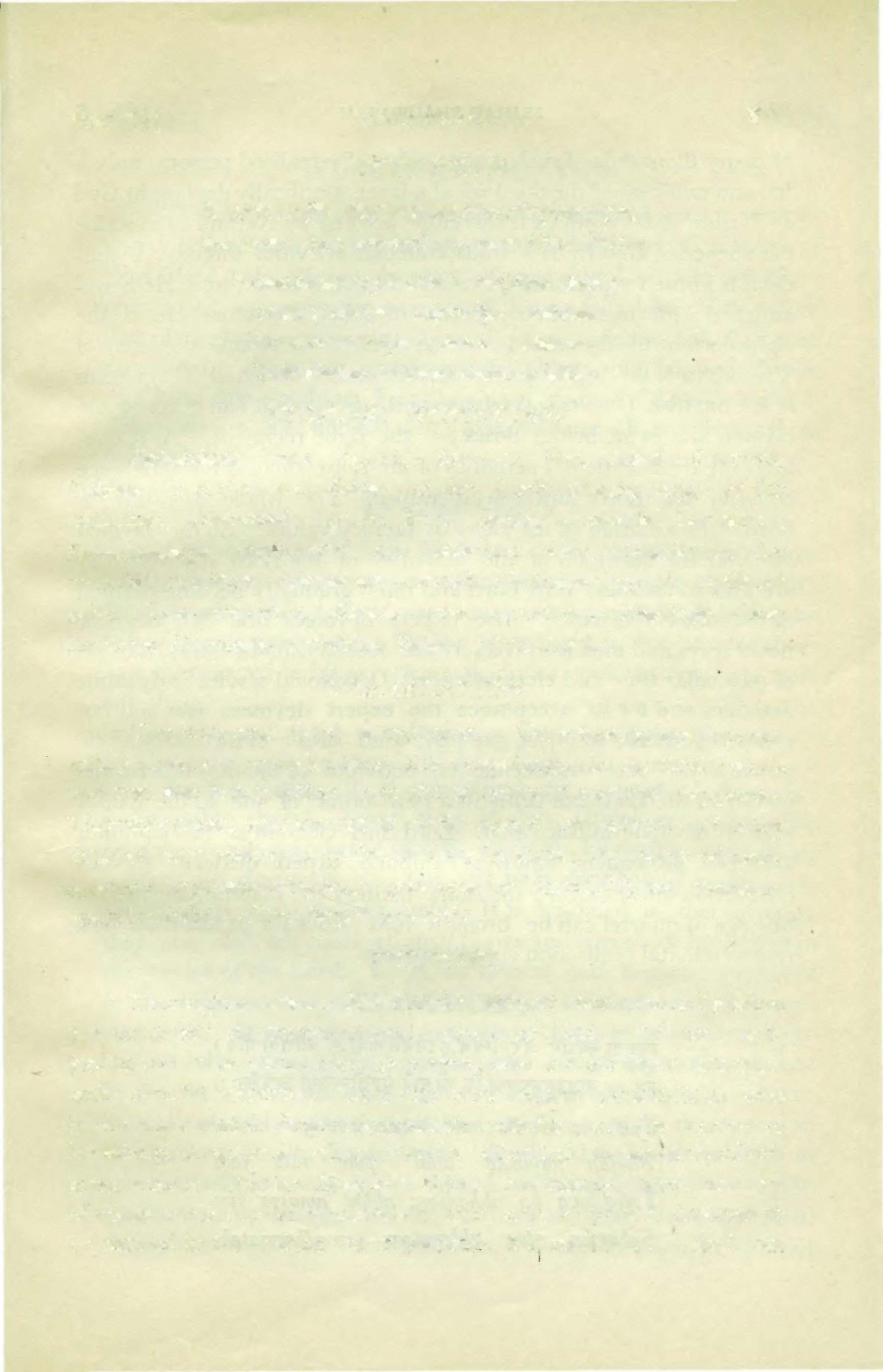
ENGLISH SYNONYMS
Vichakshana-very expert, A.rya-of him, Arhati-deserves, Veditum-to understand, Bibhor-of the Lord, Anantapara.rya-ofthe unlimited, Nivirttitah-retired from, Sukham-material happiness, Pravartamansya -tho;;;e who are attached with, Gunair-by the material qualities, Anatmanas---devoid of knowledge in spiritual value, Tato -therefore, Bhavan -your goodness, Darshaya -show the ways, Clzestitam -activities, Bibho-ofthe Lord.
THANSLATION
The Supreme Lord is unlimited. Only a very expert pcrso' nality deserves to understand this knowledge in spiritual values and that also being retired from the activities ofmaterial happiness. Therefore those, who are not so well placed on account ofbeing attached \vith material qualities, may be shown the ways oftranscendental realisation by your goodness by describing the transcendental activities ofthe Supreme Lord.
PURPORT
Theological science is a difficult subject and specially when it is dealt with the transcendental nature of God. It is not a subject matter to be understood by persons who are too much attached with material activities. Only the very expert personalities, who have almost retired from materialistic activities, and by culture of knowledge in spiritual values, can be admitted in the study ofthis great science. In the Bbagwat Geeta it isclearly stated that out ofmany hundred and thousands ofmen only a person deserves to be entered in the matter of transce1 c1ental realisation. And out !
Text 16] FIRST CANTO TEXT N0. 16
�@l'{.1 'Sf<'.fzh=rrrr�<:r �<:fr-.::rrr�rrm) <r<n;:��<:r �fcc:<:f f<i<rT: 11
fcr'9eril1)�m�f;;r�fq?;.fcr<r)�rrrcrqT���frr�fu-;;r:
271
ofmany thousands ofsuch transcendentally realised persons, only a fewcan understand the theological science specifically dealing in God as Person. Sri Vyasdeva is therefore advised by Narada to describe the science ofGod by His transcendental activities directly. Vyasadeva is himself a personality expert in this science and He is unattached wjth material enjoyment of life. Therefore He is the right person to describe it and Sukhdeva Goswami the son of Vyasadeva is the right person to receive it. Shrirnad Bhagwatam is the topmost Theological science and therefore it can react 011 the laymen also as medicinal dos�';; for the right recipient. As it contains the transcendental activities ofthe Lord there is no difference betwee-n the Lord and the literature. The \\hole literature is factual incarnation ofthe Lord by literary values. So the laymen can hear the narration of the activities of the Lord whereby they are able to associate with Lord and th�1s gradually become purified ofthe material disca<>es. The expert devotees also can discover novel ways and means to convert the foolish non-devotees in terms ofparticular time and circumstances. Devotional service is dynamic activities and for its acceptance the expert devotees can find out competent means to inject into the dull brain ofthe Inateriali<tic population. Such transcendental activities ofthe devotees for the service ofthe Lord can bring in a new order of life to the foolish society of materialistic men. Lord Shri Chaitanya :r-vfahaprabhu and His subsequent followers exhibited expert dexterity in this connection and following the same method the materialistic men o this age ofquarrel can be brought into order for peaceful life and transcendental realisation simultaneously.
Tl�XT N0. 17
<:ZF'fccrr �orrrB'· 'if�UJT�=�� ��'4-;;r;;;rcrn)sq 'Ta-uer)rrfG" 1
ll"f i:J'Cf Cff'liirlf�G"�EI:ff� 'liTCfM '!:ffCCJfS'i\;f<:ff BfCfll<:f! II
Tyaktwa swadlzmmam clzaranambuyam lzarer
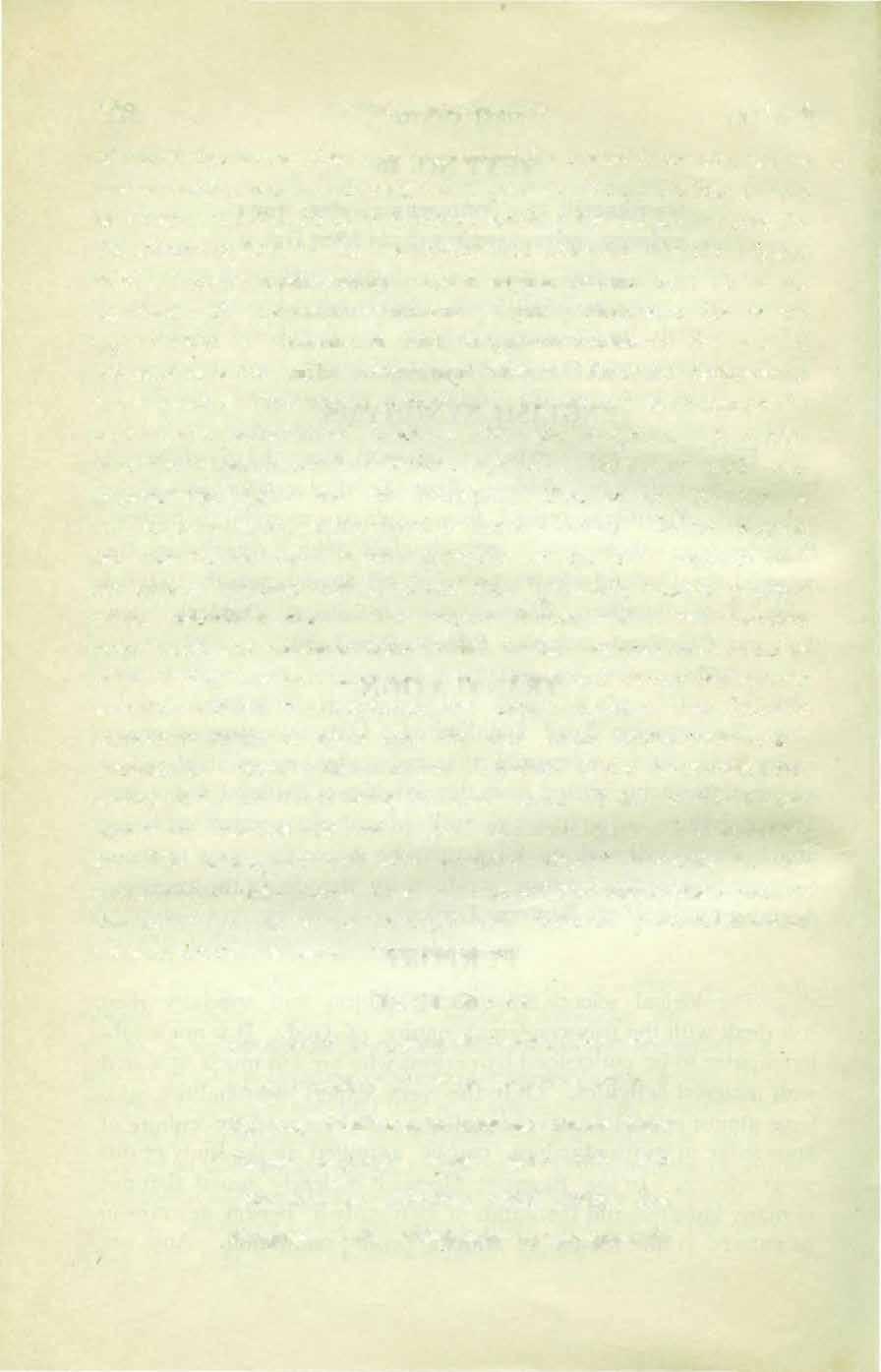
Blzajan najJakko atlza jJatet tato yadi
Tatra kwa ba abhadram abhut amusya kim
1 Kobartlza apto ablzayatam swadharmatalz,
272 SRIMAD BHAGWATAM [Ch. 5
ENGLISH SYNONYMS
1yaktwa --having forshaken, Swadharmam-onc's own occupational engagement, Charanambujam the lotus feet of, Harer--of Hari (the Lord), Bhajan-incourse of devotional service, AjJakko-immatured, Atlza-for the matter of, Patet-falls down, Tato-from that place, Tatra-whereupon Tadi-if, Kwa-whatsort of, Ba-used sarcastically, Ablzadram-unfavourable, Ablzut-shall happen, Amu.rya -ofhim, Kim-nothing, Kobartlza-what interest, AjJto-obtained, Ablzajatam-of the non-devotee, Swadlzarmatalz-being engaged in occupational service.
TRANSLATION
One who might have forshaken one's material occupational engagements and be engaged in the devotional service ofthe Lord, may sometime fall dmvn in immature condition and still he has no risk ofbeing unsuccessful. On the other hand a non-devotee may be fully engaged in his occupational duties and yet does not gain any thing.
PURPORT
So far duties of the mankind are concerned there are innumerable duties. Every man is duty bound not only to his parents, family-members, society, country, humanity, other living beings, the demigods etc, but also he is duty bound to the great philosophers, poets, scientists, etc. It is enjoined in the scripture that one can relequish all such duties and surrender himselfunto th� service ofthe Lord. So ifone does so and becomes successful in the discharge ofhis devotional service unto the Lord, it is well and good. But it so happens sometimes that one surrenders himselfunto the service ofthe Lord, by some temporary sentiment, and in the long run due to so many other reasons he falls down from the path ofservice by undesirable association and there are so many instances in the histories. Bharat Maharaj was obliged to take his birth as a stag on account of his intimate attachment with a cub ofa stage and he was full with its thinking when he died. As such in the next birth he became a stag although he did not

Text 17] FIRST CANTO 273
forget the incidence of his previous birth. Similarly Chitraketu also fell down on account ofhis offence at the feet of Shiva. But in spite ofall these the stress is given here on the point of surre:qdering unto the lotus feet ofthe Lord even there is chance of falling down. Because, even though one falls down from the prescribed duties of devotional service he will never forget the lotus feet of the Lord. Once engaged in the devotional service ofthe Lord is enough for one's continuing the service at aU circumstances. In the Bhagwat Geeta it is said that even small quantity of devotional service can save one from the most dangerous position. There are many instances in the histories of such examples. Ajamil is one of them. Ajamil in his early life begun as a devotee but in his youth he fell down and still he was saved by the Lord at the end.
TEXT NO. 18
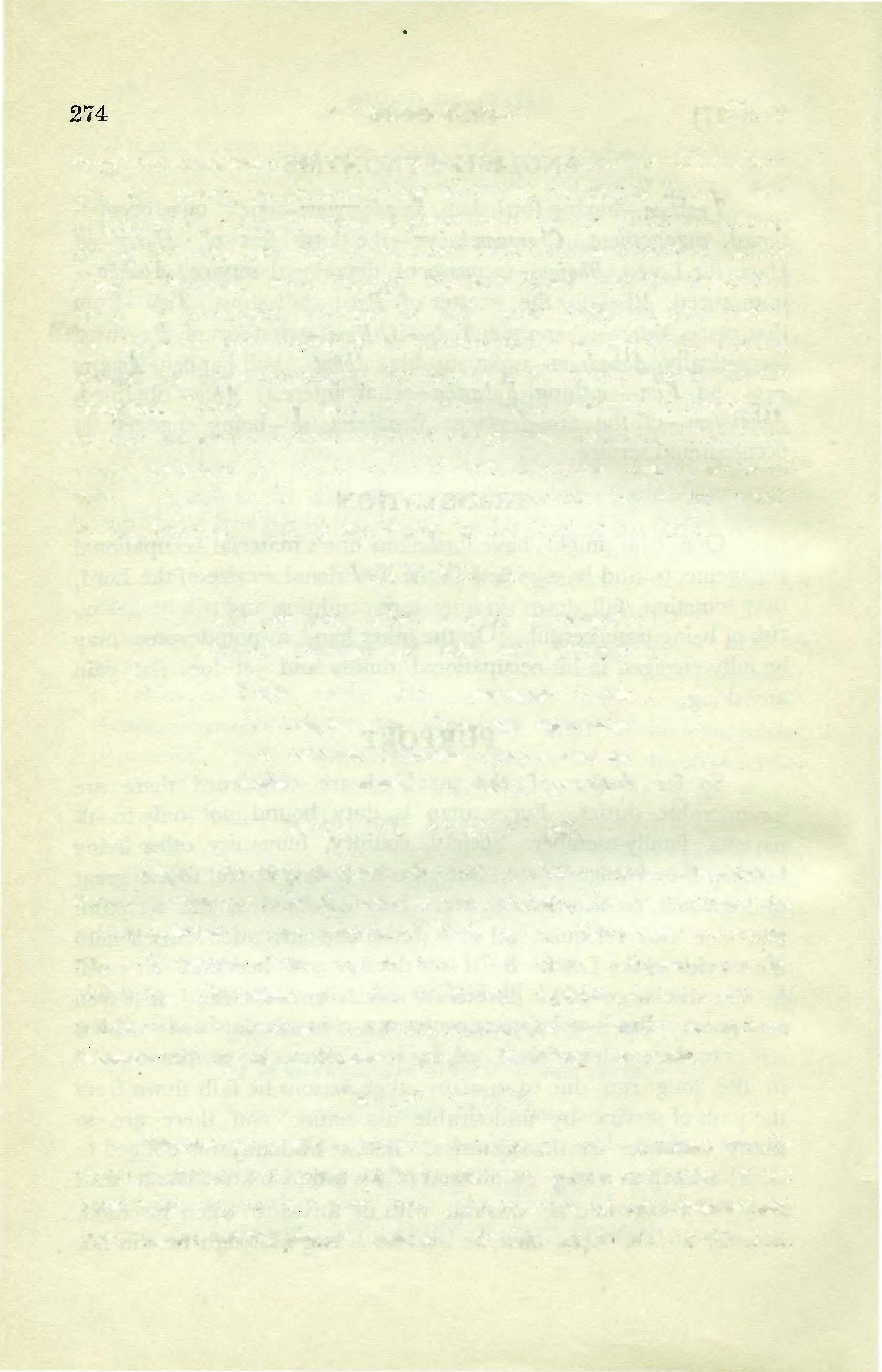
a<.=<lcr ?'err= !lrr.�cr q;rfio]�r ;:r �;p:qa- ll�li<Jr�q<t>:r: 1
m.:;;:r+rr.a- �:tcfcr?rr.a: ��i 'fir�;:r ��::r •r'lir-n'�m 11
Tas.Ya eva lzeto prayateto kovido
Na Zalzh;yate yad blzramatam uparyadlza
Tat lablryate dukhabad anyatalz sukham
Kalena sarvatra gabhira ramlzasa
.ENG.LISI-I SYNON YMS
Ta.�a-for that purpose, Eva-only, Heto reason, Prayateta-should endeavour, Kovido -one who is philosophica11y indiJH:.:d, Na -not, Lablzyate ·--is not obtained, Yad---'what, Blzramatam-wondering, [JjJaryadlza ·-·from top to toe, Tat-that, Labhyate -can be obtained, Duklzabad-like the miseries, Anyatalz--as a result of previous work, Sukham-sense enjoyment, Kalena-in course oftime, Sarvatra -·everywhere, Gabhira-subtle, Ramhasa-progres�,
TRANSLATION
Persons who are actually intelligent and pl1ilosophically inclined should endeavour only for that purposeful end which is not obtainable wondering even from the topmost planet (Bralzmaloke) down to the lowest planet (Patala). So far happir:es3 derived fi·om
274 SRIMAD BHAGWATAM [Ch. 5
Text 18]

FIRST CANTO
sense enjoyment is concerned, it can be obtained automatically in course oftime as we obtain progressively miseries even though we do not desire for them.
Every man everywhere is trying to obtain the greatest amount of sense enjoyment by various endeavoures. Some of them are busy engaged in trade, industry, economic development, political supremacy etc and some ofthem are engagedin thefruitive work for becoming happy in the next life by obtaining the different planets of greater happiness. It i<> said that in the Moon planet the inhabitants are fit for greater sense enjoyrnent by drinking Somarasa and the Pitriloka is obtained by good charitable work. So therearevarious programme ofsense enjoyment either duringthis life or in the life after death. Some ofthemare trying toreachthemoon planet or for the matter ofthat other planets also, during this life by some machanical arrangement as they are very much anxious to get into such planets without any good work. But it is not to happen. By the law ofthe Supreme, differnt places are meant for different grades ofliving beings according to the work they might • have performed. By good work only as they are prescribed iu the scripttnes one can obtain birth .ir1 a good family, can obtain
opulence, can obtain good education, and can oblain good bodily features. As we see also even in this life that one obtains good education or good financial condition by good bodily endeavour Similarily in our next birth we get such desirable positions only by good wmk. Otherwise, it would not so happen that two persons born in the same place, at the :;mne time are seen dillerently placed according to pre,rious vmrk. But all such material positions are not permanent. The position in the topmost Brahmaloka and that in the lowest Patala are also changeable according to our own work. The philosophically inclined intelligent person must, therefore, be not wildered away by such changeable position. He should try to get into the permanent life ofb�iss and knowledge without beiug enforced to come back again in the miserable material world either in this or that planet. Ivfiseries and
\
mixed happiness are two features of material life and they are obtained both in the Brahmaloka or in other loka also. They are obtained in the life ofthe demigods as also in the life ofthe dogs and hogs. The miseries and mixed happiness ofall such living beings are only ofdifferent degrees and quality but no body is free from the miseries ofbirth, death, oldage and diseases. Similarly everyone bas his destined happiness also. No body can get more or less of these things simply by persunal endeavours and even they are so obtained they are changeable again. One should not therefore, waste time for these flimsy things but one should only endeavour for going back to Godhead and that should be the mission ofeveryone's life.
TEXT NO. 19
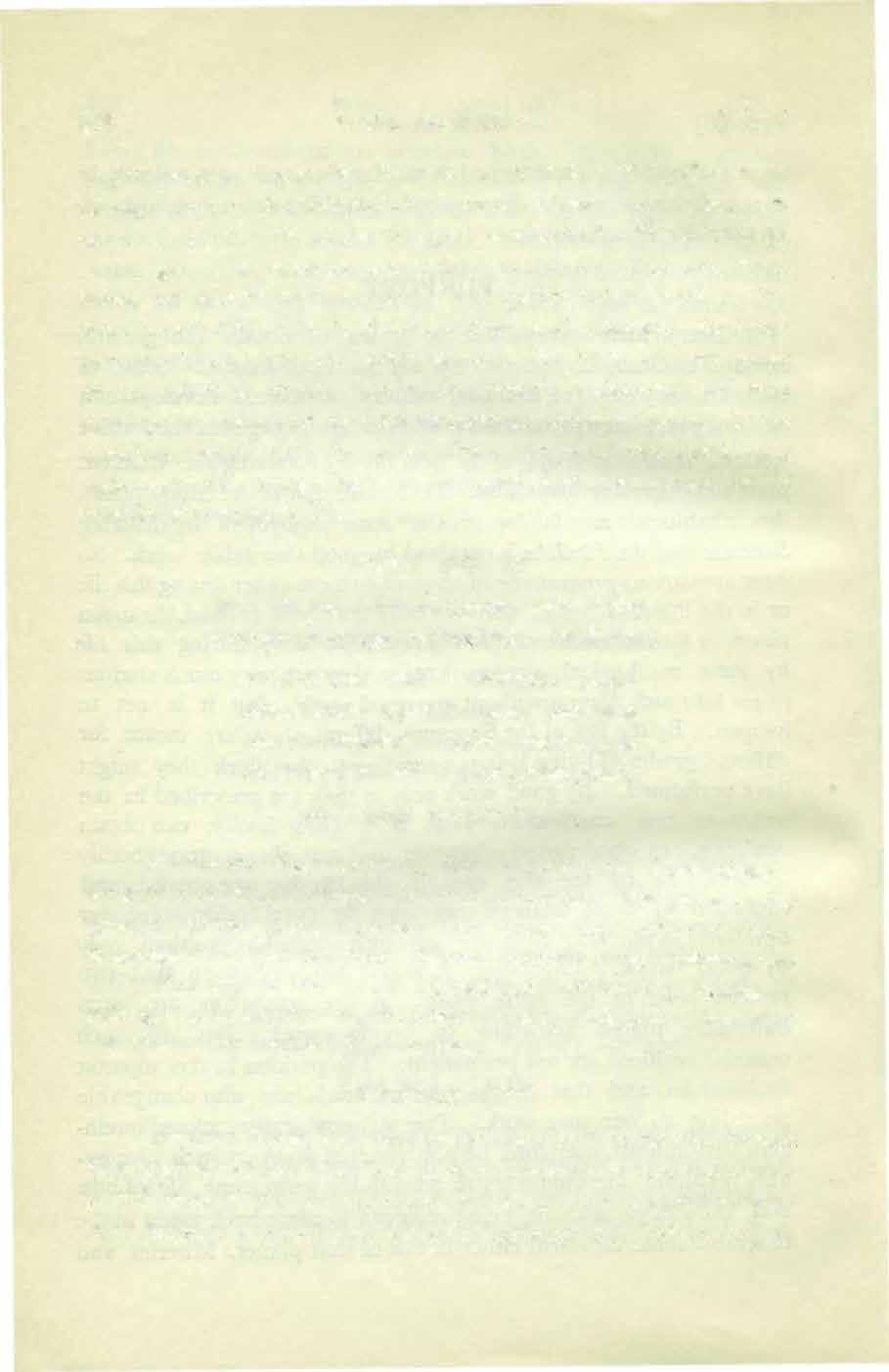
'f <t �'f) �r� 'ii�"'fiiT�:.if;:���G"Uclf;:q<f<trr

Bn:;:���G"rs-
.Na bai jano jatu kathanchana brajet
Mukundasevi anyabad anga samsritim
Smaran mukuuda anghri upaguhanam
Punarvihatam ichhet na rasagrahajanah.
ENGLISH SYNONYMS.
Na-never, Boi-certainly, Jatu-at any time, Kathanr:lzanasome how or other Nabrojet-does not under go, Mukundasevi -the devotee of the Lord, Atryabed-like others, Anga-oh my dear, Samsritim -material existence, Smaran-remembering, Mukundagnhri -the lotns feet of the Lord, Upagulzanam-embracing, Vihatumwilling to give up, Na-never, Ichhet-desire, Rasagraho-one who has relished the mellow, ]ana-person.
TRANSLATION
My dear Vyasa, a devotee ofthe Lord SriKrish11a eventhough falls down sometimes some how or other, certanilyhe does not undergo the terms ofmaterial existence like others (the fruitive workers etc.): because a person who has once relished the mellow of the
276
SRIMAD BHAmVATAM (Ch. 5
��fa-11: 1
...q�q�Q:-f �rrfcrQ:t:!flT"'�� ��p;r�) �rr: 11
lotus feet of the Lord cannot go otherwise remembering the ecstacy again and again.
PURPORT

A devotee ofthe Lord automatically becomes disinterested m the enchantment ofmaterial existence because he is Rasagrah' or one who has tasted the sweetness ofthe mellow of the lotus feet of Lord Krishna. There are certainly many instances that a devotee ofthe Lord has fallen down due to uncongenial association like the fruitive workers who are always prone to degradation. But even though he falls down he is never to be considered as one and the same with a fallen Karmi. A Karmi sufferes the result ofhis own fruitive reaction while a devotee is reformed by chastisement directed by the Lord Himself. Sufferings ofan orphan and the sufferings of a beloved child of a king are not one and the same. An orphan is really poor because he has no body to take care of but a beloved son ofa rich man although appears to be same on the level ofan orphan he is always under the vigilance of his capable father. A devotee ofthe Lord on account of wrong association sometimes become an imitator of the fruitive workers. The fruitive workers want to lord it over the material world. Similarly foolishly a neophyte devotee thinks of accumulating some material power inexchange ofdevotional service. Such foolish devotees, are, some times, put into difficulty by the Lord Himselfas special favour by removal ofall parapharnalia in material values. By such action the bewildered devotee is forlorn by all friends and relatives and the devotee comes to his senses ag"in by the mercy of the Lord and is set right to execute his devotional service.
In the Bhagwat Geeta itis also said that such fallen devotees are given chance to take birth in the family of highly qualified Brahmin or rich merchantile family. The devotee in such position is not so much fortunate as one whois chastised by the Lord being put intoposition seemingly ofhelplessness. The devoteewho becomes helpless by the will ofthe Lord is more fortunate than those who are born in good families as above mentioned, The fallen devotees born in good family may forget the lotus feet of the Lord because
Text 19] FIRST CANTO 277
they are less fortunate but the devotee who IS put into forlorn condition is more fortunate because such forlorn devotee swiftly rf'turn to the lotus feet of the Lord thinking himself helpless all round.
Pure devotional service is so much spiritually relishing that such a devotee becomes automaticallydisinterestedin material enjoyment. That is the sign ofperfection in the progressive devotional service. A pure devotee continuously remembers of the lotus feet ofLord Shri Krishna and does not forget Him even for a moment and in exchange of all the opulence ofthe three worlds.
TEXT NO. 20
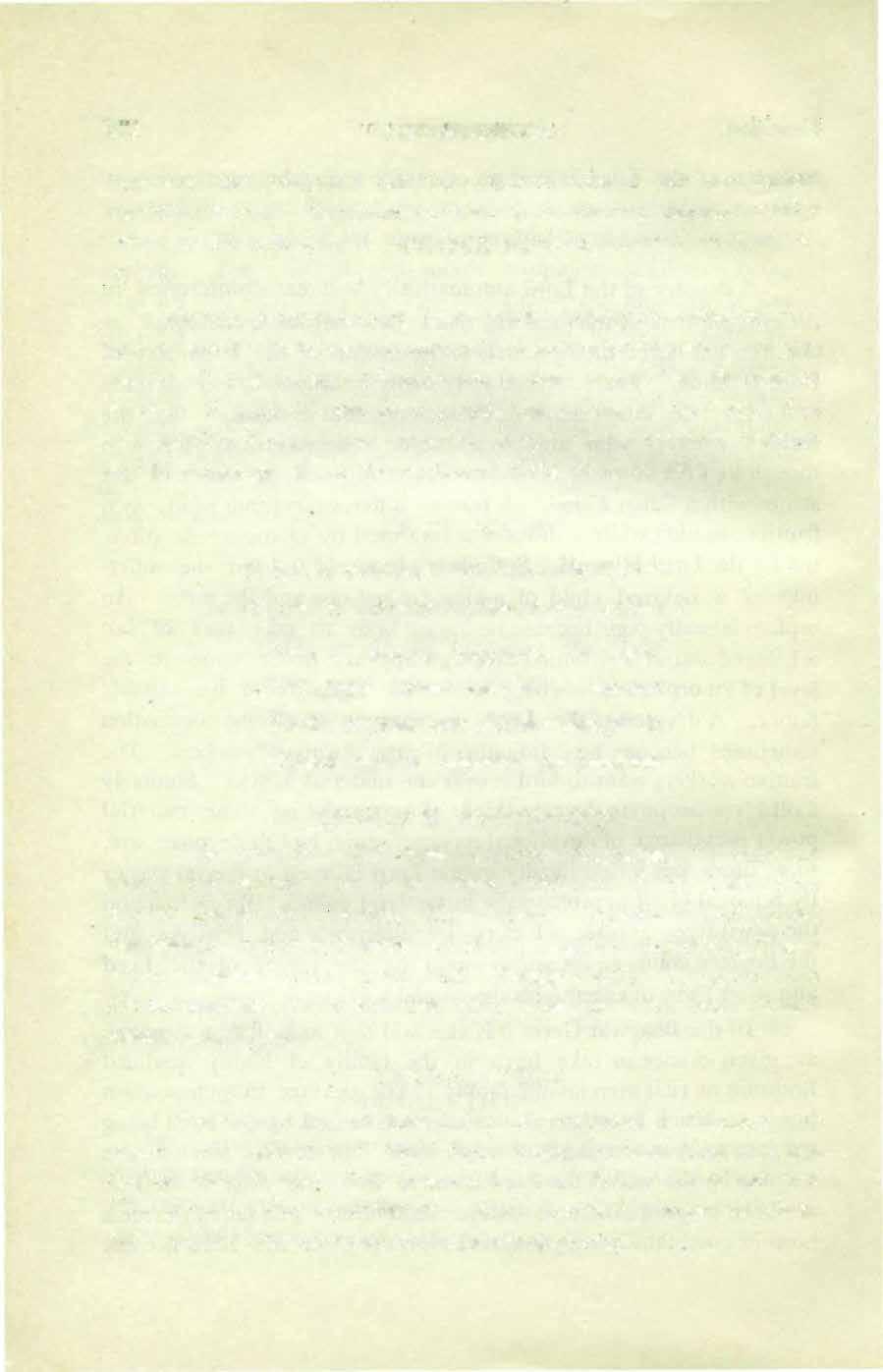
�<'i fQ: fcr<i;t �rrcrrfrr��n:) �a-) ;:;rlfc�l>.lT<rfrr�T"ftrr-�c:n: 1
crf;a �ri �� �cr�a-�rfir <t srr�r-rr� �era-: sr<:tf<rrcrtt 11
/dam hi viswam bhagawan iha itara
rato Jagat sthan nirodha sambhavah
Taddhi swayam veda bhavans tathapi te
Pradeshamatram blzavatah pradarshitam
ENGLISH SYNONYMS
!dam--this, lli-all,Viswam-cosomos,Bhagawan-the Supreme Lord, Jba-almost the same, /tara--different from, Yato-from whom, Jagat-the worlds, Sthan-exists, Nirodha-annihilation, Sambhavah-creation, Taddhi-all about, Swo;'am-personaly, Vedaknow, Bhavan-your good self, Tathapi-still, Te-unto your Pradeshamatram-just a synopsis only, Blwatah-unto you, Pradarshitam-explained.
TRANSLATION
The Supreme Lord Personality of Godhead is Himself this cosmos and still He is aloof from it because from Him only this cosmic manifestation has emanated ; unto Him it rests and unto Him it enters after annihilation. Your goodself knows all about this and still I have explainedjust a synopsis only.
218 SRIMAD BHAGWATAM [Ch. 5
For a pure devotee the conception of Mukunda Lord Sri Krishna is both Personal and impersonal. The impersonal cosmic situation is also Mukunda because it is emanation of the energy of Mukunda. The example is like the tree and the leaves and branches. The tree is the complete unit wherca<; the leaves and the branches of the tree are emanated parts and parcels ofthe tree. The leaves and branches ofthe tree are also tree but the treeitselfis neither the leafnorthe branch. The vedic version that the whole cosmic creation is nothing but Brahman means tl'at everything being emanations from the Supreme Brahman nothing is apart from Him. Similarly in the whole body the part and parcel hands and legs are called the body but the body as the whole unit is neither the hand nor the kg. The Lord is the tras cendental Form of eternity cognilion and beauty. And as such the creation ofthe energy of the Lord appears to be partially eter nal full of knowledge and beautiful also. The captivated conditioned souls under the ir1fiuence of the external energy Maya are therefore fully engaged in the net work of the material nature as all in all without any information ofthe Lord who is the Primeval cause. But they have no information also that the parts and parcels ofthe bcdy being dettached from the whole body are no loDger the same hand or leg as they were when attached with the body. Similarly a Godless civilization detached from the transcendentel loving service of the Supreme Personality of Godhead isjust like dettached hand and legs of the body. Such parts and parcels ofthe body may appear like the hands and kgs but they have no efficiency. The devotee ofthe Lord Srila Vyasdeva knows it very well and he is further advised by Srila Narada to expand the idea in right earnest so that the entrapped conditioned souls may take lessons from Him and be in order to understand the Supreme Lord as the Primeval cause.
According to Vedic version the Lord is naturally fully power ful and as such His Supreme Energies arc always perfect and identical '"-ith Him. Both the spiritual and the material skies and

Text 20] FIRST CANTO 279
PURPORT
their paraphmalias are emanations of the internal and external energies ofthe Lord. External energy is comp:tratively inferior whereas the intt"rnal potency is superior. The superior energy is living force and therefore, she is completely identical but the external energy being· inert, she is partially identical. But both the energies are neither equal nor greater than the Lord being the generator of all energies; such energies are always under His control, exactly like the electrical energy, however powerful may be it is always under the control ofthe supreme powerful engineer.
The human being and all other living beings are products ofHis internal energies. As such the living being is also identical with the Lord. But they are never equal nor superior to the Personality ofCodhead. The Lord and living beings are all individual persons and with the help of the material energies the living bciiJgs are also creating something but none of them is either equal or superior than the creations ofthe I.,ord. TI1e human being create a small playful Sputnic and may throw it in the outer space for floating but that does not mean that he can create a full planet like the earth or moon and float them in the air as the Lord is able to do. Men with poor fund of knowledge only claim to be equal with the Lord. They are never to be equal with the Lmd. This is never to be. The human being after attaining comeplete perfection may achieve a large per centage ofthe qualities ofthe Lord say upto 78% but it is never possible to surpass the Lord or to become equal with Him. In diseased condition only the foolish being claims to be one with the Lord and thus become misled by the illusory energy. The misguided living being, there fore, must accept the Supremacy ofthe Lord and agree to render loving service to Him for which they have been created. Without this there cannot be any peace and tranquility in the world.
Srila Vyasdeva is advised by Srila Narada to expand this idea in tke Bhagwatam. In the Bhagwat Geeta also the same idea is explained as·to surrender fully unto the lotus feet of the Lord and that is the only business ofthe perfect humanbeinf!
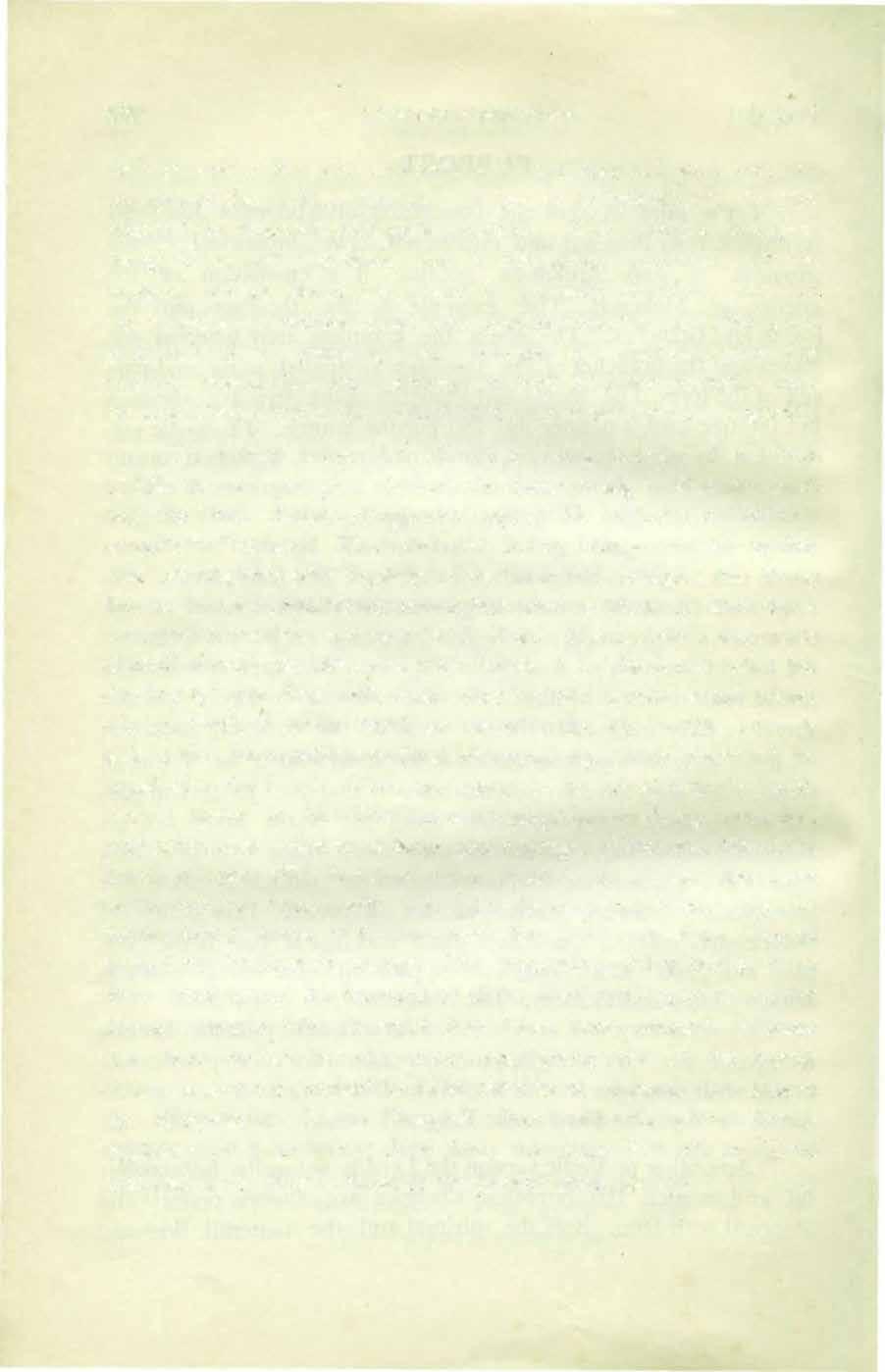
280 SRIMAD BHAGWATAM [Ch. 5
tCfifT�lfi'fTS�liFflf��ilT�'iCf!:
Twam atmanam atmana avehi arnoglzadrik
ParaS)'a pumsah paramatmanah kalam
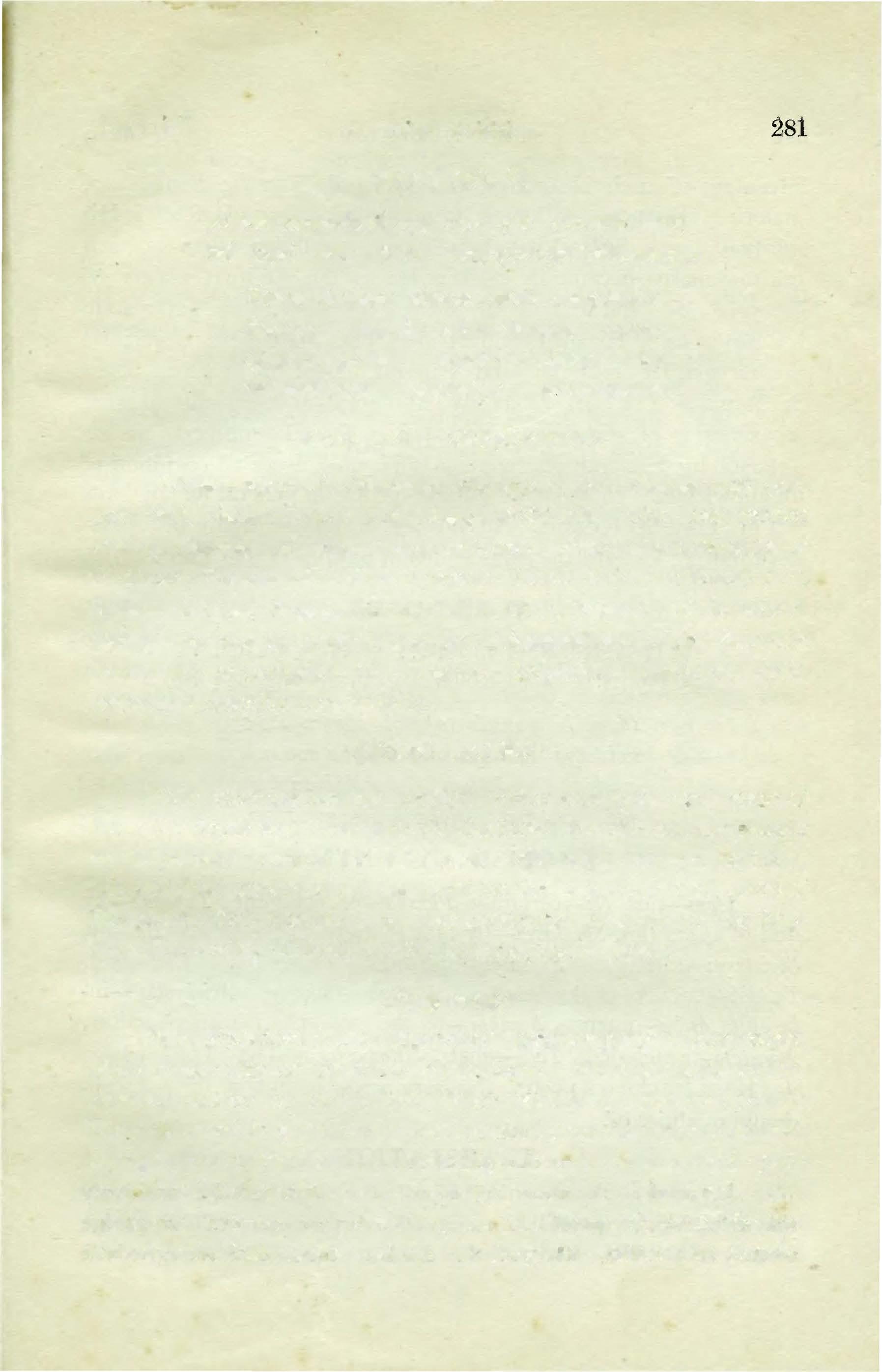
4Jam prajatam yagatah shivaya tat mohanubhava ablryudoyo adhiganyatom
ENGLISH SYNONYMS
Twam-your self, Atmanam-the super soul, Atmana-by your own self, Avehi-search out, Amoghadrik-one who has perfect vision, Parasya-of the transcendence, Punsam-personality of Godhead, Paratmanah-ofthe supreme Lord, Kalam-plenary part, Ajam-birthless, Prajatam-have taken birth, Jagatah-ofthe world, Shivaya-for the welbeing, Tat-that, Mahanublzava-ofthe Supreme Personality ofGod11ead Sri Krishna, Ab!ryudqya-pastimes, Adhiganyatam-describe most vividly.
TRANSLATION
Your goodness has the perfect vision and you can yourself know the Super Euul Pnsonality ofGodhead because you are persent as the plenary portion of the Lord. Although you are birthless, still you have appeared on thjs earth for the welbeing ofall people. Please therefore describe the transcendental pastimes ofthe Supreme Personality ofGodhead Sri Krishna, more vividly.
PURPORT
Srila Vyasdeva is the empowered plenary portion incarnation ofthe Personality of Godhead Sri Krishna. He descended by His causeless mercy to deliver the fallen soul in the material world. The fallen and forgotten souls are detached from the transcendental loving service ofthe Lord. The living entities are parts and parcels ofthe Lord and they are eternally servitors ofthe Lord. All theVedic literatures are, therefore, put intosystematic order for the benefit ofthe fallen souls and it is the duty ofthe fallensouls to take
Text 21] FIRST CANTO TEXT NO. 21
G"'<:H � u:
I
q<:liTclfi'J": <o�r�
<=��l!Tsf<FTillfciT"'t_ II
�z;f 5f\51Ta' i;flffi: f�F'H� �·li�T:!l1191
281
advantage of such literatures and be freed from the bondage of material existence. Although formally Srila Narada Rishi is His spiritual master, Srila Vyasadeva i'> not at all dependent on such spiritual master because in essence He is the spiritual master of everyone else. But because He is doing the work ofan Acharya He has t0ught us by His own conduct that one must have a spiritual master even He may be God Himself. Lord Sri Krishna, Lord Sri Rama or Lord Sri Chaitanya I\!J:ahaprabhu every one ofthese incarnations of Godhead, accepted a formal spiritual master although by their transcendental nature they were all cognisant of all knowledge. In order to initiate people in general for the lotus feet of Lord Sri Krishna, He himself in the incarnatin of Vyasadeva putting forward the transcendental pastims ofthe Lord.
TEXT NO. 22

�<i f� 2:��crq-�: �cr�rr err �c� �i.faFr '9 �f;a-G.'nrrr: 1
arfCT:;;�a-)s�: <fif<Tf'<ffil�fq-cr) lf�'nlT��T'.fi�UJ�Cf�il� II
!dam hi punsah tapasah shrula{}Ja ba swistasya sukta{}Ja cha buddha dattayoh avichyut o'rthah kabibhimirupito yad uttama sloka gunanuvarnam.
ENGLISH SYNONYMS
]dam-this, Hi-certainly, Punsha--of everyone, Tapasah-by dint ofausterities, Shruta{}Ja-by dint efstudy ofthe vedas, Ba-or, SwiJtasya-sacrifice, Suktarya-�piritual education, Cha-and, Buddhi-culture of knowledge, Dattayo-charity, Avichyutto'-infallible, Artha-interest, Kavibhi-by the recognised learned fellow, Nirupito-concluded, Tad-what, Uttamasloka-The Lord who is described by chosen poetry, Gunanuvarnam -desciption of transcendental qualities of.
TRANSLATJON
Learned circle recognised by all, have concluded it positively that infallible purposeful interest of advancement of knowledge namely austerities, study of the Vedas, sacrifice, chanting ofthe
282 SRIMAD BHAGWATAM (Ch. 5
hymns or charity all culminate in the transcendental description of the Lord who is defined by chosen poetry.

PURPORT

Human intellect is developed for advancement of learing in the matter ofart, science, philosophy, physics, chemistry, psychology, economics, politics etc. Byculture ofsuch knowledge the�human society can attain perfectionoflife. This perfection of life culminates in the realisation ofthe Supreme Being Vishnu. The Shruti therefore directs that those, who are actually advanced in learning, do aspire after the service of Lord Vjshnu. Unfortunately - persons who are enamoured by the external beuty of Vishnumaya, do not understand that culmination of perfection or selfrealisation is up to Vishnu. Vishnumaya means sense enjoyment which is transient and miserable. Those who are entrapped by Vishnumaya do utilise the result ofadvancement ofknowledge in the matter of sense enjoyment. Sri Narada Muni has explained that allparapharnalia ofthe cosmic universe are but emanations from the Lord out ofHis different energies because the Lord has set in motion by His inconceivable energy, actions and reactions ofthe created mani festation. They have come to be out ofHis energy, they rest on His energy and after annihilation they merge into Him. Nothing is therefore, diffrent from but at the same time the Lord is always different from them,
When advancement ofknowledge is applied in the service of the Lord the whole thing becomes Absolute. The Personality of Godhead, His transcendental Name, Fame, Glory, etc. are all non-different from Him. Therefore, all the sages and devotees of the Lord have recommended that the subject matter ofart, science, philosophy, physics, chemistry, psychology and all other branches of knowledge should be wholely and solely applied in the service of the Lord. Art literature poety painting etc. may be used in glorifying the Lord. The fiction writers poets and celebrated literators are generally engaged in the matter of senuous subjects but if the direction is turned towards the service ofthe Lord they can be well
Text 22] FIRST CANTO 283
utilised in describing the trancendental pastimes ofthe Lord. Valmil{i was a great poet and similarly Vyasdeva is a great literator and both ofthem or many ofthem have absolutely engaged themselves in delineating the transcendental activities of the Lord and by doing so they have become immortal. Similarly science and philosophy also should be applied in the service ofthe Lord. There is no use presenting dry speculative thesis for sense gratification but philosophy and science should be engaged to establish the glory ofthe Lord. Advanced people are eager to understand the Absolute Truth through the medium of science and therefore a great scientist should endeavour to prove the existence of the Lord on scientific basis. Similarly philosophical speculations may be utilised forestablishing the Supreme Truth as sentient and all powerful. Similarly all other branches ofknowledge should alwaysbe engaged in the service ofthe Lord. In the Bhagwat Geeta also the same thing is affirmed. All advancement of knowledge without being engagedintheservice oftheLord aredifferentbranchesofnescience. Real utilisation ofadvanced knowledge is to establish the glories ofthe Lord and that is the real import of them. Scientific knowledge engaged in the service ofthe Lord, artistic sense engaged in the service oftheLord, philosophical thesis engaged inthe service of the Lord, physical laws engaged in the service ofthe Lord, chemical combination engaged in the service of the Lord and all similar activities are all factually 'Harikirtan' or glorification ofthe Lord.
TEXT NO. 23

ar� �<:Ta"Ta'<f�s<rcf �� G'T�ll'T�2; Cfi�lll�'<f<r cfG'CfTfG'<rTJt I
fil�fq-crr �WTCfiQ;Cf11Tf<r<rt ��l"f(f_f !H<[fl"f f<rfcrfcr&rG'TJt II
Aham pura atitabhave abhavam mune
l)a�ascha ka�s chana vedavadinah
Nirupito valaka eva yogznam
Shushrusane prabrishi nrivivikshatam
ENG L1 SH SYNONYMS
Aham-I, Pura-formerly, Atitabhve-in the previous millennium, Abhavam becamc, Mune-ofthe muni, l)asJscha-ofthe maid
284 SRIMAD BHAGWATAM [Ch. 5
servant, Kasyaschna-certain, Vedavadinah-of the followers of Vedanta, Nirupita-engaged, Valaka-boy servant, Era-only, Yoginam-a[ the de\otees, Shushrusane-in the service of, Prab1isidming the four months of rainy seascn, Nirvivikshatam-living together,

TRANSLATION
Oh the muni, in the last millennium i.e., in my past life I was born as the son ofa certain maid servant engaged in the service of the Brahmins following the principles ofVedanta. \\11en they were living together during the four months ofrainyseason, I was then engaged in their personal service.
PVR PORT
The wonder of an atmosphere surcharged with devotional service ofthe Lord is briefly described herewith by Sri Narada Muni in the incidence of His previous birth. He was the son of the 1 most insignificant parentage, neither He was properly educated and still because His complete energy was engaged in the service ofthe Lord He became an immortal sage like Narada. Such is the powerful action of devotional service. The Jiving entities are marginal energy of the Lord and therefore they are meant for being properly utilised in the transcendental loving service of the I.ord. When it is not so done it is called Maya. Therefore the illusion ofMaya is at once dissipated as soon as one's full energy is converted in the service ofthe Lord instead ofin the matter of sense enjoyment. From the personal example of Sri Narada Muni in His previous birth, it is clear that the service of the Lord begins with the service ofthe Lord's bonafide servants. The Lord says that the service of His servants is mort' than His personal service. Service ofthe devotee is more valuable than the service ofthe Lord. One should therefore choose out a bonafide �:ervant of the Lord constantly engaged in His service and accept such servant as the spiritual master and engage himselfin his (the spjritual master's) service. Such spiritual master is the transparent medium to visualis� the Lord \Vho is beyond the conception of
Text 23] FIRST CANTO 285
material senses. By service of the bonafide spiritual master the Lord consents to reveal Himselfin proportion of service rendered. Utilisation ofthe human energy in the service of the Lord is the progressive path ofsalvation. The whole cosmic creation becomes at once identical with the Lord as soon as the respective service in relation ,,vith the Lord is rendered underthe guidance ofa bonafide spiritual master. The Expert spiritual master knows the art how to utilise everything in the matter ofglorifying the Lord and therefore under his guidance the whole world can be turned into the spiritual abode by the Divine Grace ofthe Lord's servant.
TEXT NO. 24

a- trzll'ctcrrf�"frq�siey; c�Fas�cr:;p'J�;:rey;�crfcrf;:r 1
'9�: '!lqr ll�fq ��ll'��rrr: ��'TifT� �.,<ir�q•nfl!ffur "
Te mqyee apeta aklzila clzapale arblzake
Dante adlzritakridanake anuvurtini
Clzakrulz kripamyadyapi tu!ya darslzinalz
Suslzrusamane munqyo alpabhasini
ENGLISH SYNONYMS
Te-they, Mayee-unto me, Apeta-having not undergone, Akhile-all kinds of, Chapale-proclvities, Arbhake-unto a boy, Dante-having controlled the senses,Adhritckridanake-without being accustomed to sporting habits, Amuvartini-obedient, Chakru-did bestow. Kripam-causeless mercy, Yat£yapi-although, Tulyadarshana impartial by nature, Sitslzrusamane-unto the faithful, Munqyo-the muni followers ofthe Vedanta, Alpablzasini-one who does not speak more than requirement.
TRANSLATION
Those followers of the Vedanta blessed me with their causeless mercy although they are impartial by nature. · So far I was concerned, I was sense-co_ntrolled without any attachment for sporting habits even though I was only a boy and besides that I was not naughty neither I used to speak more than requirement,
286 SRIMAD BHAGWATAM [Ch. 5
In the Bhag.vat Geeta the Lord says 'all the Vedas are searching after Me.' Lord Sri Chaitanya says that in the Vedas the subject matters are only three, namely to establish the relation ofthe living entities with the Personality ofGodh<"ad, perform the relative duties in devotional service and thus to achieve the ultimate goal back to Godhead. As such Vtdanta-vedi or the followers of the Vedanta means pure devotee of the Personality of Godhead. Such Vedanta Vedi or the Bhakti Vt'dantas areimpartialin the matter ofdistribt1ting the transcendental knowledge of devotional service. To them no body is enemy or friend no body is educated or non-educated. No body is specially favourable and no body is unfavourable. The Bhaktivedantas see to the people in general as wasting time in the matter offalse senuous things and thus their business is to get the ignorant mass ofpeople to the sense ofre-establishing the lost relationwith the Personality of Godhead. By such B.haktivedanta's endeavour, even the most forgotten soul is roused up to the sense of spiritual life and thus beinginitiated by them the people in general become gradually progressive on the path oftranscendental realisation. So the Vedantvedis initiated the boy even before he become self-controlled and was detached from childish, sporting etc. But before the initiation of favour by them upon the poor boy, he (the boy) become more and more advanced in thematter ofdiscipline which is very essential for one who wishto make progress in the line. In the system of Varnashram Dharma, which is the beginning ofactual human life, small boys after five years ofage are sent to the Guru'sAshram to become Bralzmablzary where these things were systematically tougt to the boys may he be a king's son or the son ofan ordinary citizen. The trainingwas compulsory not only to create good citizens of the state but also for the matter of preparing the boy's future life for spiritual realisation. Irresposible life of sense enjoyment by childish proclivities were unknown to the childeren of the followers of the Varanashram system. Even the boy was injected with spiritual acumen before he was placed by the father in the womb

Text 24] FIRST CANTO 287
PURPORT
ofthe mother. Both the father and the mother were responsible for the boy's life as successful for being liberated from the material bondage. That is the process �fsuccessful family planning. It is to beget children for complete perfection. vVithout being self-controlled, without being disciplinary and without being full obedient no body can become successful in catching up the instruction of the spiritual master and without being so able no body is able to go back to Godhead.
TEXT NO. 25

Uclzlzistalepan anumodito dwijailz
Sakrit sma bhun.Je tadaspasta kilmisah
Ebam pravirtasya visuddlzaclzetasas
Taddharma eva alma ruchilz prajayete
ENGLISH SYNONYMS
Uclzlzistalepan -the remnants of foodstuff, Anumodito -being permitted, Dwijailz-by the vedantist Brahmins, Sakrit-once upon a time, Sma-in the past, Bhurife-took, Tad-bythat action Apasta -eliminated, Kilmisah-all sins, Evam-thus, Pravirtasya-being engaged, Visudd/wclzetasa-of one whose mind is purified. Tadthat particular, Dharma-n . ature, Eva -certainly, Atmaruchi-transcendental attraction, PraJaycte-became manifested.
TRANSLATION
Once on]y by their permission I took up the remnants oftheir foodsuff and by doing so all my sins were at once eliminated. Thus being engaged wten I became purified by i.he heart at that time the very nature of the transcendentalist became attractive for me.
PURPORT
Pure devotional accumulation is as much infectious, in good sense, as the infectious diseases. A pure devotee is clear off from all
288 SRIMAD BHAGWATAM (Ch. 5
\3"f'ti3"1Sc�'1Ff?/l)f�a1 fG:;5f ��cfl=f <p� a-�qrfa-fCfiffqq-: 1
t;cf 5T'!uflf fcr�;g:�a-*a;g:� t;crw:r�f'<�": 5TGrrzra- 11
kinds ofsins. The Personality ofGodhead is the Purest Entity and as such unless one is not equallypure form the infection of material qualities, one cannot become a pure devotee ofthe Lord. The Bhaktivedantas as above mentioned vvcre pure devotee and the boy became infected with their qualities of purity by their association and by eating once the remnants of the foodstuff taken by them. Such foodstuff remnants may be taken even wilhout permission of the pure devotees. There are sometimes pseudo-devotees and one should be very much cautious about them. There are many things which hinders one in the matter of entering in the realism of devotional service. But by the association ofpure devotees all these obstacles are removed. The neophyte devotee becomes practically enriched with the traascendental qualities ofthe pure devotee which means attraction for the Personality ofGodhead's Name, Fame Quality, Pastime etc. Infection ofthe qualities ofthe pure devotee means to imbibe in character the taste ofpure devotion always in the transcendental activities ofthe Personality ofGodhead. This transcendental- taste at once makes all material things detasteful and therefore a pure devotee is not at all attracted by material activities devoid of re1ation ofthe Personality of Godhead. After the elimination ofall sins or obstacles on the path ofdevotional service, one can become attracted, one can have steadiness, one can have perfect �taste, one can have transcendental emotions and at last one is situated on the plane ofloving stTvice ofthe Lord. All these stages develop by the association ofpure devGtee and that is the purport ofthis stanza.
TEXT NO. 26

a"fTr<f� �GUf'fi�T: �FTTlfallf�'IJ�UHYIU!cf lfi'fT\Z�T: I
err: �;g:zrr JJ"�qtff<P'lUCfef: fsp::pE{CfflfT'IT lflfT<F'iif'9: II
Tatra anu aham kTislznakathalz pragayatam
Anugralzena aslzrinavam manolzaralzTalz slzradlzaya me anupadam vishrinwatah
Priyashraba�a anga mama abhabat ruchilz
Text 26] FIRST CANTO 289
ENGLISH SYNONYMS

Tatra-thereupon, Anu- everyday, Alzam -I, Krislmakat/zohnarration of Lord Krishna's activities, I ragayatam-describing, Anugrahena-by causeless-mercy, Aslzrinatam giving aural reception Manoharalz -attractive, Yah-those, Slzradhaya-respectfully, Meunto me, Anupadam-every step, Vishrinwatalz--hearing attentively, Pri(yashravasys-ofthe Person:1lity of Godhead, Anga-oh Vyasdeva, mama-mme, Ablzabat-it so became, Ruclzilz -taste.
TRANSLATION
Oh Vyasdeva, in that association and by the mercy ofthe great Vedantist describibg the attractive activities of Lord Krishna, I could receive them by aural reception. And thus hearing attentively step by step my taste for hearing the personality of Godhead became manifested.
PlfRPORT
Lord Shri Krishna the Absolute Personality of Godhead is not only attractive by personal feature but also He is attractive by His transcendental activities. It is so because the Absolute is Absolute by His Name, Fame, Form, Pastimes, Entourage, Parapharnalia etc. The Lord out of His causeless mercy descends on this material world and displays !-:lis various transcendental pastime as human being so that the human being attracted towards Him thus, become able to go back to Godhead. They are naturally apt to give aural reception to histories and narrations of various personalities of mundane activities without knowing that by such association of mundane affairs one can simplywastevaluable time ofone's life and also become adicted to the three qualities of mundane nature. Inst<:ad ofwasting time in such mundane qualitative affairs one can get spiritual success by turning the attention to the transcendental pastimes ofthe Lord. By such aural reception of the narration of the pastimes ofthe Lord the hearer contacts directly the Personality ofGodhead and as explained before, by hearing about the Personality ofGodhead from within, it causes clearance of all accumulated sins ofthe mundane creature. Being cleared ofall sinsby such aural

290 SRIMAD BHAGWATAM [Ch. 5
reception of the narratian of pastimes of the Lord, the hearer gradually becomes liberated from the mundane association and become attracted in features ofthe Lord. Narada Muni has just explained this practical facts by his personal experience in the past. The whole idea is concentrated on the point that simply by hearing about the Lord'spastimes one can become one ofthe associates of the Lord. Narada Muni whohas eternal life, unlimited know ledge and unfatomed bliss with access of traveiling all over the material and spiritual worlds without any restriction. One can attain to the highest perfection oflife simply by attentive hearing ofthe transcendental pastime of the Lord from the right sources, as Sri Narada heard it from the pure devotees Bhaktivedantas in His previous life. This process ofhearing, in the association ofthe devotees, IS specially recommended in this age ofquarrel (Kali).
TEXT NO . 27
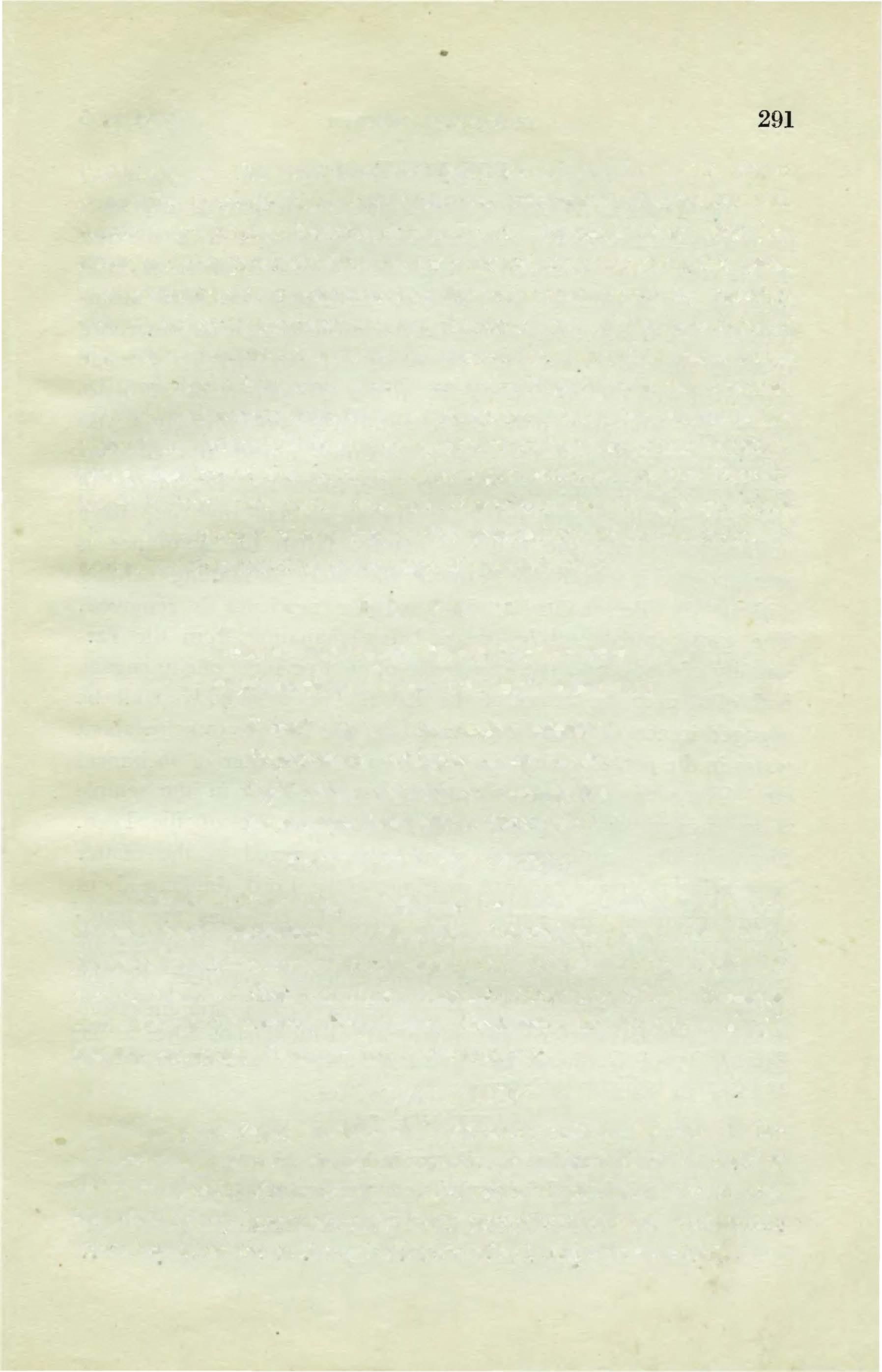
iff���Gl1���fl1a-f5flf�ll"TR9f� ilf<;nhr I
l!�dffi<Hrc�llTlf<TT lf�lf 1fflf �@"fUf <iif�q(j q't II
Tasmins tada labdha ruclzer mahamate
Priyasrabasi askhalita matir mama Yaya alzam etatsadasat swamqyqya pasye mayee brahmani kalpitampare.
ENGLISH SYNONYl\1S
Tasmins-it so being, Tada-at that time, Labdha-achieved, Ruclzir -taste, mahamate-great sage, Priyasrabasi- upon the Lord, Askhalita mali-uninterrupted attention, Mama-mine, Yaya-by which, Aham-I Etat-all these, Sadasat-gross and subtle, Swamqya -one's own ignorance, Pasye-see, Brahmani--the supreme, Kalpitam-is accepted, Para-in the transcendence.
TRANSLATION
Oh gTeat Sage, as soon as I got some taste in the Personality of Godhead, at once my attention became uniterrupted in hearing about my Lord. And by such development oftaste I could realise that bymy ignorance only I had accepted the gross and subtle cov·ering upon me and the Lordboth ofus beingtranscendental,
Text 27] FIRST CANTO 291
PUR PORT
Ignorance in the material existence is compared whh darkness and the Personality of Godhead is compared with the Sun in all the Vedic literatures. As such wherever there is light there cannot be darkness. Hearing of the Lord's pastimes means transcendental association ofthe Lord because there is no difference between the Lord and His transcendental pastime, To become associated with the Supreme light means dissipation of all ignorance. By ignorance Ollly the conditioned soul wrongly thinks that he is a product of the material nature and so also the Personality of Godhead. But in fact a11 ofthem, the Personality of Godhead and the living being are transcendental and they have nothing to do with the material nature. vVhen the ignorance IS removed and it is perfectly realised that there is nothing existing without the Personality of Godhead the nescience is removed. The gross and the subtle bodies being emanations from the Personality ofGodhead, the knowledge oflight permits one to engage both ofthem in the service of the Lord. The gross body shall be engaged in acts of rendering service to the Lord as to bring about water in the pot, cleansing the temple or in the matter ofobeisances etc. The path ofArc/zan or worshipping the Lord in the temple is to engage one's gross body in the service of the Lord. Similarly the subtle mind should be engaged in the matter of hearing the transcendentd pasttimes ofthe Lord, thinking about them, chanting His name and all such activities are transcendental. None ofthe gross or subtle senses shall otherwise be engaged. Such reali--ation of transcendental activities by the de,otee is made possible by many many years of apprenticeship in the devotional service, but simply by attraction of love in the Personality of Godhead as it was developed in Narada Muni, by hearing, is highly effective.

292 SRIMAD BHAGWATAM [Ch. 5
28 �c� ��c5TT'ffq"Cf.f1� Q�f�uq<:f) JJ"q�<f l!�)S11�� I �cn�qqr;:j !_!fiff+rB"QT�l'ffll<ffCfa: 5f"!'t'fTSSC1R\5fta11)!1QT II lttlzam sarat prabrisika ritu lzarer Visrinwato me'onusavam yasomalam
TEXT NO.
Jttham--thus, Sarat--autumn, prabrisika-rainy season, Ritu-two seasons, Harer-of the Lord, Visrinwato-continuously hearing, Me-myself, Anusavam- constantly, Yasomalam -unadulterated glories, Samkirlomanam-chanted by, munibhirthe great sages, mahatmabhir- great souls, Bhakti -devotional service, Pravritta-began to flow on, Atma -living beir:g, Rajasmode ofpassion, Tamo-mode of ignorance, Apa/za-vanishing.
TRANSI�ATION

Thus during the two seasons of the rainy as well as the autumn, myselfgot the opportunity of hearing the great-soul sages chanting constantly unadulterated glories of the Lord Hari,-the flow ofmy devotional service began, vanishing away coverings of the modes ofpassion and ignorance.
PUR PORT
Transcendental loving service for the Supreme Lord is the natural inclination ofevery Jiving being. The instinct is dormant in every living being but due to the association of material nature the modes ofpassion and ignorance cover them from time immemorial. Ifby the Grace ofthe Lord and the great soul devotees ofthe Lord, a living being becomes fortunate to associate with the unadulterated devotees of the Lord, and gets the chance of hearing unadulterated glories of the Lord, certainly the dormant instinct ofdevotional service become at once woke up and the flow ofdevotional service talkes place like the flow of waves- ofa river. As the river flows on till she reaches the destination of the sea, similarly pure devotional service of devotee begins to flow by the association ofpure devotees till such devotional service riches the ultimate goal namely transcendental love ofGod. Such flow of devotional service cannot stop but on the contrary it increases more and more without �any limitation. The flow of devo-
Text 28] FIRST CANTO samkritomanam muniblzir malzatmabhir Bhakti pravritta atma rajas tamoapalta. ENGIJISH SY NONYMS 293
tiona 1 service is so much potent that any onlooker ofsuch flowing oftranscendenetal service, also becomes as much liberated from the influence of the modes of passion and ignorance. These two qualities ofnature is thus removed and living being is liberated, being situated in his original position.
TEXT NO. 29
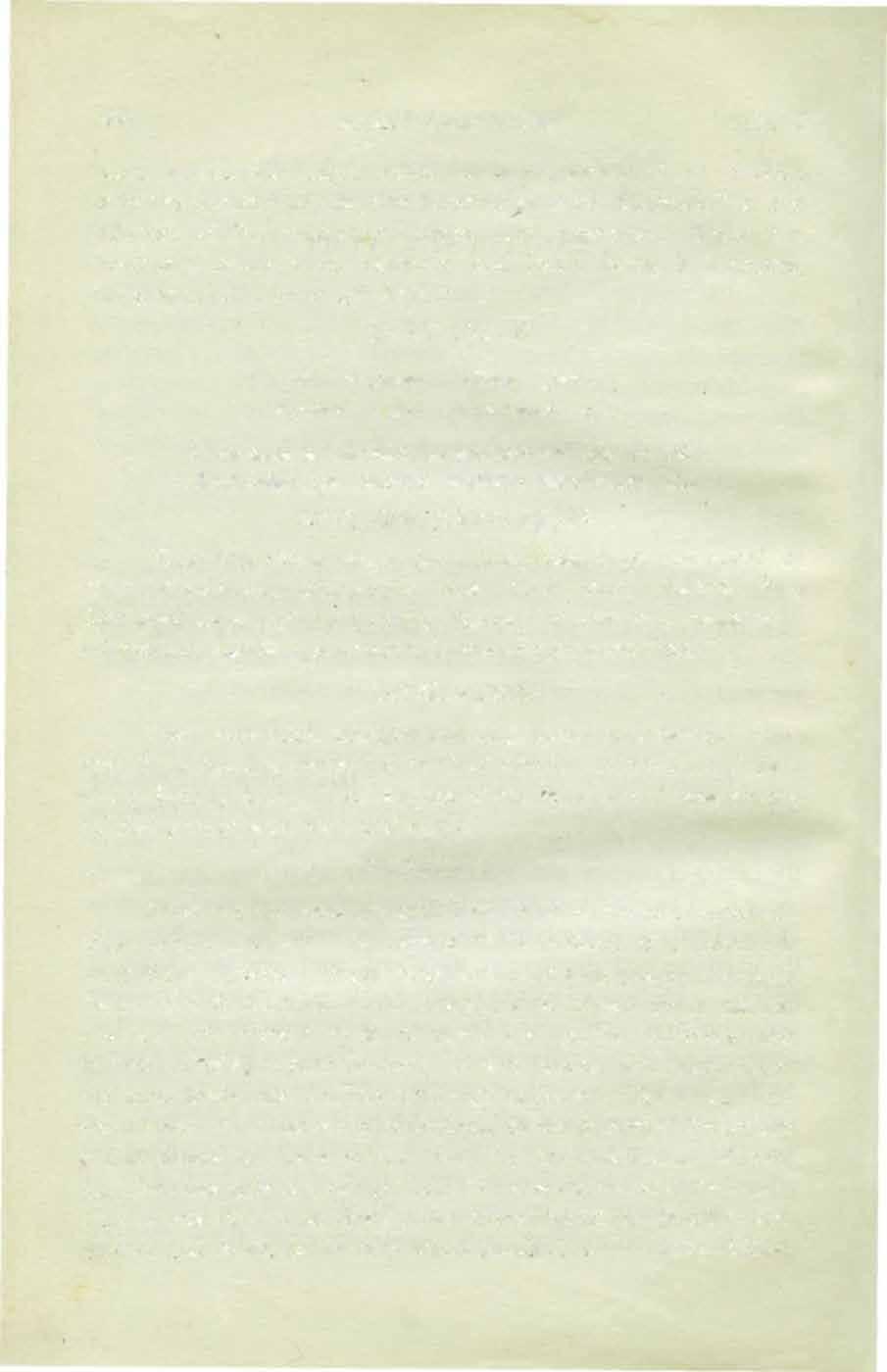
cr�.Q-<f lis��<fcrFr �r��zr \Za-o:rij": 1
l5fqti'Ti'!Ff ¢1Wfflf �fi'Cf�!:TT:!'<n:� '<f II
Tasys evam me anuraktasyaprarlzritasya hata enasalz Slzraddadlzanasya valasya dantasya anuclzarasya clza
ENGLISH SYNONYMS
Tasya-his, Evam-tbus, A1e-rnine, Anuraktasya-attached to them, Praslzritasya -obediently, Hata-freed from, Enasalz-sihs, Slzraddadlzanasya- of the faithful, Valasya -of the boy, Dantasyasubjugated, Anucharasya - strictly following the instructions.
TRANSLATION
I was very much attached to them, gentle in behaviour, and my all sins became eradicated by their service ; in my heart I had strong faith in them, I had subjugated the senses and I was strictly following them with body and mind.
PURPORT
These are the necessary qualifications of a prospective candidate-who can expect to be elevated to the position of a pure unadulterated devotee. Such candidate must seek always the association ofpure devotees. One should not be misled by a pseudo devotee. He himself mt;st be plain and gentle to receive the instructior�s ofsuch pure devotee. A pure devotee is a surrendered soul completely unto the Personality of Godhead. Such pure devotee knows the Personality ofGodhead as the Supreme Proprietor and all others are His servitors. And by the association of such pure devotees only one can get rid ofall sins accumulated by mund!:lne association. A neophyte devotee must faithfully serve the pure devotee and he should be very much obedient and strictly follow�
294 SRIMAD BHAGWATAM [Ch. 5
ing the instructions ofthe pure de\otee. These are the signs of a devotee who is determined to achieve success even in the existing duration oflife.
TEXT NO . 30

�R �Wa-if ll'tf��T�T�lf�TfG"ol{ ar•GT)"'f� lfflfiSlf•a-: �ql7f <fti'lcn:�r: 11
Jnanam guhyatamamyat tat sakshat bhagabatoditam
Anwavochan gamisy antah kripa)'a deenavatsalah
ENGL ISH SY NONYMS
Jnauam-knowledge, Guhyatamam-most confidential, rat-what is, Tat-that, Sakshat-directly, Bhagawatoditam-propounded by the Lord Himself, Anwavoclzan-gave instruction, Gami.ryantowhile departing from, Kripaya-by causeless mercy, Deenavatsalahthose who are very kind to the poor and meek.
TRANS LATION
The Bhaktivedantas who are very kind upon the poor hearted souls while leaving the place instructed me that most confidential subject which is instructed by the Personality ofGodhead Himself.
PU RPORT
A pure Vedantist or the Bhaktivedantas do instmct to followers exactly what is instructed by the Lord Himself. The Personality ofGodhead both in the Bhagwat Geeta and in all other scriptures has defir1itely instructed to follow the Lord only. Because the Lord is the creator, maintainer and annihilator of everything. The whole manifestive creationis existing by His will and by His will when the whole show will be finished He will remain in His eternal abode with His all parapharnalia. This means, before the creation, He was there in the eternal abode and after the annihilation ofeverything He will continue to remain. He is not therefore one ofthe created beings. He is transcendental. In the Bhagwat Geeta the Lord says that long long before theinstruction was imparted to Arjuna, the same was instructed to the Sun god and incourse
Text 30] FIRST CANTO 295
oftime, the same instruction being wrongly handled and being broken thereof, )t was again reinstructed to Arjuna because he was His perfect devotee and friend. Therefore, the instruction of the Lord can be understood by the devotees only and nobody else. The impersonlist who has no idea of the transcendental Form of the Lord cannot understand this most confidential message of the Lord. The word <most confidential' is sig1aificant here because knowledge ofdevotional service is far and £'lr above the knowledge ofimpersonal Brahman. Jananam means knmdedge ordinary or any branch of knowledge. This knowledge developes up to the knowledge of impersonal Brahman. Above this when the same is partially mixed up with devotion suc_h knowledge develops up to the knowledge ofParamatma or the all pervading Godhead. This is more cotifidential. But '"'·hen such knowledge is turned into pure devotional service and the confidential part oftranscendental knowledge is attained, it is called the most-confidential knowledge. This most confidential knowledge was imparted by the Lord to Brahma Arjuna, Uddhaba etc.
TEXT NO. 31

�<fcrr� �Frcrer) crr��crflr
i!'Tli'T�lfT<rllfCf� �if , <r=o�fra-
rena wa aham Bhagawato Vasudevasya Z!edhasah Maya anubhavam avidam yena gachhanti tatpadam.
ENGLISH SYNONYMS
rena -by which, Eva-certainly, Aham -1, Bhagwato-ofthe Personality ofGodhead, VasudcvaS) a of Lord Sri Krishna, Vedha ah -of the Supreme creater, Afqya-energy, Anubhz1am -influence, Avidam-casily understood, Yena-by which, Gachhanti-they go, Tatpadam-at lotus feet ofthe Lord.
TRAl\iSLATION
By that confidential part ofknowledge, I could understand clearly the influence ofthe energyofthe Lord Sri Krishnathecreator maintainer and annihilator of everything and knowing that they can go back to Him or can personally meet Him.
296 SRIMAD BHAGWATAM [Ch. 5
By devotional service or by the most confidential knowledge, one can understand very easily how the different energies ofthe Lord is working. One part ofenergy is manifesting the material world, the othersuperiorpart ofHis energyismanifestingthespiritual world. And the via media energy is manifesting the living entities who are serving under either ofthe abovementioned energies. The living entities serving under the material energy arc struggling hard for existence and happiness which is presented to them is illusion. But in the spiritual energy they are placed under the direct service ofthe Lord in eternal life, complete knowledge and perpetual bliss. The Lord desires, as He has directly said in the Bhagwat Geeta, that all conditioned souls, rotting in the kingdom of material energy, may come back to Him bygiving up all engagements in the material world. This is the most confidential part of knowledge. But this can be understood only by the pure devotees and such devotees only <H'e entered in the kingdom ofGod to see Him personally and serve Him personally. The concrete example is Narada Himselfwho has attained this stage oflife of eternal knowledge and eternal bliss. And the ways and means are open to all like Narada 1\funi provided one agrees to follow the footprints ofSri Narada :ivfuni. Accordii1g to Sumti the Supreme Lord has unlimited tnergies without any effort by Him and the whole energy is described under three principal heading as above mentioned.
TEXT NO. 32

�ai;'!i�f'<Ta"
<A�i�a-Pt"lllf'iff'Pfcucrt:t 1
lf(\f�<f� lf�Icrfcr Cfi� <A§JfiJl' lfTfCfat:{ II


Etat �amsuchitam bwhmans tapatraya chikitsitam
rad isware bhagawati karma brahmani bhabitam
ENGLISH SYNONYMS
Etat-this much, Samsuchitam-decided by the learned, Brahmans-oh Brahmin Vyasa, Tapatraya -three kinds of m1senes, Chikitsitam-remedial measures Yad-what, lsware-the supreme
Text 32] FIRST CANTO 297
PURPORT
controller, Bhagwati--untothe Personality ofGodhead, Karma-one's prescribed activities, Brahmani-unto the great, Bhavitam-dedicated.


TRANSLATION
Oh Brahmin Vyasdeva, it is decided by the learned that the best remedial measure for removing all troubles and miseries is to dedicate one'� activities in the service ofthe Supreme Lord Prsonality ofGadhead (Sri Krishna).
PURPORT
Sri Narada :ivfuni experienced it personally that the most feasible and practical way ofopening the path ofsalvation orgetting relieffrom all miseries oflife is to hear submissively thetranscendental activities ofthe Lord from the right and bonafide sources. This is the only remedial process. The whole material existance is full of miseries. The foolish people have manufactured, out of their tiny brain, many remedial measures for removing the threefold miseries pertaining to body and mind, pertaining to the natural disturbances and in relation with other living beings. The whole world is struggling very hard to exist out ofthese miseries but they do not know that without the sanction ofthe Lord no plan or no remedial measure can actually bring out the desired peace and tranqnlity. The remedial measure to cure a patient by medical treatment is useless ifit is not sanctioned by the Lord. To cross the river orthe ocean by suitable boat is no remedial measure ifit is not sanctioned bythe Lord. The parents cannot protect their children ifit is not .sanctioned by the Lord. 't\Te should know it certainly that the Lord is the ultimate sanctioning officer and we must therefore dedicate our attempts to the mercy ofthe Lord for ultimate success or to get rid ofthe obstacleson the path ofsuccess. The Lordis all prevading, allpowerful, omnisient,omnipresent and heistheultimate sanctioning Agent ofallgood_or bad offects. We should, therefore, learn to dedicate our activities unto the mercy ofthe Lord, accept Him either as impersonalBrahman, localised ParmatmaortheSupreme Personality ofQodhead. It does not matter what you are or what you be bqt
298 SRIMAD BHAGWATAM [Ch. 5
youmust dedicateyour everything forthe serviceofthe Lord. Ifyou are a learned scholar, scientist, philosopher, poet or somethininglike that then please employ your learning to establish the Supremacy of the Lord. Try to study the energy ofthe Lord in every spheres of life. Do not decry Him and try to become like Him or to take His position simply by your fragemental accumulationofknowledge. Ifyou are administrator, statesman, warrior, politician or anything like that, then please try to establish the Lord's supremacy in your statesmanship, fight for the cause ofthe Lord as Sri Arjuna did. In the beginning Sri Arjuna the great fighter dedined to fightfor his own sense satisfaction but when he was convinced by the Lord that the fighting was necessary by His great will, Sri Arjuna changed his decision and fought for His cause. Similarly ifyou are a businessman, an industrialist, an agriculturist or something like that then please spendyour hard-earned money for the cause ofthe Lord. Think always that the moneywhich you have accumulated is the wealth of the Lord. 't\Tealth is considered to be the Goddess of fortune (Lakshmi) and the Lord is Narayana or the husband of Lakshmi. Try to engage Lakhmi in the service of Lord Narayana and you will be happy. That is the way of realising the Lord in every sphere oflife. The best thing is after all to get relief from all material activities and engage oneselfcompletely in the business of hearing the transcendental pastimes ofthe Lord but in case of absence ofsuch opportunity, we should try to engage everything, for which we have specific attraction, in the service ofthe Lord and that is the way of peace and prosperity and that is the way of remedial measure for all the miseries of material existence. The word Samsuchitam in this stanza is also significant. We should not think for a moment thattheabove realisation ofNarada was childish imagination only. It is not like that. It is so realised bythe expert and erudite scholars and that is the real import ofthe word Samsuchitam.
NO. 33
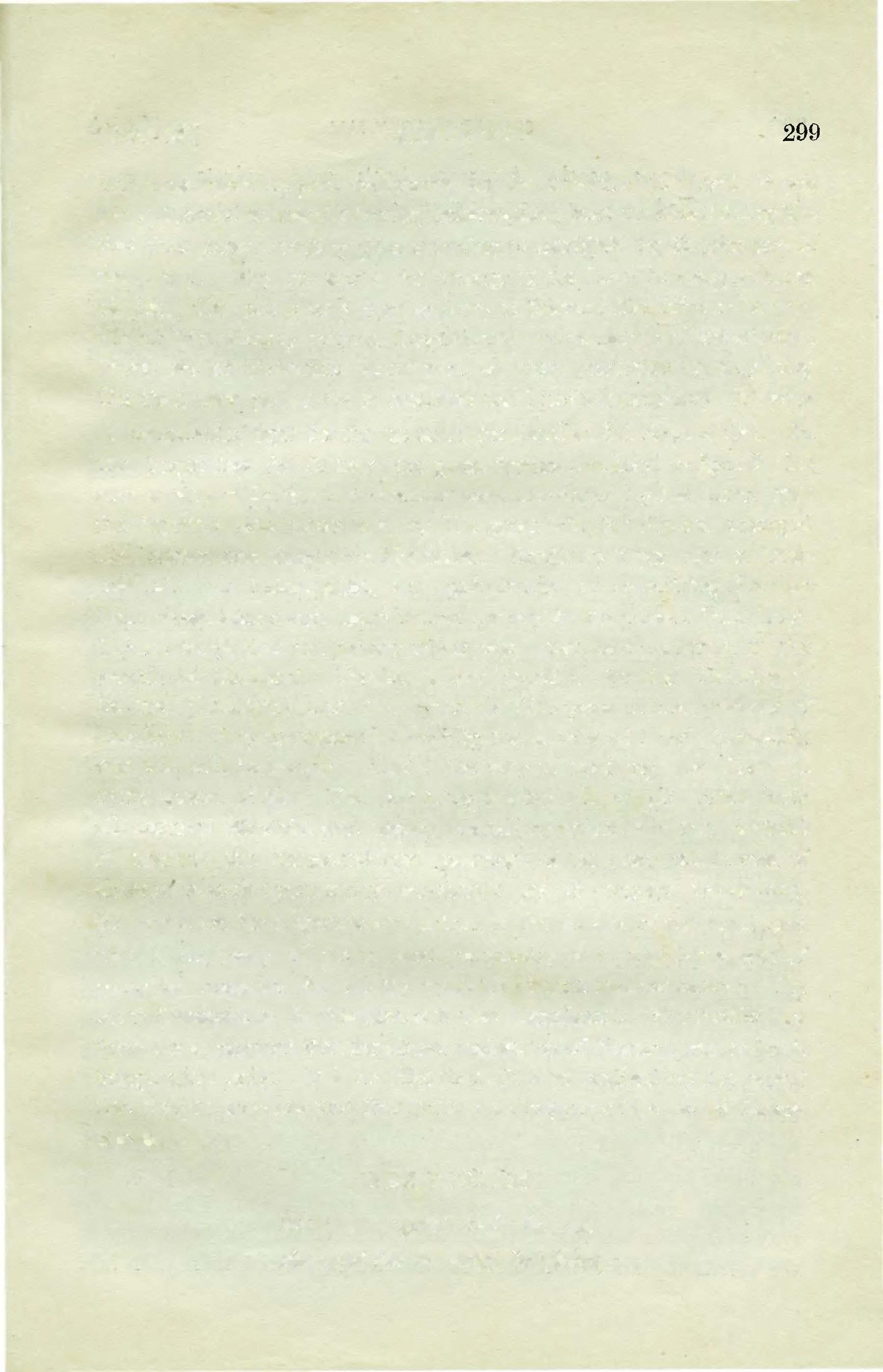
Text 33) FIRST CANTO 299
TEXT
m+rzrr li�"f �crrrrr urr<:ra- il<r �c;rcr 1 Cf�CfWr+r<fSforf if �ifTfo f=qflfifmal{ II
Amqyo yascha bhutanam Jayate yena subrata
Tad evea amC!Ja drabyam na punati chiktsitam
Amayo-diseases, Yascha--whatever, Bhutanam-of the living being, Yena-by the agency, ]ayate-become po�sible, Subrataoh the goodsoul, Tad-that, Eva -very, Drabya-thing, .Na-does it not, Punati-cure, Chiktsitam--treated with.
TRANSLATION
Oh the good soul, does not a thing therapeutically treated cure a disease which was caused by the same thing ?
PURPORT
Expert physician treat his patient with therapeutically treated diet. For example milk preparation sometimes causes disorder of the bowl but the very milk converted into·curd and mixed up with some other remedial ingredients cure such disorder of the bowl. That is our daily experience. Similarly the threefold miseries of material existence cannot be mitigatedsimply by material activities. Such material activities have to be turned into spiritual force just like iron is made red hot and thereby the action of fire begins. Similarly the material conception ofa thing is at once changed as soon as the same thing is made into usein relation with the service ofthe Lord. That is the secret ofspiritual success. We should not try to Lord it over the material nature neither we shall reject it by material conceptionofthe thing. The best way ofmaking the best usc of a bad bargain is to use everything in relation with the Supreme Spiritual Being. Every thing is emanation from the Supreme spirit and by His inconceivable po\1\'er He can convert the spirit into matter and the matter into spirit. Therefore a material thing (so-called) is at once turned into spiritual force by the great will ofthe Lord Who is able to do so. The necessary condition for such change of matter into spirit is to employ the so called matter in the service of the spirit. That is the wayoftreating our material diseases and elevate ourselves up to the spiritual plane where there is no misery, no lamentation and

300
SR1MAD BHAGWATAM
ENGLISH SYNONYMS [Ch. 5
no fear. \Vhen everything is thus employed in the service of the Lord we can experience that there is nothing expcept the Supreme Brahman. The vedic mantra that Eve'J)'tlzing is Brahman i<> thm realised by us.
1EXT NO. 34

tz<i <riJli' f<q;<:rrzr)llr: trii' �tifa�crcr: 1 cr tz<rr�qfcr<rmllf cr.�q;:a-Cfifuqcrr: G"t 11
Evam nrinam kriayogah smve samsriti hetavah
Ta evatma v1"nashaya kalpante kalpitah pare.
ENGLISH SYNONYl\1S
Evam-thus, Nrinam-of the human being, Krryayogah-all activities, sarve-everything, Samsriti-material existence, Helava-causes, Ta ·-that, Eva-certainly, Atma-thetree ofwork, Vinashyakilling, Kalpante-become competent, Kalpita-dedicated, Pareunto the transcendence.
TRANSLATION
Thus when all activities of the human being become dedeicated unto the service ofthe Lord, the activities which are causal to perpetual bondage, become the killing source of the tree ofwork.
PURPORT
Fruitive work which has perpetually engaged the living being in gro\Ving the tree of work, as it is compared with the banian tree in the Bhagwat Geeta, is certainly very much deep rooted. So long the propensity for enjoying the fi·uit of work is there one has to continue the condition of transmigration of the soul from one body or place to another body or place according to one's nature of work. Tbe propensity for enjoyment may be turnt:d into the desire for serving the mission of the Lord. By doing so one's activity is changed into Karmq_yoga or the way by which one can attain spiritual perfection even being engaged in his work for which he has natural tendency. Here the word Atma indicates
Text 34] FIRST CANTO 301
the categories ofall fruitive work. The conclusion is that when the result ofall fruitive and other works is dovetailed with the service of the Lord, they will cease to generate further Karma and will gradually develop into transcendental devotional service which will not only cut df completely the root of the banian tree of work but also will carry the performerto the Lotus Feet ofthe Lord.

The summary is that one has to, first ofall, seek the association ofpure devotees who are not only learned in the Vedantas but also selfrealised souls and unalloyed devotees of Lord Sri Krishna Tl:e Pen:cnality of Godhead. In that association, the neophyte devotees must render loving service physically and mentaJly with out any reservation. This service attitude of the neophyte will induce the great souls more to be favourable for bestowing their mercy which infects the neophyte with all the transcendental qualities of such pure devotees. Gradually this is developed into the strong attachment for hearing the transcendental pastimes of the Lord, which makes him able to catch up the constitutional position ofthe two gross and subtle bodies and beyond them is the knowledge of pure soul and his eternal relation with the Supreme Soul the Personality of Gadhead. After the relation is ascertained by establishment ofthe eternal relation, pure devotional service of the Lord begins gradually developping into perfect knowledge of the Personality of Godhead beyond the purview of impersonal Brahman and localised Paramatma. By such Pwushottamyoga, as it is stated in the Bhagwat Geeta, one is made perfect even during the present corporal ex�stence exhibiting all the good qualities of the Lord to the highest percentage. These are the gradual development by association of pure devotees.

302 SRIMAD BHAGWATAM 1Ch. 5
TEXT
35 llG"� f"filla- CfilT lf'TCf;;'q"f�(f)l'flTfl( I �A lf'n'GtTirf f� lff'ffilfflf�f<crcr'{ II 'Yadatra kriyate karma bhagawat
Jnanamyadtadadhinam
NO.
paritoshanam
hi bhaktiyoga samnwitam.
ENG LISH SYNON YMS
Tad-whatever, Atra-in this life or wcrld, Krfyate-dccs perform, Karma-work, Bhagawat-unto the Personality of Godhead, Paritoshanam -satisfaction of, Jnanam -knowledge, Tadtad-what is called so, Adhinam- dependent, Hi- certainly Bhaktiyoga- devotional Samanwitam-dovetailed with bhaktiyoga.
TR ANSLATION

·whatever workis done here in this life for tte sati�faction of the mission ofthe Lord is termed as bhaktiyoga or transcendental loving service ofthe Lord and as such what is called knowledge become a concomitant factor.
PURPORT
The general and popular notion is that by dischargingfiuitive work in terms ofthe direction ofthe scriptures onebecomes perfectly able to acquire transcendental knowledge for spiritual realisation. Bhaktiyoga is considered by some as another form ofKarma. But factual1y Bhaktiyoga is above both Karma andJnanam. Bhaktiyoga is independent ofJnanam orKarma on the other handJnanam and Karma are dependent ofBhaktiyoga. This K.riya Yoga or Karmayaga as recommended by Sri Narada to Vyasa is specifically recommended because the principle is to satisfy the Lord. The Lord wants that His sons the living being may not suffer the threefold miseries oflife and desires that all ofthemshould come to Him and live with Him but such going back to Godhead means one _!llUSt :!JUrify himselffrom material infections. When work is, therefore, performed interms ofsatisfaction ofthe Lord, the performer ofsuch work become gradually purified from the material affection. This purification means attainment of spiritual knowledge. Therefore Knowledge is dependent on such Karma or work which is done on behalfofthe Lord. Other's knowledge, being devoid ofBhaktiyoga or satisfaction ofthe Lord, cannot lead one back to the kingdom ofGod which means cannot even offer salvation as it is already explained in connection with the stanza, NAISKARAivfA EVA ACHYUTABHAVA VARJITA. etc. The conclusion is that a

Text 35] FIRST CANTO 303
devotee engaged in the unalloyed service ofthe Lord �pecifically in hearing and chanting ofHis transcendental glories, becomes simultaneomly spiritually enlightened by the Divine Grace as it is confirmed inthe Bhagawat Geeta.
TEXT NO. 36

�<;ffurT lf"l <filflfllf "ij'lf'Cffv&�lfTUiiq: 1

IJUif<Cf �l11liTJTTfif '!l���lfT�'{f.-Cf 'if II
Kurvanayatra karmani bhagawat ichhaya sakrit
Grinantiguna namani ktishnasya anusmaranti cha
ENGLISH SYNONYMS
KUrl!a1W-while performing, ratra- thereupon, Karmaniduties, Blzagabat-the Personality ofGodhead, Ichlzaya-by the will of, Sakrit-constantly, Grinanti-takes on, Guna-qualities, Namani -names, Krishnasya-of Krishna, Anusmaranti-constantly remembers, C/za-and.
TRANSLATION
\Vhile performing duties in pursuance of the order ofSri Krishna the Supreme Personality of Godhead, the performer certainly repeatedly takes into the mind the qualities, riames of Him and constantly remembers ofHim.
PURPORT
An expert<levotee ofthe Lord can mould his life in such a way that while performing all kinds ofduties eitherfor this or the next life, he can constantly take and remember the Lord's Name, Fame, Qualities etc. without any stopage. The order ofthe Lord is distinctly there in the B�mgwat Geeta that one should work only for the Lord in all spheres oflife. In every sphere of life the Lord shall be fixed up as the Proprietor. According to the Vedic rites even in the worshipping process of some demigods like Indra, Brahma, Sarswati, Ganesh, the system is that in all circumstances the representation ofVishnu must be there as the rajneswar or the {:Ontrolling power of such sacrifices. It is recommended that a
304 SRIMAD BHAGWATAM [Ch. 5
particularlynamed demigod may be worshipped for serving a particular purpose but still the presence ofVishnu is compulsory inorder to make the function properly done.
Apart fi'om su"ch Vedic duties even in our ordinary dealings also say for example in our household affairs, in our business or profession also we must consider that the result ofall such activi ties must be·given over to the Supreme Enjoyer Lord Krishna. In the Bhag.vai Geeta the Lord has declared Himself as the Supreme Enjoyer ofeverything as the Supreme proprietor ofevery planet and the supreme friend ofall beings. Except Lord Sri Krishna no one else can claim to be the proprietor of anything within His creation. A pure devotee remembers this constantly and in doing so he repeats the transcendental name, fame and qualities of the Lord which means He is constantly in touch with the Lord. The Lord is identical with His Name, Fame, etc and therefore to be associated with His Name Fame etc. constantly, mC'ans actually associating with the Lord.
The major portion ofour monitary income, not less than 50 per cent must be spent for the purpose ofcarrying out the order of Lord Krishna. 't\Te should not onlygive over the profit ofour earning to the cause as above mentioned, but also we must arrange for preaching this cult ofdevotion to others because that is also one of the orders ofthe Lord. On the other hand the Lord definitely says that no body is more dear to Him than one who is always engaged in the preachingwork ofthe Lord's Name, Fame all over the world. The scientific discoveries ofthe material world can also be equally engaged in the matter of carrying out His order. He wants that message of the Bhagwat Geeta shall be preached amongst His Devotees and it may not be so done amongst those who have no credit of austerities, charity, education etc. Therefore the attempt must go on to convert the unwilling men to become His devotees. Lord Chaitanya has tought us a very simple method in this connection. He has taught us the lesson for preaching transcendental message through singing, dancing and refreshment. As such 50 per cent ofour income may be spent up for this purpose. In this fallen

Text 36] FIRST CANTO 305
age ofquarrel and dissension if only the leading and well to do persons ofthe society agree to spend 50 percent oftheir income in the service ofthe Lord as it is taught by Lord Sri Chaitanya Mahaprabhu, there is absolute certainty ofconverting this hell of pandemonium to the transcendental abode of the Lord. No body will disagree to partake in a function where good singing, dancing and refreshment are administered. Every one will attend sucli function and in that auspicious spiritual function everyone is sure to feel individually about the transcendental presence of the Lord and this alone will help the attendants associating with the Lord and thereby purifying oneselfin the matter of spiritual realisation. The only condition for successfully executing such spiritual activities, is that it must be conducted under the guidnace ofa pure devotee who is completely free from all sorts ofmundane desires, fruitive activities and dry speculation about thenature ofthe Lord. No body has to discover the nature ofthe Lord. It is already spoken by the Lord Himselfin the text ofthe Bhagwat Geeta specia1ly and in all other vedic literatures generally. We have simply to accept them in toto and abide by the orders ofthe Lord. That will guide us to the path ofperfection. One can remain in his own position. No bodyhasto change his position specially in this age ofvariegated difficulties but only one condition is that he must give up the habit ofdry speculation in the matter of becoming one with the Lord. And after giving up such lofty puffed up vanities, one may very submissively receive by aural reception the orders ofthe Lord as it is said in the Bhagwat Geeta or Bhagwat fiom the lips of a bonafide devotee whose qualification ismentioned above. That will make everything successful without any doubt.
NO.

Pradyumnoya
Om-the sign ofchanting transcendental glory ofthe Lord.
obeisances unto the Lord, Bhagabate-unto the

306 SRIMAD BHAGWATAM [Ch. 5
;:rq) lfif'CT� ��;;j crt��qfl.J �r;rf� !T'!:�t=;;rzrrfrr�mzr rr;r: �<litf1JfTZJ ;;:r 1t Om namo bhagabate tubhyam vasudevaya dheemahi
TEXT
37
aniruddhyaya namah samk arshanaya cha
Namo-offering
Personality ofGodhead, Tuhlrymn-unto you, Vasudevqya-unto the Lord the son of Vasudeva, Dheemahi-Iet us chant, Pradyumna, Anuudda andSamkarsha-all plenary expansions of Vasudeva.
TRANSLATION
Let us all chant the glories of the Vasudeva along with His plenary expansions Pradyumna, Aniruddha and Samkarshan.
PURPORT
Accordingto Pancharatra, Narayana is the Primeval Cause of all expansions of Godhead. They are Vsudeva, Samkarsha, Pradyumna and Aniruddha. Vasudeva and Samkarshan are in the middle left and right, Pradyumna is on the right ofSamkarshana and Aniruddhis on the left of Vasudeva and thus the four deities are situated. They are known as the four aide-e-camp of Lord Srikrishna.
This is a Vedic hymn or mantra beginningwith Omkar pranava and as such the Mantra is established by the transcendental-chanting processnamely OmNamo Dheemahi etc.
The purport is that any transaction, either in the field of fruitive work or emperic philosophy, which is not ultimately aimed at transcendental realisation of the Supreme Lord,-is considered as uselesE: endeavours. Naradji has therefore explainded the nature ofunalloyed devotional service by His personal experience in the d.evelopment ofintimacy between the Lord and the living entity by gradual process of progressive devotional activities. Such progressive march oftranscendental devotion for the Lord culmiates in the attainment ofloving service ofthe Lord which is called Prema in different transcendental variegatedness called Rasas (Mellows). Such devotional service is also executed in mixed forms namely mixed up wiih fruitive work or emperic philosophical speculations.

Nowthe question whichwas raised by thegreat Rishisheaded by Sounaka about the confidential part of Suta's achievement through the spiritual masters,-is explained herein by chanting

Text 37] FIRST CANTO 307
hymn consisting ofthirty three letters. And this Mantra is addrressed to the four deities or the Lord with His plenary expansions. The central figure is Lord Sri Krishna because the plenary portions are His aide-e-camps. The most confidential part ofthe instruction is that one should ahv-ays chant and rem�mber the glories ofthe Lord Shri Krishna the Supreme Personality ofGod head along with His different plenary portion expanded asVasudeva Samkarshan Pradyumna and Anriruddba. These expansions are the original deities for all other truths namely either Vishnu Tatwa or Sakti Tatw<:s.
TEXT NO. 38

lfiifa- lJ'IT��q U Ut:lJ1'({�i'f: ?,iTT<{ II
I
Iti murti abhidlzanena mantra murtim amartikam
Ya;ateyajnapurusham s.a samyak darshanahpuman.
ENGLISH SYNONYIV!S
lti-thus, l.furti Form-� representation, Abhidhanena-in sound, mantramurtim -Form-representation of transcendental sound, Amartikam--the Lord who has no material form, Yajate-worship, , Yajna-Vishnu, Purusham-the Personality of Godhead, Sa-he alone, Samyal-c-perfectly, Darshana-one who has seen, Purushaperson.

TRANSLATION
As such one who worshipsthe Supreme PersonalityofGodhead Vishnu who has no material Form,-in the Form oftranscendental sound representation is the actual seer.
PUR PORT
Our present senses are all made of material elements and therefore they are imperfect to realise the transcendental Form of Lord Vishnu. He is therefore worshipped by sound representation in the way of tranScendental method of chanting. Anything which is beyond the scope of experience by our imperfect senses
308 SRIMAD BHAGWATAM [Ch. 5
��1 ��4-Tf�CTJ;'fi'f ili'?f<J;fa·t:p�r<;Ffil{
can be realised fully simply by the sound representation. A person transmitting sound from a far distant pl::tce can be factuaJJy experienced. If thjs is materially become possible why not spiritually about Lord Vishnu. This expe1ience is not a vague experience ofimpersonlist. But it is actually experience ofthe transcendental Personality of Godhead vVho posesses the Pure Form ofeternity bliss and knowledge. In the Amrkosh Sanskrit Dictionary the diction Murti carries import in two fold meanings namely Form and difficulty.
Therefore Amurtikam is explained by Acharya Sri Vishwanath Chakravarty Thakur as ·withcut difficulty. The transcendental Form of eternal bliss and lmmvleclge can be experienced byour original spiritual c senses which can be revived by chanting of the holy Mantras or transcendental sound representation. Such sound should be received from the transparent agency ofthe bcnafide I spiritualmaster and the chanting may be practised by the direction of the spiritual master. That will gradually lead us nearer to the Lord. This method ofworship is recommended in the Pancharatrik ' system which is both recognised and authorised. The Panchratrik system is the most authorised codes for transcendental devotional service and without the help ofsuch codes no body can approach the Lord simplyby dry philosophical speculation. The Pancharatrik system is both practical and most suitable for tlris age of quarrel. The Pancharatra is more important than the Vedanta with special reference to the modern age.

TEXT 1'�0. 39
�if �crf<I�if srww�cq ;z(i�f\Soff� I art::r;:if�Tifllqcr<i"·�crf�q;:rlfrci :q �qrcr: 11 '
Imam swanigamam brahman averya mad anuJthitam
Adat me jnanam aishairyam swasmin bhavam clza Keshavah.
ENGLISH SYNONYMS
Imam-Thus, Suanigamam-confidential knowledge of the Vedas in respect ofthe Supreme Personlity of Godhead, Brahman-
Text 39] FIRST COANt 309
oh the Bratmin (Vyasdeva), Averya-knowing it well, mad-by me, Anusthitam-executed Adat -bestowed upon me, me--me, Jnaanam-knowledgetranscendental, Aisharyam-opulence, Sasminpersonal, Bhavam-intimate affection and love, Keshavah-Lord Krishna.

TRANSLATION

(Sri Narada Muni said) Oh Brahmin, thus I was endowed with first the tr�_mcendental knmvledge ofthe Lord as they are inculcated in the confidential part ef the Vedas, then spiritual opulences and then His intimate loving service, by the Supreme Lord Krishna.
PURPORT
Communion with the Lord by transmi!Jsion of the sound transcendental is non-different from the "\IVhoJe Spirit Lord Sri Krishna. It is completely perfect method for approaching the Lord. By such pure contact with the Lord without anyoffence of material conceptions numbering ten, the devotee can rise above the material plain to understand the inner meaning of· the Vedic literatures inculcating the Lord's existence in the transcendental realm. Lord reveals His identity graduallyto one who has_unflicnching devotional mode both upon the spiritual master aswell as the Lord. After this the devotee is endowed with mystic opulences which are eight in number. And above all the devotee is accepted as the confidential entourage ofthe Lord and is entrusted with specific service of the Lord through the agency of the Spiritual master. A pure devotee is more interested in the matter ofservice of the Lord than showing an exhibition ofthe mystic powers dorment in him. Sri Narada has explained all these from His personal experience and one can obtain all the facilities which Sri Narada obtained perfecting the chanting process of the symbolic sound representation ofthe Lord. There is no bar for chanting this transcendental sound by any one provided the same is received through the agency of Narada's representative coming down by the chain ofdisciplic succession or the Parampara system.
310 SRIMAD BHAGWATAM [Ch. 5
TEXT NO. 40.

�cr+rtl!�-;r�a- fer�� fer�): �JTJI:lla- it;=r f<I�t �-rq:fua-� 1

5fl9tnf�
Twam api Samapyate
Prakhyahi
Samklesha
adabhra shruta vishrutam ZJibhfjh
yena vidam bubhutsitam
dukhaih muhur arditanam
nzrvanam ushanti nanyatha
ENGLISH SYNONYl\'IS
Twam -Your good soul. Api-also, Adabhra-vast, Shrutavedic literatures, Vishrutam-have heard also, Vibhoh -ofthe almighty, Samapyatc-satisfied, Vidam-of the learned, Bubhutsitam-who are always after learning transcendental knowledge, Praklryahidescribe, Dukhair-by miseries, Muhur-always, Arditom-suffering mass of people, Sam/desha -sufferings, Nirvanam -mitigation, Ushanti-do not get out of, Nanyatha -by other means.
TRANSLATION
Please therefore, describe the Almighty Lord's activities which you have learnt by your vast knowledge of the Vedas; because that will satisfy the hankerings ofthe great learned men and at the same time will mitigate the miseries �of the common mass of people suffering from the material pangs always and there is no other way to get out ofthem.
PURPORT
Sri Narada Muni from practical experience of His life asserts it definitely that the prime solution of all problems of material work is to broadcast very widely the transcendental glories of the Supreme Lord. There are four classes ofgood men and there are four classes ofbad men also. The four classes ofgood men aclmowledge the authority ofthe Almighty God and therefore such goodmen when 1. they are in difficulty, 2. when they are in need money 3. when they are advanced in knowledge and 4. when they are inquisitive to know more and more about God, intuitively they take shelter ofthe Lord and as such Naradji advises Vyasdeva to broad-
Text 40]
FIRST CANTO
�=�ll·�·�:f�r�q-;:rf �Cf��frrcrr�lJ�fr:r i'!T��T 11
311
•
cast the tramcendentaJ knowledge ofGod in terms ofthe vast Vedic knowledge which he had already attained.
So far the bad men are concerned they are also four in number. They are 1. Those who are simply addicted to the mode ofprogressivefruitive work andthus are subjected to the accompanying miseries. 2. Those who are simply addicted to viceous work for sense satisfaction and also suffering the consequence.
3. Those who are materially very much advanced in knowledge but have no sense to acknowledge the authority ofthe almighty Lordand thus sufferin-g a Jot. And 4 there is a class ofmen who are known as atheist and thorefore purposely hate the very name of God although they are always in difficulty.
Sri Naradji advised Vyasdeva to describe t..he glories of the Lord just to do good to all the above mentioned eight cJasses of men both good and bad. Srimad Bhagwat is therefore not meant for any particular class ofmen or sect. It is for the sincere soul who wants actually his own welfare and peace ofthe mind.
Thus end the Bhaldivedanta Purports ofthe first canto-fifth chapter of Srimad Bhagwatam in the matter of Sri Narada's Instructions on Srimad Bhagwatam to Vyasdeva.

• 312 SRIMAD BHAGWATAM [Ch. 5
SIXTH CHAPTER CONVERSATION BETWEEN NARADA & VYASA
TEXT NO. 1.
�Zci f<ro�lf *l"lTGI'T•�cr<i;;f;:q q:;ij- 'if I
�lf: q)f:c� � �W'l: ozm:r: �cli'Gfa'T�cr: II
Suta uvacha
Evam nisamya bhagaban devarse janma karma cha
Bhuyahpaprachha tam brahman l!Jasah satyqbati sutah

ENGLISH SYNONYMS.
Sutauvacha-Suta said, Evam-thus, .Nisamya-hearing, Bhaghan -the powerful incarnation of God, Devarse-of the great sage amongst the gods, Janma- birth, Karma -work, Paprachha -asked, Tam-him, Brahman-oh the brahmins, V)asa-Vyasdeva, Satyabati suta-the son of Satyabati.

TRANSLATION
(Suta said) Thus hearing all about Sri Narada's birth and activities, Vyasa Deva the incarnation ofGod and son of Satyavati asked as follows oh the Brahmins.
PURPORT
Vyasdeva was further inquisitive to know about the perfection ofNaradji and therefore he wanted to know about Him more and more. In this chapter Naradaji will describe how he was able to have flash ofaudience ofthe Lord while he was absorbed in the transcendental thought ofseparation from the Lord and when itwa� too much painful for him,
SRIMAD BHAGWATAM
TEXT NO. 2

olJaf \3'<1T"f
flf�flff<rsrcrf�a f<r�ro:rr�a-flffii<r
"' ..
<rci"JTrrrr <r11Pmr' crcr: f<fiJTCfiU�<rr'{ 11
Sri li)asa-uvacha
Bhikshubhir vipravasite vijnan adestlibhis tava
Bartamana vqya.rya adye latah kim akorad bhaban
ENGLISH SYNONYMS
[Ch.
Sri (�asa uvacha-Sri Vyasdeva said, Bhikshubhir-by the great mendicants, Vipravasite -having departed from there for other places, Vijnana-scientific knowledge in transcendence, Adestrihhisthose who hadinstructed, Tava-ofyour, Bar/amana-present, Vqyasya ofthe duration oflife, At[ye-before the beginning of, Tatah-after that, Kim-what, Akorad-did do, Bhavan-your goodself.
TRANSLATION
Sri Vyasdeva asked Sri Naradaji, what did he do after the departure ofthe great sages whohad instructed him about scientific transcendental knowledge before the beginning of the present birth.
PURPORT
Vyasdeva himselfwasthe discipleofNaradaji and therefore itis naturalto be anxiousto hear from him what did he do afterinitiation from the spiritual masters. He wanted to follow Narad's foot prints inorder to attain to the same perfect stage of life. This inquisitiveless of the disciple to enquire from the spiritual master IS an essential factor to march progressivelyon the spiritual path. This process is technicallyknown as 'Satdharma Prichha.
Katham
314
6
3
CI�I1T <rfua' 8" q'{ ql.J: I "' .. !fi� 'if�11<::�re;r: Cfir� srrta Cfi�<r�� u Swqyambhuba kqya vrittya vartitam te param vqyah
TEXT NO.
fifflJl=lf<J'CfilJT
vedam udashrakshikaleprapte kalehar4m
ENGLISH SYNONYMS
Swayambhuba -the son ofBrahma, Kaya-under what condition, Vritrya -occupation, Te -you, Param -after the initiation, Vayah -duration of life, Katham -how, Vedam-how that, Udashrakshi -did you quit, Kale -in due course, Prapte-having attained, Kalevaram-body.
TRANSLATION
Oh the son ofBrabma, how did you pass your duration of life after the initiation and how did you quit your body having attained the time in due course.
PURPORT
Sri Narada Muni in His previous life was just an ordinary maid-servant's son and how he became so perfectly transformed into the spiritual body ofeternal ljfe bliss and knowledge,-was certainly an important query. Sri Vyasdeva desired Him to disclose the facts for every one's satisfaction.
TEXT N0. 4

51'T<f<fi�qfarq-qrll'at f�ZFi:T 8" �fif�=off 1 if Wtf olfqtffc9i'A t:!;tf e-crf<r�liifa-: II
Prak kalpa visayam etam smritim te munisattama
Nahi esha byabadhat kala esha sarva nirakriti
ENGLISH S'\INONYMS
Prak-prior, Kalpa-the duration of Brahma's day, Visayamsubject matter, Etam -all these, Smritim -remembrance, Te-your, Munisattama -oh the great sage, Na-not, Esha-all these, Hicertainly, Byabadhat-made any difference, Kala -course of time, Esha-all these, Sarva--ali, Nirakriti-annihilation.
TRANSLATION
Oh the great sage, the time annihilates everything in due course and how it so happened that subject matter which happened prior to this duration ofBrahma's day is still afresh in your remembrance without being disturbed by time.
Text 4] FIRST CANTO 315
PURPORT
As spirit does not annihilate ever after the annihilation of the material body so also spiritual conciousness does not annihilate. Sri Narada developped this spiritual consciousness even when he had the material body in the previous Kalpa. Consciousness of the material body means spiritual consiousness expressed, through the medium ofmaterial body. Thisconsciousness is inferior, destructible and perverted; But super consciousness of the supramind in the spiritual plane is as good as the spirit soul and is never annihilated.
TEXT NO.5

;;r�� \3CfT'i:f f-.:r�f�fcrsrcrf�a- fcr�r;;r��;cf<Til�i 1 � G crc:Pir;:r) q-q�ll'T�� �� ���Cfl'r<:�� 11
SriNardaUvacha, Bhikshubhir vipravasite vijnana drestivir mama
Vartamano Vqy.ryaqye tato etad akarosham
ENGLISH SYNONYMS
Sri Narada Uvacha-Sri Narada said, Bhikshubhir-by the great sages, Vipravasite-having departed for other places, Vijnana-scientific spiritual knowledge, Adestrblzir-those who imparted upon me, Mama-mine, Vartamano-present, Vay.rya(!Je- before this duration oflife, Tato -there after, Etad-this much, Akarosham-performed.
TRANSLATION
Sri Naradaji said
The great sages who had imparted upon me scientific knuwledge in transcendence, having departed from me for other places I had to pass on my life like tLis.
PllllPORT
In His previous life when Naradaji was impregenated with spiritual knowledge by the Grace of the great sages, there was a tangible charge in his life although he was only a boy of five years only. That is.an important symptom visible after initiation
316 SRIMAb BHAGWATAM [Ch. 6
from the bonafide spiritual master. Actual association of devotee brings about quick change in life for spiritual realisation and how it so acted upon the previous life of Sri Narada Muni is described by and by in this chapter.
TEXT NO. 6
l:t<fil'�+RT lt Gfif•ft �)fq-;JT;:g-y 'if f<fl<RT 1 "'
lWII��STfrlflTal 'if� �i'\"�T:!G!"i'tfif� II
Ekatnifa me janani yoshii mudha cha kinkari
Moyee aimaje anarrya gatou chakre sneha anubandhanam
ENGIJISH SYNONYJ.\IIS
EkatmaJa--having only one son. Afe-mine, Janani--mother, roshit--womJ.n by class, Mudha -foolish, Ciw -and, J(inkari-maid servant, moyee- un to me, Atmaje-being her off;pring, Ana1'!)'agatouono who has no alternative protection, Chakre--did it, Snehanubandhanam-tied up by affectionate bondage.
TRANSLATION
I was the only son ofmy mother who not only belonged to the simple woman class but also she was only a maid servant. And I being her only offspring having no other alternative protection, she bound me with tie of affectionate bondage.
TEXT NO.7·

mrcr�rr�n >r <fi�qrss�r�)T!"�t:i t:rit=e;zcrt 1 ��� f� Cf?il �T<fiT lfT!SJT Grfit:rl£1 lf'tfT II
Sa aswatantra na klapa a.sit yoga kashemam moma echhati
/shasya hi bashe loka yos/za darumoyee yatlza
ENG LISH SYNONYJ\1S
Sa-she, Aswatantra-was dependent, Na-H<"t, KaljJa-able, Asit-v,as, YogakJ/zemam-maintenetnce, Afomo --mine, Eclzhatialthough desirous, ls!zasya-of the Providence, Baslte-under the control of, Loka- everyone, Yosha-do11, Darumoyee-made ofwood, rath-as much as.
Text 6, 7l FIRST CANTO 311
.TRANSLATION
She wantedto look after my maintenanceproperly but because she was not independent she was unable to do any thing for me. The world is under full control ofthe Supreme Lord and therefore every one is like the woodeudoll in the hands ofthe danCing master.
TEXT NO. 8

arQ :;:r a-�iif��� 3ifl;fcrff<r<;_ifllllff
f�r1t�lif<?l"JO��?TT �IT<?rli: 1f3=ifQflfif: II
Aham cha tad brahma kule ushibans tad apekshaya
Digdeshakala abyutpanna valakahpancha hayanah
ENGLISH SYNONYMS
Aham -I, Cha-J.lso, Tad-her, Apekshaya-being dependent on, Tad-that, Brahmakule-in the school ofthe brahmins, Ushiban -lived, Digdesha-direction and country, Kala-time, Abyutpanna·having no experience, Valakah -mere a child, Pancha-five, Hqyanah -years old.
TRANSLATION
I also lived in that scho�l of the brahmins being dependent on my mother's affection while I was a mere child offive years old without any experience ofthe countries and different directions.
TEXT NO.9
�CJ>Gr rif'icrr �Qr;,�Q·m frrf?IT m 11f¥t , �qT���cq<rr �I[Gc: 'li'Tl:!TT Efi'T<?fq')f�q-: II
Ekada nirgatam gehat duhantim nishi gam pathi
Sarpa adashatj1ada spristam kripanamkalach'lditam
F.NGLISH SYNONYMS
Ekada-once upon a time, Nirgatam-having gone out, Gehatfrom home, Duhantim-for milking, Gam-the cow, Nishi-at night, Sarp�-snake, Adashat-bitten, Pada-on the leg, Spirstam-thus
318
6
SRIMAD BltAGWATAM [Ch.
stroken, Krip nam-the poor woman, Kalaclzoditam-influenced by the supreme time.
TRANSLATION
Once upon a time the poor woman my mother while engaged in milching cow at night was on the road bitten by a serpent striking on the leg as it was influenced by the Supreme Time.
PURPORT
That is the way ofdragging a sincere soul nearer to God. The poor boy was being looked after by the only affectionate mother and yetthe mother was withdrawn from the world by the SupremeWill, in order to put the sincere soul completely at the mercy ofthe Lord. That was actually to happen in the life ofNarada in His previous birth.
TEXT No. 10

{'f<:'T a<:�lfim:lf +rcmr;rt �if�T"�a: 1 ��� 11;:lflff<f; 5frfu!Si fi{��'O'Ul{ II
Tada tadaham ishmya bhaktanam sam abhipsitah
Anugraham ma�yamanahpratistham dishauttaram
ENGLISH SYNONYMS
Tada-at that time, Tad-that, Aham-I, lsha.rya-of the Lord, Bhaktanam-of the devotees, Sam -mercy, Abhipsitah-desiring, Anugraham-special benediction, J1anyamana -thinking like that, Pratistham- departed, Dishiuttaram-on the northern direction.
TRANSLATION
I tooked it as special mercy of the Lord who always desires benediction for His devotees and thinking like that I started for the northern side after that.
PURPORT
Confident devotees ofLord see in every step a benedictory direction ofthe Lord. \Vhat is considered as odd moment in the
Text 10] FIRST CANTO 319
J
mundane sense is accepted as a special mercy ofthe Lord. Mudane prosperity is a kind ofmaterial fever and by the Grace ofthe Lord temperature ofsuch material fever of devotee is gradually diminished and spiritual health is obtained step by step. Mundane people misunderstand it.
TEXT NO. 11
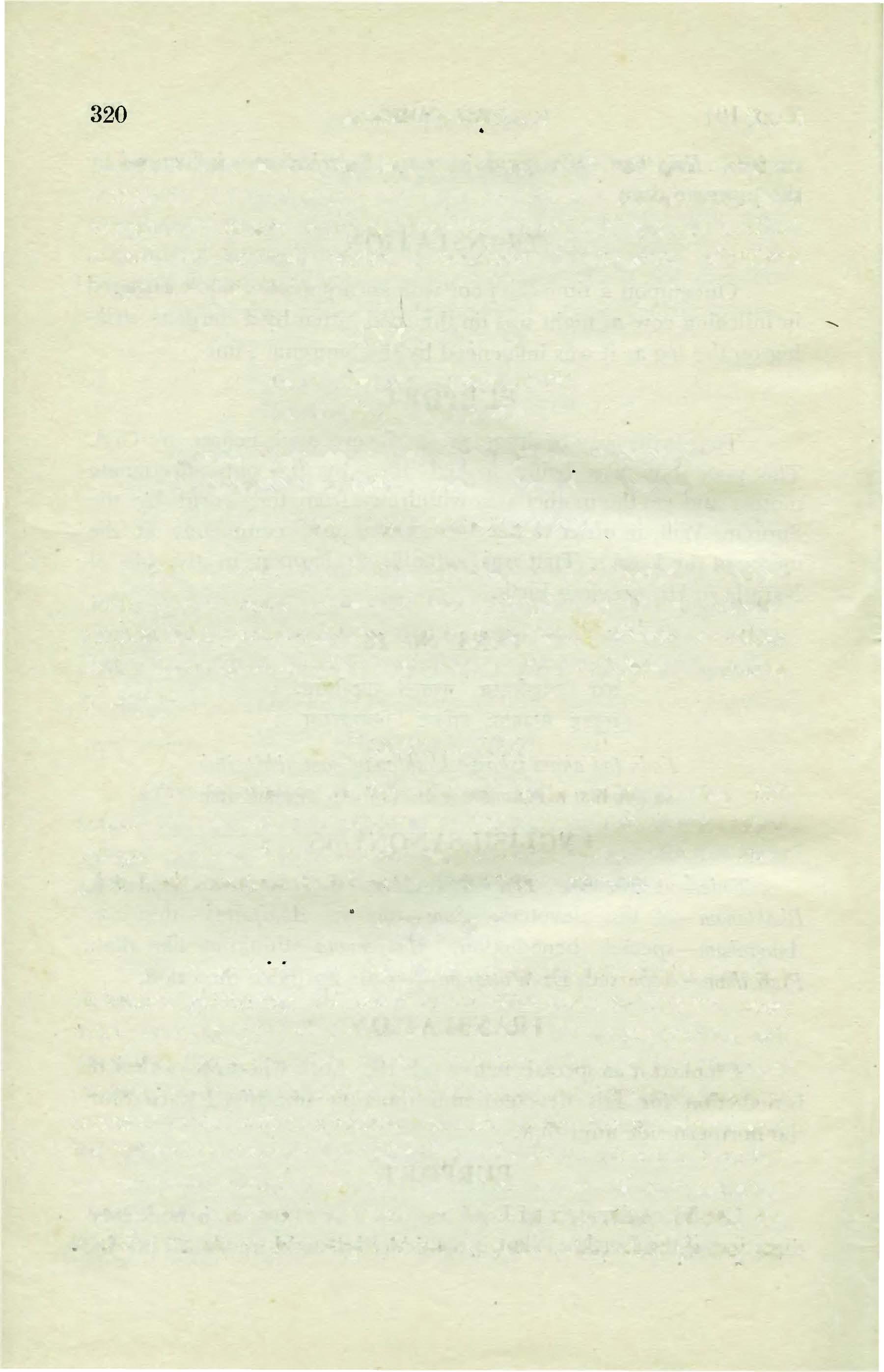
�!flTffT<;:�;=rq;:t�a"f ���.W=fSfi;fTCfiU't I �cl.?rcrc-crrc-r�:cr q.:rr;:�q-crrrrfrr '<�' 11
Sphitan janapadans tatra pura grama braja akaran
Khetakharbata batis ella vanam upavanani
ENGLISH SYNONYMS
Sphitan-very flourishing, Janapadan -m,etropolises, Tatrathei·e, Pura-towns, Grama-villages, Braja-big farms, Akaranmineralfields, (mines) Khetra-agricultural lands, Kharbata-vallies, Batis-flower gardens, Cha-and, Vanani -forests, Upavanani-nursery gardens.
TRANSLATION
After his departure Sri Narada Muni (in his previous life) began to pass on through many flourishing metropolis, to'\-ms villages, animal farms, mines, agricultural lands, vallies, flower gardens and natural forests as well as nursery gardens.
PURPORT
Man's activities in the fields of agriculture mining farming industries gardening all were in the same scale, as they are now, even previous to the present creation and the same activities will remain as theyare even in the next creation. After manyhundreds of crores ofyears one creation is,anhiliated and after manyhundreds of crores ofyears another creation is started by the Jaw of nature and the historyofuniverse repeats itselfpractically on the same level but the mundane wranglers waste time in the matter of archeological excavations without any search into the vital necessities of life. Sri Narada Muni? even thoug-h he was a mere child, after getting an
320 SRIMAD BHAGWATAM . [Ch. 6
impetusofspiritual renaissance did notwastetime fora single moment in the matter of economic development although he passed on through the societies of towns and villages, mines and industries but continually went on for progressive spiritual emancipation. Srimad Bhagvvatam is nothing but another repeatition ofhistory which happened some hundredes ofcrores ofyears before. As it is said herein before that in Srimad Bhagwatam only the most important factors of history, historical narration are picked up so it is recorded in this transcendental piece ofliterature.
TEXT NO. 12
f:q�cn�fcrf'<.f:;rnfrfi'N"�'""!��;rr'( 1 GJ(1T�rf�q::;r�mf�;ft: ��f.:rm: 1 f"''��Cf.f:
Chitra dhatuVichitraadrinivabhagnanbhujadruman
Jalasayan shiva jalan nalini surasevita
chitraswanai Patrarathair vibhramadbhramarashriha.
ENGLISH SYNONYMS
Chtradhatu-valuable minerals like gold, silver, copper etc. Vichitra-full of variegatedness, Adrin-hills and mountains, Ivabhagnan -broken by the giant elephants, Bhuja -branches, Druman-trees, Shiva -health giving, Jalan-reservoires of water, Nalini-lotus fiowers, Surasevita-aspired by the denizens of heaven, Chitraswanai-pleasingtothe heart, Pairarathai-by the birds, Vibhramad-bewildering, Bhramarashriha-decorated by drones.
TRANSLATION
He passed through hills and mountains full of reservoirs of variagated minerals like gold, silver and copper. Tracts ofland with reservoirs of water full ofbeautiful lotus flowers deserving to be used by the denizens ofheaven and decorated with bewildered drones by the singing birds upon them.
TEXT NO. 13

Text 12, 13] FIRST CANTO 321
q:;n:'<lf<r-;rlf'!�Jf�f�<r:
II
;:r������cr;:arJJ�i'fiT'9i'fi�'(Jf. O.:i!fio.;qrfcrrncrrs�p:nmt f<ffq;:i'11�({ 1 'EfT� srfcr�<rTi!fiT� Cil:ff\1T(1'JifuCftf-;r� II
.... ...
SRIMAD BHAGWATAM
Nata venu sharas tanwa kusha keechakagahvaram
Eka evatiyato aham adraksham vipinam mahat
Glwram pratibhayakaram byato oluka Shivajiram.
ENGLISH SYNONYMS
[Ch. 6

Nata-pipes, Venu-bamboo, Saras- pens, Tanwa-full of, Kusha-sharp grass, Keechaka-weeds, Ga!waram--caves, Ekaalone, Eva-only, Atryato-difficult to go through, Aham-I, 1Adraksham-visited, Vipinam-deep forests, Mahat-great, Ghoramfearful, Pratibhayakaram-dangerously, Byalo-snakes, Utuka-owls, Shiva-jackels, Ajiram-playgrounds.
TRANSLATION
I alone then passed throughmanyforests full ofpipe, bamboo, pens, sharp-grass, weeds, caveswhich are-Yerydifficult togo through ftlone and still I visited those dangerously fearful forests deep and dark and the play-yards ofthe snakes, owls, jackels etc.

PURPORT
It is the duty ofa mendicant to have experienc ofall varieties ofGod's creation as Paribrajakacharya or travelling alone through all forests, hills, towns, villages etc. to gain faith in God and strength ofmind as well as to enlighten the inhabitants of the message of God. A Sann¥asi is duty bound to take all these risks without any fear and the most typical Sannyasi of the present age is Lord Chaitanya \'\Tho travelled in the same manner through the central India jungles enlightening even the tigers, bears, snakes, deers, elephants and many others jungle animals. In this age ofKali Sannyas is forbidden for ordinary men and onewho change the dress for making propaganda face is a different man from the original ideal Sannyasi. One should however take the vow ofcomplete stopageofsocial intercourse and devotelife exclusively fortheservice of the Lord and the change of dress is but only formal. Lord Chaitanya did not accept the name ofSannyasi and in this age of Kali the so called Sannysins may not change theirformer names following the footprints ofLord Chaitanya. In this age devotional �ervice of hearing and repeating the holy �lories ofthe Lord is
322
strongly recommended and one who may take the vowofrenunciation of family life may not imitate the Paribrajakacharya like Narada or Lord Chaitanya but may sit down at some holy place and devote the whole time and energy in hearing and repeatedly chanting the holy scriptures left by the great Acharyas like the six Goswamins ofVrindaban.
TEXT NO.I4
qf�l5frrafrs::�Twn� �c;�r�ra-r ;;�f�a-: 1
frrr�crr !fttcrr �a rr�r ;;r�!J�Zr ifall;f"l1: u
Parishranta indiiya atama aham tritparito bubhukhito
Snatwa pitwa hrade naqya upaspristo gatah shramah
ENGLISH SYNONYMS
Parishranta-being tired of, lndriya-bodily, Alma-mentally, Aham-I, Tritparito-being thirsty, Bubhukshito-and hungry, Snatwa -taking a bath, Pitwa-and drinking water also, Hrade-in the lake, Naqya-ofa river. [Jpaspristo-being in contact with, Gatahgot relieffrom, Shramah-tiredness.
TRANSLATION
11ms travelling I felt tiredbothbodily and�entally andI was both thirsty and hungry. So I took bath in the lake ofa river and drunk water also. I got relief from tiredness by such contact of water.
PURPORT
A travelling mendicant can meet the needsof body namely thirst and hunger by the gifts ofnature withont being a beggar at the door ofthe householders. The mendicant therefore does not go at the house ofhouseholder for begging but for enlightening him spiritually.
TEXT N0. 15

aft:11f�B"rr�s�ull fqcq�)q�'<T 'A'Tff.:la: 1 "'
8ffc:tfi'fTSSc+IFf+rT�f$:J'<TTl5fCTllf'9;:a<fl:r II "' ...
Text 14, 15] FIRST CANtO 323
Tasmin nirmanuje armrye pippa! upastha ashritah
Atmana atmastham atmanam yathashrutam achintayam.
ENGLISH SYNONYMS
Tasmin-in that, NirmanuJe-without any human habitation, Ara1rye=ln the forest, Pippal-banian tree, Upastha-sitting under it, Ashritah-taking shelter of, Atmana-by intelligence, Atmanamthe super soul, Atmastham-situated within myself, Yathashrutamas I did hear it from the liberated souls, Achintayam-thought over.
TRANSI,ATION
After that under the shadow ofa banian tree in the forest without any human habitation I began to meditate upon the Supersoul situated within myself by my intelligence as I heard it from liberated souls.
PURPORT
One should not meditate according to one's personal whims. One should know perfectly well from the authoritative sources of Scriptures through the transparent medium ofbonafide spiritual master and byproper use ofone's trained intelligence for meditatingupon the Super Soul dwelling within every living being. This consciousness is fi.rmly developed by a devotee who has rendered ioving service un to the Lord by carrying. the orders ofspiritual master. Shri Naradji got contact of bonafide spiritual master served them sincerely and got the enlightenment rightly. Thus he began to meditate upon.
TEXT NO. 16

eqp:mf<i:'<n:�ll="ff);:;f merf'lf'Jfa��H!T I

�T�ifiU�lfP'-!<tiffi�l:f �rnr•i:r �;l�f�: II
Dhayatos charnamblwjan bhavanirjita chetasa
Outkantha ashrukala ahshsynhridi asit me shanaihr hari
ENGLISH SYNONVMS
D!ryatos--thus meditating upon, Chamambhojam-lotus feet of the Personality ofGodhead localised, Bhavanirjita-mind transform-
324 SiUMAD
Bi-I:AGWATAM
Text 16j
FIRST CANTO
ed into transcendental love for the Lord, Chetasa-all mental activities (thinking feeling and willing), Outkantha-eagerness, Ashrukala-tears rolled down, Akshsya-of the eyes, Hridi-within my heart, Asit-appeared, Me--mine, Shanair-without delay, Hari - the personality ofGodhead.
TRANSLATION
As soon as I began to meditate upon the lotus feet ofthe Personality of Godhead with my mind transformed into transcendental love, tears rolled down from eyes and after that the Lord Personality ofGodhead Sri Krishna appeared on the lotus ofmy heart.
PURPORT
The word Bhava is significant here. This Bhava stage is attained after transcendental affection for the Lord. The first initial stage is called Shraddha or liking for the Supreme Lord and inorder to increase that liking one has to associate with pure devotees of the Lord. The third stage is to practise the prescribed mles and regulations in the matter ofdevotional service and this will perfect in dissipation ofall sorts ofmisgivings and removal ofall personal deficiencies in the matter ofprogress in devotional service.
\Vhen all misgivings and personal deficiencies are removed there is a standard faith in tile transcendental matter and the taste for it increases in greater proportion. This stage leads to attraction and after this there is Bhava or the prior stage of unalloyed love for God. All the above different states are but diferent stages of development oftranscendental love. The mind being surcharged with transcendental love there is strong feeling of separation which leads eight different kinds of ecstacies. Tears from the eyes ofa devotee is an automatic reaction of such separation and because Shri Narada Muni in his previous birth attained that stage very quickly after his departure from home, it was quite possible for him to perceive actual presence of the Lord which he tangibly experienced by his developed spiritual senses without any material tinge.
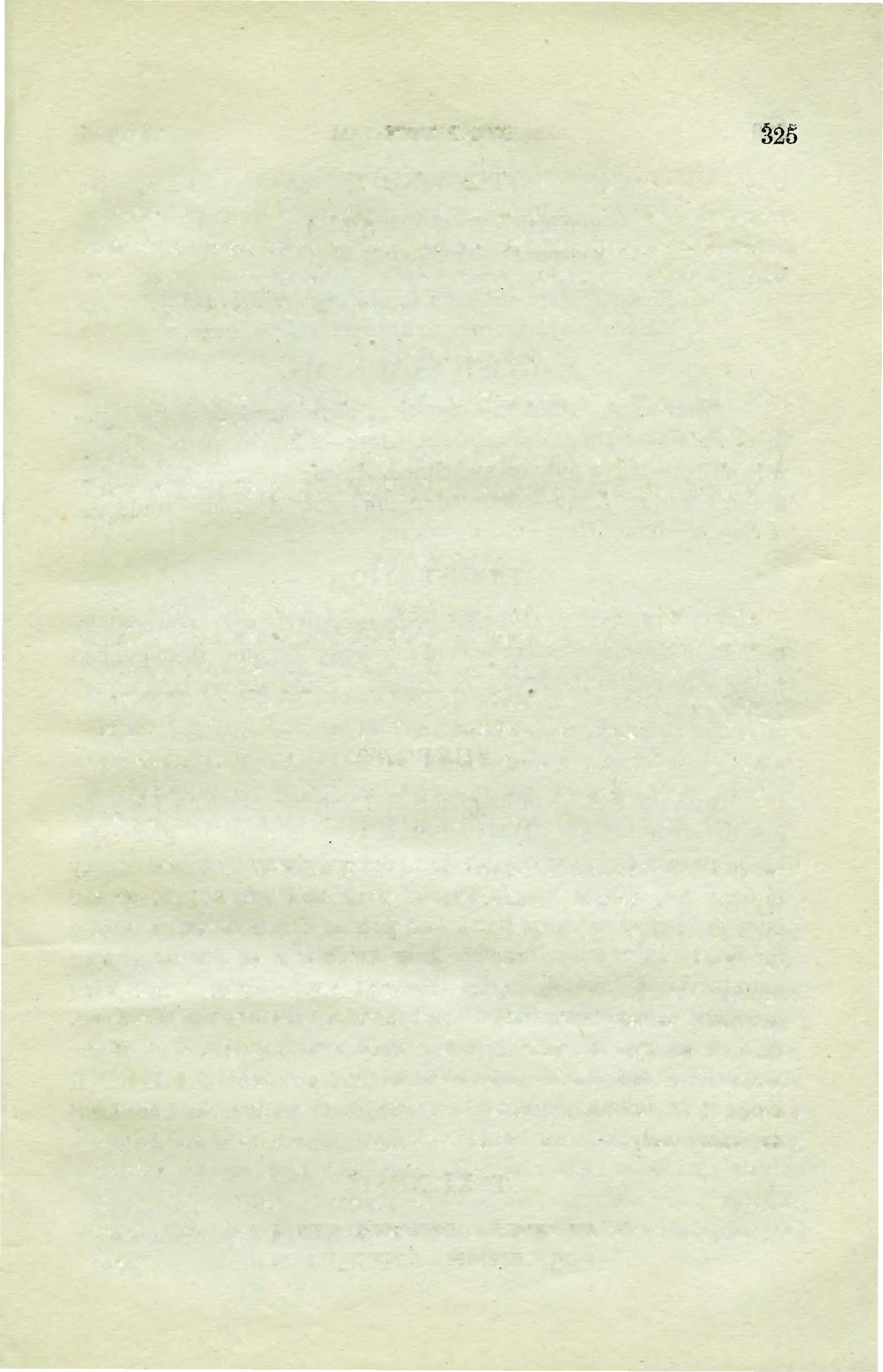
SRIMAD BHAGWATAM
TEXT N0. 17
�11Tf�hnf<rf��q;f1r)sfuf.f�·a: 1
�T<f�q�p;�� �T<fTifT(}"'l"<l''l_!+rll'l_!iT II
Prema atihhara nirhhinna pulaka anga atinirhritah Ananda samplahe leena na apa�am ubhaya mune.
ENGLISH SYNONYMS.
Prema-love, Atihhara-excessive. Nirhhinna-extra distinguished, Pulaka-feelings ofhappiness, Anga-different parts of body, Atinirhritah-being fully overwhelmed, Ananda-ecstacy, Samplahlein the ocean of, Leena-absorverl in, Na-not, Apa.ryam-could see, Uhhayam-both, Mune-oh Vyasdeva.
TRANSLATION
Oh Vyasdeva, at that time being excessively over powered by feelings ofhappiness, every part ofmy body became distinguished being absorbed in the ocean ofecstacy, I could not see both myself and the Lord.
PURPORT
Spiritual feelings ofhappiness and intense ecstacies have no mundane comparison. Therefore it is very difficult to give expression to such feelings. \Ve can just have an glympse ofsuch ecstacy in the words ofShri Narada Muni. Each and every part of the body or senses have their particular part of function. After seeing the Lord all the sense became fully awakened to render service unto the Lord because in the liberated state of the senses fi·om mundane contingency, they are fully efficient in serving the Lord. Assuch in that transcendental ecstacy it so happened as if the senses have become separately enlivened to serve the Lord. It being so Narad Muni lost himselfto see both himself and the Lord simultaneously.
TEXT NO. 18

326
+r1JC�Cll �H'FiR:Cl>r� �� I arq� ��«)� <i'l<noll'��<ff �cr 11 ·
�q
ENGLISH SYNONYMS
Rupam-form, Bhagavalo-of the Personality of Godhead, ]at-as it is, Tal-that, Manah-ofthe mind, Kantam -as it desires, Suchapaham-vanishing all disparity, Apa.ryan-with out seeing, Sahasa-all of a sudden, Uttasthe-got up. Baiklabyat---being perturbed, Durmana--having lost the desirable, Iva-as it were.
TRANSLATION

The transcendental form of the Lord, as it is, IS just apt to the mind by its desire and is at once vanishing all disparity of the mind. Having not seen that form again all ofa sudden I got up being perturbed in the mind as it happens after losing the desirable.

PURPORT
The Lord is not Formless is experienced by Narada Muni. But His.Form is completely different from all forms ofour material experience. For the whole duration of our life we go on seeing different cut and forms in the material world but none ofthem isjust apt to the mind neither any one of them could vanish all disparity ofthe mind. These are the special features of the transcendental form ofthe Lord and one who has once seen that Form is satisfied for good and no Form of the material world can any more satisfy the seer. Therefore Formless or impersonal means nothing like the material form neither He is like any one ofthe rnaterial Personality.
As spiritual beings, having eternal relation with that transcendental Form of the Lord we are, life after life, searching after that Form ofthe Lord and we are not satisfied by any form of. material appeasement. Narada Muni got a glympse of this and he got the desirable oflife but having not seen the same again he became perturbed in the mind and stood up all ofa sudden to search out the lost desirable. What we desire life after life was obtained by Narada Muni and having_lost sight of Him again wa� certainly a gre{lt soc:k; for Him,
Text 18] FIRST CANTO Rupam bhagavalojal manah kantam sucltapaham apasyan sahasa uttasthe baiklah;,ad dunnanaiva.
327
[Ch. 6
fG�&!�CfG�
C:fTIWTfl'lTTSf'i
TEXT NO. 19

�lf: srrfllT'!:Tflf ff'iT &:fG I
'iPT�lft:tf<rCJCCf �Cff2;�: II
Didikshustad aham bhuyahpranidhaya mano hridi Bikshomano api na apasyam avit'rij;ta iva aturah.
ENGLISH SYNONYMS
Didikshu- desiring to see, tad-that, Aham -I, Bhuyah-again, Pranidhya-baving concentrated the mind, mano---mind, Hridiupon the heart, Bikshomano- awaiting to see, Api-inspite of, Nanever, Apasyat-saw Him, Avitripta-without being satisfied, Ivalike, Aturah-agrieved.
TRANSLATION
I desired to see again that transcendental Form ofthe Lord but inspite ofmy attempting to concentrate the mindupon the heart with eagerness ofreviewing the Form, I could not see any more and thus without being satisfied, I was like one very much agrieved.
PURPORT
There isno mechanical process tosee the Form ofthe Lord. It complete!y depends on the causeless mercy ofthe Lord. \Ve cannot demand the Lord to be present before our vision justlike we cannot demand the sun to rise up whenever we like. The surises out ofHis own accord so also the Lord is pleased to be present out ofHis causeless mercy. One should simply await for the opportune moment and may go on discharging the prescribed duty in the matter ofdevotional service of the Lord. Narada l\1uni thought that the Lord could be seen again by the same mechanical process which was successful in the first attempt but inspite of his utmost endeavour he could not make the second attempt successful again. The Lord is completely independent ofall obligations. He can simply be bound up by the tie of devotion unalloyed. Neither he is visible or perceivable by our material senses. \Vhen Be pleases bein� satisfied with the sincere attempt of devotional
328
SRIMAD BHAGWATAM
service depending completely on the mercy of the Lord, thenthe Lord may be seen out ofHis own accord.
TEXT NO. 20

tr,ef lfC'Fcf fer� lfP:TT�Tlf)"f�T fq"{rl{ I f('n�R��UJ<IT CfT"ff i�J'if: sr�qqfo;;rcr 1r

Evamyatantam vijane mam aha agocharo giram
Gambhira slkshnaya vac/w suchah prashamaynniva
ENGLISH SYNONYMS
Evam-thus, Yatantam-one who is engaged in attempting, Vljane-in that lonely place, Mam-unto me, Aha-said, Agocharobeyond the range ofphysical sound, Giram-utterances, Gambhiragrave, Slakshnaya-pleasing to hear, Vacha-words, Sucha-grief, Prashamayan-mitigating, Iva-like.
TRANSLATION
Thusseeing myselfso attempting in that lonely place, thePersonality of Godhead, who is transcendental to all mundane description, said unto me in gravity and with pleasing words just to mitigate mygrief.
PURPORT
In the Vedas it is said that God is beyond the approach of mundane words and intelligence. And yet by His causeless mercy one can have suitable senses to hear Him or to speak to Him. · This is the Lord's inconceivable energy. One can hear Him upon whom His mercy is bestowed. The Lord was too much pleased with Narada Muni and therefore the necessary strength was invested in Him so that he could hear the Lord. It is not however possible for others to perceive directly the touch ofthe Lord during theprobationer stage of regulative devotional service. It was a special gift for Narada. When he heard the pleasing words of the Lord the feelings ofseparation was to some extent· mitigated. A devotee in love with God feels always the pangs of separation and is therefore always enwrapped in transcendental ecstacy.
Text 20] FIRST CANTO 329
/
TEiXT NO. 21. �crrfpp;:::;fi:+rf;:r �crrrlfr lft ifiS�flf�T�fcr 1
arfcrqifq<fifi"TIIT(!Jf �<f�'fs� �lr)fq;:rr� II
Hard asminjanmani bhavan ma ma drastum iha ahrati
Avipakka kashayanam durdarsha aham kl!Joginam
Hant-oh Narada, Asmin-this, Janmani-duration of life, Bhavan-yourself, Ma-not, Ma-me, Drastum-to see, Ahrhatideserve, Avipakka--immature, Kastrya- material dirts, Durdarshadiffi.cult to be seen, Kuyoginam- incomplete in service.
TRANSLATION
Oh Narada I regret very much that during this span of life you shall no more be able to see me. Those who are incomplete in service and is still immature in being freed from all material dirts hardly can see Me.
PURPORT
The Personlity ofGodhead is described in the Bhagwat Geeta as the Most Pure the Supreme and the Absolute Truth. There is no trace ofa tinge ofmateriality in His Person and as such no body can approach Him-who has the,slightest tinge ofmaterial affection. The beginning ofdevotional service starts from the point when one is freed from at least two forms ofmaterial modesnamelythe modes ofpassion and the modes ofignorance. The result is exhibited bythe signs ofbeing freed from Kama lust and Lova covetousness. That is to say one must be fi·eed from the desires of sense satisfaction and avarice ofsense gratification. The balance modes ofnature is goodness. And to be completelyfreedfrom allmaterial tinges is tobecome free from the modes ofgoodness also. To search the audience of God inthe lonely forest is considered as the modes ofgoodness. One can go out into the forest for attaining spiritual perfection but that does not mean one can see the Lord Personally there. One must be completely freed from all material attachment, be situated on theplane oftranscendence which alone will help the geyot��- to f)e

330
SRIMAD BHAGWATAM
6
ENGLISH SYNONYJ\1S [Ch.
in personal touch with the Personality of Godhead. The best method is therefore one should live at a place where the Transcendental Form ofthe Lord is worshipped. The temple of the Lord is transcendental place, whereas the forest is materially good habitation. A neophyte devotee is always recommended to worship the Deity ofthe Lord (Archan) than to go into the forest for searching out the Lord. Devotional service begins from the proce11s of Archan better than the process ofgoing out in the forest. In His present life which is completely freed from all material hankerings, Sri Narada Muni does not go into the forest although He can turn every place into Vaikuntha by His presence only. He travels from one planet to another to convert men, gods, kinnara, gandharvas, rishis, munis and every one into becoming the devotees ofthe Lord. By His such activities He has engaged many devotees like Prahlad Moharaj, Dhruva Moharaj and many others in the transcendental service ofthe Lord. A pure devotee ofthe Lord, therefore, follows the foot prints ofthe great devotees like Narada, Prahlada etc. and engages his whole time service in the business ofglorifying the Lord by the process of Kirtan in different manners. Such preaching process is transcendental to all material qualities.
TEXT NO. 21

�'\� G"fua' �qifcr�'filtrrlf a-Sifii I
lR'IiJJr: �<rt ID� �9T;:W'iffa �lfT<{ II
Sakrid jad darshitam rupam etad kamaya te anagha
Mat kamah shanakaih sadhuh sarvan munchati Hritchhayan.
ENGLISH SYNONYMS
Sakrid--once only, ]ad -that, Darshitam-shown, Rupamform, Etad-this is, Kamoya-for the matter of hankerings, Teyour, Anagha - oh the virtuous, Mat-mine, Kamah-desire, Sanakaih -by increasing, Sadhu-devotee, Sarvan-all, Munchati-gives away, Hritchhayan-material desires.
TRANSLATION
Oh the virtuous, as you have once only· seen My Person, it
Text 22] FIRST CANTO 331
is just for your increasing the hankerings for Me. Because the more your hankerings for Me, the more you be freed from all material desires.
PURPORT
A living being cannot be vacuumfrom desires. He is not a dead stone. He must be working with thinking feeling and willing. But when he thinks, feels and wills, materiallyhe becomes entangled one after another and conversely when he thinks feels and wills for the service ofthe Lord he becomes gradually freed from all entanglement. The more a person is engaged in the transcendental loving service ofthe Lord the more he acquires a hankering after it. That is the transcendental nature of Godly service. Material service has satiation whereas spiritual service of the Lord has no satiation neither any finishing goal. You may go on increasing your hankerings after the loving transcendental service of the Lord, and yet you will not find any satiation nor the end of it. By intense service ofthe Lord one can experience the presence of the Lord transcendentally in the direction of such service. Therefore seeing the Lord means being engaged in His service because His service and His person all are identical. The sincere devotee may go on with sincere purpose of serviceofthe Lord and the Lord will give proper direction as to how and where it has to be done. There wasno material desire of Narada, and yet just to increase the intense desire for Lords audience He was so advised.
TEXT NO. 23

Satsevaya adirghaya api jata . mayi dridha matih Hilwa avadyam idam lokam ganta majjantam asi.
ENGLISH SYNONYMS
Satsevaya-byservice of the Absolute Truth, Adirghaya-for some days, Api-even, Jata-having attained, Mayi-unto Me, Dridha-firm, Matih-intelligence, Hitwa-having given up, Ava-
Text 23] FIRST CANTO 332
ij'cij'iflfr�l'ilfrfcr GJT<:IT i1f1:r �r · 11fcr: 1 .. f�<:crrcr�flfli � �RrT 'Pi5fifcrT11f« 11
tryam-deplorable, !dam-this, Lokam-material worlds, Gantagoing to, Majjanatam-My associates, Asi -become.
TRANSLATION
"Byserviceofthe Absolute Trutheven for some daysa devote� attains firm and fixed up intelligence unto Me. As such he goes to become My associate in the ,transcendental world after having given up the present deplorable material worlds".
PURPORT
Service ofthe Absolute Truth means to render service 'unto the Absolute Personality of Godhea� under the direction of the bonafide spiritual masterwho is transparent via media between the Lord and the neophyte devotee. The neophyte devotee has no capacity to approach the Absolute Personality of Godhead by the strength of his present imperfect material senses and therefore under the direction of the spiritual master he is made upto such transcendental service ofthe Lord. And by doing so even for some days the neophyte devotee gets a fixed up intelligence in such transcendental service which leads him ultimately to get free from perpetual inhabitation in the material worlds and be promoted in the transcendental world to become one of the liberated associates ofthe Lord in the kingdom ofGod.
TEXT

N0.
24·
JJfa-�Pi fo:r«r;i� o:r fcrq�� <tif�f'f� 1



�\ifftrrfif�)'<fsfq �f�'f il"�2��� II
Motir moyi nibaddha iyam na vipadyeta kahrhi chit
PraJa sarga nirodhe api smrities cha mad anugrahat.
ENGLISH SYNONYMS
Motir-intelligence, Moyi- devoted to Me, .1\'ibaddh"a_:_ engaged, !yam-thus, Na-never, Vepadyeta-sepa:rate, Karhichit_:_at any time, Praja-Iiving beings, Sarge-at-the time of creation, Nirodhe-aiso at the the time ofannihilation, Api -even, Smiritis_:. remembrance. Cha-and, Mad-mine, Anugrahat-by the mercy of.
Text 24] FIRST CANTO 333
Thus intelligence engaged in my devotion can never be separated at anytime. Even at the time of creation as well as at the time ofannihilation ofthe living beings your remembrance will continue by my mercy.
PURPORT
Any devotional service rendered to the cause of Personality ofGodhead never goes in vain. The Personality of Godhead being eternal, intelligence applied in His service or anything done in His relation is also permanent. In the Bhagwat Geeta it is said that such transcendental service rendered unto the Personality of Godhead accumulates birth after birth ofthe devotees and when they are fully matured the total service counted togethe� makes one eligible to enter into the association of the Personality ofGodhead. Snch accumulation ofGod's service never vanquishes but increases till fully matured.
TEXT NO. 25

Etabad uktao upapramatat mahat
Adbhutam nabholingam alingam iswaram
Ahanancha tasmai mahata� mohiyase
Shirshna abanamam hidhadhe anukampitah
ENGLISH SYNONYMS
Etabad-thus, Ukta-spoken, Upararama-stopped, Tat-that, mahat-· great, Adbhutam-wonderful, Nabholingam-personified by sound, Alingam-unseen by the eyes, /swaram-the supreme authority, Aham-l, Cha-a1so, Tasmai-unto Him, malzatam-the great, mohiyase-unto the glorified, Shirsna-bythe head, Bidhadhe. executed, Abanamam-obeisances, Anukampitah-being favoured by Him.
.. 334
6
SRIMAD BHAGWAtAM [Ch.
TRANSLATION
�CIT<l�CRCJT�+r �<11� "{� 'f'ij"'tfuf!+rfi;rr+r'h:cr�'{ I
'if ��4 �j +r@lffi �T"l:DYCJ'frJi fcrG:tTS2<fif;qa: 11
��
Thus spoken, that Supreme Authority personified by sound and unseen by the eyes but wonderful, stopped speaking and myselfon my part feeling a sense of gratitude cffered my obeisances unto Him by my head.
PURPORT
The Personality of Godhead although He was not seen but heard only that does not make any difference. The Personality of Godhead produced the four Vedas by His breathing and he is seen and realised through the transcendental sound of the Vedas. Similarly is the Bhagwat Geeta. Geeta is the sound representation ofthe Lord and there is no difference in identity. The conclusion isthat the Lord can be seen and heard persistently by chanting the transcendental sound.
TEXT NO. 26

rrrm;:q;:r;:m:zr t?:�ff: qo9: �·i!nf.f�snfur'lialfrr :;;r �Jn::"{ 1 qt qtfi��ISG'Irt"T q��: �T� sraT!H<'f.fcr'IG"Tf�ij'\::


Namani anantasya hatatatrapah pathan
Guh)'ani bhadrani kritani cha smaran
Gam paryatan stustamana gatasprihah
Kalam pratikshan vimada vimatsarah.
ENGLISH SYNONYMS
Namani-the holy Name, Fame etc., Ananta.rya - of the ulimited, Hatatrapah- being freed from all formalities ofthe material world, Pathan-by recitation like repeated reading, Guhyani -mys tecious, Kritani-activities, Bhadrani-all bencdictory, Smaran-·constantly remembering, Gam-on the earth, Paryatan -travelling allthrough, Stustamona-fully satisfied, Gataspriha-completely freed from all materialdesires, Kalam-time, Pratikshan-awaiting, Vimadil without being proud, Vimatsara-without being enviousalso.
TRANLAtiON
Thus I beganchantin� the holyname and fame oftheLordby

Text 26] FIRST CANTO 335
TRANSLATION
II
repeated recitation and without any formalities of the material world. Such chanting and remembering of the transcendental pastimes of the Lord are all benidictory and so doing I travelled a�l _oyer the earth fully satisfied and without being proud or enVIOUS.
PURPORT
The life ofa sincere devotee ofthe Lord is thus explained in nutshell by Narada Muni by His personal example. Such devotee after his initiation from the Lord or by His bonafide representative, takes very seriously chanting of the glories of the Lord and travelling all over the world so that others may also hear the glories ofthe Lord. Such devotees have no other desire for anything like material gain but they are conducted by one and .single desire for going Back to Godheadwhich awaits them in due course on quiting the material body. Bec�use they have the highest aim oflife for goingBack to Godhead theyare neverenviousofanybodyneitherthey are proud of being eligible for go�ng Back to Godhead. Their only business is to chant and remember the holy Name, Fame, Pastimes ofthe Lord and according to one's personal capacity to r:distribute the message for other's welfare without any motive of material gain.
TEXT NO. 27 -



�;:f fliiSIJTifcl'<i{W�H!Cfa��Tiii.'I'Wf<f: I

CfiTi.'f: '>I'T�.::W<fiT� af�t��Tii<r'f. ��T II
Evam Krishnamateh brahman asaktya'S)'a amalatmanah
Kalah pradur abhut kale tadit soudamini yatha
ENGLISH SYNONYMS
Evam-thus) Krishnamater-one who isfully absorbed in thinking ofKrishna, Brahman-oh Vyasadeva, Na-not Asaktasya-ofone who is attached, Amalatmah -ofone who is completely free from all rpaterial dirts, Kalah -death, Pradurabhut· become visible, Kale..... in'the course of time, Tadit-lightening; Soudamini-illuminating, fathq,-as it-is,
336 SRIMAD BHAGWATAM [Ch. 6
Text 2Sl

FIRST CANTO TRANSLATION

Thus oh Brahmin Vyasadeva, in due course oftime I, who �as fully absorbed in thinking Krishna and therefore had no material attachment having been completely freed from all material dirts, met with death exactly like the lightening and [_illumination occur simultaneously.
PURPORT
To be fully absorbed in the thought of Krishna means clearance of material dirts or hankerings. As a very rich man has no hankerings for small petty things so also a devotee ofLord Krishna who is gruaranteed to pass on to the kingdom of God where life is eternal fully cognisant aud blissful,-has naturally no hankerings for petty material things which are dolls like shadow ofthe reality without any permanent value. That is the sign of spiritually enriched persons. And in due course oftime when a pure devotee is completely prepared all ofa sudden the change ofbody occurs which is commonly called death. And for the pure devotee such change takes place exactly like the lightening and illumination follows simultaneously. That is to say a devotee simultaneously changes his material body and devloves a spiritual body by the Will of the Supreme. Even before death a pure devotee has no material affection on account of his body being spiritualised like the red hot iron acts like fire in contact with fire.
TEXT
NO. 28

��;;lf+rr;'t +rfu crt �:at lfr�crcrr a2;1{ 1
i!'f�tif'l1llfifCflUft rlfqcrg: qp;:"f+rTfa'l1: II
Prayu}yamane moyi tam sudham bhagvatim tanum
Arabdha karma nirvano nyapatat panchblwutikam.
ENGLISH SYNONYMS
Prayujyamane-having been awarded upon,Mr-ryi-on me, Tam-that, Suddham-transcendental, Bhagavatim-fit for being associated with the PersonalityofGodhead, 1anum- body, Arabdha-
acquired, Karma-fruitive work, Nirvano -prohibitive, Nyapatatacquitted of, Panchabhoutikam-body made offive material elements.
TRANSLATION

Having thus thetranscendental body befitting an associate of the Personality ofGodhead, been awarded,:upon me, I wasacquitted ofthebody made of five material elements and thus all acquired fruitive results of work was prohibited.

PURPORT
As informed by the Personality of Godhead that Narada would be awarded with transcendental body befitting the Lord's association, so it was done simultaneously along with acquittal of the material body. This transcendental body means free from material affinity and invested with three primary transcendental qualities namely eternity without any tinge of the material modes and without any reaction offruitive activities. The material body is alwaysafflicted with the above mentioned three inebrieties and a devotee's body becomes atonce surcharged with such transcendental qualities as soon as he is engaged in the devotional service of the Lord. It acts like magnetic influence ofa touch stone upon iron. The influence of transcendental devotional service is like that. Therefore change of the body means stoppage of the reaction of three qualitative modes of material nature upon the person of a pure devotee and there are many instances like that in the revealed scriptures. Dhruva Maharaj and Prahlad Maharaj and many other devotees were able to see the Personality of Godhead face to face apparently in the same body. This means the quality ofa devotee's body changes from material affinity to transcendence. That is the opinion ofthe authorised Goswamins in terms ofauthentic scriptures. In the Brahma Samhita it is said that beginning from the Indragopa germ up to the great Indra king ofthe heaven all living beings are subjected to the law of Karma and are bound to suffer and enjoy the fruitive results of their own work. But only the devotee is exempt from such reaction ofKarma by the cause-: less mercy ofthe Supreme Authority Personality ofGodhead.
SRIMAD BliAGWATAM [Ch. 6
TEXT NO. 29

Cfi(Jqf;=a �(t+fTGI!l �p:rri'fs++!�<{rCfa": I f�flfq)��srr� fC�fcros;:cr��
ENGLISH SYNONYMS
Kalpanta-at the end ofBrahma'soneday, /dam-this, Adayataking together, Shayane-havinggone to lie down, Ambhasi-in the causal water, Udanwatah -devastation, Shishoisor-lying of the PersonalityofGodhead, (Narayana), Anupranam-breathing,Vivisheentered into, Antar-within, Aham-1, Vibhoh-ofthe Lord Brahma - '
TRANSLATION
At the end ofmillennium when the Lord Personality ofGodhead Narayana lie down within the water ofdevastation, at that time when Brahma began to enter into Him along with all creative elements, I also entered within through his breathing.
PURPORT
Narada is known as the son of Brahma as much as Lord Krishna is the son ofVasudeva. The Personality of Godhead and His liberated devotees like Narada appear on the material world by the same process.- As is said in the Bhagwat Geeta that the birth and activities of the Lord are all transcendental. Therefore, according to authorised opinion the birth ofNarada as the son of Brahma is also transcendental pastime of the devotee. His appearance and disappearance are practically on the same level as that ofthe Lord. The Lord and His devotees are therefore simultaneously one and different as spiritual entities. They belong to the same category oftranscendence. TEXT
Text 29, 30]
FIRST CANTO
Kalpanta idam adaya shayane ambhasi udanwatah Shishaisor anupranam vivishe antar aham vibhoh,
fer+!"): 11
339
NO. 30 ij'��qq-�;:6-'3't�:rl�<f fij'�: I 11fl'f=<Jf11151T �'ill': STI��lf)� :q ;;rf� II
[Ch. 6
Sahasra yuga paryanta utthaya idam sisrikshatah ·

Morichi mishra rishaya pranel!Jo ahancha Jajnire
ENGLISH SYNONYMS
Sahasra-one thousand, Yuga-43 lacs of years, Paryanta-at the end of duration, Utthaya-having expired, ]dam-this, Sisrikshatah-desired to create again, Morichi mishra-rishis like morichi, Atri, angira, Rishaya-all the rishis, Pranel!)lo-out of His senses, Aham-I? Cha-also, Jajnire- appeared. ·
TRANSLATION
After expiry ofa peiod ofone thousnnds times of fortythree lacs ofsolar years, when Brahma awoke to create again by the will ofthe Lord, all the rishis like morichi, angira atri etc. were created from the transcendental body ofthe Lord and myselfalso appeared along with them.
PURPORT
The duration ofday in the life of Brahmaji is four hundred and thirty two crores ofsolar years. It is stated also in the Bhagwat Geeta. So far another four hundred and thirty two crores of years Brahmaji rests in Yoganidra within the body of Garbhodaksayee Vishnu the generator ofBrahma. Thus after the sleeping period ofBrahma when there was again creation by the will of the Lord through the agency ofBrahma, all the great Rishis again appeared from different parts of the transcendental body and Narada also appeared. This means Narada appeared in the same transcendental bodyjust like a man awakes from sleep in the same body. Sri Narada is eternally free to move in any part of the transcendental and material creation of the Almighty. He appears and disappears in His own transcendental body without any difference ofbody and soul unlike it is in the case ofother conditioned beings.
340 SRIMAD BHAGWATAM
TEXT NO. 31 Wi:fmi:!:�'<�' �)<fit�'lifq �l=�'fi'Ri:fSIQ; I ar1��-=�rfcr�)�f<�EJra-qfcr: <Jcrf::q�11
Text 31]


FIRST CANTO

Antar bahis cha lokam strin paryemi skandita bratah
Antar-in the transcendental world, Bahis -in the material world, Cha· and, Lokam-planets, Strin-three (divisions); Paryemitravel, Skandita- unbroken, Bratah-vow, Anugrahan-by the cause less mercy, Jfohavishnor-ofthe Mahayishnu(Karnarvasayee Vishnu) Abibghata-without any restriction, Gatih-entrance, Kwachit-at any time.
TRANSLATION
Since then, I do travel everywhere, by the Grace ofthe Almighty Vishnu either in the transcendental world or in the three divisions ofthe material world without any restriction because I am fixed up unbroken in the devotional service ofthe Lord,
PURPORT
As stated in the Bhagwat Geeta there are three divisions of the material spheres lnamely the Urdhaloka, (topmost planests) Madhyaloka (midway planets) and Adhaloka (downward planets). And beyond the Urdhaloka planets that is to say above the Brahmaloka there is material coverings ofthe universes and above that there is the spiritual sky which is unlimited in expansion con. taining unlimited selfilluminated.,Vaikuntha planets resided by God Himselfalongwith His associates who are all eternally liberated living entities. Sri Narada Muni could enter alltheabove mentioned planets both in the material andspiritual spheres without any restriction as much as the Almighty Lord is free to move personally in either part ofHis creation. In the material world the living beings are influenced by either of the.:...three material modes of nature namely goodness, passion and ignorance. But Sri Narada Muni is transcendental to all these material modes and as such He can travel everywhere unrestricted. He is a liberated space-man Causeless mercy of Lord Vishnu is unparallel and such mercy is perceived by the devotees only by the Grace of the Lord. As such the devot«;es never fall down put the materi;:tlist
Anugrahan mahavishnor abighatagatih kwachit ENGLISH SYNONYMS 341
. .
i.e. the fruitive workers and the speculative philvsoph�rs do fall down being forced by the respective modes of nature. The Rishis as above mentioned cannot enter into the transcendental world like Narada. This fact is disclosed in the Narasingha Purana. Rishis like Morichi are authorities of the fruitive work and Rishis like Sanak Sanatan are authorities of the philosophical path of speculations. But Sri Narada Muni is the Prime Authority for transcendental devotional service ofthe Lord. All the great authorities in the devotional service oft�e Lord follow the foot prints of Narada Muni in the order of Narada Bhaktisutra and therefore all the devotees ofthe Lord are unhesitatingly qualified to enter into the king?om ofGod Vaikuntha.
TEXT







Deva-the Supreme Personality of Godhead (Sri Krishna). Duttam-gifted by, L"lZam-this, Vinam-a musical instru�ent of string, Swara-singing meter, Brahman-transcendental, Bibhusitamdecorated with, murchhayitwa-vibrating Harikatha-transcendental message, Gqyamana-singing constantly, Charami-do move Aham-I. · '
TRANSLATION
I do travel as abovementioned by constantly singing the glories of the Lord in transcendental message by vibrating this instrument ofVina charged with transcendental sound and given to Me by Lord Krishna.
PURPORT
The musical instrument ofstring called Vina which was handed over to Narada by Lord Sri Krishna is described in the Linga furqnam as confirmed by Srila Jiva Goswami, Thill transcendental ·
SRIMAD BHAGWATAM .[Ch. 6
NO. 32 �<fG:'OIT'fliT crrurt �Cf�1KitJ"f<r�fl'fa"Tl{ I ��flrccrr ��'ii�t qr�;rrrr�"f�r�=��t{ 11 Deva duttam imam vinani swaia brahman bihbushitam Murchhayitwa harikathamgayamanas charami l!lham
. ENGLISH SYNONYMS
instrument isidenticalwith Lord SriKrishna andalsoNaradabecause all ofthem are ofthe same transcendental category. Sound vibrated by the instrument cannot be any thing material and therefore the glories and pastimes which are broadcast by the instrument of Narada are also transcendental without any tinge of material inebriety. The seven singing meter namely Sa (Swar�j) Ri (Rishava) Ga (Gandhar) Ma (Madhyam) Pa (Panchama) Dha (Dhaivata) Ni (Nishada) are also transcendental and specifically meantfor being utilised in the matter of transcendental songs. As a pure-devotee ofthe Lord Srila Narada Deva is always fulfillinK His obligation unto the Lord for His gift ofthe instrument and thus He is always engaged in singing His transcendental glories and is therefore infallible from his exhalted position. Following the fcot prints ofSrila Narada Muni a self realised soul in the material World also do properly use the sound meters namely Sa, Ri, Ga, Ma, etc. in the service ofthe Lord by constantly singing the glories ofthe Lord as it is confirmed in the Bhagwat Geeta. The Mohatmas have no other business in life save and except singing the transcendental Glories of the Lord following the foot prints of Srila Narada Deva.
TEXT NO. 33

srrrr11a: f<rcrrzrrnzr ffiq'lr<t: fsrzrJ!;forr: 1
�rRiJ �or l'i�r�:r" <t*if lfrfcr 'ilaf« 11
Pragayatah swaviryani tirthapadah priyashravah
Ahuta iva me shighram darshanam yati chetasi
ENGLISH SYNONYMS
Pragayatah-thus singing, Swaviryani-Own activities, Tirthapadah-Lord vVhose . Lotus feet is the source ofall virtues or holiness, Prryashrava-pleasing to hear; Ahuta-calied for, Iva-just like, me- to me, Shigizrarri'-very soon, Yati-appears, Chetasi-on the seat of the heart.
TRANSLATION
The Supreme Lord Sri Krishna whose glories and activities areall pleasing to-hear does atonce appear on the seat of my heart as ifhe is called for,-as soon as I begin to chant His holy activities:
Text 33] FIRST CANTO 243
PURPORT
The Absolute Personality of Godhead is not different from His transcendental name, form, pastimes and the sound vibration thereof. As soon as a pure devotee engages himself in the pure devotional service ofheal'ing chanting remembering the name fame and activities of the Lord at once He becomes visible to the transcendental eyes of such pure devotee by reflecting Himselfon the mirror of the heart by spiritual television. Therefore a pure devotee who is related with the Lord in the terms of loving transcendental service can experience the presence of the Lord at everyrnoment. It is a natural-psychology in every individual case that a person likes to hear and enjoy his personal glories enumerated by others. That is a natural instinct and the Lord being also an individual Personality like others He is not an exception to this psychology because psychological characteristic visible in the individual souls are but reflections ofthe same psychology in the Absolute Lord. The only difference is that the Lord is the greatest Personality of all .other personalities and Absolute in His all affairs. Iftherefore, The Lord is attracted by thepure devotee's chanting of His glories there is nothing astonishing and as He is Absolute He can appear Himself in the picture ofHis glorification, the two things being identical. Srila Naradachants the glorification oftheLord not for His personal benefit but because the glorifications being identical with the Lord, Narada Muni forcEs penetration of the presence of_ the Lord by the transcendental chanting.
TEXT NO. 34
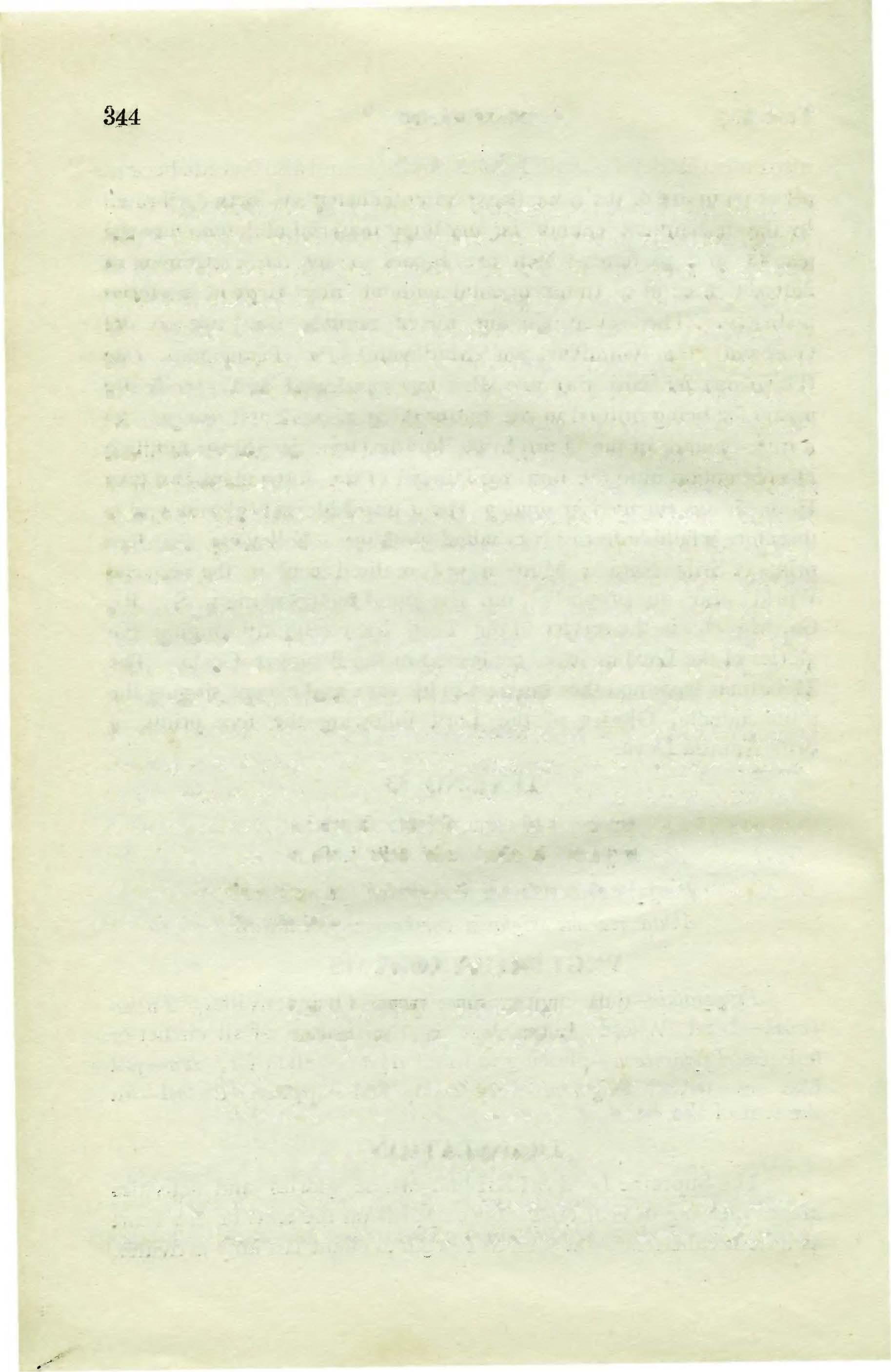
tl;�;[...�lg"{f"fm'ft Jff'!f'TPT�=ti��T �g: I
-+rcrf«;:�cc:;cr) �c) �f"{'iflfTTH!:T'fi{ 11
Etadhatur-chittanam matra sparsa ichha;·amuhuh
Bhavasihdhu plava dsisto haricharya anuvarnanam.
ENGLISH SYNONYMS
Etad-this, Hi-certainly, Aturachittanarn-of those whose mind is always full with cares and anxieties, matra-objects of
SR.lMAD BliAGWA'fAM (Oh. 6
sense e�oyment, Sparsa-senses, Ichlzaya-by desires, Muhualways, Bhavasindhu�the ocean ofnescience, Plava-boat, Dristoexperienced, Haricharya-activities of Hari the Personality of Godhead, Anuvqrnanam-constant recitation.
TRANSLATION
It is personally experienced by Sri Narada Muni that fur persons who are always full with cares and anxieties on account of desiring contact ofthe senses with sense object, -constant chanting of the transcendental activities of the Personality of Godhead (Hari) isjust the suitable boat for crossing the ocean of nescience.

PURPORT
The symptom of a living being '"is that he cannot remain silent even for some time. He must be doing something, thinking of something or talking about something. Generally the materi alistic men do work do think and do discuss on subjects which satisfy their senses. But as these things are excercised under the influence of the external illusory energy, such activities ofsense satisfaction do not actually give them any sort of satisfaction but on the contrary they become full with cares and anxieties. This called Maya or what is not. The thing which cannot give them is satisfaction is accepted as a thing for satisfaction. So Narada Muni by His personal experience desires to express it that satisfaction for such frustrated beings engaged in sense satisfaction, is to chant always the activities of the Lord. The point is that the subject matter only shall be changed. No body can check the thinking activities ofa living being; similarly the feeling and willing or practically working process, but if they want actual happiness they must change the subject matter only. Instead of talking in politics ofa dying man, one may discuss the politics administered by the Lord Himself. Instead of relishing activities ofthe cinema artists one may turn the attention to the activhies of the Lord with His eternal associates like the Gopis and Luxmis. The almighty Personality ofGodhead by His causeless mercy descends on the earth and manifests activities almost on the line ofthe worldly

Text 34] FIRST CANTO 345
me n, but at the same time extraordinarily, because He is Almighty, He ?oes so for the benifit of all conditioned �ouls so that they can turntheir attention on transcendence. By doing so the conditioned soul will gradually be promoted to the transcendental position and _ cross easily the ocean ofnescience the source ofall miseries. This is stated by personal experience ofan authority like Sri Narda Muni and we can have the same experience also ifwe begin to follow the foot prints ofthe great sage deermost devotee ofthe Lord.
TEXTNO. 35


llmf<�f�lfTlT'l�: <fitlf<ifT'li�<:rr 11�: 1

1_!�;:��<rlJ: lfirD"�SQi"TclfT if �lTI=lJf<:r II

'ramadivir yogapalhaih kamalobha halo muhuh
Mukundasavayayadbal lalha addha almana shamyati.
ENGLISH SYNONl'MS
'ramadivir-by the process ofpractising self restraint; 'rogapalhaih-by the Yoga (mystic power ofthe body to attain Godly stage) system, Kama-desires for sense satisfaction, Lobha-lust for satisfaction ofthe senses, Halo--curbed down, muhuh-always, mukunda --the Personality ofGodhead, Sevaya-by the service of, 'radbatas it is, Talha-like that, Addha-for all practical purposes, Almathe soul, Na-does not, Shamyali-be satisfied.
TRANSLATION
It istrue that by practlsmg restraint of the senses by Yoga system one can get relief from the disturbances of desires and lust but as it is the same is not sufficient to give satisfaction to the soul as it is derived from the devotional service of the Personality of Godhead.
PURPORT
The system of Yoga means controlling the senses. By practice ofthemystic process of bodily exercise in the matter ofsitting, thinking, feeling, willing, concentrating, meditatingand at last being mer�ed into transcendence, ate certainly useful for rontroJlip� the
346 SRIMAD BHAGWATAM [Ch. 6
Text 36]

FIRST CANTO

senses. The senses are considered like the venomous serpents and the Yoga system isjust to control them as if by chanting mantra and herbal efficacy. On the other hand Narada Muni recommends another method for controlling the senses in the transcendental loving servic ofMukunda the Personality of Godhead. Rather by His experience He says that devotional service ofthe Lord is more effective and practical than the system of artificially controlling senses. In the service ofthe Lord Mukund the senses are transcendentally engaged as such there is no chance of being engaged in the matter of sense satisfaction. The senses wantsome engagement. To check them artificia1ly is no check at all because as soon as there will be some opportunity for enjoyment the serpent like senses will certainly take advantage of it. There are many such instances in the historyjust like Viswamitra Muni fell a. victim of the beauty ofMenaka. But for Thakur Hari Das who was allured at midnight by the well dressed Maya and still she could not induce the great devotee in her trap.
The whole idea is that without being administered with devotional service of the Lord neither the Yoga system nor dry philosophical speculative way of searching out the truth, can become ever successful. Pure devotional service of the Lord with out being tinged with fruitive work, mystic yoga or speculative philosophy is the foremost procedure to attain self realisation. Such pure devotional service is transcendental in nature and the system of Yoga and Jnana are subordinate to suchprocess. When transcendental devotional service is mixed up with the other subordinate process, it is no longr transcendental but it is called mixed np devotional service. Srila Vyasdeva the auther of Sriimad Bhagwatam will gradually develop all these different system oftranscendental realisation pure and mixed up, in the text.
TEXT NO. 36


Sarvam tad idam akhyatamyat prista aham twaya anagha
Janma karma rahasyam me bhabatas cha atma toshanam.
ENGLISH SYNONYMS
Sravam--all, Tad-that, /dam-this, Akhyatam-described, rat-whatever, Pristo-asked by, Aham-myself, Twl!Ja-by your self, Anagha-without any sins, Janma--birth, Karma-activities, Ra!tsayam-mysteries, Me-mine, Bhavatas-your, Atma-self, Tosnanam-satisfaction.
TRANSLATION
Oh Vyasadeva you are freed from:'all sins and thus I have explained all about my birth and activities for self·realisation as it was asked by you and as it will be conducive for your personal selfsatisfaction also.
PURPORT
The process of devotional activities from beginning to the stage oftranscendence all are duly explained to satisfy the enquiries of Vyasdeva. He has explained how the seeds of devotional service was sown by transcendental association, how it gradually developed by hearing the sages and the result of such hearing is detachmentfrom worldlynessso mucheven a smallboy could receive the death ne� of his mother, who was the only care taker, as blessings ofGod. And atonce he took the opportunity of searching out the Lord. A sincere urge for having an interview of the Lord was also granted to Him although it is not possible for anyonetosee the Lord with the mundane eyes. He also explained how by execution ofpure transcendental service one can get rid of fruitive action of accumulated work and how He transformed His material body into spiritual one. The spiritual body is alone able to enter into the spiritual realm of the Lord and nobody excepta pure devotee is eligible to enter into the Kingdom of God. All the mysteries of transcendental realisalion are duly experienced by Narada Muni Himself and therefore by- hearing such authority one can have some idea of the resu]t ofdevotional life which is

348
SRIMAb BHAGWATAM
[ch. 6
hardly available even in the original text of the Vedas. In the Vedas and Upanishad there.is only indirect hints to all these informations. Nothing is directly explained there and therefore Srim�d Bhagwatam is the mature fi'uit ofall the Vedic trees ofliteratures.
TEXT NO. 37



\1:8"\3"CfT'f

�cf �nfTliq �<rl;;;tT<:�) <rr��<F{ I
�Tlfi'?lf cfiUJT �� qq) q�f��f.fl II

Suta Uvacha
Ebam sambhasya bhagaban narada vasavi sutam
Amantrya vinam ranayan ycryou yadrik icchiko munz
ENLGLISH SYNONYMS
Suta-Suta Goswami, Uvacha-said. Ebam-thus, Sambhasya -addressing, Bhagaban-transcendentally powerful, Narada-Narad Muni, Vasavi-ofthe name, Sutam-son, Amantrya-inviting, Vinam -instrument, Rancryan-vibrating, Yayou-went, radrik-wherever, Icchako-willing, muni-sage.
TRANSLATION
Suta Goswami said, thus addressingVyasadeva, Srila Narada Muni-took leave from him and vibrating on His instrument Veena left the spot for wondering at His free will.
PURPORT
Eevery living being is anxious for full freedom because thatis his transcendental nature. And this freedom of life is obtained only through the transcendental service ofthe Lord. lllusioried by the external energy everyone thinks that·he is free but actually he is bound up by the laws ofnature. A conditioned soul cannot freely move from one place to another even on this earth and what to speak ofone planet to another. But a. full fledged free soul like Narada alw�ys engaged in the matter ofchanting the Lord's glory is free to move not only on the earth but also in any part of the universe as well as in any part of the spiritual sky also. We can
Text 37] FIRST CANTO 349
just imagine the extent and unlimitedness of freedom as good as that ofthe Supreme Lord. There is no reason or obligation for His tnivelling and no body can stop Him from His freedom movement. Similarly the transcendental system ofdevotional service is alsofree. It may or may not develop in some particular person even by under going all the detailed formulas. Similarly the association of the devotee is also free. One may be fortunate to have it or one may not have it even bythousands ofendeavour. Therefore, in all spheres ofdevotionalservice freedom is the main pivot. Without freedom there is no execution ofdevotional service. The freedom surrendered to . the Lord does not mean that the devotee becomes dependent in every respect. To surrender unto the Lord through the transparent medium ofspiritual master means to attain complete freedom oflife.
TEXT NO. 38


Aho devarshir dhanya ayam yah kirtim sharan
gadhanwanah
Gayan madyan idam tantrya ramayati aturam jagat
ENGLISH SYNONYMS
Aho-all glory to, Devarshi-the sage ofthe gods. Dhanya-all su�cess, Tah-one who, Kirtim--glories, Shrangadhanwanah-of the Personality ofGodhead, Gayan-singing, mat[yan-taking pleasure in, !dam-this, Tantrya-by means ofthe instrument, Ramayati-enliveens, Aturam-distressed, Jagat-world.
TRANSLATION
All glory and success to Srila Narada Muni because He glorifies the activities of the Personality of Godhead and doing so He I:Iimselftakes pleasure in it and also enlivens all the distressed people ofthe universe.
SiUMAb tli-IAGWATAM [Ch. 6
trQ:) �crfq�o:ij)"sl!' llfC!iTfo �r&·fi�;:CJ;:r: 1 ifr:T�<af;;R ijc:?lJT �'Jl[�lJTg� Gfm( II
,
Sri Narada Muni plays· on His instrument for glorifying the transcendental activities ofthe Lord for givingrelief to all miserable livingentities ofthe universe. No body is happy here within the universe and what is felt ashappiness by mistake is Maya. The illusory energy ofthe Lord is so strong that even the hog who lives on filthy stool, feels also happy in the material world. No body can be happy within the material world and srila Narada Muni in order to enlighten the miserable inhabitants wonders every where to get them back to home Back To Godhead. That is the mission ofSrila Narada Muni and all genuine devotees ofthe Lord following the foot prints ofthe great Sage.
Thus end the Bbaktivedanta Purports of the fjrst cantoSixth Chapter ofSrimad Bhagwatam in the matter ofSri Narada's instruction on Srimad Bhagwatam to Vyasdeva·.





Text 38] FIRST CANTO 351
PURPORT
SEVENTH CHAPTER
TheSon ofDronaPunished
TEXT NO. 1



mtt'Ji �
f.r�a- ttru-� �l'J'crr� am:�mur: 1
�crr�aG:f�ia' ffif: fCfilf�Tf[+f: 11 .. "'

Sri Sounaka uvacha
Nirgoto narade suta hhagawan vadarayanah
Shrutavans tad abhipretam tatah kim akorad hihhu
ENGLISH SYNONYMS
Sri Sounaka-ofthe name, Uvacha-said, Nirgate-having gone out, Narade-Narada Muni, Suta-oh suta, Bhagawan-the transcendentally powerful, Vadarayanah-Vedavyasa, Shrutavan-who heard, Tad-his, Abhipretam-desire ofthe mind, Tatah-thereafter, Kimwhat, Akorad-did do, Bibhu-the great.

TRANSLATION �
Rishi Sounaka asked, "Oh Suta, Vyasdeva the great and transcendentally powerful heard everything from Sri Narada Muni· So after His departure, what did he do".
PURPORT
In this chapter the clue for describing Srimad Bhagwatam is picked up in the matterofmiraculously saving the Maharaj Parikshit in the womb ofhis mother. This was caused by Drouni (Aswathwama) son ofAcharya Drona, who killed the five sons ofDroupadi while asleep and for which he was punished by Arjuna. And before commencing the great epic literature Srimad Bhagwatam
Sri Vyasdeva realised the whole truth by trance in devotion.
FIRST CANTO
TEXT NO. 2
�cr '3'CJT'if
� ���il115fli: qf��if ,Cf� I
fill=�f51"Hr 'itfcr �l<m 'Wfl'I1IT U'!'fCftl<r: II
Sri Suta uvacha
Brahmanadyamsarswatyam ashramah paschime tate

Shamyaprasha it prokta rishinam satravardhanah
ENGLISH SYNONYMS
Sri Suta-ofthe name, l)vacha- said, Brahmanadyam-on the bank ofthe river intimately related with Vedas, Brahmins, saints and The Lord. Saraswatyam-of the name, Ashrama-cottage for meditation. Pashchime-on the west, Tate-bank, Shamyaprashathe name ofthe place, Jti-thus, Prokta -said to be, Rishinam-of the sages, Satravardhana-that which enlivens activities.
TRANSLATION
On thewestern bank ofthe river Saraswati whichis very much related with transcendental subjects like the Vedas etc., there is a cottage for meditation at Shamyamyaprahas which enlivens the transcendental activities ofthe sages.
PURPORT
For spiritual advancell}ent of knowlege a suitable place and atmosphere is definitely required. The place on the western bank of Saraswati is specially suitable for this purpose. And there is the Ashram ofVyasdeva at Shayamprasha. Srila Vyasdeva was a householder and still his residential place is called Ashram. A ashrama means the place where the spiritual culture is continuedly made. It does not matter whetherthe place belongs toa householder or to a mendicant. The whole Varnashrama system is so designed that each and every status oflife is called a Ashrama. This means that spiritual culture is the common factor for alL The Brahmachari, The Grihasthas, The Vanaprasthas or The Sannyasins all of them belonged to the same mission oflife namely realisation of the Supreme. Therefore none ofthem were less important so far spiritual
Text .2]
353
culture is concerned. The difference was a matter offormality on the strength of renunciation. The Sanuyasins were held in high estimation on the strength ofpractical renunciation.
TEXT NO. 3

affl=l1: �cr an� alirtr) <if�Ulfu��ru�a- 1
�m1rr)sq '3"tf�q�· srfur<t;;<r1 il<r: �'fll� 11
Tasmins swa ashrame vyaso vadari sanda mandite Asinopa upasprisya pranidadftyou manah swayam
ENGLISH SYNONYMS
Tasmin-in that (Ashrama), Swa-own, Ashrame-in the cottage, Vyaso --Vyasdeva, Vadari-bcrry, Sanda-trces, Mandite surrounded by, Ashinopa-sitting, Upasprisya--touching water, Pranidadhou-concentrated, Manah-the mind, Swqyam-himself.
TRANSLATION
In that place Srila Vysadeva in His own Ashrama which was surrounded by trees of berries, sat down on meditation ofmind after touching water for purification.
PURPORT
Under instruction ofHisspiritual master Srila Narada Muni Vyasdeva concentrated His mind in that nice and transcendentally situated place ofmeditation. • '
TEXT NO. 4
<Tf<talf)irrr lfrrfu u<=D.CJ!: �furf�a-s+r�
qq�l:fc��q' �� t:!HT 'if ilC::'ITI.1<:r� II
Bhakti yogena manasi sam)'ak jwanihite amaZe
Apasyatpurusham pumam mqyam cha tad apashrayam
ENGLISH SYNONYl\1S
Bhakti-devotional service, Yogena- by the process oflinking up, manasi- upon the mind, Samyak-perfectly, Pranihite- engaged infixed up, AmaZe-without a-ny thing of matter, Apasyat -saw,
354 stUMAD BHAGWATAM [Ch. 1
Purusham-the Personality ofGodhead, Purnam-absolute, mayamenergy, Cha-also, Tad His, Apashrayam-under full control.
TR ANSLATIO N

Thus He fiXed up His mind perfectly engaged in the linking up process of devotional service without any tinge of material affection and He saw the Absolute Personality of Godhead along with His external energy under full control.
PURPORT
Perfect vision ofthe Absolute Truth is possible only by the linking process ofdevotional service. This is also confirmed in the Bhagwat Geeta that one can perfectly realise the Absolute Truth Personality ofGodhead only by the process of devotional service and one can enter into the Kingdom ofGod by such perfect knowledge. Imperfect realisation of the Absolute 'by partial approach ofimpersonal Brahman or localised Paramatma does not permit any one to enter into the Kingdom ofGod. Sri Narada advised Srila Vyasdeva to become absorbed in transcendental thinking of the PersonalityofGodhead and His activities. Srila Vyasadeva did not take any notice of the effulgence of Brahman because that is not Absolute vision. The Absolute Vision is the Personality of Godhead as it is confirmed in the Bhagwat Geeta Vasudeva Sarvam iti. In the Upanishads also it is confirmed that Vasudeva the Personality ofGodhead is covered by golden glowing Hiranm'Jyena patrena veil ofImpersonal Brahman and when that curtain is removed by the mercy ofthe Lord the real Face ofthe Absolute; is seen. The Absolute is mentioned here as the Purusha or the Person. The Absolute Personality ofGodhead is mentioned in so many Vedic literatures and in the Bhag\vat Geeta the Purusha is confirmed as eternal and the Original Person. The -Absolute Personality of Godhead is the PerfectPerson. The Supreme Person has manyfold energies out of which the internal external and the marginal energies arespecifically important. The energy mentionedhere is the external energy as it will be clear from the statements ofher activities. The internal energy is there along with the Absolute Person
Text 4] FIRST CANTO 355
as the moon light is seen along with the moon. The External energy is compared with darkness because she keeps the living entities in the darkness of ignorance. The word Apashrayam suggests that this energy of the Lord has no inferior complex in comparison with the superior energy called by the name Internal Potency. The internal potency is also called Maya but it is spiritual Maya or energy exhibited in the Absolute realm. When one is underthe shelter ofthis internal potency the darkness of material ignorance is at once dissipated. And even those who are Atmarama or fixed up in trance do also take shelter of this Maya or internal energy. Devotional service mentioned as Bhaktiyoga is the function of the internal energy; as such there is no place for the inferior energy or material energy as much as there is no place for darkness in the effulgence ofspiritual light. Such internal energy works even superior to the spiritual bliss attainable in the conception of impersonal Brahman. As it is stated in the Bhagwat Geeta that such impersonal Brahman effulgence is also emanation from the Absolute Personality of Godhead Sri Krishna. The Parama Purusha cannot be any one except Sri Krishna Himselfas it will be explained in the later slokas.
TEXTN0. 5
� �)� � �TClfrrf f5f�OIIcil'lil{ l
tn:)sfq 112:i.fs.=pf mwct 'ifrf'ij"q�a- 11
raya sanmohita jiva atmanam trigunatmakam

Para api manute anartham tat kritancha ahhipa1Jate.
ENGI,ISH SYNONYMS
raya-by whom, Sanmohita-illusioned, ]iva-the living entities, Atmanam-self, Trigunatmakam-conditioned by the three modes ofnature or a product ofmatter, Para-transcendental, Api-inspite of, Manute-takes it for granted, Anartham-tbings not wanted, Tat-by that, Kritancha-reaction, Abhipadyate-undergoes thereo£
TRANSLATION
J3y whom the livin� entity, although trfl,nscendental to the
356 SRIMAD BHAGWATAM [Ch. 7
three modes ofmaterial nature, thinks ofhimselfas one ofmaterial product and thus undergoes the reaction ofmaterial miseries.
PURPORT
The root cause ofsuffering by the materialistic living beings is pointed out herewith with remedial measures which are to be undertaken by the suffering living beings as also the ultimate perfection gained thereof,-all are mentioned in this particular statement. The living being is by constitution transcendental to material encagement but he is now imprisoned by •the external energy and therefore he thinks himself as one of the material products due to such unholy contact. And due to this unholy contact 9f the pure spiritual entity, he sufferes all material miseries under the modes of material nature. Here is a suggestion that theliving entity misunderstands himself as material product. This means that the present perverted way of thinking, feeling and willing of the living being under material conditions is not natural for him but he has his normal way of thinking feeling and willing as much as there is difference between a normal healthy man and the diseased man. The living being in his original state is not without any thinking willing and feeling power. This is also confirmed in the Bhagwat Geeta that actual knowledge of the conditioned soul is now covered by nescience. As such the theory th�t a Jiving being is simply designated Absolute impersonal Brahman is refuted herein. This cannot be because the living entity has his own way ofnatural thinking in his original unconditional state also. The present conditional state is due to the influence of the external energy which means that the illusory energy takes the initiative while the Supreme Lord is aloof from such undesirable acts. The Lord does not desire that a living being should be illusioncd by the external energy. The external energy is aware ofthis fact but still she accepted a thankless task of keeping the forgotten soul under illusion offearfulness byher bewildering influence. The Lord also does not interfere with the taskofthe illusory energy because such performances ofthe illusory energy is also necessary for reformation ofthe conditioned soul, An �ffectiona.te father does not like that

Text 5] FIRST CANTO 357
his children should be chastised by another agent still he puts his disobedient children under the custody ofa severe man just to bring them in order. But the allaffectionate Almighty Father desires at the same time relief of the conditioned soul relieffrom the. clutches ofthe illusory energy. The king puts in the disobedient citizens within the walls ofthe jail but sometimes the king desiring the prisoner's relit>[personally goes there and pleads for reformation of habit and on doing so the prisioners are set free. Similarly the Supreme Lord descends from His Kingdom upon the kingdom of illusory energy and ersonally gives them relief in the form of the Bhagwat Geeta wherein He personally suggests that the ways of the illusory energy is very much stiff to be overcome but one who smrenders unto the lotus feet ofthe Lord is set free by the order of the Supreme. This surrendering process is the remedial measures for getting _ relieffrom the bewildering ways of the illusory energy. The surrendering process is completed bythe influenceofassociation. The Lord has therefore suggested that by the influence of the speeches ofsaintly persons who have actually realised the Supreme they are engagedinHistranscendental lovingservice. The conditioned soul gets taste for hearing about the Lord and by such hearing process only such conditioned soul is gradually elevated on the plat form ofrespect, devotion and attachment for the Lord. The whole thing is completed by surrendering process. Herein also the same suggestion is made by theLord in His incarnationofVysadeva. This means that the conditioned souls are being reclaimed by the Lord both ways namelyby the process of punishment by the external energy of the Lord as well as by Himself as the spiritual master within and without. vVithin the heart of every living being the Lord Himself as the Super Soul Paramatma becomes the spiritual -master and from without He becomes the same spiritual master in the shape ofscriptures, saints and initiator spiritual master. This remedial measure is still more explicitely explained in the next sloka.
Personal suprerintendence of the illusory energy is confirmed in the Vedas like the Kena Upanishad in the matter of the demigod's controlling power. Iierein qlso it is clearly stated that the

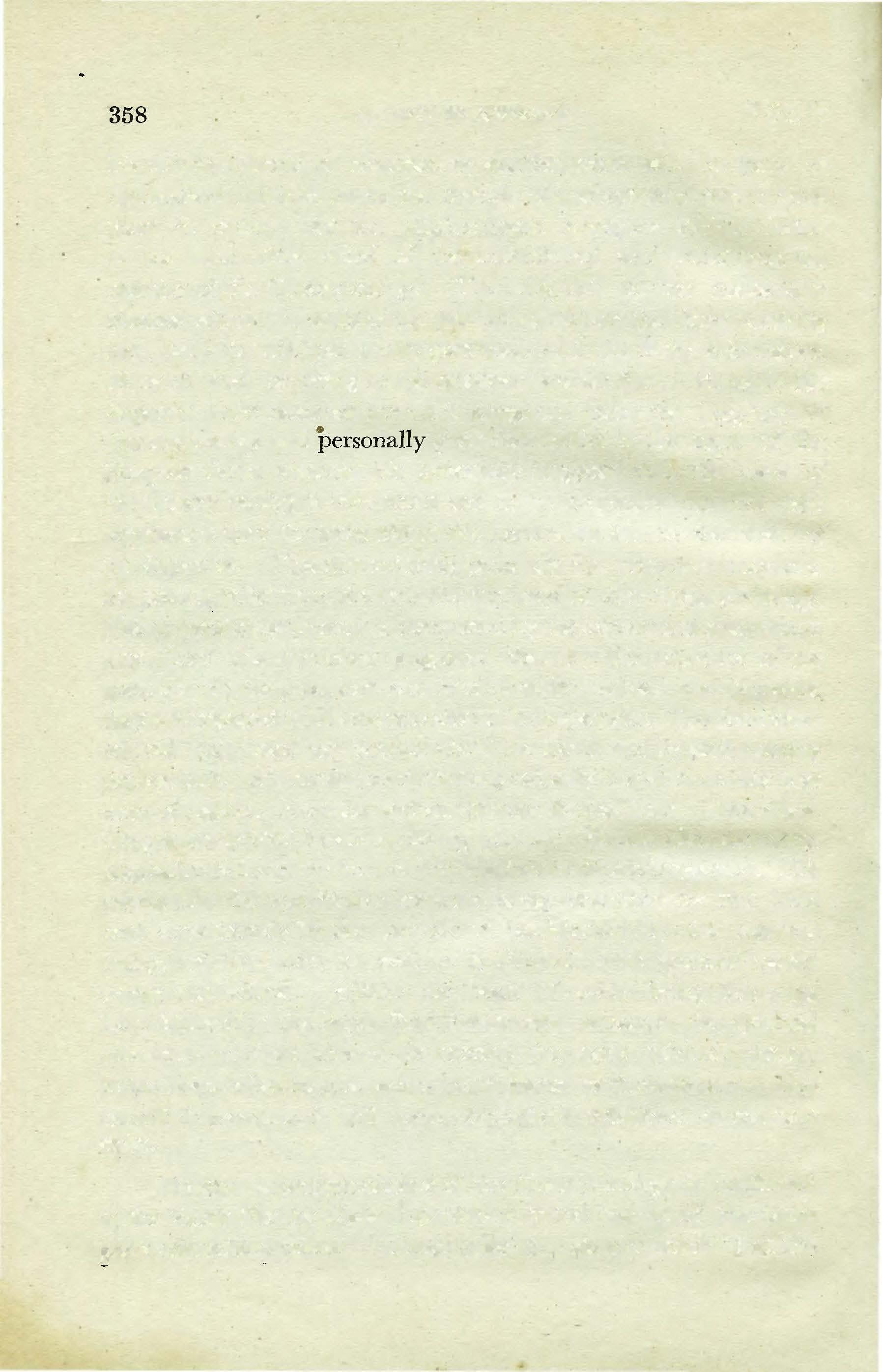
358 SRIMAD BHAGWATAM ·[Ch. 7
Text 5]

FIRST CANTO
living entity is controlled by the exernal energy in personal capacity. The livjng being thus subject to the control ofExternal energy is differently situated. It is�clear, however, from the present state ment ofBhagwat that the same External Energy is situated in the inferior complex before the Personality of Godhead or the Perfect Being. The Perfect Being or the Lord cannot be even approached by the illusory energy. She can only work on the living entities. As such it is sheer imagination that the Supreme Lord is illusioncd by the illusory energy and thus become a living being. If the living being and the Lordwouldhave been inthesamecategorythen it was quite possible for Vyasdeva to see it and there would have been no question of material distress on the part ofthe illusioned being because the Supreme Being is fully cognisant. So there are so many unscrupulous imaginations on the part ofthe monists to endeavour to put in the same category both the Lord and the living being. Had it been so then Srila Sukadeva Goswami would not have taken the trouble ofdescribing the transcendentalpastimes ofthe Lord ifthey were all manifestation of the illusory energy.
Srimad Bhagwatam is the summum bonum remedy for the suffering humanity in the clutches of Maya. Srila Vyasadeva therefore first ofall diognised the actual disease of the conditioned souls i. e. to say their being illusioned by the external energy. He also saw the perfect Supreme Being fromwhomillusoryenergy is far offsituated, though He saw both the diseased conditioned souls and also the cause ofthe disease. And the remedial measures are suggested in the next. Both the Supreme Personality ofGodhead and the living beings are undaubtedly qualitatively one but the Lord is the controller ofthe illusory energy while the living entity is controlled by the illusory energy. As thus the Lord and the living beings arc simultaneously one and different from the Lord. Another point is distinct herein that eternal relation between the Lord and the living being is of transcendental affection otherwise the Lord would not have taken the trouble of reclairning the conditioned souls from the clutches of Maya. In the same way the living entity is also required to revive his natural love and affectien for the
r
Lord and that is the highest perfection of the living entity. Srimad Bhagwatam will treat the conditioned soul with an aim to that goal oflife.
TEXT N0. 6


wr�"'MT;T m�r�f<fd"m•tij'tfr�i;f 1
��11� f<firt�� ��ffii( II
Anartha upaslzamam sakslzat bhaktiyogam adlzokslzaje Lokasya ajanato vidwans chakre satwate samlzita,.
ENGLISH SYNONYMS
Anartha--things which are superfluous, Upashamam-mitigation Sakshat--direcly, Bhaktiyogam-the linking up process of devotinal service, Adhokshaje-unto the Transcendence, Lokasya-of the general mass of men, Ajanatah-those who are unaware of, Vidwanthe supreme learned, Clzakre-compiled, Satwata-in relation with the Supreme Truth, Samhita-vedic literature.
TRANSLATION
Material miseries ofthe living entity, which are superfluous for him can be directly mitigated by the linking process ofdevotional service. But the mass ofpeople donotknow this and therefore the learned Vyasdeva compiled this vedic literature which is in relation with the Supreme truth.
PURPORT
Srila Vyasadeva saw the All perfect Personality of Godheed. This statement suggests the complete unit of the Personality of Godhead includes His parts and parcels also. He saw; therefore, His different energies nanely the internal energy, the marginal energy as well as the external energy. He saw also His different plenary portions and part of plenaryportions namely His different �pearnations also and He specifically observed the unwanted miseries ofthe conditioned souls who are bewildered by the external energy. And at lastHe saw the remedial measure for the conditioned souls namely the linking up process of devotional service. It is a great
360 SiUMAD BHAGWATAM· [Ch. 1
transcendental science and begins with the process of hearing and chanting ofthe Name, Fame, Glory, etc of the Supreme Personality of Godi1ead. Revival of the dormant affection or love of Godhead does not depend on the mechanical system of hearing -and chanting but is solely and wholely depends on the cause. less mercy of the Lord. vVhen the Lord is fully satisfied with the sincere efforts ofthe devotees, He may endow such pure devotee -with His loving transcendental service. But even in the prescribed forms ofhearing and chanting there is at once mitigation of the superfluous and unwanted miseris of material existence. Such mitigationofmaterial affection does not wait for development of transcendental knowledge. Rather knowledge is dependent on -devotionalservice for ultimate realisation ofthe Supreme Truth.
TEXT NO. 7

ll'flTT cr �flJ!Tli'T �fCfCI�� �·«:
rasyam bai suryamanqyam krishne parama puruse
Bhaktir utpadyatepumsah sokamoha bhaya apaha
ENGLISH SYNONYMS
f'asyam-this vedic literature, Srf91amanqyam-simply by giving aurel reception, Krishne-unto Lord Krishna, Parama-supreme, Puruse-unto the Personality of Godhead, Bhaktir-feelings ofdevo-· tional service, Utpadyate-sprouts up, Pumsah-ofthe living being,. Soka-lamentation, Moha-illusion, Bhaya-fearfulness, Apaha-that which extinguishes.
TRANSLATION
Simply giving an aural reception to this vedic liter�ture the· feelings for loving devotional service of the Lord Knshna the Supreme-Personality ofGodhead, sprouts up at once for extinguishing the fire oflamentation illusion and fearfulness.
Text 7] FIRST CANTO 36!
There are various senses ofthe living being ofwhich the ear is the most effective. This sense works <;ven when amanis deep asleep. One can protect himself from the hands of enfmy while awoken but while asleep one is protected by the ear only. As such partimatter cular importance ofthe organ for hearing is mentioned here iri the ofattaining the highest perfection of life namely to get f�ee from three material pangs. Every one is full of lamentation at every moment, he is after the mirage ofillusory things and is always afraid ofhis supposed enemy. These are the primary symptoms· of mate.rial diseases. And it is definitely suggested' herein that simply by hearing the message of Srimad Bhagwatim one gets attachment for the Supreme Personality ofGodhead Sri Krishna and as soon as this is effected the symptoms ofthe material diseases disappear. Srila Vyasdeva saw the All Perfect -Pers��ality of Godhead and in this statement the All Perfect Personality: ofGodhead Sri Krishna is clearlyconfirmed, ·
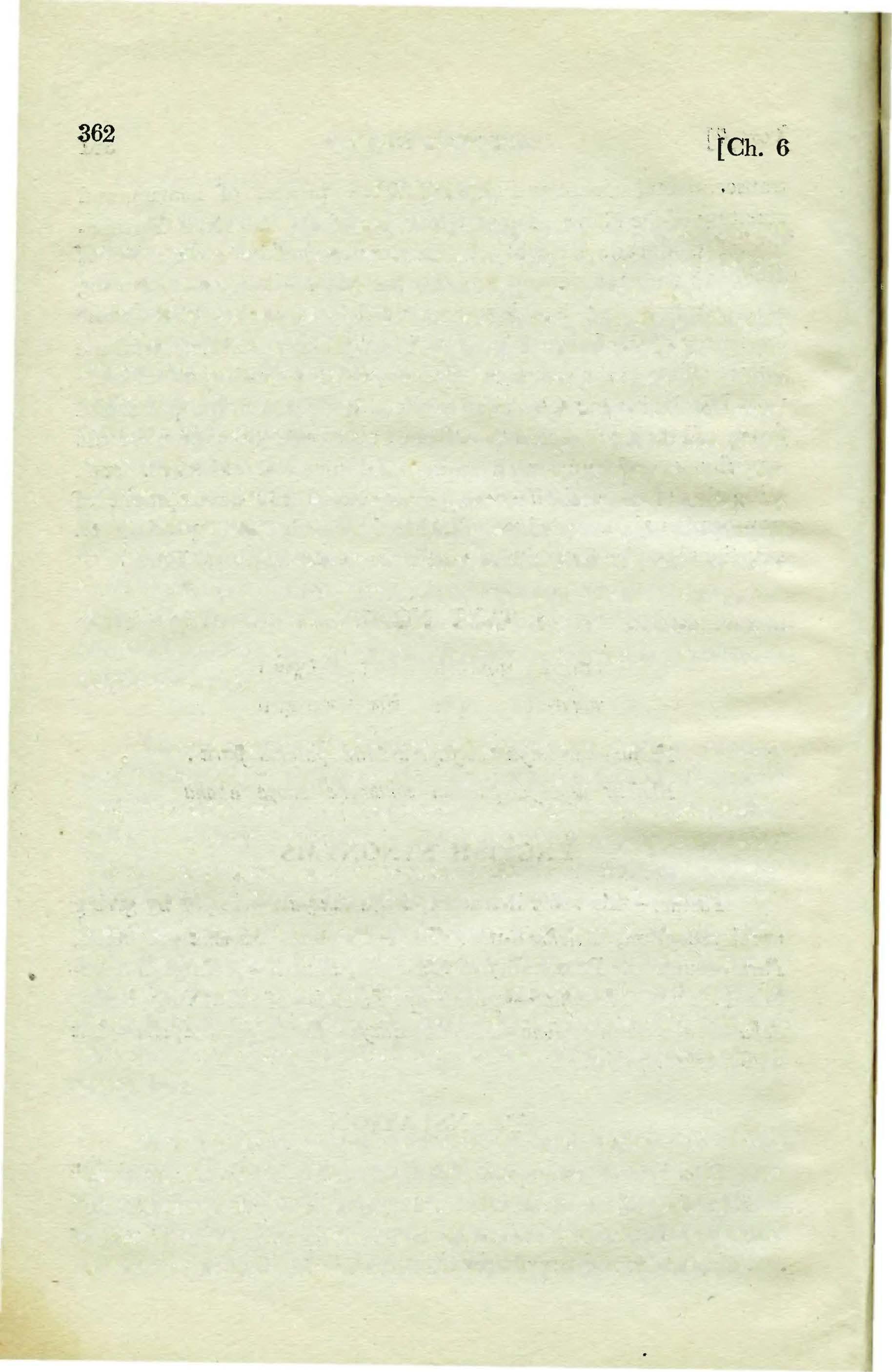
Theultimate result of devotional service is to develop genuine love forth��·��preme Pers�nality. Love js a word wh1ch is strictly used in re1at1ori "vith man and woman. That is the etymological order in English language. And therefore love is the only word that can be properly used in relation with ' Lord Krishna and the -living entities.. .The living entities are mentioned as.Pr�r :_itiin the Bhagw�t Geeta and in.Sansk;it Pral�riti is ..a femine obj�ct. The .Lord is always described asthe Parama Purusha or the Supreme Male Personality. As suchthe affection �?�tween the Lord and the . living entities are ofexactly like the male and the female. Therefore the �ord Love of Godhead by the living entities is quite appropriate.
S�ch loving devotional service ofthe Lord begins with hearing about the Lord. There is no difference between the Lord and the subject matter heard about Him. The Lord is Absolute in all respect and as such there is no difference between Him and the subject matter heard about Him. As suchhearingaboutHim means
�62
SRIMAD BHAGWATAM PURPORT
-immediate contact with Him by the process ofvibration ofthe -transcendental sound. And the transcendental sound is so effective ·· that it acts at once �n the matter of removing all material affections mentioned abo_ve. As mentioned hereinbefore, a living entity -develops a sort ofcomplexity bymaterial association and the illusory ·encagement ofmaterial body is ·accepted as actual fact. Under such false complexity only the living beings under different cate-gories oflife become i11usioned in different ways. Even in the most developed stage ofhuman life the same illusion prevail in the form ·ofa many isms and divide the loving relation with the Lord and thereby dividing the loving relation between man to man. By hearing the subject matter of Srimad Bhagwatam this false complexity ofmaterialism is removed and the real peace ofsocietybegins which politicians aspire after . so eagerly in so many political and fearful situation. The politician wants peaceful situation between man to man, nationto nation but at the same time, onaccountoftoo much attachment for material domination, there are the illusion and fearfulness. Therefore the politicians' peace conferences cannot bring about peace in society. It c'='n only be done by hearing the subject matter described in the Srimad Bhagwatam about the .Supreme Personality ofGodhead Sri Krishna. The foolish politician may go on holding peace and summit conferences for hundreds of years still they will fail to achieve success. Because till we reach to the stage ofestablishing our lost relation with Krishna the illusion ofaccepting the body as the selfwill prevail and as such the complexity of fearfulness will also prevail. So far validity of Sri Krishna as the Supreme Personality ofGodht;ad there are hundreds and thousands ofevidences from revealed scriptures and there are hundreds and thousands of evidences from personal experience of devotees in variousplaceslike Vrindaban,Nabadwipa,Puriand other places. Even in the Koumadi Dictirmary the synosyms of Krishna is given as the son of Jasoda and the Supreme Personality of ·Godhead Prambrahman. The conclusion is that simply by hearing th..e Vedic literature Srimad Bhagwatam one can have direct connection with the Supreme Personality ofGodhead Sri Krishna and thereby one can attain the highest perfection oflife in the form of

"-Text 7] FIRST CANTO 363
dessipation of worldly miseries, illusion and fearfulness. These · are practical tests for the one who has actually given a submissive: aural reception to the readings ofthe Srimad Bhagwatam.
( To be continued )
Thus end the Bhaktivedanta Purports of the First Canto-part ofthe Seventh chapter ofSrimad Bhagwatam in the matter of: The Son ofDrona punished.

364 SRIMAD BHAGWATAM [Ch. · 7:
APPENDIX-1 GLOSSARY.

Acharya-Authorised teacher of a particular cult.
Ahamkara--The meeting point ofmatter and spirit.
Annapras.'zan-A ceremony or Samskara of offering solid food to a teething child at the age ofsix to seven months.
Apara-Material inferiority.
Archa--The Form ofthe Lord manifested through material agency such as mind, metal, earth, painting, wood, stone, jewel, drawing etc accepted as incarnation ofGod and worshipped by regulations.

Archan-The procedures followed in connection with worshipping the Archa.
Ashrama-Orders oflife in connection with selfrealisation.
Ashura Person against the service ofthe Lord.
Astasiddhi-Eight fold perfections by mystic powers.
Atmarama-Selfsatisfied in spiritual values.
Avesha-Incarnation of Godhead partially empowered,
Bhakti-Activities ofthe purified senses.
Bhagwat-In relation with the Personality of Godhead.
Brahman-The Absolute Truth.
Brahmin-A person in the mode ofgoodness.
Brahma-The first created being head ofan Universe.
Bibhuti-Specific power deputed to a living being.
Devata-Person obedient to the service ofthe Lord.
A
B
D
J Jnanam-Knowledge trnscendenta!1 � �
.
Kazi-A Muslim Magistrate.
Karcha-Authorised notes recorded.


Karma-Material activities subjected to reaction.
Kartal-Handy bell used by the devotee.
Kali-The age in which quarrel is a common affair.
Kalpa--Millennium or material manifestation during the day of Brahma.
Kshatriya-The martial caste inthe mode ofpassion.
Leela-Transcendental pastime ofthe Lord.
Mantras-Sound transcendental or Vedic hymns.
Mayavada-The system of philosophy propounded by the impersonalists.
Mukti-Recovery from material existence and be re-instated in the in the original form.
Mohatma-A devotee ofthe Lord constantly engaged in the service ofthe Lord.
Muktipada-Lord Vishnu whose lotus feet are worshipped by the liberated souls.
Mridanga-A particular type ofdrum specially made in Bengal.
Parampara-Disciplic succesdon.
Para-Transcendental superiority.
Pasandi-An offender to the Lord.
Paramatma-The supersoul localised aspect of the Lord.
Phalgooni Purnima--The full moon night in the month of Phalgoon (Feb.-March).
Prakriti-Energy or Nature.
frema-Spontaneops attraction ofLove:
( ii ) K
L
M
p
Purusha-Incarnation ofGodhead for material manifestation
Puranas-SuppJements ofthe Vedas.
Rasa-Spiritual humour by spiritual sense perception.
Satwam-Mode of material nature in goodness.
Samryas-Renounced order oflifefor spiritual culture.
Sattwatas-Eternal devotees of the Lord.
Samadhi Trance or being absorbed in the service ofthe Lord.
Shakabda -Year since the birthday ofMaharaj Saka (79 B.C.)
Shastras--Revealed scriptures ofVedic literatures.

Shalagram Shila-Specific Archa ofVishnu (See Archa)
Sikshastak-Eight stanzas composed by Lord Chaitanya.

Suddha satwa-Purified state ofthe soul freed from matter.
Sudra-Person in the mode ofignorance the labourer class.
Sruti-Direction ofthe Vedas directly.
Sudarshan Chakra-The weapon-wheel used by Lord Krishna.
Swarupa-Original spiritual Form.
Tamas-Darkness or ignorance ofundeveloped mind.
Tatwa-Substance.
Taraka Brahman-Transcendence that delivers the soul.
Tirtha-Holy place or the saint able to deliver fallensoul.
Uttamadhikari-Advanced devotee ofthe Lord.
Vaishya�The merchantile class in the mode of passiOn and Ignorance.
Vasudeva-Perfect spiritual being free from matter.
( iii )
L
n
s
,
T
u
v
trislznu Tatwa-Status ofGodhead.




Varnas-Castes or section in terms ofqualjfication and occupation.


Vais!mavas-The devotees ofthe Lord.
roga-That which connects link with the Supreme.
( iv )
y
\ •
5236 at once at once to 5329 existance existence
5728 pereels parcels
6128 Competetion Competition
642 realy really
" " weibeing wellbeing
6526 bonafied bonafide
67 4 tree tree
" 34 shocking, shocking
696 carefull careful 702 beach beaks
7515 directious directions
77 2 there therefore
,, 16 on one
8010 adieted addicted
912 repeatation repetition
10321 Pnranas Puranas

1186 undoutedly undoubtedly
1224 .. remnescence remm1scence
12430 anb and
Line Misprint Correct 120 Absoltuc Absolute 1112
rhetorical
211
APPENDIX-2 ERRATA Poge
retorPical
1127 hinderanees hindrances 1431 sqmzmg. squeczmg
immitate imitate 2618 coneption. conception
2833 audience audience 3933 smil1ingl¥ smilingly
12531 presant, persenally, present, personally
12832 hunkerings hankerings
1353 IS In
1382 plateform platform
14217 benefitted benefited
14631 panances penances
15032 manupulation manipulation
15326 wosk work
15533 lose loose
1594 Sureme Supreme
16315 Mahu Manu
16713 spirituat spiritual
17424 Inudation Inundation
17620 f�;;rfcrcc-qlf "' f�;;rfqGcqif "'



1799 Vayaudeva Vyasdeva
18015 my may
18729 inexhaustible inexhaustible

20031 Sruits. Srutis.
2019 �5J�llf�
�r::;r�l:lcrclff'n "
20416 gap without gap
20815 equal equal
2167 interesting interesting
,, 20 ultirior. ulterior
22825 one living one living being
22920 itinarary itinerary
23219 intrested interested
23527 fifths fifth
23626 an and
24512 directed direct
24625 �\iflfPlHf ��lfPlHf

24819 smiiings smiling
249 Last qf"q'f�a-� qf-.;a{fi'i:a-�
25020 ar�rfq �FHfCr
2516 respresented represented-
2522 seanty scanty ,
( vi ) Page Line Misprint Correct
25210 couse cause
25329 penitrate penetrate
25719 sanitly saintly
26525 literacy literary
26922 bodage bondage
26931 recommend recommended
27225 0 of
27324 relequish relinquish
27333 stage stag
275 5 greatest greatest
27516 machanical mechanical
28121 weibeing wellbeing
28216 � ��
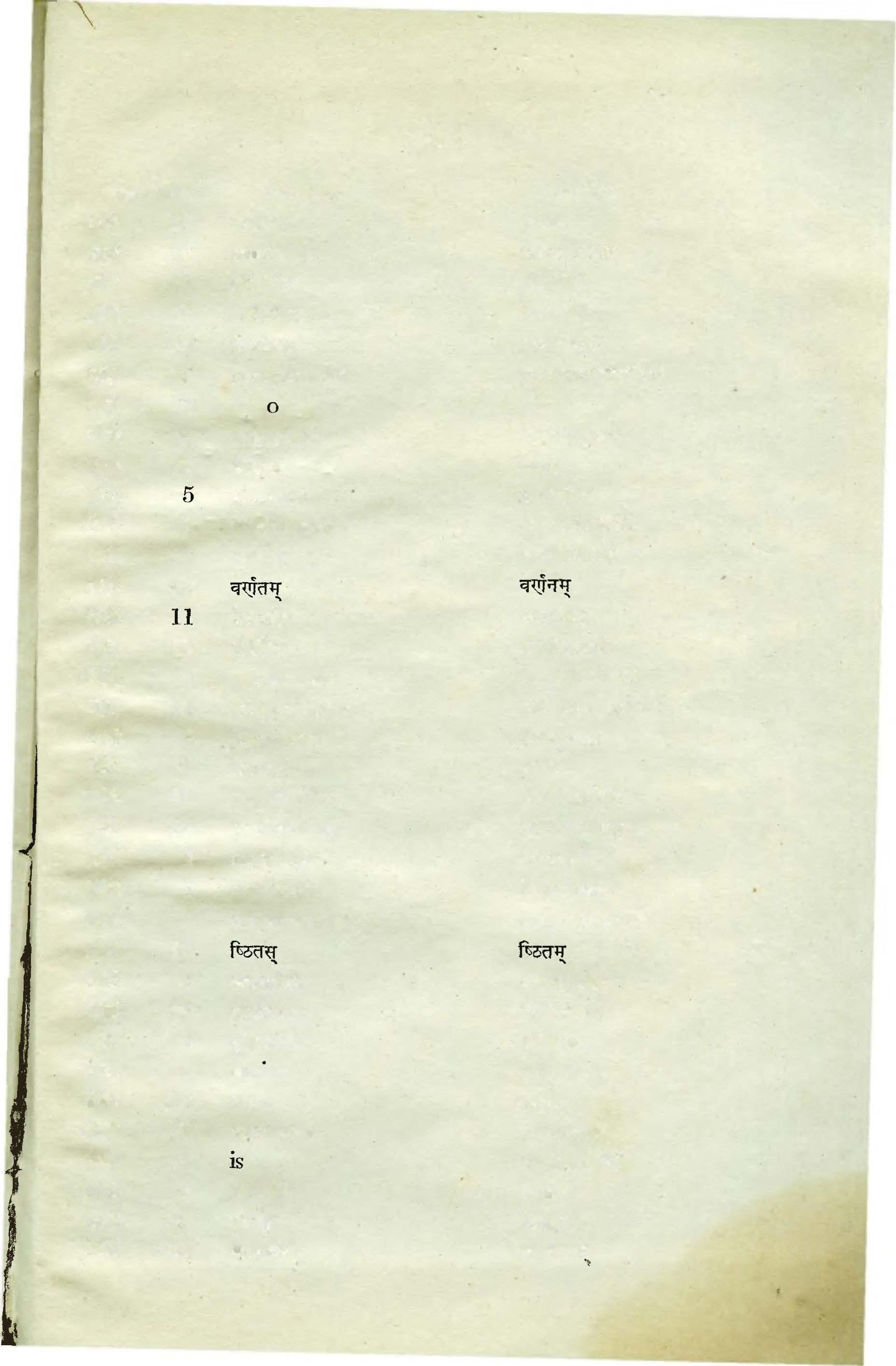
283 ll beuty beauty
28322 diffrent different
2918 unfatomed un£1.thomed
29131 uniterrupted uninterrupted
2969 Jananam Jnanam
29721 suruti sruti
29821 tranqnlity tranquility
29829 prevading pervading
3012 expcept except 3032 become becomes
3095 impersonlist impersonalist
30927 � �
3185 woodeu wooden
32525 diferent different
32619 glymse glimpse
32822 sunses sun rises
33415 snch such
33720 devloves devolves
34521 IS for line 20
3462 benifit benefit
347 27 longr longer
354 24
�'lTSSflrl( �'lTSSfliflf..
(vii )
1Hisprint Correct
Page Line
J
NOTICE
As I Lave already informed that this great literature 'Srimad llhagwatam' is elaborately rendered into English in sixty parts of 350 to 400 pages each.

I am getting the next part ready by collecting funds out of the sales-proceeds ofthe first part.
Please therefore book your order immediately for the Second Part by remitting Rs 16/-sixteen only at the following address. By advance payment of price, you get -the copy delivery free. Otherwise Postal charges extra.
Thanking you,
A. C. Bhaktivedanta Swami








































































































































































































































































































































































 By•adadhat ;•ajna santatyai vedamekam chaturvidham
By•adadhat ;•ajna santatyai vedamekam chaturvidham












































































































































































































